$15.00 inc GST
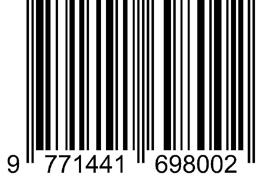
SEPTEMBER/OCTOBER 2023
ISSUE: 319
PLUS: Out On The Weekend

Dashville Skyline
Melissa Carper
Brennen Leigh Hiss Golden Messenger
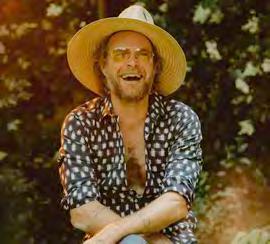
Ondara
Summer Dean PLUS
Ian Moss
Dan Sultan

HISTORY
TOP 50 AUSTRALIAN ROOTS ROCK ALBUMS
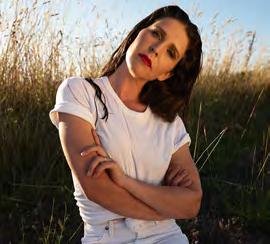
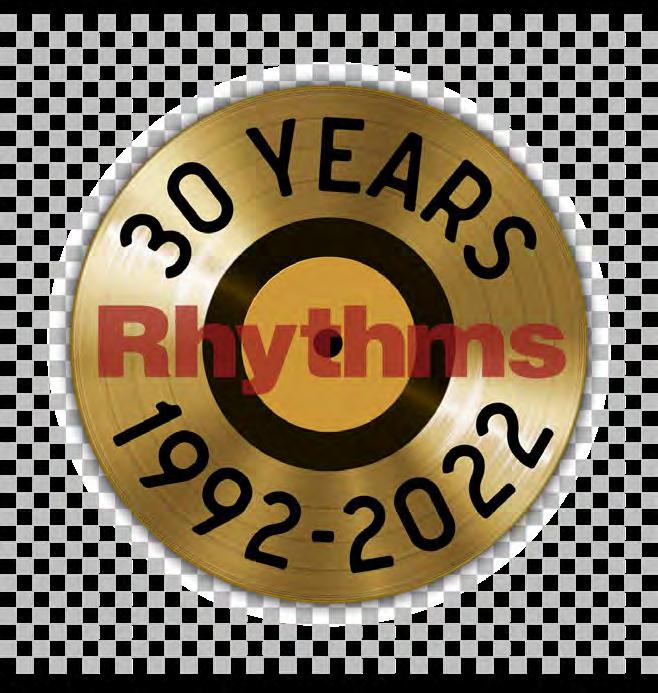
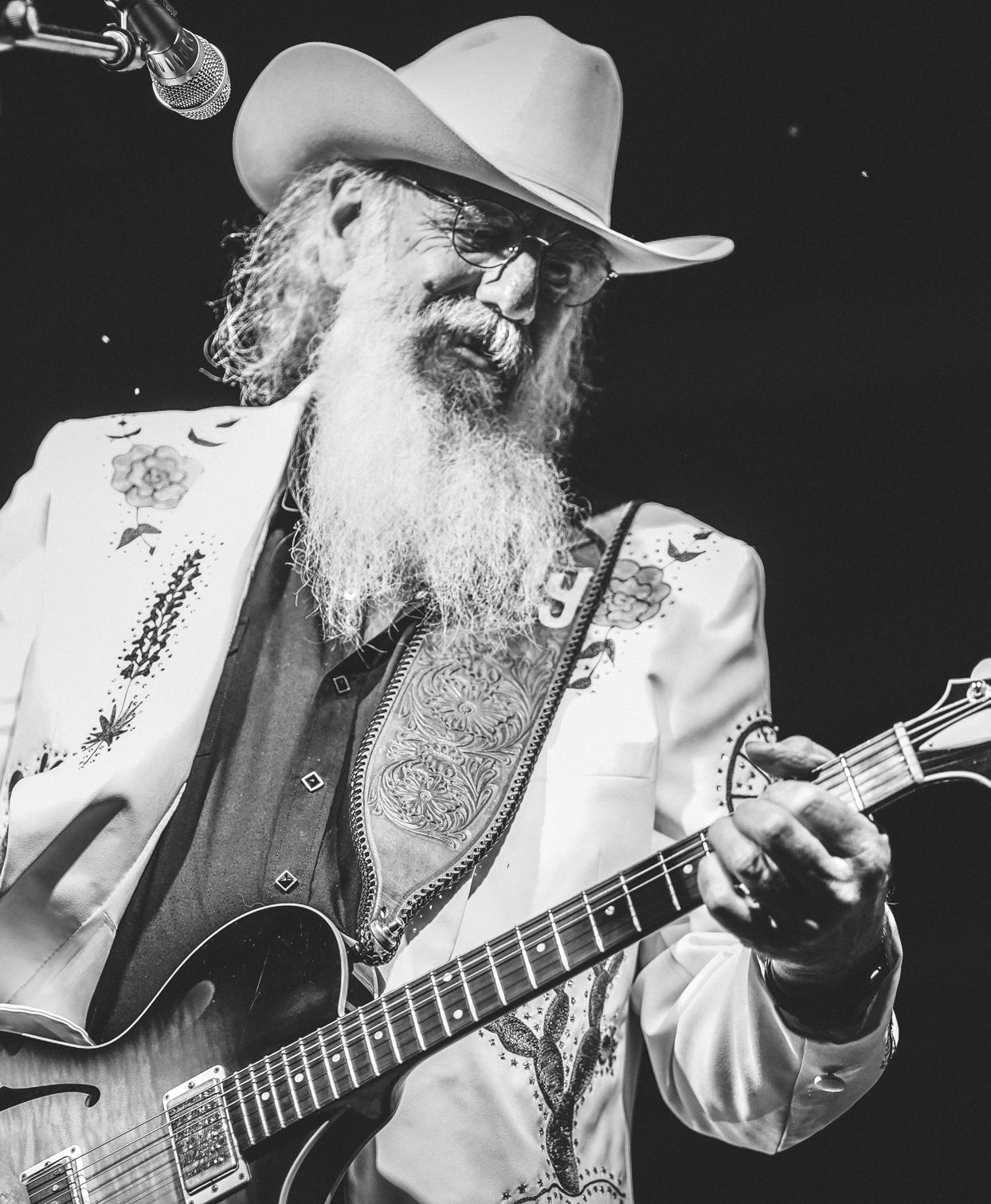
Shake Some Action
Full Coverage
FREE SUB AMERICANA FESTIVAL 2023 ANTHOLOGYAR
“All of a sudden you look back and you go, Oh my God, we covered a lot of ground.”
Fanny Lumsden
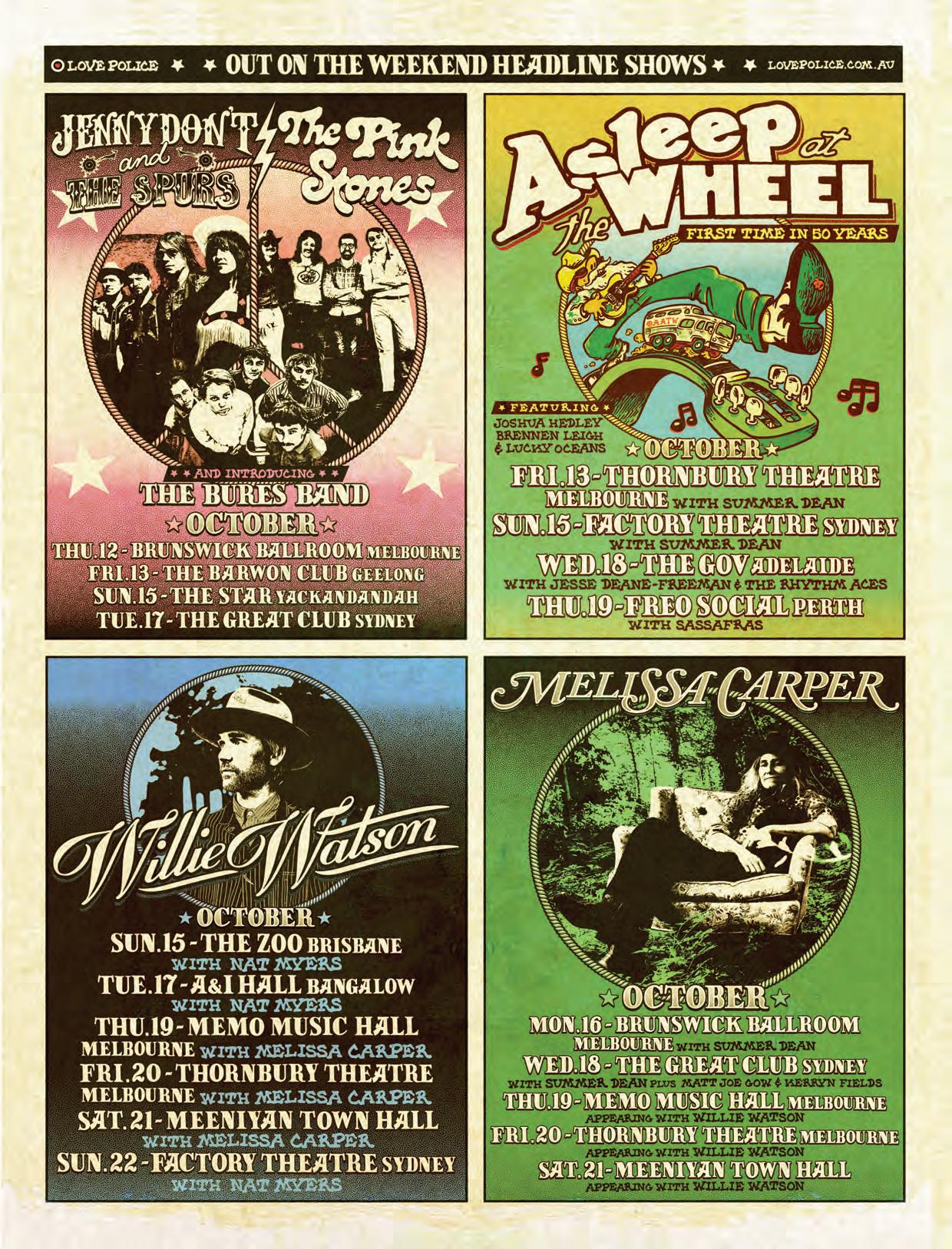

3 Jack Johnson • Tom Jones The Teskey Brothers • Matt Corby • L.A.B Elvis Costello & The Imposters Peter Garrett & The Alter Egos Tommy Emmanuel The Dead South • The Paper Kites Drive-by Truckers • Newton faulkner • Steve Poltz 19-Twenty • Taj Farrant • Erja Lyytinen • Harry Manx Here Come The Mummies Clayton Doley's Bayou Billabong Little Quirks • Hussy Hicks • Blues Arcadia RocKwiz Live easter long weekend • THU 28 TH MARCH - MON 1 ST APRIL 2024 and many more to come! BY
N
bluesfest.com.au
FIRST ARTIST LINEUP JUST ANNOUNCED!
RO
EVENTS FAR M - BYRON BAY, NSW, Australia.
VIP Camping TIPI tent-motel Glamping
Fri 1 Sept / George Lane / St Kilda Album Launch
Sat 2nd Sep // Cherry Bar / Melbourne Album Launch
Sat 9 Sept / The Great Club / Marrickville Album Launch
Fri 29 Sept / Hamilton Station Hotel / Newcastle
SAT 30 Sept / Old Bar Beach Festival
Sun 1 Oct / Old Bar Beach Festival
Sun 22 Oct / KISS Arts Festival / Kiama / NSW
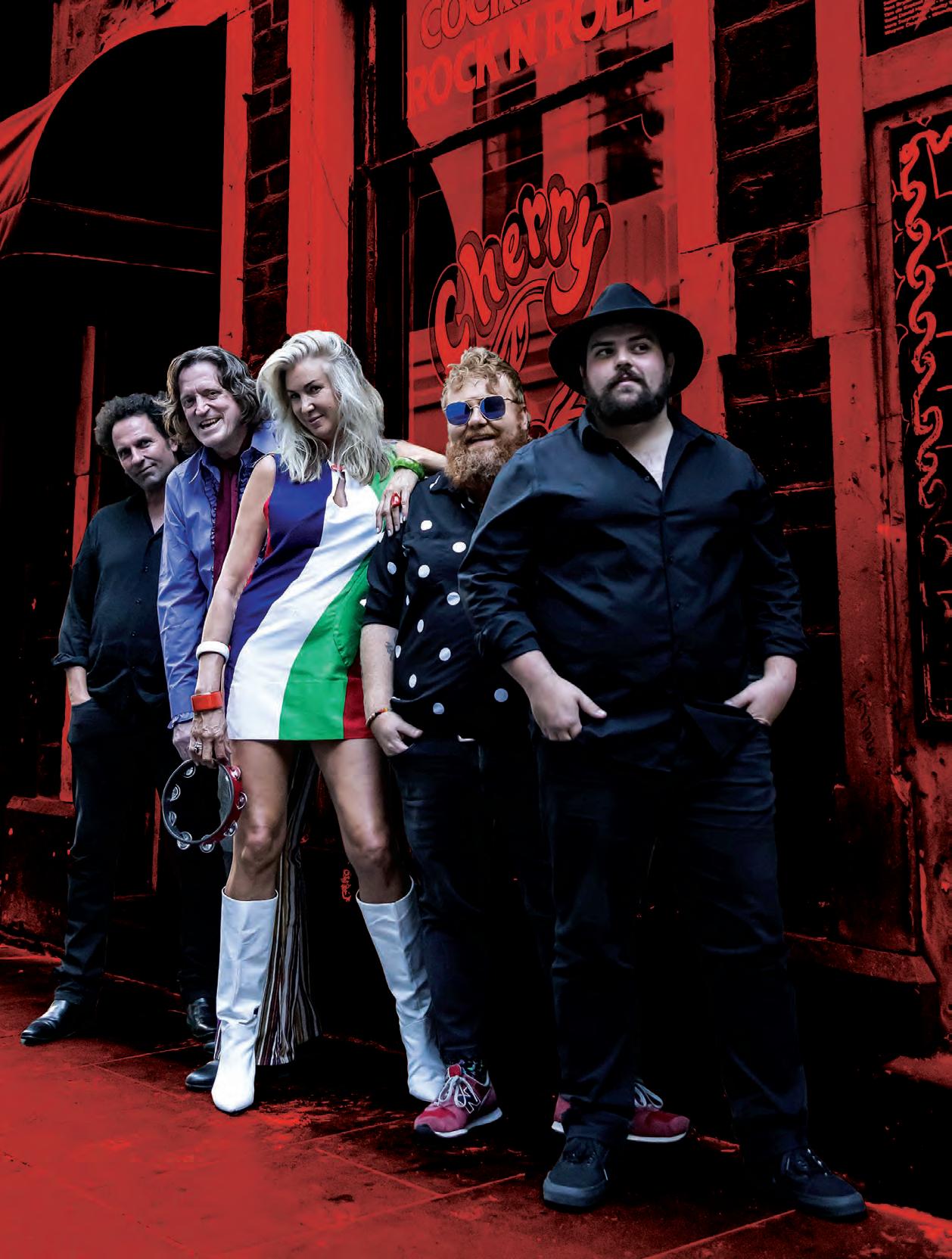
Fri 27 Oct / The Royal Oak / Launceston
Sat 28 Oct / The Republic Bar / Hobart
Sat 11 NOV / Narooma Kinema / NSW
Sat 9 Dec / Twin Towns / Coolangatta / NSW
Sun 10 Dec / Cleveland Sands Hotel / Qld
Sat 16 Dec / The Seaview / Woollgoolga / NSW
Sun 17 Dec / The Hoey Moey / Coffs Harbour / NSW
NEW ALBUM ‘dumb luck’ OUT NOW ON VINYL, CD & DIGITAL
UPFRONT
07 The Word. By Brian Wise.
08 Festival News: Willie Watson returns for Out On The Weekend.
10 The Sampler: We’ve created a monster. It’s our biggest yet.
12
Vale Sam Cutler: By Martin Jones.
14 Robbie Rober tson: The Band leader leaves.
15
Graeme Thomas: Melbourne institution is celebrated.
16 Dashville: NSW’s Americana Feast. By Sam Fell.
18 Groundwater: Bringing country to the Gold Coast. By Steve Bell.
19 Stones’ Disciple: James Young brings back 1973.
20 Nashville Skyline. Anne McCue sees Lucinda Williams.
COVER STORY
20 STILL AT THE WHEEL
After more than 50 years Ray Benson is still driving Asleep At The Wheel and on tour here he’ll have some special guests. By Denise Hylands.
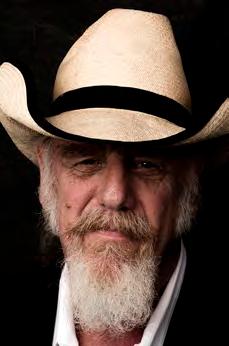
SPECIAL FEATURE
44 THE TOP 50 AUSTRALIAN ROOTS ROCK ALBUMS OF ALL TIME
Ian McFarlane and Brian Wise have had an arm wrestle to devise our comprehensive list.
NEW RELEASES & TOURING
22 A GOLD RECORD
Tracy McNeil and Dan Parsons are Minor Gold. By Steve Bell
23 BUILT TO LAST
Thirty years on this Idaho outfit is still going strong. By Steve Bell.
24 RISING UP
Dan Sultan’s new album also marks a brand new life. By Brian Wise.
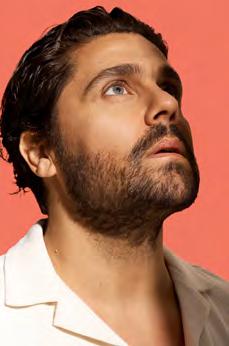
26 THE DAWNING
After playing Glastonbury Fanny Lumsden releases an impressive album. By Bernard Zuel.
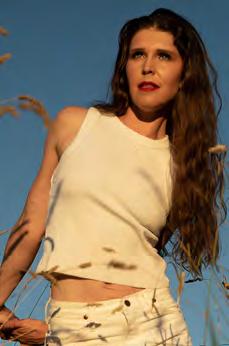
28 MOSSY!
An Aussie legend celebrates 50 years with one of his best albums. By Jeff Jenkins.
Volume No. 319
35 HONKY TONKIN’
Brennen Leigh will be touring with Asleep At The Wheel. By Brian Wise.
36
TIME TRAVEL
Melissa Carper takes us on a trip back into musical history. By Brian Wise.
38 SUMMER TIME
2023
Summer Dean gave up teaching to pursue music. So far so good. By Brian Wise.
40 GET THE MESSAGE
MC Taylor releases a Hiss Golden Messenger album that considers some big issues. By Bernard Zuel.
42
PILGRIM’S PROGRESS
From Nairobi to Minneapolis, Ondara’s journey was inspired by Bob Dylan. By Steve Bell.
56 TOP END JOURNEY
SethJordanvisitstheGarmaFestivalandThe NationalIndigenousAwards.
58 SHAKE SOME ACTION
An extract from Stuart Coupe’s new memoir that celebrates legendary music writer Rob Smyth.
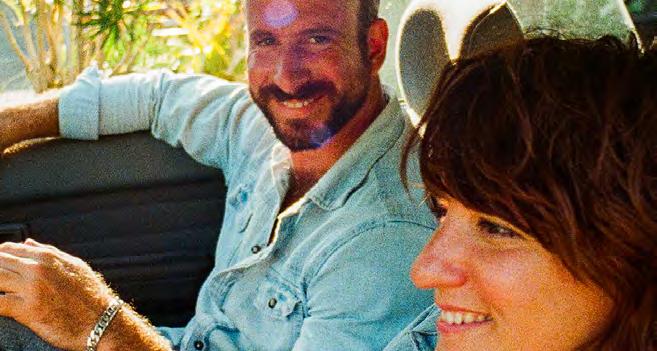
64 FULL COVERAGE
Our own Sam Fell has published a book about the history of rock journalism in Australia.
COLUMNS
67 33 1/3 Revelations: George Benson. By Martin Jones
69 Lost In The Shuffle: Charlie Brown. By Keith
Glass
70 Classic Album: Flying Burrito Brothers. By Billy
Pinnell
71 You Won’t Hear This On Radio. By Trevor
J. Leeden
72 Underwater Is Where The Action Is. By Christopher Hollow
73 Waitin’ Around To Die Essential: New Australian Americana. By Chris Familton.
74 Twang!
By Denise
REVIEWS
Hylands.
75 FEATURE ALBUM REVIEWS: Ray Beadle, Nick Barker, Dana Gehrman, Kevin Borich, Melody Moko, The Soul Movers.
82 GENERAL ALBUMS
87 Blues: By Al Hensley
89 World Music & Folk: By Tony Hillier
91 Vinyl: By Steve Bell
92 Jazz: By Des Cowley.
95 Books 1 The Bee Gees by Bob Stanley. By Des Cowley.
96 Books Too Springsteen’s Nebraska. By Stuart Coupe.
97 Festival Guide Get out your dancing gear.
5
98 Hello & Goodbye By Sue Barrett. September/October
CREDITS






Managing Editor: Brian Wise
Senior Contributor: Martin Jones
Senior Contributors: Michael Goldberg / Stuart Coupe
Design & Layout: Sally Syle - Sally’s Studio
Accounts: Alicia Wise
Website/Online Management: Robert Wise
Proofreading: Gerald McNamara

CONTRIBUTORS
Sue Barrett
Steve Bell
Des Cowley
Stuart Coupe
Meg Crawford
Brett Leigh Dicks
Chris Familton
Samuel J. Fell
Keith Glass
Megan Gnad
Michael Goldberg (San Francisco)
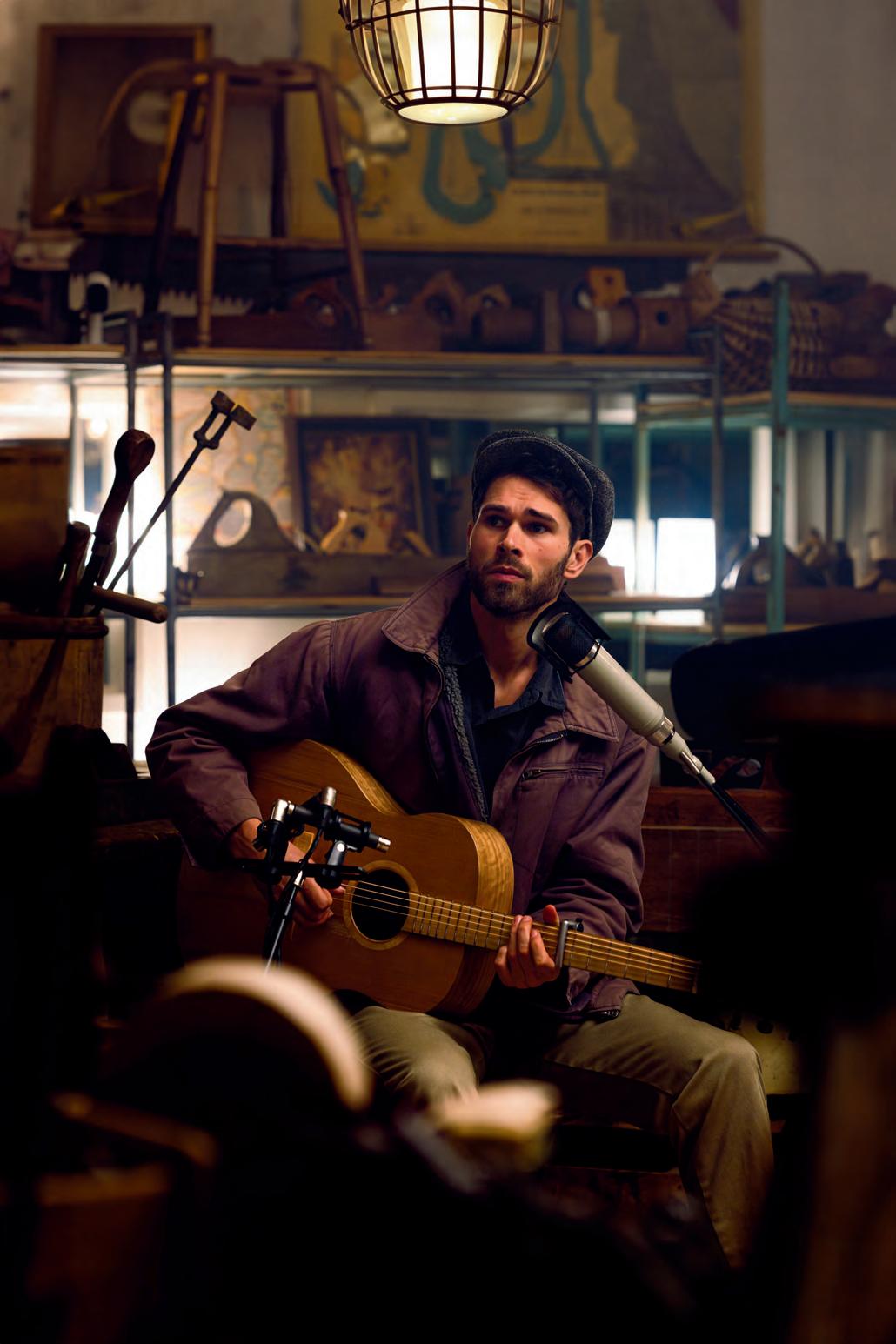
Al Hensley

Tony Hillier
CONTACTS
Christopher Hollow
Denise Hylands
Jeff Jenkins
Martin Jones
Chris Lambie
Trevor J. Leeden
Warwick McFadyen
Ian McFarlane
Anne McCue (Nashville)
Billy Pinnell
Jo Roberts
Michael Smith
Bernard Zuel
Advertising: admin@rhythms.com.au
Festival Coverage Contact: admin@rhythms.com.au

Rates/Specs/Deadlines: bookings@rhythms.com.au
Subscription Enquiries: subscriber@rhythms.com.au

General Enquiries: admin@rhythms.com.au
SOCIALS
Facebook: facebook.com/rhythms.magazine
Twitter: twitter.com/rhythmsmag
Instagram: instagram.com/rhythmsmagazine
PUBLISHER
RHYTHMS MAGAZINE PTY LTD
PO BOX 5060 HUGHESDALE VIC 3166
Printing: Spotpress Pty Ltd
Distribution: Wrapaway

'SPIRAL BOUND' OUT 14-09-23 ERNEST AINES www.ernestaines.com ALBUM LAUNCH 22 SEPT 1 OCT 7 OCT 14 DEC 28 OCT SQUARELEMONPR PRESENTS DEBUT ALBUM TOUR TICKETS VIA
6
Spring has arrived in Australia and with it the promise of warmer weather down south and music festivals aplenty. We are looking forward to Out On The Weekend in Victoria, Dashville in New South Wales and other events further afield including the Gold Coast. You will see the coverage of some of the artists and festivals in this edition.
Before most of those events get underway, we will be heading to Nashville for the Americana Music Festival & Conference. We would like to welcome any readers over there to this unique magazine. We will be distributing special download cards and samples of the magazine to kindred spirits and spreading the word. Our trip prompted us to revive the debate about the exact nature of Americana. It might seem obvious to you, but when Ian McFarlane and myself decided to come up with a list – as we did earlier in the year for essential Australian blues albums – the task was a lot more difficult than it seemed.
First, should we use the term ‘Americana’ when for its entire existence Rhythms has been promoting itself as covering ‘roots’ music? For many years when Jim Lauderdale was hosting the Awards & Honors ceremony at The Ryman Auditorium, he would define Americana as ‘all the good stuff.’ We know exactly what Jim means but does it apply to the Australasian context?
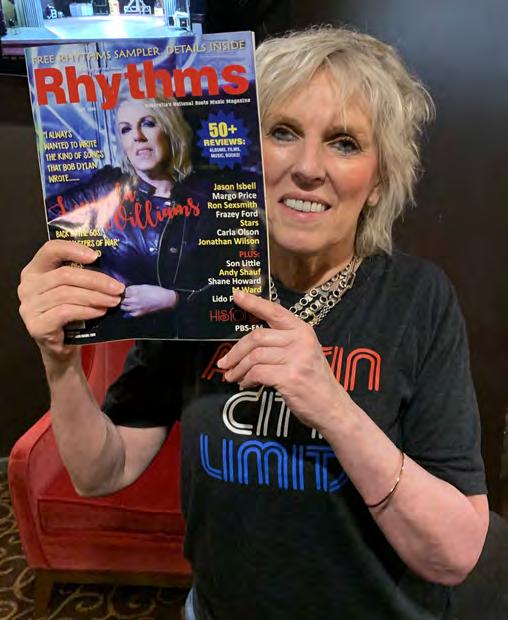
If only we could use the term Australiana. That might have helped a little but for the fact that ‘Australiana’ was also the title of a huge comedy hit single here in the 80s and it somewhat colours the title for anyone over the age of 40! Some years ago, Richard Thompson won an Americana award and
remarked on stage how odd that was, especially as the British folk music that he had been playing for decades was one of the building blocks of what Americana has become. The ‘genre,’ if it can be called that now, incorporates soul, R&B and blues (all the good stuff, of course). I have always paid credit to the Americana Music Association for its brilliant marketing and promotion of Americana and when you look at the list of artists who appear on their awards show and in their festival it is hard to go wrong with such a quality line-up.
But Americana was not the term that we wanted to use for this list, although we are confident that all of the albums we have chosen would fit under that umbrella. So, we decided to use our trusty old label ‘roots’ and combine it with ‘rock’ to describe what Australian acts have been doing over the decades. Ian and I reckon The Dingoes were the equal of anything from overseas and would have been massive in America but for Lynyrd Skynyrd. (Look it up!).
Of course, the Rhythms Top 50 Roots Rock Albums is only our list (with the advice from
some Rhythms correspondents). We welcome you to add to it. There were a couple of recommendations that were so obscure that we couldn’t find much information at all about the albums, let alone get to hear them! Maybe they will make the next one. There were a couple of last-minute additions when I woke up in the middle of the night with sweaty palms crying out, ‘Oh my god, how could I have forgotten that!’
We hope you enjoy the list and invite your contributions. Please check out the Rhythms website for the link to a playlist where you can listen to many of the selections. If you are a newcomer to Rhythms, or Australian music in general, then please explore the albums on our list.
You will notice that this is another bumper edition and packed with musical goodness. We have produced the biggest download card ever included with the magazine and it is a mighty selection of contemporary music from musicians appearing at festivals and touring to new artists on the verge of a career. The best way to support these musicians is to visit their website or Bandcamp page and buy their music.
We also thank the record companies and musicians who have donated the tracks for our sampler. For subscribers we will have a very special present that Santa will be putting in your stocking later this year. Thanks also to all our advertisers for your support. Finally, thanks most of all to our subscribers. You are the lifeblood of the magazine. Until next issue, enjoy the music.
Brian Wise Editor
7
Lucinda Williams
IT’S JUST LIKE OLD TIMES AGAIN
Two modern folk musicians are teaming up to appear at Out On The Weekend and tour together. By
Willie Watson has been making modern folk music rooted in older traditions for more than two decades. He’s a folksinger but bridges the gap between the past and present, delving into Southern gospel, railroad songs, Delta blues, Irish fiddle tunes and Appalachian music. After co-founding Old Crow Medicine Show he went onto to his own solo career pursuing the music he loved. His latest album Folksinger Vol.2 was produced by David Rawlings and released in 2017 - the last time we saw Watson here - on Rawlings’ and Gillian Welch’s Acony Records. After that he then went on to explore the movies, playing The Kid in the Coen Brother’s film The Ballad of Buster Scruggs where he sang the Oscar-nominated song ‘When A Cowboy Trades His Spurs for Wings’.
The good news is that Watson is returning and while he might not have a new album of his he has just appeared on Jubilee, the new album from his old band Old Crow Medicine Show celebrating the outfits 25th anniversary. The song ‘Miles Away’ features vocals from Watson (a co-founder of the group) and an appearance from Molly Tuttle. “This is one of those rear-view songs where objects in the mirror are closer than they appear,” says Old Crow leader Ketch Secor. “25 years of making music on the road means you’re always coming back to the same places as a different person; there’s a reminder of your past self and the choices you made back when. Molly Tuttle and I wrote this one together and when it was through, I asked my Old Crow co-founder Willie Watson to make his first appearance on an Old Crow record in years. After all, this is a song about amends, of bygones being bygones, and of renewal.”
The song marks the first time Willie Watson has recorded with Old Crow Medicine Show
in over 10 years. He will hit the road with the band after his Australian tour performing as an opening act in addition to joining them on stage.
“Some of the lines in there are very specific and no one’s going to know what he’s talking about other than me and Ketch,” says Watson. “I like everything about the song. It feels good. It kind of feels like something we would work on together back in the old days. Rather than having a conversation, put it in a song, and he knows I’ll understand that as well. So, it’s a great way to talk.”
“If anything was different, we might not be where we are,” he adds. “So, we wouldn’t change a thing. That’s how I look at it. Things are hard in a band for a long time. It’s a crazy relationship unlike anything else. It’s a really intense relationship. So, no matter how hard those things were, I would still go and do them all the same exact way, because of the way my life is right now.”
Watson hasn’t released a solo album for more than five years, but he reveals that he has been working with a co-writer and he has also been involved in another projected he is excited about that he recorded in Nashville with Gabe Witcher from the Punch Brothers and Kenneth Pattengale from the Milk Carton Kids. It is due to come out next year.
“It was awesome,” says Watson. “I think we put together the best band. It’s so cool. We got all kinds of just the best musicians the world has to offer. I thought coming from Old Crow Medicine show was this pretty special band that made it sound like no other band.
It was one of those cool cosmic things.”
Mining much of the same old timey field as Willie but with a much stronger pre-war blues influence, Kentucky’s Nat Myers will
 Denise Hylands
Denise Hylands
be accompanying him on tour and also appearing at Out On The Weekend
“We’ve toured together and he’s cool,” says Watson of Myers. “He’s a friend and he’s coming up right now and playing really good blues guitar, like those old Delta blue guys were doing. So, I’m super happy that he’s getting some attention and that people are tuning into him.”
Discovered by Black Keys front man and Easy Eye Sound Records’ owner Dan Auerbach, Myers is an authentic new blues voice, an Asian-American who has found a voice for himself in the African-American musical traditions. The title track of Myers’ debut album, Yellow Peril, addresses the persecution of Asian-American communities in the years after hysteria about ‘the Chinese virus’ was whipped up by one Presidential campaign loser.
Myers’ story started in Kansas but moved to West Tennessee and then Northern Kentucky in his early years. While he played guitar, he really had a love of poetry and didn’t initially see himself as being a full-time musician. Then, during Covid, after putting some videos of his performances on social media he was discovered by Black Key’s front man Dan Auerbach and invited to Nashville where he wrote with Pat McLaughlin and Alvin Youngblood Hart and recorded at a studio built in Auerbach’s house.
Yellow Peril will definitely appeal to fans of the early Ry Cooder albums where the guitarist helped bring more attention to traditional blues forms, which is exactly what is happening here.
Willie Watson and Nat Myers will be appearing at Out On The Weekend and doing other dates around Australia.
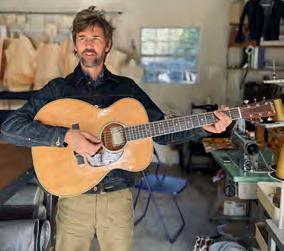
8 SIC U M NE SW
Celebrating 10 years of country music
20-22 october, 2023
FULL LINEUP (A-Z)
ADAM HARVEY & BECCY COLE
AMBER LAWRENCE ASLEEP AT THE WHEEL
BILLIE-JO PORTER BLAKE O ' CONNOR BO ' NESS
CAITLIN HARNETT & THE PONY BOYS
CAITLYN SHADBOLT CASEY BARNES CHLOE STYLER
DJ COLONEL ' S COUNTRY MUSIC COTTAGE
DOUG BRUCE AND THE TAILGATERS
GEORGIA STATE LINE HAYSTACK MOUNTAIN HERMITS
HINTERLAND HURRICANE FALL HUTCH JACKSON DEAN
LEE KERNAGHAN LOREN RYAN 2023 STAR MAKER
MATT CORNELL MELISSA CARPER MELODY MOKO
PETE CULLEN AND THE HURT RHINESTONED
ROUND MOUNTAIN GIRLS ROUTE 33 SARA BERKI
SUMMER DEAN THE DUNGAREES THE PINK STONES
THE PLEASURES THE WEEPING WILLOWS
THE WOLFE BROTHERS TORI FORSYTH
TYLA RODRIGUES BAND VIXENS OF FALL
9
Gaering
Kombumei land
e
Gold Coast
SUPPORT PARTNERS CHARITY PARTNER
SIDE A
1. Takayama (Single)
Goanna (Released for the campaign to save The Tarkine Rainforest,Tasmania).
2. Yellow Peril
Nat Myers (From the Easy Eye album: Yellow Peril). See him at Out On The Weekend and elsewhere in October.
3. Texas, Texas, Texas, Melissa Carper (From: Ramblin’ Soul)
4. Clean Up Your Act If You Wanna Talk Dirty To Me Summer Dean (From: The Biggest Life). See Summer at Out On The Weekend and elsewhere in October
5. California Cowboy
Jenny Don’t & The Spurs (From: Fire On The Ridge)
6. Who’s Laughing Now? Pink Stones (From: Who’s Laughing Now?)
7. Samson And Delilah Willie Watson and The Fairfield Four (From: Folksinger Vol.2)
8. I Have Been Fighting For Freedom (Ft Naomi Pigram) The Freedom Collective (From: Songs For Freedom album (Big hART/ Remote Control). Live shows in Sydney, Canberra, Melbourne and Roebourne in September!
9. St Patrick & St Michael (Single) Dan Warner
10. Anxiety Stephen Cummings (New single version of track from 100 Years From Now) (Courtesy of Cheersquad Records & Tapes)
11. I Listen To The Night
Matt Walker (From: I Listen To The Night, now re-released on vinyl)
12. Killing Time Checkerboard Lounge (From: New album Rollercoaster out November 10)
13. Broken Soul Movers (From: Dumb Luck out now)
14. Hot Cola
Marcel Borrack (From: Telecaster Diaries album out now)
Welcome to the massive Rhythms Sampler No.25 which will introduce you to a whole new world of music. This issue’s sampler is ONLY available to all print plus print & digital subscribers but will also be available to attendees at the Americana Music Festival & Conference in Nashville (thanks to Sounds Australia) to show them what a great music scene we have here in Australia.
Simply SCAN THE QR CODE on the card enclosed with the copy of your magazine and download the music to your phone, device, computer music app. (If you are uncertain how to do this please consult the nearest teenager). Note: Does not work on an abacus! Thank you to all the musicians and record companies that have donated songs. Thank you also to all the subscribers who have made this possible. You can find out lots more about the selections by going to rhythms.com.au
15.Coffee Song
Patrick Wilson (From: It’ll Be Alright out Sep 29)
16. Chase The Wind Meghan Maike (From: Dead Horse Creek out Oct 27)
17. Alamein Line Wesley Fuller (From: All Fuller No Filler out early 2024)
18. I’ll Never Forgive You David M. Western (From: On, On & On out Oct 20)
19. Pig Rocket Science (From: Push Play out Sep 22)
20. Sun Don’t Shine
Persecution Blues (From: Downright Dirty out Oct 6)
21. Could You Would You Rinehearts (From: Full Bloom out Oct 13)
22. To Be True
Stephanie Cherote
23. Home Fires Small Town Romance (Single)
24. Too Young To Die M.Ward with FirstAid Kit (From: Supernatural Thing)
25. Naturally Boony Doon (From: Let There Be Music)
26. Tumbleweed
Minor Gold (From: Minor Gold)
27. Easy To Slip Dana Gehrman (From: Down In Hollywood)
SIDE B
28. Homewreckers
The Pleasures (From: The Beginning of The End)
29. Go Anywhere Hunter Valley’s Cosmic Country Outfit (From: Magpie Diaries)
30. Knockin’ (Single) MJ Lenderman
31. Tail Tale
Ernest Aines (From: Spiral Bound)
32. The Feast Of St John
Glen Hansard (From: All That Was West of Me Now)
33. Donna Pat Todd & The Rankoutsiders (From: Sons of The City Ditch)
34. Spaceship
Ashley Naylor (From: New instrumental solo album, out November. El Reno Music album Soundtracks Vol.2)
35. Hickock’s Curse
Ronson Hangup (From: Forthcoming album Centaurus from Melbourne outfit fronted by Steve Pinkerton (ex-Anyones) and Ashley Naylor.
36. Not Another Coal Mine Radio Beatnik Preachers (From: Jazz Is Not A Dirty Word)
37. All My Friends Are Gonna Be Strangers
Justin & The Cosmics (From: Cool Dead, Courtesy of Love Police Records)
38. Broken Land
Neil Murray (From: The Telling). Touring until December.
39. The Devil In Me
The Casanovas (From the Rubber Records album Backseat Rhythms).

40. Do You Care?
Young Modern
(From: It’s Automatic: The Best of Young Modern) (Half A Cow Records)
41. I’ll Get By Caitlin Harnett & The Pony Boys
42. Run
Patrick Wilson
Ange Boxhall (From: Skipping Stone)
43. I’ll Never Forgive You
David M Western (Cheersquad Records & Tapes) From his forthcoming 2nd album On, On & On which will be out this October 20.
44. The Regicide of Daniel Ek Made No Sound D.C. CROSS (darrencross.bandcamp.com)
45. Line In The Water
Michael Menager (From: Line In The Water)
46. Newton’s Theory
Pinkerton Pendlebury
From the forthcoming self-titled album from Steve Pinkerton (ex-Anyones) and the legendary Andrew Pendlebury!
47. Without You
Andre Warhurst (From: This Is Andre Warhurst)
48. Illbingini (When The Water Goes Down)
David Garnham & The Reasons To Live ft. Stuart Joel Nuggett (First song from The Jingili Song Project)
49. Slow To Trust
Clinton Wilson (From: L.A.)
50. The Circus (Has Moved On) Les Thomas (From: All My Friends Are Superstars).
51. Bound To Get The Blues
Ray Beadle (From: Bound To Get The Blues)
52. Heart Like This (Single)
Hannah Gillespie
53. Moss Man
Mikhall Laxton (From: End of The Road)
54. Little Green Man
Angus Gill & Seasons of Change (From: Departure & Arrival)
55. How Long (Single)
Tom Harrison
10 IT’S OUR
SAMPLER!
PLEASE SUBSCRIBE HERE
PLEASE FILL IN ALL THE DETAILS
Yes! I would like to subscribe to Rhythms for: me a gift

LET’S GET THIS ROCKIN’ WITH A:
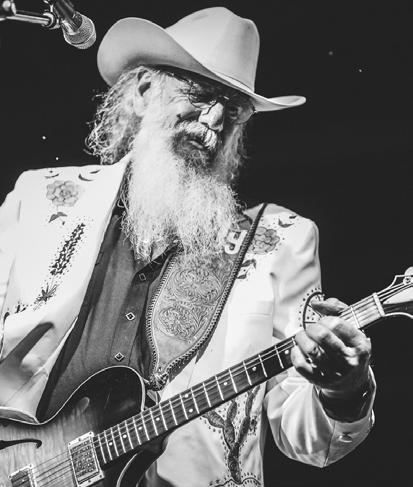
PRINT SUBSCRIPTION $65.00


Please fill in the form below with your details, or purchase online.
DIGITAL SUBSCRIPTION $40.00 - 1 year of the Rhythms Magazine Digital Subscription.

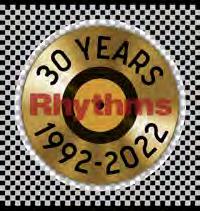
PRIGITAL SUBSCRIPTION
Fill in the below form, or purchase online. PLUS 1 year of the Rhythms Magazine Digital Subscription.
Payment Details
My cheque/money order for $ is enclosed. or bill my mastercard visa Card no. / / /
CVC / / / (3 digit number on the back of card)

Expiry Date
Cardholder’s name (please print)
Easy ordering options:
Shop securely online: www.rhythms.com.au/subscribe
Post this order to: Rhythms PO Box 5060, Hughesdale VIC 3166
MY DETAILS
Mr/Mrs/Ms/Miss
Name
Address
Suburb/Town Postcode
Email
(Please supply email and phone number in case there is a problem)
GIFT RECIPIENT DETAILS
Mr/Mrs/Ms/Miss
Name Address
Suburb/Town Postcode Email
Please have card read “from “
THE FINER DETAILS: PLEASE MAKE A CHEQUE OR MONEY ORDER PAYABLE TO ‘RHYTHMS MAGAZINE’. PRICING INCLUDES SHIPPING WITHIN AUSTRALIA ONLY. FOR INTERNATIONAL ORDERS AND FULL TERMS AND CONDITIONS PLEASE SEE OUR WEBSITE OR CONTACT US FOR MORE INFO AT: SUBSCRIBER@RHYTHMS.COM.AU
11 FREE SUBSCRIBER MUSIC DOWNLOAD CARD $15.00 inc GST SEPTEMBER/OCTOBER 2023 ISSUE: 319
PLUS: Out On The Weekend Dashville Skyline Melissa Carper Brennen Leigh Hiss Golden Messenger Ondara Summer Dean PLUS Fanny Lumsden Ian Moss Dan Sultan HISTORY TOP 50 AUSTRALIAN ROOTS ROCK ALBUMS Shake Some Action Full Coverage SEPTEMBER/OCTOBER 2023 RHYTHMS DOWNLOAD SAMPLER #25 Subscribe to Rhythms Print or Print & Digital today and you will receive our regular download music samplers. The next one in July/August is going to be a ripper! Don’t miss out. AVAILABLE ONLY TO PRINT AND PRINT + DIGITAL SUBSCRIBERS GO TO: rhythms.com.au/subscribe
“All of a sudden you look back and you go, Oh my God, we covered a lot of ground.”
VALE SAM CUTLER 1943-2023
By Martin Jones
Sam Cutler left his business card for me at the Rhythms desk at Bluesfest one year. He wanted to write something for the magazine. Where had I heard that name? Altamont! Melbourne band Black Cab had just enlisted Cutler for a voiceover for their Altamont Diary record. The infamous ex-tour manager for the Rolling Stones and the Grateful Dead was walking amongst us in Australia. And he wanted to write for Rhythms!
As Editor, I was sceptical, but it turned out Cutler could not only write, he had something interesting to say, and his Rhythms column View From The Bus was born. Like the veteran tour manager he was, Cutler always showed up in person for his column payment – in cash. (Sometimes before he had actually written it!).
What invariably ensued was an engaging hour-long conversation in the backyard of the Rhythms office over coffee. Though I recall those conversations with great affection, I can’t really remember what they were about. I do remember avoiding talking about the Stones and the Dead as much as possible; I figured he’d been asked those questions way too many times. Cutler was deeply influenced by Buddhism and his philosophical energy and irrepressible good humour always left an impression.
At the time he approached Rhythms, Cutler’s autobiography had just been published You Can’t Always Get What You Want – My Life With the Rolling Stones, the Grateful Dead and Other Wonderful Reprobates. After shouldering an unjust portion of the blame for the apocalypse at the Rolling Stones’ Altamont concert for so long, Cutler finally put his version of events down on paper. And what a story it is! Though he was a tour manager for less than a decade, he happened to find himself at the centre some of rock history’s most momentous events in a period of tectonic cultural shift.
“Talk about three strikes and you’re out!” Cutler began his memoir. “In the blood of my veins I was Irish, Gypsy, and Jew!
“These three persecuted races commingled in me and were the perfect combination for a career in the entertainment industry….”
Before he’d even left school, Cutler knew he wanted to be involved in music.
“The music business, I assured myself, was made for me,” he wrote. “It valued those golden attributes with which I had fortunately been born –native cunning, a measure of charm, the balls of King Kong, and more front than Brighton.”
Cutler became involved with the late ‘60s psychedelic London scene and befriended the members of Pink Floyd (Nick Mason even helped record Cutler’s one and only band, Screw). Mason and Rick Wright introduced Cutler to Andrew King and the Blackhill management company and he soon found himself helping to organise the massive outdoor free concerts in Hyde Park, hosting Fleetwood Mac, Pink Floyd, Blind Faith, etc. It was there that Cutler met Mick Jagger, who wanted to use the Hyde Park format to introduce their new guitarist Mick Taylor.
In a matter of weeks, Cutler, at 23 years of age, found himself ensconced in Stephen Stills’ Hollywood mansion, surrounded by beautiful girls, watching Gram Parsons and Keith Richards share country songs around the grand piano, and employed as Tour Manager of the Rolling Stones 1969 US tour! At the final pre-tour rehearsal Cutler asked one of the girls watching the band for her opinion. The girl gushed, “Oh, they’re the greatest rock ’n’ roll band in the world!” When unexpectedly pressed to introduce the Stones’ on stage, it was those now infamous words that popped into his head.
If Cutler thought all his dreams had come true, they were soon to turn into nightmares as the bizarre tale of the free Altamont concert began to unravel. Faced by accusations that they were ripping off the public with exorbitant ticket prices, the Stones were persuaded that staging a free concert as a grand finale would be a good idea. As Cutler recalled, all kinds of shady individuals, government figures and mafia connections became involved and the event was largely removed from his control. After other potential sites for the concert fell through, the Altamont Speedway site was a last-minute choice which, according to Cutler, none of the Stones team approved or even saw.

12
SIC U M NE SW
“I finally met up with Keith at Altamont on Friday afternoon and I was appalled by what I saw,” Cutler wrote. “The place was an absolute shithole, the worst possible spot for a concert one could imagine.” Things went from bad to worse as thousands of gathering people drinking and taking drugs began fighting and burning whatever they could find without enough security or police to help.
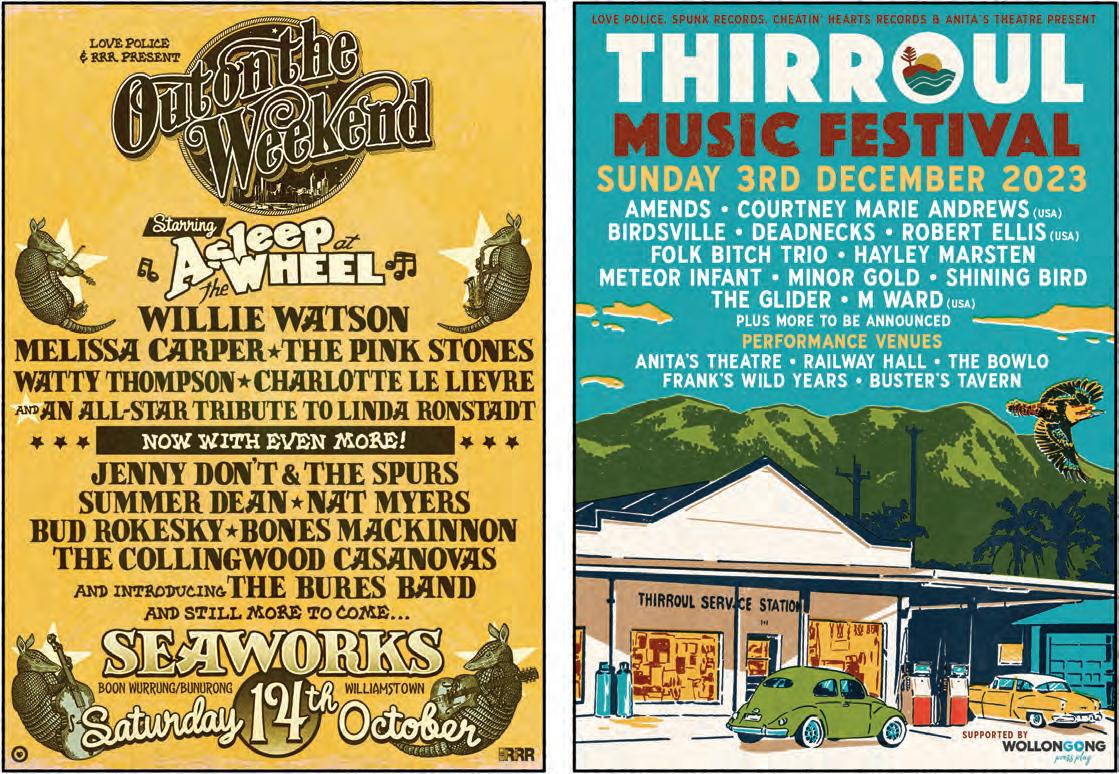
Cutler was terrified. “The ‘peace and love’ my generation had so assiduously promised as the antidote to the violence and hypocrisy of ‘straight’ society was a hollow miasma. This was not a community intent on caring for and loving one another. Before me was the ugly truth of what we had collectively wrought, manifested in greed, blood, drug overdoses, spilled guts and hatred. The peace and love generation was busy smashing itself to bits. Welcome to America, sucker!”
As the violence escalated, Cutler recalled all the security, police and anyone who’d anything to do with organising the festival fled, leaving the Hells Angels as the only thing between the crowd and the stage. Cutler watched Meredith Hunter brandish a pistol at the front of the stage only to be taken down and stabbed to death by members of the Angels. Cutler quickly gathered the Stones members from the stage and helped them escape in a waiting helicopter. For some reason he agreed to stay behind in the USA and deal with the fallout while the band fled back to Europe.
“Mick agreed and promised that the band would pay my legal expenses and ‘cover my arse’,” Cutler wrote. “Within the hour, everyone but me had left for Europe. It would be years before I would see any of them again.”
In the cold light of day, Cutler realised he might be in serious danger and fled for the ranch of Grateful Dead drummer Mickey Hart to hide out. Jerry Garcia listened to Cutler’s plight and offered his place as a refuge, leading to what would be a wild four-year adventure in the Dead’s management team, including the notorious Festival Express train tour.
As the Altamont prosecutions simmered away in the background, Cutler secured some professional investigation into some of the shady figures who’d taken over the disastrous concert. He began to form theories that the FBI were closely involved and, in his book, accused them of distributing the laced yellow acid pills that sent the crowd crazy: “They were intended not to get people high, but to fuck them up and discredit the counterculture.”
“Some dark forces were now at work in the marketing of music,” he concluded. “Music was being taken over by gangsters and major corporations, and any idealism was fast being eroded in the search for big bucks.”
Even the Grateful Dead, the very antithesis of such commercialism, were not immune to its corruption and when, after pulling the Grateful Dead out of bankruptcy, Cutler was accused of stealing money from them, he walked out the door and never looked back.
Having witnessed so much in such a brief period, it’s not surprising Cutler “dropped out,” travelling the world, searching for spiritual inspiration, and working on his writing. When I met him, he was full of ideas; I still have copies of a 1970s transcript of him dealing with an Australian promoter keen to tour the Dead in Australia which we were going to publish, and a draft of his novel where James Bond had disgraced himself and was hiding out in Bangalow!
Cutler was living in a Toyota Coaster bus, parking it on friends’ properties around Byron Bay, determined to be free and unencumbered. His plans were soon waylaid. He fell in love and got married (I recall being introduced as his ‘financial adviser’ at the wedding!!) and then was diagnosed with cancer, which forced him to move to Brisbane to be closer to the hospital and to his sons Bodhi and Chesley.
Cutler had been fighting cancer for a decade when he died on July 11 at 80 years of age.
Guitarist-songwriter-singer Robbie Robertson, leader of the Canadian American group The Band, who toured and recorded with Bob Dylan and worked on film soundtracks with Martin Scorsese, died at the age of 80 on Wednesday August 9 in Los Angeles after a long illness.
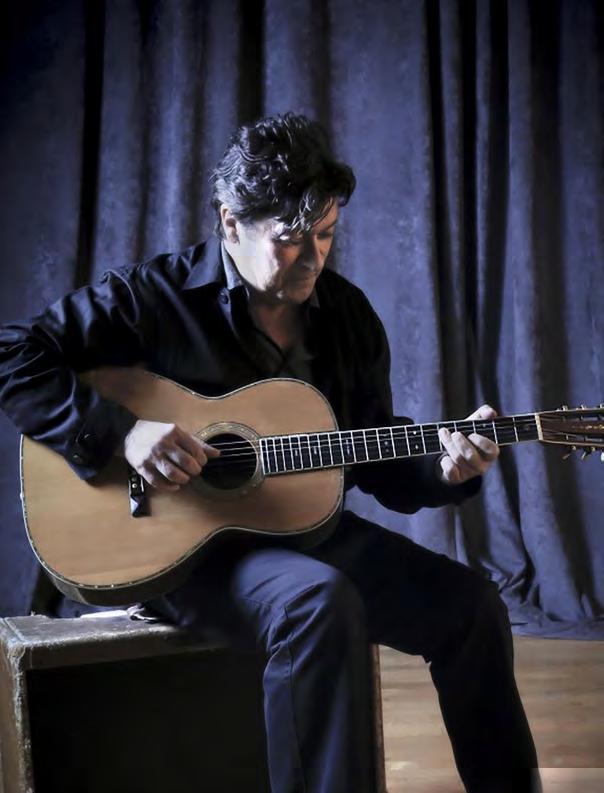
Robertson was lead guitarist for Bob Dylan in the mid-to-late 1960s and early-to-mid 1970s, as well as lead guitarist and main songwriter with The Band from their inception until 1976, and also a solo artist with six of his own albums and more than 10 projects related to film music and soundtracks with Martin Scorsese.
Apart from his ground-breaking work with Dylan, Robertson is best known for the classic songs he wrote for The Band, including ‘The Weight’, ‘Up on Cripple Creek’, ‘The Night They Drove Old Dixie Down,’ ‘The Shape I’m In’ and ‘It Makes No Difference.’ The story of his time with The Band was shown in the 2019 documentary Once Were Brothers. Robertson’s work with The Band was essential in helping to create what became known as the Americana music genre. He was inducted into the Rock and Roll Hall of Fame and the Canadian Music Hall of Fame as a member of The Band, and into Canada’s Walk of Fame, with The Band and on his own. He was inducted into the Canadian Songwriters Hall of Fame and received a Lifetime Achievement Award from the National Academy of Songwriters.
After the Band’s 1976 farewell concert The Last Waltz was filmed by Martin Scorsese, Robertson worked with the director as composer, music supervisor, and music producer starting in 1980 on films including Raging Bull, The King of Comedy, The Color of Money, Gangs of New York, The Departed, Shutter Island, The Wolf of Wall Street, Silence, The Irishman and Killers of the Flower Moon (due to screen this October).
Born Jaime Royal Robertson in Toronto on July 5, 1943, his mother was of the Cayuga and Mohawk tribes and he spent much of his time at the Six Nations of the Grand River reserve southwest of Toronto.
Robertson became interested in playing music as a child after hearing US radio stations. As a teenager, he briefly worked in touring carnivals; the experience would serve as the basis for the film Carny and the song ‘Life is a Carnival’ (with The Band).
Robertson played with a number of local bands before coming to the attention of Arkansas-born touring bluesman Ronnie Hawkins, whose band The Hawks he was to join which introduced him to Arkansas drummer Levon Helm and eventually with fellow Canadians Rick Danko, Richard Manuel and Garth Hudson. After touring and recording with Hawkins the musicians decided to play and record their own music under the banner of Levon & The Hawks (and this line-up later became The Band). After meeting blues artist John Hammond Jr while he was performing in Toronto in 1964 they agreed to work on his solo album So Many Roads (1965). Robertson then received a call from Albert Grossman Management requesting a meeting with singer Bob Dylan which later led to Dylan hiring the Hawks as his backing band and they joined him on his famous and controversial 1966 world tour (minus Levon Helm (who later rejoined the group).
Following the tour and Dylan’s motorcycle accident after which he went into seclusion in Woodstock, the members of the band joined him to record at the home studio, Big Pink, what was to be released later as The Basement Tapes. After Dylan left to finish recording John Wesley Harding (1967) the group went to New York to record their own songs with music producer John Simon. The album, Music from Big Pink, was released in August 1968, with four of the songs written by Robertson.
The follow-up album titled The Band was released in 1969 and with songs such as ‘Up on Cripple Creek’ and ‘The Night They Drove Old Dixie Down’ reached No. 9 on the album chart and the group became the first American rock act to be featured on the cover of Time magazine. Todd Rundgren engineered the album Stage Fright, which became the Band’s highest charting album in September 1970. This was followed by the classic live set Rock of Ages (1972), recorded at New York’s Academy of Music, then Cahoots in October 1971 (with its cover of Bob Dylan’s ‘When I Paint My Masterpiece’). The covers album Moondog Matinee was released in October 1973 after which they recorded Planet Waves with Dylan.
Northern Lights, Southern Cross with eight Robertson compositions was The Band’s swansong in November 1975. After their tour in 1976 Robertson decided to wind-up The Band with a grand finale concert in San Francisco, which featured a star-studded line-up of guests and was filmed by Martin Scorsese and later released as The Last Waltz After the demise of The Band, Robertson continued his association with Scorsese and worked on many of his films over the decades, right up to this year. Robertson released only 6 solo albums since 1987 with the most notable being Storyville in 1991 inspired by and partly recorded in New Orleans.
Robertson spoke to Rhythms Editor Brian Wise in 2011 about the album How To Become Clairvoyant. When asked if he would be doing any touring to promote the album Robertson replied: “You know I don’t do that anymore, I haven’t toured since The Last Waltz and I made a big statement at that movie thinking I was leaving the road behind because I really felt it was terrific when I was young. I really felt that but it’s a young man’s game. I started when I was so young playing professionally on the road day in and day out. I felt like I discovered what that was and so I don’t know. Getting on a bus is what scares me.”
14
SIC U M NE SW
A TRIBUTE TO GRAEME THOMAS SIC U
On Sunday 29 October, the inaugural Eighty-Six Festival, which takes place in the inner-Northern Melbourne suburbs of Northcote, Thornbury, and Preston, and which is named after the tramline that goes up High Street, presents a tribute to a local music hero.
Graeme Thomas, who passed away on November 7, 2022, was the founder of Preston Records and Preston Studios and a member of many of Melbourne’s finest rockabilly and roots bands of the ‘80s and ‘90s.

Graeme recorded the cream of Melbourne’s rockabilly, Western Swing and vintage blues outfits – including the Rockabilly Rebels, the Straight 8’s, the Dancehall Racketeers and the Paramount Trio through to Benny & The Fly-By-Nighters and Ezra Lee – as well as ‘60s-inspired outfits like the Shindiggers and the Breadmakers, and even alt-country pioneers Acuff’s Rose. In 2008 local band The Sweet Lowdowns won the Best Classic Jazz Album Bell Award for an album recorded at Preston by Graeme.
Graeme also recorded at Preston early works by Chris Wilson’s Crown of Thorns, Vika Bull (in Sophisticated Boom Boom), Lisa Miller (in The Whole Shebang) and Kerri Simpson (in The Five Aces) in his legendary 2-track studio.
Graeme became known for the authentic and vibrant sound he achieved on tape, and amassed an international following in rockabilly and vintage rock’n’roll circles. Upon hearing of Graeme’s passing, revered American vintage/retro guitarist/rocker Deke Dickerson, who had also recorded with Graeme at Preston, posted: “When Graeme was feeling good and his equipment was working right, he was capable of amazing sonic sculptures. If he wanted to make it sound like Sun Records 1957, he could do it—you’d swear you were listening to records made in Memphis sixty years ago. I heard Western swing recordings he produced that sounded like they could have been Bob Wills outtakes. He was an amazing engineer and producer with a great ear and a unique vision that he completely realized before he passed.”
Following Graeme’s passing, many of his friends and colleagues paid tribute to Graeme in the pages of The Big Beat of the ‘50s, the official publication of the Australian Rock’n’Roll Appreciation Society.
Graeme William Thomas was born on April 10, 1961, in Coburg, Victoria. According to his brother Peter, Graeme attended Preston Tech where he learnt to read music and played trumpet in the school Big Band and when he was 15 he took up electric Bass to play with school friends in a 50/50’ band, Quicksilver. Graeme left school to take up a draftsman apprenticeship with Telecom.
Growing up in the early 70’s, Graeme found the sounds of 50’s rock’n’roll excited him and that the legendary record store Hound Dogs Bop Shop introduced him to a network of musicians. Obsessed with the slap bass sound he used ‘Bluegrass Bass’instruction book from Allens, aged 16, and taught himself the ‘obscure’ world of single, double and triple slapping the Bass.
Graeme was offered a spot in Tommy McKail and The T-Birds and even appeared on Bert Newton’s New Faces doing ‘20 Flight Rock’. He joined the Rockabilly Rebels (‘78/‘79) when he was 17 and over the next three decades played bass (double and electric), and later guitar, with the Dancehall Racketeers, The Straight 8s, The Hot Dogs, The Ducktails, Moment of Truth, Speedy and The Locos, Priscilla’s Nightmare and many more.
Around 1977, wanting to figure out how they got the sound on the old records he loved, Graeme bought a home reel to reel tape recorder and tried all sorts of Reverb and Echo. The first Preston Records were recorded on that machine in his West Preston bedroom. Graeme embarked on a lifetime of assembling a studio of vintage equipment. Graeme took his studio inspiration from Sam Phillips (Sun), Cosimo Matassa (J&M) etc
and locally from Marcus Hermann (Planet, Crest), as well as Joe Meek’s innovation and experimentation in his home studio. Graeme liked to record bands ‘live’ in the studio, with strategically positioned vintage ribbon microphones and minimal overdubbing. Over the years Preston Studio moved from his bedroom to the lounge room in his parents’ West Preston home, to the Melville Milk Bar in Pascoe Vale South in the 1990s.
Preston Records released a string of incredible 45s and EPs through the 80s/90s, plus many bands released Preston Studio recordings on their own labels. In 1990 Nervous Records (UK) released the ‘Aussiebilly’ LP, a rockabilly compilation leased from Graeme.
Canetoad Records in Sydney released the first of 3 volumes (CDs) of ‘The Preston Story’ in 1995.
A free Sunday afternoon shindig, The Preston Records Revue, featuring The Straight 8’s, Ezra Lee & His Rockin’ Piano, The Wraylettes and The Breadmakers, along with DJ’s Peter Thomas (Graeme’s brother) and Jamie ‘Dingo’ Suppa, takes place at the Thornbury Bowls Club, Sunday 29 October. Check theeightysix.com for further details.
15
NE SW
M
Running for the ninth time, cosmic country weekend festival Dashville Skyline is as tightknit a community as they come, as Matt Johnson tells Samuel J. Fell
In a review for Rolling Stone in May 1969, critic Paul Nelson wrote of Bob Dylan’s Nashville Skyline album, “[the album is] a deep, humane and interesting statement about being happy.” It ended up, of course, becoming one of Dylan’s most beloved records, inspiring countless others, not least of all a small and unassuming festival here in Australia, one Dashville Skyline.
Dubbed a “cosmic country weekender” by its owners, Dashville Skyline (named for the album, of course) is itself a deep and humane experience, as anyone who’s attended over its eight iterations thus far will attest. And as well, it’s about being happy; finding the music and the people, all set amongst the bush in the midst of the Hunter. It is, as director Matt Johnson says, a community.
So much so, in fact, when I talk with Johnson, he’s on his way from Maitland to the Dashville site, around a half hour drive, to finish setting up for a couple of funerals he’s hosting over the weekend. “Yeah, for the first time ever,” he muses. “It’s a bit strange [I suppose]… for people within the Dashville community. It’s obviously not something we ever intended, but I guess people see it as a bit of a home from home. We’ve been in this area for nearly twenty years now, so a lot of people have latched onto it and really look forward to coming out and enjoying the events.” As well as staging their own now, it would seem, the place is being seen as special for those who live locally.
In addition to any local events, as well as Dashville Skyline itself then, which runs over the long weekend at the end of September, Johnson’s site also hosts The Gum Ball, Dashville Nights, Thrashville and the Dashville Christmas Weekender, all either single or multi-day musical events, making the bush farm a destination for locals and strangers alike almost all year ‘round. The ninth incarnation of Dashville Skyline is uppermost on Johnson’s mind however, an event which has come
together well and is shaping up to continue the festival’s reputation as not only a happy place, but one which hosts the best in (mostly) underground Americana.
“I think this year was the first time I’ve followed an actual structure in terms of each state, which was part of the grant we got, we’re basically picking bands and artists at various levels from each state,” Johnson explains. “And in terms of headliners… it’s an expensive sport trying to bring bands in from other countries, and sometimes it takes a long time, so we’re almost booking bands for next year’s festival, we’re working that hard on that side of things.”
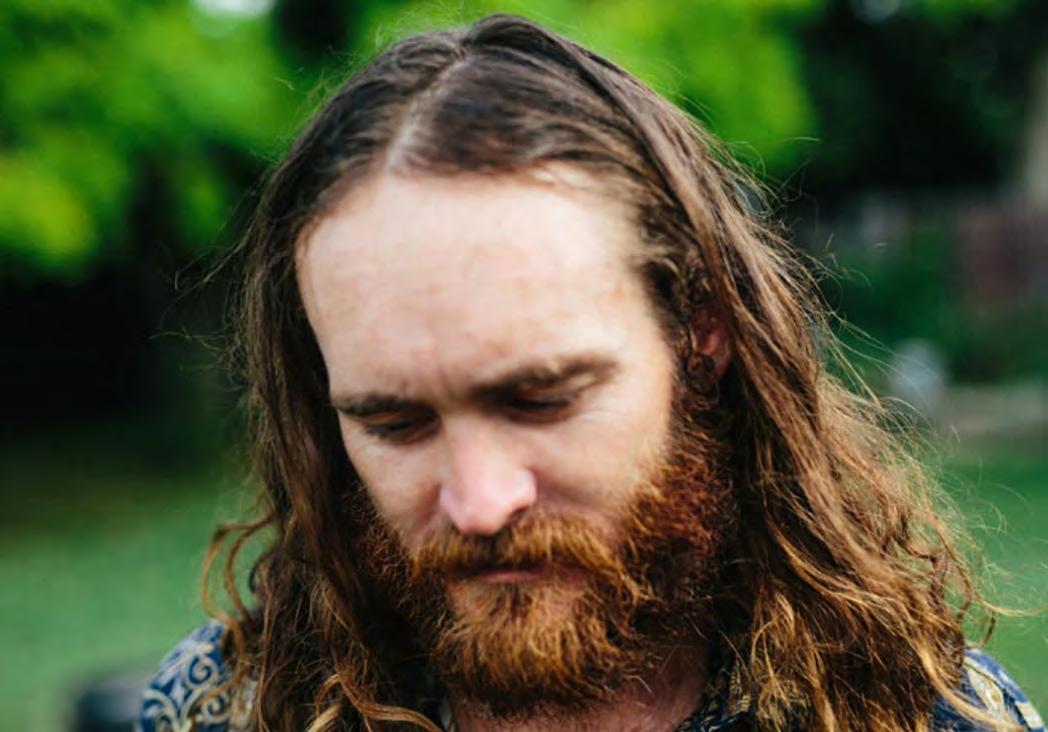
The 2023 version of Dashville is an eclectic one, as it always strives to be, showcasing the best in Americana and alt-country, bits and bobs in between. Hiss Golden Messenger (US); Vika & Linda with the Bullettes; Tim Rogers & the Twin Set; Dave Graney & the Coral Snakes (celebrating thirty years since the release of Night Of The Wolverine); Ondara (US); William Crighton; and Karen Lee Andrews are but some of a line-up Johnson and his crew have put into place in order to take Dashville Skyline to the next level.
And next level is certainly a part of it – a new addition to the site this year is The Grateful Shed, “it’s a large space, essentially a third stage, a big marquee which has a twenty metre long race track running right through the guts of it,” Johnson laughs. “And that’s to run power tool races. There’s a fella out near Newcastle, a good mate of mine… he’s a full on character, and they’ve got this organisation they’ve started up called the Southern Hemisphere Professional Power Tool Racing Association or something, you know? It’s so much fun, you just stand back, they have a whole table full of tools like belt sanders and circular saws, all modified with names and stuff… there’s two lanes like a drag strip, set up with a TAB screen and a band will play during it all. Just a bit of fun, I reckon it’ll be a pretty cool addition.”
Just another aspect of what has become a very well respected small festival, part of the local community, and one in its own right. “It’s our family property, and people come out there for an experience they won’t get anywhere else,” Johnson says. “And regardless of the lineups, it’s a place where people can come and feel welcome, and they know that.”
Dashville Skyline runs September 28 – October 1, at Lower Belford in the Hunter Valley.
16
SIC U M NE SW
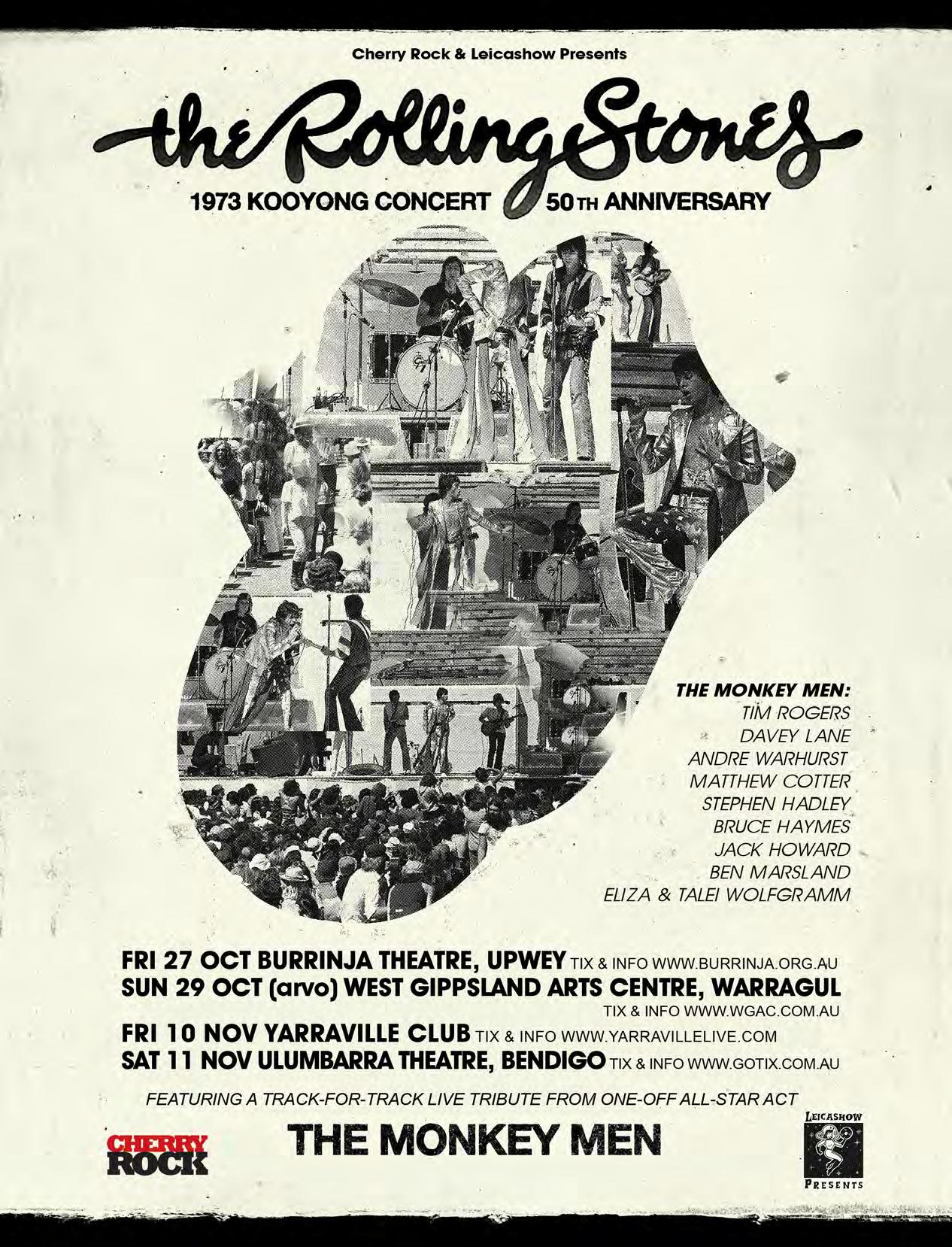
For over a decade now Groundwater Country Music Festival - which takes over the gorgeous Gold Coast precinct of Broadbeach for three days every year - has played a pivotal part in Australia’s country music scene, one of the many fine events which comprise Australia’s fertile country festival circuit.
Groundwater does, however, enjoy the luxury of two key facets of its annual experience which help stand it apart from the rest of the pack: firstly, the event’s proximity to the beach, and secondly the fact that, despite its size, it’s a completely free and non-ticketed event, one aimed primarily at drawing people to the region rather than being a cash cow in its own right.
GCMF Festival Director Mark Duckworthwho’s been heavily involved in the festival since its 2013 inception - is rightly proud of how it’s flourished organically from an idea on the drawing board into the thriving standalone event that it is today.
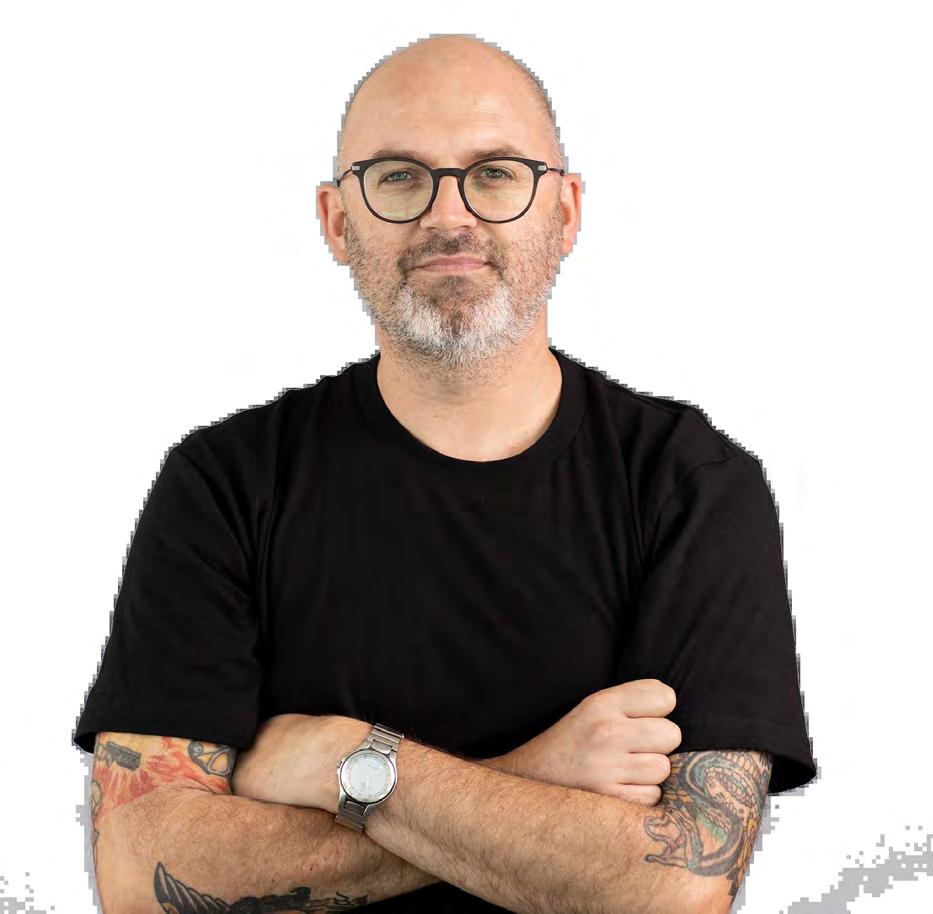
“When you look at what the Gold Coast was doing - or even Australia really - with country music ten years ago it was a pretty odd pairing, bringing together the City of Gold Coast and country music,” he reflects.
“Yet it has seemed to work really, really well and offered country music lovers a different experience to the normal ‘fenced off paddock’ style.
“In those first couple of years it was called the Broadbeach Country Music Festival, and it was very simple in terms of what we were trying to achieve - it was really testing the waters to see if it would work, building off the much bigger brother at the time which was Blues On Broadbeach.
“We wondered whether a country model would work, and it initially got pasted with the Broadbeach Country Music Festival name, but after a while we decided to turn it into an actual brand because people were so into it - and to ensure that it wasn’t all just about a little region inside a wider city - so it became the Groundwater Country Music Festival.”
Duckworth explains how putting on such a massive nonticketed event - incorporating roughly 50 acts playing on more
than 10 different stages - comes with its own set of unique logistical issues.
“I guess the biggest challenge when putting it together is knowing how many people are coming,” he smiles. “Unlike a ticketed event where you have that data of who’s coming and know how many people to cater for, we don’t have that - we can sort of gauge people’s appetite to come but we never know what that final number will be.
“That was a challenge in the first few years, I think now we realise that it’s just going to be busy. It’s that interesting space we play in which is music tourism - we have a really good destination so it’s like how do we get different areas of tourism to hit the Gold Coast? And by putting on a country festival or a blues festival or an air show or whatever it may be, they’re things that drive people to visit.
“I think the city has seen value in that for years, and that’s why they’re happy to invest to help put something on, knowing that
the payback will come in room nights and visitation though the area and bar nights and restaurant nights - it’s an investment in the local economy, and a really good model.” As far as line-ups go Groundwater covers the full gamut of country music, finding a fine balance between Australian and international acts as well as established and (as yet) lesser-known artists.
“It’s a hard balance at times, but I think it’s really important as a music fan to make sure we’re covering all facets of the country music genre - whether it’s modern country, country rock, bluegrass, Americana or any other sub-genre,” Duckworth continues. “It’s really important to cover all of those branches of the tree, and that’s why it’s a really diverse range of music.
“It’s also really important to have emerging acts to give them that experience, to make sure that the industry is looking strong in the years ahead as well. We run a national competition now with KIX Country called KIX Start at Groundwater which is about finding emerging talent, which is another pathway for acts who are pretty green and we might not have seen otherwise.
“And whatever the calibre of artist, they genuinely love coming here. I’ve come from a production and stage management background and I’ve always instilled into the team that if we treat people really well when they come here as artists and they go on and play a really great show then the crowd pick up on that great vibe - it’s a really simple formula.
“They’re close to the precinct, it’s easy to get to their shows, the accommodation here is nice by default, you can see the beach, so the vibe for them being around this area and taking over the precinct has always been really good. There’s a real party atmosphereeverybody’s having a good time, and just wandering around having a meal or a drink or a swim - it’s just got a nice feeling to it, and the artists love to come and play as much as we love having them.”
The Groundwater Country Music Festival takes place on the Gold Coast from October 20-22, 2023.
18
SIC U M NE SW
CELEBRATING THE 50TH ANNIVERSARY OF THE STONES’ KOOYONG SHOWS

James ‘The Hound Dog’ Young is the man behind the celebration of Australia’s greatest concert that is taking place again, this time in regional venues and Yarraville after blasting The Corner Hotel, Richmond, earlier this year. The show features Tim Rogers and The Monkey Men in a fabulous show put together by Young who is, naturally enough, a Stones fanatic.
When did you first hear The Rolling Stones?
I remember hearing ‘Satisfaction’ being played at a house party my parents hosted in Cheltenham in 1972. A life-changing moment! What effect did this have on you?
It planted a seed that would explode years later, and I have enjoyed burrowing deep down the Rolling Stones’ rabbit-hole ever since.
What was the first Stones album or single you got (were given as a present or purchased)? When?
I bought my first Stones LP in late 1975, which was the Made In The Shade’ 1971 - 1975 compilation. A great place to start, which sent me to the classic albums from that Golden period.
What are you favourite 5 Stones albums of all time?
1.Exile on Main Street
2.Sticky Fingers
3.Let It Bleed
4.Beggars Banquet
5.Some Girls.
Explain what is so important to you about your No.1 album. ‘Exile’ is perfect. A young English band daring to take on every American genre going…Blues, Soul, Gospel, Country, Rock… and doing it better than anyone ever has before or after!
Explain the ongoing appeal to you of this band that was founded before you were born?
What a gift that my favourite band should be the longest lasting artist of all time. Rock music is an artform that was born in 1956. Who knew how long it would last or will last? Well as long as the Glimmer Twins Jagger and Richards are alive and performing live rock n roll lives! I saw them at Hyde Park in 2022 and they were majestical. Jagger is still the #1 Front man (or woman) in rock n roll. Daylight second.
What was the first Stones gig you went to? Explain. 1995 Voodoo Lounge Tour at the MCG. It was such a long wait because they never toured Australia between 73 and 95, that’s 22 torturous years. I remember bumping into Brian Wise and Max Crawdaddy at the MCG that night, it was like a meeting of excited teenagers. I still laugh thinking about it.
What is your best gig of all time? (Stones or otherwise).
Rolling Stones at the Enmore Theatre 16 Feb 2003, 30 years after their Kooyong show and in front of just 2 000 lucky punters. Malcolm and Angus Young even jumped up on stage and played! Do you still have Keith’s bourbon glass that you got at a press conference? Where is it placed?
It was a glass of Vodka and cranberry juice. I got it home with ice still in it! It lives under a glass shrine in my Room of Rock at my home and always will.
What other Stones collectibles do you have? (Ronnie’s painting?). Yes, my loving wife Miranda managed to convince Ronnie Wood to gift me a painting of his of Keith Richards called ‘Touch’ for my 40th birthday, 17 years ago. Yes, it is a living miracle.
Will the Stones tour Australia again?
Absolutely they will in 2024.
Why is seeing the Monkey Men the next best thing to seeing the Stones?
Those ten Australian artists who make up the band are all extremely talented world class musicians who all play in their own original bands. But they all love The Rolling Stones and FIZZ at the opportunity to join other musos who they know and respect but don’t get to play with normally… But now they all get to learn, play and slay a classic Rolling Stones’ live set, the greatest live show Australia has ever hosted The Rolling Stones on 16 February 1973 at Kooyong in Melbourne. Wow!
19 SIC U M NE SW
By Anne McCue
The first time I heard of Lucinda Williams was when Rebecca Barnard sang ‘I Changed The Locks’ at The Prince Patrick Hotel in Melbourne in about 1993. It wasn’t long after that that I went to Vietnam and that’s when I really got into Lucinda’s music because I met drummer Simon Dawe there and formed a band with him which had various names such as Electric Ao Dai and Spunkrat. Simon had Lucinda’s recordings with him in Ho Chi Minh City and over the year I was living there we covered quite a few of Lucinda’s songs from her ‘white album’ and also from Sweet Old World. Once I got back to Melbourne I happened to join a band that got signed to Columbia Records.
So, that’s how I ended up in America and if I hadn’t, I wouldn’t have met Lucinda and gone on tour with her in the early Zeroes, opening the shows. I got to play lots of legendary venues and travelled with Lucinda on her bus. I always say that Lucinda plucked me from the gutter and placed me on the sidewalk of the music biz. (Staying on the sidewalk has proven to be quite the balancing act.)
She was touring the Essence album at that time so I got to see her and her super-textured band which included Bo Ramsey and Doug Pettibone on guitars, playing those beautiful songs every night along with great selections from her previous albums. Her audiences were the perfect mixture of intelligence and rock’n’roll which is a reflection of who Lucinda is. We played everywhere from The Fillmore in San Francisco to the Santa Fe Opera House, up through Montana and into Canada as well.
A couple of weeks ago, Lucinda played with guitarist Travis Stephens at Grimey’s Record Store which is luckily just around the corner from my place in Nashville. She moved back here some time ago but I’ve hardly seen her for years. They played some of the new songs from her latest album, Stories From A Rock’n’Roll Heart and she finished the set with Jackson, which gave me goosebumps. The place was packed and she generously signed copies of her memoir, Don’t Tell Anybody The Secrets I Told You. I just read the book and I recommend it.
Her father was the poet, Miller Williams, who recited his poem Of History and Hope at Clinton’s second inauguration before the whole damn political thing went to sh*t. Having a poet slash university professor for a father exposed Lucinda to a much different life than your average kid in the suburbs.
Miller Williams and his three children, Lucinda being the oldest, lived in some exotic locations such as Mexico City and Chile. People like Jimmy Carter and Charles Bukowski might show up at their homes in the various college towns they lived in around the U.S. Perhaps in part because her mother was not able to be present for quite a bit of her childhood due to mental health reasons, teenage Lucinda had a lot of freedom and not a lot of structure and luckily for us, she chose to focus much of her time and energy on learning to play guitar.
She quit formal schooling early and set about living a real and interesting life. If you pick up the guitar in earnest it will lead you to
some intriguing places and inspiring situations. She had the poetry, from her father, and both parents gave her the music. Only Lucinda could bring those two creative realms together the way she did. It took a lot of work - it always does - but we, her audience, are thankful.

New Orleans seems to have been the place where she started to come into her own as a singer-songwriter with the finishing touches being applied in Texas and Los Angeles. She had a real stop-start relationship with the music business, as many of us do, but her songs were so good that the loss of momentum at various times did not seem to thwart her gentle and respectable rise and she has had what from the outside looks like the perfect career: not so famous you can’t walk down the street but playing all the best theaters in the world.
To me, she is the most important figure in the Alt-Country/ Americana genre (terms she dislikes, by the way) because she came up with a fresh blend and truly had her own style. When her self-titled album came out in 1988, it was the beginning of something new - an original hybrid of twang, folk and rock.
I met her mother in New Orleans at a House of Blues show in about 2003, not long before she died. She was proud of Lucinda and in awe of her music. She said that one of her favourite songs was ‘Passionate Kisses’ - the song that launched Lucinda as a professional songwriter.
The stroke Lucinda experienced back in 2020, though debilitating on some levels, has not seemed to have slowed her down creatively. The proof: a new record and a new book.
The Book: Don’t Tell Anybody The Secrets I Told You (Simon & Schuster)
The Record: Stories From A Rock’n’Roll Heart (Highway 20)

20
“ To me, she is the most important figure in the Alt-Country/Americana genre (terms she dislikes, by the way) because she came up with a fresh blend and truly had her own style.
”
DAN SULTAN



21 FEATURING ‘RINGING IN MY EARS’ ‘WON’T GIVE YOU THAT’ ‘WAIT IN LOVE’ & ‘ FO RTR ESS (FEAT. JULIA STONE) ’
AVAILABLE ON VINYL, CD & DIGITAL
Canadian-born, Aussie-based singersongwriter Tracy McNeil and her partner-in-crime Dan Parsons - also an accomplished solo artist in his own right as well as slinging the axe in McNeil’s backing band The Good Life - have shared stages and made music together for years, but it took a literal natural disaster for their own creative partnership to fully flourish.
While their new project Minor Gold’s sundappled brand of classic ‘70s pop - perfectly showcased on their eponymous debut album - sure doesn’t sound like it stemmed from a time of such chaos and misery, sometimes even the darkest of clouds really does have a silver (or in this case gold) lining.
“In 2020 when everything went to shit we’d both just quit our jobs to go do van life,” McNeil remembers. “We were going to be living and touring and doing full-time music for the first time in my career - Dan had done that before - and I had my album You Be The Lightning just come out with The Good Life, and Dan had just released his album Sunday Morning Cinema the previous year.
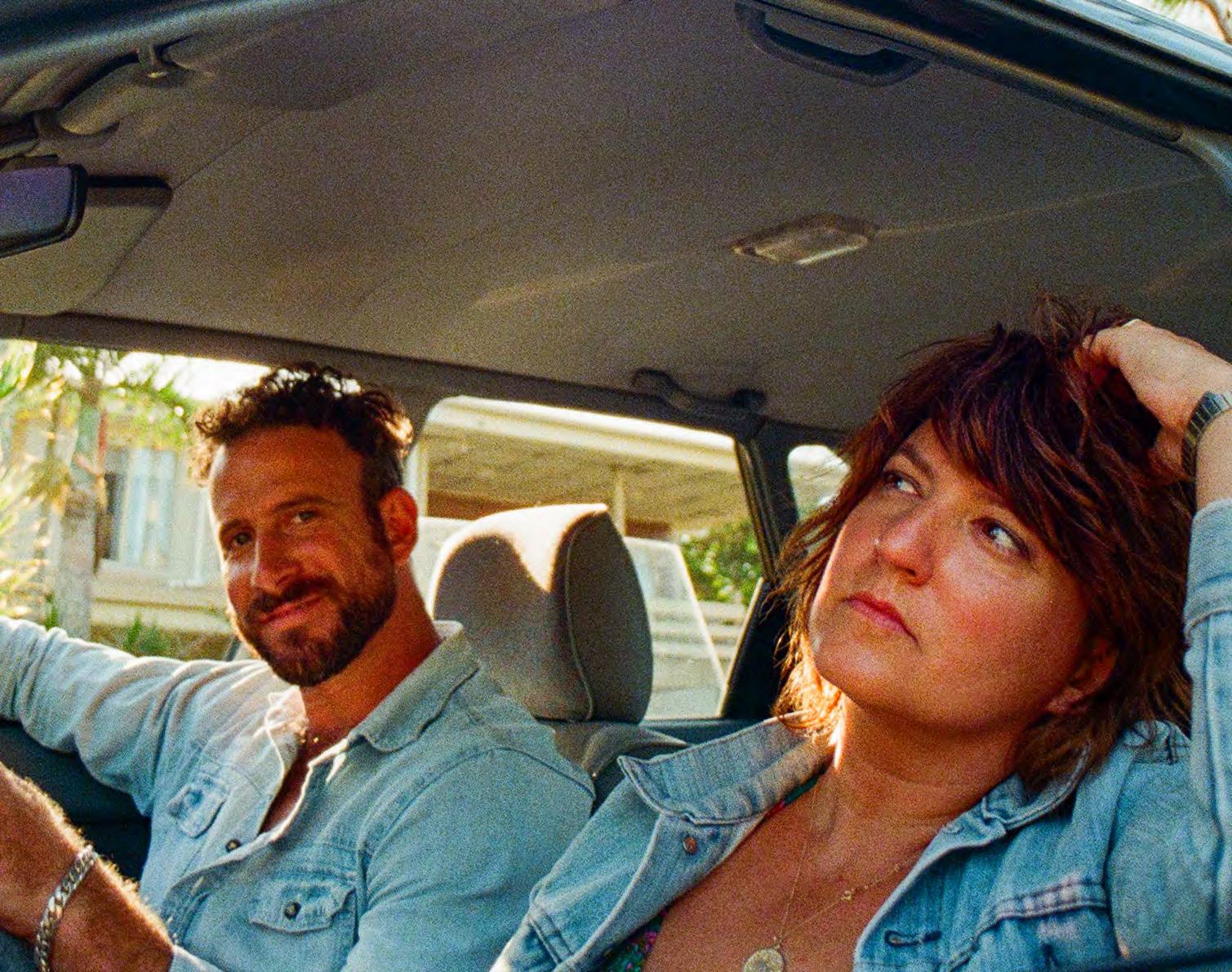
“Then everything went to hell in a hand basket and we were stuck living in a van in a Melbourne winter, so Dan’s folks said, ‘Why don’t you come up to Queensland before they shut the borders?’ So we hightailed it up to Queensland.
“We thought we’d be there for a couple of months and then we’d get back on the road and start touring, but those months soon turned into three years and we just decided to stay in Queensland because we really enjoyed it there. Essentially it was that downtime in 2020 when we were just living
on five acres with Dan’s folks, we had time on our hands and we just started writing.”
“We always had aspirations to do something like this but we just didn’t have the time,” Parsons continues. “Particularly when you both have solo careers, you’re so ensconced in that - and as great as those things are and can be, it’s hard to find the time to do something else.
“So it was good to be afforded the time to just daydream a little bit and just do something different. Even just for us as artists to just diversify a bit was very refreshing for me.”
The pair - at the time of writing in the midst of a massive 28-date North American and Canadian tour before returning to Australia for an album tour later in the year - explain that Minor Gold’s breezy aesthetic came about quite organically.
“The songs took their own path for the majority,” Parsons reflects. “At first we didn’t know what we wanted Minor Gold to be, but it didn’t take long to realise that our strength would be in keeping it - as much as we couldabout just two guitars and two voices.
“Obviously at times on the album there are some drums and saxophone and other slight embellishments - they just felt like fun things to do so why not go there? - but mainly the brief was keeping it as much about the two voices and guitars as possible.”
Minor Gold has also found the two singersongwriters taking the opportunity to explore less emotionally-charged lyrical waters.
“Sometimes When you’re working from a solo songwriting perspective the songs can - at least for us respectively - end up being very, very personal and very heavy and emotional and cathartic,” Parsons tells.
“And that’s fantastic, but when the majority
of your work is coming from that place it can get tiring for the artist - and most likely the listener - so the idea of doing something lighter and writing from a less personalised perspective can be really freeing.
“We had discussed the principle of ‘Let’s just have fun’” McNeil offers. “We wrote so much about escapism and letting go and trying to avoid the rat race and experiencing freedom by letting go of the shackles of the day job, exploring existentialism and contemplating the meaning of things, and finding new paths and new ways forward and new ways of living day-to-day.
“Those themes all run through the record and I do remember saying how nice it is to just write songs about chilling out and wanting to crack open a beer and have a barbecue. Not that there isn’t depth on the album because there certainly is, but it was nice to not have every song where you’re gouging your heart out with a knife. It’s just a bit of fun.
“I’ve certainly had to learn a lot too and grow, because I don’t have a band behind me. It’s really exposing! I’m a pretty basic guitarist and without the five-piece band behind me playing and singing I have to really focus.
“Usually it’s safe to assume that the band has my back at any moment, but with just Dan and I there’s not that safety net - we have to keep the rhythm and keep supporting each other and what they’re doing so that the bottom doesn’t fall out. I’ve still got a lot of learning to do, but it’s definitely made us both grow as musicians.”
Minor Gold is available now in all formats at: minorgold.bandcamp.com/merch
The brilliant collaboration between Tracy McNeil and Dan Parsons emerged from a natural disaster. By Steve Bell
BUILT TO LAST
It’s over 30 years now since Boise, Idaho singer-songwriter Doug Martsch started indie rock outfit Built To Spill, who over nine acclaimed studio albums have veered predominantly between hooky jangle and sprawling psych-rock, as well as becoming renowned for their epic and entrancing live shows.
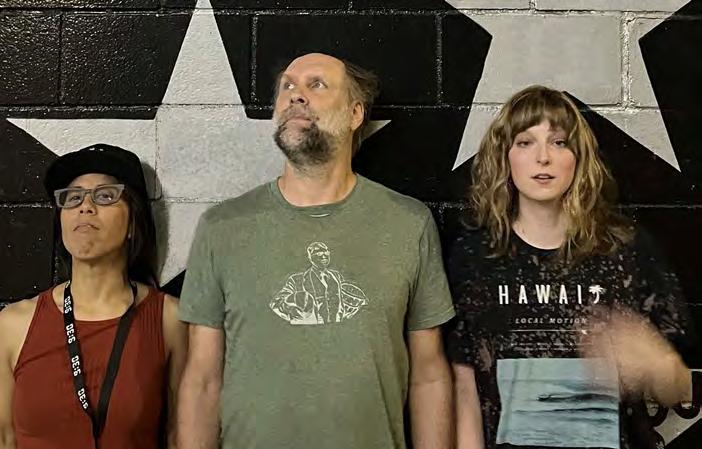
They’ve never had a massive hit or become a household name, but they’re revered by hordes of music lovers all over the planet, who value their consistency as much as their distinctive, dreamy charms.
Initially planned to be an amorphous project involving Martsch and a revolving cast of musicians, Built To Spill experienced a period of relative stability at the start of the millennium - the same five-piece line-up existing happily for a dozen years - but over the last decade the band roster has once more been changing regularly.
As he prepares to tour Australia for the fourth time on the back of last year’s When The Wind Forgets Your Name opus, Martsch explains that after all these years he has a pretty good idea of what he’s looking for in a bandmate. “The most recent line-up changes had to do with where people were in their lives and things, and some of it was an artistic direction,” he tells. “It’s about just trying to keep things fresh personally as well.
“When someone comes into the band there’s definitely got to be a personal connection, of course it’s got to be someone that I want to hang around with a certain amount. But musically I feel like there’s a little bit of a tightrope, in that I don’t want someone that doesn’t really know how to play, but I don’t want someone who’s too good either.
“At this point I think it’s nice to have someone who really knows our music and kinda gets the aesthetic a little, and within that there’s some wriggle room for sure, but there’s something about our music that has to be a certain way. I don’t quite know how to explain any of that, it’s more instinctual.”
Built To Spill indeed possess a very distinct aesthetic - usually involving Martsch’s vocals floating over gorgeous guitar soundscapesbut this too has been refined in recent times as the line-up was whittled down to a trio from the previous three-guitar configuration, leaving the frontman carrying the six-string duties on his lonesome.
“It was challenging,” he admits of the change. “I practiced a bunch just to work out how to fill out some of the stuff. Over time playing with two other guitar players I’d gotten pretty lazy as a guitar player, where I felt that I didn’t really have to do very much or be very tight to make the songs sound good because those two could keep it tight and I got kind of sloppy, and that kind of aesthetically made sense even.
“So, I practiced a lot just to be tighter, and I also got an Echoplex tape delay unit so I could manipulate that and make crazy sounds and try to make up a little bit for the missing guitars by making the band a little bit more psychedelic.”
The current line-up features two new members in Melanie Radford (bass) and Teresa Esguerra (drums), the first time that Built To Spill has been graced with female energy.
“Yeah, it’s really amazing playing with women, they’re great and so cool to play with,” Martsch enthuses. “All the cliche’s about how they’ll take criticism better and things like
that it’s all true, they just want to do the best they can - at least these two women. I don’t know if I’ve ever played with any women before but these two are just unbelievable ladies, and cool people to make music with for sure.”
Ultimately Marstsch attests that it doesn’t matter overly much who’s alongside him, as long as he’s onstage making that connection with the fans who hold him in such high esteem.
“I love that bond with the fans, I’ve always loved it,” he smiles. “Actually, it took me a while to like it because it took me a while to hone my skills at all. For a long time I wasn’t very good at playing or singing live, and I didn’t ever think I would be very good, so it wasn’t that fun to play - it was always a little bit disappointing or something.
“But in the last, say, ten years or so I kinda feel that I’ve come into my own a little bit, where I enjoy it a lot more and feel a lot more confident playing in front of people. Now I love it - it’s fun, so fun trying to play these songs right every night.
“And I’ve always loved coming to Australia, so I can’t wait to get back down there. In Melbourne we’re playing four nights in a row which should be interesting, I think we have enough songs to play completely different sets each night. There might be a little bit of overlap - a couple of songs that we’re feeling good about or whatever - but it will be four totally different sets of music, for sure.”
Built To Spill are touring nationally in October and appearing at the inaugural EightySix Festival in Melbourne. The latest album When The in Forgets Your Name (2022) is on Sub Pop.
23
More than 30 years and nine albums since its formation in Boise, Idaho, Doug Martsch keeps his vision alive an thriving.
By Steve Bell
Built To Spill.
Photo by Isabela Georgetti.
When I meet Dan Sultan on Zoom to have a chat about his new album and I mention at the start that he will probably get tired talking about what he has been through personally in the last five years he simply says, “I wrote a record about it, Brian.” Good point.
Dan Sultan is the long-awaited fifth studio album from the multi-award-winning musician who has not only released an eponymous record for the first time but has also allowed the use of his picture on the cover. Those two things alone are a statement of new beginnings from Sultan. The new album also addresses some of the major issues that he has had to face being in the public eye.
Produced by Joel Quartermain, who also contributes to the writing, the new album features a small ensemble of players and guests. The sound is as big as his previous album, Killer, but offers a far warmer and more personal approach with the voice right up in the mix. It also has a much more optimistic mood.
‘Tell me my thought and my shame isn’t real,’ sings Sultan on ‘Story’, a song that deals with the racism he felt when he was young, and adds the line ‘Now you broadcast your words down your gold microphone.” On ‘I Won’t Give You That,’ one of the album highlights, he sings, ‘Now I know I’ve fallen further than before’ on a surprisingly upbeat approach that is matched by the music and includes the defiant line, ‘You can try to bury me with my past but I’m coming with the wind in my back.” The song is set to become a crowd favourite at Sultan’s shows.
‘Fortress’, a dreamy ballad about the strength of love features Julia Stone, while ‘Wait In Love’ is a ballad of a more conventional style about love and the quietly reflective ‘Undreamt Shores’ is about discovery. The anthemic ‘Chance To Lose Control’ is about change and is followed by ‘Rise Up’, a song about personal development in a temporary existence. The even more upbeat ‘Saint Nor Sinner’, one of the most appealing songs on the album, features an early Byrds-like guitar at the very start and a declaration that, ‘I ain’t no victim.’ ‘Ringing In My Ears’, released as an obvious single and naggingly infectious, was apparently inspired by listening to Father John Misty, who is given credit in the lyrics. The eerie ‘Lastlings’ closes the album with Sultan singing an almost falsetto refrain. It’s an impressive album and you can understand why Sultan wanted to highlight
his name as the title. There’s a lot to be proud of and a lot to like. The interruption to Sultan’s rise as one of the nation’s most important and, hopefully, successful musicians should be swept away in the next few months. Not that Sultan hasn’t been busy musically in the past few years as he set about changing his life. There was an EP that reimagined some of the songs on Killer, and then Aviary Takes where he revisited his catalogue, a children’s album Nali & Friends, and recordings with The Bamboos and also Midnight Oil for The Makarrata Project. “It’s taken a long time for me to get to this point,” he adds, “but I’ve got a really great team and I’m doing really beautiful work, so it’s exciting.”
“I’ve written a lot of different types of songs but this record is really autobiographical,” he continues. “I’ve enjoyed writing fiction in the past as well, and I’ve written this historical fiction with a song like ‘Rover’, which was on Killer [the previous album] There’s a lot of different ways you can go about it, and there’s no right or wrong way, but for me personally, I’ve gotten to a point in my artistry and in my craft where anything other than totally authentic, at least at the moment, isn’t really an option and doesn’t really fulfill me artistically.
Where did he find the inspiration to change?
“I get inspired every day and I’m not trying to be wishy-washy with the answer,” he laughs, “but, particularly these days having such a beautiful family along with my wife. I’m a provider and it’s pretty inspirational having to provide. You can just go ahead and ask if you want to ask about sobriety and stuff like that, if that’s what you’re alluding to.”
“Well, I was unhappy, Brian,” he continues, “and I wasn’t doing my best work and I wasn’t spending time with people that were very nice to me. That all boils down to selfesteem, right? But the sobriety is more a result of the changes that I went through and the evolution that I went through. The sobriety is just one of the myriad of things that came along with me just being happier, basically.”
With the release of his previous album, Killer in 2017, Sultan seemed destined for chart success. It was produced by Jan Skubiszewski – also an engineer, songwriter and multi-instrumentalist – who gave it a really big sound replete with synthesizers and elements that hadn’t appeared on previous
Sultan albums. It reached No. 5 on the ARIA chart, not quite living up to my prediction at the time that it would be a No.1 album. Still, that is huge success compared with most other releases but you had the feeling listening to it that it was an album that other people wanted Sultan to make rather than it being indicative of what was in his soul. Then things went south. After a substandard performance one night in Cairns during which he was accused of ‘rambling’ (which I get accused of all the time) and falling of his piano stool, Sultan apologised to fans for his inexcusable behaviour and offered them a full refund. Then, in footy parlance, he took a long hard look at himself and changed his life around.
“In my case, if you want to be a responsible provider there’s things that you need to do,” explains Sultan. “I’m dipping my toe into things now that I wasn’t really interested in in previous years because that’s the landscapewhether it’s sort of more social media stuff or whatever. I don’t have to do any of that stuff. No one has to do anything but if you want to be able to keep up with things that’s the landscape. That’s just one example of that. “I didn’t have to get sober. I didn’t have to do anything. But if I wanted to be happy and if I wanted to stop making my loved ones worried and hurting myself and hurting people around me by living a certain way which wasn’t very good for me, then I needed to. Everyone’s got a choice.”
“That being said, this record is the most beautiful work I’ve ever done,” he adds, “and the most authentic and technically sound and incredible work I’ve ever done from a production standpoint to a spiritual standpoint, to an emotional, mental standpoint, it’s extremely fulfilling.
“You know I’m not without ambition. I’d like it to do well, of course, but from a purely artistic standpoint it’s an incredible success.” “I mean, it’s all cathartic for me anyway,” he notes. “I feel like if I’m doing it right and if I’m doing it in a way that’s authentic and from a place of moving forward, then it’s all cathartic. I feel very fortunate that I’m able that I have those kinds of things in my wheelhouse and in my arsenal to be able to get around day to day. Life, life is pretty wild and to be able to have an outlet in which I’m able to find some peace and some serenity through, I feel very lucky for that. It’s something I work really hard on as well. But I feel very fortunate, and grateful that I have the opportunity to work so hard at it.”
24
Dan Sultan has released his first full studio album since 2017 and it marks a resurgence in his life and career.
-By Brian Wise
Does the fact that it’s self-titled and features his face on the cover tell us something?
“I’ve never had just my face on a record before,” he replies, “and I’ve shied away from doing that - and also on merch or even gig posters or anything like that over the years. I think I’ve just been a bit shy to do that. It feels like a big commitment to do something like that.
“That’s a part of this sort of evolution that I’ve gone through: to be in a place where I’m okay to be confident and comfortable.
By the time you read this Sultan will have also been to the USA, where he previously toured with the Black Armband years ago, to play solo support slots for Vance Joy’s tour including a stop at Red Rocks Amphitheater in Colorado and the Ryman Auditorium in Nashville.
“It’s really exciting,” enthuses Sultan. “Those venues are sort of bucket list type stuff. It’s going to be wonderful. The songs that I’ve been releasing this year for the album are going okay over there as well. So, it’s all pretty exciting.”
Dan Sultan is available now through Liberation Records.
 By Bernard Zuel
By Bernard Zuel
Squeezing this in between more important appointments, holding her phone before her, Fanny Lumsden is in the foyer of the ABC as we speak, so “I’m going to try not to get too loud” she says.
Um, not wanting to cast nasturtiums here but, is that a little optimistic?
“Yes,” she laughs. “For me, yes.”
This shy, retiring type, of the long hair and overalls, firecracker gigs and boisterous band, must have had a real struggle in the UK when needing to shine at Glastonbury in June. Yes, that would be the Glastonbury Festival, the most famous, nearly the oldest – and in more than enough years, the muddiest – contemporary music festival, spread across the fields of Worthy Farm in Somerset. Yes, the one Elton John played. You may have heard of it.
“I managed. I busted through some new ceilings,” she grins. “Oh, it was amazing. It was crazy, I had a bloody good time. Just to have people open and generous. I think I had absorbed that I was too Australian, my stories are too Australian to be translated overseas, and it wasn’t the case.”
Dear god, who told her that?
“I don’t know, but I feel it’s something I have absorbed.”
To be fair, it is not unreasonable for an Australian act of any genre to think that in the UK, where patronising the colonials is still the default setting and Australia is mostly seen as a flea on the broad backside of contemporary music. But there’s nothing about Lumsden’s stories – about feeling hope and optimism one morning as your son is being cute in the morning light, feeling fear as nature threatens to overwhelm your home, or wanting your ashes shot up into the sky instead of a burial (of which more later) – that aren’t translatable, that aren’t understandable anywhere.
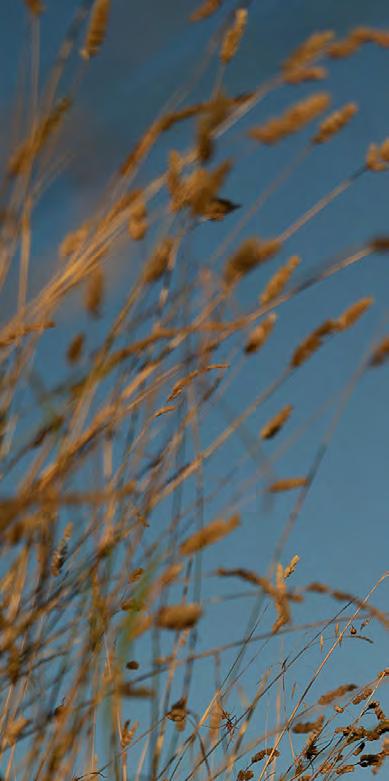
“I think that’s what we found really. I think that what made me think that is people asking ‘Did you change what you talk about? I was like, ‘no. Why would I do that?’ Look, they are human stories, everybody loves music, and if you are entertaining enough and self-deprecating enough they think it’s funny.”
True, they love a self-deprecating Australian, it saves them some work.
It was one thing to get invited to play at the festival: not that many Australian bands play Glastonbury after all, and certainly very few to none of them being independent country/ Americana bands from rural Australia. But the tougher question in advance was how she was going to do it.
Go on her own and work three times as hard to attract attention in the tent mid-afternoon, the cheapest option given this was all out of her pocket? Take a couple of musicians and ramp up the show side of things to compensate? Take the whole band (called the Prawnstars, NOT the Pornstars, Lumsden is at pains to point out)? Or take the whole band and the kids – of which she has two, under the age of when they could be roadies” – which was the most ridiculous and expensive option, especially as on her return she would be launching and touring a new album, Hey Dawn. Obviously, Lumsden chose the last option.
“I say yes and figure it out after,” she grins again. “I was always going to take the band. I knew it was going to cost money. We talked about how many band members do we take, Dan [Freeman, bandmate, husband, visuals supremo] and I, and it just felt like this once-in-a-lifetime – hopefully not, hopefully we get to play again, but I don’t know – opportunity.
“Our band has been with us, slept on the floors of halls and travelled and done so much, and it felt like this amazing thank you I could offer them for their dedication and work, and for being so kind constantly leaving their families, sacrificing things. It was kind of a no-brainer, but an expensive one.”
The decision makes more sense when you look at so much of what happens around Fanny Lumsden, from the friends/family/fans-focused approach to shows up to and including what they are calling a cinematic trailer for the new album: a series of filmed material shot like some highquality neo-Western and bearing the hallmarks of a budget 10 times or more what they could possibly have had.
“Basically, we just worked out how to do things in a certain way. I’ve been thinking about how we do this without the big budgets and why we’ve done it, and I look at the big artists with milliondollar budgets and think, we can do that, we just
have to do it ourselves,” Lumsden says. “We pay with sleep. And I have a talented husband who is very good at editing, and some great friends, creative people who have been working with me since the very beginning.”
It comes down to what is real she reckons. “You don’t have to have big budgets to make stuff that is real; you just have to know what shit to cut out.”
More than real – which like “authentic” is too easily abused, mimicked and marketed – what Lumsden feels is true. True to herself principally. And you realise that taking the band, and this can’t be stressed enough, her children, for a short run of shows in the UK and Glastonbury in particular, is, like not being quiet and not being afraid, true to exactly who and what she is in the music.
“There was this amazing moment when we [including co-producer Matt Fell] were making this album: a song I had written we couldn’t find its home, sonically, and we tried all sorts of things, and eventually [Fell] turned to me and goes ‘I don’t believe you. I don’t believe you.’ And I was like, I don’t believe me either, let’s scrap that one,” says Lumsden. “I was trying something on that didn’t really fit. I don’t think that means you can’t explore and push boundaries and stuff, because you can, it needs to come from the right place and that one wasn’t. So, it got turfed.”
26
After appearing at Glastonbury, Fanny Lumsden released her impressive new album Hey Dawn.
Hey Dawn, an impressive, song-driven album is proof that she does push out, continuing her explorations into rock and pop and territory that doesn’t really fit into what the more conservative pacemakers think of as country. Four albums in, life would be so much easier for her if she stayed in her box, stayed in her CMT/Golden Guitars lane, but Hey Dawn feels like a whole lot of risks being taken
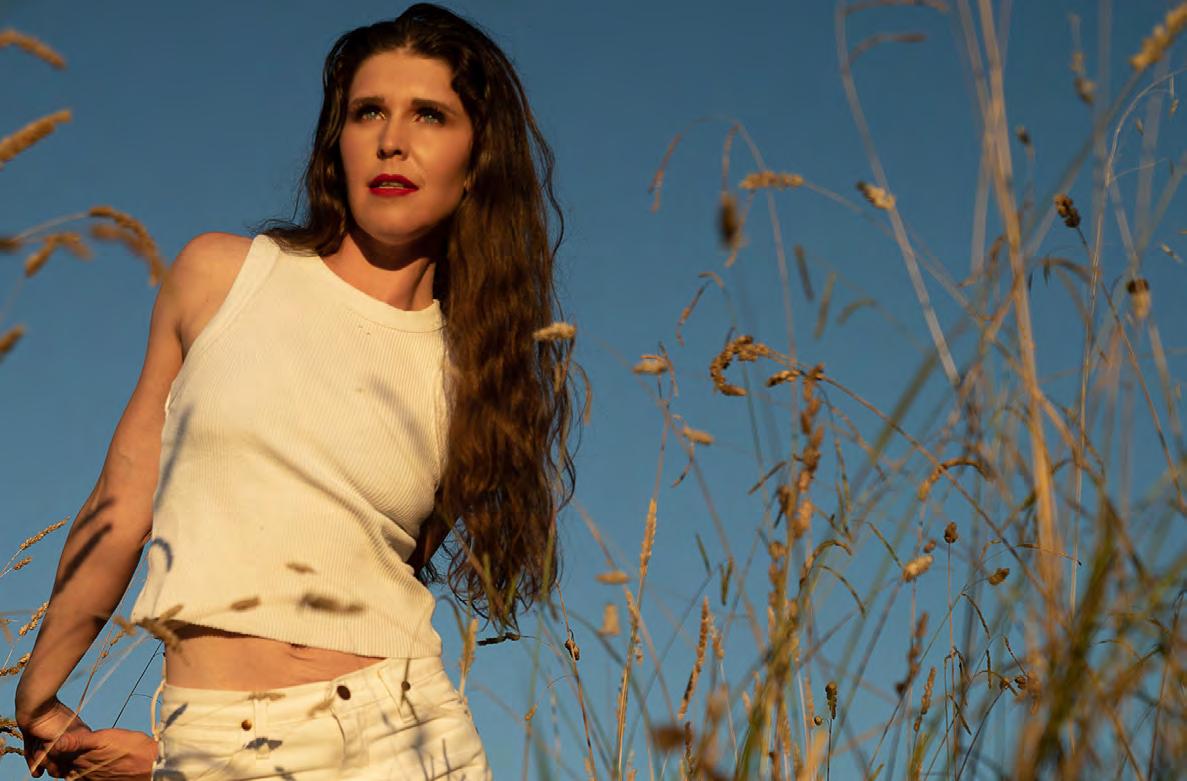
Or maybe, inspiration coming from unexpected sources. Like when, in the days after a major storm had damaged the studio they were recording in in Tasmania, forcing everyone to move (leaving everything in flux, with “the only sonic sound that I’d had in my head, or vision, was a solo piano in a hall. I could just hear it [in my head]”), Lumsden and husband were out on a drive to clear her head and pulled into a small town.
“We stopped off, there was a market happening. Where this market was there was a little hall in the middle of it, and I went in and there was a man playing piano. He wasn’t really playing it for anyone else: you could tell he was playing it for himself, and he didn’t even look up from this little book which had all the songs, just kept playing and playing.
“I watched him, thinking he’s not doing that for anyone else but it’s benefiting everyone else, and I went back that night, and I wrote [the song] ‘Hey Dawn’. From that moment on I was
like, okay, right, we are good: let’s make this record for us, who cares?”
It feels like all that story needs is a postscript where she goes back to the hall and convinces that lone pianist to come back and play on the record, or maybe she brings the band back to record of the rest of the album in the hall. You can hear the Netflix documentary being pitched already.
That didn’t happen but it wasn’t the only weirdbut-true interaction with some regular Joe behind the new record. A neighbour of hers, Brett, told her of his plans for his last farewell: having Lumsden and band play for friends and family a few Monty Python songs, a few John Prine favourites, the ceremony climaxing with his ashes being fired in shells from shotguns at the top of the hill, while an old truck body was burned as a bonfire.
“He asked me how much it would cost and I told him $50,000, a down payment of a cow and two loads of wood. Then six months later he rocked up to the house with a load of wood – no cow, I’m still waiting on it – and said would you do it?” she remembers. “And one more detail: he ran into me at the Christmas party and it was like, I think we should add glitter [to the ashes in the shotgun shells].”
Not much came of it at first, but months later, after a trip up north featuring some disasters, including a lost caravan door, Covid-inspired
lockdowns, stray adventures, and a diversion to WA, Lumsden wrote this story into a song as they crossed the Nullarbor, ‘When I Die’.
“The world is better off with people like Brett,” she declares. And yes, that’s him in the film clip. Sure, but does he have a schedule for these plans? Is it imminent?
“No, he’s fine, he just knows what he wants in life, and he knows what he wants in death. And he’s got a lot of joy out of making this plan.” A lot of joy, and it’s spreading to anyone who hears the story. But still, I have a question about that cow. Or the absence of said cow.
“It’s a little ambiguous because he is a neighbour of my parents and my parents did use his bulls recently, and then there was like this payment rotation when my dad owed him money for the use of the bulls but then I owed my dad money [for use of a truck] and Brett owed me money, so it kind of cancelled itself out.”
So, in this bush yarn there’s a song about death, a load of bull semen, borrowed trucks and promised cows – that’s a lot, even for a country song.
“I talk too much,” Lumsden says breaking into giggles.
Not at all. Song, semen, trucks and cows is what we might yet come to call the Fanny Lumsden circle of life. Bet they didn’t get that on the ABC.
27
The Aussie legend celebrates 50 years in the music business with one of his finest releases.
 By Jeff Jenkins
Ian Moss. Photo by Robert Hambling.
By Jeff Jenkins
Ian Moss. Photo by Robert Hambling.
Mossy. It’s a name ingrained in Aussie culture. Not many people refer to him as Ian. He’s been Mossy since he was kid growing up in Alice Springs and that’s what every Aussie music fan calls him.
And he’s fine with that. “I find it wonderfully affectionate,” he says. The distinctly Australian moniker suits the man. Few artists have been blessed with so much talent. Not only is he regularly acclaimed as our greatest guitarist, he’s one of our finest singers as well. Such a package could be an explosive tale of ego and vainglory. But remarkably, Mossy is one of our most laidback rock stars. He’s softly spoken. He moves at his own pace. And he doesn’t play the guitar hero on stage – it’s all about the feel, not histrionics. And amazingly, he rarely plays the same thing twice.
“Mossy was always on another planet,” observed his Cold Chisel bandmate Jimmy Barnes. “But we loved him.”
Whereas Barnesy is a music machine, delivering 20 solo studio albums since Cold Chisel split in the ’80s – including a kids album and a Christmas collection – Mossy has released just eight. His new album, Rivers Run Dry, is his first in five years.
The title track sits comfortably alongside anything Mossy has done. With his pure, ageless voice, he tells a moving story of love and loss, backed by a swelling gospel choir. The song was inspired by a childhood friend from Alice Springs who was lucky to survive after suffering a stroke.

“When I was writing the song, I wasn’t sure he was going to pull through,” Mossy explains, “which added an emotional edge.”
Mossy’s wife, Margeaux, provided the song’s key line: “So many ways that a man can drown.”
After five decades in the music business, how has Mossy managed to keep his head above water?
“I love my red wine, but I haven’t abused it,” he says. “And I think the key to good mental health is exercise. Not that I’m a fanatic. I hate starting [exercise], but once you finish, it feels great.”
Rivers Run Dry showcases a variety of styles and genres, with rock, gospel, soul, blues, Latin and a country duet with Kasey Chambers. When Mossy’s at home listening to music, what’s on his turntable?
“Generally, blues and jazz. I’ve actually been threatening for years to do a full-on jazz course. I probably never will, but I’m always trying to incorporate a few licks.”
Mossy’s previous album, 2018’s self-titled set, featured a classic called ‘Broadway’, which Mossy wrote about missing his young son, Julian, when he was on tour.
“The years fall away so quickly now,” Mossy sang. “I’ve all the fortune and the fame. Oh, but I’d leave it all to yesterday just to be with you again ’Cause I need a little something that feels like home.”
PLAYING FAVOURITES
In 2014, Mossy’s fellow musicians ranked him Australia’s greatest guitarist in a newspaper poll.
So, who is the guitar idol’s guitar idol?
“Jeff Beck,” Mossy responds immediately.
“Of all the greats we’ve been losing lately that’s one where I shed a tear. Real loss. End-of-an-era sadness.
Julian is now all grown up and an emerging artist, joining his dad for a cover of Stevie Wonder’s ‘Blame It On The Sun’, which closes the new album.
“I was so happy to share that song with him,” Mossy smiles. “In the very early days of Cold Chisel, we loved our heavy rock, but the Talking Book album was rarely out of the cassette player. I always thought I’d do a version of ‘Blame It On The Sun’. It only took me 50 years.”
Mossy is fond of saying that most of his musical ideas lie “moribund”. Often, he needs a collaborator to bring the ideas to life, usually engaging a co-writer to complete the lyrics. Rivers Run Dry features co-writes with Troy Cassar-Daley, Sam Hawksley, country duo O’Shea, American songwriter Alan Roy Scott, as well as his old Cold Chisel buddy Don Walker.
“There’s a strange awkwardness to co-writing,” Mossy says. “Often you have just one line and you think, ‘How the fuck are we going to turn this into a song?’ There’s a certain level of discomfort, but then people start throwing out the lines and you settle into this lovely flow
“It’s a funny, painful, awkward process.”
Mossy also revisits the Walker ballad ‘I Miss You In The Night’, which Chisel demoed but didn’t release, before Vika & Linda cut the song on The Wait. “I finally got a hold of it and I’m glad I did,” Mossy says. “It’s like ‘The Wind Cries Mary’.”
Walker is a tough critic when it comes to covers of his songs, but he gave Mossy’s version his seal of approval. “That means everything to me.”
Fifty years after he embarked on his rock ’n’ roll journey as a founding member of Cold Chisel, what music dreams are left for Mossy?
He’s happy making records – “it’s still a bit of a painful process, but always rewarding when you finish something” – and there’s one idea he’d like to pursue.
“A little while back, Don wanted me to pick a bunch of great standards and go into the studio with Barney McAll, great players like that.
“That’s something I’d still love to do.”
Rivers Run Dry is out now on Universal.
you hear two notes and you go, ‘That’s Jeff Beck.’ It’s instant.”
Did Mossy ever meet his hero? “No, unfortunately I didn’t, but I came close.”
He saw the English guitarist do two nights at Sydney’s Enmore Theatre in 2009. “I think he might have ended up back at Barnesy’s place,” Mossy says. “But I didn’t get the invite.”
“There was a weight to his playing. And incredible creativity. He was in blues rock bands and suddenly he was one of the first guys to do that fusion thing with Blow By Blow and then Wired
“Sure, guys can shred all day, but you can listen to all of them and not recognise any of them. But with Jeff Beck,
Mossy did get to meet another guitar god later in 2009 when he supported Eric Clapton at the Hunter Valley’s Hope Estate. Slowhand sat side of stage, closely observing Mossy’s set. When he walked off stage, Clapton stood and applauded.
“He’s about as shy as me, so it was a funny conversation,” Mossy smiles. “But it was great to meet him.”
29

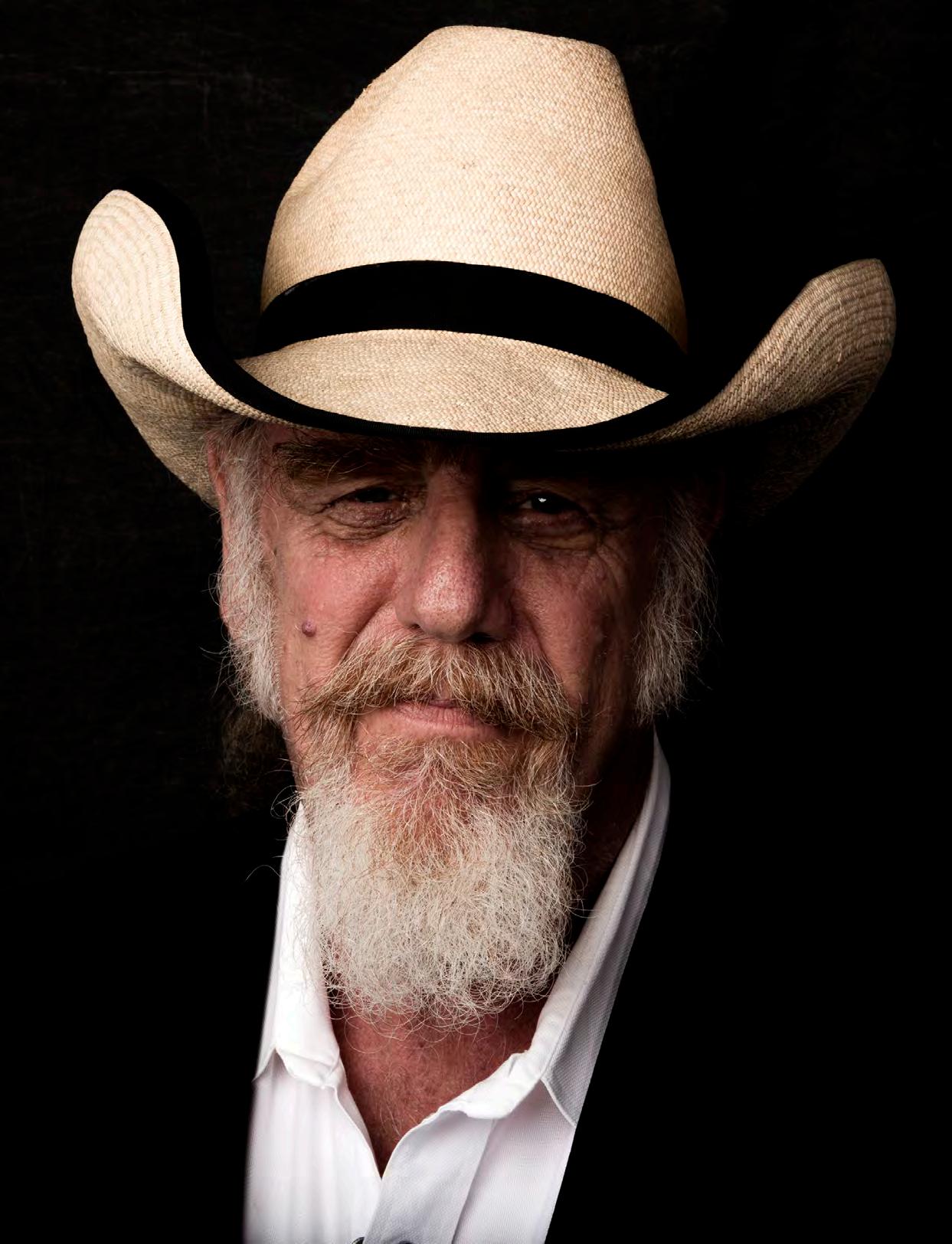
Back in 1970, some young hippie guys from West Virginia made it their goal to bring the roots of American pop music to the present. Fifty plus years on, that band, Asleep At The Wheel, still reminds us of how good Western Swing is by keeping it alive.
Ray Benson and The Wheel head to Australia this October for the first time, reuniting with founding member Lucky Oceans, along with Brennen Leigh and Joshua Hedley. Get ready folks this is going to be some ride.
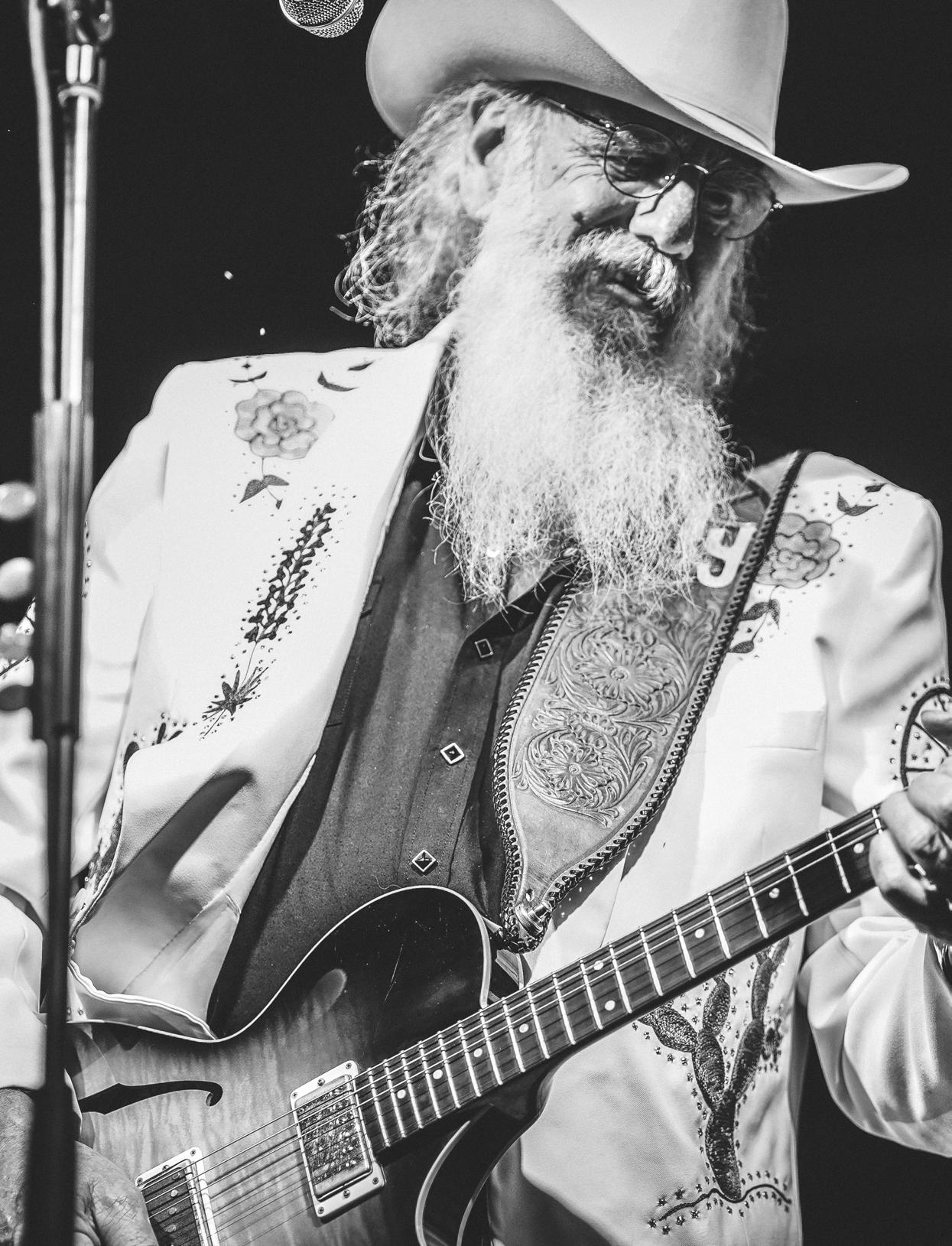 By Denise Hylands
By Denise Hylands
You’re finally making it here after all this time.
Can’t wait to get there. It’ll be a good trip. It’ll be a fun time. It’ll be a great band too.
Tell us about the band. What’s going to be happening?
Well, you know, luckily we have the founder living there in Fremantle also. Lucky [Oceans] will be with us. That’s special and fantastic. Then we’ve been working with Brennen Leigh and Joshua Hedley. They’re kind of quasi members of the band. We’ll have a rhythm section and I think Connor Forsyth will play with us, our piano player who has been playing with us off and on for 40 years. So, it’ll be great.
Well. We should have a little look back at your 50 plus years. That’s pretty good going, isn’t it? I’m sure it doesn’t feel like 50 plus years, though.
It feels like about a hundred! Really? All of a sudden you look back and you go, Oh my God, we covered a lot of ground.
What was it that drew you to Western Swing? I did read that when you were younger, around 19, you wanted to start a band to bring the roots of American pop music into the present, which I think you’ve done very well.
Well, I was a child performer. So, I started playing semi-professionally when I was 11. We sang folk music - my sister, me and two friends. We sang Woody Guthrie songs, Peter Paul, Mary Songs, Bob Dylan songs, et cetera. Then I just went off on every direction I could. I played in rock and roll bands. I played guitar in lounge Bossanova bands. I played upright bass in an orchestra. I played tuba in the marching band. I just wanted to play music.
So, it was a wide palette of styles. I was able to play in a big band, a swing band with trumpet, saxes, et cetera. I played upright bass and rhythm guitar. I played in square dance bands in the summer. So, I got really to love fiddle music. So, when we put the band together it was all about what we called the roots of American music. That was a loose idea and it morphed into this western swing band because of the instrumentation and our love for Bob Wills’ music.
Bob Wills well is still the king as, as they say. You got to meet and even play with many of the Texas Playboys. Did you ever meet Bob?
I did meet him but it’s a really kind of a weird little thing. We went up to Fort Worth and he was recording what was the last album. We met him and he was in a wheelchair, and he was kinda slumped over and they said, ‘Mr. Wills is tired. We’re gonna take him to his room. You can meet him tomorrow’. Well, he went back to his room and he had a stroke that night and went to a coma and died two years later. So, we met him, but we didn’t get to talk to him. Then two years later, in 1975, we were playing the Longhorn Ballroom, which was the Bob Wills’ ranch house. It was a big dance hall that he had built back in the fifties. We were playing there, and it was the day he died, and it was ‘Whoa!’ So, it was all these kind of weird interactions. >>>
31
>>> So, I figured that maybe this is way outta my control as to why I chose this kind of music.
Did he know what you were doing?
Yes. They said, ‘This is, this is Asleep At The Wheel. They just recorded ‘Take Me Back To Tulsa’ - and it was put out as a single. That’s nice to know that he knew that there was somebody flying the flag.
Yeah. All the old guys that had really made this music were very appreciative of the fact that this young band with a weird name. We got to know so many of the old guys, the songwriters, the guitar players, the steel players, all the musicians, the sax players and play with all those old guys which really passed on a lot of the tradition and the stories.
You came from West Virginia, you made a move to California on the request of Commander Cody and The Lost Planet Airmen. But there were a couple of guys who persuaded you that you needed to be in Texas, and that being Doug Sahm and, of course, Willie Nelson. This music is so Texan, isn’t it? It’s the Sound of Texas. Yeah. Bob Wills was the Elvis Presley of his time in Texas, Oklahoma and then in California when the great migration of Midwestern and Texas and Oklahomans occurred. It was a soundtrack of the emerging of the Southwest as a major force, the discovery of all. All of a sudden it was from an agrarian kind of farming and cattle to this and Bob Wills was the soundtrack because it was sophisticated music, but it had a cowboy hat and cowboy themes and Western themes and so fitted the times very well.
Of course, you paid tribute many times to Bob Wills in records, some great tribute albums, even with your good buddy, Willie and Willie and The Wheel and so many other people who have come on board and been guests on your albums paying tribute to this music. It seems like keeping this music alive has been done very well by you.
We got handed an opportunity that was hard to resist, especially because we were so good at the music and loved it. People trust us to perform it in a respectful way.
You brought in Brennen Leigh and Joshua Hedley for The Past, the Present and the Future Tour. I saw you say that you’ve got to have young people listening to this music to continue it on. You don’t wanna be a museum. I think you’ve gone and picked two of the best that are in the game. Brennen’s album Obsessed With The West was just a great tribute in a way to you but also the music of Western Swing and, of course, Asleep at The Wheel were all over that album.
We’d known Brennen since she was a kid, when she moved to town, I met her and her brother. We’d just always been a fan and we’d always say, ‘Hey, come on out.’ I’d do a birthday party every year to come out and play it with or I’d do some of these songwriter swapping kind of thing. Anyway, we finally got to make the album with her, ‘cause she had written all these Western Swing tunes. Then I said, well, ‘Hey, let’s do it.’
And Joshua and I have been trying to figure out how to work together for a while and when this came up, I said, ‘Come on, let’s go do this.’ Then Sam, my son, who runs everything, he figured the logistics out and we hopped on the bus and away we went. Like I said, Asleep At The Wheel’s had over a hundred people in the band. So, it’s kind of a situation where you get people to fit in. Josh played the fiddle so good. Not just a great singer but he’s a great fiddler. So, it all worked out just fine. So that’ll be fun.
That’s where he started really, isn’t it? Playing fiddle as a young kid and then finding his voice to step up and be his own artist was such a great thing. I still think that Josh is one of those artists that isn’t getting that recognition that he deserves because he’s exceptional. He has been out here like 10 times.

We hope to work together and you maybe doing a recording. We’re still working out the details and maybe that’ll happen. I’ll ride his coattails. That’d be good.
You said that you’ve had so many members, members in the band over the 50 plus years of Asleep At The Wheel. Have you got a figure?
It’s over a hundred.
You’re nearly up there with Bill Monroe, with that. Yeah, that’s a good model!

32
I think a lot of people left Bill Monroe Band for various other reasons. Maybe you were grabbing people as they were available and they moved on to other projects.
Well, there’s a lot of it is that it’s a hard life. It’s a road life. You have very little. For the last 50 years it’s been up to 200 days a year on the road. That’s a strain on anybody’s life. So, that’s a lot of what goes on.
But you’ve stuck in there. You’re staying the miles.
Yeah. You know, I’m built for it.
Well, 2020 was the 50th year and it was a year that everything kind of came to a standstill but you still got a great album out - Half A Hundred Years. Tell us about putting that together. Of course, you had to mark that 50 years with something, didn’t you?
Yeah, and this is how we did it. It was exactly what we’re doing now. We had the technology. It’s not just Zoom but we were able to tie into everybody’s home while we were recording. So, the people who couldn’t be here, they were able to access the session and then we would send them the files to finish it. So, the technological aspect of it, we figured that out. Then the rest was just adapting to this new reality that the technologies allows us to create, the feeling that you’re actually in the same room while you’re recording. Well, you wouldn’t know that listening to it. So, that’s, that’s the beauty of technology these days.
Yeah. I’m sitting here in my house, which is the studio now. We’re building a new studio but before the pandemic, or just before I had sold the property and moved all the gear into my house and wired upstairs and then this downstairs and what used to be in my kids’ rooms. So, that also made it so much easier because there was a separate area from the other one. There were people who were very careful about social distancing and everything. Because I got Covid too in March of 2020. It was one of the early, early cases. I did fine but I’ve had it three times. But, you know, I’m just too tough!
With a career like you’ve had Ray, there’s gotta have been some amazing highlights. There’s has to be something that you experienced or a place where you played, or people you played with where you just kind of had to this day thought ‘Wow, can’t believe that happened’. Is there a standout that you just go, well, you wouldn’t believe I did this?
Well, you got a half hour! [laughs]. Okay, let’s go back. The time Jerry Lee Lewis jumped up on stage and played with us for 40 minutes at the Palomino Club in Los Angeles. After the show - you know, I was 24 years old – and The Killer, ‘With your band and me, we could rule the world.’ Boom! [laughs]. I said, ‘Okay.’ He was one of my heroes growing up.
Then meeting Willie and becoming a friend of Willie. That’s something. I can’t describe it except that my life would’ve been totally different without Willie Nelson. You know, I met him 52 years ago and every juncture of life where things were going bad, he was there to help, or when things were going good, he was there to congratulate. So, that was it. All I can say is, he’s one of the most important people in America and in the world in terms of music. He’s the most important person in my life in so many ways. Not just professionally but personally.
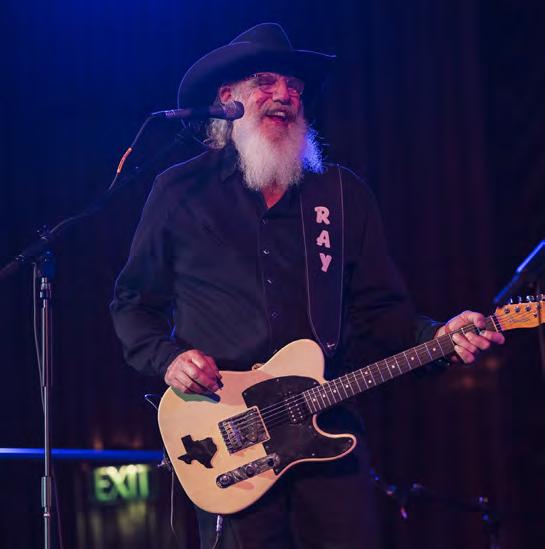

Did you go to his birthday party?
No, no. That was, that was a manufactured affair. Those were his ‘friends’, in quotes. [Laugh]. I was actually invited. I was busy and I told him, ‘Go ahead and do it without me’. I’d already had a job that weekend and it would’ve been a real hassle. I said, ‘You know, I love you and I’ll see you’. No, we’re in constant contact. He just put guitar on a record I’m working on.
What are you working on?
Oh, a lot of things. I went to Jamaica and made a record reggae record me and Tony Garnier, one of our old bass players. Tony’s been with Dylan now for, I don’t, what, 30 years. So, we went down with Sly Dunbar and some great ska guys. We’re working on that one. I’ll have that done maybe by next year.
And what about Asleep At The Wheel?
We’re working on stuff. We’re working on a new TV show, which will be available on YouTube for y’all. It’s replacing Marty Stuart’s beautiful show that he did for many years. So, I’ll be doing that starting in the Fall, hopefully. I have some amazing collaborations.
Do you get to play with your buddy Lucky Oceans very often?
He popped over for the 50th. That was wonderful. Occasionally, he would come to visit his family. We’ve done various things and a lot of recording.
We can’t wait to get out there. This has been way too, way too long. I said, ‘Lucky, how come we’re not coming to Australia for crying out loud?’ He said, ‘Well, you got too many people. It cost too much to get your ass over here’. So, so we figured it out. I’m very excited about it. Just get everybody prepared!
I’ll sing ‘Waltzing Matilda too. Anytime y’all just throw a throw a dollar on stage and I’ll sing ‘Waltzing Matilda.’ [Laughs].
33

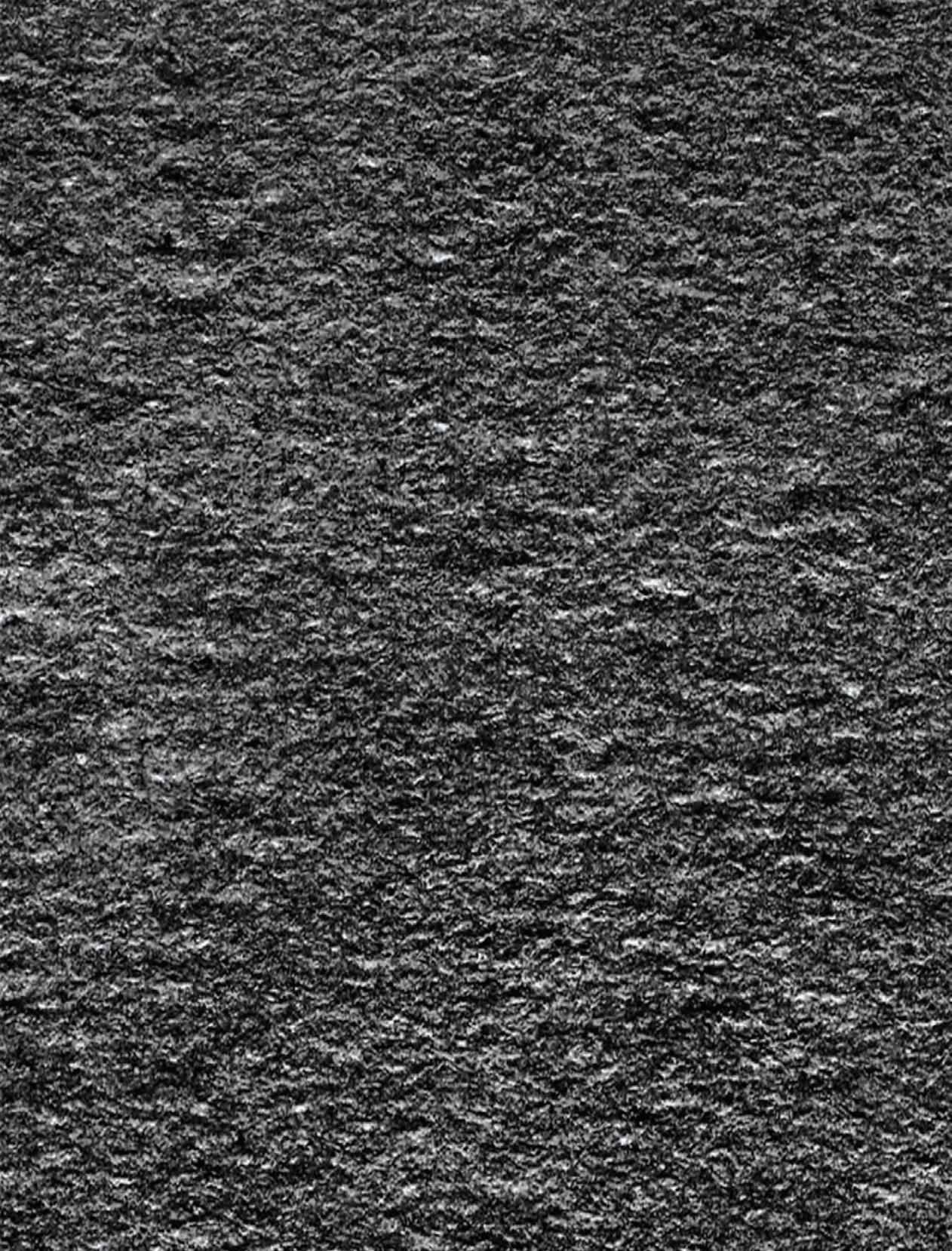

Brennen
By Brian Wise
Songwriter, singer, guitar and mandolin player Brennen Leigh might not be familiar to Australian audiences but all that is set to change when she arrives here in October to appear with Asleep At The Wheel. While her songs have been recorded by Lee Ann Womack, Rodney Crowell, Charley Crockett, and many others Leigh has released eight of her own albums, including last year’s Obsessed With The West with Asleep At The Wheel.
And while Leigh has an obvious love of Western Swing, she is also a dab hand at singing and playing honky tonk music as her latest album Ain’t Through Honky Tonkin’ Yet proves. With guests such as Marty Stuart and Rodney Crowell and a crack studio band, Leigh forges a link between traditional country and the modern day.

Last year we witnessed Leigh singing with Asleep At The Wheel at a dream gig during the Americana Festival where she also had her own spot on a line-up that included Jerry Douglas, the Milk Carton Kids, Asleep At The Wheel and James McMurtry! As I said at the time, we hit the jackpot with that gig! It was impressive stuff. Other gigs that Leigh plays with The Wheel also include Joshua Hedley who will join them for the Australian tour. But while Leigh will be a new name to our audiences, she has forged a career built on a solid grounding from her very early days in North Dakota where she played Louvin and Delmore Brothers’ songs with her brother. “Some old bluegrass and old country,” says Leigh from her current home in Nashville. “And that’s been my sole job since I was a teenager. So, I’ve never had another life besides being a touring musician. I think when I was twenty, we toured behind Ralph Stanley and then we moved to Austin, Texas, and I was there for 15 years. Now I’m in Nashville.”
“For me the appeal was in the focus on songwriting here,” she continues. “I moved here because I got a publishing deal. I’d always wanted to live here, and a lot of my favorite records were made here. Nashville’s always been a country music town. That’s
always been our identity and there’s a lot of people here that clinging to that really proudly. I’m really proud of that.
“Nashville’s so big and the music scene, music industry, is so big here that there are multiple scenes sort of going on at once. Most people that are active and busy have a foot in several camps. Like, I’ve got a foot in bluegrass, a foot in traditional country, and a foot in the songwriter culture here. It’s kind of an embarrassment of riches. There’s a lot of talent and a lot of opportunities.”
Leigh laughs when I wonder how she must therefore have three feet. “Yeah. I’m already out of balance! But it just feels good too. There’s so much going on here.”
For her new album, Leigh has one of those feet firmly placed in the honky-tonk camp and has enlisted multi-instrumentalist Chris Scruggs, currently in Marty Stuart’s Fabulous Superlatives, to play and produce. The songs are written with a posse of writers that includes Silas Lowe, Tessy Lou Williams, Noel McKay, Erin Enderlin, and Mary Bragg.
“We’ve been friends for years,” Leigh says of Scruggs, “and when I had the idea to do this kind of more what I would call a classic sort of Nashville country record, I knew we needed him for it. So, it was lovely just getting together and brainstorming because the thing that makes him special is his enthusiasm and his passion. He’s very knowledgeable. He knows a lot about our genre and our music. He’ll tell you this probably is a result of obsession and
just being in love with it his whole life and growing up immersed in it.”
Apart from the quality of the musicianship and production, Ain’t Through Honky Tonkin’ Yet is also notable for some of its classic country song titles: ‘The Bar Should Say Thanks’, ‘When Lonely Came To Town,’, Running Out Of Hope, Arkansas’, ‘The Red Flags You Were Waving’ and ‘Somebody’s Drinking About You’. In fact, in another world, maybe 30 or 40 years ago, ‘Somebody’s Drinking About You’ would have been a massive hit.
“We wanted to touch on the things that country music’s always touched on,” explains Leigh and laughs as she adds, “and I think we checked some of the boxes.”
“Well, for me, it’s just stories about real people,” she continues. “I don’t wanna get on my soapbox at all because we’re all tired of talking about how we’ve been betrayed by modern country. But some of the things I really enjoy about classic country are the flawed people, the flawed characters: even for the main character in the song to be flawed, to be wrong, to be the wrongdoer, to be the addict, to be not pretty. I think there’s some of that on this record. There’s also some humour and some heartbreak and some joy - all of the things that I think make people human.”
Brennen Leigh will be here in October with Asleep At The Wheel. Ain’t Through Honky Tonkin’ Yet is available at brennenleigh.net or Bandcamp.
Leigh will be appearing with Asleep At The Wheel and highlighting her own considerable talents as a singer and songwriter.
35
Dubbed
By Brian Wise
To see Melissa Carper and her band perform live is to be transported to another era, somewhere in 1920s or 30s America, deep in the countryside of Texas or Appalachia when music was played acoustically and the instruments complemented the harmonies. ‘Old timey’ is the frequent description of this and it perfectly describes Carper’s music. This music is the complete antithesis to what you might hear on modern country radio stations in America these days.
Having caught up with Carper last year for a chat during the Americana Festival in Nashville it was even better to see her again at the Old Settler’s Festival in Tilmon,Texas, this time with her band. And what a revelation it was.
You can immediately tell that Carper is authentic – if you didn’t already know from listening to her albums, including the latest Ramblin’ Soul, a follow up to the acclaimed Daddy’s Country Gold. Originally from Nebraska, she might have wandered to New Orleans, Nashville and Texas, where she currently lives, but those down-home roots are still there. There is no artifice in what she is doing. It sounds as genuine as the real thing because it is the real thing. If Carper was put in a time machine and transported back 100 years, she would fit in immediately. (She would not even have to change her wardrobe!)
That authenticity goes way back to Carper’s childhood when she played upright bass and sang in her family’s travelling country band in rural Nebraska and listened to her parents’ record collection of Hank Williams, Patsy Cline, Loretta Lynn, Ray Charles, Elvis Presley and Jimmie Rodgers. After attending the University of Nebraska-Lincoln on a music scholarship she also discovered jazz vocalists such as Billie Holiday, Ella Fitzgerald, Frank Sinatra, and Nat King Cole as well as Lead Belly. After dropping out of college Carper spent years on the road in her 1980 Dodge Maxi Van (which she salutes in song on the latest album) and busked her way around the country before landing in historic Eureka Springs, Arkansas,
where her music career took flight. There was the power trio The Carper Family playing festivals and also the renowned radio show A Prairie Home Companion, as well as the foursome Sad Daddy and the duo Buffalo Gals. Then in 2015 Carper released Arkansas Bound, which was followed six years later by Daddy’s Country Gold. Released late last year, Ramblin’ Soul is the latest instalment in Carper’s journey through time. Apart from odes to her trusty van and Texas (‘Texas, Texas, Texas’) it also includes a terrific cover of ‘Hanging On To You’, written by her friend Brennen Leigh (who will also be in Australia with Carper). As well as that, it continues Carper’s tradition of allowing her sense of humour to flow through with intriguing song titles such as ‘Boxers On Backwards’ and ‘Zen Buddha’. Her previous albums sported unforgettable titles such as ‘Would You Like To Get Some Goats’, ‘Don’t Let The Aliens Take Him Away’ and ‘Christian Girlfriend.’ The latest album was co-produced by Andrija Tokic (who has worked with St. Paul & The Broken Bones and Hurray For The Riff Raff) along with renowned bass player Dennis Crouch (The Time Jumpers) at The Bomb Shelter in Nashville.
“I had some wonderful Nashville musicians on both of those albums,” says Carper referring to her two most recent recordings, adding Chris Scruggs, Billy Contreras, Sierra Ferrell, Brennen Leigh and Maddy Myers to the list.
“It’s true. I’ve moved around a lot,” replies Carper when I ask her about her nomadic life. “I don’t usually stay in one town for much longer than a couple years before I uproot and move to the next place; but I do get a little bit tired of it. I don’t know why I keep doing it but I feel like I am putting roots down a little bit more here in Texas than I have in the past. It feels nice to have a stable home, especially when you’re out on the road a bunch touring.”
Carper is wearing a Brennan Leigh cap when we meet in late April at the Old Settler’s Festival on what is the coldest day I have ever
experienced in Texas. (For the first time in more than twenty visits I have been forced to wear a jumper and a jacket!)
“I’m a really good friend of Brennen,” explains Carper. “Actually, she’s one of the folks I met when I first moved here too. I got to play bass with her quite a bit and be inspired by being around her. These days we write a lot of songs together, which is exciting.”
“When I first moved there I started, um, listening to old time music,” says Carper when I ask her how living in Arkansas influenced her music. “I have a good friend who she still lives there, Gina Galena, and we started a band together and she was listening to all kinds of banjo and fiddle music. I’d never heard that stuff before. That was a big influence. Some of the first songs that I wrote, I would say, were more old time sounding songs and being influenced from being in Arkansas.”
“I was trying to put stylistically some different feels, different songs in there,” Carper adds when asked about the latest album Ramblin’ Soul. “I put some of the songs that I would consider maybe like early rock ‘n’ roll, something like that. ‘Zen Buddha’ was, to me, like an Elvis song.
“Ramblin’ Soul is country but it had a bit of blues elements in there. ‘Aint a Day Goes By’ is something that even sounds like Motown, which was also, I think, Brennen Leigh’s song ‘Hanging On To You’. Then I put an Odetta song on there, ‘Hit Or Miss’. So, it was just trying to expand a little bit stylistically from what I did on Daddy’s Country Gold.”
When I mention that some of the songs sound like they could have been recorded in the Thirties or Forties, Carper agrees.
“I guess so, that’s what I keep hearing and that’s the kind of music I love to listen to, so it’s really no surprise I would write something that sounds older.”
Ramblin’ Soul is available now. Melissa Carper will be appearing at Out On The Weekend and touring Australia in October.
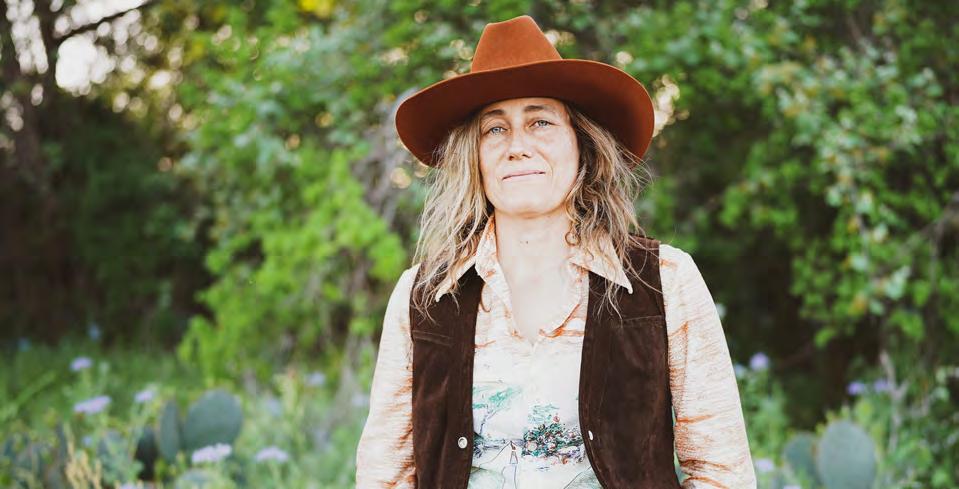
36
‘HillBillie Holiday’ by friend and collaborator Chris Scruggs, Melissa Carper is heading our way with her acclaimed recent album Ramblin’ Soul.
Melissa Carper.
Photo by Lyza Renee.
FRI 7 OCT - BRISBANE
FRI 13 OCT - DURANBAH
SAT 14 OCT - MULLUMBIMBY
SUN 15 OCT - GOLD COAST
THU 19 OCT - SYDNEY
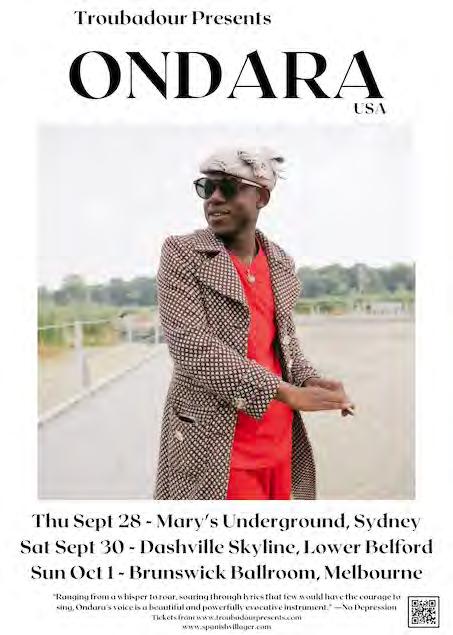
FRI 20 OCT - MITTAGONG
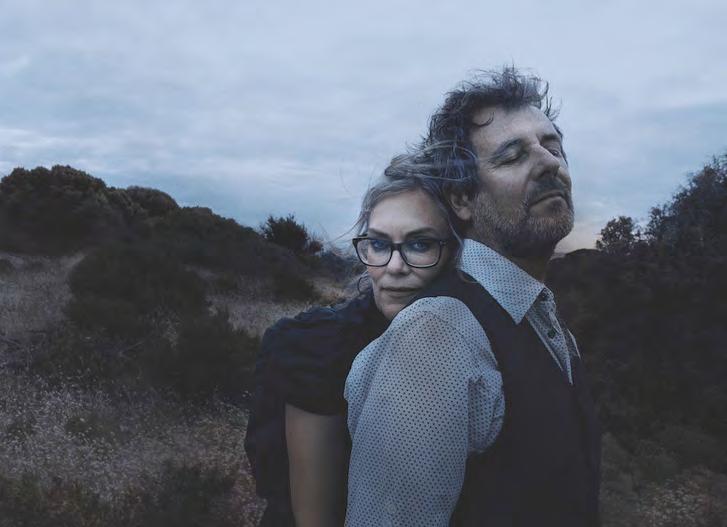
SAT 21 oct - canberra
SUN 22 OCT - CANDELO
TIX & INFO: theyearlings.net
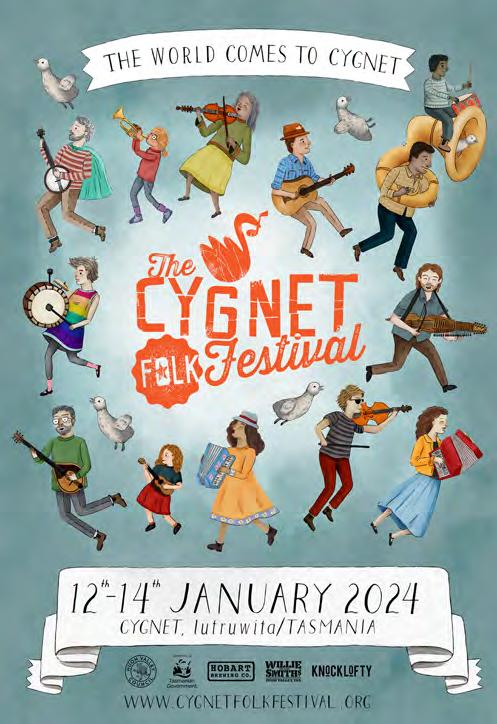
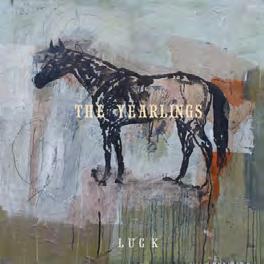
THE YEARLINGS NEW ALBUM LUCK OUT NOW ON LITTLE SECRET RECORDS THROUGH
with LUCIE THORNE
HAMISH STUART
MGM TOURING
&
Why would you give up a secure, reasonably well-paid job to become a full-time musician?
“Tammy, why not?” laughs Summer Dean as she bats away the question. “Sometimes you just gotta. It sounds kind of cliché but I’d rather try. I trust myself and I know that I underestimate my own capabilities, like most people do. It was kind of one of those kind of life things of like, ‘Well screw it. If it doesn’t work, I’ll figure something else out.’ But so far it’s going great. Also, you gotta have a head on your shoulders, which is another reason I’m glad I’m not 23 and glad I’m 43.”
Since Dean made the decision to pursue her dreams and recorded and released the EP Unladlylike in 2016 and her breakthrough album Bad Romantic in 2021 she has made quite a few fans, including musicians like Marty Stuart and Nikki Lane. She was also named as Ameripolitan Female Singer of The Year earlier this year. Dean’s latest album The Biggest Life is set to bring her to an even bigger audience and she will be highlighting songs from that record on her forthcoming Australian tour.
It’s been a journey of discovery for the Jacksboro, Texas, singer who grew up taking piano lessons and following in the footsteps of her mother, grandmother, and aunt, who were all piano teachers. First singing in church as a youngster Dean is now singing in dance halls. “I come from a long line of teachers and in little town in the south here,” explains Dean. “That’s a pretty good job to have if you want to be a wife and a mama. It didn’t work out that way. Now I’m just a honky tonk singer in my forties!”
“I listen to Tammy Wynette,” says Dean when I ask her if Wynette was the inspiration for her career move. As we talk on Zoom there is a photo of Wynette on the wall behind her. “I listen to her all the time. But I listen to everybody. I love the greats, of course, and everybody listens to her, Merle Haggard and Willie Nelson, Tammy and George. But there’s a lot of inspiration that comes from, from everywhere. You know, women my age made country music and women in country music historically have something to sing about and something to say. I’m glad that I’m at the age where I do have something to say and something to sing about. You know, not, not every woman out there is in her twenties.”
The Biggest Life’s 13 songs were recorded in analogue with a small ensemble of musicians at the Bunker, Bruce Robison’s studio in Lockhart, south of Austin. The album is packed with songs bearing some classic
country music titles: ‘She’s In His Arms But I’m In The Palm of His Hands’, ‘Clean Up Your Act If You Wanna Talk Dirty To Me’, ‘Can’t Hide The Heartache From Her Face’, ‘She Ain’t Me’ and ‘Big Ol’ Truck’. There’s even a song about ‘Baling Wire’, reflecting Dean’s upbringing.
“I had to rub my eyes when I saw his name come across my email,” says Dean when I ask her about how she came to work with Robison, somewhat of a Texas legend. “I’ve looked up to his songwriting and singing forever. When you do an album with Bruce it’s completely analog. No digital shenanigans. So never was a computer used in the making of this album. There’s no messing around. You gotta do it right, you gotta do it straight, and you gotta let the art win. You make a lot of decisions based on what the song needs and that’s it. There’s nothing extra.
“Doing an album with Bruce is a real test of your songs and if they hold up. I had a blast. Bruce is all about the song. So, every decision that we made was about the story and about the lyrics. So, as a songwriter it was one of the best moments of my career so far, just ‘cause I got to really flex that muscle.”
Many of the songs on The Biggest Life were written by Dean in a songwriting group that required the members to turn in a song every Wednesday by midnight.
“So, when somebody like Bruce calls and says, ‘Hey, do you have any songs you like?’ I got like 40 or 50, dude,” laughs Dean. “Now mind you, not every song every week is good. Sometimes they’re pretty bad but the point is to get a complete song out.”
Most of Dean’s songs on the latest album chronicle Dean’s life including ‘Baling Wire’,
which refers to her life growing up on a ranch and I suggest it is the first song ever written about the subject even if it is in a metaphorical sense. Sort of. “If you love me enough you can get down on one knee and tie some around my left finger,” she sings.
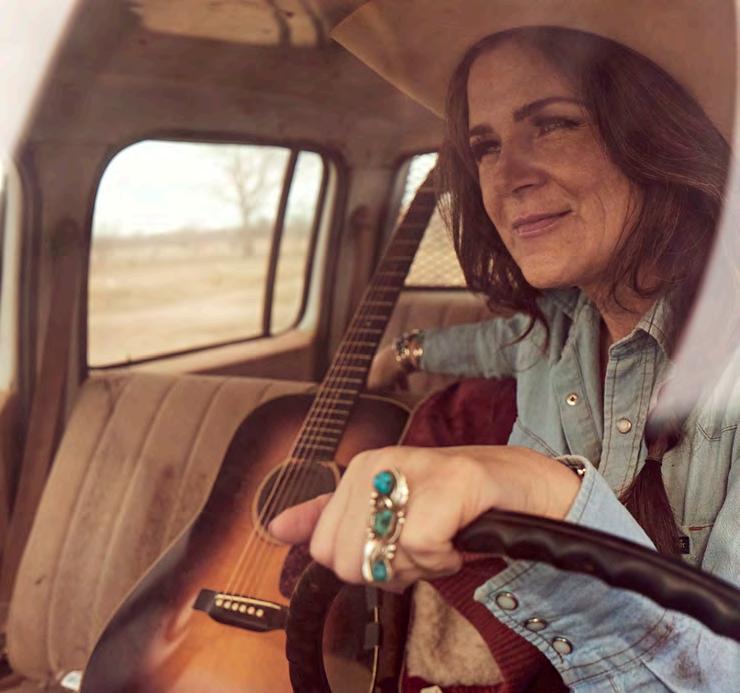
“That’s a weird,” agrees Dean, “In that writer’s group they give you a word to use if you want to. It helps you think about things. I didn’t wanna write about telephone wires or the first thing to cross my mind. It turned out like that and it ended up being a pretty nostalgic little song. I didn’t think I’d ever even hear from it again. I sent it to Bruce when we were picking songs for the album and he picked it. It’s pretty crazy.”
On the other hand, the title track ‘The Biggest Life Worth Living Is The Small’, was inspired by Dean’s love of the film Lonesome Dove, based on the novel by fellow-Texan Larry McMurtry. “Larry McMurtry and Cormac McCarthy are my favourite writers,” says Dean. “To me Lonesome Dove is like The Godfather. It’s the Bible. There’s things in that movie that we can live by and help make our decisions by.” Dean cites the scene in the movie where one of the characters says that if you want anything too much in life you are bound to be disappointed and that you have to learn to love the every day little things.
“I think he’s right,” notes Dean. “We can get really bogged down in the big picture. I think gratitude for what’s around you and keeping track of all those little things that are around you can make life pretty great.”
The Biggest Life is available through The Next Waltz. Summer Dean is touring in October.
38

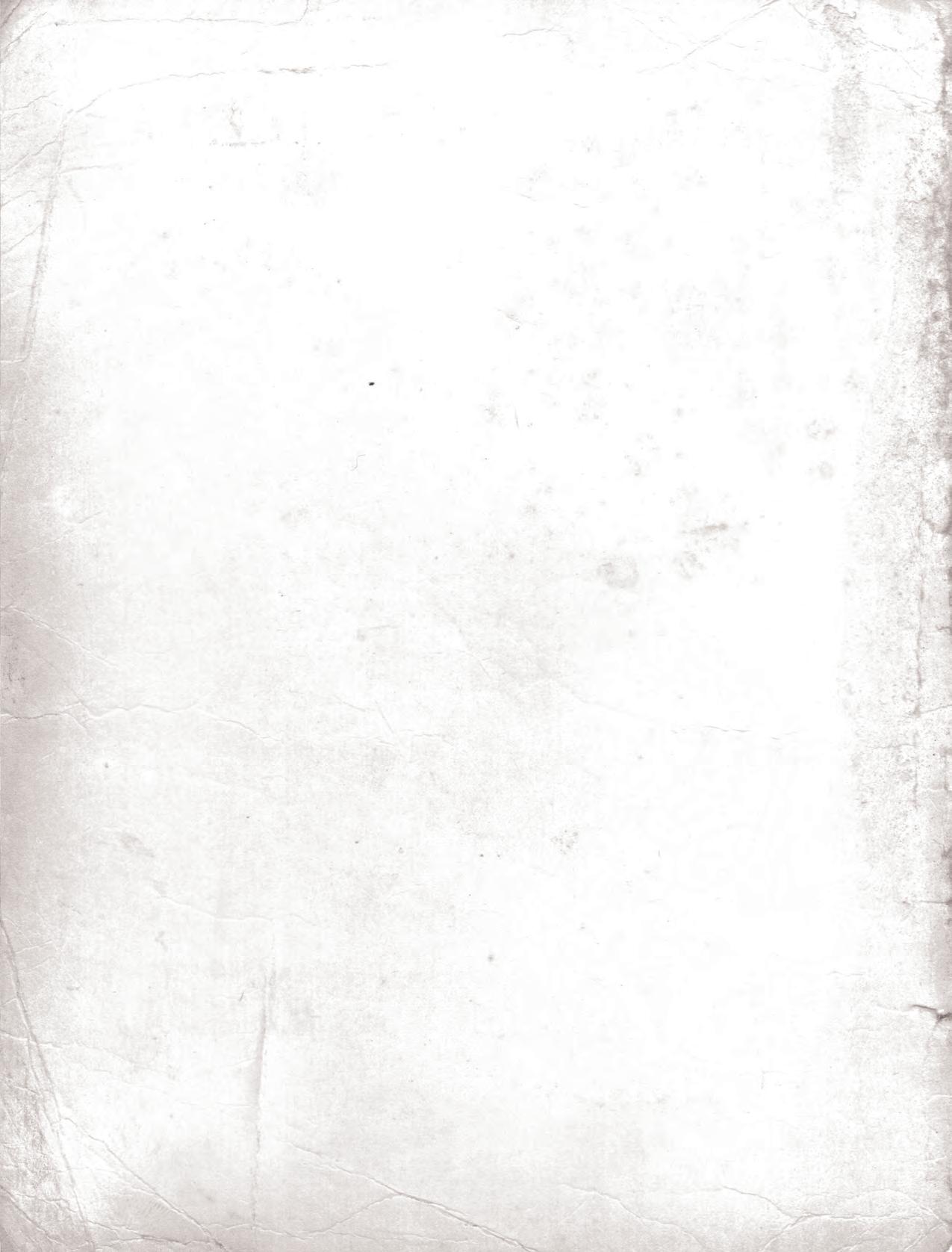
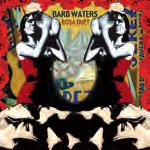

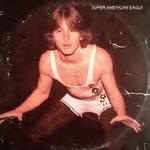




















































































































































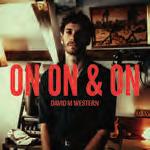
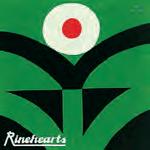
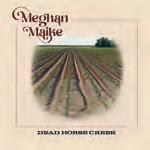
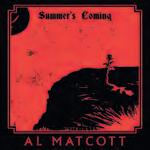
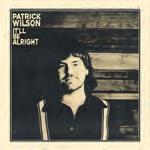
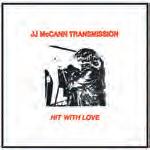

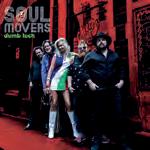

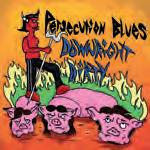

Hiss Golden Messenger, MC Taylor, releases an album that considers the end times, as well as dreams and the intangible of an artistic life.
Hiss Golden Messenger, MC Taylor, releases an album that considers the end times, as well as dreams and the intangible of an artistic life.
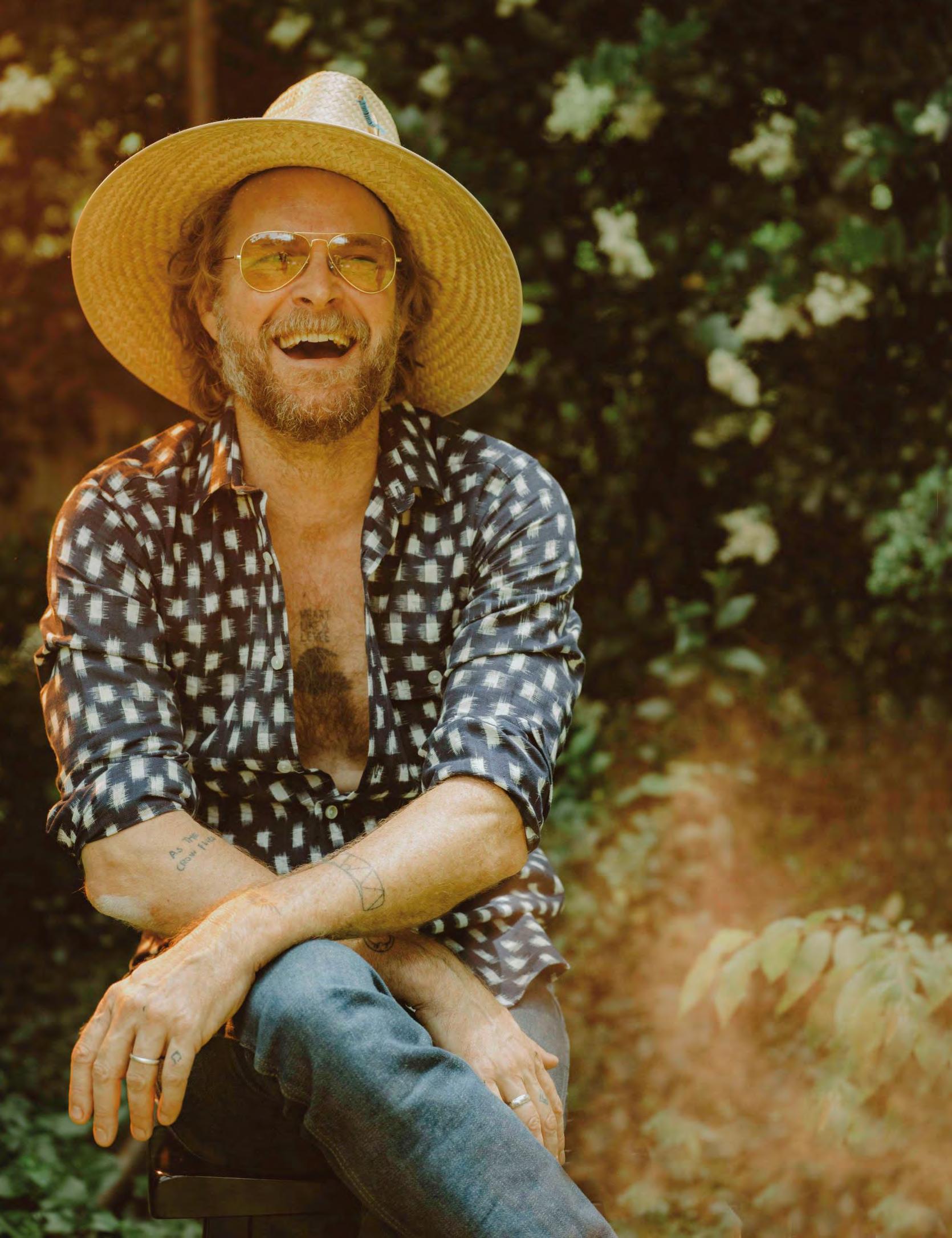 By Bernard Zuel
By Bernard Zuel
By Bernard Zuel
By Bernard Zuel
“Sometimes I might say yes, my work is autobiographical, and sometimes I might say my songs really are not me, necessarily. And both positions would be true.”
40
Not all comparisons are born equal, we know this. And for a few decades the one I’m about to make has been something of an insult in the lesscentral reaches of music, the place where Americana and independent country soul, not to mention alternative and underground scenes, exist. Where MC Taylor’s Hiss Golden Messenger have earned a beloved status well before their new album, Jump For Joy So, it may seem like bringing it up now is taking advantage of Taylor’s weakened state, as he sits in singlet and shorts on a sweltering North Carolina day. A day which left merely heatwave level several degrees back. Another day in what we might call ecological End Times.
“Yeah, you’re not missing anything here,” he says sweatily, in-between watching Marvel films with his kids in the summer holidays. “When it’s as hot as it is here in North Carolina, with the humidity, it does feel like end times. But I’m getting used to it.”
OK then, in this mood of equanimity maybe he’ll get that this is anything but an insult as I tell him that ‘Shinbone’, a little mover of a limpid blues song on the new album, is the best early Dire Straits song in more than 40 years.
Taylor laughs – “I’ll take that as a compliment” – and laughs some more.
“I love Dire Straits. I don’t know that I was thinking about Dire Straits when I wrote and recorded that, but that music is definitely in my DNA, so if it pops out in musical places, it doesn’t surprise me.
Dire Straits, as the name might suggest to newcomers, was a band formed out of circumstances something like the “Starvation Army” Taylor writes about in another new song, ‘Jesus Is Bored’. It’s one of many references across Jump For Joy to the precarious existence, and blissfully uncaring attitude of many young musicians, like the semi-autobiographical Michael Crow who crops up in several songs.
In many ways these new songs are about the real and the graspable: the work, the people, the living, the reality of getting by, just. But at its heart, is it fair to say the album is about dreams and the intangible of an artistic life?
A “ghost no horse can carry”, a belief in something that won’t be crushed?
“Yeah, I think so,” Taylor says. “I think it is about dreams that feel like they just might be attainable when we are just starting to conceive of them. For me that was in my teens, and as I got older those dreams, some of them came through in some shape or form, and mostly I think the dreams
have continued to evolve into something that continues to be almost but not quite attainable. If that makes sense.
“The dream is the thing that drives the engine to me, a little bit. That sense that there is something fantastic and illuminating just over the horizon that makes everything kind of fun. At least to me it’s been fun. Not without a measure of heartbreak and cold water being thrown in my face, but overall I’m still in love with music and I can remember what the dream was.”
There’s nothing wrong with a dream even if it is unobtainable. After all what is going to drive a bunch of kids to scramble to find coins to pay for petrol so they can get to a gig – a real-life moment described in one song – but some crazy dream? A dream may seem flighty and pointless in middle later life because we’ve come to accept that most of ours have ended in disappointment, but it’s an absolutely essential thing at the start.
“I think I have a mixed set of feelings about the way that adulthood can harden us to our dreams,” Taylor says. “I see a lot of people around me that are not artists but would have liked to have been. I see a lot of them calcifying into something that feels a little dreamless. Flighty? I guess I can understand flighty. I’m not disagreeing with you in terms of how many responsible, bill-paying adults think of dreamers, but continuing to chase your dreams is possible. It takes a fair amount of, a ton, of perseverance. And some guts [he laughs] and some stubbornness.” Worth it though?
“I was just thinking recently that it’s funny that I am continuing to do this, and in some regards, a lot of regards, it’s worked out okay, but I ask myself why am I … why am I still doing this?” He asks. “I bet you there might be an easier path. In some ways an easier path. Maybe not existentially. I think my answer is I’m just a stubborn son of a bitch that doesn’t like to be told no. So, if someone that I don’t think has the stuff tells me no, then I’m going to spend 10 years doing it [he chuckles] so that I can have the final word.”
The mood as much as the tempo of Jump for Joy suggests the final word is “yes”. Or “yes goddammit, why not?”
“I’m holding multiple things in my hands: a father, and a bill-paying adult that more than likely pays far more taxes than most people; I’m also a total dreamer that’s still in love with the things that I read about in Jack Kerouac and Allen Ginsberg books when I was 15,” Taylor says. “That depiction of being footloose in America blew a hole through me that I feel like I’m still reckoning with. There’s something so beautiful about that stuff and I feel like I’m still living that life as well. I’m very fortunate to have been able to do so, and to have done it with a lot of people.
“It’s one thing to be dreamer, it’s another to find a gang of dreamers that are all dreaming the same dream and go on that trip with them.”
Almost by definition that dream is an existential endeavour, one emotional and cerebral rather than merely physical. One also that moves away from the kind of decadent, almost narcissistic strain of rock that says live hard and fast and without thought. He may have any number of that kind of album on his shelves, but that’s not the kind of songs he’s writing.
“I’ve always been a little less inclined towards that,” admits Taylor. “I’ve always been more geared towards music that seems to be trying to speak a language that has the potential, with not too much work, to be universal: to hear someone singing something that feels like that’s my life too, I have that question too, I struggle with that too, I love that feeling too.
“If that type of vibe appears in my music, is not so much that I set out to make music like that, so much as that’s the kind of art I’m probably most drawn to. So, it would make sense that I would make stuff like that because it feels good for me to hear stuff like that.”
Which makes one aspect of this album even more interesting, that Taylor has created a character in Crow who is and isn’t him at the centre of several of these songs. A move that enables him to be personal but also to stand to one side and observe or comment. Was that its genesis or did he find he needed a way to pare back his skin even further but with an element of safety?
“I’m not quite sure. I haven’t thought about what I was doing with too much intention yet. But I would say, as I’m ruminating about now, there’s always been some tension in my work, and I suspect in all songwriters, not an unpleasant tension, between what is autobiographical and what is not,” says Taylor. “Sometimes I might say yes, my work is autobiographical, and sometimes I might say my songs really are not me, necessarily. And both positions would be true.”
As I try to step back from the too obvious precipice of assumptions of autobiography in songs, Taylor steps in.
“It’s a question that makes sense and it’s a question that’s interesting to consider for me so part of it I think is having this character of Michael Crow is one way to push the complexity of that question even further out on the edge,” he says. “I can in my head understand this character both as me – there are images in those songs that are absolutely from my own experience: the tangerine moon over Texas, the rambling around in the middle of the night feeling of a lot of the songs. I wouldn’t come up with that had I not experienced it when I was 18 years old – but there were other things that ended up in the songs that I liked from a writerly perspective that weren’t autobiographical, and my brain wants to solve that.
“In other words, my brain has the same questions you do.”
Jump For Joy is available now through Merge Records.
41
Nairobi, Kenya, to
When esteemed Minneapolis-based Americana singer-songwriter Ondara was an aspiring artist growing up in Nairobi, Kenya, finding the western music that he loved so much was a genuine challenge, albeit one that he relished.
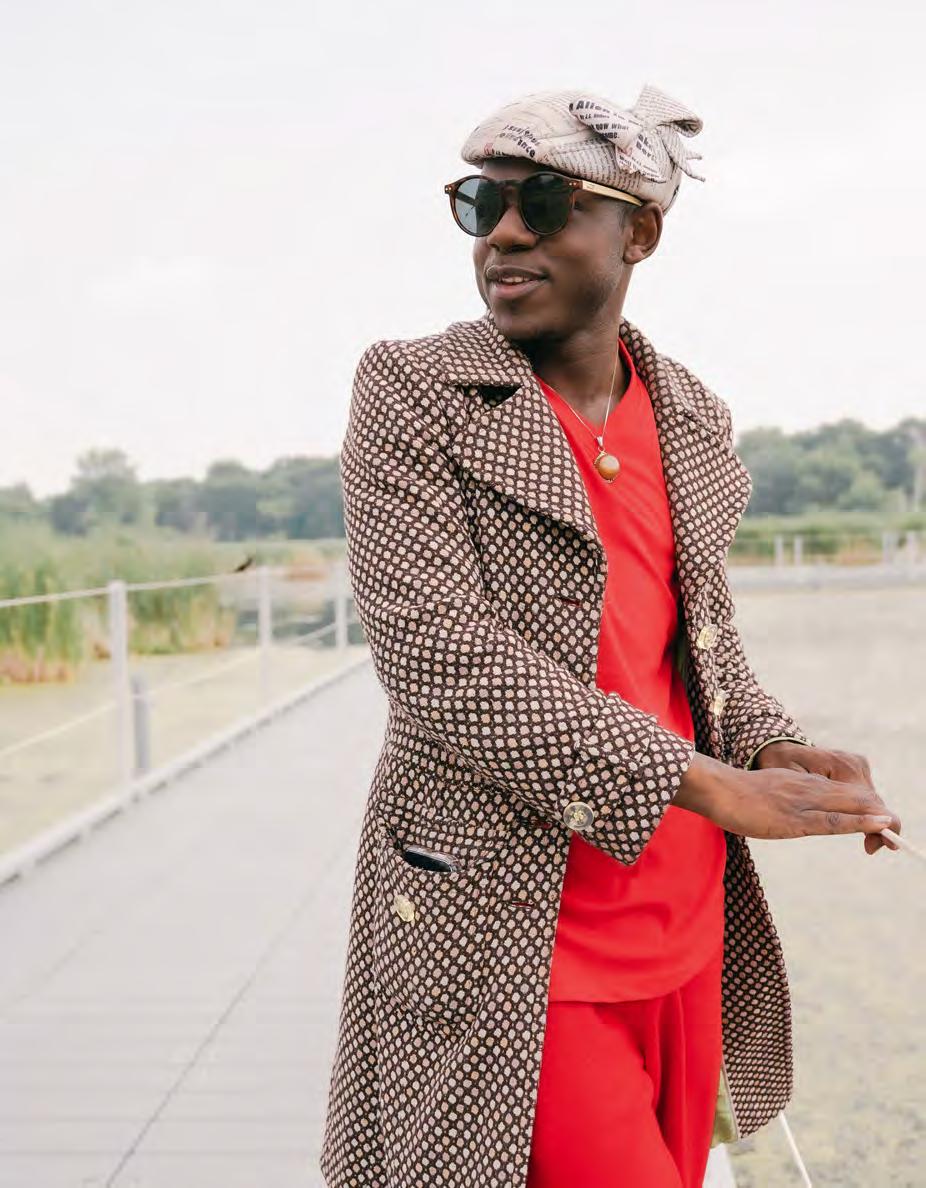
While these days he’s established on the global scene due to the three acclaimed albums that he has under his belt - which have also earned him a Grammy nomination and the prestigious Grand Prize at the 2022 International Songwriting Competition - he still vividly remembers back to a relatively recent time when access to new music wasn’t something he could take for granted.
“We would get British radio, just leftovers from the colonial era I suppose,” Ondara recalls. “So, there was that, and there was the internet occasionally, but mainly there were CDs that people were pirating. There were these vendors who would sell these CDs on the streets or in the markets, and what they’d do is go on the internet and just find whatever music was popular in the west at a particular time and put that on a CD and sell it.
“They’d play the CDs on a speaker so that if you were passing by and hear something you like you could purchase it, and I found a lot of music that way - I found a lot of bands like Radiohead just by strolling around the market or talking to the vendors about their latest CDs. If you find something you take it home, it was like wine-tasting for music.”
Having famously become besotted with Bob Dylan after finding out that he’d penned ‘Knockin’ On Heaven’s Door’ - which without liner notes Ondara had assumed was a Guns N’ Roses song upon first discovering it - since forging his own musical pathway his relationship with fandom has become more problematic.
“My relationship with music really changed drastically after I started doing it professionally,” he explains. “I find that at the moment I mostly listen to classical music really, and maybe some instrumental stuff and some jazz. But I actually don’t listen to too much music anymore, and I was sad about that for a while but I think I’ve made peace with that part of it.
“I find more pleasure now from other kinds of music. There is some irrational paranoia that I have about plagiarising my contemporaries I suppose, so I’m trying to avoid music with words as much as possible. I’m discovering new kinds of music that I’m really enjoying like classical which is really amazing - it’s a different kind of music.
“I really love songwriting, and part of the reason I stopped listening to so much music was to keep I suppose the well of inspiration pure, so that whatever I’m writing is coming from my soul, is coming out of me and where I am, it’s not coming out of some algorithm or something that’s happening in culture or pop culture, it’s what I’m feeling at this moment and I’m expressing that.
“I’m constantly writing, there’s a traffic of songs and melodies and poems in my head that are always just on a timeline trying to get out of my head”. For his most recent album The Spanish Villager No. 3 Ondara began writing at a remove - penning narratives through the eyes of the fictional Spanish Villager - a move he believes saved both his career and his wellbeing.
“The Spanish Villager in many ways saved my career but also me in general,” he admits, “because I got to a place where after putting out my first record [2019’s Tales Of America] and that going well, and after dealing with the sort of success of that and being in the public space for a while, I think the aspect of this work where one becomes a commodity started to become taxing mentally for me.
“I wasn’t prepared for that. I was just excited to make a record, I wasn’t prepared for what the actual work entailed, so I was having a difficult time reconciling who I was as an individual and who I was as an artist - or who I was as a commodity, this commodified public entity. And who I was just a person with my own individual needs, and at some point I just wanted to leave the work behind.
By Steve Bell
“But during this process my subconscious yielded this character the Spanish Villager to help me psychologically negotiate that problem. He acts as a wall between the art and the artist - like a demarcation of where the art ends and the artist begins in a way - and that helped me move to the next step. I think I everything I do moving forward will have to come at least from the public persona of the Spanish Villager, because I think that’s the only way I can continue to do the work in a healthy fashion.
“I’m really finding that balance more and more, but it’s a learning curve. They don’t teach you that when you’re getting into it, they just give you a record deal and tell you, ‘Let’s go and be a star!’ They don’t tell you how hard it can be on your mental health.”
Ondara will be appearing at Dashville Skyline and doing other dates in Australia. Please check the Rhythms Gig Guide online. The Spanish Villager No. 3 is available on Verve Forecast.
From
Minneapolis in the USA, Ondara’s journey, inspired by Bob Dylan, has been remarkable.
42
CATHERINE TRAI COS
CATHERINE TRAI COS
UNDERGROUND AUSTRALIAN ICON RELEASES OPTIMISTIC PANDEMIC ALBUM.
UNDERGROUND AUSTRALIAN ICON RELEASES OPTIMISTIC PANDEMIC ALBUM.
THE NASHVILLE RECORD IS OUT ON AUGUST 25TH AND AVAILABLE ON VINYL.
THE NASHVILLE RECORD IS OUT ON AUGUST 25TH AND AVAILABLE ON VINYL.



CATHERINETRAICOS.BANDCAMP.COM
CATHERINETRAICOS.BANDCAMP.COM

CATHERINETRAICOS.COM
CATHERINETRAICOS.COM
43
By
September marks the Americana Music Festival & Conference in Nashville at which Rhythms will be represented. October sees two Australian events devoted to the ‘genre’ in Out on the Weekend and Dashville Skyline. This prompted Ian McFarlane and myself to get into a discussion about the relevance of the term ‘Americana’ to the Australian scene. Jim Lauderdale, for many years the host of the Americana Awards & Honors ceremony at the Ryman Auditorium, defined Americana as “all the good stuff”. The Americana Music Association has broadened the definition over the years to include soul and blues (and we are hoping that it includes jazz as well).
But for almost all of the existence of Rhythms magazine we have used the term ‘roots’ to cover music that includes elements of folk, country, alt-country, rock et cetera, recognising that a lot of the music originated in Britain and influenced music created here and in America. (We should explain to our overseas readers that we cannot use the term Australiana because it is so closely associated with a 1983 No.1 comedy single of the same title).

So, the term ‘roots rock’ should be fairly self-evident, shouldn’t it? That’s what we thought as we compiled our list of seminal Australian ‘roots rock’ albums. We think we have come up with an excellent selection to help you discover or revisit how our musicians have synthesised their influences. If you think we have left any essential albums out, please let us know. In the meantime, enjoy reading our list and contributing to the debate.
ACUFF’S ROSE Never Comin’ Down (1993) Torn & Frayed
Named after Roy Acuff, his song writing partner, Fred Rose, and their publishing company, Acuff-Rose Music, Acuff’s Rose were formed in 1991 by Jeff Williams on vocals and guitar, Jack Coleman on bass guitar, James Hurst on drums, Martin Lewis on guitar, Kay-Louise Patterson on keyboards and vocals. Around the time that Uncle Tupelo were in their heyday in America Williams and crew were channelling the spirit of Gram Parsons and Gene Clark (there is even a mighty version of his ‘From a Silver Phial’). Guest musicians on Never Comin’ Down included three former members of The Triffids: David McComb, Robert McComb and Graham Lee; as well as Charlie Owen and Chris Wilson. (Later, Williams and Patterson issued their own albums). The group released a second album on Torn & Frayed Records, Son of the North Wind (1995) before disbanding in 1997. They were way ahead of their time and this album is well worth rediscovering. (BW)
THE AUDREYS Between Last Night and Us (2006) ABC Music
Formed in Adelaide, in 2004 by Taasha Coates on lead vocals, melodica, harmonica and ukulele and guitarist Tristan Goodall, they released four studio albums, starting with Between Last Night and Us which featured the singles ‘Banjo & Violin’, ‘Oh Honey’ and ‘You and Steve McQueen’. The duo was also augmented by other musicians but later performed as a duo. The album was recorded by producer, engineer

44
50
RHYTHMS AUSTRALIAN TOP
Brian Wise and Ian McFarlane (With advice from Martin Jones, Chris Familton and Keith Glass)
44
and friend Shane O’Mara at his Yikesville Studio and the songs ‘Pale Dress’ featured Rebecca Barnard on backing vocals. Taasha’s sister, Danika, contributed some of the lyrics, including verses to ‘You and Steve McQueen’ and ‘Banjo & Violin’. At the ARIA Music Awards of 2006, the album won the ARIA Award for Best Blues and Roots Album and its songs were used as the soundtrack for the 2007 ABC TV series, Rain Shadow. Coates and Goodall continued as a duo, although splitting as a couple and living in different cities. In 2016, Taasha Coates released her first solo record, produced by Shane Nicholson. Sadly, Tristan Goodall, died on 2 July 2022, aged 48. (BW)
THE BLACK SORROWS
Sonola (1984)
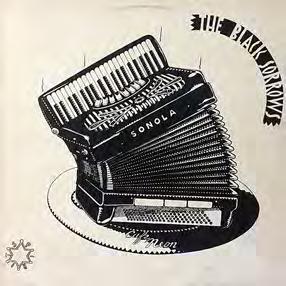
Spirit
AXIOM
If Only… (1971)
Warner Bros
Having cast off the R&B and beat pop roots of their previous bands (Groop, Twilights), the members of Axion embraced the emergent country rock sounds of American groups such as The Band, The Byrds, Flying Burrito Bros and Poco. They should be remembered as local pioneers in the field. Brian Cadd has cited Music from Big Pink as being the main inspiration for debut album Fool’s Gold and the single ‘Arkansas Grass’. Axiom headed to London where they recorded second album If Only… with noted produced Shel Talmy (Kinks, Who, Easybeats). It is a mixed bag but does feature funky country rockers ‘My Baby’s Gone’ (a Top 10 hit single), ‘Hold the Phone’ and ‘Matter of Time’, while the gorgeous ‘Father Confessor’ and ‘Longest Day’ show off their close harmonies a la Crosby Stills Nash & Young. There are also reworkings of ‘A Little Ray of Sunshine’ and ‘Ford’s Bridge’ (retitled ‘Georgia by Morning’ here) from the first LP. Caddie went on to a successful solo career, Glenn Shorrock headed Little River Band and Chris Stockley joined The Dingoes. (IMcF)
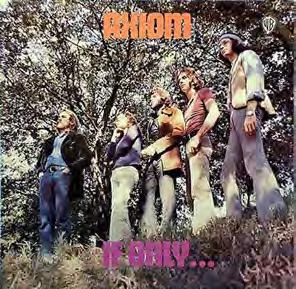
After the demise of Jo Jo Zep & The Falcons Joe Camilleri, still the hardest working musician in Australian music, decided to explore his love for zydeco and formed The Black Sorrows with that purpose in mind. The band featured George Butrumlis on piano accordion and some of Camilleri’s long-time friends and colleagues. Recorded for a mere $1300 and released on Camilleri’s own label, Sonola was the new group’s debut album and consisted of cover versions of some Louisiana classics, specifically Chuck Berry’s ‘Promised Land’ based on Johnny Allen’s version and ‘Before I Grow Too Old’ by Bobby Charles, Fats Domino and Dave Bartholomew. Other covers included Van Morrison’s ‘Brown Eyed Girl’, Arthur Alexander’s ‘You Better Move On’ and John Lee Hooker’s ‘Don’t Look Back.’ A year later the group released the even more zydeco-oriented album in Rockin’ Zydeco and then A Place in the World with mainly originals. After Dear Children (1987) the group’s career took off in a major way. (BW)
with the ambitious Grand National, another #1. It confirmed Butler’s great strength of incorporating catchy melodies, infectious hooks and funky beats into his music without losing sight of his roots. Highlights are plenty, including the singles ‘Funky Tonight’, ‘Good Excuse’, ‘Better Than’ and ‘Used to Get High’, and album track ‘Daniella’ a song for his wife (aka Mama Kin). These are just fabulous roots rock jams with exceptional arrangements and instrumentation. Grand National took away two awards at the 2007 ARIAs, Best Blues and Roots Album and Best Independent Release. April Uprising (2010) made it three #1 albums in a row. (IMcF)
Singer/songwriter/multi-instrumentalist John Butler has pursued a remarkably diverse and successful career. His Trio’s third album, Sunrise Over Sea, was a major critical and commercial success, reaching #1 and selling over 350 000 copies. He upped the ante

KEV CARMODY Pillars of Society (1988) Rutabagas
Kev Carmody honed his song writing skills around campfires and political protests during the semi-fascist era of Joh Bjelke-Petersen’s Queensland. He recorded his debut album simply, with sparse instrumentation but politically charged indigenous folk blues never sounded better. Carmody is in fine voice throughout, while deeply passionate songs such as ‘Pillars of Society’, ‘Thou Shall Not Steal’, ‘Jack Deelin’, ‘Black Deaths in Custody’, ‘Twisted Rail’ and ‘Comrade Jesus Christ’ strip emotions to the bone, highlighting the indigenous struggle in modern day Australia. One can detect everything from the sounds of Bob Dylan and Woody Guthrie to country blues and the Irish folk tradition in the sounds. In the Bi-Centennial year of 1988, Rolling Stone hailed Pillars of Society as “the best protest album ever made in Australia”, yet that was never the maker’s intention. He was more attuned to being part of a wider movement intent on effecting significant change, something for which we’re still striving. (IMcF)
 THE JOHN BUTLER TRIO Grand National (2007) Jarrah
THE JOHN BUTLER TRIO Grand National (2007) Jarrah
45
BILL CHAMBERS
1952 (2019)
Bill Chambers
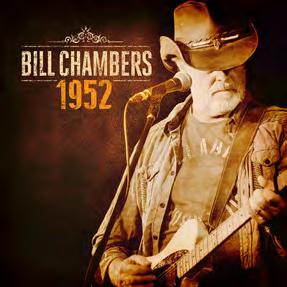
“The songs are pretty much about living, dying and the passing of time,” said Chambers of 1952. Inspired by Hank Williams, it is yet another example of his fine songwriting and his gritty voice. Born in the UK but best known for spending most of his life in outback Australia, especially with his family, he is the person who inspired daughter Kasey to pursue a music career. We remember a teenage Kasey singing with Bill’s Dead Ringer Band at Bluesfest. Bill might have been content to take a back seat supporting his daughter, while his son Nash is a renowned producer, but he shouldn’t hide his light under a bushel. Previous albums, Sleeping with the Blues and Cold Trail were nominated for the ARIA Award for Best Country Album. This is a hidden gem worth rediscovering but the same could be said of Chambers’ previous albums as well. (BW)
Music Award for Best Country Album and was a multi-platinum seller in Australia. Not only that, but the album also bought Chambers to the attention of the Americana Music Association and she remains one of the few Australian artists to ever appear at the Awards Ceremony at the Ryman. These days Chambers makes self-deprecating remarks about her voice but it certainly got her attention with this album. Chambers remains one of our most revered and successful musicians, having transcended the country barrier. (BW)
RICHARD CLAPTON Goodbye Tiger (1977) Infinity
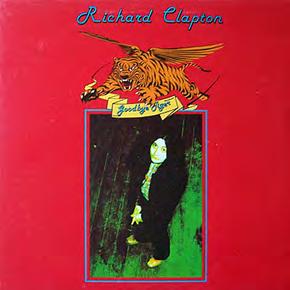
KASEY CHAMBERS
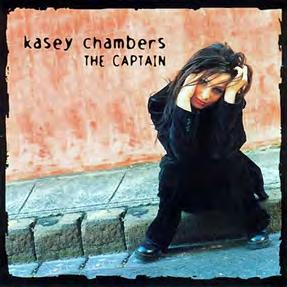
The Captain (2000)
EMI
You could tell when watching her perform in the Dead Ringer Band that Kasey Chambers was destined for big things, but no-one could have predicted that her solo career would take off so soon and so successfully. You could argue that Chambers’ solo debut album was one of the most important country music releases in Australian music history. In fact, we’ve done just that. Produced by Nash Chambers, The Captain brought ‘good’ country music onto commercial radio in a huge way. The album won the 1999 ARIA
KASEY CHAMBERS & SHANE NICHOLSON
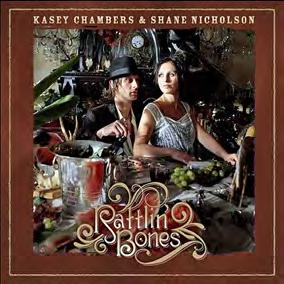
Rattlin’ Bones (2008) Essence
Here’s another of those albums that might be overlooked but deserve some reexamination. The first collaboration album between the couple, this paired Chambers’ talents with Nicholson’s formidable song writing. A comparison could be made with Buddy and Julie Miller and that is rarified territory but this collaboration, produced again by Nash Chambers, offered something unique and high quality for the Australian country scene. Chambers has said that they didn’t want a duets album but one where there was a vocal collaboration and an album that sounded like a band with two singers in it. Nicholson’s voice acts as a foil for Chambers’ higher register and it works really well. The album debuted at #1 on the ARIA Albums Chart and its success prompted a follow up in Wreck & Ruin in 2012, a few years after which the couple split. (BW)
Clapton recently released the album Music is Love (1966-1970) as an homage to his influences,many of which were from the California scene of the early ’70s. Think of that while you revisit Goodbye Tiger his fourth studio album. Referred to as ‘Tiger’ byhisfriendsthecomparisonswithJackson Browne are apt but Clapton’s music tends to be much broader. Apparently,he started writingtracks for the album after he and a group of friends were at Sydney Town Hall to see American journalist, Hunter S. Thompson, in October 1976. Clapton has said that working on the album was the worstyearofhislifebutitproducedatleast two classics in ‘Down in the Lucky Country’ and ‘Deep Water’. Ian McFarlane described Goodbye Tiger as his “most celebrated work, an album full of rich, melodic and accessible rock with a distinctly Australian flavour.” It established Clapton’s reputation as one of the most important Australian songwriters of the 1970s. (BW)
COUNTRY RADIO Country Radio Live (1972) Infinity
Fronted by ex-folkie/singer/songwriter Greg Quill, with the multi-talented Kerryn Tolhurst on guitar and mandolin, Country Radio was a genuinely pioneering country rock band. Their singles, ‘Listen to the Children’, ‘Gypsy Queen’ and ‘Wintersong’, sound as fresh now as they did in 1972. Quill was also the first local roots music practitioner who knew that to focus on the ‘song’ could

46
be the key to longevity. He cited the likes of Bob Dylan, John Stewart, Gram Parsons, Richard Thompson, Robbie Robertson etc as his role models. When I asked Quill how Country Radio had avoided the heavy blues rock sound that many Aussie bands of the day embraced, he confirmed they played what he’d learned by exploring the British and American folk / country universe. “We didn’t sound like anyone else but none of that was planned as such. The blues is a musicians’ art form, a place where you learn guitar licks, tone, timbre and groove. What interested me about the roots music I was listening to back then was the progress of the narrative song... words and melodies, not the mechanics of guitar. I think you can follow only one route or the other, not both.” Country Radio Live is everything you want from Quill as a songwriter, plus two John Stewart compositions, ‘Some Lonesome Picker’ and ‘Never Goin’ Back (To Nashville)’. The 1974 compilation album Gypsy Queen drew together non-album singles and previously unissued tracks. (IMcF)
THE DINGOES
Five Times the Sun (1977)
A&M
With the powerful backing of Englishman Peter Rudge (tour manager with The Rolling Stones and Lynyrd Skynyrd) The Dingoes spent two years in the USA. Working with veteran producer Elliot F. Mazer (Big Brother and the Holding Company, Linda Ronstadt, Jerry Jeff Walker, Neil Young), Five Times the Sun (1977) turned out to be a strong rock album with a prominent American production sound although the band retained its earthy Australian roots. Highlights include ‘Shine a Light’, ‘Singing Your Song’, ‘Starting Today’, the glorious ‘Waiting for the Tide to Turn’ and punchy re-recordings of ‘Smooth Sailing’ and ‘Come on Down’. Rolling Stones’ session pianist Nicky Hopkins and The Band’s Garth Hudson contributed to the album. (IMcF)
mostly written by Bennett with some cowritten with Gillard. The band seemed to be a natural successor to outfits like The Dingoes but were not able to tour extensively enough to make a bigger breakthrough (which we think it deserved). Bennett continues to write great songs that keep looking for an audience. (BW)
THE DINGOES
The Dingoes (1974)
Mushroom
The highly acclaimed Melbourne band
The Dingoes formed in April 1973, centred around valiant singer Broderick Smith and guitarists Kerryn Tolhurst and Chris Stockley. Although often described as an Australian country rock band, they merged R&B and country with red-hot rock’n’roll to arrive at a unique musical blend. In the early days The Dingoes held court at such legendary venues as the Station Hotel in Prahran. Debut album
The Dingoes remains a local rock classic. The Top 40 hit singles ‘Way Out West’ (“Living and a-working on the land”), ‘Boy on the Run’ and ‘Smooth Sailing’, plus ‘Come on Down’, ‘The Last Place I Wanna Be’ and ‘Sydney Ladies’ are seared into the grey matter of Australian music fans. ‘Boy on the Run’, which Smith co-wrote with Tolhurst, is one of his most affecting lyrics, and musically I just love the ascending progression towards the end and the way it surges. Although they were not the first Australian band to do so, they are recognised for the way they wrote songs about where they were from and singing about local subject matters. (IMcF)
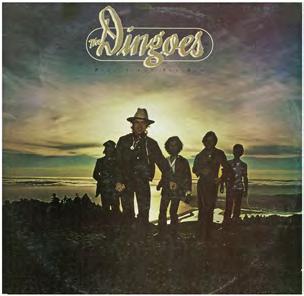

THE FLOOD
The Ballad of K.B. (1998)
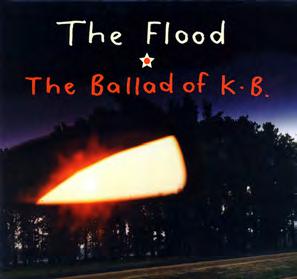
KB
Formed by Kevin Bennett on vocals and guitar and James Gillard on bass, the group went on to win the Tamworth 2006 Golden Guitar Award for Vocal Group or Duo of the Year with their track, ‘Hello Blue Sky’ from The Late Late Show (2006). The Ballad of K.B. set the scene for the group’s following excellent albums and was named by Iain Shedden of The Australian in his Top 20 Australian Roots Albums. One review claimed that the album was “jammed packed full of The Flood’s unique amalgam of country, rock, blues and even a dash of boogie piano, be that unintentional or not.” The tracks were
FLYING CIRCUS Gypsy Road (1973)
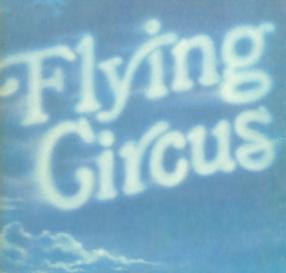
Warner Bros
Originally known for their bubble gum hits, the members of Flying Circus were country rockers at heart. Their later, finely crafted, albums were overlooked locally yet mixed elements of country rock, folk rock and mainstream rock into a very listenable whole. Overseas reference points would be The Byrds, Flying Burrito Bros, The Dillards, Poco, Bob Dylan and Gram Parsons. Having relocated to Canada, Gypsy Road delivered everything the past years had promised.
‘Old Enough’, ‘Green Patch’ and ‘Train Ride’ are all catchy country rock numbers while ‘Maple Lady’ features a more rollicking, bar band feel. ‘Summer Song’ adds pensive reflection to the country rock mode. ‘Another Winter’s Day’ and ‘Me and You’ are acoustic ballads with the added touches of vibes and cello. The standouts are ‘Thousand Years’, a delightful countrypsych song, and the glorious ‘Gypsy Road’. Here the Flying Circus takes everything that’s great about country and folk rock –jangly guitars, close harmony vocals, acoustic rhythm, violin – and bond them to a captivating melody while upping the rock ante with an amazing fuzz guitar solo. (IMcF)
47
MARK GILLESPIE Only Human (1980)

W.B.E.
Reissued by Aztec Records (2010)
Regarded as one of the best debut albums ever released in this country Gillespie was a formidable songwriter. The title track was unique and ‘Mayday in Arcadia’ had echoes of Dylan in the lyrics. Produced by John Sayers, Gillespie played guitars, synthesisers, keyboards, piano and mandolin while the studio band featured guitarist Ross Hannaford and Joe Creighton on bass and harmony vocals. The album originally appeared on the Wheatley label set up by Glenn Wheatley. Released in the same year as the birth of commercial FM radio it was widely played and reached the Top 50 on the album charts. Gillespie toured and was support act to Tom Waits, Maria Muldaur and Rodriguez but he wasn’t really suited to the music industry. Having visited Bangladesh he later decided to settle there. The follow-up Sweet Nothing in 1982 was superb and Ring of Truth arrived in 1983. After nearly a decade away, Gillespie returned to release Flame in 1992 before returning to Bangladesh to work for charitable causes. He died there in 2021, aged 71. (BW)
heroes. Australian Soul is where he hit on the quest for mainly Aussie themed songs done in Folk/Soul/Rock form. He described it as “A career album of all new recordings that sum up all the influences that have gone into a lifetime in music, and a lifelong obsession to create something that is meaningful to the Australian experience.” Local backing musicians included Mick Hamilton, James Black, Steve Hadley, Paul Gadsby, Gary Young, Lyndsay Hammond with an international contingent of four members of the Amazing Rhythm Aces. Comparisons might be meaningless but with inspiration from the likes of Merle Haggard, Hank Williams, Guy Clark, Townes Van Zant and Gram Parsons, songs such as ‘Bendigo (Welcome Stranger)’, ‘Mad Dan Morgan’, ‘Salvation Jane, Patterson’s Curse’, ‘Wilderness Trail’, ‘Hank & Townes’ and ‘Victoria (There’s A River)’ have an international flavour yet they all tell a story that is only identifiable as Keith Glass music. (IMcF)
HALFWAY Any Old Love (2014) Plus One

KEITH GLASS Australian Soul (2001) Missing Link
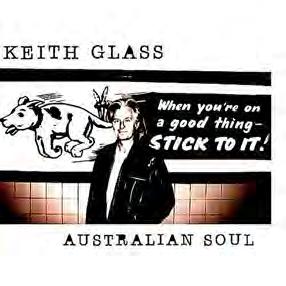
Singer/songwriter and long-time Rhythms contributor Keith Glass has pursued a multifarious and action-packed career. From R&B beginnings to the rock musical Hair, from record shop proprietor (Archie ’n’ Jughead’s, Missing Link) on to country blues troubadour, he’s one of the nation’s unsung
GOANNA Spirit of Place (1982) WEA

‘Solid Rock’ exploded out of our radios, stereos and TV sets in October 1982 like a bolt of lightning. It was a statement like no other heard to that time. Aboriginal land rights were an emergent issue, so singer/ songwriter Shane Howard and Goanna simply and forcefully stated the bleedin’ obvious. It was a damning indictment of the European invasion of Australia. It reached #1 in Melbourne and #3 on the national charts. The song doesn’t age, its message still pertinent, it is the sound of Australia. It reminds us of the deep cultural and spiritual connections that Indigenous people have with the land. The parent album Spirit of Place entered the Melbourne charts at #1 first week in, as well as reaching #2 on the national charts. It remains a forthright, robust, soulful and ruggedly beautiful work, crafted with a deep sonic quality courtesy of producer Trevor Lucas and engineer Tony Buettel. The album mixes rock sounds with acoustic instrumentation on ‘Factory Man’ and ‘Razor’s Edge’. Lucas brought in a 26-piece orchestra for the elegant ‘On the Platform’. ‘Stand Yr Ground’ and ‘Children of the Southern Land’ also call to mind what Richard Clapton had been doing. (IMcF)
Halfway is an eight-piece band based in Brisbane and formed in 2000. The line-up includes John Busby and Elwin Hawtin –originally from Rockhampton – Ben Johnson (bass, vocals), Chris Dale (vocals, guitar), Dublin born brothers Noel Fitzpatrick (pedal steel) and Liam Fitzpatrick (banjo, mandolin, tenor guitar), ex-Go-Between John Willsteed (guitar) and Luke Peacock ‘The Bird’ (keys, vocals). It’s a big line-up and a big sound. Tastefully produced by Robert Forster, the album’s theme features a narrative based on the story of a young couple breaking up in a remote Australian town (Barcaldine) in the mid-1970s. The album won the Independent Music Award (AIR Awards) for Best Country Album. The lead single, ‘Dulcify’, won Song of the Year at the Queensland Music Awards (QMA’s) and an APRA Award nomination for Best Blues and Roots Single. Racing fans will recognise the reference to Harry the Handbrake. An under-rated classic. (BW)
FREYA JOSEPHINE HOLLICK
The Real World (2022)
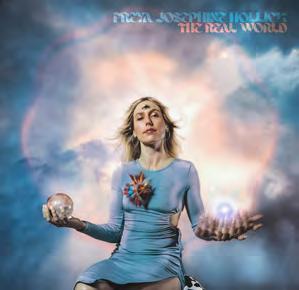
Cheersquad
After recording in Joshua Tree with Lucinda Williams’ Buick 6, the sessions were brought back and shaped along with her Australian band and producer Roger Bergodaz, delivering four pandemic-released singles including ‘Nobody’s No Better Than No One’, ‘Impossible to Love’, ‘The Real World’, ‘Vivian, June, Dolly and Jolene’, and ‘Me &
48
Mine’. A change of label, new management and health and personal struggles were all weathered and the album was finally released to great anticipation. It didn’t disappoint. “I had a bit of a spiritual thing happen to me before lockdowns. I got quite heavily into meditation and yoga ... perfect timing,” Hollick told The Age. “Otherwise, it could have been a drunken mess.” The songs are…. quirky, which matches Hollick’s voice which is distinctive and could (and should) gain her attention on the international scene. The cover has somewhat of a religious reference (if you dig deep) but Hollick deals with some big issues and displays a sense of humour as well. (BW)
PAUL KELLY WITH UNCLE BILL Smoke (1999)

Gawd Aggie
PAUL KELLY & THE MESSENGERS So Much Water, So Close to Home (1989)
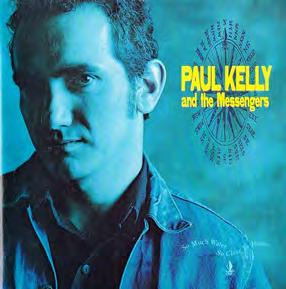
Mushroom
We might have been able to fill half this feature with Paul Kelly albums – Gossip, Under the Sun, Post, Ways & Means, Stolen Apples et cetera – yet if we lead with So Much Water, So Close to Home (#10 on the charts) we know you can’t go wrong. Inspired initially by the likes of Bob Dylan, Hank Williams, Lou Reed and Robert Johnson, Kelly’s narrative song writing style was infused with wry observations, bittersweet emotions and enormous appeal, so he was on the top of his game here. The previously monikered Coloured Girls were an essential part of Kelly’s musical development, a band capable of great empathy, adaptability and above all adept at producing energetic, intelligent rock’n’roll. Guitarist Steve Connolly contributed a great deal to Kelly’s sound and style. So Much Water... featured some of his most passionate and world-weary songs. The album title appeared in the song ‘Everything’s Turning to White’ which was inspired by the Raymond Carver short story So Much Water So Close to Home. The album spawned the singles ‘Sweet Guy’, ‘Careless’ and ‘Most Wanted Man in the World’. (IMcF)
In October 1999 Paul Kelly issued two divergent albums, simultaneously: Smoke and the self-titled release by Professor Ratbaggy. Both were departures from the Kelly norm but having them issued together the singer correctly reasoned that the contrast would help tell the story of his work over the previous year. Smoke was certainly a transitional album, with Kelly teaming up with Melbourne-based bluegrass combo Uncle Bill, comprising Gerry Hale (guitar, dobro, mandolin, fiddle, vocals), Adam Gare (fiddle, mandolin, vocals), Peter Somerville (banjo, vocals) and Stuart Speed (double bass). The album featured a mix of old and new Kelly songs (including ‘Our Sunshine’, ‘Sydney from a 747’, ‘Stories of Me’, ‘Taught by Experts’) treated in classic bluegrass fashion (based on an idea by Graham Lee). The combination worked with Smoke peaking at #36 on the national chart. In contrast, Professor Ratbaggy was rooted in New Orleans/Memphis funk, R&B and dub reggae (with reference points being The Meters, War, Booker T. & the MGs etc). Kelly embarked on a series of tours with both Uncle Bill and Professor Ratbaggy. (IMcF)
Rogers has also been a long-time advocate. Keyes was born in 1966 and grew up in the inner-city working-class area of Sydney known as Redfern. That background emerges in the lyrics which deal with real people and their problems. Originally inspired by The Clash (later he wrote a song about Joe Strummer) and Elvis Costello, Keyes will draw the inevitable comparisons with Bruce Springsteen (and Lou Reed on ‘Lou Reed & Robert Quine’) because they are writing about the same sorts of characters – the working class or the neglected and those on the margins of society. Several other Keyes albums could have made our list too: The Last Ghost Train (2007) or Sunnyholt (2015). But with songs such as the title track, ‘Down on the Street with You’, ‘Pauly Roberts Scores a Car’, ‘Boxing Day’ and more this is a fine place to start your discovery. (BW)
PERRY KEYES
Johnny Ray’s Downtown (2010)
Laughing Outlaw
Perry Keyes is one of those unsung heroes that deserve a lot more attention. For more than a decade Rhythms writer Jeff Jenkins has been singing his praises and Triple R’s Neil

ANNE KIRKPATRICK
Let the Songs Keep Flowing Strong and Naturally (1976)
EMI
Singer Anne Kirkpatrick grew up as part of Aussie country royalty, being the daughter of Slim Dusty and Joy McKean. Her solo career in the realm of Country Pop is significant. It’s a genre that the likes of Kasey Chambers took into the upper echelons of the charts and into the hearts of the multitudes in the 2000s. She hit her stride with this second album, notable for covers of Neil Young’s ‘Only Love Can Break Your Heart’, Anna McGarrigle’s ‘My Town’, Waylon Jennings’
‘I’m Not Lisa’, John Sebastian’s ‘Rainbows All Over Your Blues’, Hank Cochran’s ‘Take My Hand’ and a gorgeous rendition of Gene Clark’s ‘Feel a Whole Lot Better’. Her crystalclear vocals are a delight, reminiscent of Emmylou Harris and Linda Ronstadt without being slavish. Backing her were the likes of Kerryn Tolhurst on Dobro and mandolin and drummer Jimmy Duke-Yonge (Pirana). It’s all nimbly and tastefully played, and I’d happily listen to this all day. (IMcF)
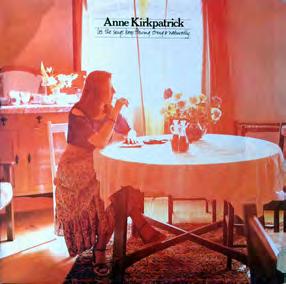
49
JIMMY LITTLE Messenger (1999) Festival
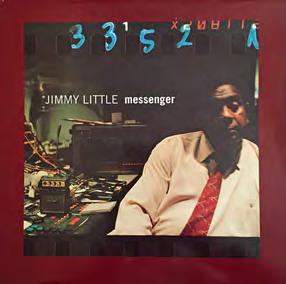
Indigenous country singer Jimmy Little had been charming audiences since the late 1950s. In 1996, after seeing Little performing in a Sydney club, musician/producer Brendan Gallagher approached the singer with the idea of teaming his captivating voice with a collection of contemporary, albeit completely reinterpreted, Australian songs. Little was unsure at first although the collaboration resulted in one of the most delightful Australian albums of recent times, Messenger. It was certainly mellow in mood, but highlighted by Little’s smoky, gorgeous whisper of a voice it rarely failed to enchant the listener. Gallagher utilised the services of his band, Karma County, to back Little in the studio. The songs included ‘(Are You) The One I’ve Been Waiting For?’, ‘The Way I Made You Feel’, ‘Randwick Bells’, ‘Cattle and Cane’, ‘Quasimodo’s Dream’, ‘Under the Milky Way’, ‘Blackfella/Whitefella’ and ‘Alone with You’. At the 1999 ARIA Music Awards, Little took out joint Best Country Album (drawing with Kasey Chambers) and Best Adult Contemporary Album, and was inducted into the ARIA Hall of Fame. He also won Best Male Artist of the Year and Best Single Release of the Year awards at the 1999 Aboriginal and Torres Strait Islander Music Awards (The Deadlys). (IMcF)
commercial spectrum. It also won the ARIA Award for Best Country Album which is even higher praise. It successfully walks that fine line between country and pop. “I went into the record to make songs that were also a little more hopeful,” said Lumsden, “because I’d talked about drought for so long and everyone in the music industry and my family are still going through it. I wanted to write about green grass, running water, mountains and sunsets.” You can see the direction that Lumsden was heading in, and her latest album is closer to pop but this cracking album has an array of songs that garnered a wider audience. There were enough great songs for Lumsden to release another version of the album, Variations, a year later. Lumsden even got to play at Glastonbury this year and seems destined for even greater things. (BW)
LISA MILLER Car Tape (2002)
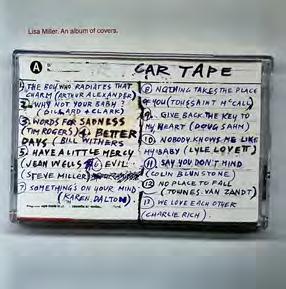
Raoul
FANNY LUMSDEN Fallow (2020) Cooking Vinyl

The third studio album by Lumsden reached #10 on the ARIA Chart which is a great effort, considering that it doesn’t really fit into the

TRACY McNEIL & THE GOOD LIFE
You Be the Lightning (2019)
Cooking Vinyl
Following a successful fund fundraising campaign and a signing to Cooking Vinyl, McNeil’s release of this fine album was almost totally side tracked by Covid! Born and raised in Canada but resident here for more than decade, McNeil is now working with Dan Parsons in Minor Gold and he also features here. Amazingly this is McNeil’s fifth album, because you would think she would be a lot better known by now. Rhythms’ Chris Familton says that across her previous albums she “has woven a wistful strain of Americana that conjures up US West Coast country-rock and Australian East Coast sun-kissed FM pop” and adds that “the sound that references Fleetwood Mac, Gram Parsons and that point on the highway where country meets soul.” So, revisit this gem which proves that some of the best roots rock music has been recorded in Australia. Will somebody please give Stevie Nicks the song ‘Not Like a Brother’ so she can turn it into a massive hit for McNeil. (BW)
Back in the ’90s around the time the term ‘alt.country’ was being coined Melbourne’s Lisa Miller was part of a vibrant inner-city scene, immersed in country soul and classic American singer-songwriters. It was also driven by Steve Miller, local boutique bar owner and country music disciple. While her 1996 album Quiet Girl with a Credit Card was excellent it was Car Tape that has managed to grab everyone’s affection. In fact, this album of covers was reprised at last year’s Out on the Weekend festival. Its popularity is no doubt due to the sensitive renditions of really well-chosen but often obscure songs by Dillard and Clark, Bill Withers, Steve Miller, Doug Sahm, Lyle Lovett, Townes Van Zandt along with ‘Something’s on Your Mind’ (performed by Karen Dalton) and even Tim Rogers. Just like the sort of cassette a hipster assembles to give to friends for a long car trip! The album garnered Miller three ARIA Award nominations and was re-released last year and available for the first time on vinyl. (BW)
RUSSELL MORRIS Sharkmouth (2012) Fanfare
Following a fruitful, 40-year career, singer/ songwriter Russell Morris was inducted into the ARIA Hall of Fame in 2008. Suitably inspired, in 2010 he approached the major record companies with the idea of releasing a uniquely Australian album of blues and folk songs about the nefarious and colourful

50
characters of the Depression era. In the modern new world of corporate pop music and Idol wannabes, no one believed that a journeymen artist like him – who knows how to write and perform songs – could sell records anymore so they all rejected it. Undeterred, Morris recorded Sharkmouth independently and soon after release in October 2012 it hit #6 nationally. Suddenly he was the most celebrated elder statesmen of Aussie music and in huge demand on the touring circuit. The likes of ‘Black Dog Blues’, ‘Ballad of Les Darcy’, ‘The Drifter’ (featuring Renée Geyer) and ‘The Bridge’ are timeless vignettes of a glorious past. He took the honours for Best Blues and Roots Album at the 2013 ARIA Music Awards. He followed up with Van Diemen’s Land, Red Dirt – Red Heart etc which are in a similar vein of storytellingin-song. (IMcF)
NO FIXED ADDRESS
From My Eyes (1982)
Rough Diamond
NEIL MURRAY
Calm and Crystal Clear (1989)
Infinity
Singer/songwriter Neil Murray was raised on a farm at Lake Bolac, near Ararat in western Victoria. His upbringing no doubt shaped his fascination for wide open spaces and a closeness to the Australian bush. He was a long-time member of Warumpi Band, having written the classic ‘My Island Home’ and playing on the acclaimed albums Big Name, No Blankets (1985) and Go Bush! (1987).
Relocating to Sydney, Murray recorded his debut solo album, Calm and Crystal Clear, with producer Mark Moffatt. It was an impressive debut. The music mixed rock and country in equal measure, which the singer described as “outback rock with a slab of transcontinental drivin’ thrown in”. The songs were based around his outback experiences and addressed the importance of Aboriginal people to Australia. It produced three singles, ‘Calm and Crystal Clear’, ‘Let’s Fall in Love Again’ and ‘Ocean of Regret’. Also check out Dust (1996) which includes another Murray standard in ‘Coolamon Moon’. (IMcF)

Vocalist and drummer Bart Willoughby was a member of the Pitjantjatjara tribe from Ceduna, on the Great Australian Bight, South Australia. He formed reggae-rock band No Fixed Address in 1979, while attending the Centre for Aboriginal Studies in Music (CASM) in Adelaide, South Australia. The band appeared in Ned Landers’ groundbreaking, quasi-documentary film Wrong Side of the Road (1981) which dramatised the gritty experiences of two Aboriginal bands on tour. No Fixed Address and heavy rockers Us Mob appeared on one side each of the soundtrack album, becoming the first contemporary Aboriginal bands to be recorded in the process. The band’s mini-album From My Eyes featured strident, heartfelt songs such as ‘From My Eyes’, ‘We Have Survived’, ‘Pigs’ and ‘Stupid System’ which pulled no punches on the issue of racism. On the other hand, ‘Sunrise’ was a tale of lost love set to a gorgeous reggae pop backing. Alongside Warumpi Band, Coloured Stone and Scrap Metal (Pigram Brothers), No Fixed Address remains a pioneering indigenous rock band. Check out author Donald Robertson’s recent book No Fixed Address (IMcF)
the Idle Hoes duo – along with Luke Richardson on bass, Nick O’Mara on guitar and pedal steel and drummer Johnny Gibson – was firmly planted in the roots rock corner of Americana. It was the first of three albums in four years for the band before they broke up and Sinclair’s fine writing continued with his latest outfit The Luke Sinclair Set. Even Liz Stringer said that “the songs are the kind you fall in love with at the first listen and then endlessly trawl bars and venues across Melbourne to be near again. This is no crush. This is a great, enduring romance.” (BW)
RAISED BY EAGLES
Raised By Eagles (2013)
Raised By Eagles
We had really high hopes for Raised By Eagles when they went to the Americana Festival for a showcase festival in 2015 on the heels of this impressive debut and its follow up, Diamonds in the Bloodstream (2015). Just goes to show that you need more than just great songs to make a breakthrough over there. Nevertheless, this album by Luke Sinclair, former member of
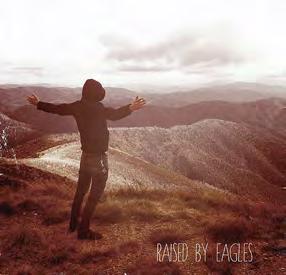
ARCHIE ROACH Charcoal Lane (1990) Aurora

Following the release of his critically acclaimed debut album Charcoal Lane, indigenous singer/ songwriter Archie Roach emerged as one of Australia’s most gifted artists. With his soft, bluesy voice to the fore, he was a storyteller in the tradition of his ancestors, relaying and retelling intimate real-life stories as well as traditional Dreamtime tales. His early life was difficult, forcibly removed from his family before ending up on the streets as an alcoholic. He gave up alcohol to revive an interest in singing and song writing. Aided by producers Paul Kelly and Messengers’ guitarist Steve Connolly, Roach constructed a debut album that was emotionally powerful in its acoustic simplicity. Charcoal Lane was a masterclass in storytelling, highlighting many of the social issues that were at the forefront of Aboriginal life in Australia: alcoholism, dispossession, loss of land and culture and the continued fight for social justice. ‘Took the Children Away’ was a painfully honest folk song recounting the Australian government’s policy of Assimilation in which Aboriginal children were forcibly separated from their parents and placed in white foster homes (now referred to as the Stolen Generations). ‘Down City Streets’, ‘Munjana’, ‘Native Born’ and ‘Sister Brother’ are more examples of Roach’s raw, first-person narrative. Charcoal Lane won Best Indigenous Album and Roach took out Best New Talent at the 1990 ARIA Awards. (IMcF)
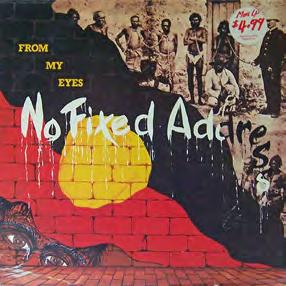
51
MARGRET ROADKNIGHT Margret RoadKnight (1976) Infinity
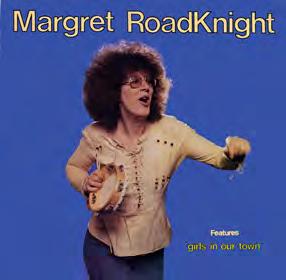
Acclaimed singer Margret RoadKnight had been appearing at jazz clubs, blues concerts and folk festivals around Melbourne since the early ’60s. She was a fine interpreter of songs by other artists, with early inspiration coming from the likes of Ma Rainey, Bessie Smith, Nina Simone, Odetta and Harry Belafonte. This is her best remembered album, mainly due to the inclusion of the hit cover of Bob Hudson’s elegiac folk song ‘Girls in Our Town’. It’s an Aussie classic, neatly summarising teenage angst and experiences of rural life in the ’70s. The arrangement is simple, just piano, bass, gentle percussion, subtle strings and ghostly harmony vocals with one of RoadKnight’s most poignant performances being the clincher. Covers of Joan Armatrading’s ‘Give it a Try’, Sanders-Soloman’s ‘Love Tastes Like Strawberries’, Kate McGarrigle’s ‘The Work Song’, Loudon Wainwright’s ‘I Know I’m Unhappy’/‘The Suicide Song’ and Ellen McIlwaine’s ‘I Don’t Wanna Play’ are also excellent. David Dallwitz’s ‘Margret’s Blues’ features contributions from jazz players Judy Bailey (piano) and Dave Ellis (bass). (IMcF)
serving a seven-year sentence in Bathurst jail for robbery. Instigated as a public relations exercise and recorded in one hour on a mobile studio provided by RCA, The Loner is the great lost classic of Aboriginal protest songs. With Simms on acoustic guitar backed by Jim Kelly (guitar), George Thomspon (bass) and Russell Dunlop (drums) – and incongruous horn arrangements and applause dubbed on after the fact – it’s simply presented country rock, kinda like an ersatz At Folsom Prison only Simms was one of the inmates at the time. For all its strident intent, however, the music is generally upbeat with his sweet, melodious voice to the fore. Still, it doesn’t negate the fact that he was an angry young black man, having suffered systemic racism and the basic lack of human rights throughout his life. The likes of ‘Get Back into the Shadows’, ‘Poor Folks Happiness’, ‘Little Barefoot Urchin’, ‘Try to Understand’ (issued as a rare single), ‘Stranger in My Country’ and the title track are pleas for equality backed by the power of song. The Loner got a long overdue reissue on CD in 2013. (IMcF)
STARS Paradise (1977) Mushroom
Adelaide band Stars were originally billed as Australia’s “rock’n’roll cowboys”. Although the appellation suited the band’s early image, it did become something of a millstone around their collective neck later. Nevertheless, the band produced three fine albums of Southern-fried boogie and countrytinged rock’n’roll that bore a distinctly Australian flavour. With singer Mick Pealing and guitarists Mal Eastick and Andy Durant as the guiding lights, the band was always able to meet audience expectations. Debut album Paradise was a Top 10 seller, producing the singles ‘Mighty Rock’, ‘Look After Yourself’, ‘Back Again’ and ‘West is the Way’. Deep cuts such as ‘Paradise’, ‘Song for the Road’ and ‘Jupiter Creek’ are steeped in classic story telling mode. The 11-minute rendition of Joe Walsh’s ‘Rocky Mountain Way’ might have been an album filler but it’s a potent reminder of how powerful they were in the live arena. (IMcF)
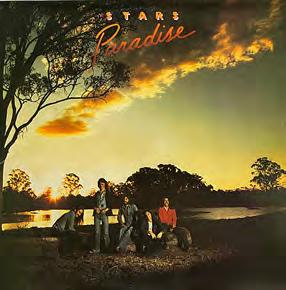
THE SPORTS
Reckless (1978)
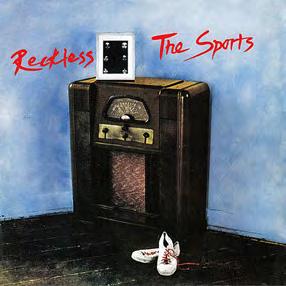
Mushroom
VIC SIMMS The Loner (1973) RCA
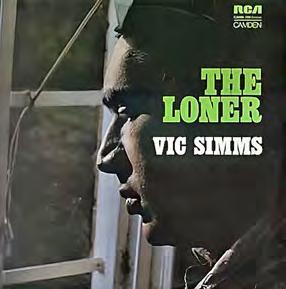
As a 15-year-old, indigenous singer Vic Simms had a brief pop career in the early 1960s, issuing the singles ‘Yo Yo Heart’ and ‘I’m Counting Up My Love’. He was known as Vicky Simms at the time. By the early ’70s, he was
Melbourne band The Sports grew out of the ashes of cult rockabilly outfit The Pelaco Bros in 1976. With the members’ backgrounds in roots music so prevalent, they swiftly earned a reputation as the hottest R&B/soul/ rockabilly group on the Melbourne inner-city pub circuit. Lead singer Stephen Cummings possessed a distinctive, nervous, breathy vocal style that was totally captivating. Following the independent EP Fair Game, they signed to Mushroom and issued the Joe Camilleri-produced debut album, Reckless Powered by such vibrant songs as the first single ‘Boys! (What Did the Detective Say?)’, a cover of Jackie De Shannon’s ‘When You Walk in the Room’, ‘Modern Don Juan’, ‘Mailed it to Your Sister’, ‘Rockabilly Billy’ and the soulful title track, the album is a minor classic of Aussie roots rock backed by an inimitable pub rock sensibility. Afterwards they transitioned into a more Mod rock / New Wave style as displayed on the likes of ‘Who Listens to the Radio’, ‘Don’t Throw Stones’, ‘Suspicious Minds’ and ‘Strangers on a Train’. (IMcF)
LIZ STRINGER First Time Really Feeling (2021) Milk!
Bonnie Raitt thinks highly enough of Liz Stringer to mention her on stage during her two most recent Australian tours and she has also considered recording one of her songs. Hopefully, that will happen one day. Stringer might have been one of our best kept secrets but recent work in a trio with Jen Cloher and Mia Dyson and appearing on stage playing guitar and singing with Midnight Oil on recent
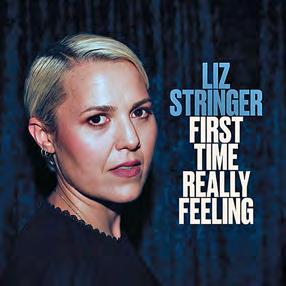
52
tours have raised her profile. This latest album is Stringer’s sixth and her best. Recorded in Canada and delayed several years, it is a reflection on some of the major changes in her life, including sobriety, and contains some of her most personal songs. The title track sets the scene as it builds from a quiet start to a resounding chorus on strident guitars. The driving and compelling ‘Dangerous’ continues the feeling while the album contains a mix of ballads and up-tempo songs that explore the gamut of Stringer’s music which sounds superb with a studio band. (BW)
SARA TINDLEY
Greetings from Lake St Clair (2022)
Sara Tindley
THE TESKEY BROTHERS
Half Mile Harvest (2016)
Half Mile Harvest
The debut studio album by The Teskey Brothers turns out to be their least commercially successful but we like it because it set the template for their future releases. Those following albums included the Run Home Slow (2019) and The Winding Way (2023), which is a step forward and reached #1 on the album chart, along with Live at the Forum (2020). Lead singer Josh and his brother Sam, who plays guitar and produces, grew up in Warrandyte, Victoria and have been playing since 2008, mainly at a local pub for the first few years. This second album was recorded in Sam’s home studio. It sounds like Josh was locked in a room for some months with a collection of Otis Redding and Eddie Hinton albums. His voice is remarkable. If you think this would be carrying coals to Newcastle when they are in the USA consider that we saw them four years ago at The Ryman Auditorium and the audience went berserk. A change of line-up with some augmenting musicians and they sound even better live now. (BW)
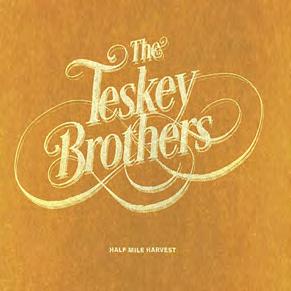
This is the fifth studio album from much loved and lauded singer/songwriter Sara Tindley who passed away just months after its release. It was one of my favourite albums of 2022 and is a wonderful recording full of reflections on some of life’s big questions. Tindley’s fourth album was produced by Nick Didia (Bruce Springsteen, Powderfinger, Pearl Jam) while the previous album, Time (2011), was produced by Chris Parkinson of Adelaide outfit The Yearlings and before that she worked with Bill Chambers to produce Lucky the Sun (2006). Produced by Lucie Thorne, who does a terrific job with a small studio ensemble, Greetings from Lake St Clair contains eight originals and a superb cover of Chris Altmann’s ‘Other Side of the Mountain’. We think this album is as good as anything that came out of Nashville last year. (BW)
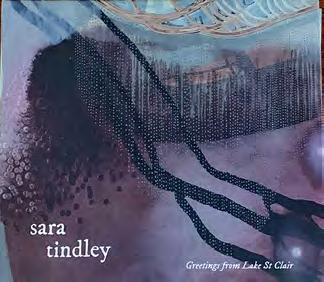
Motherfucker’) and equally challenging lyrics. Recorded in Nashville with producer Skylar Wilson, Wagons says he’s hooked on the city. “Good burgers on tap, fine bourbons and American accents, Southern gentlemen, kind manners and long stories. Basically, it was great to be able to rock up and do the same process as so many of my favourite albums, from (Bob Dylan’s) Blonde on Blonde to (Neil Young’s) Harvest.” This collection of songs sounds like it could be the soundtrack to Henry’s life from his rowdy misspent youth to being a tour-hardened troubadour and then a new father. (BW)
HENRY WAGONS
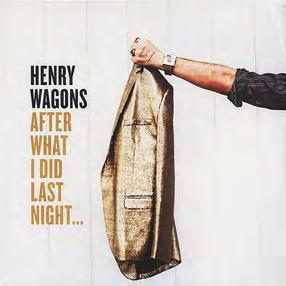
After What I Did Last Night… (2015)
ABC Music
Justin Townes Earle has described Wagons as “Dr Seuss meets Conway Twitty” which captures the essence of this singer who can be alternately tender and emotional or completely unhinged on stage. The fact that he did a tribute show to Warren Zevon and sounded completely at home in that persona also helps to understand his outlook which is definitely left field. After more than a decade fronting Wagons, the Melbourne artist’s first solo album is steeped in stories of a dissolute life with some interesting song titles (‘Cowboy in Krakow’, ‘Only Sane
THE WAIFS Up All Night (2003) Jarrah
This was the fourth studio album and was the band’s biggest album to that date, which is understandable as it contained the song ‘London Still’ which still seems to be an anthem for expatriate Aussies. Add songs such as ‘Fisherman’s Daughter’, ‘Lighthouse’ and ‘Highway One’ and you have the ingredients for an unforgettable album with songs that demand audiences sing along. That’s a winning formula in itself. The basic trio of Josh Cunningham (Dobro, guitar, mandolin, songwriter, ukulele, vocals), Donna Simpson (acoustic guitar, songwriter, vocals) and Vikki Simpson (acoustic guitar, harmonica, songwriter, vocals) provided all the songs and they were augmented on bass and dobro by Ben Franz, with David MacDonald on drums and Bruce Haymes on keyboards and Wurlitzer. At the ARIA Music Awards of 2003 they won Best Independent Release, Best Blues and Roots Album, as well as Engineer of the Year and Producer of the Year for Chris Thompson’s work on the album. Soon after the success of Up All Night the band became one of Australia’s most successful touring groups and 26 years after their first album, they are still going strong and remain one our most-loved groups. (BW)
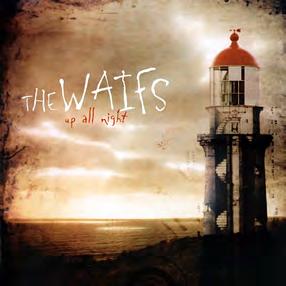
53
TEX, DON & CHARLIE Sad but True (1993)
Redeye
What do you get when you put Gregory ‘Tex’ Perkins, the lauded frontman of Beasts of Bourbon and The Cruel Sea, Don Walker, the lauded songwriter from Cold Chisel, and Charlie Owen, the lauded guitarist from The New Christs and The Aspersion Caste, together in a studio? The brilliant Sad but True. Produced by Tony Cohen, it’s a rootsy collection of acoustic, country blues songs full of laconic vocals, lap steel, sparse piano and acoustic slide guitar. The standout tracks include Walker’s ‘Sitting in a Bar’, Owen’s ‘Dead Dog Boogie’ and Perkins’ ‘I Must be Getting Soft’. Guest players included Kim Salmon (guitar) and Garrett Costigan (lap steel) plus Dirty Three’s Warren Ellis (violin) and Jim White (drums). Tex, Don and Charlie undertook an Australian tour which resulted in the live set Monday Morning Coming Down. (IMcF)
includes perhaps the last ever song recorded by David McComb on ‘Still Alive and Well’. Consider the song selection from writers such as Fred Neil (Mick Harvey on ‘Just a Little Bit of Rain’), Hank Williams (Joel Silbersher on ‘When You’re Tired of Breaking Other Hearts’). Other highlights include Renée Geyer with Uncle Bill on Dan Hicks’ ‘I Scare Myself’, Robert Forster’s great rendition of John Prine’s ‘The Speed of the Sound of Loneliness’ and Rob Snarski and Matt Walker’s reading of another Prine song, ‘If You Don’t Want My Love’, Tex Perkins’ version ‘Yellow Roses’ and Paul Kelly with Uncle Bill on ‘Thanks a Lot’. Proof that Melbourne was way ahead of the curve when it comes to trends. (BW)
VIKA & LINDA
The Wait (2021)
Bloodlines
VARIOUS ARTISTS Where Joy Kills Sorrow (1997)
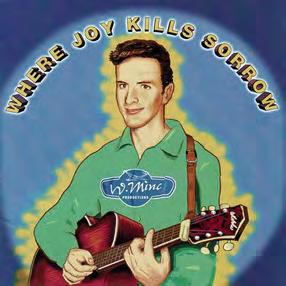
W.Minc
This compilation album contained tracks recorded over 12 months from March 199697 and produced by Evil Graham Lee. It was inspired by a love of country music prevalent in Melbourne at the time and that love by the participants, including the record label head. This is prior to the label Americana and not adequately described as alt.country either. The album features a Who’s Who of the Melbourne music scene of that time and
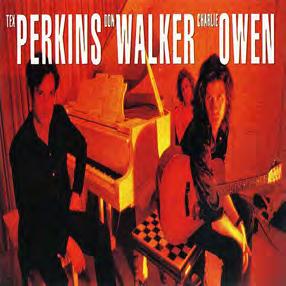
VARIOUS ARTISTS
Buried Country: The Story of Aboriginal Country Music (2000)
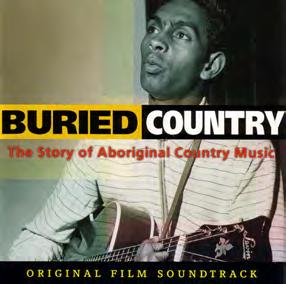
Larrikin
I rate Clinton Walker’s book Buried Country: The Story of Aboriginal Country Music as the best book ever written about Australian music. The narrative depth and knowledgeable appraisal of the subject matter is impeccable. The accompanying, 2-CD soundtrack is likewise a treasure trove of heartfelt performances. In compiling it Walker spared no effort in bringing the whole tale into focus. Featuring 45 tracks, there’s everything from Jimmy Little’s ‘Shadow of the Boomerang’ and Lionel Rose’s ‘Jackson’s Track’, from Georgia Lee’s ‘Downunder Blues’ and Auriel Andrews’ ‘Truck Driving Woman’ to Galurrwuy Yunupingu’s ‘Gurindji Blues’ and Mop and the Dropouts’ ‘Brisbane Blacks’ to put you in the picture. Add in Black Allen Barker’s ‘Run, Dingo, Run’, Country Outcasts’ ‘Streets of Old Fitzroy’, Wilga Williams’ ‘Arnhem Land Lullaby’, Warumpi Band’s ‘Jailanguru Pakarnu’, Archie Roach’s ‘Took the Children Away’, Tiddas’ ‘In My Kitchen’… hell, if you don’t already possess it, just get a hold of this essential collection no matter what it takes. (IMcF)
The Wait might be the seventh studio album from Australia’s favourite duo Vika and Linda Bull but it is their first album of original music since Love is Mighty Close in 2002. In a statement, Linda Bull said, “It took us three times to make this record, it kept getting delayed and we’ve been waiting 19 years to make this record... waiting for more songs. Waiting for the right opportunity.” The album was nominated for Best Adult Contemporary Album at the 2022 ARIA Awards. The reason it makes our list is that it contains a brace of songs from some of the country’s best known musicians including Don Walker, Paul Kelly, Kasey Chambers, Mick Thomas (and Jemma Rowlands), Bernard Fanning, Ben Salter, Glenn Richards (Augie March) and Chris Cheney (The Living End). As well as that there is a great song from younger writer Eva Seymour in ‘Teeth’. Jeff Jenkins called The Wait, “the album of the year” adding that “this is the sound of two women taking control of their careers and refusing to play it safe... The result is as close to perfect as any record you’ll ever hear.” Great songs. Great voices. What more could you possibly want?
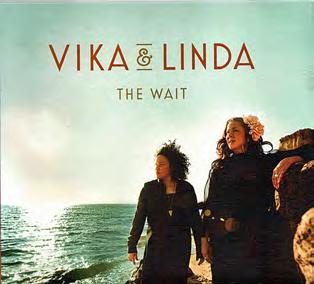
(BW)
WARUMPI BAND
Big Name, No Blankets (1985)
Powderworks
Formed in 1982 in Papunya, a remote Aboriginal community 150 miles west of Alice Springs, Warumpi Band was one of Australia’s pioneering indigenous rock groups. Singer George Rurraambu was a Gumatj clan member from Galiwinku on Elcho Island

54
and white fella guitarist Neil Murray was raised on a farm at Lake Bolac in western Victoria. Murray was instrumental in getting Warumpi Band off the ground. They started out playing covers of vintage rock’n’roll songs before writing original material that reflected their own experiences and celebrated Aboriginal cultural values. Their debut single, ‘Jailanguru Pakarnu (Out from Jail)’, was the first rock song sung in an Aboriginal dialect (Luritja). The critically acclaimed Big Name, No Blankets featured the singles ‘Breadline’ and ‘Blackfella/Whitefella’. Other highlights included ‘Waru (Fire)’, ‘Warumpinya (Papunya)’ and the elegiac ‘Fitzroy Crossing’ Grounded in early American R&B and boogie as it was, the album was nevertheless an honest, enduring and bare-boned slice of indigenous country music and a gritty rebuttal of urban pop culture mores. You can taste the red dust of endless road trips across the dead heart. In 1986 Midnight Oil invited the Warumpis to join the historical Blackfella/Whitefella tour playing to remote Aboriginal communities in the Northern Territory. (IMcF)
WEEPING WILLOWS
Before Darkness Comes A-Callin’ (2016) Weeping Willows
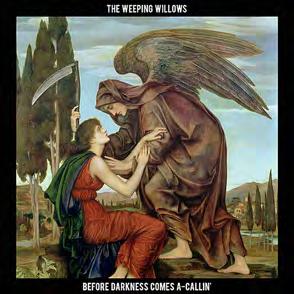
WEDDINGS PARTIES ANYTHING

Roaring Days (1987)
WEA
Weddings, Parties, Anything united two great Australian music traditions, post-punk pub rock and folk/bush balladry. The band’s affection for traditional Australian songs and the Celtic roots behind those tunes, combined with a left-wing political stance, engendered the music with a uniquely Australian flavour and identity. Singer/ songwriter/guitarist Mick Thomas guided the band through 15 years of activity and nine splendid albums. Third album Roaring Days is where they marshalled all their skills into a powerful whole. Songs such as ‘Under the Clocks’, ‘Brunswick’ and the singles ‘Say the Word’ and ‘Tilting at Windmills’ are rooted in a time and place that takes the listener on a journey through heartfelt and masterful story telling. There are covers of Tex Morton’s ‘Sergeant Small’ and Paul Kelly’s ‘Laughing Boy’. The folk influences are strong (prominent accordion, acoustic guitar, bluesy harp) but this album rocks hard. Also included were three re-recorded versions of songs from their 1985 self-titled EP, ‘A Summons in the Morning’, ‘Roaring Days’ and ‘Industrial Town’. (IMcF)
Singer Laura Coates and guitarist Andrew Wrigglesworth are firmly steeped in the modern Americana tradition and it is not hard to trace their influences. They recorded this second album with four-time Grammy award-winning engineer, Ryan Freeland (Bonnie Raitt, Carolina Chocolate Drops, Ray LaMontagne, Ramblin’ Jack Elliott). The songs delve further into the Gothic depths of Americana with the help of renowned musicians including bass player David Piltch and Kevin Breit on banjo as well as pedal steel player Tommy Detamore. Many of the tracks are short but the centrepiece is the long poem ‘Travellin’ Man’. Rhythms’ Chris Famiton wrote: “ They’ve taken a detour down some darker and moodier paths this time and it works exceedingly well. Dark folk, blues and country musings on nature, death and doomed romance suit them well.” Bernard Zuel noted that their music is “erroneously called alt. country” but that it harks “further back than Uncle Tupelo or Gram Parsons. This is country folk that is but a dry-cleaned vest and sealed road away from dusty boots and wooden pews, radio microphones and long dresses.” (BW)
and 1997 after the release of albums The Wheel and Good Noise. Since then, all five members, have remained active in country music as well as a variety of other genres both here in Australia and overseas. Cheshire has released many solo projects. Rod McCormack continues to play, write and record with many of Australia’s leading artists. Jeff McCormack spent about 15 years playing live, recording, engineering and travelling the world with Kasey Chambers. Drummer Mitch Farmer has played with numerous artists including Troy Cassar-Daley while Albeck has also toured with artists including Paul Kelly, Kasey Chambers and Troy Cassar-Daley. Many years after their last show together they reunited in 2018 for a cruise. (BW)
THE WHEEL The Wheel (1995) rooArt

A so-called super group, this outfit fronted by singer-songwriter Kim Cheshire included guitarist Rod McCormack, bassist Jeff McCormack, fiddle player Mick Albeck and drummer Mitch Farmer. This album features songs from Chesire, Jimmy Dowling and Kevin Bennett. The group won back-to-back Golden Guitars for Group or Duo of the Year in 1996
THE YEARLINGS All the Wandering (2014) Yearlings/MSM
Robyn Chalklen and Chris Parkinson spent every Tuesday and Wednesday over four weeks in the winter of 2013 recordingsongsat their home studio as a duo. Recorded live to a 1-inch 8-track tape machine they decided to add a horn section on some tunes and female vocals as well as a rhythm section on others because they felt their music was notjustfolksongstobesungasaduo.This fifth studio album was on Rhythms’ own Marty Jones’ Top 10 list. While a lot of other duos were emulating Gillian Welch andDavid Rawlings, The Yearlings came up with something different and distinct. Produced and engineered by Mick Worley, the sound is warm and intimate yet powerful with some stunning harmonies. Just listen to ‘Blue Sky Boy’ and consider why it is not regardedas a classic. The backing singers include Sara Tindley, while the studio musicians include legendary bass player Harry Brus and acclaimed pedal steel player Shane Reilly. In the ensuing years The Yearlings have continued to release beautifully crafted albums including the superb latest album Luck. (BW)
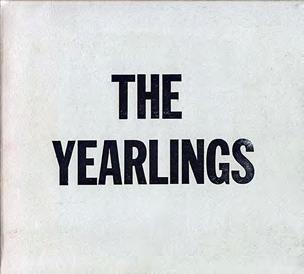
55
Arnhem Land, Garma & The National Indigenous Music Awards

 by Seth Jordan
by Seth Jordan
Excited to be invited as Media to this year’s Garma Festival in northeast Arnhem Land, I was somewhat taken aback to discover that to fly from Darwin to Gove at this time of year costs $1,000 in each direction! But with no bus service available past Katherine on the 720km Central Arnhem Land Road, I managed to arrange 4-wheel drive ride with the wonderful Indigenous photographer Jeanie Govan and her niece Talia. Our two-day run on the dusty unsealed red-dirt highway turned out to be the perfect way to gain an accurate understanding of the distances involved in travelling to this remote part of Australia. And since the annual grading of the road after this year’s wet season had just been completed, the long but very beautiful ride provided a smoother-than-expected journey.
Begun in 1999, Garma is a 4-day event, held at Gulkula - a traditional Gumatj ceremonial site about 40kms from the town of Nhulunbuy on the Gove peninsula. Garma means ‘mixing of saltwater & freshwater’ in local Yolngu Matha language. The festival showcases manikay (song), bunggul (dance) and miny’tji (art), and is an important meeting place for the clans and families of the region. But it’s probably best known as the premier platform for the discussion of social and political issues affecting Yolngu and other Indigenous Australians. Not surprisingly, this year’s event focused mainly on the upcoming Voice referendum, as well as serving as a fitting tribute to the legacy of Garma founder, Gumatj clan leader and Land Council chairman Yunupingu, who passed away in April.
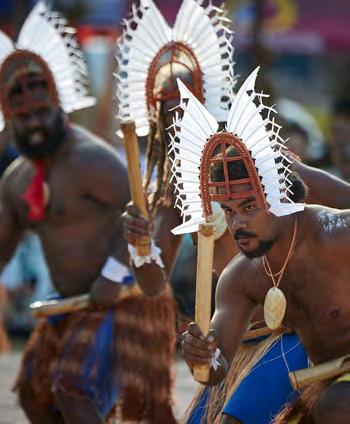
Focusing on the music program, this year’s live Garma performances were an intriguing blend of both traditional and contemporary styles, including Indigenous rock, hip-hop and gospel from both young and veteran performers. The always wellrun main stage drew its biggest crowd on the Sunday night, when popular local sextet King Stingray – that young mixed black and balanda (whitefella) band - totally ruled the stage with their thick mix of didge-driven hi-energy rock. Other featured groups on the big stage during the festival were Yolngu band Larry Gurruwiwi & Malawurr, Uluru’s Mutitjulu Band, the Baniyala community’s Garrangali Band, and Groote Island’s Eylandt Band, along with late addition Manuel Dhurrkay from Elcho Island’s legendary Saltwater Band on the closing Monday night.
Smaller groups and solo acts included rising hip-hop star J-Milla, Torres Strait singer Kristal West, North Queensland songstress
Kee’ahn, and neo-classical didge master William Barton with violinist Véronique Serret. There were also well-received performances from Tibetan musician Tenzin Chegyal, Aussie-Samoan muso Bobby Alu, Maori Irish drummer Declan Kelly, and Byron Bay percussionists Spankinhide led by Elliott Orr.
One very welcomed and previously unannounced guest on the Sunday afternoon was iconic Aussie troubadour Paul Kelly, who did an impromptu session with Yothu Yindi veteran Witiyana Marika and friends in the intimate Dhäwu’mi Wänga Creative Forum space. They reminisced about the origins of some of Yothu Yindi’s early hits (which Kelly was co-writer on) and delivered acoustic versions of several songs. Later that night Kelly also guested with the late Yothu Yindi singer Dr. M Yunupingu’s daughter Dhapanbal on the main stage. On all four days the Bunggul dance ground was very active, with energetic displays of traditional dance from a multitude of regional clans and communities. Most impressive were Numbulwar’s magnificent Red Flag Dancers, and a tremendous group of both male and female Torres Strait dancers from Badu Island.
After camping in Garma’s tent city for five days, and a couple of days exploring the Nhulunbuy-Yirrkala area, I headed back to Darwin to experience some of this year’s
56
YothuYindi members receiving their NIMA - Photo credit- Seth Jordan
Badu Island dancers - Photo creditPeter Eve, Yothu Yindi Foundation
King Stingray - Photo credit - Leicolhn
always-fascinating Darwin Festival. My Friday was filled with viewing Indigenous art, starting with a Tiwi Island exhibition, before attending the opening of the big 3-day Aboriginal Art Fair - where dozens of regional community art centres from across the country display their latest paintings, screenprints, weavings, fabrics and other creations.
Then that evening, the 2023 National Aboriginal & Torres Strait Islander Art
Awards took place at the NT Museum & Art Gallery. With an electric Coral Sea sunset as backdrop, it’s always a treat to see the judges’ winning choices, drawn from a fabulous array of worthy nominees, and the resulting annual exhibition never fails to be artistically stunning. This year’s Awards ceremony also featured songs from the totally wonderful indigenous singersongwriter Shellie Morris, and again closed with the Red Flag Dancers. On Saturday night it was the turn of the 2023 National Indigenous Music Awards (aka the ‘NIMAs’), produced by Music NT at the outdoor Darwin Botanic Gardens Amphitheatre. A great annual showcase of Australian Indigenous musical talent, this year’s event was opened by the powerful traditional Numbulwar songman Ngulmiya (aka Grant Nundhirribala), whose 2022 self-titled debut solo album, beautifully produced by Anthony Gray, was deservingly nominated in this year’s ‘Album Of The Year’ category.
Highly respected for also leading the longtime rock-reggae band Yilila, as well as the previously mentioned Red Flag Dancers - who once again also performed strongly at the NIMA’s - Ngulmiya himself shared vocals with his very talented son Nayurryurr, backed by Melbourne pianist-arranger Luke Howard and an all-female string quartet from the Darwin-based Arafura Music Collective. With his remarkable voice, Ngulmiya has already toured selectively in Europe and Asia to great acclaim and plans to tour domestically here in Oz this coming year. Well-poised to become Australia’s next big national and international success story, at this year’s NIMAs Ngulmiya was honoured with the ‘Indigenous Language Award’. Awards MC/host Fred Leone also provided a stirring live premiere of his recent single, ‘Yirimi Gundir’, and well-loved band Yothu
Yindi were finally inducted into the NIMA Hall Of Fame, with their award accepted by founding member Witiyana and the late M Yunupingu’s wife Yalmay.
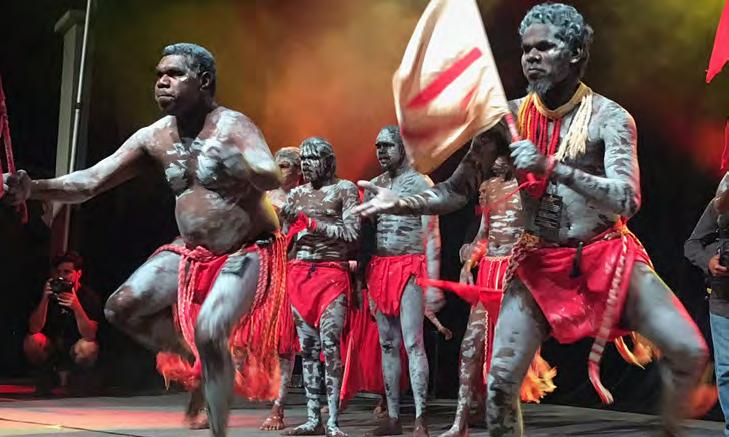
King Stingray garnered two NIMAs on the night – ‘Song Of The Year’ and ‘Film Clip Of The Year’ - both for their hit single ‘Let’s Go’. 21-year-old NSW singer-songwriter Budjerah was crowned ‘Artist Of The Year’, and last year’s Triple J Unearthed competition winner - Noongar artist Bumpy - picked up the gong for ‘New Talent of the Year’. Maningrida band Wildfire Manwurrk also had a good night, earning themselves ‘Community Clip of the Year’ as well as the ‘Archie Roach Foundation Award’.
In the end, the ‘Album Of The Year’ was won by singer Thelma Plum for her captivating EP release ‘Meanjin’, and she brought the NIMAs to a close with a strong set of her well-known songs.
I finished my own Top End music sojourn on the Sunday night at the Sunset Stage in Darwin Festival’s popular food and entertainment hub Festival Park, where Yolngu singer Yirrmal strutted his new more rocking material, along with his trademark gorgeous vocals.


Good music, good people, good country up north there.
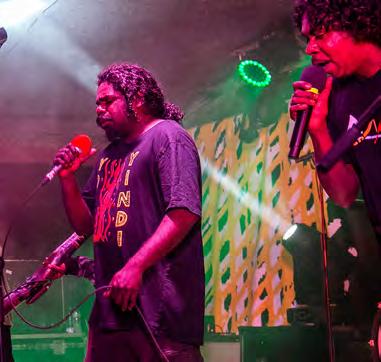
57
Ngulmiya at NIMAs - Photo credit - Paz Tassone
Leicolhn McKellar, Yothu Yindi Foundation
Red Flag Dancers - Photo credit - Seth Jordan
Paul Kelly & Witiyana Marika - Photo Credit - Peter Eve, Yothu Yindi Foundation)
The new book from Stuart Coupe takes us on a journey through the life of one of Australia’s best-known music writers.
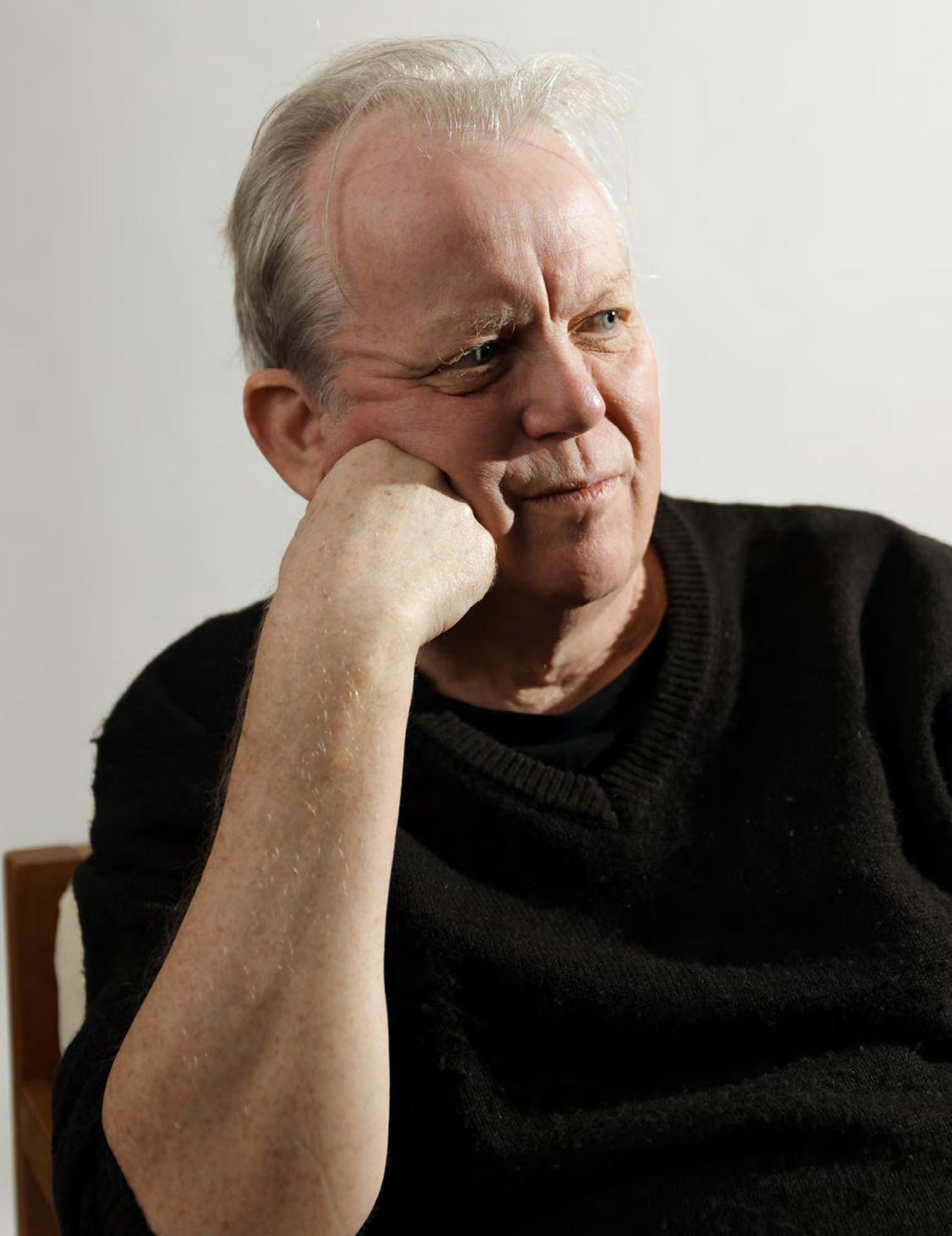
58
Stuart Coupe has worked as a journalist, author, editor, manager, record label director, radio presenter, publicist and tour promoter. He is also a Senior Contributor to Rhythms magazine.
After growing up in Launceston, Tasmania he attended Flinders University in Adelaide where he became editor of the university magazine and founded the music magazine Roadrunner. In 1978 he moved to Sydney to work on Rock Australia Magazine (RAM) and after 18 months there he became the music writer for the Sun Herald for the next decade as well as freelancing for countless publications including the National Times
Stuart is the only Australian to interview Bob Dylan twice and has conducted thousands of conversations with musicians from around the globe. He estimates that he has had in excess of eight million words published over the years. For 17 years Stuart was the crime fiction book reviewer of the Sydney Morning Herald. He also founded and edited Mean Streets magazine, co-edited three crime fiction anthologies and co-founded the Ned Kelly Awards. In 2005 he was presented with a Lifetime Achievement Ned Kelly Award for his contribution to the crime fiction genre
Stuart also managed the Hoodoo Gurus and then Paul Kelly and, as a tour promoter, was responsible for Australian tours by musicians such as Lucinda Williams, Link Wray, Dick Dale, Harry Dean Stanton, Rosanne Cash, Mary-Chapin Carpenter and others. He also promoted events and tours with authors James Ellroy, Ed McBain, Lawrence Block, Elmore Leonard and PJ O’Rourke. Stuart has also frequently worked as a publicist, starting with The Clash, The Cramps and other international artists and currently runs Stuart Coupe Publicity. He was also founder and director of Laughing Outlaw Records and, after a stint co-presenting the album show on 2MMM in the 1980s, he has spent the past fifteen years presenting a weekly show on FBi radio in Sydney and also presents the nationally syndicated radio show entitled ‘Dirt Music’ on radio 2SER. He is also a frequent commentator on radio, TV and in print media on matters relating to music and popular culture. Among the books Coupe has written, edited or collaborated on are The New Music (1980), The New Rock ’n’ Roll (1983), The Promoters (2003), Gudinski (2015), Tex (2017), Roadies (2018) and Paul Kelly (2020). Shake Some Action is the story of how a gangly, musicobsessed kid from Tassie did everything and met everyone in his remarkable life as a music obsessive – a life that would take him around the world and back and into the orbit of some of the greatest artists of our time.
In this extract from Shake Some Action, Coupe pays tribute to Rob Smyth, a writer who had an influence on many music journalists who read his work in Nation Review.
INSPIRATION INFORMATION
When conversation turns to great and inspiring music writers, names like Lester Bangs (almost always), Greil Marcus, Robert Christgau, Dave Marsh, Paul Williams, Nick Kent and many others are frequently bandied about. Most of them are blokes, but in more recent years the likes of Australian writer Lillian Roxon, along with Ellen Willis, Lisa Robinson, Val Wilmer and others have received overdue recognition.
I devoured the work of all those figures, but whenever I’m asked about my biggest influence in the world of writing about music, I say Rob Smyth. And unless you’re Australian, of a certain age, and a former reader of the weekly newspaper Nation Review, the usual response is, ‘Who?’ But Rob Smyth changed my life in ways that very few other figures have.
Because of him, from the age of 16 I became totally obsessed with communicating my nascent love of music to other people. It was not only the music Smyth wrote about, but the way he wrote about it – conversational, insightful, literate, and with the ability to convey a sense that if you heard whatever he was writing about, it really would enrich and change your world. And as much as anything, he taught me that it didn’t matter what the music was, if it moved you that was all that mattered.
To that end, I often say that I’ve always believed there’s nothing wrong with loving ABBA and Hank Williams – at the same time. I like to think that I’m not a musical snob, and in fact even less of a one as I get older. There are two types of music for everyone: that which moves you and that which doesn’t. And I’m increasingly convinced that there is no such thing as ‘bad’ music. There’s just music that you as an individual aren’t moved by.
So, for a long time I’ve refused to get involved in creating ‘Best of the Year’ lists, especially in order. I always say that I’ll run through the albums or songs that I’ve personally played the most in the previous year –but I won’t rate them beyond that. Who am I to say that one record is better than another? Seriously. I certainly can say that there are albums and music that impacted on my psyche more than others – but does that make them better than those I didn’t listen to as much? No, it doesn’t. >>>
59
Hey, I love Philosophy Of The World, the album by The Shaggs which is often cited as the world’s worst album. If you’re in the mood for The Shaggs, their album rocks. People say they can’t play? Me – I have no idea. It has always seemed to me that technical proficiency frequently doesn’t have much, if anything, to do with the creation of great music. And don’t start me on the ‘Bob Dylan can’t sing’ tangent that so many people carry on with. Heck, sometimes I even think that I can sing.
That way of thinking about music came from Rob Smyth. In the pages of Nation Review, he ranged far and wide with what he wrote about. The only things that albums needed to have for him to extol their virtues were that they moved HIM.

And so through his columns, I – as a young kid in Launceston –was turned on to an incredible array of music.
Engaging with the latest issue of Nation Review was a ritual of much significance. I’d pretty much sense when the new issue would arrive at the corner shop two blocks from my home. I’d be there. Waiting.
The majority of Nation Review was pretty impenetrable to me. I understood the basics – Liberal Party = bad, ALP = good – but that was about it. It was pithy and irreverent and featured the likes of Bob Ellis, Phillip Adams and Mungo MacCullum. It was also where
60
Mick Jagger & Stuart Coupe
I first encountered the cartoons of Michael Leunig. Yes, to a kid in Launceston, this was heavy-duty commentary on our life and times. And while I didn’t understand a lot of it, boy did I aspire to be across everything these people wrote about and how they wrote it.
Really, though, I was buying it for half a page towards the back. I’d have read Smyth’s column before I was home – and was devastated if it was an edition in which his ruminations didn’t appear. Then I had a singular focus: how to get my hands on what he’d reviewed.
Things had changed in Launceston by now, and there was a dedicated record and cassette shop, Wills & Co, right in the centre of the city. I spent so much time flicking through the racks and buying albums, when I should have been paying rent. Would the Smyth-recommended record be there? If not, would they be able to get it in? How long would that take?
Or maybe Stefan Markovitch would have a copy? If not, how long would it take him to get one? I was one step removed from a junkie searching for a fix.

Large, loud and extremely animated, Stefan was my go-to guy for obscure and desirable import records. He had a stall at Salamanca Market in Hobart, which, in itself, was a reason to travel the couple of hours to that city. Stefan also made regular trips to Launceston, armed with crates of albums. He made it very clear that you would be a lesser person if you did not purchase said records then and there.
Stefan and Rob Smyth shared a passion for traditional English, Scottish and Irish folk music, which made it comparatively easy to get records by the Watersons, Martin Carthy, the Dransfields, Steeleye Span, Alan Stivell, Fairport Convention, Shirley Collins and many others.
Then, when the album was finally in my hands, came the almost religious experience listening on the record player at home –straining obsessively, willing myself to hear what Smyth heard, and to be moved like he was. And whilst listening to the latest acquisition, I’d cut out the review and cellotape it into my Smyth scrapbooks to read and reread and memorise. To let his words seep into my consciousness.
Whilst writing this book, I bought a few random issues of Nation Review, which no doubt I read at the time. One from March 1974 contained Smyth’s rumination on three albums: The Lovin’ Spoonful’s Do You Believe In Magic, and the self-titled albums from The Band and Jesse Winchester.
Smyth reflects that he may have written about them previously, but is listening to them again, because ‘I’m still only beginning to understand their depths, and many things that have come after them have taken my attention.’ And then the kicker: ‘In spite of the quiet space between us, I continue to believe that if it moves me, it will move someone else. Each of these albums is as critical to the essence and magic of rock as any more lately received.’
He concludes that his notes on these albums are brief but, ‘if it does nothing more than acknowledge their existence then it’ll do, because I trust you to find them somewhere and listen to their story. We mistake friends for strangers, floors for walls and great notions for weary schemes. I imagine no one could mistake the genius of these songs for anything less.’ >>>
And here’s the other thing – Smyth wrote as if he was talking to me. Just me. ‘Write like you talk,’ another journalist friend would tell me some years later, and of course on radio possibly the most important thing you learn is to talk directly to your listener. There is only one. ‘Hello, dear listener,’ as Phillip Adams always says, even though tens of thousands of people are tuned in.
Rob Smyth spoke to me. And I listened.
For years, I kept all of the Smyth reviews in scrapbooks and carried them with me to Adelaide, where at some stage amidst a move they disappeared. When I made this discovery, I was devastated. I fossicked through every possession in search of them, and started wondering who might have borrowed – or stolen –them. I still fantasise that they’re out there, and one day someone will text me, saying, ‘We’ve found some scrapbooks of yours . . .’
When I started to write about music, all I did was try to mimic Smyth. Others would – more accurately – call it plagiarism. I so wanted to be able to write like he did, to convey my love and emotional responses to music like he did.
It was a bit like Jim Carroll and Frank O’Hara, two of my favourite poets, both chroniclers of New York City. O’Hara’s most famous collection is Lunch Poems, published in 1964, observations whilst walking the streets of New York during breaks from work at the Museum of Modern Art. Years later, Carroll said that he used to follow O’Hara on his walks, trying to see what he saw and soak it up by osmosis.
61
Michael Gudinski & Stuart Coupe
>>> I figured if I copied Smyth’s writing, listened to the music that moved him and tried to articulate the way he did, maybe I could find a voice that was both respectful to what I’d learnt from him, but my own.
I’ve never met Smyth. A few people I encountered knew him. Someone told me he was a potato farmer who lived outside of Melbourne. That may not have been true, but I liked the notion of a potato-farming music writer. One certainty was that he used to buy records at the coolest record shop in Melbourne, Archie ’n’ Jugheads. I heard this from the owners, two certified music nerds David Pepperell and Keith Glass, both of whom are still friends. Glass would figure prominently later in my story.
Many years ago, Rob Smyth and I somehow made contact. I sent him reams of photocopies of his writing that I had managed to hang on to, which he said he didn’t have. At some stage in the 2000s, we talked a couple of times on the phone about Elvis Costello, as well as his plans to do a
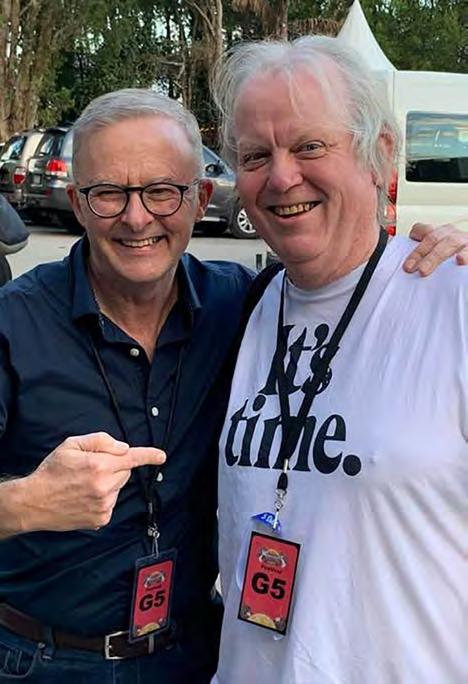
long review of one of the early volumes of the Bob Dylan bootleg series – but our exchanges petered out. I had the sense that he was faintly embarrassed by his writing from those days, and by my dribbling and gushing fandom for it.

My favourite and most lasting Smyth observation is what he wrote about Martin Carthy, regarding his performance on the Selections album with Dave Swarbrick. ‘He sings with pity, grace, joy, sadness, love and hate. If these things mean little to you then so will his music. If you see your own life in them, he will elevate your soul.’
I typed those two sentences out and cellotaped them to the top right-hand corner of that album. They’re still there and the record has travelled with me over five decades. He may be embarrassed to read this, but the influence of Rob Smyth is – one way or another – in every single word I’ve ever written. Thanks, Rob.
62
Shake Some Action by Stuart Coupe is available through Penguin Books Australia.
Anthony Albanese & Stuart Coupe
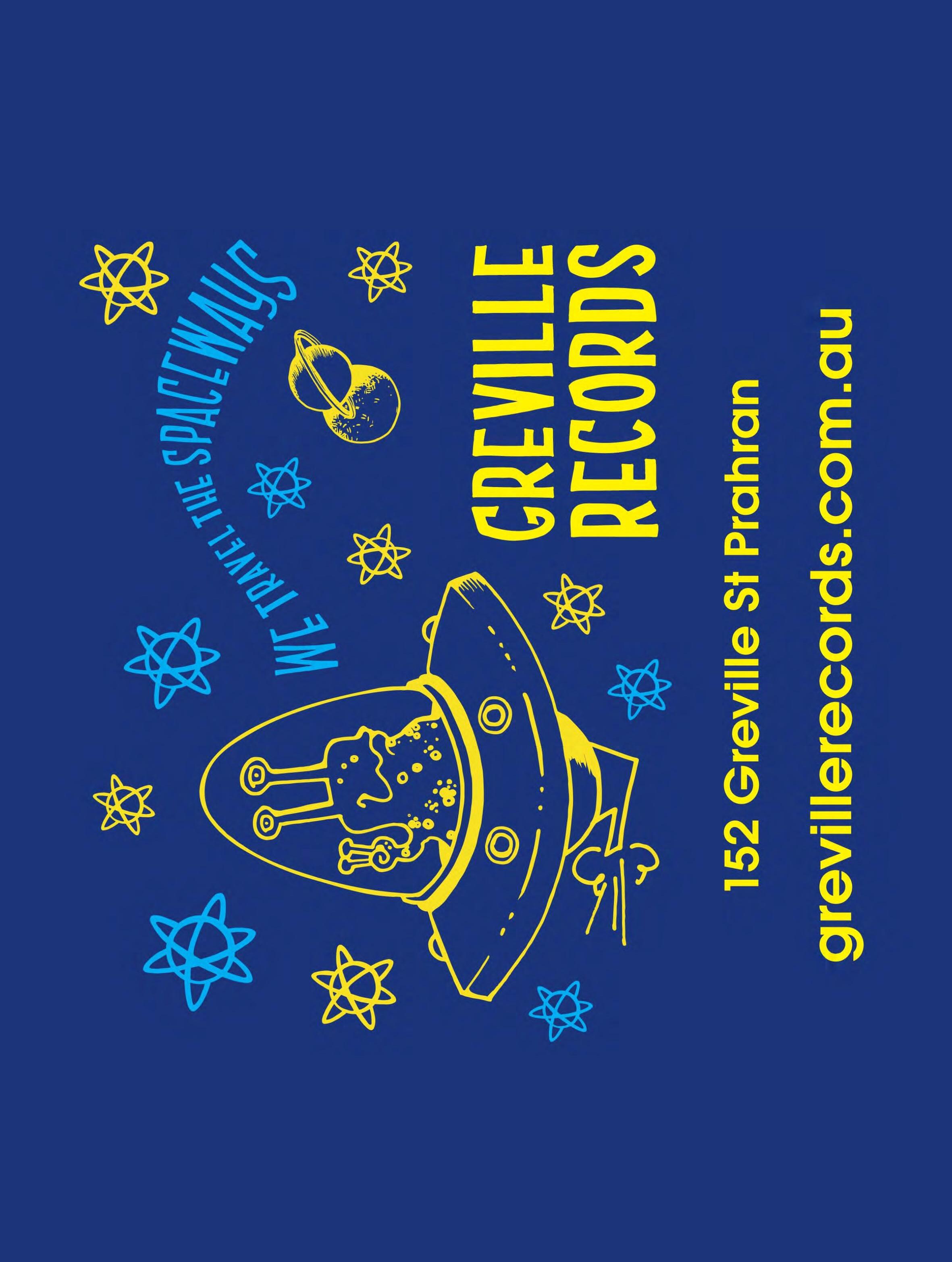
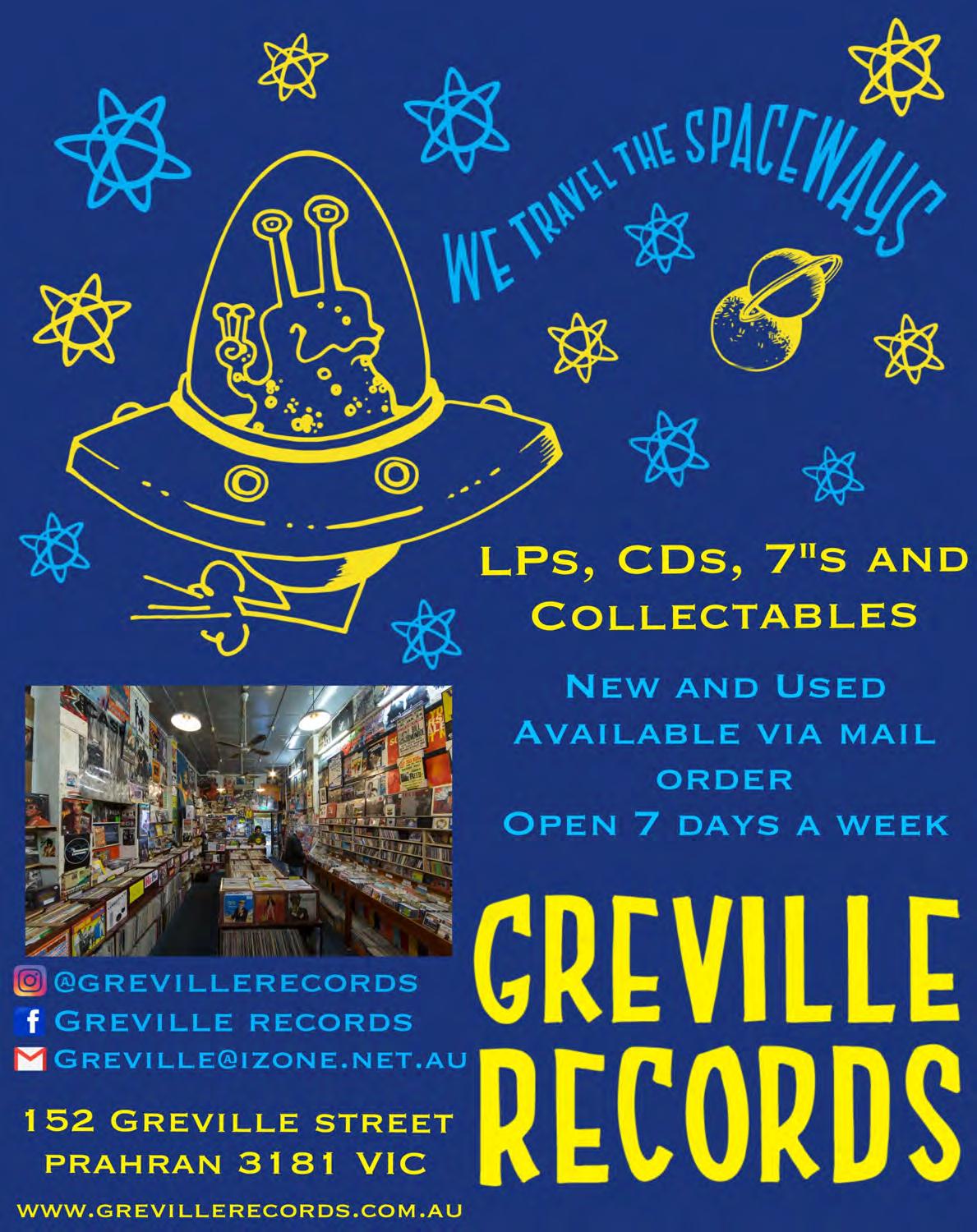
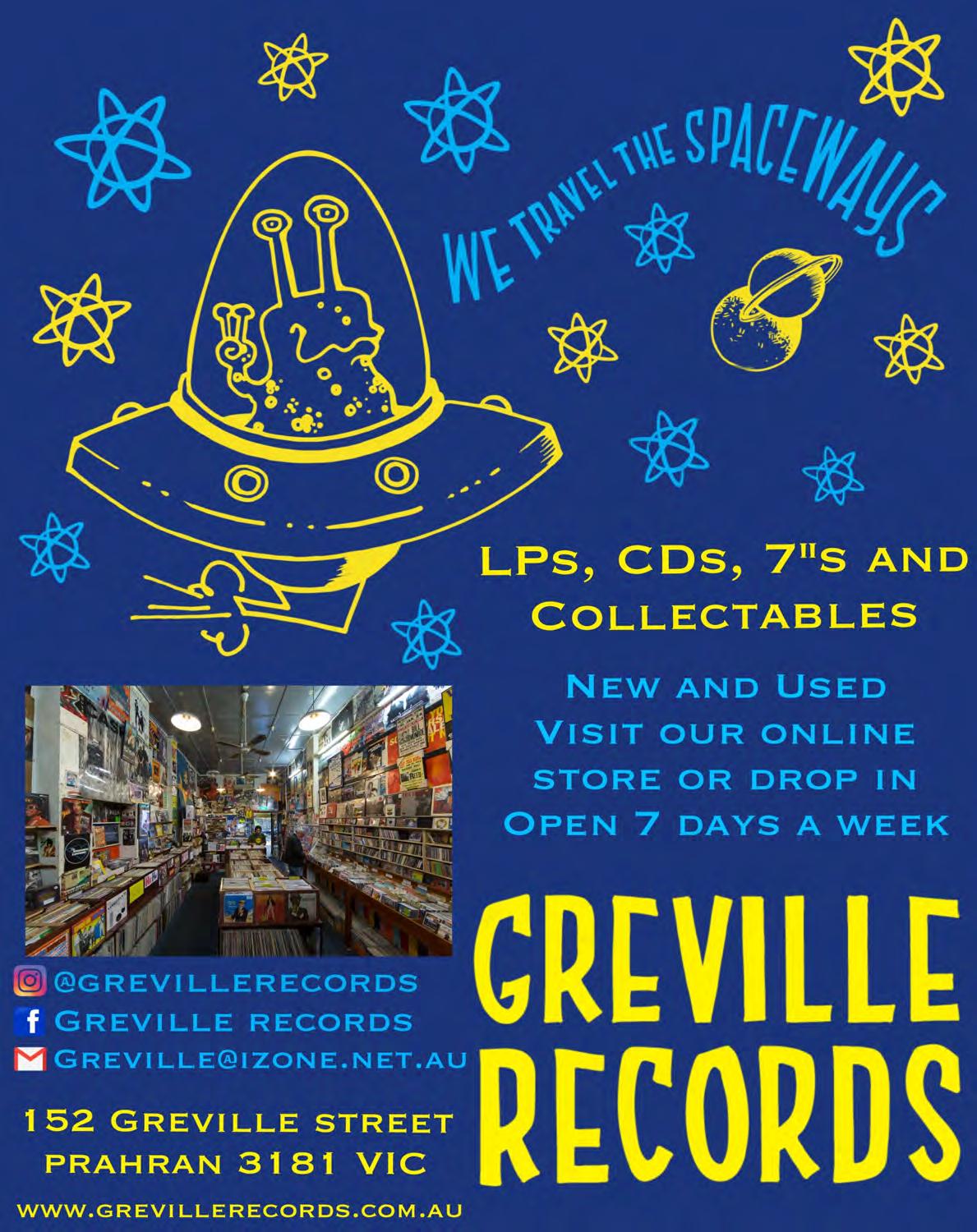
FULL COVERAGE: FRIDAY NIGHT IN
For over fifty years, Australia has maintained its own rock press – a vibrant, passionate, sometimes volatile industry of dozens of papers and magazines committed to the coverage of the country’s robust music scene. Go-Set started it all; Rolling Stone Australia, RAM and Juke defined their eras; music newspapers like Beat and Inpress brought indie music to the streets.
Drawing on comprehensive research and dozens of interviews with key figures such as Molly Meldrum, Phillip Frazer and Lily Brett, journalist and long-time Rhythms contributor Samuel Fell captures the vibrancy of music journalism in Australia with colourful anecdotes and surprising stories. In this excerpt from the book, Fell explores the Melbourne scene in the mid-60s.
Back in the mid-1960s, David Pepperell would cover a lot of ground on a Friday night in Melbourne. As roadie for a slew of local acts, Pepperell had become adept at navigating the southern capital, criss-crossing the Yarra numerous times in between packing and unpacking vans, loading and unloading onto various stages, often multiple times a night.
“I remember one night we did five,” he recalls. “We could get them on and off the stage in about seven minutes. Because you had no PA [system], they were provided, and you used the house band’s equipment. So, you’d run on with your guitars and snare, set up, play and get off. That’s all you were carrying.
“It was big distances, from the Coburg Swinger to say, Kew Town Hall, you had to work it out,” he adds with a laugh. “But you could make $2500 on a Friday night, it was massive, absolutely massive. And that was between the band and one or two roadies – six guys – so you figure how much money that is. And that’s when wages were about $20 a week.”
From the Swinger to Kew, across the river to the St Kilda Town Hall, perhaps back to Prahran or Moorabbin, maybe even out east to Box Hill, venues capable of holding up to 1000 people, swelling audiences adding their young voices to the cacophony, to the sound of the times themselves. Five bands a night (a couple of audition bands who weren’t paid, a couple of local bands and a headliner), plus bands playing spot gigs
slots reserved for those with a hit single, usually half an hour or so – all to packed houses.
This was Melbourne’s suburban town hall scene, running strong from the early 1960s and getting bigger as Pepperell worked his magic off-stage and behind the wheel as the decade hit its halfway mark. “It was huge,” he concurs.
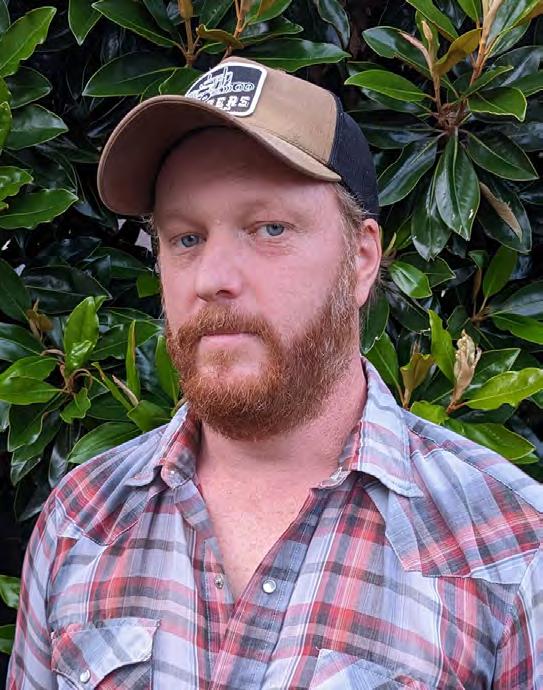
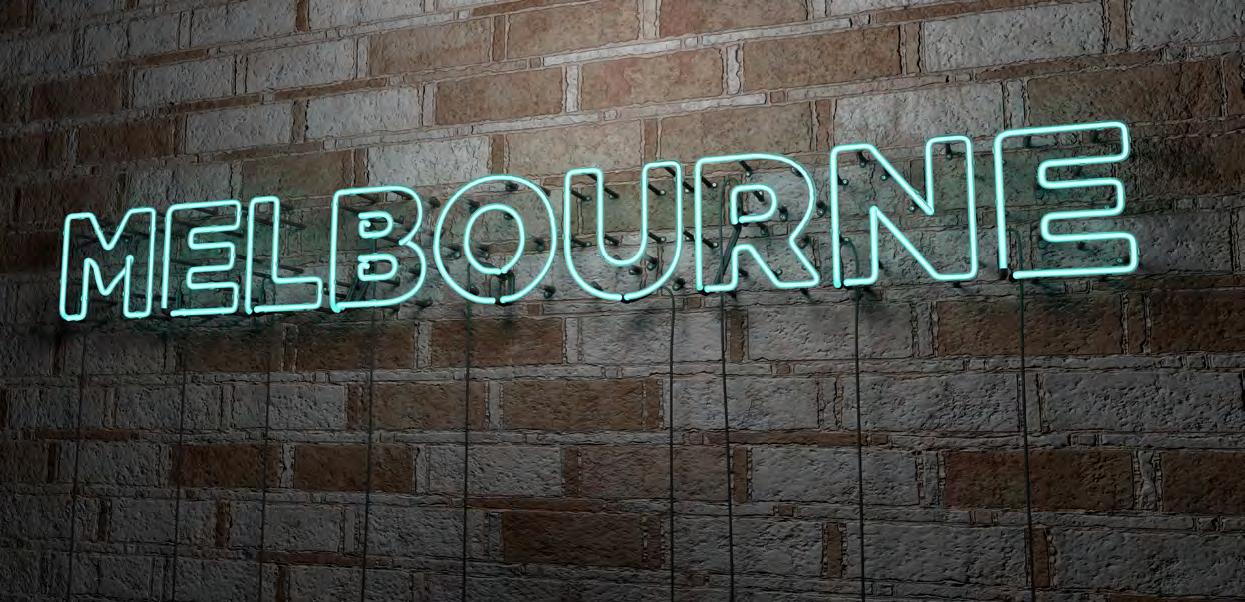
Now a respected journalist and writer, and former owner of seminal Melbourne record shop Archie & Jugheads, Pepperell in the early 1960s was merely twenty, a mad music fan with his finger on the pulse of all that was happening in his vibrant southern city. And it was happening. Pop and rock ‘n’ roll were alive – filled with youthful energy, a new music for a newly awakened group of kids. Melbourne was the epicentre of it all.
“Melbourne was probably more like [swinging] London than any other city in the world,” remembers iconic Australian performer Normie Rowe, who cut his teeth on suburban Melbourne stages through 1961 and 1962. “That’s where that popular music culture, or teenage culture (which was spearheaded by the music), I think that’s where it was born, it was moulded.”
This culture had been in the making for some time. Over in America, Elvis Presley, Chuck Berry and Bill Haley were in full swing. In Australia,
64
–
Full Coverage by Samuel J. Fell is the first full-length history of rock journalism in Australia.
Samuel J Fell
Johnny O’Keefe (inspired by Haley and his Comets) was forging a rock ‘n’ roll career on the fledgling medium that was television. Programs such as the ABC’s Six O’Clock Rock (which featured O’Keefe and his band the Dee Jays) and TCN-9’s Bandstand were making tentative forays into capturing this burgeoning youth market.
The first half of the twentieth century had hardly been easy. Rowe points out: “People [were] having to deal with stuff over which they had no control, so we’re talking about World War I, the Great Depression, World War II and even leading into Korea … these were big fucking social issues. Issues that personally affected people’s lives, family members getting killed, dynamically powerful social issues. And then all of a sudden, after the Korean War there was none of that, there was this sort of lifting of a blanket. At the same time, somebody had developed pressing vinyl records, and then somebody had come up with the idea of pressing a seven-inch vinyl record, with a track on each side. And that was the first time in history [that] music was wrested from the head of the household and laid in the hands of young people.”
Inspired in part by this new music, young people began looking for something other than that which their parents had taught them. The music struck new chords and heralded new times; it enabled the youth to move and think outside of convention. While television shows like Six O’Clock Rock and Bandstand were conduits into this musical world, in early 1960s Melbourne the tried and tested medium of radio was many young people’s greatest influence.
Ian ‘Molly’ Meldrum, younger than Pepperell and Pinnell but still very much alive to what was happening around him, cites the 1964 Beatles tour as a galvanising force in Australia’s youth music scene; while tours by jazz greats Louis Armstrong (1954), Gene Krupa (1954), and the Dave Brubeck Quartet (1960); Shirley Bassey (1957); and crooners like Nat King Cole (1955) and Sammy Davis Jr (1959) had already happened, never before in Australia had a group toured that incited the excitement and fervour The Beatles did, truly heralding the arrival of the new rock ‘n’ roll. “After the Beatles, no doubt, it really started getting bigger and bigger,” Meldrum says. “Because the Beatles happened … and then there was a flow of artists coming to Australia through the amazing contacts and enthusiasm that Ken Brodziak had with a great organisation in England; he signed up all these bands that came and toured Australia.”
The Beatles’ tour would have birthed countless bands in lounge rooms and garages around the country, which spilled into the town halls and beyond. “Obviously in Sydney,” Meldrum says. “And over in Adelaide, [things were] thriving in Adelaide – The Twilights, Masters, they were very active and creating music, and creating their own music. And they had an influence – their influence was from their English heritage and things like that – they brought that to Australia.”
But Melbourne remained the hub. Rofe had been broadcasting rock ‘n’ roll from his booth at 3KZ since 1958. The Beatles played six of their eighteen shows in Melbourne in mid-1964, and by the mid-1960s town hall dances were in full swing. Discotheques sprang up in the CBD, throbbing with myriad sounds from across the world.
“That was the golden age of bands,” Pepperell recalls. “The scene was absolutely jumping. Everybody was out all night, particularly in the summer. And then you had The Catcher open in 1967 – it was this gigantic warehouse up in Flinders Lane, it was huge. And that went all night. And you could have breakfast there in the morning – there was a café on site.”
Pepperell is telling me this some fifty years after it all happened. He’s animated, waving his arms around a lot, letting his coffee go cold as he tells tales of the past. He regularly interrupts my line of questioning as he remembers another detail. He retells these stories with no small amount of nostalgia for a time that, even as it was happening, would have seemed momentous. “It was insane,” he confides.
The powers that be in Sydney tended to be conservative and loath to embrace the cultural change that music was heralding; Melbourne was vivid and vivacious by comparison, led in part by 3KZ DJ Stan ‘The Man’ Rofe, who became for many the guide into this exciting, cacophonous world.
“Stan was up with every trend in music,” remembers Billy Pinnell, these days regarded as the doyen of community radio in Australia. At the time he was a young man, fresh into the medium, into what was still a fledgling music industry in Australia. “Before the Beatles and the Stones broke in ’62 or ’63, there was always Elvis. Elvis was the man. Even when the Stones and whoever became popular, Stan would have this contest, Elvis versus the Beatles, and Elvis would wipe everyone off. This was [via] phone calls, so there’d be fifty phone calls to ten or something [in favour of Elvis], so Stan would play a lot of that kind of music – Little Richard, Chuck Berry, all the rock pioneers. And that’s all you had to play until the Beatles and the Stones opened the doors for the English bands. But Stan was on top of all that as well, he was so influential.”
Journalist Jeff Jenkins recalls Rofe being like a record-company A&R guy. “He had a deal with Qantas and they would fly records in for him. He knew what was happening way before any record company,” Jenkins says.
“Stan didn’t do it privately, 3KZ used to import [the records],” Pinnell clarifies, “because they gave Stan total freedom to program his own show. No one else on the station had that freedom except for Stan.”
Rofe’s love of rock ‘n’ roll helped immeasurably to grow this scene in Melbourne. Suburban town hall dances popped up everywhere, becoming meeting places, places of discovery, of a new kind of freedom. And to be fair, it wasn’t only Melbourne where rock ‘n’ roll was taking hold
Sydney’s music scene was growing too, despite its more conservative bent, due largely to its hosting of variety television show Bandstand, which went national as Channel 9 expanded its reach in the early 1960s. Adelaide, Brisbane and Perth were soon throbbing too.
Full Coverage: A History of Rock Journalism in Australia by Samuel J Fell is published by Monash University Publishing.
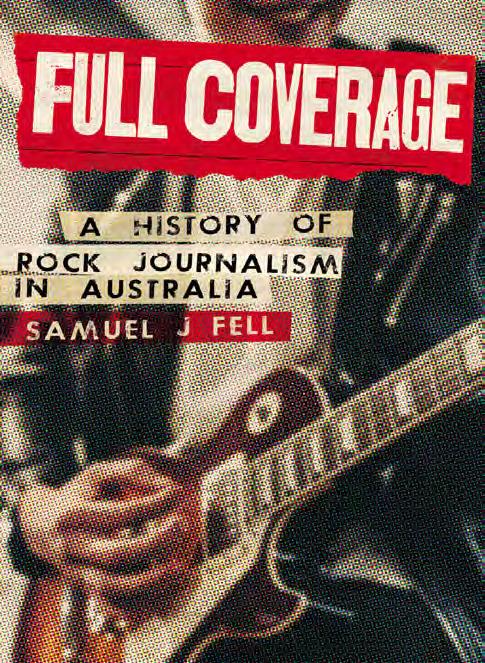
65
–
“It was an awakening.”
- Ian ‘Molly’ Meldrum
TALKING HEADS STOP MAKING SENSE
Deluxe edition of the iconic concert film soundtrack with two previously unreleased songs
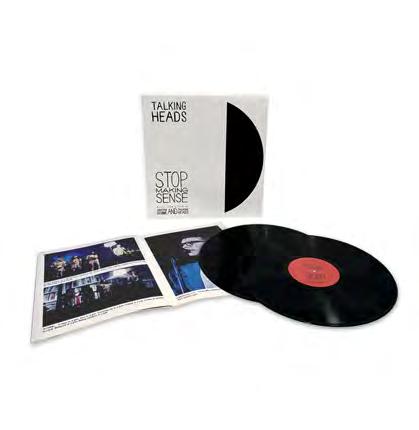
NEIL YOUNG CHROME DREAMS
The legendary long lost 1977 album is finally released!
STEVIE NICKS
COMPLETE STUDIO ALBUMS & RARITIES
The definitive collection of solo recordings from the inimitable Stevie Nicks

FLEETWOOD MAC RUMOURS LIVE
New live recordings from the band’s worldwide 1977 Rumours Tour
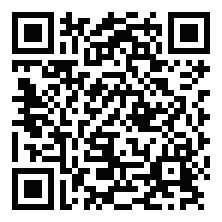

AVAILABLE TO STREAM NOW OR BUY ON CD AND VINYL FROM: STORE.WARNERMUSICAUSTRALIA.COM.AU
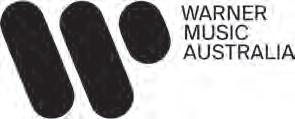

66
By Martin Jones
GEORGE BENSON
THE OTHER SIDE OF ABBEY ROAD
A&M Records
Did George Benson invent the remix album? In 1969, just a few weeks after Abbey Road was released, Benson and a band of jazz progressives went into the studio to dissect, rearrange and splice songs and motifs from The Beatles masterpiece with striking results. Results that, though they were performed live in the studio, set the template for the modern “remix” album. Snippets of songs segued into others, tempos and arrangements were drastically altered, and often vocal melodies were replaced by instruments.

I can’t find an example of any other artist having done anything similar prior to that, so who knows where Benson and his producer Creed Taylor got the idea? It would have been far more obvious to do a track-by-track jazz-soul take on Abbey Road, but that’s not what happened. You can only assume that Taylor and Benson were inspired by The Beatles’ own proclivity for a medley and took it a step further, stretching pop motifs into longer, dynamic pieces over which jazz players could improvise.
On paper, the whole concept looks potentially disastrous, overstuffed with gigantic jazz personalities, top shelf engineers and even lavish orchestration. And all thrown together less than thirty days after the original Abbey Road had been released.
But somehow, The Other Side Of Abbey Road is a gem of inventive reinterpretation. What The Beatles would have sounded like if they were black musicians living in New York? I don’t know about that, but the music is virtuosic and lush without being overblown (for the most part), celebrating the compositions without being overly reverent (Abbey Road had only just been released, Benson and co’s take was completely unaffected by the context of how the album would be received). And even when The Other Side descends into the cheesy, it rarely loses its key ingredient: soul. This is as much a soul record as it is a jazz record. The likes of Freddie Hubbard, Hubert Laws, Herbie Hancock, Ron Carter and Idris Muhammad were all in the process of crossing over into a decade of electric soul/funk adventures and they bring that to this recording in spades.
The album’s opening is disarming. It’s just Benson singing (like an angel) a snippet of ‘Golden Slumbers’ over a Don Sebesky string arrangement. Where is this going? Is it going to be a lounge musak take on Abbey Road? Why is Benson singing and not playing guitar? Indeed, I don’t think I’d ever heard Benson sing prior to listening to this album and his voice was a revelation! But ‘Golden Slumbers’ is short and sweet, segueing into ‘You Never Give Me Your Money’ gathering swagger and erupting into a baroque string-and-horn breakout before settling into a swinging instrumental showcasing Benson’s guitar. The
whole thing climaxes back into ‘Golden Slumbers’ with orchestration outro and you’re left wondering what the hell just happened.
A wind section takes up the melody of ‘Because’ before the band lets loose on a funk/soul instrumental take of ‘Come Together’, Carter anchoring the whole thing with his interpretation of McCartney’s (soon to be immortal) bass line and Benson’s guitar playing off Hubert Laws’ flute and Sonny Fortune’s sax. You can imagine McCartney’s eyebrows rising in pleasure at this wild reimagining.
Benson again gets to show off his vocal prowess on a Ray Charlesinspired take on ‘Oh Darling’ and ‘Here Comes The Sun’ before the band launches into soul/funk space on ‘I Want You’, the climax of the album for me.
Abbey Road was The Beatles most accomplished guitar album to date, and clearly Benson responded to that. His playing and singing on ‘I Want You’ are inspired and, with Carter and Muhammad onboard, the song gets seriously funky. After Freddie Hubbard’s powerful solo, the outro section is slinky and seductive and far too short.
The album closes with a mashup of ‘Something’, ‘Octopus’s Garden’ and ‘The End’. I love Benson’s take on ‘Something’, his guitar launching off the melody with great imagination, and his singing buried and filtered like a precursor to Tame Impala. ‘Octopus’s Garden’ is the closest the album comes to pure schmaltz but, again, it’s Benson’s guitar playing that saves it before an “Elvis In Vegas” style bongo-fuelled arrangement erupts out of nowhere in ‘The End’. Very strange.
The album was not an easy sell – it was largely shunned by jazz purists and, released so soon after the original Abbey Road, was not likely to appeal to many Beatles fans. It’s consequently a pretty rare record, but well worth tracking down.
67




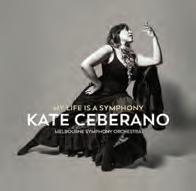
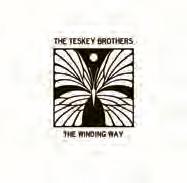
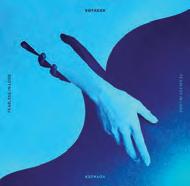
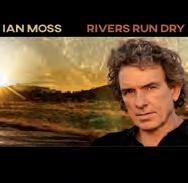

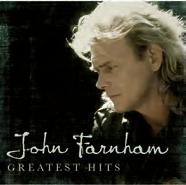


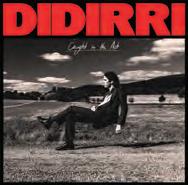

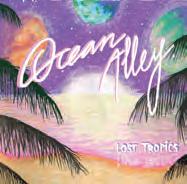

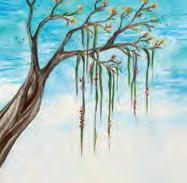


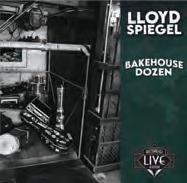
68
BY KEITH GLASS
In the 60’s/70’s/80’s major record labels worldwide maintained a massive album release schedule. Only a comparatively few artists scored a hit, others became ‘cult’ classics. Beyond that exists an underbelly of almost totally ignored work, (much never reissued) that time has been kind to. This is a page for the crate diggers.
CHARLIE BROWN UP FROM GEORGIA
Polydor 2440-14 (Released 1970)
‘Back to the roots’ was catching on in the late 60’s and folks such as The Band, Tony Joe White, Lonnie Mack, The Byrds and Link Wray were carving out a new vitality with original songs that summoned up the ghosts of past and created a brand new way forward. So, Up From Georgia hit the streets perhaps like a real life ‘Midnight Cowboy’ hoping to launch the unfortunately named Charlie Brown to fame and fortune.
Of course, it hardly ever works out that way but at least Charlie got to make this astonishing debut album. It is remarkable for its security in being just what it is….a stripped back roots music tour de force of mostly original songs low in pretense but high in intensity performed by just Charlie on vocals and all instrumentation (guitars, bass, harmonica) - save drums and a touch of keyboards from producer David Lucas (who also took the slightly goofy album cover). The songs are sort of the same but different - in the same way that Jimmy Reed
operated, they also work on the “less is more” principle that enables you to find more meaning and sounds the more times you listen. The cover was probably enough to put off enough potential purchasers at time of release - a goofy looking rube with a pen in his pocket - although I do remember somebody at the time (hands up whoever you are) extolling the virtues of this album…..alas, I never got it until years later - that is when I literally ‘got’ it, because I’ve only ever seen two copies in fifty plus years! From the first song ‘I Got’ to the final title track this album swamps and romps with a timeless qualityjust playing it ‘instore’ has a created a demand - re-issue?? Well, those savvy folks in Korea (who have issued quite a few of previous Lost In The Shuffle entries on CD have this one out too! I am not on their payroll and I’m pretty sure none of the artists are either.
The basic song title list is sorta underwhelming and Charlie does sneak the only ‘cover’ track (Van Morrison’s ‘Ro Ro Rosie’) in early (second track) maybe as some sort of security blanket but despite fairly pedestrian titles on his own material ‘My Own Man’, ‘Baby Needs A New Pair Of Shoes’, ‘Ain’t Gonna Stay’ the remainder of side one (and indeed the rest of the album) is a pure delight with solid rhythm from Lucas and the interplay and sparse touch of Brown on a variety of instruments. I’d go so far to say I’ve never heard better interplay plus a whole lot of space. That means this album stands up well with the best of a genre dominated by the folks listed at the top of the page.
Research proves pretty sketchy but it surprisingly tells me Charlie is still active today - perhaps out on the West Coast - and that David Lucas (on whom there is far more available information) went on to produce a lot of other stuff and lives in Miami. I would imagine they would be (and should be) proud of the initial entry of C.B into the recording world and it ain’t their fault it is so obscure. Like most stuff I deal in here, a vinyl re-issue would be extremely unlikely but you can catch a few tracks online or perhaps get lucky in a record shop or at a show…I can’t imagine anyone want a fortune for this (shame on them if they do) and prices online bare this out…the tricky part - finding it in the first place!

69
By Billy Pinnell
THE FLYING BURRITO BROTHERS
THE GILDED PALACE OF SIN










A&M (Released February 6, 1969)
When our editor recently mentioned the Americana Festival/ Conference being staged in September I felt the need to share with Rhythms readers the significance of the emergence of Gram Parsons’ late sixties band The Flying Burrito Brothers.
While his career was short, Parsons’ influence was substantial on both country and rock music. His recordings with The Byrds and The Flying Burrito Brothers blended the two genres to a point where they became indistinguishable to each other. His interest in music dates back to 1956 when at the age of nine he saw Elvis Presley perform in concert.
Five years later he was playing in rock and roll cover bands such as The Pacers and The Legends that included singer/songwriter Jim Stafford. Before his sixteenth birthday he’d joined a folk group The Shilos who were heavily influenced by The Kingston Trio and The Journeymen. He first became seriously interested in country music in 1965 when he heard recordings of Merle Haggard. The following year he and some other like-minded musician friends formed a group called The International Submarine Band recording their only album Safe At Home in 1967 which remained unreleased until the following year by which time the band had broken up.
Along the way Parsons’ music had come to the attention of The Byrds bass guitarist Chris Hillman who suggested him as a possible replacement band member following the departure of David Crosby and Michael Clarke. Initially hired as a pianist Parsons soon switched to guitar and vocals. His pivotal role in the recording of The Byrds seminal Sweetheart Of The Rodeo has been well documented. Parsons, who didn’t stay long in any of his bands, left The Byrds towards the end of 1968 to form a new group with Hillman, bass guitarist/pianist Chris Etheridge, an ex-member of The International Submarine Band and pedal steel guitar player ‘Sneaky Pete’ Kleinow who’d been working as a motion picture and TV special effects artist. One of the first pedal steel players to work in a rock music context Kleinow often utilised electronic innovations like fuzzbox, playing through a rotating Leslie speaker, and backward techniques.
While Sweetheart Of The Rodeo was country flavoured, Parsons’ new band The Flying Burrito Brothers played full on country rock. Parsons had contributed only two songs to The Byrds album, he co-wrote all but two on his new band’s debut The Gilded Palace Of Sin. The band
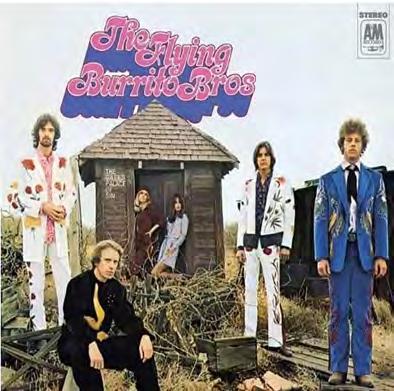
recorded their first album without a regular drummer, at least four session players shared responsibilities.
One of the album’s most memorable songs is ‘Sin City ‘a cynical observation of Los Angeles (“If you’ve got some money to burn take it home right away, you’ve got three years to pay but Satan is waiting his turn”). The stories behind other lyrics in ‘Sin City’ were revealed by Hillman in his memoir published in 2020.
“On the 31st floor on a gold-plated door,” was about the Byrds manager at the time. Hillman explained, “Larry Spector lived on the 31st floor of a brand new condominium building, he had a gold plated door!”

“A friend came around tried to clean up the town” was a reference to Bobby Kennedy. Hillman: “Roger McGuinn and I worked a show for him when he was running in the presidential primaries. A few months later he came back to L.A. and was assassinated.”
Other songs mix traditional country themes with contemporary issues.


‘My Uncle’ and ‘Hippie Boy’ address counter culture concerns of that time, the draft and the 1968 democratic convention riots. Without exception Parsons’ vocal performances, so essential to country music are totally convincing.




The Gilded Palace Of Sin contained Parsons and Hillman’s pioneering work in modern country music with their fusion of traditional sources gospel, soul and rock and roll. The two R&B standards covered on the album, both written by Dan Penn and Chips Moman sit comfortably among the original songs.
Hillman: “Gram had such an interesting ear for odd songs, taking rhythm and blues and doing them country”.
It wasn’t the first time it had been done, Ray Charles did it, but taking an Aretha Franklin song, ‘Do Right Woman’ which was basically a woman’s song and making it work from a man’s point of view was interesting and to do that kind of song with a country back-up! (David Crosby provided the high harmony.)
James Carr’s 1967 hit ‘The Dark End Of The Street’, a lament from an adulterer to his illicit lover, showcases yet again the emotional depth of Parsons’ vocals.
The Gilded Palace Of Sin was well received when released in 1969 but failed to make a dent on the charts. Over time its influence on popular music can be found in recordings of The Eagles, Steve Earle, Lucinda Williams, Wilco, Emmylou Harris and countless other Americana artists.
70
YJOE MEEK
GLENDA COLLINS: BABY IT HURTS
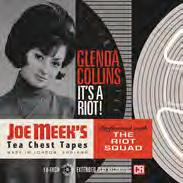
Cherry Red/Planet\
By Trevor J. Leeden
STACKRIDGE
THE MAN IN THE BOWLER HAT Esoteric/Planet
SANDY POSEY
BORN A WOMAN: THE COMPLETE MGM RECORDINGS
Strawberry Records/Planet
Delving into Meek’s extraordinary tea chest is the gift that keeps on giving. This 3-disc set is a deep dive into one of the UK’s genuine could-haveshould-have-been singers. The chanteuse’s eight 60’s A and B-sides are included along with over sixty demos and previously unreleased alternate versions. Meek utilised both his studio house bands – The Tornados and Ritchie Blackmore’s band The Outlaws - on Collins’ recordings as he endeavoured to make Collins his premiere female star. Stardom eluded Collins, however these meticulously restored recordings provide another piece of the genius producer’s priceless production jigsaw puzzle.
VARIOUS ARTISTS
THE CLARION SET
Grapefruit/Planet
Culled from three separate concerts, Space Ritual is the definitive statement of space rock, and this gargantuan 50th anniversary edition is everything any would-be space cadet could desire. The original double album is newly remastered and supplemented by fresh mixes of all three concerts in their entirety, and a mind-expanding hi-res surround sound Blu-ray mix. A landmark live album featuring the definitive line-up (Lemmy, Robert Calvert, Nik Turner and Dave Brock) tearing through warp speed renditions of fan favourites like ‘Brainstorm’ and ‘Time We Left The World Today’, Space Ritual remains a brain bending triumph.
VARIOUS ARTISTS
WE’RE AN AMERICAN BAND Grapefruit/Planet
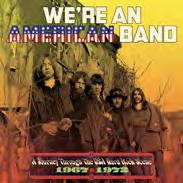
After two wildly eclectic albums, Stackridge had piqued the interest of the legendary George Martin enough for him to produce their third outing. The eccentric Britishness of Stackridge was a perfect fit for Martin given his pre-Beatles background. Consequently, the crispness of the sound on Bowler Hat is a defining contrast to its predecessors, whilst still retaining the band’s poetic imagery, witty music hall revelry and genre-bending satire on definitive tracks like ‘Dangerous Bacon’, ‘The Indifferent Hedgehog’ and ‘God Speed The Plough’. Stackridge’s finest album is embellished with a bonus disc of 1973 BBC recordings
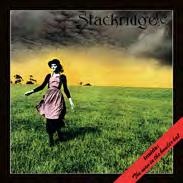
VARIOUS ARTISTS
SHAKE THAT THING: THE BLUES IN BRITAIN 1963-1973
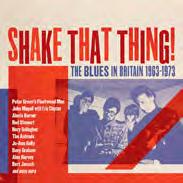
Cherry Red/Planet
It’s unlikely that the cancel culture of 21st century ideologists would have allowed Sandy Posey to be played on radio, let alone become an inspiration to a phalanx of female country stars. Acknowledged by the likes of Dolly Parton as a major influence, Posey released a handful of singles that became million sellers (literally), and her four albums enclosed here helped define the countrypolitan sound. A 60’s style icon, her uncompromising songs of self-abasement and vulnerability were confronting, in direct contrast to her championing of women’s rights. The cream of Memphis’ session musicians featured throughout these singularly superb recordings.
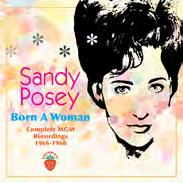
JOE MEEK
HEINZ: THE WHITE TORNADO Cherry Red/Planet

A smorgasbord of tasty morsels for Australian music connoisseurs and collectors, this 3-disc compilation chronicles the pioneering 60’s/early 70’s Perth-based independent record company. A constant stream of solo singers and r&b/beat groups passed through the doors of Clarion, many consigned to anonymity but several who would achieve considerable success. Included are hard-to-find releases from The Spektors and The Valentines, both featuring the vocal and drumming talents of Bon Scott, as well as the career breaking releases of Johnny Young (it’s easy to downplay the impact he had on Oz music prior to YTT). There are choice cuts from the likes of folk-rockers Gemini, The Birds, Chalice, prog rockers Fatty Lumpkin and a host of Perth’s finest.

The evolution of the US hard rock scene in the 60’s can be traced to the proliferation of blues-based power trios and the psychedelic explosion. This barnstorming set charts that course across three discs to hard rock nirvana, and it’s a thunderous journey. Starting with Vanilla Fudge’s mind-altering rendition of the Fab Four’s ‘Ticket To Ride’ and concluding four hours later with Grand Funk’s 1973 chart-topping title song. In between, there are bone crushing rifferamas from the likes of Iron Butterfly, Blue Cheer, Steppenwolf, Spirit, Mountain, ZZ Top, Blue Oyster Cult and Cactus. Heavy, hard, raw and loud, it’s all here.
The resurrection and popularity of blues music can be directly attributed to the acolytes of the British blues boom. This brilliant clam shell set welcomes everyone on board the blues train, from the pioneering fathers (Cyril Davies, John Mayall, Alexis Korner) to those who would rule the world (Plant, Page, Clapton, Gallagher). The trip travels via Jethro Tull, TYA, The Animals and a plethora of less acknowledged practitioners like the Kelly siblings and Duffy Power. Over 70 stone cold British blues classics on arguably the best compilation of the year.
Meek devoted more time recording the Tornados bleach blonde bassist/ singer than any other artist, and these five discs extracted from the Tea Chest Tapes contain over 100 previously unreleased recordings of Meek’s protégé. The meticulously restored singles and album tracks, alternate takes, demos and instrumentals portray the blonde bombshell’s career in a new light. Whether or not Meek’s fascination with Heinz was somewhat misplaced, The White Tornado serves to further illustrate that as a producer Joe Meek precariously straddled the line between genius and eccentricity.

71
HAWKWIND SPACE RITUAL Esoteric/Planet
VARIOUS ARTISTS THE STORY OF CADET RECORDS Vinyl Me Please
Here’s one I’m super excited about - Cadet and then Cadet Concepts were the psychedelic/wild idea subsidiaries of Chess Records formed in 1967, and the two people tasked with making them work were Charles Stepney and my fave bassist/string arranger Richard Evans. Whichever way you dice it, you can’t tell the story of Cadet without the input and inspiration coming from Stepney and Evans. But how do you tell the tale? It’s interesting they haven’t gone with an anthology (which would’ve been fascinating). Instead, the saga is conveyed by including seven great, diverse (and now very expensive, collectable) albums. They include 1967s Electric Mud, which has always been a dividing line in the Muddy Waters discography (I think it’s great not evil), Etta James’ Tell Mama in glorious mono from 1968 (a defining moment), Ramsey Lewis’s Mother Nature’s Son (the most creative Beatles tribute album, taking on some great choices from The White Album), Dorothy Ashby’s instrumental Afro Harping (a sampler’s dream), the New Rotary Connection’s Hey, Love (a very interesting pick from 1971 featuring Stepney’s songwriting with Richard Rudolph), Terry Callier’s Occasional Rain (baroque soul, if you can believe it), Shades of Brown’s S.O.B (which is new to me and they would’ve been an amazing live band) and Harold Land Quintet’s Peace-maker (a fabulous but unsung jazz excursion).
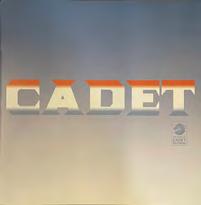
COLTER WALL LITTLE SONGS
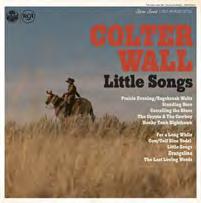
La Honda
It’s a conceit so simple that it’s hard not love –putting the western back into Country & Western Putting the range back into the home. Putting Laredo back into the streets. Putting the trails back into happy. You get my drift. Little Songs is Saskatchewan balladeer Colter Wall’s fifth album, and it surveys the type of mystic Monument Valley terrain forged by the Sons of the Pioneers, Eddie Arnold and Marty Robbins but with a side order of crustier Outlaw Country artists like Waylon Jennings and Willie Nelson. The album is full of yodellers, prairie rangers, coyotes, bottles of rye, nighthawks and owl hoots. Yee har Both ‘The Last Loving Words’ and ‘Corralling the Blues’ has Wall living his best life in three four time coloured with some impressive mouth organ style harmonica. Forward, ho!
By Christopher Hollow
DOT ALLISON CONSCIOUSOLOGY
Sonic Cathedral
For me Scottish singer Dot Allison has been the queen of the cameo. Over the years, her name would pop up as a feature on a Death in Vegas or Massive Attack record or she’d be singing with Scott Walker and Sunn O))) or enjoying the privilege of being the final remix of Lee ‘Scratch’ Perry’s career (‘Love Died in Our Arms’ from early 2022). But I’d never sat down with one of her albums start to finish. That’s my confession and regret. It’s easy to see why other artists are drawn to her vocal style with tracks like the subtly dramatic ‘Unchanged’ The way Dot sings, it’s like the girl with the pearl earring has found her voice, is able to tear herself away from the frame and give us a piece of her mind. Wan over.
THE CLIENTELE I AM NOT THERE ANYMORE Merge

It was 2007 when this London band announced themselves as a player on the indie scene with a supersmart cardigan pop single called ‘Bookshop Casanova’. In my mind’s eye, they’re still a new band … who have now released eight albums, had a best of, and even had a break for the last six or seven years. But long live The Clientele! The latest is I Am Not There Anymore, and I know what they mean – as I’m alluding to, time is not what it once was. The opener, ‘Fables of the Silverlink’, unfolds in an unhurried fashion over eight minutes with strings right out front. ‘Garden Eye Mantra’ is a similar slow reveal and to add to the stretching of time are the Chopin-like piano interludes that punctuate
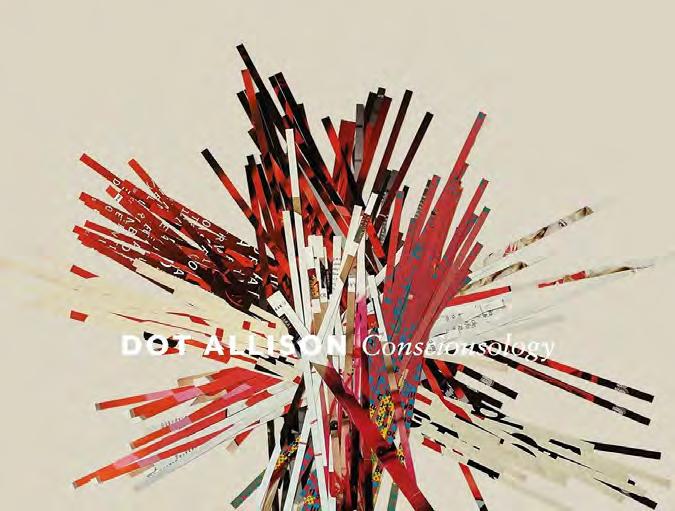
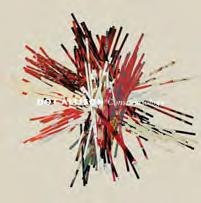
BEN CARRUTHERS & THE DEEP BIRDLAND Jack of Diamonds / Right Behind You 7” 45
As a kid I had a postcard of a saxophone player standing outside New York’s Birdland begging to be allowed to play. It was taken by William Claxton, and I found out recently that it’s a still from the John Cassavetes 1959 jazz film, Shadows The subject is the raccoon-eyed actor Ben Carruthers (who later played screen-busting character parts in The Dirty Dozen and Riot with Gene Hackman). It’s the same Ben Carruthers who was friends with Bob Dylan, introduced Bob to Nico in Paris, which in turn inspired ‘I’ll Keep it with Mine’. In mid’60s London, Carruthers decided to record a 45 and used a poem lifted from the liner notes of Another Side Of Bob Dylan. The single was called ‘Jack O’Diamonds’ and had Shel Talmy producing, Jimmy Page and Nicky Hopkins playing like Them with Carruthers singing like Richard Hell. It was released then quickly withdrawn because of the illegitimate nature of the Dylan-Carruthers cowrite. It was later covered by Fairport Convention on their debut album, but they dropped the fabulous handclap part. Stream it because underwater is where the action is.

72
By Chris Familton
Recently on WATD I’ve been taking a look at some essential Americana albums, from seminal releases by Wilco and Gram Parsons to Gillian Welch and Lucinda Williams. In this issue I decided to focus on some new and recently released albums from three Australian artists who may one day find their work being held up by some as examples of this country’s essential Americana music.
First up is Queensland songwriter JB Paterson, who released his third album Springtime Is Coming (Holiday Maker Records) at the tail end of 2022. The record is a 13-track folk suite tracing the seasonal shift from winter to spring.

Seemingly arriving fully formed, she weaves a lush and dreamy mix of heady, heartfelt melodies and dreamy twang. The sound of coastal breezes, desert shimmer and city laneways. Its sophisticated blend mixes ‘70’s pop rock, folk-rock and cosmic Americana. Think Chrissie Hynde and Marlon Williams on a songwriting retreat with Big Thief and The Delines.
Songs such as ‘Only Fair’, ’Night and Day’, ‘Ants’, ’In My Own Time’ and the Crazy Horse grandeur of ‘Fade Away’ possess a timeless quality built on mood and groove that leave you feeling like you’ve heard them in a past life. Right across the album there are melodic touchstones that act as the sonic conduits between the ethereal atmospherics and dreamily upbeat aspects of the Babitha sound. Utterly captivating.
The album was written, performed and self-produced by JB Paterson in his off-grid, solar recording studio in Cedar Creek, Queensland. Yet this isn’t a ramshackle, lo-fi cabin recording project. It’s as lush as one would hope it to be. If anything, the location adds a subtle sense of intimacy, draped in a relaxed and timeless atmosphere.
Primarily folk music, there are shades of the blues and elements of gentle twang running through these back porch soliloquies that are meditative, hypnotic, heartwarming and utterly gorgeous.
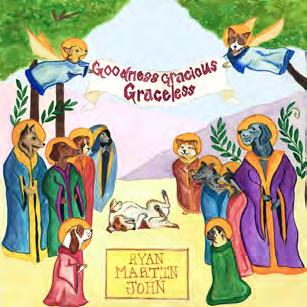
These are short songs, only a handful scrape past the three-minute mark but his genius lies in the way he makes them feel like mini, unhurried opuses. Banjo rattles and resonates through most of the songs, with guest appearances from violin, pedal steel, guitar, bass and drums – the overall effect being one of a collective of players rather than a one-man show. Paterson’s voice sounds suitably weathered and heartfelt, falling somewhere between The Felice Brothers and M. Ward. If you’re a fan of anyone from JJ Cale to Tom Waits, ambient Americana and Nick Drake then you’ll find plenty to satiate and surprise your musical tastes.
Babitha’s debut album Brighter Side of Blue (Spunk), released earlier this year, is another that weaves an intoxicating spell. Like Paterson, Babitha’s Imogen Grist stretches the form of folk music, taking it deeper into a full band, folk-rock cul-de-sac that feels decidedly more metropolitan compared to the nature-soaked ambience of Paterson’s LP.
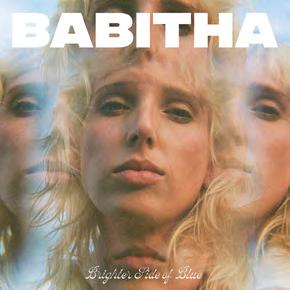
Ryan Martin John’s Goodness Gracious Graceless (Independent) emerged blinking into the world in April and right from the opening track ‘Bourbon St’ it caught my ear and drew me in via the lush and spacious palette of sounds with shimmering guitars and John’s exquisite soulful folk voice. His falsetto and pure, wavering tone constantly thrills across the album’s ten songs, gracefully soaring above and beyond the subtly inventive arrangements and perfectly restrained playing.
At various times the Adelaide songwriter’s voice reminded me of Bob Dylan, Paul Simon and locals Steve Smith of Fallon Cush and Davey Craddock – through an easy-listening Laurel Canyon filter. He possess a sharp turn of phrase too, with lines that sound both fresh and obvious at the same time.
Gentle twang and indie folk tropes run freely through John’s songs though they always remain on the right side of the tracks, never veering into pastiche or cloying sentimentality. You believe what he is saying as he makes the heart swell and convincingly encourages the listener to empathise.
Among the many standouts, ‘Concorde’ is reminiscent of Fleetwood Mac’s ‘Dreams’ with Alana Jag’s vocal the perfect, sublime foil to John’s higher register. By contrast, ‘I’ve Been Waiting’ is a glorious and playful, stop/start rhythmic delight, like the Black Keys without the bluster and with extra soul.
This is sophisticated music, yet wholly accessible and overflowing with both melancholy and melodies that will warm the most cold-hearted and sceptical music fan. File under sun-kissed Americana.
73
By Denise Hylands
As we dive into the second half of the year it’s good to see so much great music, live and recorded heading our way. Out On The Weekend have wrangled an awesome lineup of artists, many we haven’t seen here in Australian before, and boy it’s looking good. Making their Australian debut are the legendary Asleep At The Wheel, who have continued to revive and keep alive the amazing sounds of Western Swing music for over 50 years. Along for the ride, two of the new generation of country musicians, Brennen Leigh and Joshua Hedley plus original founding member Lucky Oceans. Not only at OOTW but heading out west to Perth and Adelaide as well as Sydney, Melbourne for headline shows.
Melissa Carper, Summer Dean, Nat Myers and The Pink Stones all make their Australian debut too. As well as the welcome return of Willie Watson and Jenny Don’t & The Spurs. Also, some great Australian talent joining the day are Watty Thompson, Charlotte Le Lievre, Bones McKinnon, Bud Rokesky, The Collingwood Casanovas, and introducing
By Denise Hylands
The Bures Band plus more to come. In Melbourne at Seaworks Williamstown October 14.
Redd Volkaert returns to Australia for his second time this year. This time with his guitar playing buddy Bill Kirchen. Known as The Titans of the Telecaster. Volkaert, the go to guitar player for many like George Jones and Johnny Paycheck including being Merle Haggard’s guitar man for nearly a decade. Kirchen the guy behind 70’s band Commander Cody & His Lost Planet Airmen. They make an incredible team, something I’ve been witness to and been blown away by. Touring here in October.
Another must see is the incredible old time/ bluegrass outfit Foghorn Stringband from Portland Oregon. It’s been a while since we’ve seen them here and definitely a must see of super talented folks, who will be touring Australian in Oct - Dec.
Another amazing pairing of talent is the return of Courtney Marie Andrews, this time with her band, touring with Robert Ellis here in December.
Some albums getting set for release. Buddy & Julie Miller will release In The Throes on September 22 via New West Records. The 12song set was produced by Buddy Miller and features Emmylou Harris, Regina McCrary, Larry Campbell & Teresa Williams, Gurf Morlix, and more. This will be the follow up to their 2019 acclaimed Breakdown on 20th Ave. South, which was Buddy & Julie Miller’s first album in a decade. Julie wrote every song on the album with the exception of ‘Don’t Make Her Cry,’ which is a rare co-write between Bob Dylan, Regina McCrary, and Julie.

Teddy Thompson releases his eighth studio album, My Love Of Country. True to its title, Thompson offers deeply personal and heartfelt readings of ten classic country songs by songwriters like Buck Owens, Hank Cochran, Eddy Arnold, Cindy Walker and even his own father, Richard Thompson. Logan Ledger releases his second full-length album, the follow on from his debut, T Bone Burnett produced self-titled record. From the Bay Area and now based in Nashville, Ledger dreams up a lush and spirited sound partly inspired by the California country-rock scene of the late’60s and early-’70s. This one is produced by Shooter Jennings and out Sept 8.
I think I make mention of Willie Nelson every issue and here I go again. He’s always working on something and this time it’s a first. Yep, his first bluegrass album and it’s called Bluegrass
Nelson reinterprets 12 songs from his back catalogue, bluegrass style. Featuring players and pickers Dan Tyminkski, Barry Bales, Ron Block, good pal Mickey Raphael and many more. Produced by none other than Buddy Cannon. This is the first recording from Nelson, since acquiring his beloved guitar Trigger, that it is not featured on a record. Out Sept 15.
Old Crow Medicine Show are ready to release their eighth studio album Jubilee, with guests including Mavis Staples, Sierra Ferrell and Willie Watson, joining them for the first time in a decade with OCMS. Out Aug 25
MUSIC I’M LISTENING TO:
Molly Tuttle & Golden Highway - City Of Gold
Croy & The Boys - What Good’s The Medicine?
Kyle Nix & The 38’s - After The Flood Vol. 1
Joshua Ray Walker - What Is It Even?
Colter Wall - Little Songs
The Pleasures - The End Of The Beginning
Lukas Nelson & Promise Of The RealSticks & Stones
Son Volt - Day Of The Doug
Summer Dean - The Biggest Life
The Pink Stones - You Know Who
MUSIC I’M LOOKING FORWARD TO:
Wilco – Cousins, Sept 29
Old Crow Medicine Show – Jubilee, Aug 25
Buddy & Julie Miller - In The Throes, Sept 22
Margo Cilker - Valley Of Heart’s Delight, Sept 15
Lillie Mae & Family - Festival Eyes, Sept 8
Rhiannon Giddens - You’re The One, Aug 18
Nick Shoulders - All Bad, Sept 8
Dan Brodie - The Ballad Of Cowboy Dan, Sept 1
Jaime Wyatt - Feel Good, Nov 3
Turnpike Troubadours - A Cat In The Rain, Aug 25
Tyler Childers - Rustin’ In The Rain, Sept 8
Brent Cobb - Southern Star, Sept 22
74
Melissa Carper. (Photo by Lyza Renee). Coming for Out On The Weekend and on tour.
RAY BEADLE BOUND TO GET THE BLUES
Interface Blue
By Samuel J.Fell
Let us get the hyperbole out of the way immediately – this record from Sydney-based gun guitar-slinger Ray Beadle is a rock-solid sizzler of an electric blues record. One would expect nothing less from a man who’s been bending six strings to his every whim for more than half his life, and if you’re reading this then I suspect you agree –I’m preaching to the choir here.

Bound To Get The Blues, which launches out of the gate with the crunchy and hard-charging ‘Charlene’, sees Beadle and band essentially go back to basics, simplifying what has been a staple of the man’s live show for years. As Beadle says, “I set out, pretty much, to do a straight-ahead blues / rock album. A lot of the albums I’ve done in the past, I’m trying different things, trying a bit of everything, and then you go and do a gig, and you play all the songs completely different to the album; we just do what we do, live.”
“So, with this album I thought, let’s just do what we do, but in the studio,” he goes on with a laugh. “So, I approached it as live as possible, as we’d do at a gig.” Bound To Get The Blues was recorded at Studio 301 in Sydney (as most of his recent albums have been), live from the floor to two-inch tape, a setting in which Beadle thrived. “[The engineers at 301] said, with the kind of music it is, you should be able to just do it live. I said, yeah man, they suggested two-inch tape, so that’s what we did, live to tape.”
As you’d expect then, there was no messing about. “In one day the whole thing went down,” Beadle smiles. “We went in on the Saturday morning, took three or four hours to set up, so by about 1:30 we were ready to press record, and at six o’clock we were done.” He laughs. “It was that fast, yeah. And in a sense, that makes it easier, because you’re not having to use your energy over such a long period… it was just really concentrated and focused and tight and short, a burst.”
Of the ten tracks on Bound To Get The Blues, seven are Beadle originals, some of them written in the lead-up to recording this album (“When it comes to [writing], I’ll sit down and put my head down and
go,” he says, the looming studio deadline providing the impetus to get it done), but there are a couple that have been around for while. “Yeah, ‘Don’t Call Me Baby’ I wrote years and years ago, and ‘Haunted Heart’ too. These are songs I’ve just sorta had there, and so I just kind of reimagined them for this [album]… ‘Guitar And A Reason’ is basically expressing how good it feels not to be drinking and just really enjoying playing now.”
The originals are fluid, ranging from slower and steady to foot-to-thefloor blues rock power. Of the covers on the album, perhaps the most important is ‘Years Since Yesterday’ by The Paladins, a band incredibly important to Beadle. “Oh man, those guys are so important to me, Dave Gonzales, Jimmy Vaughn, that tough Texas style… that whole style, those guys were all in the vibe, they just go for it. When I was a teenager playing blues in Sydney, that’s all I listened to. So [this time], I thought, ‘I’m gonna have a go here’.” He laughs like perhaps he shouldn’t have had a go; one listen though, and you know this musical legacy is in good hands.
“Yeah,” he muses. “I wanted to acknowledge [what those guys gave me].”
As Beadle burns through the ten tracks that form Bound To Get The Blues, he is, of course, not alone. Backing him are long-time collaborators George Brugmans (drums) and Ben Edwards (bass). “I’ve done a lot of albums, but not with the guys I’ve been playing with for twenty years,” Beadle laughs. “So, it got to 2022, and I thought I’ve gotta take the boys in! So that’s what happened, I said to them, let’s go in and do something… you know, the guys I’ve been playing with the longest.” Add to the mix too, rhythm guitarist Adam Pringle (“Adam brought a lot of great inspiration to the album,” Beadle says), and you’ve got yourself one hell of a blues record, from one hell of a player who is, even after half a lifetime, at the absolute peak of his powers.
Bound To Get the Blues is available now through Interface Blue.
75
By Jeff Jenkins
POSTCARDS FROM THE EDGE
Nick Barker digs deep on his most personal album yet.

It all started with a postcard to the ABC. It was the first time that Nick Barker had publicly talked about the event that shaped his life: his mother’s death when he was 17. The Friday Revue – a program on ABC radio in Melbourne, co-hosted by Brian Nankervis – invited people to send a “postcard” to the show about their Melbourne memories. Barker addressed his card to his mum, documenting how he decamped to St Kilda after her death.
A squat in Carlisle Street was a little different to suburban life in Mount Waverley. The artist realised the irony, remembering how frightened he used to be when visiting his grandparents in St Kilda. “I held your hand so tight,” Barker recalled, “horrified at the handful of drunks scattered in the shop doorways. It was like another planet compared to the safety of the leafy south-eastern suburbs.”
Barker remembered the St Kilda of the ’80s: “The seedy Gatwick and that old hamburger café. I bet you didn’t know you can buy heroin in that hamburger café? Don’t worry, Mum, I’m not buying, but I’m quickly becoming less naïve.”
Barker concluded his postcard: “I think I’ll stay ’round here for a while, Mum, it feels more like home to me.”
“It was a bleak time in a lot of ways,” Barker reflects when he sits down for a chat with Rhythms. “But it made me who I am, and it’s a path I probably would have gone down even if I had the choice now.”
It was in St Kilda that Barker started his music career, eventually finding his way into the “inner-city angst kings” The Wreckery, fronted by Hugo Race. After a number of Wreckery releases and gigs at the Crystal Ballroom, Barker started his own band, Nick Barker and the Reptiles, who were hyped as the Next Big Thing. They toured relentlessly, gathering devoted fans across the country, but didn’t sell a lot of records. The record company saw them as the Aussie version of Guns N’ Roses, whereas Barker really just wanted to be a great bar band, like The Georgia Satellites.
Many years later, Barker got into a taxi in Sydney, carrying his guitar. “So, you’re a musician are ya, mate?” the driver said. “Are ya famous, whatcha name?”
“Nick, Nick Barker,” the singer replied.
“Never heard of ya. Been in any bands?”
“I had a band called the Reptiles, Nick Barker and the Reptiles.” “No way,” the driver exclaimed, “I loved that band!”
“You forget what a marketing phenomenon the Reptiles were,” Barker smiles. “People still know me from that 12 months of marketing that Mushroom did in 1990. I’ll meet people and they all know Nick Barker and the Reptiles. But they will have never heard of me apart from that. They’ll say, ‘What have you been doing? Where have you been?’”
The truth is, Barker hasn’t stopped making music. His new record, Exoskeleton, is his eighth solo album and he also released two albums with a great bar band called The Heartache State. Away from the marketing hype and trying to come up with singles for commercial radio, this is one old Reptile who’s comfortable in his own skin.
“It’s a different playing field now,” he says. “Everything’s not be-all and end-all. I’m in the third quarter and there’s a lot of relief that goes with that, knowing you don’t have to compete on that level anymore. You can just play your own game.
“Obviously, you want people to like it, but I do records for different reasons now. And I don’t really give a shit if people don’t like it. As long as the people who matter to me like it, that’s all that matters.
“You’ve got to have that attitude when you get to our point in life. We’d all like to have done other things and change things and stuff, but I’m just happy I can still make the records.”
Many things have changed. The St Kilda that Barker knew is no longer there. The seedy Gatwick was renovated by The Block. Barker now calls Yarraville home, where he lives around the corner from his producer and friend Shane O’Mara.
O’Mara is a big fan. “Nick is a singular musician with a unique approach,” he says. “The sound of the guitar and bass are remarkable – wandering, tough bass lines, and incredible angular, sinewy guitar. And, of course, the arrow-straight vocal makes you take notice and listen. This was such a rewarding album to make.”
“If you saw us in a 17th century London street,” Barker says, “I’d be the raggedy-arsed beggar and Shane would be the well-dressed court troubadour. But he’s a great producer. He just freed me up and let me do my thing.”
When that quote is related to O’Mara, the producer responds: “He’s a funny bastard. Cheeky scamp.”
Barker loved dropping into O’Mara’s home studio, doing a few hours and then heading home. “It was great just doing bits and pieces. I can get cabin fever if I have to record days and days in a row.”
And Barker wasn’t worried about trying to craft a 3-minute radio song. “A lot of the songs are really quite long, and Shane was up for that: ‘Well, you may as well – you’re not trying to get on Triple M.’
“It just freed me up.”
Barker played most of the guitar on the record. “And that was really good for me because it got me to think about it a bit more. I could do my Westerberg thing; there’s a lot more of that melodic guitar on the album.
NICK BARKER EXOSKELETON Golden Robot records
76
“Also,” he adds, “the lyrics are a lot darker. I wasn’t joking around as much.”
The singer confronts his mother’s passing in ‘Unravelling World’. He frames the song as a letter. “Dear Mum,” he sings, “I got scared when you died … and I still feel like a kid feels.”
“When my old man died a few years ago it brought up a lot of stuff,” Barker explains. “I’d never really touched on my mum dying. Those sorts of things are often unresolved, especially when you’re 17. It was a huge trauma for me and I never got a chance to work through it – I was busy trying to bury it.
“As you get older, you think you’re more of an adult, but this song probably proves that I’m not. There’s not a lot of resolution, it’s more of a statement, but I felt a lot better after writing it.”
Dear Mum, I got scared when you died. I took a bucketful of anything, mainly just to hide.
“The song was a long time coming,” Barker notes. “That’s what songwriting is to me now – it’s confessional. You go in and you go, ‘Right, if you won’t tell anyone else, then tell yourself.’
“This record is a lot of that. There’s a lot of shouting at the mirror. Let’s face it, as you get older, that’s all that’s left really. Instead of being an insular, inward-gazing teenager, you’re that but as a middle-aged man.”
The singer laughs. “That creative midlife crisis: just shouting at your younger self.”
Barker’s parents were both music fans – his dad enjoyed show tunes, while his mum loved Aussie folk music. The singer has fond memories of going to bush concerts with his mum.

“With my stuff, if you take the music away and just read the lyrics, they sound like ‘Mulga Bill’s Bicycle’. They’ve got that real bush poetry cadence to them. That’s what my mum gave me.”
It was Barker’s love of old Aussie folk songs that saw him forge a friendship with another Australian songwriter, Mick Thomas.
“He just thought I was a fuckwit, drunk rocker,” Barker laughs. “Which I was. Anyway, he bagged me out, I confronted him, and then we bonded over Australian convict songs.”
Barker, Thomas and Weddings Parties Anything bass player Pete Lawler reconciled their differences during a night out at a South Yarra bar. It ended with Barker standing on a table singing ‘Moreton Bay’. “They were gobsmacked that I knew all this stuff, which was their wheelhouse.
“That’s what my mum gave me.”
Barker also revisits the past in ‘You Kill Me’, a song on Exoskeleton written by his old friend Cornelius Delaney who was known as Nique Needles when he was a member of Barker’s early ’80s band The Curse. “I owe a lot of my songwriting chops to him,” Barker reveals. “He really was my mentor.”
The album comes 35 years after the Reptiles’ debut single, ‘Another Me’, which was produced by The Saints’ Chris Bailey whose passing also stirred a lot of memories.
“He was another person who really mentored me. I was ultra-close to him at that time. He offered to stump up money – he almost blackmailed Mushroom into taking it seriously. He was a huge champion.”
While working on Exoskeleton, Barker got another call from his past: Hugo Race. “He just rang up out of the blue and said, ‘I’ve got these songs, let’s do a new Wreckery album.’
“And it sounds fucking great, like no time has passed.”
Yep, it’s as if no time has passed, but then, many things have changed for Nick Barker. It’s been a long, strange trip. From alternative rock identity to fuckwit drunk rocker and raggedy-arsed beggar. And somehow, he has managed to emerge as one of our finest songwriters, bringing his own brand of bush poetry to life.
His mum would be proud.
Exoskeleton is released on Golden Robot Records on September 9.
NOT-SO MANIC MONDAY
Nick Barker has always had a knack for coming up with clever titles. His new album features a beauty: ‘Some Days Are Monday Nights’.
Another mainstay of the Melbourne music scene, Dan Warner, would often remark: “Monday night’s liver night.”
“I didn’t know what he meant,” Barker says. “What, you eat liver?”
“Nah, mate,” Warner explained. “It’s always the night for my liver.
I don’t do anything Monday nights – it’s liver night.”
“That stuck in my head, which is how I came up with the title. We all have those days, especially if you’re a musician and a weekend person.”
77
GEHRMAN DOWN IN HOLLYWOOD
By Nick Corr
Afull album of Lowell George and Little Feat covers seems like an unlikely second album for Brisbane based blues, rock and soul songstress Dana Gehrman. While those enamoured by the unfussy songwriting of her 2019 debut Find A Way might be initially disappointed with no new original songs, those who embraced Gehrman’s raw roots-rock style are in for a very special treat.
As Gehrman herself explains in the accompanying press release, “I grew up with Little Feat, emanating from vintage Tannoy speakers in cabinets larger than life. These songs are so engrained in me; when we play them, they feel as much a part of me as my own songs”.
As with Little Feat themselves, Down in Hollywood covers a lot of musical territory, ranging from upbeat rhythm heavy rockers (‘Two Trains’), groove laden funk (‘Skin It Back’) to stripped back roots (‘Roll Um Easy’). For the most-part the arrangements don’t stray too far from the originals, but Gehrman invests the songs with a vibrancy and enthusiasm that’s contagious and belies the material’s fifty plus years heritage.
Opener ‘Easy to Slip’, originally from the second Little Feat album 1972’s Sailin’ Shoes, is a breezy rocker swept along by acoustic guitar and hammond organ. The sombre ‘Perfect Imperfection’ from 1979’s ‘Down on the Farm’ makes a great showcase for Gerhman’s soulful vocals.
Gerhman is clearly a fan of 1973’s Dixie Chicken, which contributes three of Down in Hollywood’s nine songs. The funky ‘Two Trains’, with some great dirty guitar, must be one of the most upbeat songs written about a love triangle. ‘Roll Um Easy’ is probably the best known Little Feat song tackled here. Gerhman has wisely avoided the brilliant but much covered ‘Willin’ and for the most part selected lesser-known Little Feat material ‘Roll Um Easy’ is also the most country moment on the record, starting quietly with acoustic guitar and pedal steel. ‘On Your Way Down’ is a slow and menacing reading of the Allen Toussaint composition with a bluesy extended guitar outro.
The funkiest song on the record is the groove-laden second single ‘Skin It Back’. A Paul Barrere composition from the fourth Little Feat album 1974’s Feats Don’t Fail Me Now. Here it includes some fuzzy guitar and funky vocals that sound like the band are having a blast.
The album closes on a highpoint with the catchy ‘What Do You Want the Girl To Do’. Another Allen Toussaint composition, originally from his R&B concept album Southern Nights, is included here because it opened Lowell George’s 1979 solo album Thanks, I’ll Eat It Here Bonnie Raitt also recorded her own version retitled ‘What Do You Want the Boy to Do?’. I prefer that Gerhman keeps the gender unchanged so it reads as more of a cautionary tale, albeit with a fantastic rolling bassline and ripping horns.
Down in Hollywood is a highly enjoyable labour of love, which hopefully introduces some new listeners to the quirky and soulful joy of Little Feat

 DANA
DANA
78
Independent
By Jeff Jenkins KEVIN BORICH
MGM
The master guitarist shows off his piano skills in ‘Covered In Blue’, which also showcases the superb voice of Angela Fabian, who came to attention via the 2020 series of The Voice. “I got a call from a friend who told me to listen to her singing ‘Amazing Grace’,” Borich recalls. “Wow!”
He enlisted Fabian to sing the gospel harmonies on the album’s closing cut, ‘There Is A Road’, a collaboration with Swanee. It worked out so well, Borich then got Fabian to sing ‘Covered In Blue’, a tribute to Amy Winehouse.
It’s obvious that the featured singers have a lot of love for Borich. “Meeting Kev had me trembling at the kneecaps as I’ve loved the man ever since seeing him with The Party Boys,” Tim Rogers says. “We had a blast recording ‘Keep It To Myself’. It is easily one of the fondest memories of my livings. Hail to the Chief! Rev it up, Kev!”
The title of the opening track on Kevin Borich’s new album, Duets, tells the tale of his first album of all-new material for eight years: ‘Call A Friend’.
That’s exactly what Borich did, and the response revealed how loved and respected he is.
The line-up is a roll call of legends, including Ross Wilson, Joe Camilleri, Ian Moss, Russell Morris, Leo Sayer, Tim Rogers, Angry Anderson, Suze DeMarchi, Ella Hooper, Swanee and the Eagles’ Joe Walsh.
The result is the perfect encapsulation of Borich’s remarkable career, which started in New Zealand and brought him to Australia with The La De Da’s in 1967.
Recorded in studios, hotel suites, lounge rooms and backstage at gigs around the country, the record is a captivating mix of hard rock, blues and soul, with some delightful pop moments as well.
Duets also displays a wry sense of humour. “I’m Angry,” Angry Anderson declares in an updated version of ‘Soapbox Bitchin’’, a savage shot at the banking system, which was originally on Borich’s 2015 album, Totem. “I had to get Angry to sing that line,” Borich smiles.
Perhaps the album’s most surprising track is ‘I’m Together’, which sees Borich team up with Ella Hooper, who he met on a RocKwiz tour a few years ago. “That song was originally a bluesy piece,” Borich reveals. “But Nick [O’Donnell, producer] suggested, ‘Why don’t we treat it as a trad-jazz thing?’”
The result is a playful left turn, with the song reminding Borich of the Peter Sellers and Sophia Loren ’60s gem ‘Goodness Gracious Me’.
“It was so much fun doing ‘Straight From My Heart’ with Kevin,” Ian Moss adds. “It’s a great song that Kevin wrote. I can’t stop playing it.” When he started planning the album, two people were at the top of Borich’s wish list: Ross Wilson and Joe Camilleri. “They were guys I always looked up to when I came from New Zealand,” he explains. “I was always trying to be as good as those guys.”
‘Don’t Cry’ features a classic Camilleri vocal, while Wilson unleashes his rock side in the stinging ‘Hate Pill’.
Asked if there’s anyone he wishes was on the record, Borich mentions two old friends, Renée Geyer and Doug Parkinson, who sadly left the building before they could cut their parts.
Alongside Leo Sayer, the album features another international heavyhitter – the much-loved Eagles guitarist Joe Walsh, who joined Borich for ‘The Fires’.
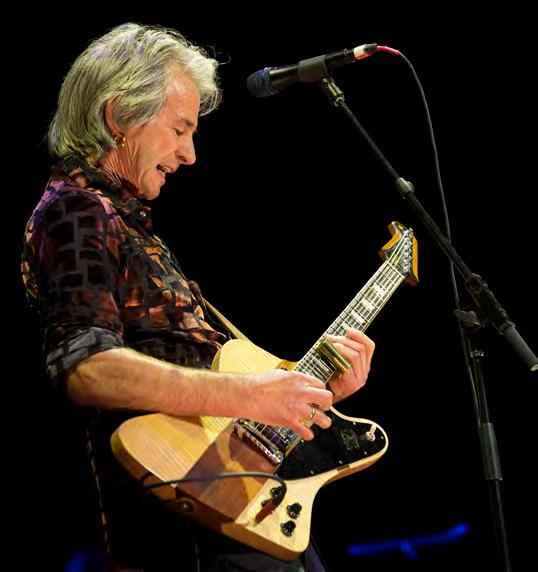

Borich became great mates with Walsh when he came to Australia in 1984 to play with The Party Boys. After the first rehearsal, Borich received a phone call. “Hey man, you got a couch?”
Walsh stayed on Borich’s couch until they went on the road (a tour that led to the live album You Need Professional Help). “I guess a hotel wasn’t as interesting as meeting some of the locals,” Borich reflects. Walsh – Ringo Starr’s brother-in-law – is one of rock’s greatest characters, famous for packing a chainsaw in his travel bag, which, not surprisingly, unnerved many hotel managers.
Was Walsh as crazy as the press led us to believe? “Nah, he was just doing what we were all doing back in those days,” Borich laughs. When the Eagles last toured Australia, Borich caught up with Walsh who finished their chat by saying, “If you ever want me to play on anything, man, just give me a call.”
Borich did just that.
Call a friend. And when you’re as talented as Kevin Borich – and such a good bloke – they always call you back.
DUETS
79
MELODY MOKO SUBURBAN DREAM Independent
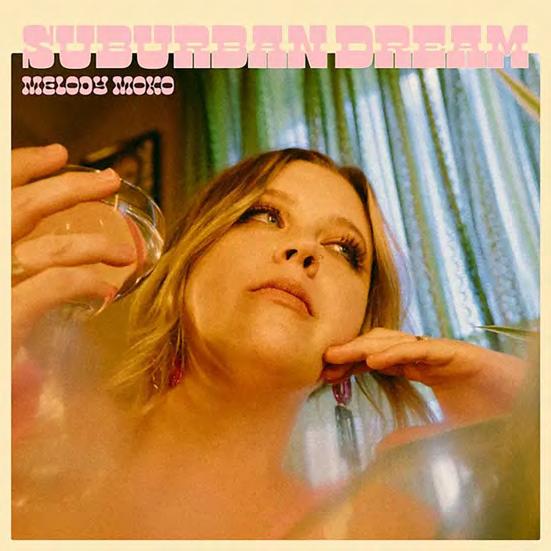 By Michael Smith
By Michael Smith
One of the great advantages of being an artist, whether as a writer, painter, musician or whatever, is that you have the opportunity to work through whatever you might be experiencing in your life, the highs and the lows, and, if you’re lucky – and talented – transform it into some sort of art. Without that, you could find yourself so overwhelmed by those more negative experiences that you find yourself falling into depression and worse. For singer-songwriter Melody Moko, her working through the experience of post-natal depression has resulted in an extraordinary, and perhaps surprisingly positive musical document that is rare in popular music, an insight into life as a suburban housewife and mother, as Michael George Smith discovered.
“It was an important album for a number of reasons,” Melody admits of her third album, Suburban Dream. “First of all, being the follow-up album to Two Kids and A Radio, which achieved a lot for me and got me on the road with some incredible people and won a Golden Guitar and QMA Award and was nominated for the AMP (Australian Music Prize), all of these things are really daunting when you then have to exceed that with your next body of work. So, it was important for that reason and also important because it was cathartic. It was a record that I really needed to write to get through some pretty difficult times. I’d never really ever approached an album in that way. Making an album had always been more of a creative project for me. This album was more an act of healing I guess and something that I then moulded into a creative project.
“The songs were all written in a bit of a frenzy. I started writing one and then all of this music just poured out me, and I hadn’t written in a really long time. It was Great Australian Dream that triggered it. I had been suffering with post-natal depression pretty intensely; it was period of my life that was quite dark and not something I’d ever experienced to that extent before. I’ve dealt with mental health problems my entire life but never to the extent of that episode. I really couldn’t get out of bed, I wasn’t able to look after my kids, I was really suffering, and this song came out of me in a moment of I guess frustration. I’d shut myself in my room, I guess on the brink of a panic attack but instead I picked up a pen and a notebook and I started writing.”
The “companion” song to the coruscating social observations on the life suburban housewives are assumed to happily live in ‘Great Australian Dream’ is ‘Suburban Dream’, which talks to feelings of invisibility within and outside the home. “We’d been living in the inner-city and we had our third baby,” Melody explains, “and we’d just moved into the deep suburbs of Brisbane, a place I’d never pictured myself in before. It wasn’t a life I could relate to, so it was a real adjustment period for me, and I guess a bit of a rude awakening. The reality is that as two musicians (her musician husband Michael is her songwriting collaborator and producer) with three kids, we can’t afford to live this ‘glamorous’ inner-city life and so we need to embrace what our reality is. So, I guess ‘Suburban Dreams’ was me trying to embrace that reality.
“I can only write what I know, and the most important thing in my life is my family and being a mum, and although there’s obviously been a lot of struggle that has come with motherhood and music, I wanna reach my peers with my music. I think there’s not enough music out there that really relates to the struggles of being a mum today, the struggles and the joys. ‘Sweet Magnolias’ is about celebrating that little human that my child is becoming. I really wanted to have that ‘light’ side to the album too.”
So, for all the obvious anger, frustration and darkness that undeniably underpins much of Suburban Dream as an album, there’s also a lot of love – for the kids, of course, and more importantly musically, for her husband, most obviously in their duet on ‘Till The Day I Die’ – there’s also plenty of self-deprecating humour, particularly in ‘Ain’t What You Used To Be’, replete with Shania Twain references.
Suburban Dream sees the Mokos working once more with Nashville coproducer Neilson Hubbard, who had also worked on Melody’s previous album, Two Kids and A Radio. “Before that last record I’d written a list of ten ‘dream’ co-producers, and I say co-producers because I think we’d got to a point where two people who are married and making music together can get quite insular so we felt something external might help create a new place. So, we sent off ten emails and Neilson immediately wanted to see if we’d connect as people, so we jumped on Skype at eleven o’clock over here and we ending up talking till two in the morning, we just found so much common ground.”
Their trust paid off, a friendship as well as a productive creative relationship ensued, and the result has been two albums recorded at Nashville’s Skinny Elephant Studio. Melody even got to do a showcase gig at the American Festival after they’d finished recording Suburban Dream. And it was in Nashville that Melody realised that, despite her writing from such a deep personal and Australian place, Suburban Dreams is so much more. “I remember a moment in the studio with ‘Great Australian Dream’ where the engineer said to me, ‘I thought people only felt like this in the States. It’s surprising to me that you also feel all these things in Australia, that it’s a similar cultural thing.’ So, I feel that there is a connection there. In my eyes I leant into what I thought was an Australian cultural perspective with this record, more than I’d ever had before, but I suppose it does feel universal.”
80
By Brian Wise
Joni Mitchell surprised almost everyone except those in the know with her appearance at last year’s Newport Folk Festival. It was the singer-songwriter’s first time there in 53 years and her first time performing on stage anywhere for years. After an aneurysm in 2015 and prior to that other health problems many feared that she would never perform again. In fact, there was a lot to risk for the revered 78-year old singer; for one thing, a considerable reputation. But the fact this concert was such a triumph and led to an even more spectacular show just a few months ago in Washington is a tribute to Mitchell’s talent and the esteem in which she has held. The Newport appearance was so important that it was featured on many of the international news services with at least one network crossing live to the festival. The reporter talked about an audience in tears of joy when Mitchell sang. I am sure there were plenty of tears from the TV audience too. For my generation at least, this was a monumental event.
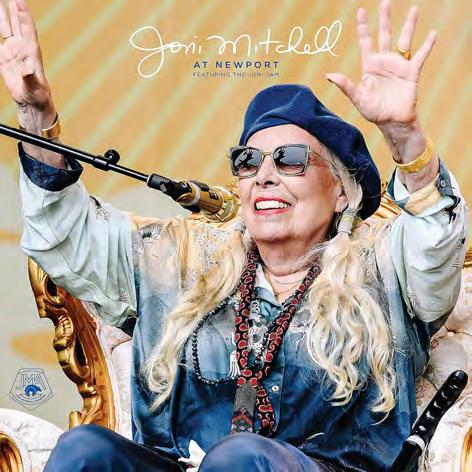
After years of Bob Dylan taking the publicity spotlight how refreshing to see someone who might claim to be his equal getting her rightful attention. Dig into Mitchell’s catalogue and you will find an astonishing array of magnificent songs, most often backed by an equally magnificent array of musicians. Musically, Dylan doesn’t even come close. Vocally there’s no contest either. Lyrically, Mitchell also gives him a run for his money. But such comparisons are unfair. We revere them both for different reasons.
The person we have to thank for Mitchell’s Newport appearance is Brandi Carlile, a singer with such a generous, knowing and sensitive character that you cannot help but love her. We saw Carlile at a Q&A during the Americana Conference a few years ago and even then it was obvious that she was destined to be an important voice in the music industry. Here she not only gets to sing with Mitchell but to also ask her about some of the songs. It is a surprisingly intimate show in front of a crowd of tens of thousands.
The fact that she was able to establish enough trust with Mitchell to convince her to take to the stage says everything you need to know about Carlile, who introduces this concert with all the excitement of a fan. Carlile says that the audience is going to experience the re-creation of ‘Joni Jam, informal jam session that Mitchell regularly holds in her Laurel Canyon house. You can just imagine the jams in the 70s with Crosby, Stills and Nash under her spell. These days there is a whole new group of young musicians to influence and many of them appear here.
Of course, finding a great backing band was not going to be a problem but trying to restrict the guests on stage might have become a nightmare. How many hundreds of musicians would want to be part of this? In the end it is a surprisingly manageable group which serves Mitchell and her songs rather than distracting the spotlight. Carlile plays a major role and she is assisted at times by Marcus Mumford, Taylor Goldsmith, fabulous vocal duo Lucius, guitarist Blake Mills and Allison Russell (also on clarinet), plus others. Wynonna Judd is amongst the backing chorus and in the film of the show looks as if she is going to collapse with disbelief at her good luck in being there.
Regardless of how many guests were onstage the undoubted star of the show and, I gather, the whole weekend, was Joni Mitchell and here is where the second surprise occurs. It is not just great that Mitchell is there, but she actually sounds really good, considering she hadn’t been on stage for years. Carlie and others do a lot of the heavy lifting with some of the vocals, but Mitchell’s voice has aged beautifully, unlike Dylan’s which is almost totally shot. I am sure we could have listened to more of Mitchell here but there is enough to get very excited about and wish for a full Joni Mitchell concert some day without the guests.
Highlights are many. Mitchell tells a great story about how the 1976 Hejira album was written while driving across America on a road trip without a driving licence. Then she offers a stunning version of ‘Amelia’ that is so good that it will prompt you to go back and rediscover the entire album. (Magnificent, by the way). Mitchell also fluently plays the electric guitar introduction to ‘Just Like This Train’ from her brilliant album Court & Spark, duets on ‘A Case of You’ with Carlile and grows more confident as the show progresses. Taylor Goldsmith makes a fine foil for Mitchell and Carlile on ‘Come In From The Cold’, as what sounds like a choir joins in. The distant past is mined in ‘Big Yellow Taxi’, ‘Both Sides Now’, ‘Carey’ and ‘The Circle Game’. There is a stunning reading of ‘A Case Of You’ with Carlile and Mumford assuming the lead before Mitchell arrives with her gravitas sounding like the lioness she has become.
Live At Newport is a stunning reminder of one of the great songwriters and singers of all time. I know devoted fans fly all over the world for Dylan and Springsteen but this might just persuade you, as it has me, that if Joni Mitchell announces any more shows anywhere that we’ll be there!
81
A brilliant return to performing by Joni Mitchell was one of the music highlights of 2022.
JONI MITCHELL AT NEWPORT WMA
ALBUMS: General
THE PLEASURES
THE BEGINNING OF THE END
Beverley Hillbilly Records via MGM
MOLLY TUTTLE & GOLDEN HIGHWAY CITY OF GOLD Nonesuch Records
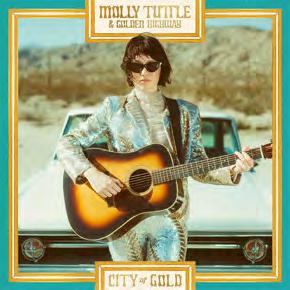
CHRIS CARRAPETTA NOTHING LEFT TO LOSE Independent/Bandcamp
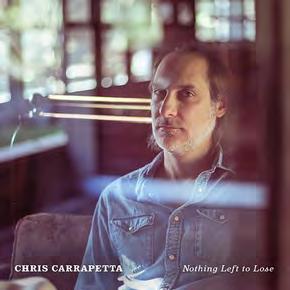
The Beginning of the End is the debut album for The Pleasures, a new band fronted by successful Australian country music performer Catherine Britt and Melbourne based alt-country troubadour Lachlan Bryan. The record is something of a musical hybrid with some very country moments coupled with a few enjoyable stylistic departures. The swampy opening title track sets the tone for the more experimental side perfectly, with Britt introducing a bit of gravel into her seasoned country croon and the pair embracing a dirty blues vibe they haven’t presented in their music previously. The two singers harmonize beautifully, particularly on the nasty ‘Homewreckers’. While ‘Paranoid’ is a highlight with unexpected surf-guitar and rhythms.
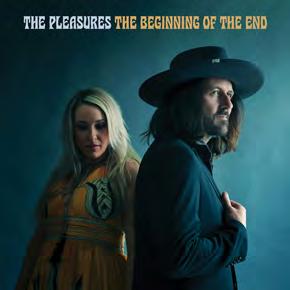
Jack White is cited as an influence alongside George Jones – which makes sense as The Pleasures are a country band at heart. ‘Sad Song’, ‘Mutual Friends’ and ‘You Made Another Woman (Out of Me)’ sound closer to the more mainstream sound that has won Britt four Golden Guitar awards including Female Artist of the Year. I’m a sucker for a good country duet so ‘Every Story Has Two Sides’ driven by a strong blues rhythm, and the mid-tempo ‘Three Star Hotel’ both sound great.
Catherine Britt and Lachlan Bryan are clearly extremely talented performers, and The Beginning of The End is a quality production. It’s when they branch out stylistically that the band seems to be having the most fun and makes for more interesting listening.
NICK CORR
Singer, songwriter and musician Molly Tuttle and her band Golden Highway return with their fourth studio album City of Gold which follows their acclaimed 2022 record Crooked Tree winner of Best Bluegrass Album at the 65th Annual GRAMMY Awards. City of Gold is a showcase for Tuttle’s earthyyet-angelic vocals and highly regarded guitar picking. Not surprisingly given it was her most successful record to date, it is also very much a continuation of Crooked Tree with the majority of the songs once again co-written with Ketch Secor from Old Crow Medicine Show and again co-produced by Tuttle and Jerry Douglas who also adds some sparkling dobro.
Opener ‘El Dorado’ is a re-telling of California’s first gold strike which lends the album its title. The up-beat ‘Down Home Dispensary‘ is a call for marijuana legalisation in Tennessee. As the name suggests ‘Alice in Bluegrass’ is a retelling of Alice in Wonderland, something of a bluegrass equivalent of Jefferson Airplane’s ‘White Rabbit’
The most sombre moment on the record is ‘Goodbye Mary’ a down-beat tale of unwanted pregnancy which provides a strong contrast to the contemporary US political movement of rolling back abortion rights. Stand-out is ‘Yosemite’ a surprisingly upbeat break-up song with Dave Matthews guesting with Tuttle as “two broken hearts that need setting free”. Immediately followed by ‘New Rodeo’ the album sequencing suggests Tuttle has moved on fairly quickly with “a cowboy just like you, waiting at the end of every road”.
NICK CORR

The publicity shots of Carrapetta show him wearing a cowboy hat, but it would be imprudent to judge the book by its cover. This is no big-hat country album, instead it finds the Marrickville based singer-songwriter firmly planting his feet in the alt-country Americana terrain of Jason Isbell, Wilco and the Jayhawks to superb effect. Thematically, the song cycle maps out Carrapetta’s journey from heartbreak to self-discovery and optimism, “it’s about feeling comfortable in who you are in your own skin and feeling less that you have to try hard to fit in or be someone you are not” opines Carrapetta. Highlights are many, and it’s hard to go past the languid beauty of ‘Golden Light’, a gorgeous pedal steel complementing Neil Young Harvest-era harmonica. ‘Hard Times’ is an acoustic heartbreaker full of strumming six-strings, plangent piano fills, and even a name check for Wilco; it’s delightful. Whilst there are several fine up-tempo numbers such as the jangling ‘Caught Out In The Rain’ and the propulsive riffing on ‘I Hope It’s Not Too Late,’ but Carrapetta’s mournful tenor shines brightest on the ballads. The dozen songs are all finely crafted, richly melodic and imbued with a rootsy swagger. From the Blue Mountains to Marrickville, Chris Carrapetta has a story to tell; it deserves your utmost attention.
TREVOR J.LEEDEN
DAVID GARNHAM & THE REASONS TO LIVE THE STUART HIGHWAY PART 1 INDEPENDENT
The Stuart Highway runs from Darwin, in the Northern Territory, via Tennant Creek and Alice Springs, to Port Augusta in South Australia and its northern starting point is the home of songwriter David Garnham, who has penned this concept album of sorts. The songs take in the geography, lifestyle and characters that populate and travel the NT section of the highway.
82
Calling on a number of guest singers, Garnham and band have created a kind of sonic documentary of the region, with tales of coffee days and red wine nights, truck stops, servos, pubs and on ‘Ilbilgini Agiyabarda (When the Water Goes Down)’ (feat. Stuart Joel Nuggett) the critical matter of fracking in the Beetaloo Basin.
‘If I Never’, co-written with the mayor of Tennant Creek is a brilliant, dark and moody swamp rock tale, ‘TFC’ is sweet and swaying country rock, ‘Blue Sky Blues’ equates the highway to escaping failed love, and a full choir (The Choir of Men) is utilised to great effect on the rousing sing-along ‘Beer and Nicotine’.
This is the country music of red dirt and melting bitumen, parched tongues and hardy souls. Garnham and band bring to life a part of Australia that many know little about and they do it with an alt-country palette that serves the varied songs perfectly. This isn’t a travel show, this is real life in all its poetic glory.
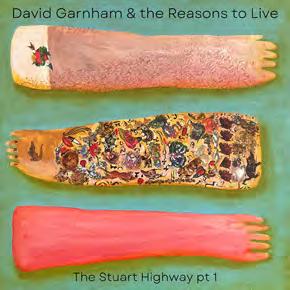
CHRIS FAMILTON
CATHERINE TRAICOS
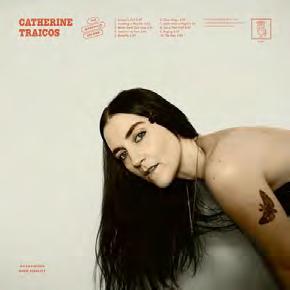
THE NASHVILLE RECORD Independent
singer-songwriter Catherine Traicos moves away from her trademark alt-folk meets alt-country foundations into a more expansive dream-pop soundscape, in the same way artists like Neko Case and Laura Veirs over time expanded their sonic horizons. The project stemmed from a chance online meeting between Traicos and US producer Nick Bullock, and whilst their plans to record together at Nashville’s The Doghouse Studios with a crack session band was scuppered by COVID lockdowns, the recording itself still went ahead - albeit at a distance, conducted virtually online - with Traicos finally able to get over to the country music Mecca to at least record her vocals Stateside. Single ‘Anyone’s Girl’ opens proceedings on a restrained, refined note, leading into the gently uplifting ‘Anything Is Possible’ before things get positively orchestral on ‘Better Send Your Love’. Elsewhere the gorgeous ‘Butterfly’ sounds like some lost ‘50s classic, ’Sand On My Feet’ floats on a gorgeous melody, subtle strings and sparse backing vocals bring a sultry vibe to ‘Slow Magic’, fascinating percussive rhythms underpin the noir-ish narrative of ‘Some Kind Of Night’ and the ultra-personal ‘Sorry That I Fell’ rides atop a sophisticated pop arrangement to great effect. The breezy ‘Raging’ carries none of the animosity its title suggests and closing track ‘The Rain’ starts beautifully with just piano and voice before strings are gradually introduced and Traicos unveils her quietly emotional confessional, closing the album with a perfect flourish of sophistication (softly whispering “you don’t owe me anything more” as the final notes fade away). Even though the album uses a session band that the singer-songwriter had never met there’s genuine heart and soul evident in their instrumentation, and if this team could conjure this much beauty at a remove amongst the maelstrom of the pandemic one can only ponder the possibilities if they had an unobstructed run at things. A mature but welcome recalibration.
STEVE BELL
JEREMY EDWARDS GHOSTS Independent

and uncertainty which prevailed at the time of its inception.
When an established artist drops an album titled The Nashville Record it’s fair for listeners to assume that the contents are going to feature an element of country embellishment and added twang, but if anything the new ninth collection by Perth
There’s a genuine sense of community permeating through Ghosts, the fourth solo album by Thirroul singer-songwriter Jeremy Edwards. Taking full advantage of the downtime offered by the recent pandemic, Edwards pulled together a circle of talented friends to help him complete the project, and the results are an accomplished album with a confident aura transcending the confusion
For the last five or so years Edwards has been a proud member of Kevin Bennett’s backing band The Flood, and on Ghosts the beloved Indigenous singer-songwriter co-wrote three tracks with his bandmate: the poignant ‘Gomeroi’ (a moving tale of a relationship crossing the racial divide with added atmosphere provided by spectral percussion and deft finger-picking), the moving ’18’ (examining approaching adulthood from a parent’s perspective) and the stripped-back, melodic ‘Nothin’ But The Blues’ (which further features The Waifs’ bassist Josh Cunningham). Edwards is also a member of Queensland country artist Jen Mize’s excellent new backing outfit The Rough N’ Tumble, and here Mize adds great panache to the goodtime vibes of ‘Edge Of The World’ as well as contributing cello to the closing track ‘Maybe It’s People’ (a touching paean to Edward’s father). Oz country legend Shane Nicholson makes an appearance on the title track - the beautifully-rendered tale of strength amidst adversity - while fellow luminary Felicity Urquhart adds striking vocals and backing harmonies to ‘Clear, Like A Bell’, which opens as a slow-paced ballad before flourishing into a communal band experience. There’s a pleasing diversity of tones and styles throughout - opener ‘Boys’ brings an almost Go-Betweens vibe with its breezy melody and sparse percussion, the wistful ‘Long Gone Brother’ slips into a lazy groove while upbeat stomper ‘Hope Highway’ is a good old-fashioned outback road song, slide guitar lending a blues-y vibe to the distinctly Aussie narrative - but Edwards and producer Josh Schuberth manage to make it al sound cohesive, the latter capturing great clarity and separation in the recording. Despite the array of accomplished guests it’s still undeniably Edwards album - his strong, confident vocals delivering the songs with great convictionmaking Ghosts a well-deserved step into the spotlight.
STEVE BELL
83
THE SOUL MOVERS DUMB LUCK
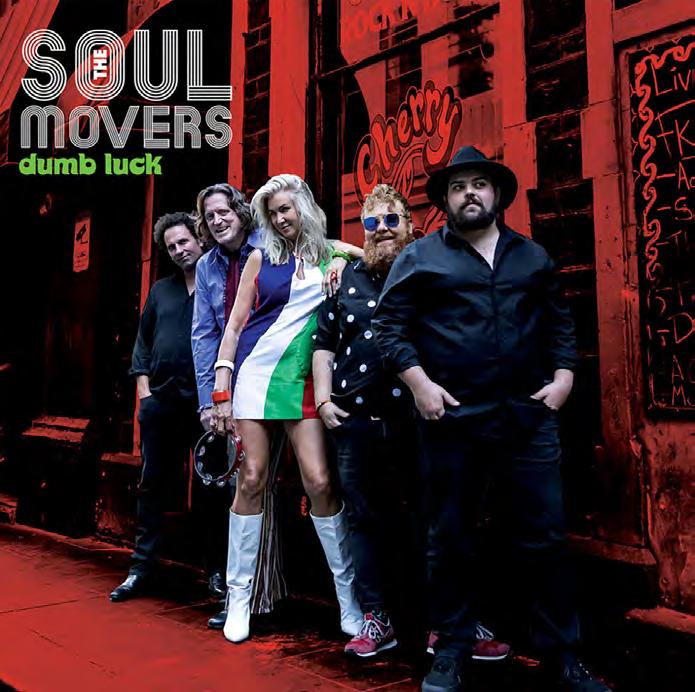 By Steve Bell
By Steve Bell
The fourth album from defiantly retro Melbourne rock-soul five-piece The Soul Movers found them not only recording at a number of studios up and down the Australian east coast but once again courting the classic sounds of the Deep South. For this they utilised session musicians and sensibilities from Tennesseean studios in Memphis and Nashville - as well as one in Florence, Alabama - a no doubt logistically challenging exercise but one that has paid off ihandsomely throughout the assured Dumb Luck
On the opening piano-led title track the commanding vocals of the charismatic and vivacious Lizzie Mack jump to the fore from the getgo, the frontwoman possessing one of those voices that drags you into its orbit via her unabashed assuredness and intriguing enunciations, before the ‘Trucks’ brings a stripped-back B-52s vibe with its surfeit of hooks and catchy vocal counterpoints. The sultry ‘Back To You’ pulls things back and adds a healthy dose of the feels, with guitarist Murray Cook - best known as the founding red Wiggle - contributing some well-honed guitar action, while ‘Price Tag’ channels the great Detroit Cobras as it introduces the incredibly authentic backing vocals of The Shoal Sisters from Alabama (who appear on a handful of tracks scattered throughout Dumb Luck, as do an equally excellent vocal troupe from Nashville).
The irreverent ‘Monkey’ has more of a Southern Culture On The Skids vibe, while Mack’s vocals veer into Lucinda Williams territory on ‘Broken’ - which also introduces nifty slide guitar courtesy Spencer Cullum Jr - and reflective ballad ‘Smoke & Mirrors’ effectively skewers
the many trials and travails facing the average artist in the music industry (“the music biz is a real sick biz/And it’s always been that way”). ‘The Truth’ ushers an authentic Aretha Franklin aura into proceedings, ‘Stand (In Your Own Power)’ is a slow and sexy ode to individual empowerment and ‘All Over You’ adds the indubitable keyboard skills of Rev Charles Hodge to the mix, the veteran playing the same Hammond B3 organ he used to colour decades worth of Al Green classics.
Towards the back-end of the album the refined restraint of ‘If Only (You)’ carries great gravitas, while ‘Real World’ finds Mack channelling Shania Twain with her seductive phrasing atop bursts of indelibly authentic Nashville soul horns and closer ‘Rockin’ The The Promised Land’ lives up to its titular commitment by bringing things home in a flurry of Jerry Lee Lewis-esque piano, sizzling guitar and good-time camaraderie - each member given an equal chance to shine in the spotlight - the perfect fun note to finish on, continuing the tinge of sassy humour that permeates the album and makes it such a fun and enveloping listen from go to woah.
Dumb Luck contains 11 tracks on the vinyl version which is padded out to 15 on the CD and digital tracklists - the extra songs all of comparable quality - but regardless which version you check out you’ll find The Soul Movers making an excellent fist of capturing the timeless ‘60s and ‘70s soul appeal that they’re so clearly aiming for, an enjoyable and altruistic quest indeed.
84
Cheersquad Records & Tapes

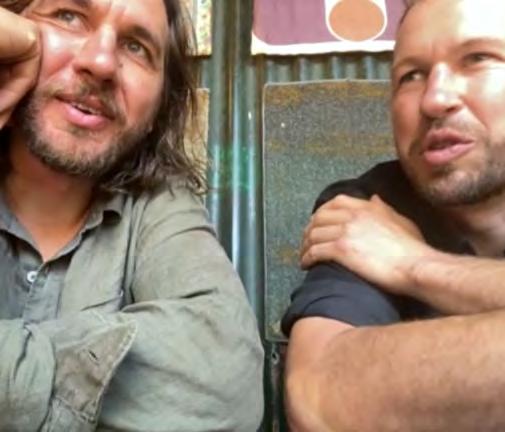
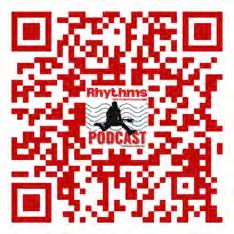
85 Go to: rhythmsmagazine.podbean.com or Apple Podcasts, Amazon Music, Spotify LISTEN TO THE MUSICIANS YOU ARE READING ABOUT!
AT NEWPORT
FEATURING THE JONI JAM
Joni Mitchell stunned the Newport Folk Festival audience last summer when she gave a surprise performance – her first in 20 years – delivering a heartfelt set filled with some of her greatest songs.

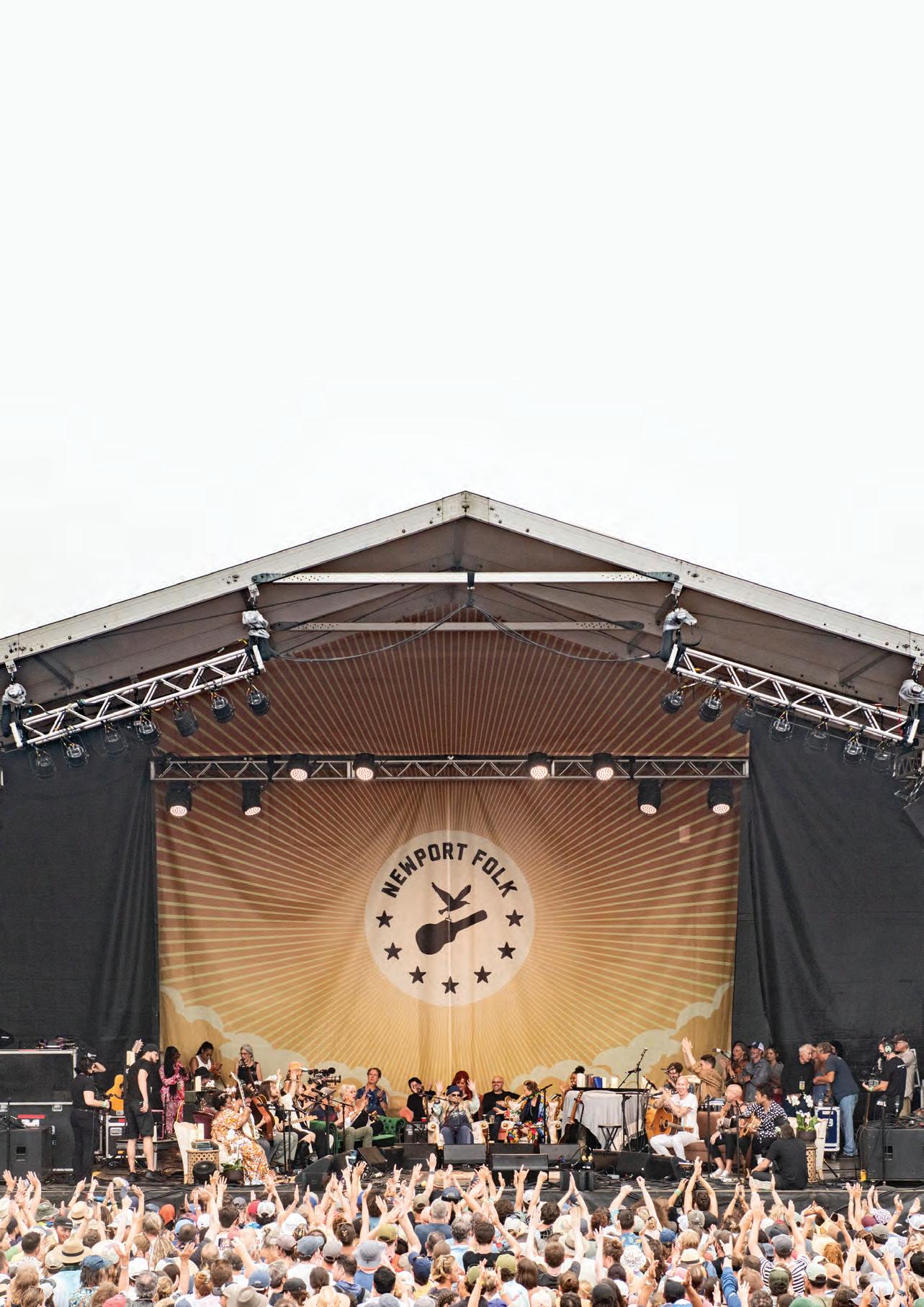
FEATURING:
“Mitchell emerged from the side of the stage, swaying smoothly, in fine summer-style with beret and sunglasses. Her good-natured mood instantly set the tone. This performance would be an intimate gathering of friends, not unlike the Joni Jams she’d been hosting in her own living room over the last few years of recovery. Smiling broadly, Mitchell made her surprise appearance, taking her on-stage seat alongside Carlile. Within minutes, the news had rocketed around the globe. Mitchell was back, sparkling with enthusiasm, delivering a tender and passionate set of 13 songs, ending with a joyful sing-along of ‘The Circle Game.’”
- CAMERON CROWE
AVAILABLE NOW ON CD AND VINYL FROM: STORE.WARNERMUSIC.COM.AU
OR USE THE QR CODE BELOW:
 BIG YELLOW TAXI A CASE OF YOU AMELIA BOTH SIDES NOW JUST LIKE THIS TRAIN SUMMERTIME CAREY HELP ME - CELISSE COME IN FROM THE COLD SHINE THE CIRCLE GAME
BIG YELLOW TAXI A CASE OF YOU AMELIA BOTH SIDES NOW JUST LIKE THIS TRAIN SUMMERTIME CAREY HELP ME - CELISSE COME IN FROM THE COLD SHINE THE CIRCLE GAME
ALBUMS: Blues
 BY AL HENSLEY
BY AL HENSLEY
D.K. HARRELL THE RIGHT MAN Little Village
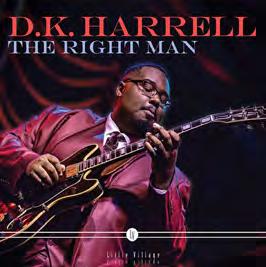

FRANCK L. GOLDWASSER WHO NEEDS THIS MESS Crosscut Records
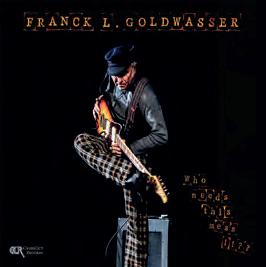
JON CLEARY SO SWELL Newvelle Records

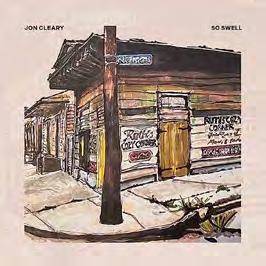
THE NICK MOSS BAND (Featuring Dennis Gruenling) GET YOUR BACK INTO IT Alligator/Only Blues Music
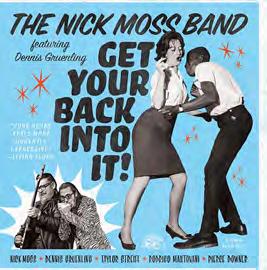
Once in a while a new blues talent comes along who immediately impresses as one who is destined for great heights. Such is the case with Ruston, Louisiana native D.K. Harrell, a 25-year-old guitarist/singer-songwriter who makes his recording debut on this release. Run by prominent keyboardist Jim Pugh, Little Village Foundation is a label renowned for promoting new unsigned talented blues/R&B artists like Harrell and recording them at noted guitarist Kid Andersen’s Greaseland Studios in San Jose, California. Both Pugh and Andersen play on the recordings as they do here alongside former B.B. King sidemen bassist Jerry Jemmott and drummer Tony Coleman, a horn section and back-up vocal chorus. Although his career has thus far been brief Harrell has the hallmarks of a fully-fledged blues artist of big-league proportions. Bedded in unrelenting grooves each of Harrell’s 14 songs tells a story, his rich voice recalling Sam Cooke with a swagger beyond his years. Harrell’s B.B. King-inspired guitar playing is crisp and melodic, commanding attention with flourishes at every turn. From righteous shuffles to minorkey soul blues and greasy funk Harrell demonstrates he is the right man to inspire the music’s next generation.
Formerly known in blues circles as ‘Paris Slim’, guitarist/singersongwriter Franck L. Goldwasser was born in Paris, France in 1960 and honed his skills backing a host of touring American blues greats from Luther Allison to Phillip Walker before relocating to Oakland, California in 1983. There he immersed himself in the vibrant East Bay blues scene working alongside such West Coast blues titans as Jimmy McCracklin, Percy Mayfield and Lowell Fulson as well as leading his own band. Goldwasser in 2007 eventually released Bluju his first CD under his given name. While releases since then have been infrequent, Goldwasser has been actively performing with a wide range of top tier blues artists playing festivals Stateside and internationally. Most of the material here was recorded between 2019 and 2021 in Southern California, three sides coming from a 2000 session. All 15 tracks are Goldwasser originals, his raspy vocals and gritty guitar backed by a stripped back rhythm section, guitarist Kirk Fletcher, singer Sugaray Rayford and harmonica ace Charlie Musselwhite making cameo appearances. A standout slow blues ‘Bleedin’ Heart’, recorded live in 2014, emphasises the Bay Area blues guitar style so deeply ingrained in Goldwasser’s delivery.
Originally part of a four LP box set release in 2020 by French label Newvelle Records celebrating established artists from each of the jazz, blues, R&B and soul music genres of New Orleans, this album by the city’s ex-pat Brit piano virtuoso is now out on CD. A student of the James Booker school of Crescent City piano, Jon Cleary is backed by Booker’s former rhythm section, bassist James Singleton and drummer Johnny Vidacovich, with guest James Rivers on saxophone as he pays homage to the musical heritage of his adopted home of 40 years. Cleary invokes the spirit of his early influences in songs by Booker, Lloyd Price, Chuck Carbo, Lee Dorsey and Huey ‘Piano’ Smith. The opening piano instrumental ‘Swanee River Boogie’, based on Stephen Foster’s evergreen song, is a real party starter followed by the blues shuffle ‘Two Wrongs’, Cleary’s only original here. He masterfully assimilates into the funky New Orleans R&B piano/ vocal tradition Stevie Wonder’s ‘I Call It Pretty Music’, Big Bill Broonzy’s ‘I Get The Blues When It Rains’, Dickey Betts’ ‘Pony Boy’, The Skyliners’ 1958 doo-wop hit ‘Since I Don’t Have You’, and Johnny ‘Guitar’ Watson’s ‘We’re No Exception’.
What sets The Nick Moss Band apart from many other Chicago blues exponents is an ability to keep creating new original material that stays true to its roots without sounding repetitive. Like their label-mates The Cash Box Kings they have that Willie Dixon-inspired knack for keeping real-deal post-war traditional electric blues fresh and innovative. While bandleader Nick Moss’ recording career spans decades, this album is his third for Alligator Records since 2018. Mentored on guitar by the great Jimmy Rogers, Moss’ consummate fretwork, soulcharged vocals and well-crafted songs place him firmly in a league of his own. His long-time friend harmonica dynamo Dennis Gruenling is a New Jersey native who has played with a host of blues icons. Brazilian-born bass player Rodrigo Mantovani also has an impressive CV as does pianist Taylor Sreiff and drummer Pierce Downer. The album’s 14 cuts stay on the boil from shuffles and stomps to blues rumbas, boogaloos, boogies and the slow-burning ‘Living In Heartache’. The swinging instrumental ‘Out Of The Woods’ evokes the 1940s style jump blues with organist Brother John Kattke and saxophonist ‘Sax’ Gordon Beadle sitting in.
87
(5.36)
guitars / Sean Albers - drums, /Chris Wilson - harp / Shane percussion / Grant Cummerford


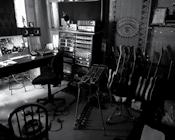

Girls
Dan Lethbridge (6.07)
acoustic guitar / Shane O’Mara backing vocals / Ash Daviesb.v.’s.


Celebrating the music of the Rolling
Banquet
Barker (4.38)
Rolling Stones

Garner - guitar, backing vocals/ Wilson - harp / Bruce Haymes bass /Ash Davies - drums.
Soup
(W. Dixon) - Loretta Miller (4.03)



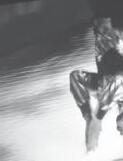









Shane O’Mara – guitars / Rick PlantDarcy McNulty - baritone sax.
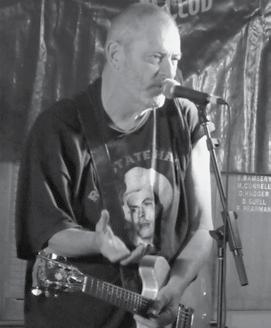


Stones Now!
Garner (4.17)
Nick Barker - backing vocals / backing vocals / Grant Cummerford -

















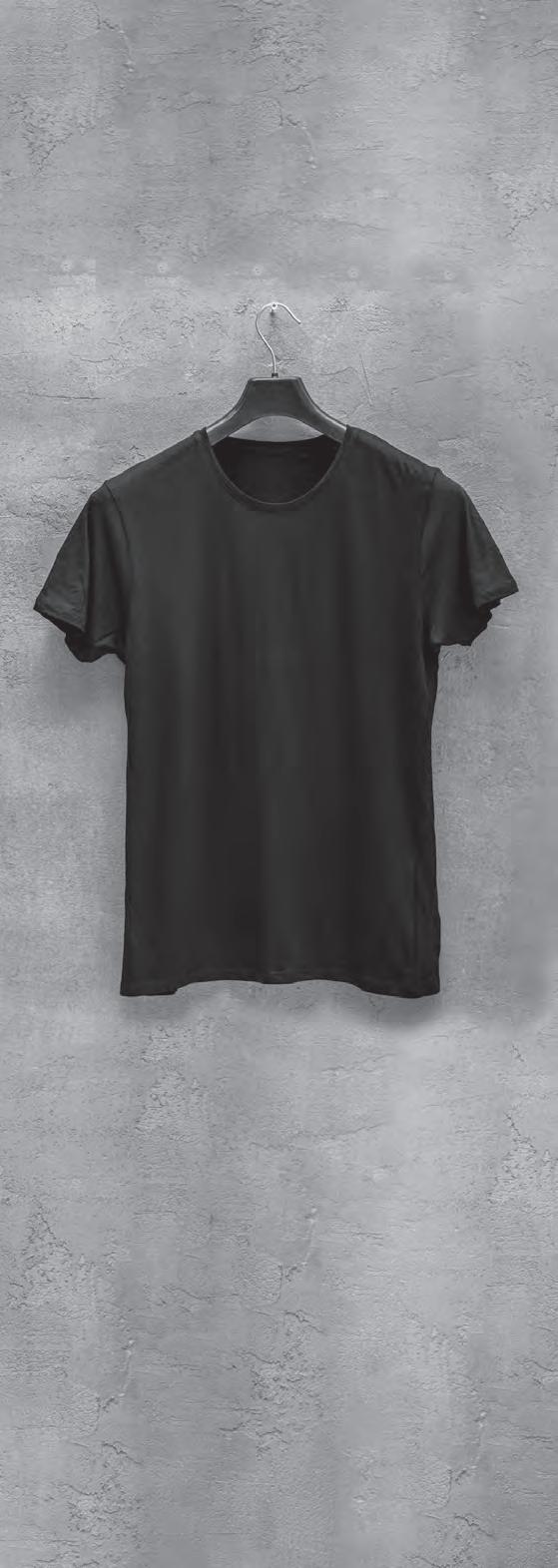
Soup
(LIVE) - Nick Barker & The
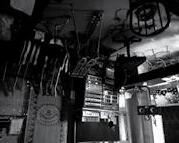


Garner - guitar / Shane O’MaraCummerford - bass / Ash Davies - drums / Music Club, Originally on Let It Bleed



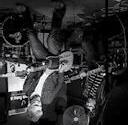


thank Shane O’Mara, all the album, Mick, Keith, Brian, Ronnie, Chuck, Bobby, Bernard,
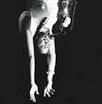
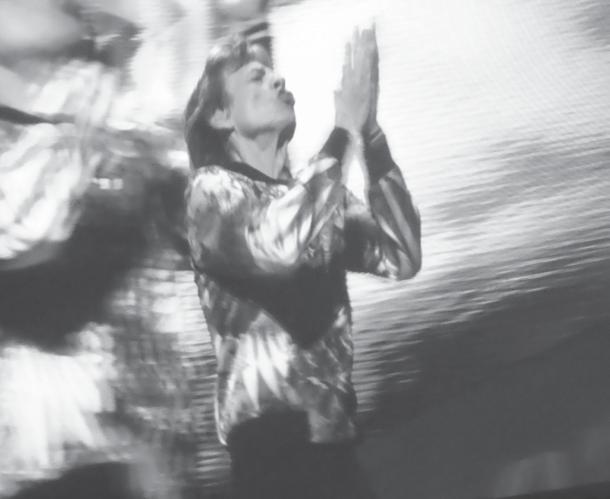



Sally
unique interpretations of Stones classics by some of Melbourne’s greatest musicians.

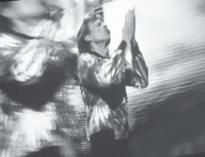
Miss You - Simon Bailey, Salt Of The Earth - Dan Lethbridge, Silver Train - Nick Barker, Little Red RoosterLoretta Miller, Star Star - Justin

Under My Thumb - Tracy McNeil, Hip Shake - Chris Wilson, Hide Your LoveNick Barker, Gimme Shelter - Lisa Miller, You Got The Silver - Raised By Eagles, I Got The Blues - Linda Bull, Factory Girl - Sal Kimber, Miss You - Simon Bailey, Salt Of The Earth - Dan Lethbridge, Silver Train - Nick Barker, Little Red RoosterLoretta
Midnight Rambler by Nick Barker, recorded
by Nick Barker, recorded
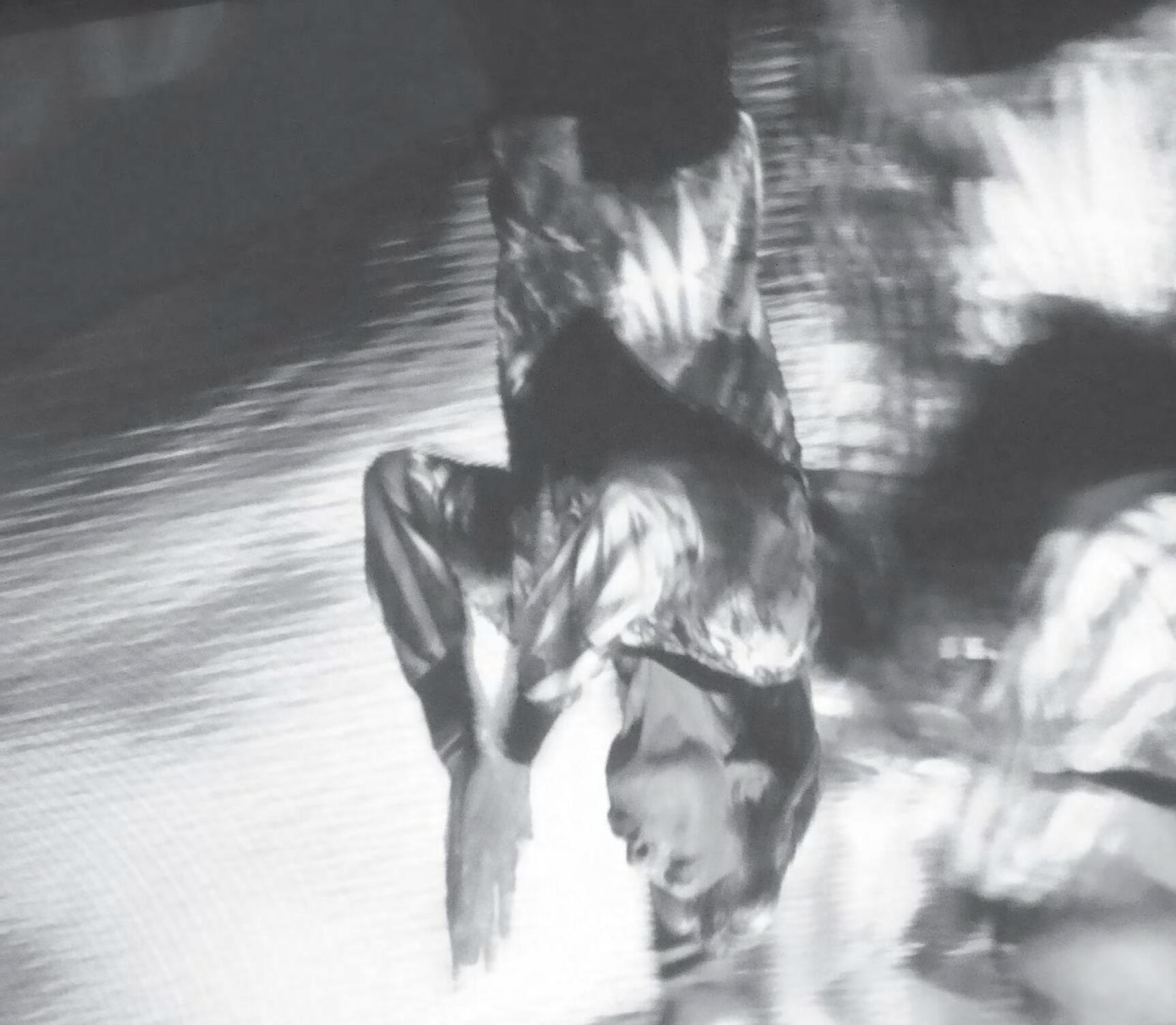

THE NEW RHYTHMS The brand new limited edition Rhythms Americana style t-shirt is available now for a special price of $30 Simply go to: bandtshirts.com.au/shop/rhythms-magazine Rolling Stones Sean Albers - drums, /Chris Wilson - harp / Shane percussion / Grant Cummerford Lethbridge (6.07) acoustic guitar / Shane O’Mara backing vocals / Ash DaviesBanquet Barker (4.38) Garner - guitar, backing vocals/ Wilson - harp / Bruce Haymes bass /Ash Davies - drums. Soup Dixon) - Loretta Miller (4.03) O’Mara – guitars / Rick PlantDarcy McNulty - baritone sax. Stones Now! Garner Nick Barker - backing vocals / vocals / Grant CummerfordSoup (LIVE) - Nick Barker & The Garner - guitar / Shane O’Marabass / Ash Davies - drums / Music Club, on Let It Bleed Shane O’Mara, all the album, Mick, Keith, Brian, Chuck, Bobby, Bernard, Produced by Shane O’Mara and recorded at Yikesville. Featuring unique interpretations of Stones classics by some of Melbourne’s greatest musicians. Under My Thumb - Tracy McNeil, Hip Shake - Chris Wilson, Hide Your LoveNick Barker, Gimme Shelter - Lisa Miller, You Got The Silver - Raised By Eagles, I Got The Blues - Linda Bull, Factory Girl - Sal Kimber,
Bonus Track:
live at the Caravan Music Club. STONEDCelebrating the music of the Rolling Stones Celebrating the music of the Rolling Stones Recorded & mixed at Yikesville by Shane O’Mara Produced by Shane O’Mara with a nod & a wink from all protagonists. Shane would like to sincerely thank Brian Wise. All songs by Mick Jagger & Keith Richards 1. UNDER MY THUMB Tracy McNeil Tracy McNeil - vocals / Shane O’Mara - guitars, backing vocals Nick Barker - bass / Bree Hartley - drums, 2. SHAKE YOUR HIPS (Slim Harpo) Chris Wilson Chris Wilson - vocal, harp / Shane O’Mara guitar / Ash 8. MISS YOU - Simon Bailey Simon Bailey - vocals, guitars / Sean Albers - drums, percussion, backing vocals /Chris Wilson - harp / Shane O’Mara - mxr blue box, percussion Grant Cummerford Originally on Some Girls 9. SALT OF THE EARTH - Dan Lethbridge Dan Lethbridge vocals, acoustic guitar / Shane O’Mara - guitars, bass, percussion backing vocals / Ash Daviesdrums / Jethro Pickett b.v.’s. Originally on Beggars Banquet 10. SILVER TRAIN - Nick Barker Nick Barker - vocal/ Justin Garner guitar, backing vocals/ Shane O’Mara - guitar Chris Wilson harp / Bruce Haymes - piano / Grant Cummerford - bass /Ash Davies - drums. Australia’s Only ROLLING STONES Tribute Album! Available now at rhythms.com.au STONEDCelebrating the music of the Rolling
Garner.
Produced by Shane O’Mara and recorded at Yikesville. Featuring
Miller,
Justin Garner. Bonus Track:
at the
Music
STONEDCelebrating the music of the Rolling Stones
Star Star -
Midnight Rambler
live
Caravan
Club.
CREDITS Recorded & mixed at Yikesville by Shane O’Mara Produced by Shane O’Mara with a nod & a wink from all protagonists. Shane would like to sincerely thank Brian Wise. All songs by Mick Jagger & Keith Richards unless otherwise stated. 1. UNDER MY THUMB - Tracy McNeil (3.53) Tracy McNeil - vocals / Shane O’Mara guitars, backing vocals Nick Barker - bass / Bree Hartley - drums, percussion, backing vocals. Originally on Aftermath 2. SHAKE YOUR HIPS (Slim Harpo) Chris Wilson (4.46) Chris Wilson - vocal, harp / Shane O’Mara - guitar / Ash Davies – drums. Originally on Exile On Main Street 3. HIDE YOUR LOVE Nick Barker (3.52) Nick Barker - vocal / Justin Garner - guitar, backing vocals Shane O’Mara - guitar, backing vocals Bruce Haymes - piano / Grant Cummerford - bass / Ash Davies - drums / Rebecca Barnard backing vocals. Originally on Goat’s Head Soup 4. GIMME SHELTER - Lisa Miller (5.15) Lisa Miller - vocal, guitar Tim Rogers - vocal Justin Garner - guitar / Shane O’Mara - guitar, percussion / Chris Wilson - harp / Bruce Haymes - organ / Grant Cummerford - bass / Ash Davie - drums. Originally on Let It Bleed 5. YOU GOT THE SILVER Raised By Eagles (4.31) Luke Sinclair vocal, guitar / Nick O’Mara dobro, mandolin, lap steel / Luke Richardson - double bass / Johny Gibson - drums, percussion harmony vocal / RBE - oooohs. Originally on Let It Bleed 6. GOT THE BLUES Linda Bull (4.06) Linda Bull vocals Shane O’Mara - guitars, organ, bass / Cat Leahy - drums, percussion. Originally on Sticky Fingers 7. FACTORY GIRL - Sal Kimber (3.35) Sal Kimber - vocal / Shane O’Mara guitars / Cat Leahydrums. Originally on Beggars Banquet 8. MISS YOU - Simon Bailey (5.36) Simon Bailey - vocals, guitars / Sean Albers - drums, percussion, backing vocals /Chris Wilson harp / Shane O’Mara - mxr blue box, percussion Grant Cummerford bass. Originally on Some Girls 9. SALT OF THE EARTH - Dan Lethbridge (6.07) Dan Lethbridge - vocals, acoustic guitar / Shane O’Mara - guitars, bass, percussion backing vocals / Ash Daviesdrums Jethro Pickett b.v.’s. Originally on Beggars Banquet 10. SILVER TRAIN - Nick Barker (4.38) Nick Barker - vocal/ Justin Garner - guitar, backing vocals/ Shane O’Mara - guitar Chris Wilson - harp / Bruce Haymes - piano / Grant Cummerford - bass /Ash Davies - drums. Originally on Goats Head Soup 11. LITTLE RED ROOSTER (W. Dixon) - Loretta Miller (4.03) Loretta Miller - vocals / Shane O’Mara – guitars / Rick Plant bass Ash Davies - drums / Darcy McNulty - baritone sax. Originally on The Rolling Stones Now! 12. STAR STAR - Justin Garner (4.17) Justin Garner vocal, guitar Nick Barker - backing vocals / Shane O’Mara - guitar, backing vocals / Grant Cummerfordbass / Ash Davies drums. Originally on Goat’s Head Soup 13. MIDNIGHT RAMBLER (LIVE) - Nick Barker & The Monkey Men (7.32) Nick Barker - vocal / Justin Garner guitar / Shane O’Maraslide guitar / Grant Cummerford - bass Ash Davies - drums Recorded live at the Caravan Music Club, December 18, 2016. Originally on Let It Bleed THANKS Brian Wise would like to thank Shane O’Mara, all the musicians involved in this album, Mick, Keith, Brian, Charlie, Bill, Mick T, Ronnie, Chuck, Bobby, Bernard, Lisa, Tim and Stan Rofe. Design by Graphics By Sally Australia’s Only ROLLING STONES Tribute Album! Available now at rhythms.com.au
Stones
ALBUMS: World Music Folk
BY TONY HILLIER
Acoustics
FRIGG PERINTÖ / HERITAGE Bafe’s Factory

DOUYÉ THE GOLDEN SÈKÈRÈ Rhombus Records
TALKING SPIRITS HANDS Zephyrus Records
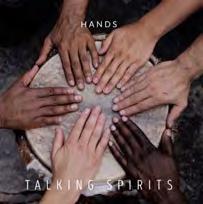
Master British musician Simon Mayor shows the full range of his considerable instrumental and arranging skills in a spellbinding tribute to the 17th/18th century legendary blind Irish composer and harper Turlough O’Carolan. Playing a range of mandolins, guitars and violins and exquisitely backed by his duo partner Hilary James on various basses and Florence Petit on violoncello, Mayor puts his own spin on such classic O’Carolan tunes as ‘Hewlett’, ‘Beag Sí Mhór’ and ‘Lord Inchiquin’ while preserving the majesty of O’Carolan’s mellifluous timehonoured melodies. He succeeds by varying tempos, incorporating changes of key and mode, and extemporising via harmonic sequences.
SUMMERS & JUHANI SILVOLA SØLVSTRØK
Heilo
Finland’s hottest live music festival export and one of the world’s outstanding fiddle bands, Frigg enjoys comparable status as recording artists. Perintö, their 11th album in 23 years, maintains the excellence of a stunning back catalogue while moving away from their trademark ‘nordgrass’ sound — a fusion of Nordic-flavoured folk music and American bluegrass — in favour of more heritage-based styles. There’s no loss of flamboyance or feel. Frigg approaches a range of traditional polskas, waltzes and other dance tunes from around Finland from different angles, varying from playful ornamentation to syncopated bowing and basic drones.
KAYHAN KALHOR & TOUMANI DIABATÉ
THE SKY IS THE SAME COLOUR EVERYWHERE
Real World
Nigeria-born, California-based jazz vocalist Douyé’s boundary breaking new album spectacularly fuses the lyricism of the Great American Songbook with hypnotic West African rhythm. Evergreen standards such as Duke Ellington’s ‘It Don’t Mean A Thing’ and Cole Porter’s ‘I’ve Got You Under My Skin’ are torn away from their swing moorings by polyrhythmic afrobeat drumming patterns and sèkèrè shaker and talking drum percussion. Fellow West African Lionel Loueke’s inventive guitar playing dovetails with Douyé’s exquisitely dark-roasted singing in the romantic ballads ‘Fly Me To The Moon’ and ‘I’m Confessing That I Love You’.

OMARA PORTUONDO VIDA One World Records


Comprising a motley crew of Londonbased session musos from various parts of the planet led by a blue-blooded English multi-instrumentalist who’s a second cousin to King Charles II no less, Talking Spirits presents a combination of invigorating and original world music, folk and jazz. That’s really no surprise given that its members have honed their skills over decades working with such bold fusioneers as Frank Zappa, Lee ‘Scratch’ Perry, Ginger Baker, Jeff Beck, Steve Winwood and Van Morrison. The fluidity of their hybrid is helped by the fact that three bandmates played in a legendary jazzfunk outfit called the Breakfast Band and that others hail from the acclaimed Mongolian group Andaunion.
NICKY SCHRIRE NOWHERE GIRL Anzic Records
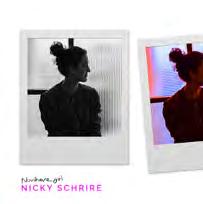
Classical harmonies and folk music sensibilities also combine with a sense of adventure in the approach of Scottish fiddler Sarah-Jane Summers and Finnish guitarist Juhani Silvola, allowing this dynamic duo to blend tradition and experimentation similarly seamlessly. Based in Norway, these partners in rhyme and life share a rapport that’s commensurate with their fourth album together in 10 years. In combination with the titular star-studded chamber orchestra, Summers & Silvola truly shine whether soloing and swapping lead breaks or merging with Sølvstrøk into one glorious sound, as exemplified on the set standout ‘Owerset’.
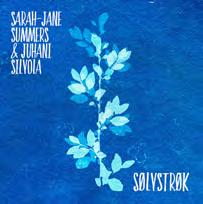
Music from sharply contrasting parts of the globe created on very different stringed instruments and made with hardly any rehearsing gels surprisingly well in this exotic enterprise. But then Iran’s Kayhan Kalhor and Mali’s Toumani Diabaté are masters of their respective instruments, the 4-stringed bowed Middle Eastern fiddle known as the kamancheh and the plucked gourdbased 21-stringed harp-like kora of West Africa. The exceptional musicality of these virtuosos bring together the centuries-old cultures of the Persian and Mandé empires with seeming ease, reaching a sublime peak in the nigh-9 mins of the album title track.
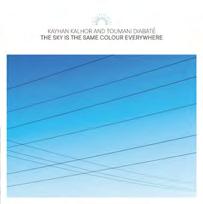
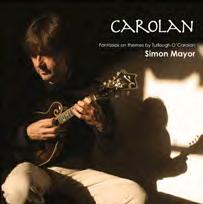
The last surviving member of Buena Vista Social Club’s lauded front-line, Omara Portuondo is assisted by some distinguished performers from across the Latin music world on what might well be her farewell album. While the nonagenarian Cuban diva still cuts it on a selection of timeless ballads, it’s her female duet partners, Peruvian Susana Baca and Guatemalan Gaby Moreno, who steal the show. Of the male guests, Puerto Rican Andy Montañez is not a patch on Ibrahim Ferrer, Omara’s late BVSC band-mate, in the signature bolero ‘Silencio’. On other tracks, Panamanian Ruben Blades and Mexican Carlos Rivera hold their own.
Globe-trotting singer-songwriter
Nicky Schrire — born in England, raised in South Africa, educated in America and now living in Canada — blurs the lines between folk, jazz and world music on an aptly-titled and themed first album for a decade. With simpatico assistance from a JUNOnominated trio (Myriad3), Nowhere
Girl is refreshingly uncluttered, affording Schrire’s crystalline singing and engaging travelogue tales optimum exposure. British folk inflections, jazzy African rhythms and other influences are perfectly balanced with compelling storytelling and the spontaneity of improvisation.
89
SIMON MAYOR CAROLAN
SARAH-JANE
ANGE BOXHALL
Skipping Stone is Ange Boxall’s first full-length studio album since the birth of her daughter 11 years ago.
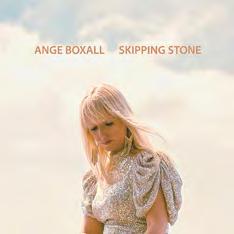
In reflection of these years, Skipping Stone has 11 beautifully crafted songs, each with a story to tell.
These are not your typical female ‘noughtys’ throw away pop, they are honed lyrics that have been deeply thought about with compositions that have been meticulously worked. It all sounds cohesive and more-ish. This is good oldfashioned song writing with the power of the old LP where you want to listen from start to finish.
“Ange Boxall is a strong woman with dark liquid eyes and a splash of sunshine in her smile. She has played big stages in the US but lives on the sparsely populated east coast of Tasmania. Her singing is skilful and accomplished, she plays with class musicians and when she sings Me and Bobby McGee you’re reminded of someone you met along the way who was worth travelling with. She’s a deep well - she writes her own songs, she runs a festival. She’s the sort of artist who makes a place a lot more interesting to live in.”
Martin Flanagan, Journalist & Author
STUART COUPE PRESENTS
THE BEATNIK PREACHERS
Musically Exquisite, Lyrically Explicit - Artistically Evocative, Socially Provocative - the Beatnik Preachers meld a blistering style of jazz with original beat-poetry to form a unique ensemble that provides a palette for both the ears and the mind.
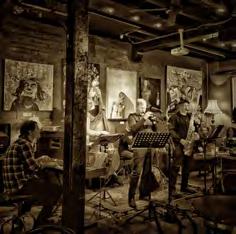
Anthony Norris (trumpet and spoken word) joined by Rob Burke (sax) gather the funky drumming of Miles Henry and the groove of bassist Nick Haywood to drive a quintet allowing the sublime piano of Joel Louis to evoke and provoke both melody and harmony. Norris and Burke are melodically divine yet technically elaborate, thereby adding a unique interplay of risk and trust within the ensemble that is joyous and raucous. Firmly in the spirit of jazz whilst celebrating the human condition and investigating issues that currently face each and every one of us.
Visit: beatnikpreachers.au
BELLA FRANKIE
Bella Frankie embrace alt. folk, alt. country and a touch of alt. blues with their quirky and disarming singersongwriter classics on Cut Folk Fables
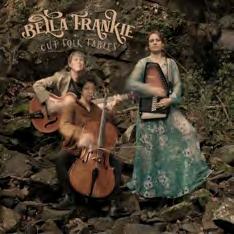
The band hailing from North Coast NSW comprise of songwriters Michael Turner of ex 20th century alt.folk rockers Wild Pumpkins at Midnight, who also produced the album, and Ajita Cannings, a new and striking voice to the Oz folk scene. Their songs are unswervingly original and harness the best bits of Australian folk music, the album is both homely and edgy all at once. Baroque cellist Natasha Kraemer of The Australian Haydn Ensemble features highly on the album, providing warm melodies and a gorgeous 3rd voice to the three-part vocal arrangements. The track themes are eccentric; ‘Underwater Home’ shares the loss of a home to the Lismore floods, there’s a bluesy ode to a govt. house buyback case manager in ‘Cheralee’, a tune straight from an Aussie folklore book in ‘Immigrant’s Lament’ and a rueful pop tune to the environment in ‘Two Black Dogs’. This is Bella Frankie’s second album, both were recorded in a 19th century cottage lo studio Flinders Island. They launch Cut Folk Fables in Lismore on October 7.
CJ COMMERFORD & THE SUPERTONES
Move On Up (Live)
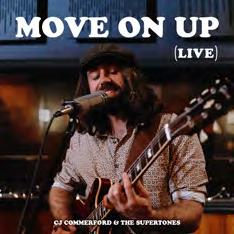
CJ Commerford & The Supertones have dropped another track, but this time - it’s more familiar than you realise! Delight your ears AND eyes on the Melbourne soul band’s take on the Curtis Mayfield classic ‘Move On Up’ live in the studio. A fan favourite always resulting in a Supertones dancefloor, CJ and the gang want to remind all music lovers out there that the progressive soul hit has more potency than ever.
From the Mornington Peninsula they have the power to ease your mind, sweeping you back to the golden era of 70s soul. A celebration of all moments analogue, beautifully human in one’s life, CJ channels this into a soulful blues-rock sound written from his deep love and grounding connection to vintage music. The Supertones’ are the five-piece backbone to CJ’s vintage sound, allowing for those vintage moments to be fully realised onstage and in the studio.
Recorded at LMC studio in Cheltenham VIC, mixed by Simon Moro and mastered by Joe Carra at Crystal Mastering. Enjoy this wholesome live experience in full with the live video of the take! Listen in on all major streaming services and catch the full video on youtube.
90
ALBUMS: Vinyl
BY STEVE BELL
DRIVE-BY TRUCKERS
THE COMPLETE DIRTY SOUTH
New West Records
EILEN JEWELL
GET BEHIND THE WHEEL Signature Sounds Recordings
FOR THE TERM OF MY NATURAL LIFE ARS Records
Back in the early-noughties Alabama-born Southern Rock legends Drive-By Truckers were in a pretty great place. In 2001 they’d not only released the epic double-album Southern Rock Opera and then signed with Austin label New West, but they’d added young Alabamian Jason Isbell to the ranks as third guitarist - in the process adding a third strong songwriter to their already potent armoury - which all led to 2003’s critically acclaimed fourth album Decoration Day. But when just months after that release they submitted to New West another doublealbum exploring the fertile mythology of the South - a spiritual follow-up to Southern Rock Opera - the label deemed it ‘too much, too soon’, and after some acrimonious wrangling it was stripped-down to a single album and released in 2004 as the Trucker’s fifth album The Dirty South. While that record was also critically-acclaimed and remains revered among fans, the memory still clearly rankled the band who nearly 20 years later have reworked the album as it was originally intended, the resultant reimagining The Complete Dirty South now featuring three extra tracks - two strong Patterson Hood narratives in ’Goode’s Field Road’ and ‘The Great Car Dealer War’ and Isbell’s gorgeously plaintive ‘TVA’ - as well as being resequenced, having vocal takes re-recorded, the gorgeous artwork expanded, new liner notes added and the whole thing remixed and remastered and pressed onto 2-LP ‘Reposado marbled vinyl’. The album’s incredible tales of smalltown greed and hypocrisy are fleshed out with the extra content and context and aurally it now sounds pristine - an already amazing album somehow just got vastly better.
The ninth album from beloved Idahoan singer-songwriter Eilen Jewell initially found her in a place of tumult, reeling from a string of calamitous events including her marriage break-up (a situation exacerbated by her ex-husband also being her drummer and manager) and some tragic losses in her family and inner circle, combining to cause something of a crisis of confidence. But instead of capitulating and buckling Jewell rallied and forged forward, this innerstrength and resilience imbuing her gorgeous new collection Get Behind The Wheel which finds her mining not just country music but blues, rockabilly and even folk vibes to great effect. After the ominous slow-burn of swampy opener ‘Alive’, Jewel’s gorgeous voice shines on the uplifting ‘Crooked River’ - the beautiful song dripping with positivity - leading into the sultry ‘50s vamp of ‘Lethal Love’ and the slinky blues of ‘Come Home Soon’, a diverse but powerful opening gambit. She throws in a couple of covers (Van Morrison’s ‘Could You Would You’ and a slow, soulful take on Irma Thompson’s ‘Breakaway’) before ‘Winnemucca’ veers into pure country territory with its flurry of pedal steel and strummed acoustics, before poignant country lament ‘You Were A Friend Of Mine’ introduces melancholia and pathos to proceedings. The bluesy honesty of ‘Outsiders’ leads to the mandolin-heavy introspection of the ballad ‘Silver Wheels And Wings’ before everything is tied together by five-minute closer ‘The Bitter End’, which builds from quiet strumming into dark and brooding intensity to finish the album on a brutally-honest and soul-baring note.
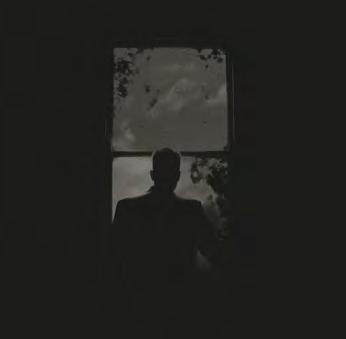
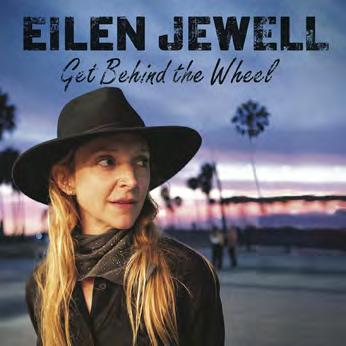
Throughout Jewel is backed by a crack band who bring a requisitely authentic vibe to this beautifully constructed and delivered batch of laments, helping her mine great art from personal pain in that finest country tradition

Matt Malone quite appropriately comes from the Goldfields region of country Victoria - during our nation’s formative years the Aussie equivalent of the Wild West - given that his new album For The Term Of My Natural Life seems rooted in our colonial past, a brutal form of countrynoir disconcerting in its litany of bleak gothic landscapes. The opening title track is a convict ballad mired in pain and loss, Malone’s gruff baritone incredibly expressive and balanced nicely by subtle, spectral backing vocals. Sparse love lament ‘The Best Day Of My Life’ hides everything but Malone’s voice in the background, while ‘The Stranger’ proves incredibly creepy with scraping violin adding to the inherent unease. ‘The Unrepentant Thief’ is another criminal narrative, while the gentle country lilt of ‘Crazy Jane’ is far less abrasive and adds some welcome levity to proceedings - even if that tale too ends in death and poverty - and ‘Love You’ve Given To Me’ revels in dark and despondent beauty, a typical country depiction of ‘love gone wrong’. Near eight-minute closer ‘Judgement Day’ rides on creepy drones and funereal drums as it unveils its epic account of old-world death and destruction, where evil runs rampant and justice exists more in concept than reality. The backing band of pedal steel, violin and drums display perfect restraint throughout, as Malone mines life’s dark shadows in a similar way to Nick Cave or foreign antecedents like Haggard and Dylan. It’s an album of singular vision, unrelenting in its intensity but rewarding in its sombre insight, and while it’s often hard to see any light at the end of the tunnel in these songs, sometimes just still being around to look back and reflect is enough.
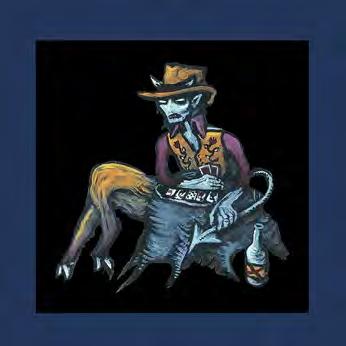
91
MATT MALONE & THE HOLY SPIRITS
ALBUMS: Jazz 1
 BY DES COWLEY
BY DES COWLEY
UNDERWARDS DELVE
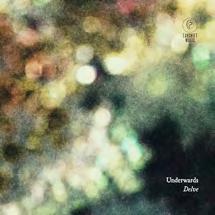
Earshift Music, CD & digital release
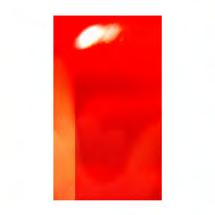
MARK ISAACS SONATA
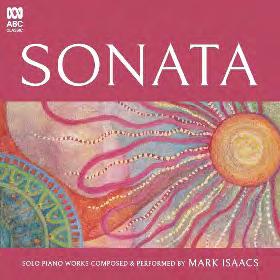
ABC Classic, CD & digital release
MAGNIFY MAGNIFY
Independent, Digital release
+F:RST SUNN+ +F:RST SUNN+
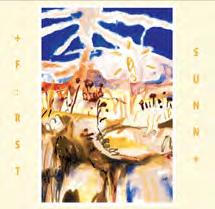
Independent, CD, vinyl & digital
Ellen Kirkwood first came to widespread attention as a composer, penning the hour-long four-part suite [A]part for Sirens Big Band, which premiered at the 2018 Wangaratta Jazz Festival. Since then, she has advanced her reputation as a trumpet player and improvisor, playing with Mister Ott, On the Stoop, and Pharos. Her newest recording, Delve, consolidates these achievements, presenting ten new compositions for her quartet Underwards, featuring award-winning guitarist Hilary Geddes, bassist Nick Henderson, and drummer Alex Inman-Hislop. Opener ‘Slow Wade’ acts like a curtain-raiser, five minutes of minimalist voice, trumpet, and synths, that mirror the gentle in-out of breathing. Geddes wades into this mix, doling out clean guitar lines that smoulder with intensity, opening the terrain for Kirkwood’s mushrooming solo, her sporadic notes dark and brooding. The title track springs to life with a buoyant bass riff, mimicked by Geddes’ dancing guitar hook, and powered by catchy drum n’ bass. It steams ahead like a runaway train, crisp and snappy, with Geddes relishing the chance to free-style across rapid-fire percussion. ‘Swampy’ lives up to its name, a brooding, slowmired, minimalist piece that finds Kirkwood exploring shadows and spectres, her trumpet moving through an increasingly dense underbelly of drums, bass, and effects. For the most part, Kirkwood adopts a less-is-more approach, her playing closer in character to the dark tones and shaded textures of European trumpeters such as Mathias Eik, or Avishai Cohen. Delve roams far and wide, cementing Kirkwood’s manifold talents. It doubles as a mature statement, and propitious signpost of where she’s headed.
Mark Isaacs is one of Australia’s finest pianists, whose career habitually criss-crosses jazz and classical. Possessed of a pitchperfect ear, he was dabbling with jazz improvisation by age-nine, and composing orchestral works in his early teens. While his new work Sonata is firmly in the classical camp, it warrants attention by anyone who has followed Isaacs’ jazz career, from his collaborations with Dave Holland and Kenny Wheeler, to his long-running Resurgence Band. After all, switching between jazz and classical is nothing new. We only need to look to Ellington’s symphonic works; or Keith Jarrett’s recordings of Bach; or Chick Corea’s final recording, which blended Chopin with Bill Evans, Scriabin with Monk. Sonata comprises three new works for solo piano, and while wholly composed, the album bears affinities with Isaacs’ solo improvised recordings, particularly the extended Elements suite (1995), or the miniatures heard on Forgotten Fields (2020). The opening of the twomovement title track is a haunting piece, measured and constrained, its gentle, isolated notes unfurling via a series of repeated motifs. This gives way in the second part to a more flourishing, strident, romantic episode, which pursues both tension and resolution. The six-part ‘Songs Without Words’ – several of which are adapted from Isaacs’s jazz recordings – is exquisite, thoroughly majestic in feel, conjuring the impressionism of Debussy, or the elegant simplicity of Corea’s Children’s Songs. It is a testament to Isaacs’s melodic sensibilities that he can be linked to Jarrett and Corea. Like them, he creates music, irrespective of how we might choose to classify it.
Magnify is the brainchild of Melbourne saxophonist Flora Carbo. The project emerged out of a 2021 Creative Vic grant for emerging artists, which developed into an on-going residency for Carbo’s quartet at Uptown Jazz Café over a six-month period. The benefits of this sort of funding can’t be underestimated: in this case it allowed Carbo the freedom to explore her interest in electro-acoustic music, to experiment, and, most importantly, to foster close connections with her band, as they developed this music. Carbo’s dramatic development over the past few years has been fascinating to watch, as she has shifted from mainstream jazz to a more unorthodox approach, exemplified in her long-form work Ecosystem, scored for three saxophones and three voices; her largely solo EP Arthur’s Walks; and now with Magnify. Working with regulars Maddison Carter on drums, and Isaac Gunnoo on bass, Carbo has expanded her sonic palette to include Eitan Ritz, whose modular synthesizer manipulates and processes sound during live performance. Magnify, with its emphasis on abstraction, ambient sound, repetition, silence, clanging cymbals, and swirling synths, is purposely experimental by design. Carbo has cited influences as diverse at Sidney Bechet, Ornette Coleman, and Arthur Russell; but it’s equally possible to discern something of the pioneering experiments of Roscoe Mitchell, and Evan Parker, whose music has investigated the timbral possibilities of sound and silence, along with the intersections between acoustic and electronic sound. Recorded live at Uptown Jazz Café, Magnify proves a bold experiment, further testament to Carbo’s accelerated growth as composer and musician
Melbourne bassist Stephen Hornby has spread his wings with +F:rst Sunn+ (pronounce it how you will). Best known for his work with Koi Kingdom, he is joined on this new project by fellow-Koi member, alto saxophonist Cheryl Durongpisitkul, along with guitarist Tom StewartToner, drummer Phil Collins, and tenor saxophonist Andrew Saragossi. Together, they stretch out on nine original compositions, all but one written by Hornby. It’s an album characterised by reckless energy and eclecticism, veering from rock rhythms and sax wig-outs to gorgeous ballads and ear-catching melodies. But make no mistake, this is a band that knows exactly what it’s about. ‘Duckie’ is a case in point: introduced by two-minutes of harsh, searing, distorted guitar, it leaps headfirst into a pummelling, brutal riff, driven by duelling saxes, and pounding drums. It’s heart-stopping stuff, recalling the tightness of John Zorn’s Naked City, or Tim Berne’s Bloodcount, a musical rollercoaster that continuously shifts and morphs, all angles and chiselled intensity. In direct contrast, +F:rst Sunn+’s arrangement of Adrianne Lenker’s ‘Jon’, the album’s sole cover, is dripping with sun-drenched emotion, as Durongpisitkul and Saragossi delicately weave their voices across the gentlest of indie beats. ‘Atonement’ conjures the sleepy ballads of Ben Webster, full of warmth and affability, with Durongpisitkul’s silken tone wrapping itself around the melody; while ‘2075’ is fashioned from jump cuts and jagged guitar. ‘Joyce’, an extended bass solo from Hornby, forms a fitting coda. By turns adventurous, playful, elegant, and graceful, +F:rst Sunn+ displays a confidence and bravura rarely heard on debut albums.
92
ALBUMS: Jazz 2
 BY DES COWLEY
BY DES COWLEY
PHILLIP JOHNSTON AND THE GREASY CHICKEN ORCHESTRA I CAKEWALKED WITH A ZOMBIE Earshift Music, CD, vinyl & digital release
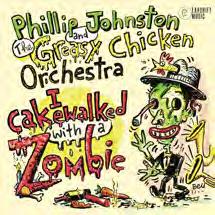
MICHELLE NICOLLE THE BACH PROJECT
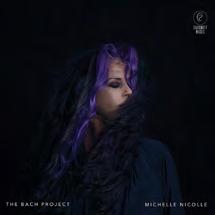
Earshift Music, CD, vinyl & digital release
ANDY SUGG GROUP, FEATURING DAVID LIEBMAN AFTER UTOPIA Independent CD & digital release
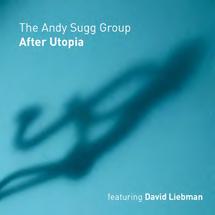
MARG GINSBURG / RYAN GROGAN OCEANS TOGETHER
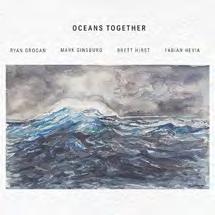
Earshift Music, CD & digital release
The title gives it away. With tongue planted firmly in cheek – albeit in a serious manner – Phillip Johnston takes a deep dive into the roots of collective jazz of the 1920s and 1930s. The American saxophonist, based in Sydney since 2005, is certainly no stranger to this music. Having cut his teeth in the New York downtown scene of the 1980s, he fronted the Microscopic Septet for over a decade, a screwball avant-ensemble that trod a fine line between classic and futuristic jazz. At the same time, he’s kept himself busy creating new scores for silentera films, including the early films of French director Georges Méliès. Johnston’s latest foray with his Greasy Chicken Orchestra – an eight-piece featuring a stellar cast of Sydney talent – pitches itself firmly in the nostalgia camp, inspired by the madcap soundtracks to the cartoons he watched as a child – Betty Boop, Koko the Clown, early Micky Mouse – fuelled as they were by a twisted diet of zany tunes. What Johnston and the Greasy Chicken Orchestra dish up is an hour of classic jazz, seamlessly blending originals with covers of Louis Armstrong, Bix Beiderbecke, Ellington, Jelly Roll Morton, Don Redman, and Lil Hardin. Standout tracks include the traditional ‘Keep Your Lights Trimmed and Burning’, with its bluesy, funereal feel; Ellington’s gorgeously doleful ‘Awful Sad’; and Johnston’s own furiouslypaced ‘Damp Rag’. Faultlessly performed, and fun to boot, I Cakewalked with a Zombie conjures a lost age of flappers, the roaring twenties, Betty Boop, and F. Scott Fitzgerald’s Tales of a Jazz Age.
Michelle Nicolle has long been revered as one of Australia’s preeminent jazz singers: winner of the 1998 National Jazz Award, the 2017 Bell Australian Jazz Award for vocals, and described by Kurt Elling as “a singer born to sing, born to charm, enlighten and seduce through music.” Rare for a jazz singer, she’s maintained her regular quartet –comprising guitarist Geoff Hughes, bassist Tom Lee (who replaced Howard Cairns in 2005) and drummer Ronny Ferella – for over twenty years, a move clearly designed to foster a creative and trustful environment, allowing for musical growth. For this, her ninth album, Nicolle has unveiled her Bach Project, headlined at last year’s Wangaratta Jazz Festival. While it’s not the first time a jazz artist has riffed on Bach’s music – we can point to the Modern Jazz Quartet, Dave Brubeck, and pianist Jacques Loussier – Nicolle’s personal take inhabits a world all of its own. There is something about the eighteenthcentury German composer’s music, with its emphasis on complex variations, that lends itself to jazz interpretation. As a vocalist, Nicolle has chosen to mix things up, grafting Bach’s compositions onto the music of Monk, Horace Silver, Ornette Coleman, and overlaying them with lyrical flights. It’s an intricate mashup, a form of chamber jazz that basks in warm spaciousness, and delicate stylings. Nicolle’s expressive vocals appear to float through this music, dream-like, interwoven with Ferella’s gentle percussive rhythms, and Hughes’s classically infused guitar. As a listening experience, The Bach Project radiates a ravishing beauty, beguiling and seductive from start to finish.
Andy Sugg is a Melbourne-based tenor saxophonist, whose work draws sustenance and inspiration from the music of John Coltrane. After Utopia finds him revisiting and re-envisioning a set of sessions, recorded in 2004, with the great American saxophonist Dave Liebman, an artist similarly galvanized by Coltrane’s great legacy. Together, these two musicians display an astounding simpatico, as they run through a program of Sugg originals, supported by pianists Sam Keevers and Andy Vance, guitarist Steve Magnusson, bassist Kim Kelaart, and drummer Elyan Fernova. Opener ‘Tran’ kicks off with a repetitive vamp by Sugg, teasing out Liebman’s soprano sax, which meshes in tightly, underpinned by Keevers’ piano. The album’s title track slows the pace, its meditative and searching theme beautifully framed by Magnusson’s arresting guitar hook, a scene-setter for Sugg’s slow-burn solo, which crests this music with a searing amplitude. ‘Livres sans Frontières’, a jaunty piece, showcases Liebman’s supple soprano, as he unleashes torrents of rapid-fire notes, boosting the heat. An earlier take, entitled ‘Livres Jam’, has been included as a bonus cut, its loose ‘jam’ feel testifying to the open-ended, improvisatory nature of this music. ‘Modernista’ is built on infectious drum n’ bass, the perfect vehicle for Sugg’s flourishing tenor, which gathers steam via a series of repetitive motifs, manifesting a vibrant elasticity. After Utopia is driven by accelerated chord changes and rhythmic dynamism, foregrounding Sugg and Liebman’s imaginative flights. What it reveals is two saxophone masters at work, their playing bristling with adventurous spirit, steeped in proficiency, craft and artistry.
Saxophonist Mark Ginsberg and pianist Ryan Grogan both hail from South Africa. Now Sydney-based, they co-lead their quartet – rounded out by bassist Brett Hirst and percussionist Fabian Hevia – through a seventy-minute program, made up of twelve originals. The album’s title Oceans Together references the divergent shores, landscapes, and influences that inform these compositions, born out of journeying and reflection. Opener ‘The South’ finds Grogan’s piano emanating a middle-eastern tang, as he coaxes the gentlest of melodies from Ginsberg, whose tone is light and airy, full of nostalgia and yearning. The effect is heightened by guest Hannah Grogan, whose wordless vocals harmonise with Ginsberg’s sax, as if cocooned in its warmth. ‘Indecision’, woven from the most delicate of threads, finds Hirst laying down a gorgeous bass theme, deeply resonant, upon which Grogan’s piano builds, lyrical and emotive. There is a cinematic feel to this music, it could double as the soundtrack to an imaginary film, a narrative saturated in colour and memory. Throughout, Grogan displays a beautiful, graceful touch on piano, his notes gently flowing and cascading, shaping elaborate and expansive backdrops. Ginsberg’s melodic sax meanwhile radiates a singular purity, even as it bathes in lyrical space. Perhaps the album’s masterstroke is the distinctive use of Hevia’s hand percussion, its ultra-fine patina accentuating the innate lyricism lurking within this music’s fragile heart. There is nothing flashy or fiery about this recording, its storytelling is measured and ruminative, unfolding ever-so-gently. It creeps up on the listener, tapping into hidden recesses, revealing indefinable sites of loss and longing.
93
DOG TRUMPET
Dog Trumpet are heading out on the second leg of the Shadowland Tour

Come along and enjoy a great night of music and fun. Dog Trumpet, one of Australia’s most unique bands has gone global with Demon Music and is spearheaded by Reg Mombassa and his brother Peter O’Doherty who began their musical careers playing and writing in the ARIA Hall of Fame band Mental As Anything. The Mentals had 20 songs in the top 40 (a record for an Australian band) and a global hit with ‘Live It Up’ that only last Christmas hit #1 on many UK charts.
After thirty years of performing and recording, all 8 albums are available on vinyl for the first time and remastered for digital release. Shadowland is a distinctive blending of psychedelia, folk and blues, the album probes the perils and absurdities of human existence, kicking off with the title track Shadowland, a nervous musing on digital oversurveillance; followed by Nina Simone, a song reflecting on romance and memory. Playing songs from across the catalogue and Mentals classics.
Tickets: dogtrumpet.net/gigs
New single Back Room out now. See it on YouTube.
STUART COUPE PRESENTS
FRED SMITH
Fred Smith’s new album, Look, is in the can ready for release ahead of a series of tour dates in the latter half of 2023. Although many of the songs were written at a time when Fred was working in or on Afghanistan, he describes the recording as “a collection of songs that are not about Afghanistan” They are about the stuff of our lives and the world we live in: the speed of modern life, love, isolation, and the internet in a world that seems to be lurching forward by a rolling series of crises.
There are odes to the artist’s influences: Leonard Cohen, Helen Garner and a deceased Brisbane lawyer-folksinger and friend, John Thompson. These walk a nice line between tribute and piss take. The recording offers a warm blend of mirth and meaning and would fit well in your kitchen.
Fred Smith is simply the best folk/country musician working in this country in 2020. Beyond writing some of the finest songs about Australians at war, he has created a repertoire that is wry, literate, witty, powerfully emotional and insightful.”(Bruce Elder, Sydney Morning Herald).
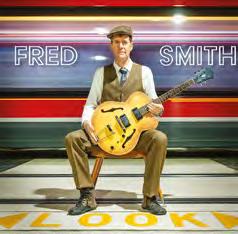
For tour dates and sales: fredsmith.com.au
MICHAEL MENAGER LINE IN THE WATER
Michael Menager is a troubadour of many moods, many paths and many influences. His lyrics cut across a philosophical edge, his style cuts across the Americana spectrum from blues and swing to folk, country and early rock n’roll, and his stories cut through the inner landscape of a poet and traveller.
Following Clean Exit (2014) and Not the Express (2016), Michael Menager’s Line in the Water is yet another testament to a gifted songwriter. A longtime resident of rural NSW, Michael bases some songs here on calamities in nature - but solely to provide insight into our common struggles. There is a richness in Menager’s lyrics that bears returning to over time; depths there to be mined.
Menager’s songs reflect the Americana traditions of folk, blues and spirituals. The title track,
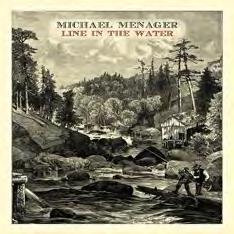
“Line in the Water,” begins with the Disciples “fishing down in Galilee,” then pans to a rough neighbourhood in Central LA and to a different sort of fisherman entirely. “Flesh Against Bone” personifies our present times, where “The light that’s left will not reveal/what is the truth and what’s a lie.”
“Songs that are clear, direct, true and worth returning to - that’s my final word on Line in the Water.” - Robert M Gardner (Theatrius.com)
THE SUMMERTIMES THE SUMMERTIMES
Following their first single in January (‘The Perfect Wave’), and a second in April (‘Inside’), The Summertimes’ self-titled debut LP is now out. Songwriters David Beniuk and David Challenger were joined in the studio by some of Australia’s most revered musicians, including guitarist Ashley Naylor (Paul Kelly and The Church), drummer Stephen O’Brien (Tumbleweed) and bassist Steve Bull (Icehouse). Steering The Summertimes’ ship from behind the desk was five-time ARIA award-winning producer Paul McKercher, who’s recorded with the likes of the Hoodoo Gurus, Eskimo Joe and Midnight Oil.
Drawing on inspiration from acts as diverse as the GoBetweens, Teenage Fanclub, You Am I and The Smiths, The Summertimes’ 10-track LP is chock full of evocative powerpop melodies interwoven with cerebral storytelling.
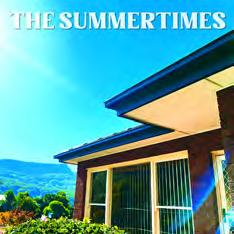
Tim Rogers (You Am I): “The Summertimes got the Power, they got the Pop. Frantic and wide eyed, I wouldn’t trust ‘em with scissors, but I want ‘em to play my party.”
Paul Gough (ABC producer and host of 2SER’s ‘Chimes’): “A new album that is drenched in the Australian sunshine, and packed full of great songs.”
Visit: rankandfilerecords.com
94
BEE GEES: CHILDREN OF THE WORLD
By Bob Stanley (Bonnier, dist. by Allen & Unwin, h/b)
Having chronicled a century’s pop music, delivered in two doorstopper volumes (Yeah, Yeah, Yeah and Let’s Do It’), British writer and musician Bob Stanley has shifted gears. Abandoning the wide-screen panoramic approach of those works, his new book narrows its focus to a single act, the perennially unhip Bee Gees. Stanley, an unadulterated, flag-waving champion of popular music, is clear about his intent: he wants to make sense of a band who ‘’never really made sense.” For Stanley, the backstory is personal. As a kid, his Uncle Bill made him a cassette. On one side were the Beach Boys, on the other a compilation of Bee Gees hits. The contrast could not have been more pronounced: one all Californian radiance and harmonic positivity, the other melancholic, like “a strange island in the Irish sea”. Somewhere, along the way, Stanley became a closet Bee Gees fan, believing them to be “inventive, shapeshifting writers of death-haunted melodies, with voices that sounded like no-one else.”
Half-a-century on from Uncle Bill’s cassette, Stanley is determined to come to grips with “why and how the Gibb brothers have been othered, and – unlike the Beach Boys – rarely treated with the respect they should have earned as a right.” In this, he has set himself a formidable task. After all, those shiny suits, Barry’s chest hair, the crowds burning Bee Gees’ records at Disco Demolition Night in 1979. Once seen etc. These are like barriers on the road, a stumbling block for anyone trying to argue the band’s on-going relevance.
Australia has always carried a torch for the Bee Gees. But can we really claim them? It’s a moot point. Born on the Isle of Man, the brothers’ peripatetic childhood and adolescence criss-crossed Manchester, Brisbane, Sydney, before going into reverse, back-pedalling to England. While in Australia (1958-1967), they were regulars on Brian Henderson’s Bandstand, looking to all intents like kids (they were), and already signed to Festival Records. While their time in Australia might have been a mere blip on their journey – accounting for less than a decade – it proved to be the lab in which they honed their sound, and where they created their earliest masterwork: ‘Spicks and Specks’.
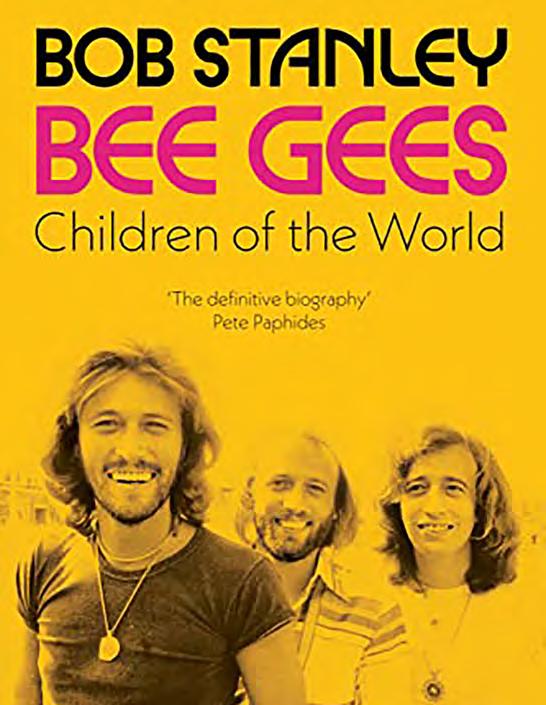
Back in the UK, it would be another Australian, Robert Stigwood, who ushered in the next chapter. The Bee Gees were still rough around the edges – the twins, Robin and Maurice, after all, were barely sixteen –but Stigwood could sniff the potential. The three brothers were writing original material and singing like angels. Stigwood looked to the future. What might they be capable of five-years down the track? It was gamble that paid off in short order, firstly with ‘New York Mining Disaster, 1941’, which nudged the UK and US top twenties, then with ‘Massachusetts’, which roared to the top of the charts.
While Stanley provides the bare bones of the story, his primary focus is on the music. Wives, houses, the odd reference to substance abuse, flit across his pages, but these are like theatrical backdrops to the main action, which, in Stanley’s eyes, is the recorded legacy. He bravely goes where few have gone before, methodically trudging his way through the vast Bee Gees catalogue – the singles, the albums, caches of unissued material – arguing for each song’s relevancy, quick to shine a light on those that miss the cut.
Like most, I knew the hits. But Stanley’s book laid bare my ignorance when it comes to the sheer profligacy of the Gibb brothers – nearly thirty albums, various solo recordings, as well as a huge number of songs farmed out to others. Barry, as nominal leader, comes across as a writing machine, a persistent workaholic responsible for an outpouring of songs, spanning decades. Even during the band’s fallow periods, he was hard at it, chalking up production and/or writing credits for Dionne Warwick, Barbara Streisand, Dianna Ross, and younger brother Andy.
The Bee Gees’ career can be broken down into distinct phases, each generally preceded by a flat spot. In their first phase, in the late sixties,
By Des Cowley
Stanley paints them as progenitors of an early strain of progressive rock, forerunners to the symphonic melodies of the Moody Blues, the storytelling weirdness of Bowie’s ‘Space Oddity’. The second phase, with its disco-wielding runaway hits – epitomised by Travolta’s dancefloor moves and street swagger – saw them conquer America. It heralded the falsetto voices, infectious beats, wind-blown hair, all of which would eventually become a millstone around the band’s neck. They found themselves the butt of ridicule, nowhere more blatantly than with the Hee Bee Gee Bees’ breakout hit ‘Meaningless Songs (in Very High Voices)’. But, as fate would have it, the worm inevitably turns. By 1997, the Bee Gees were back, receiving lifetime achievement awards, and being endorsed by a sneering Noel Gallagher, who simply declaimed: “great songs, great voices”.
Their lives were not without tragedy, perhaps none greater than younger brother Andy. Never an official Bee Gee, his drug-fuelled life spawned a few hits – mainly written by Barry – and was over by age-thirty. There were brotherly spats along the way, though they always managed to patch things up. Maurice’s death in his early fifties, in 2003, after years of alcohol abuse, effectively ended the band, though Robin and Barry would reunite for the occasional concert, before Robin’s death in 2012. Since then, Barry has soldiered on.
The Bee Gees may have lacked an experimental edge. But what remains inarguable – as Stanley is at pains to assert – is the breadth and quality of the songs. Their music haunted the charts for nigh on four decades, being constantly rejuvenated and reinvented, a feat that puts most comparable sixties bands in the shade. If they never managed to create an album to rival the Beatles, the Kinks, or Beach Boys, they nevertheless left a legacy of songs that have stood the test of time. Having shifted more than 200 million records to date, is it any wonder that Stanley – a purveyor of all things pop – felt driven to give us this book?
95
Rhythms Books Too
DELIVER ME FROM NOWHERE: THE MAKING OF BRUCE SPRINGSTEEN’S NEBRASKA
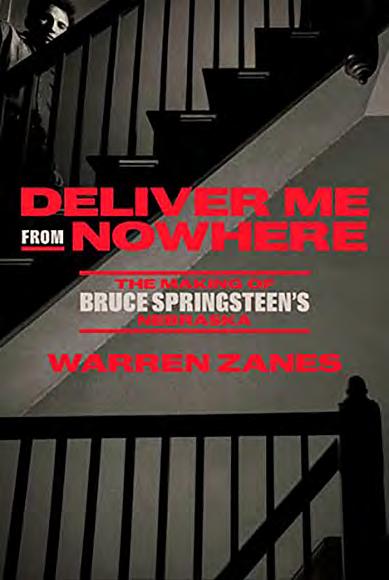 By Warren Zanes (Crown)
By Warren Zanes (Crown)
There are dozens and dozens of books about the creation of individual landmark albums. For the most part they contain far more information than the average fan would want. They’re for obsessive nerds and trainspotters.
Maybe I missed that gene because – hard as some of you may find it to believe – there’s not many albums I care that much about. I may love them with an intense passion but I don’t feel a pressing need to read a blow-by-blow account of their creation. Equally I’m rarely that interested in great album out-takes that tend to pad out the endless conveyor belt of anniversary releases. The way I see it there’s a reason those songs weren’t on the album in the first place.
Of course, there are exceptions and some amazing stuff hidden amongst a lot of filler on these reissued box sets. But rarely. You know, I really really need to hear the different bass line on take 47 of whatever song it is. You get my drift.
With that in mind I was less than excited to hear about Warren Zanes’ book length exploration of Bruce Springsteen’s Nebraska. Then people whose taste I respected started telling me how I absolutely needed to read Deliver Me From Nowhere: The Making Of Bruce Springsteen’s Nebraska.
So, despite knowing that almost inevitably a cheaper paperback edition will appear soon I forked out the not insubstantial sum that hardback book – particularly those not printed locally – are currently going for.
I knew that Zanes, aside from being a member of the Del Fuegos, was a very accomplished writer and I’d loved his biography of Tom Petty and his 33 1/3 book on Dusty In Memphis. But a whole almost 300-page book on Nebraska? I’m well known as a card-carrying member of the Bruce fan club and love, love, love Nebraska – but how much more did I need to know about it?
Let me say here that my scepticism was TOTALLY misguided. This is an incredible book and a contender, alongside Alex Pappademas and Joan LeMay’s Quantum Criminals: Ramblers, Wild Gamblers, and Other Soul Survivors from the Songs of Steely Dan, for most insightful music book of 2023. Yes, it’s that good.
Why? Because it’s obviously about Nebraska but so much more. It’s about about the essence, the very core of rock’n’roll, it’s about creativity, bands, song writing, and a dozen other things.
Zanes writes beautifully and with such insight that I slowed right down as a read it. I’m not alone. A bunch of my friends said they loved it so much they didn’t want it to end. There’s dozens and dozens of rabbit holes that you vanish down – and when you come back to daylight they’re fuelling your understanding of Springsteen and Nebraska – and the America that inspired it.
You’ll find yourself watching Terrence Malick’s Badlands and Martin Scorsese’s Raging Bull again, wanting to know more about Charles Starkweather, reading Flannery O’Connor stories and so many other things. Hell, you’ll even find – much to your surprise – that your
By Stuart Coupe
fascinated by the whole process of the recording of Nebraska and how it was readied for release. There’s camoes from The Dictators, Suicide and all sorts of people as Zanes tells his story.
And Zanes can really write. All of what makes this book so wonderful is context. Telling a story that’s both all about and bigger than Nebraska: “In a time and place now remembered for its primary colours and pastels, at the moment when music television would begin to challenge the power of radio and Ronald Reagan would soon speak on ‘Morning in America’, Nebraska was an unidentified species. It was a recording that had to be figured out, more like a message from across time than any other album among the many released in 1982. That year had big winners with Chicago’s ‘Hard To Say I’m Sorry’, the theme song from Chariots Of Fire, offerings from Foreigner, the J. Geils Band, the GoGo’s, Asia, Men At Work.”
Or: “Nebraska was a cave painting in the age of photography. You had to crawl underground and through a few tight spaces to get to it. Nebraska’s production involved the absence of production. There’s no producer credit on the album jacket. Because there was no production –short of the act saying, ‘Just put out the demo’. And not everyone agrees who said that first . . . .It was unexpected enough, audacious enough, that we remember where we were when we first held it in our hands. Nebraska. Black and white and red. Those block letter. Nebraska was imperfect, demanding in the sense of asking too much of the listener.”
In case you’re wondering Springsteen was interviewed for this book as were all the key figures involved in its recording and release.
And you know the other thing – as I read it I went back and found the bootlegs of Nebraska out-takes and extra songs. All that stuff I don’t usually worry about. Why? Because this book made me want – hell, need – to hear them.
Chances are it’ll do the same for you. It’s that good.
96
september
September 5-8
Big Sound Brisbane, QLD
September 28 - October 1
Dashville Skyline
Hunter Valley, NSW
September 29 - October 1
The Wanderer
Merimbula, NSW
September 29 -30
Deni Ute Muster
Deniliquin, NSW
September 29 – October 1
Caloundra Music Festival, QLD
october
Wingham Music Festival
October 13-15
Wingham, NSW
October 14 Out On The Weekend
Williamstown, VIC
October 15 – 22
SXSW Sydney
October 20-29
Melbourne International Jazz Festival
October 22-24
Groundwater Country Music Festival
Gold Coast, QLD
October 28 – 29
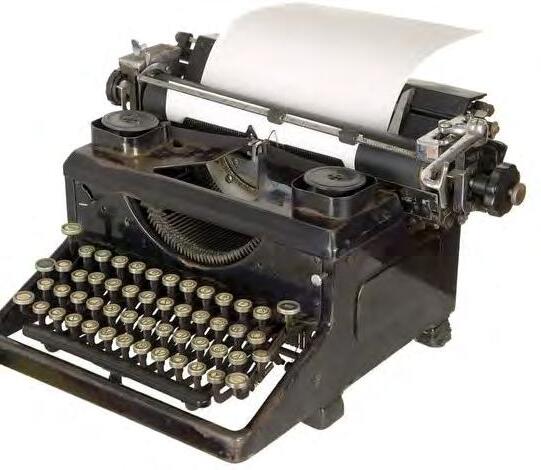

Harvest Rock
Adelaide, SA
november
November 3 – 6
Maldon Folk Festival
Maldon, VIC
November 10 – 12
Mountraingrass
Beechworth, VIC
November 10 – 12
Blues At Bridgetown
Bridgetown, WA
November 10-12
Airlie Beach Festival of Music
Airlie Beach, QLD
November 24-26
Queenscliff Music Festival
Queenscliff, VIC

Australia’s
$12.95 inc GST MARCH/APRIL 2022 ISSUE: 310 FREE SUBSCRIBER MUSIC DOWNLOAD CARD Renee Geyer Fiona Boyes & The Blue Empress Allstars Xavier Rudd Vikki Thorn Ash Grunwald Little Georgia Christone ‘Kingfish’ Ingram Jeff Lang Felix Reibl Tijuana Cartel War & Treaty BLUESFEST IS BACK! PLUS: • Emily Barker • Cedric Burnside • Brent Cobb • William Crighton • Delines • Allison Forbes • Fools • Hurray For The Riff Raff •Robben Ford • Carson McHone • Helen Shanahan Kym Warner Rhythms magazine is in print (as well as in a digital edition) but the only way you can guarantee you will get it every two months is to ... Subscribe to the print edition (or print + digital) now and you will receive each edition with our special download card. Support Rhythms by becoming a subscriber. Got to: subscribe.rhythms.com.au
National Roots Music Bible
Winners in the WA Premier’s Book Awards include: Nathan Hobby (Premier’s Prize for Book of the Year – The Red Witch: A biography of Katherine Susannah Pritchard) and Jared Thomas (Daisy Utemorrah Award for Unpublished Indigenous Junior and YA Fiction – Uncle Xbox (Book 2)). Jared’s musician daughter Tilly Tjala Thomas now has a YouTube channel. www.youtube.com/@ tillytjalathomas8427
Irish and Celtic Music Festival takes place in Yass, NSW on 15-17 Sept. Among the performers are: Saoirse, Christina Green, Austral, Luke Robinson, The Raglins, Inez Hargaden, Tolka, Chloe & Jason Roweth www.irishcelticmusicfestival.com
New music books include: Lucy Spraggan, Process; Andrew Millham, Singing Like Larks: A Celebration of Birds in Folk Songs; Steven L Jones, Murder Ballads: A Dark and Bloody Record; Bernie Taupin, Scattershot: Life,

Music, Elton, and Me; Marc Masters, High Bias: The Distorted History of the Cassette Tape
Folk by the Sea is on at the Kiama Showground on 22-24 Sept. Performers include: Enda Kenny, LJ Parks, Sarah Humphreys, We Mavericks, Wil Linder, The Fallen Robins www.folkbythesea.com.au
Sydney hosts the ASA’s National Songwriting Awards on Thurs 21 Sept 2023, at Canterbury-Hurlstone Park RSL Club. Tickets: www.asai.org.au
Brisbane hosts the Australian Women in Music Awards on 26-27 September, with the list of finalists released. www. womeninmusicawards.com.au
The Bob Bolton’s Photos Facebook group is crowd sourcing identification of people in 1970s folk music event photos. www. facebook.com/groups/1612620285757628
Tablelands Folk Festival takes place in Yungaburra, Qld on 27-29 Oct. Among the performers are: Black Cypress, Jan Preston, Day of Embers, JC and The Tree, Jessie K, Koahlition (featuring Djawarra), Mal Webb & Kylie Morrigan, Tuck Shop Ladies (Rosie Burgess, Sam Lohs). www.
Teresa Taylor (60), American drummer with Butthole Surfers, died in June
Australian folklorist Chris Sullivan, died in June
Christy Dignam (63), Irish singer, died in June English musician Tony McPhee (79), of The Groundhogs, died in June
tablelandsfolkfestival.org.au
The National Library of Australia’s music collection has published and unpublished sheet music; historical and contemporary music in notated form; archives of composers, performers and music organisations; archival sound recordings of folk music and dance and more. www.nla. gov.au/collections/what-we-collect/music
Willunga is the location for the Fleurieu Folk Festival on 27-29 Oct. Performers include: Siobhan Owen, Oceanique, Khristian Mizzi, Jimmy O’Hare, Katie Pomery https://sites. google.com/view/fleurieufolkfestival

New music releases: Allison Russell, The Returner; Hurricane #1, Backstage Waiting to go On; Brigid Mae Power, Dream From the Deep Well; Gaye Adegbalola, Satisfied; Tommy Stinson’s Cowboys in the Campfire, Wronger; Soft Plastics, Saturn Return; Grian Chatten, Chaos for the Fly; Brennen Leigh, Ain’t Through Honky Tonkin’ Yet; Ailís Ní Ríain, The Last Time I Died; Gretta Ziller, All These Walls; Ailbhe McDonagh, Irish Isles Suite; Simon Mayor, Carolan: Fantasias on Themes by Turlough O’Carolan; Shepherds Reign, Ala Mai; Na Píobairí Uilleann, Mná na bPíob Uilleann: Vol. 1
American singer Vicki Anderson (83), died Georgia, USA (July)
Randy Meisner (77), of the Eagles and Poco, died California, USA (July)

American musician and recording engineer Paul Prestopino (84), died New Jersey, USA (July)
Australian photographer and musician Bob Bolton (78), died in April
Jesse McReynolds (93), American bluegrass musician, died Tennessee, USA (June)
American songwriter Sheldon Harnick (99), who worked with Jerry Bock on Fiddler on the Roof, died New York, USA (June)
Tapas Das (68), Indian singer/songwriter, died West Bengal (June)

American bluegrass musician Bobby Osborne (91), died Tennessee, USA (June)
Anita Wood (85), American singer and actor, died Mississippi, USA (June)
American ragtime pianist Max Morath (96), died Minessotta, USA (June)
Scott Schinder (61), American music journalist, died in June
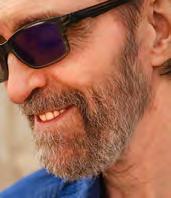
Lyricist Cynthia Weil (82), whose compositions with Barry Mann included ‘We’ve Gotta Get Out of this Place’, ‘You’ve Lost that Loving Feeling’, ‘Here You Come Again’, died California, USA (June)
Astrud Gilberto (83), Brazilian singer/ songwriter, died Philadelphia, USA (June)
Afar singer Yanna Momina (76), died Djibouti (June)
George Winston (73), Grammy-winning pianist, died Pennsylvania, USA (June)
Irish singer/songwriter Sinéad O’Connor (56), died England (July)
Tony Bennett (96), multi Grammy-winning American singer, died New York, USA (July)
Margaret Nisbett (94), Australian soprano, died Vic, Australia (July)
American pianist, arranger, composer Lincoln Mayorga (86), who worked with Phil Ochs, Rosemary Clooney, Rod McKuen, Bette Midler, Frank Zappa, Dory Previn, Ringo Starr, Sam Cooke and was staff pianist for the Walt Disney Studio, died in July
Jane Birkin (76), English-born singer, died France (July)

Hong Kong-American singer/songwriter Coco Lee (48), died Hong Kong (July)
Raymond Froggatt (81), English singer/ songwriter, died England (July)
Grammy-winning American pianist and conductor Peter Nero (89), died Florida, USA (July)
98
George Winston
Jane Birkin
…AND
Randy Meisner We Mavericks COMPILED BY SUE BARRETT
Lucy Spraggan Jessie K
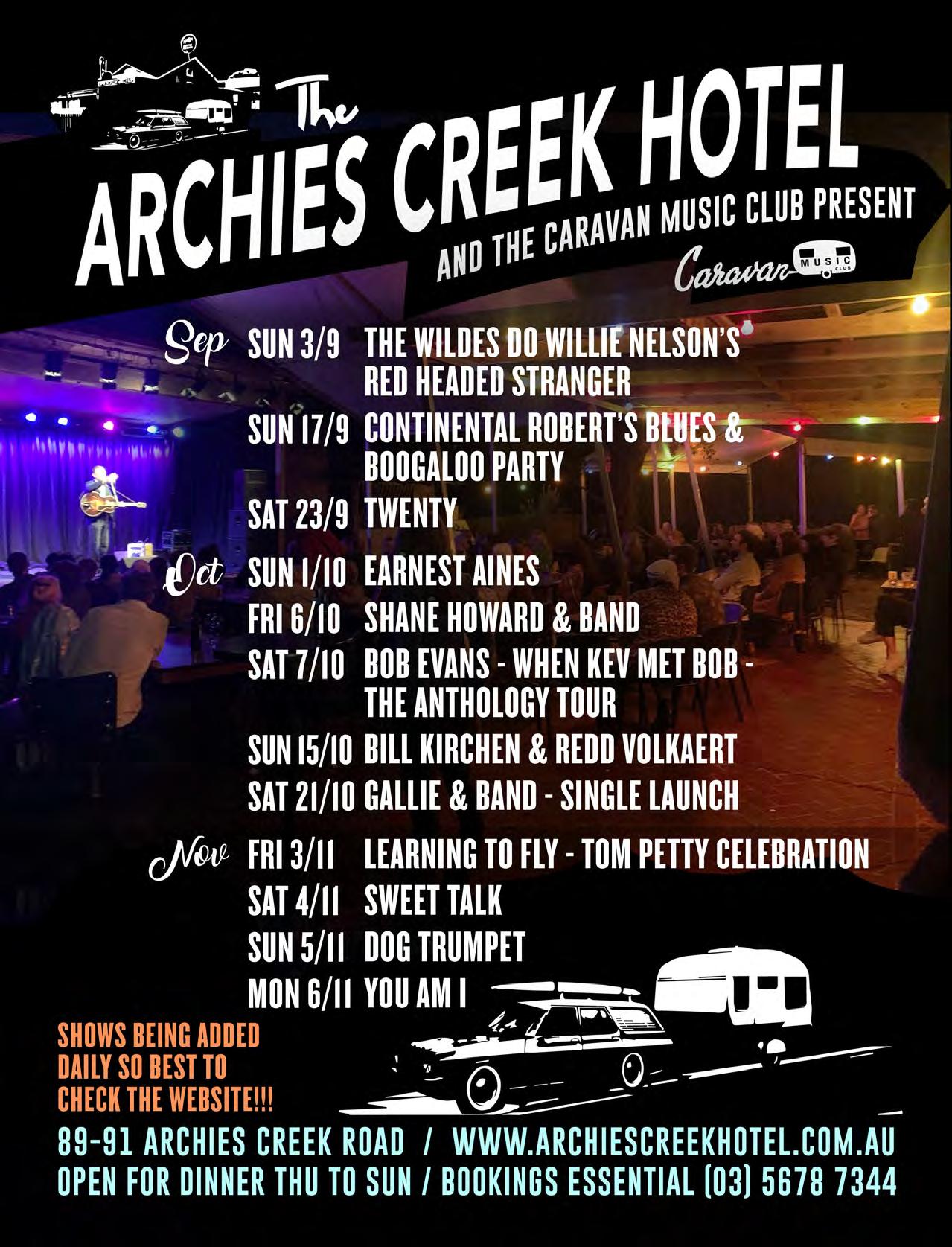

Ed Kuepper



$15.00 inc GST MAY/JUNE 2023 ISSUE: 317
Those Pretty Wrongs Ross Wilson Cash Savage
M Ward Barnestormers
$15.00 inc GST JULY/AUGUST 2023 ISSUE: 318 FREE SUB HIGHLIGHTS OF JULY/AUGUST 2023
The Pleasures Lukas Nelson HISTORY Broderick Smith R.I.P. PJ Proby Gretsch 140th

Amajor feature in this month’s edition, the tribute to Broderick Smith who died at the end of April, is one that we would rather not have had to run. As one of the nation’s greatest rock singers ever Smith played a vital role in the development of pub rock in Melbourne: first with his singing and harmonica playing in Carson and later as front man for The Dingoes, an outfit which many would consider to be our greatest country rock (Americana?) band. As a solo artist, Smith pursued a singular vision, commercially successful with his Big Combo and artistically so through a series of solo recordings that stretched from the mid-80’s to Man Out Of Time in 2018, released to coincide with his stunningly detailed autobiography.
Smith was hugely respected in the industry by generations – his son Ambrose is in King Gizzard and he recorded with them – you would think that his departure would deserve some acknowledgment in the mainstream media. Wrong. I was in New Orleans for JazzFest when news of Smith’s death reached me through social media. I checked the major Australian daily newspapers online and thought that somehow I was being blocked when I could find no mention of him at all. I was flabbergasted to discover that huge amounts of space had been devoted to the death of a celebrity chef but not a single sentence to Brod Smith until a brief tribute appeared many days later.

If you didn’t listen to the ABC or community radio or connect with a few music publications like this online, then you would have missed the news completely. (I bet there are at least a few readers to this issue who will be surprised to find out). At the very least I thought that perhaps Brod would be mentioned as being the father of a member of one of the nation’s most successful contemporary bands, until I realised that despite their massive success touring overseas and their prolific output King Gizzard are pretty much ignored by the mainstream media as well. This neglect seemed astonishing to me, and I still find it difficult to believe. I know that this
was not the fault of the music journalists at the major papers but a product of concentration of ownership with values that seem more aligned with the entertainment coverage of their television outlets. (Since then, the deaths of international entertainers of far lesser stature here - some with terrible reputations or jail time -have been acknowledged in the press). If this is the way our mainstream media is heading, then we are in deep trouble. One journalist posted that in the age of social media we are ‘all journalists’ and that, therefore, it is not as big an issue. Not so. We are not being employed to write about it!
A few weeks after Brod Smith’s death I attended a memorial service (or wake) for him at The Palais in Castlemaine, where he lived for many years. It was packed to the rafters with friends, fellow musicians and devoted fans. This was not the memorial for someone who was a footnote in major media; this was a remembrance for someone of great importance to the Australian musical community.
The thought then occurred to me that what happened with the media’s neglect of Brod Smith is one of the most compelling arguments for the existence of Rhythms magazine. Many of the musicians you read about in these pages will never get any mainstream media coverage. Others will achieve quite a deal of publicity that often only lasts for a week until the media moves onto the next, usually trivial, thing. The window of attention is a narrow one that slams shut quickly.
When Rhythms began back in 1992 there was almost no coverage in the mainstream of the musicians and genres we traversed. Gradually that changed. The ABC recruited Lucky Oceans for The Planet on Radio National. The major papers increased their music coverage and reviews (even including jazz) and they also used some of our writers who infiltrated their own tastes into the majors. In Melbourne, The Age had The EG, a substantial Friday guide, and the SMH had a similar section (until Covid shrank them and killed them off). In 2017, the ABC dropped The Planet and world music lost an important national voice. It was back to community radio and the ABC to fill the gap. The mainstream media cut back on staff and most of its specialist music coverage. Great music writers, some of whom I am glad to say now write here, found themselves sidelined. The recent Melbourne Bluesfest hardly managed to get any coverage in the major papers or TV programs.
Rhythms has become even more important than ever. It is déjà vu all over again. So, if you want to keep the magazine alive and covering the music we all love then make sure you resubscribe when you get the reminder (look on the mailing slip for your expiry date). If you are a new reader, then think about subscribing to guarantee you receive the magazine each month. Until next issue, enjoy the music.
Brian Wise Editor
Broderick Smith: A Legend Departs.
BRODERICK SMITH
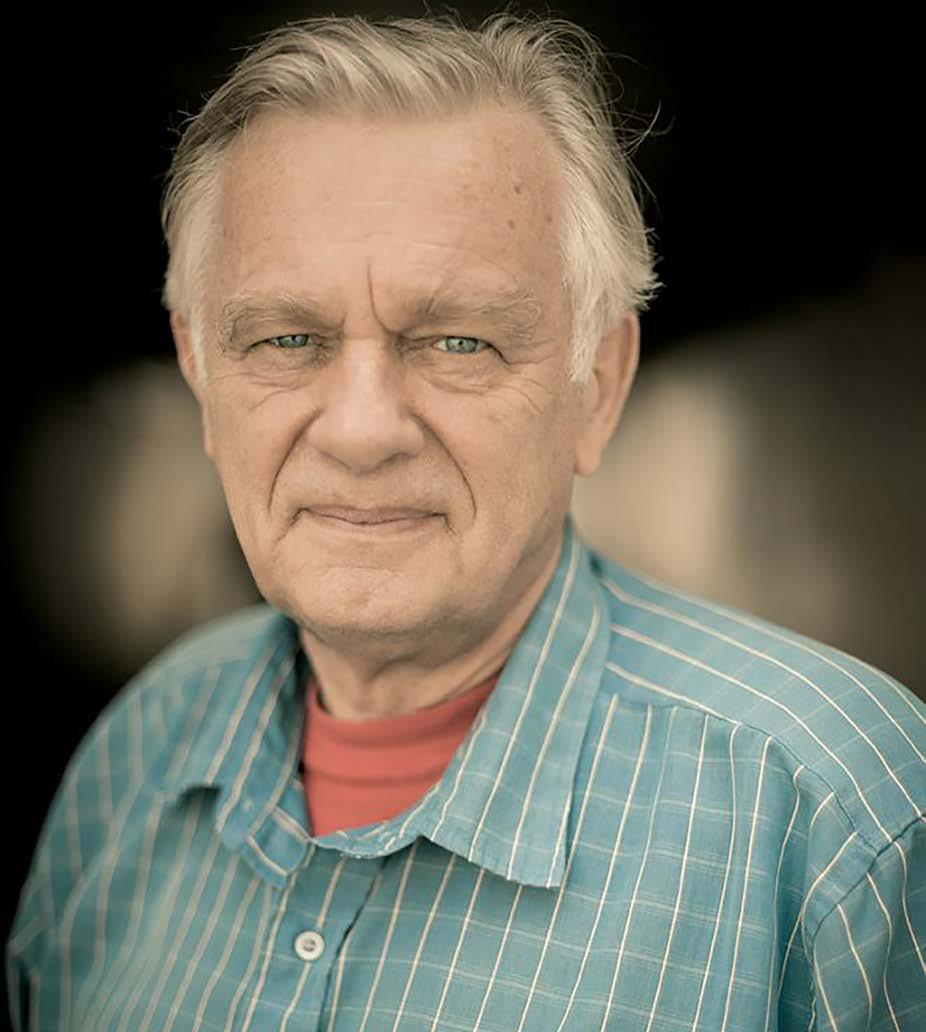
17 FEBRUARY 1948 – 30 APRIL 2023
By Ian McFarlane
SOUNDS OF THE CITY
VALE
Photo by Pierre-Baroni
SOUNDS OF THE CITY
When news broke through on the 1st of May that heroic singer, songwriter, harmonica player, and actor Broderick Smith had died at the age of 75, there was an enormous outpouring of grief and emotion from his fans. I guess there’s no time frame for our collective grief. Smith was eccentric and brilliant in equal measure, and he touched so many people’s hearts with his music. Some commentators have referred to him as “a genuine national treasure”. He’d long ago cemented his place in Australian music folklore as a genuine legend. After touring Australia and the world as a working musician, he had put down roots in the rural Victorian township of Castlemaine.
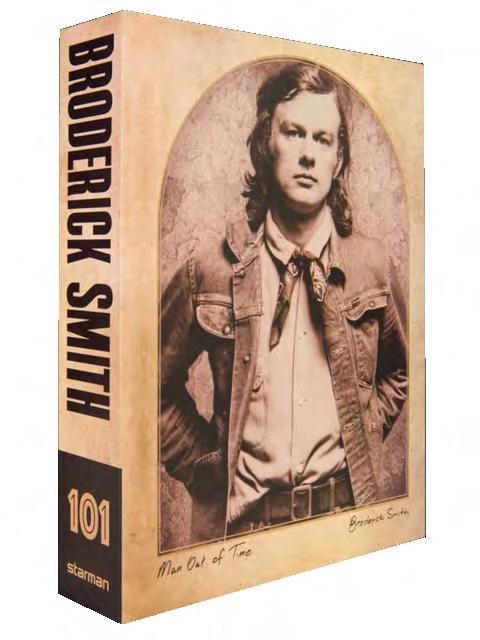
A statement posted to his website said Smith died peacefully at home on April 30. His son, Ambrose Kenny-Smith (from King Gizzard and the Lizard Wizard and The Murlocs) had announced his father’s death during a King Gizzard gig, after which the band left the stage because he felt he couldn’t continue performing. He wrote, “Hope you finally find the holy grail of harmonica tones wherever you are. I love you so much. I am lost without you but the show must go on. Goodbye for now you beautiful lil’ weirdo wombat.”
Anyone who has seen Broderick live, over the course of his career, or cared about his records will have their own stories to tell. So, for me to try and encapsulate his lengthy career in a straightforward obituary is not an easy task. The following will probably only scratch the surface. I was well aware of Broderick’s career, and I got to know him during the 1990s when I interviewed him a couple of times. Following that, he would greet me enthusiastically if I’d see him at gigs. One time I bumped into him at a record shop (he was definitely a music fan and inveterate collector). Yet I didn’t really get to know him on a deep personal level. He asked me to contribute profile pieces to, and compile his discography for, his autobiography Man Out Of Time (published by Starman Books in 2018) and I was chuffed that he did so. >>>
SOUNDS OF THE CITY
problems, producer G. Wayne Thomas got Smith to contribute his lead vocals to the Shud’s ‘First Things First’ for the film soundtrack Morning Of The Earth
During early 1972 Carson’s manager Rhett Walker decided to promote Smith as a solo artist. He recorded two singles for Image, ‘Goin’ On Down To The End Of The World’ (May 1972) and ‘Yesterday It Rained’ (March 1973). They had been written and produced by Brian Cadd. ‘Goin’ On Down To The End Of The World’ reached #34 on the national chart.
>>> English-born Broderick Smith was a permanent fixture on the Melbourne blues scene from the late 1960s onwards. Blessed with a masterful blues voice, he retained an interest in roots music right throughout his career. The singer cited his earliest influences as ranging from blues masters Muddy Waters, John Lee Hooker, Charlie McCoy and Charlie Musselwhite and bands such as the Paul Butterfield Blues Band, The Band and Grateful Dead on to singer songwriters Randy Newman, Van Dyke Parks and David Ackles. He also loved the British Beat and R&B groups of the 1960s: The Rolling Stones, The Pretty Things, Them, The Animals.
Smith was born in Hertfordshire, England. In 1959, as an 11-year-old, he migrated to Australia with his family. They arrived aboard the RMS Orion under the Assisted Passage Migration Scheme (colloquially referred to as Ten Pound Poms). The family eventually settled in St. Albans where he spent his formative years until aged 18. He’d joined his first garage band at the age of 15, then played with The Smokey Hollows and in 1966 joined the Adderley Smith Blues Band which included future Dingoes guitarist Kerryn Tolhurst. A collection of Adderley’s demos (recorded circa 1967) which has circulated among fans for years, features him singing and playing harp on six tracks.
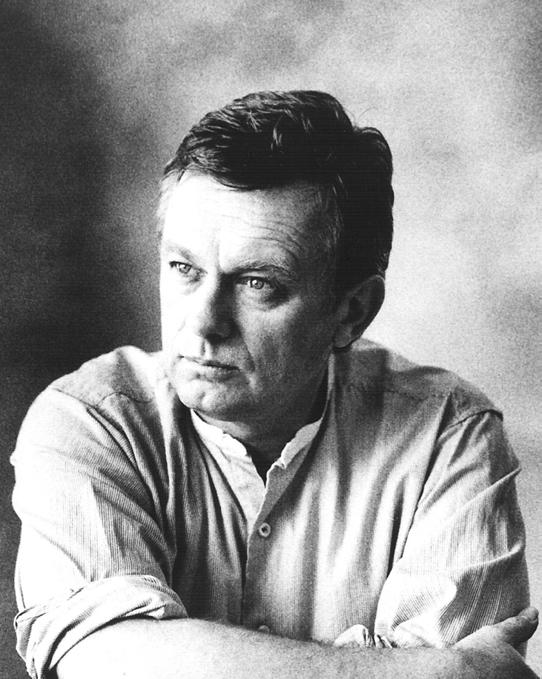
Two years later Smith was drafted for National Service. While stationed at Holsworthy, NSW, he spent his spare time jamming with Sydney bands Peter Miller Jug Band and The Foreday Riders.
Upon his return to Melbourne he sang with Keith Glass’ country band Sundown for a year. In June 1971 he joined boogie blues band Carson, led by slide guitarist Sleepy Greg Lawrie, with whom he recorded two albums, Blown (1972) and On The Air (1973) and issued two singles, ‘Travelling South’ and the hit ‘Boogie (Part One)’. Around this time, when Tamam Shud leader Lindsay Bjerre was suffering voice

With the breakup of Carson in February 1973, Smith took the role of the Father in the local stage production of The Who’s rock opera Tommy. Other cast members included Daryl Braithwaite, Doug Parkinson, Jim Keays, Billy Thorpe, Colleen Hewett, Linda George, Wendy Saddington and Keith Moon. Due to the enormity of the production it was only ever staged twice. In April 1973 Smith joined Tolhurst in the highly acclaimed Melbourne band The Dingoes. Although often described as an Australian country rock band, The Dingoes merged R&B and country with red-hot rock’n’roll to arrive at a unique musical blend. In the early days The Dingoes held court at such legendary venues as the Station Hotel in Prahran.
The band’s debut album, The Dingoes (1974), remains an Australian rock classic. The Top 40 hit singles ‘Way Out West’ (“Living and a-working on the land”), ‘Boy On The Run’ and ‘Smooth Sailing’, plus ‘Come On Down’, ‘The Last Place I Wanna Be’ and ‘Sydney Ladies’ are seared into the grey matter of Australian music fans. ‘Boy On The Run’, which Brod co-wrote with Tolhurst, is one of his most affecting lyrics, and musically I just love the ascending progression towards the end and the way it surges.
Although they were not the first Australian band to do so, they are recognised for the way they wrote songs about where they were from and singing about local subject matters. In 1992 country singer James
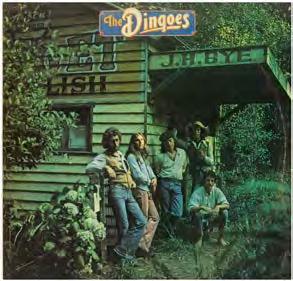
SOUNDS OF THE CITY
Blundell and James Reyne revived ‘Way Out West’, taking it to a new generation of music fans and a national chart high of #2.
The Various Artists album Live At The Station (recorded in March 1976, and issued by David Pepperell and Keith Glass on the Lamington label) featured two tracks by The Dingoes, covers of Percy Sledge’s ‘When A Man Loves A Woman’ and Ron Nagle’s ‘Marijuana Hell’ from his cult classic album Bad Rice (1970). It was a favourite of Smith’s. Fast forward to the early 2000s when I’d bumped into him in a second-hand record store... serendipitously he found that album in the racks, pulled it out and said to me, “Buy this album, you won’t regret it”. I did buy it and I didn’t regret it.
With the powerful backing of Englishman Peter Rudge (tour manager with The Rolling Stones and Lynyrd Skynyrd) The Dingoes spent two years in the USA. Working with veteran producer Elliot F. Mazer (Big Brother and the Holding Company, Linda Ronstadt, Jerry Jeff Walker, Neil Young), Five Times The Sun (1977) turned out to be a strong rock album with a prominent American production sound although the band retained its earthy Australian roots. Highlights included ‘Shine A Light’, ‘Singing Your Song’ and the glorious ‘Waiting For The Tide To Turn’. Rolling Stones’ session pianist Nicky Hopkins and The Band’s Garth Hudson contributed to the album. Through those kinds of connections, Smith played harp on the Cat Stevens track ‘Sweet Jamaica’ (from his album Izitso). There was also a brief studio session with singer Buffy Sainte-Marie but nothing came out of it.
The group had been on the cusp of breaking through but circumstances took a dark turn. They were due to go out on the road in the States with Skynyrd when the tragic plane crash in October 1977, which claimed the life of three members of the American band, scuttled the tour. The Dingoes recorded a final album, Orphans Of The Storm, and single, ‘Into The Night’, before breaking up.
Smith had returned to Australia by the end of 1978 and formed Broderick Smith’s Hired Hands, reuniting with slide guitarist Sleepy Greg Lawrie. The band played jazz funk but was short-lived. By mid1979 he had formed Broderick Smith’s Big Combo with Mick ‘The Reverend’ O’Connor (Hammond organ) and ex-Stars guitarist Mal Eastick. The band built up a strong following on the Melbourne pub scene and signed a deal with Glenn Wheatley’s Wheatley Bros. label. Big Combo recorded a single, ‘Faded Roses’, but the band had broken up before the single appeared in March 1981.
Smith immediately put a new Big Combo line-up on the road in order to promote the record. ‘Faded Roses’ reached the Top 10 in Melbourne and peaked at #31 nationally. Retaining Eastick and O’Connor, and adding Chris Wilson (piano, guitar), Graham Thompson (bass) and John Annas (drums) Big Combo was a phenomenal outfit and the biggest drawcard on the Melbourne scene of the day. They were certainly one of the best bands I saw live during those glory days of Aussie pub rock. >>>
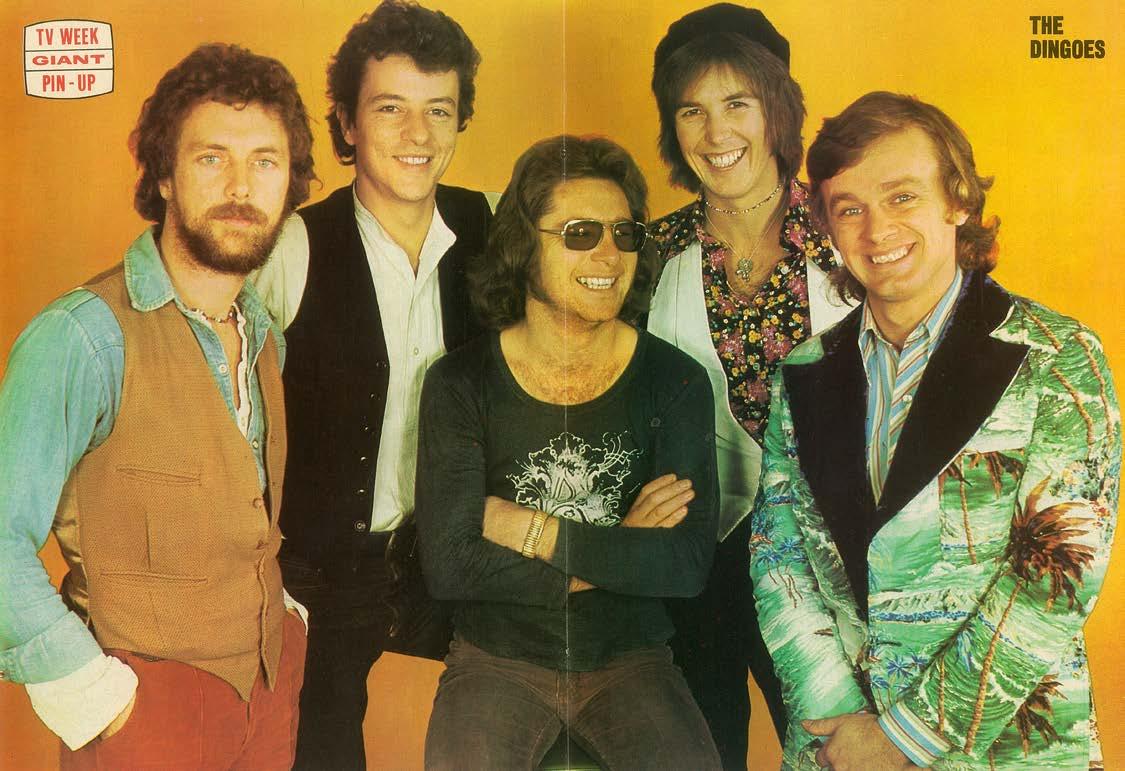 Dingoes 1974
Dingoes 1974
Making full use of The Band-inspired dual keyboard approach underpinned by a tough, bluesy sound, Big Combo proffered a style unique in Australia at that time. With such a powerful band behind him, Smith was able to command the stage and push his peerless, booming voice to ever greater heights.
When I interviewed Smith in 2010, he recalled the background that led to the formation of Big Combo: “I’d already thought about getting a new band together when I was still in the States. While The Dingoes were still going, I’d spent a lot of time wandering around this farm, where we lived, with a large deer hound called Ralph. He and I used to go into this forest where the chipmunks and all that lived. I was making plans for the future because the Dingoes thing was just grinding to a halt and I started thinking about all this stuff I’d loved when I was young; the Animals, the Stones, Chris Farlowe.
“I also loved blues and prior to that I’d been playing more blues, trying desperately to be Muddy Waters, or someone, Sonny Boy Williamson. I liked a lot of that English blues influenced, R&B beat group stuff but I’d never been in a band that played those songs much at all. So, when I came back I thought ‘gee, I wouldn’t mind forming a band with that kind of R&B music as the base and then as we go along we’d start writing’. So that’s how the Big Combo started.”
In the early days, 80% of the band’s live repertoire comprised cover versions. Concentrating on cover versions was a way of establishing a
base of popularity, to draw audiences in, before starting to introduce original songs. Covers included Chris Farlowe’s version of ‘Out Of Time’, Spencer Davis Group’s ‘Gimme Some Loving’, Van Morrison’s ‘Domino’ and ‘Into The Mystic’, Ben E. King’s version of ‘Spanish Harlem’, Small Faces’ ‘Tin Soldier’ and ‘Afterglow (Of Your Love)’, The Animals’ cover of ‘We Gotta Get Out Of This Place’, Randy Newman’s ‘Mama Told Me (Not To Come)’, Free’s ‘My Brother Jake’, Bruce Springsteen’s ‘Badlands’, Patti Smith’s version of Springsteen’s ‘Because The Night’, Jackson Browne’s ‘Here Come Those Tears’, John Fogerty’s ‘Almost Saturday Night’ and Al Green’s ‘Take Me To The River’.
Big Combo issued the album Broderick Smith’s Big Combo (November 1981) and the single ‘My Father’s Hands’ (October). Despite the negative response at the time for the supposedly jingoistic fervour of the lyric line “Lucky to be an Australian”, ‘My Father’s Hands’ was a genuinely affecting song.
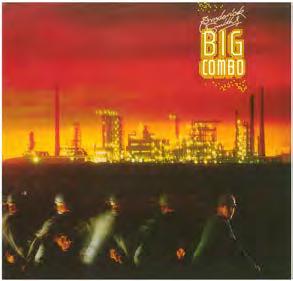

He explained it to me: “‘My Father’s Hands’ was about my father working on the factory floor. It was really about if you work in a factory, say in a car plant in Fisherman’s Bend, or you work in one in Gdańsk or Detroit, you’re still doing the same job but I felt you were much better living here. I mean, it was still a rough, brutal job. I was talking about working in a steel factory. So, when you leave your job you’ve made a much better living here than in those other places. That’s what I was saying; it might not be the best thing and you’re still dreaming about a better life but at least you’re better off living here.
“So, it wasn’t a real chest-beater in that sense, but what it did was it illustrated to me that sometimes with those kinds of things you gotta be really obvious or people don’t pick up on it. So, I’d have people coming up to me who really loved the song because they thought it was jingoistic and then other people hated it because they thought it was jingoistic... And it was kind of not really that at all.”
The album peaked at #38 nationally (#12 in Melbourne), while the single reached #31 nationally and went Top 10 in Melbourne. The songs were all originals, co-written by Smith and various other band members. The album opens with the hard driving ‘Last Train From Mobiltown’ and closes with the tender love song ‘Ruby In The Snow’ which features Smith’s soulful voice in particularly fine form. The musical ebb and flow of the album is maintained throughout, from the hits ‘Faded Roses’ and ‘My Father’s Hands’ to the Springsteen-esque ‘Tightrope’ and ‘Fortune Favours The Bold’, through the R&B flavour of ‘High Rise’ and ‘Back Off Baby Brother’ and on to the more lyrical ‘I Was Here’.
SOUNDS
THE CITY
By that stage Smith, Eastick and O’Connor had taken part in the Andrew Durant Memorial Concert which Eastick had organised in honour of former Stars guitarist/songwriter (the late) Andy Durant.
OF
SOUNDS OF THE CITY
He contributed heartfelt vocals to three Durant songs, ‘Ice Man’, ‘Jupiter Creek’ and ‘Ocean Deep’, which again boasted a soulful, Band-influenced sound. The songs appeared on the live album of the event, The Andrew Durant Memorial Concert (February 1981). Another collaboration featured him singing a duet with Doug Parkinson on his hit cover of The Walker Brothers’ ‘The Sun Ain’t Gonna Shine Anymore’ (July 1981).
Big Combo issued two more singles, ‘High Rise’ (February 1982) and ‘Ruby In The Snow’ (May 1982), after which Smith moved on. In early 1983 he formed the Broderick Smith Band, issuing his debut solo album, Broderick Smith, in June 1984. Twenty-three different musicians contributed to the recording sessions. The album produced four singles, ‘Vision of You’ (July 1983), ‘When I Swim’ (May 1984), ‘Here Comes Trouble’ (August 1984) and ‘Leah’ (1985). He worked with a variety of Broderick Smith Band line-ups well into the 1990s. In 1988 Smith toured with The Noveltones and in May 1991 embarked on a two-month national tour with ex-Chain members Matt Taylor and Phil Manning billed as Blues Power. The band played mostly traditional blues numbers, plus a few favourites from each of the main members’ past bands.
At the end of 1991 Smith signed a new solo deal with Mushroom which resulted in the Suitcase album (September 1992) and the single ‘Snowblind Moon’ (August). In 1993 he supported Joe Cocker on an Australian tour. In 1994 he joined the Melbourne Theatre company, undertaking four roles in the stage play The Grapes Of Wrath. He furthered his acting career with parts in television productions such as Janus, Blue Heelers and Law Of The Land. He signed a new deal with Newmarket Music and issued the album My Shiralee (1994). In 1995 he signed to ABC Music for Songster (November 1995) and Crayon Angels (March 1996). These works were more acoustic based which suited his purposes.
Crayon Angels comprised Smith’s perceptive interpretations of songs by such celebrated American songwriters as Tim Hardin (‘Beautiful Dreamer’), Phil Ochs (‘Jimmy Dean Of Indiana’), Leonard Cohen (‘The Tower Of Song’) and Judee Sill (‘Crayon Angels’). His backing band on the album, The Guild, included Gerry Hale (mandolin, fiddle, autoharp) and acoustic guitarists Matt Walker and Kevin Bennett (from The Flood). His next collaboration with Walker, Unknown Country, came out in 2009. In 2004 he’d contributed to country supergroup The Woodpickers’ second album, Me And Ned Kelly; the band featured Flying Circus’ singer-guitarist Doug Rowe, Bill Chambers and Kevin Bennett.
The Dingoes were inducted into the ARIA Hall of Fame in July 2009 which legitimised their legendary status. After many musical adventures apart, Smith rejoined the other ex-members of the band for a new album, Tracks (August 2010). The likes of ‘Rolling Around The Sun’, ‘No Rain No River’, a reworking of ‘Snowblind Moon’ and toughest new song ‘Damascus Road’ matched the classics from the early days. Original members Smith, Tolhurst, Chris Stockley (guitar) and John Bois (bass) recruited Ashley Davies (drums), Chris Copping (Hammond organ) and Kevin Bennett (backing vocals, guitar) and hit the road for a successful Australian tour. Very few Australian reunion tours have proven to be so satisfying for the fans.
The gig I saw on that tour, at Castlemaine’s Theatre Royal in August 2010, was a revelation. In the review I wrote at the time, I commented: “It was quite a privilege to see a band play live you’ve long admired but never got to see first time around. The Dingoes have reformed for a national tour and they played their fourth gig here in the Central Victorian goldfields town of Castlemaine, co-incidentally the town
that lead singer Broderick Smith now calls home. Yet this is not just any ol’ reunion tour. Not just some hack jaunt around the countryside to relive past glories and rake in the cash. No, this band has a glorious new album, Tracks, to promote and they didn’t put a foot wrong all night, which is excellent considering they haven’t played on stage together since 1978... (another enthusiastic 500 words, followed by) ...They had enough gas left in the tank to return to the stage to sign off with a refined ‘Boy On The Run’ which led into a pile driving ‘Sydney Ladies’. Talk about rocking out! I could have sworn it was a young hard rock blues band doing ‘Crossroads’ it was that intense.”
In 2012, ever the eccentric artist, Smith wrote the short story Eyes Like The Sky which he narrated over music provided by Melbourne band King Gizzard and the Lizard Wizard. The album was described along the lines of “narration from a Spaghetti Western movie over a garage rock band pretending to be Ennio Morricone”. At some stage along the way he also fitted in shows with The Backsliders (I saw them at the Wangaratta Jazz & Blues Festival one year) and Tabasco Tom and Doc White.
Broderick contributed his version of ‘Fleetwood Plain’ to the Kerryn Tolhurst-produced album Some Lonesome Picker The Greg Quill Tribute (June 2016). After many musical adventures, he wrote his autobiography, Man Out Of Time, which Starman Books published in 2018. I attended the book launch, and broadcaster / Rhythms contributor Billy Pinnell (also there) and I have often commented to each other since that it was a fabulous event.
He released his final album, also called Man Out Of Time (produced by Matt Walker) at the time. It featured such sparse, textural and atmospheric songs as ‘The Desert Blooms Again’, ‘The Birds Fell Out Of The Sky’ and the heart-wrenching title track (“When evil is selfrighteous / Everything will run its course / If the pendulum swings too far / It returns with equal force / I’m a man out of time / I’m a man out of place”).
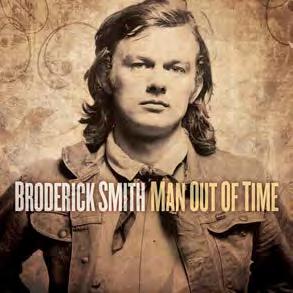
Around this time, documentary film maker Chris Franklin completed his 14-minute short, Broderick Smith, in which the singer talked about the dichotomy of fame as a musician. Franklin has also featured the singer in his most recent doco, Melbourne On Dylan (2023). In recent years Smith was accompanied by keyboardist Richard Tankard or guitarist Shannon Bourne at his live appearances. He was still performing to appreciative audiences until early this year.
In his inimitable way Smith always shared wonderful stories of his music, his life, and of the early years of the Australian music industry. He did have a habit over the years of bamboozling audiences sometimes with his eccentric between-song patter, totally
SOUNDS OF THE CITY
unconnected stream of consciousness, non-sequiturs and off-the-cuff anecdotes. >>>
>>> I can recall seeing the looks on Kerryn Tolhurst’s and Chris Stockley’s faces at these points on stage, yet when it came to delivering the music Broderick was always 100% on top form. He was the perfect, natural front man.
Rest In Peace Broderick Smith. Condolences go out to his family and friends.
Tributes have come from many other sources. Chain guitarist Phil Manning posted on Facebook: “With a heavy heart I mourn the passing of a truly great musician, harmonica player, singer, songwriter and wonderful wordsmith. He was a pure delight to have known and shared the stage with over the years. My deepest condolences go out to his family and friends and all who loved his creative spirit. RIP Broderick Smith.”
Mike Rudd (of Spectrum and Ariel) posted: “When I played-back Phil Manning’s voicemail on Sunday night and he said he was ringing to let me know that Brod had died, I actually dropped the phone in shock. We were both unaware if Brod had any health issues and it’s pointless to speculate, so the news came out of the blue for both of us. Brod’s remarkable voice and dexterous harp playing have been referred to by many in the past couple of days, but Brod the man was obviously a more complex proposition. Perhaps I’ve hesitated to comment before now because I wasn’t sure that Brod mightn’t reappear claiming that he’d simply slept in. Brod’s sense of humour ranged from wry to acutely absurdist and his wayward commentary between songs often ran an independent course to the music. On seeing all the photos of Brod emerge from different eras you’d say that he was a handsome young devil and he only became more ruggedly good-looking as he
got older. On the other hand his dress sense was strictly come-as-youare and you knew that for him the music said it all.”
Writer David Pepperell commented: “Broderick Smith, who sadly passed away last night, was the finest male singer of his generation - forget about Farnham, Brod was THE Voice. Who could forget his wonderful performances as lead singer of the Adderley Smith Blues Band, Carson and the magnificent Dingoes, Australia’s best ever blues/ roots band, his rich, vibrant tones filling the room with love and light and happiness? I came across him in the Adderleys and was entranced by his voice and his peerless harmonica playing. Here I thought is a true rival for Van Morrison and Joe Cocker as the world’s finest white blues shouter, here is a harp player who can actually compete with Little Walter, here is a man who understands the essence of the Blues.

“I was there at the gestation of The Dingoes, did the first big story about them in GoSet and must have seen them play a hundred times. His vocals on ‘Way Out West’ and Andy Durant’s final song defy description and move my heart every time I hear them played. He was my dear friend, always a total pleasure to meet and chat with and a deep, thoughtful person who often considered his place in the world and the meaning of his life. I cannot believe I will never see him again, will never have the extreme delight of his company, be overwhelmed by the deluge of his interests and enthusiasms. RIP dear brother.” RocKwiz compère and all-round MC Brian Nankervis wrote: “Broderick Smith. One of our greatest singers, a brilliant harmonica player, fine songwriter and a charismatic performer. One of those front men you couldn’t take your eyes off. In person he was charming and sweet, deep thinking and a little private. Funny, political, proud. But on stage, prowling, pacing, commanding the space, he was mercurial and larger than life … with between song chats that were hilarious. Or absurdist!”
BRODERICK SMITH ALBUM DISCOGRAPHY
Carson – Blown (EMI Harvest, 1972); On The Air (EMI Harvest, 1973); Travelling Highway Blues
The Best Of Carson (Raven, 2000)
The Dingoes – The Dingoes (Mushroom, 1974); Five Times The Sun (A&M, 1977); Orphans Of The Storm (A&M, 1979); Way Out West The Best Of The Dingoes (Mushroom, 1992); Five Times The Sun... And Other Delicacies (A&M, 1995); Tracks (Liberation, 2010); Live At Last (Liberation, 2011)
Broderick Smith’s Big Combo – Broderick Smith’s Big Combo (Wheatley, 1981)
Broderick Smith – Broderick Smith (Wheatley, 1983); Suitcase (Mushroom, 1992); My Shiralee (Newmarket, 1994); Songster (ABC, 1995); Crayon Angels (ABC, 1996); Too Easy (Newmarket, 2002); Journal The Best Of Broderick Smith (Redbird Music, 2004); Unknown Country (Liberation, 2009); Man Out Of Time (Bloodlines, 2018)
King Gizzard And The Lizard Wizard - Story written and narrated by Broderick Smith –Eyes Like The Sky (Flightless, 2013)
Vale Sleepy Greg Lawrie
By Ian McFarlane
You Am I front man Tim Rogers put it succinctly: “Vale the charming, wistful,
We also got the sad news that redoubtable guitarist Sleepy Greg Lawrie has died. He was acknowledged as one of the premier slide guitar stylists on the 1970s Australian rock scene, matching it with the likes of Kevin Borich, Norm Roue and Peter Wells. He is best remembered as the guiding light behind one of the great bluesboogie jamming bands of the era, the mighty Carson. As well as bottleneck slide, he also excelled at Dobro.
He’d come up through the 1960s scene as a member of the wild and uninhibited Creatures. Led by the Marcic brothers Herman, Rudolph and Eric, Lawrie replaced Eric in early 1967 and played on – and co-wrote with singer Keith Matcham – their legendary garage rock single ‘Ugly Thing’. The song has assumed a life of its own, going on to be recognised worldwide as one of the great Oz Rock singles, synonymous with the best early Nuggets garage punk era rock. Reissue specialist label Raven Records titled their 1980s series of Aussie 1960s garage compilations Ugly Things in honour of the side, while Californian Mike Stax launched his longrunning Ugly Things magazine in 1983 as a tribute.
I got to know Greg in the late 1990s, when I helped compile the Carson compilation CD Travelling Highway Blues for Raven. I remember him as a softly spoken, unassuming guy whose passion for the blues was unbounded. I interviewed him several times over the years. He recalled his early days thus: “I started out on the Brisbane blues scene in the mid-1960s, watching bands like The Purple Hearts and Bay City Union. Lobby Loyde and Matt Taylor were the first guys on the local scene who inspired me to play the blues. I joined The Creatures in 1967 when they were playing a residency in Surfer’s Paradise. When I went with them down to Melbourne, we stopped off in Sydney on the way through to record ‘Ugly Thing’.”
By 1968 The Creatures had transformed into The Chocolate (one single, ‘I’m An Animal’) but at the end of 1969 Lawrie started learning slide guitar and set his sights on forming a blues band. He assumed his shut-eye appellation at that time, due to the fact that whenever he took a slide solo he’d close his eyes while getting lost in the moment. Of course, to everyone else it looked for all the world that he was asleep on stage!
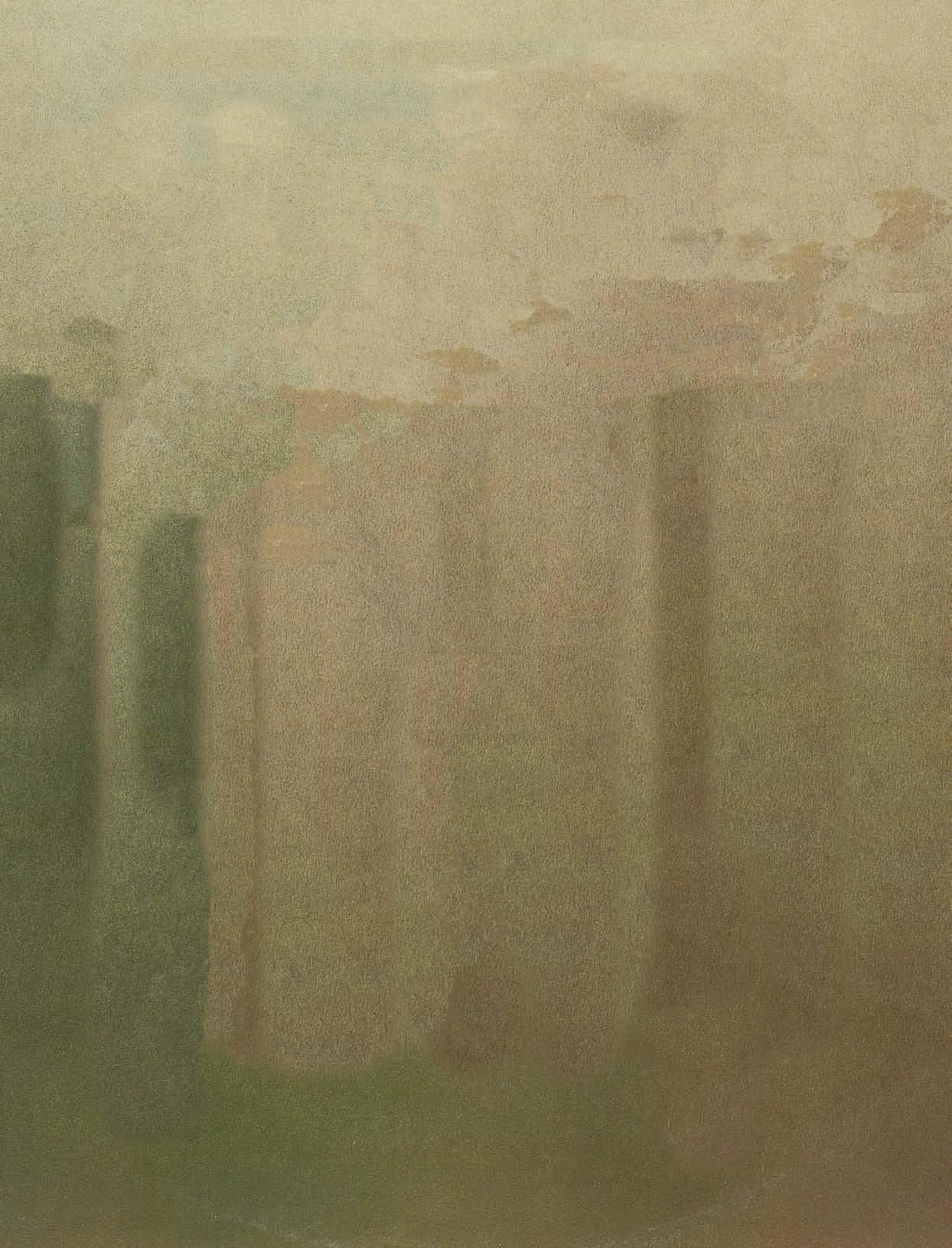
He explained to me how he came to embrace the blues: “At that time, I discovered the blues recordings from the Library of Congress, the John and Alan Lomax recordings. They’d gone out into the fields and prisons around the States, in the 1930s and ’40s, and found all these early blues artists and I got to hear these recordings. After that I couldn’t go anywhere else musically, I just wanted to try and get a rock and roll blues band going at that point and try and see what I could learn about slide guitar playing in a hurry.”
powerful, hilarious Broderick Smith.”
Between February 1970 to February 1973, Carson shared stages on the festival, pub and concert circuit with all the other big-name bands of the day: Chain, Billy Thorpe and the Aztecs, Healing Force, Coloured Balls, Madder Lake, La De Das, Spectrum, Daddy Cool, King Harvest etc. It’s often tempting to compare Carson with Chain but essentially the two bands offered entirely different propositions in their approaches to the blues.
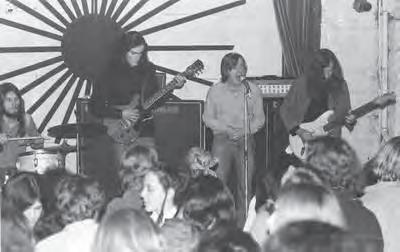
They enthralled audiences with their jamming chops, their cookin’ hot blues, boogie and hard rock’n’roll. Their early recordings (as Carson County Band) are good examples of an earthy, clattering Chicago blues / Canned Heat-influenced sound. By the time they’d recorded Blown (1972) and the live album On The Air (1973) they’d developed a powerful combination of free flowing boogie and bluesy hard rock with jazz overtones. To the general listening public they will forever be remembered for their hit single ‘Boogie (Part One)’.
“Carson really fired on stage, that’s where we were in our element,” Lawrie confirmed. “We got into all these extended jams, improvisational things, where everyone would take a solo. Apart from the things we recorded in the studio, we didn’t have a lot of structure to the arrangements. You just couldn’t stop the thing, but it was a really positive vibe. Audiences appreciated that sort of thing at the time.”
There’s amazing footage of Carson performing on the Sunbury 1973 stage, doing a 10-minute version of ‘Boogie’. Being able to sit on the one consistently powerful riff and rhythm for that long is quite a feat. And Broderick Smith is a leaping madman, just off his face (he’d dropped an acid tab just before going on stage). After Carson disbanded, Lawrie played slide on Chain’s album Two Of A Kind (1973) as well as playing on Matt Taylor’s albums Straight As A Die (1973) and Music (1974), plus his hit single ‘I Remember When I Was Young’. He worked with Taylor when he was one of the tour supports on the First Australian Blues/ Rock Festival tour which took place in March 1975. The overseas contingent consisted of Freddie King, Alexis Korner, Sonny Terry and Brownie McGhee, Hound Dog Taylor and the HouseRockers and Duster Bennett. This remained one of Lawrie’s most treasured touring memories.
Lawrie then worked with Gulliver’s Travels, Broderick Smith’s Hired Hands, The Whittle Family and Last Chance Band (with Ross Hannaford). During the 1980s onwards, he would often remerge for various gigs, including a mid-80s Carson reunion. In later years he was essentially a recluse, living a quiet life along the Victorian coastline near Phillip Island yet still playing his beloved blues music.
SOUNDS OF THE CITY
The Pleasures is a two-headed beast of a project, a band built around a set of country/blues songs where a warring couple are going at each other in verse rather than – or maybe as well as –in the flesh; a classic duets album where love isn’t merely dangerous, it should be illegal in every state; a mess of fireball and spitball, vitriol and, well, vitriol that makes Tammy and George look like romantic softies.
It’s a great concept, but you might suspect that Catherine Britt and Lachlan Bryan, along with bassist Damian Cafarella and drummer Brad Bergen, constructed this sideline from their usual projects (her decades-long solo career on both sides of the Pacific; his almost as long a time fronting Lachlan Bryan and The Wyldes) for nefarious country music fan motives. Specifically, so they could use this song title, including brackets: ‘You Made Another Woman (Out Of Me)’.
If that isn’t a song name these two could use as the lynchpin of their album, The Beginning Of The End, they should hand in all of their Golden Guitars.
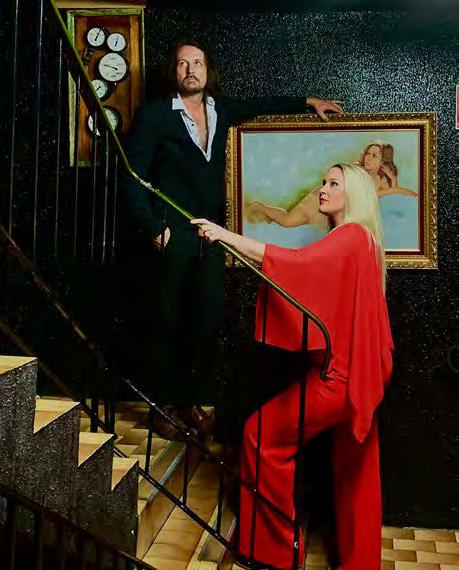
Britt points the finger at her collaborator for that one.
“Most of the songs we really did write together,” Bryan says. “But that was a song I had the verse for and had the title written, and I knew immediately that I wanted the brackets. I have a bit of a thing for song titles that include brackets.
“Luckily, that was one that Cate jumped on as well. Any other idea I brought in she immediately dismissed.” Reader: he lies. Sadly, while the back-and-forth/slash and burn, of the songs might offer hope of some incendiary action originally in the songwriting or today when these two come together for the interview – albeit from their homes at opposite ends of the East Coast – the combination starts with friendship, travels with ease, and concludes amicably.
“We’ve managed to be the kind of friends that have largely ignored each other’s behaviour for years,” he says. She chuckles, and adds “un-judged”. Unlike some of the exes who might well be bundled up in the two central characters of the album, people who feel decidedly judged.
“The best songs come from reality,” says Britt, and there’s no shortage of that here, beginning with the beginning.
“For Lach and I this project was so random in a way. It started when I sent him a drunk text message asking to work together, and thankfully he said yes.”
Straight away?
“The next day, because he was sober and in bed [when she had texted],” she smirks. “Well done Lachlan.”
Her original plan was maybe a song, probably a duet, but something anyway. As she points out “It’s really hard in this industry, particularly the small wing we are in, to find like-minded people”, and you can’t waste that.
“I’d just left my husband, I was in a bit of a state, and I’d always loved Lach as a friend, and we got along musically,” says Britt. “My ex-husband didn’t really like Lachlan that much [”I’m just learning that now,” Bryan says.] And I was like, screw him, I’m gonna work with whoever I want to.”
The songs came quickly when she flew down to Melbourne to write and lay down a few tracks. “I was like, what was that?” she remembers, as a possible EP became a full-length album.
“The good thing was, I was going through a really hectic time in my life, so we were able to draw upon it, and that definitely played a huge role in the majority of this album, my shitty heartbreak and life at the time.”
Bryan confesses that “I try not to make my shitty heartbreaks so public; mine were deeper, darker secrets”, and adds that co-writing has never really been a comfortable experience for him, especially when he felt he had to be nice to the potential collaborator even if he didn’t like their idea much.
“There’s a lot of someone will say a line and you’re thinking in your head, that’s an absolute piece of shit, but you can’t say that because this is a vulnerable person on the other side of the table. What I really liked about working with Cate is we know each other well enough that she will just say if it’s a piece of shit.”
He will also confirm that “that kind of honesty, she applies that to every conversation in her life”. This may not come as a surprise to others who have dealt with Britt of course, though Bryan is only just managing that level of honesty/directness/bluntness outside the song writing room, admitting that “partners I have had have been much better in real life at articulating the problems with me than I have with them. I have buried them in songs”.
It gets trickier though, or maybe more useful, in that the old Bryan behaviour was not unfamiliar to Britt.
“Where it felt easy to sing and to write parts of these songs is, honestly, I’ve often been the exact character that Catherine is singing about,” he says. “As much as I am on Cate’s side, I can see there are two sides to all this.
Even if she didn’t always agree with an opposing perspective, for Britt the benefits are real
“This band has been really good for me, from talking from a purely selfish point of view,” she says. “I needed that outlet and I didn’t have it in my life. A lot of healing came from this project and it was good to have Lachlan to keep me balanced and keep the songs in a place that could be sung the way that we do sing them.
“He’s giving his point of view, and I’m giving mine. This was special about it: it has those two sides.”
Two sides, and they both burn.
The Beginning Of The End is out August 4 via MGM.
21
By Jeff Jenkins
Has any artist given more to Australian music than Ross Wilson?

As Rhythms’ Ian McFarlane states in his indispensable Encyclopedia of Australian Rock and Pop: “The tenacious Ross ‘The Boss’ Wilson has given more to the institution of Australian rock and pop than can ever possibly be repaid.”
At school, Wilson’s mates called him “Willy”. Daddy Cool drummer Gary Young and legendary roadie Graham “Scrooge” Madigan called him “Budge”, which Wilson believes was short for budgerigar, a reference to his pointed nose. But to the rest of us, he is “Ross the Boss”.
Wilson was still at high school when he released his first record – The Pink Finks’ raucous cover of ‘Louie Louie’ in 1965. Six years later, Wilson delivered Australia’s ultimate party anthem, ‘Eagle Rock’. The song – the longest-running Australian charttopper until Tones and I’s ‘Dance Monkey’ –inspired fans and musicians.
Elton John heard ‘Eagle Rock’ when he first toured Australia in October 1971 and the song was the catalyst for his 1973 hit ‘Crocodile Rock’, which topped the US charts. “Daddy Cool are one of the most impressive bands I’ve ever heard,” Elton said. “And ‘Eagle Rock’ is one of my favourite tracks of all time.”
Inexplicably, ‘Eagle Rock’ did not become a worldwide hit, but Daddy Cool did make an international impact. The Heartbreakers’ Benmont Tench recalls it was “one of the first records I bonded with Tom Petty and Mike Campbell over … all three of us discovered that we loved this record by this band named Daddy Cool, an Australian band that was just fantastic.”
After Daddy Cool split, Ross Wilson discovered and produced the recordbreaking Skyhooks, before returning to his own music with Mondo Rock.
Was fame different second time ’round? “It was,” Wilson says. “I was better equipped,
more media-savvy and self-aware. But I’ve got to say it still takes its toll. The glare of the media spotlight and the endless touring can drive you mad. It took longer, but it still drove me nuts after a while.”
But Wilson is still making music. And his new EP, She’s Stuck On Facebook All The Time, recaptures the unadulterated joy of the Daddy Cool days. Call him granddaddy cool, Wilson still knows how to light up a room.
The title track is a tragicomedy about a guy who’s got the blues – he’s not getting enough loving ’cause his partner is spending all her time on social media.
Wilson refined the song after playing it live. “I was originally singing, ‘She’s on the Facebook all the time’, which I thought was funny and how an old blues guy would say it. But I had some young people tell me, ‘It’s not called the Facebook, it’s just Facebook.’”
Wilson also has fun with ‘Desolation Blues’, a wry take on the state of the world, where music is one of the few saving graces, with “John Lee Hooker on the stereo” and “fresh strings zinging on my Fender axe, band playing like maniacs”.
Is any other 75-year-old having this much fun?
Then there’s ‘No Fool Quite Like Me’, which tells the tale of an old guy with a younger woman. “There’s no fool like an old fool,” Wilson sings.
“It’s not necessarily about me,” he laughs. “It’s an impressionistic thing about various people. It could be me, it could be someone else; I’m just painting a picture of a scene. It’s like writing a book – yeah, there are things you might have experienced, but it’s a work of fiction … and hopefully it’s funny.”
The four-song EP is Wilson’s first new music since his 2010 solo album I Come In Peace (and for the trainspotters, it’s his first EP since Mondo Rock’s Aliens in 1987). “It’s definitely overdue,” says Wilson, who is also planning a new album.
Fifty-eight years after his first record, Ross Wilson remains at the peak of his powers.
22

23
As band names go, Cash Savage and The Last Drinks isn’t a promise or a threat, but the kind of band that spreads across your consciousness the way they – all seven of them – spread across a stage. You can hear tense post-punk nudging against muscular folk/rock, power age rock stood just behind far horizon songs that ache with space, and a surprising level of tenderness in plainspoken tones sharing space with critiques of late-period capitalism and unforgiving questions of straight male “normality” There’s a new album from them, called So This Is Love, which both lives up to its title and digs in a lot further still, sometimes in uncomfortable ways as mental illness is as frankly discussed as crass exploitation. It’s the band’s first in five years. A few things have happened to, and around, Savage since 2018’s Good Citizens. You may be familiar with some.
Doing a zoom call is “almost triggering for me” says Savage from her Melbourne home. “For a moment I’m like, can I leave the house? Am I okay? Yes, I can.”
“I always feel like I need to go get a beer when the 40 minutes goes up. I’m conditioned: oh, it’s beer time! Then I'm like no, no it’s the middle of the day and you are in a meeting, don’t get a beer.”
As a sometimes-footy coach as well as musician, does she have an official beer o’clock? 11am too early; midday kick-off?
“Not anymore. During lockdown I had a 4pm one.”
No breakfast beers?
“Now I drink big at times – like when I’m drinking, I drink beer – but otherwise I don’t drink. So no, I don’t often think about having a beer at 11 o’clock in the morning. Unless my Zoom meeting finishes …”
Speaking of Covid habits, during lockdowns when she moved back to Port Albert, in Gippsland more than 200 km out of Melbourne, did she pick up some life skills, or improve any? Whittling? Homebrewing?
“I did teach myself – I’m not sure if I’m supposed to tell you this – a series of knots. All different rope knots. I thought what would be a cool thing to learn that no one knows you know but then in the right moment you are like, ‘well actually, I know a half hitch, I can fix that for you’,” Savage says. “So, I taught myself a bunch of knots, which I’ve since completely forgotten.”
Well, maybe it’s like riding a bike: put a rope in Cash Savage’s hand and it might all come flooding back without thinking about it if she is making a double fisherman’s knot or a Carrick bend.
“I tried to do a lot of things with my hands : I built a lot of things,” she says. “One of the skills I became really good at is talking to people with mental illness: I really brushed up on that knowledge and learnt a lot of language around mental illness. But yeah, what did I do? I did a lot of fishing: I found a lot of solace in that. I became a better cook, but as soon as the last lockdowns were upon us, I couldn’t fathom the idea of cooking any more so I would just eat the worst foods.
“After making these incredible dishes after catching fish, getting things out of the garden, I went to eating pea and ham soup in a tin. Until someone saw the tin and then I felt such a shame that I stopped.”
Presumably she did the smart thing and decanted those tins into a big pot, so it looked like home-made kept in the fridge.
“No, I didn’t do that unfortunately. When my daughter is with me now I cook and we have good healthy meals; when she’s not around … yeah, I can’t be bothered with that anymore.”
Shame or not, let’s face it, Savage is going to be a lot more useful in the Apocalypse than someone like, um, me: she can tie a knot, fish, cook, and then sing you a song about everything.
“Hmm,” she says doubtfully. “Let’s check back in in 10 years. A postapocalypse check-in.”
We shouldn’t forget that there was one other skill she picked up, though back in Melbourne this time, after lockdown: DJing. Just how skilled is she on the decks? And will she really answer to the stage name Cash Daddy?

“I don’t really use decks; I use a mixer and stuff on my computer. I don’t know, I feel I’m getting better at it. I think it’s one of those things that as soon as you are paid to do something then you are that thing. I guess it’s a very capitalistic definition of professions, but I am paid to be a DJ, therefore I am definitely a DJ,” he says.
“When I first started DJing I was doing very basic starting and stopping of tracks. Now I do a lot more than that, because that was boring. And [collaborator, Melbourne techno musician] Carlson’s always
24
Cash Savage and The Last Drinks’ new album, So This Is Love, both lives up to its title and digs in a lot further still. By
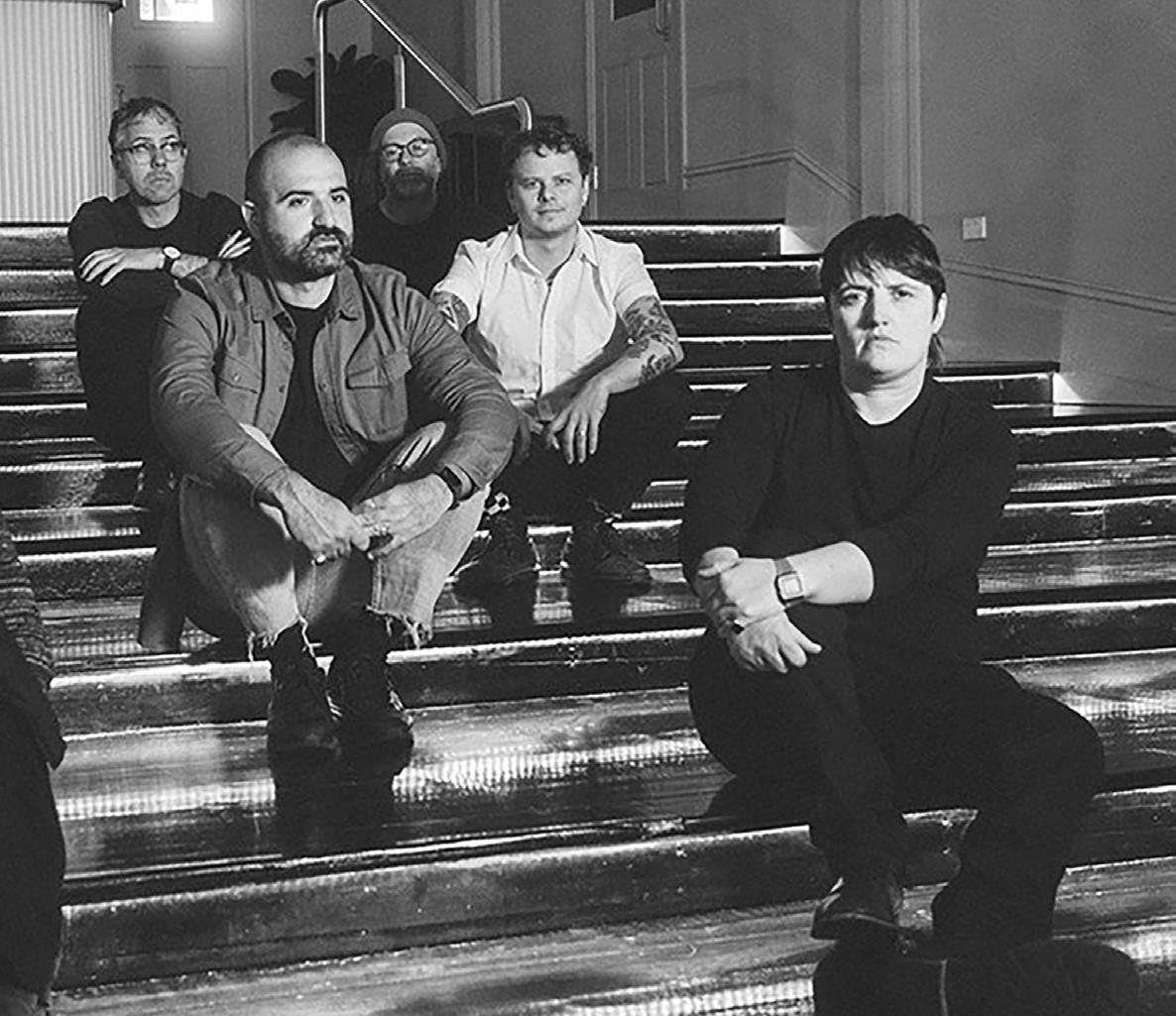 Bernard Zuel
Bernard Zuel
encouraged me to fuck with the tracks a little bit, so I do now. He has stopped encouraging me, so maybe I’ve fucked with them too much [she chuckles]. That’s something I picked up post-lockdown. I bought a brand-new piece of equipment, that I’ve never used before, and the first time I used it was at Meredith. Before we went on stage I said to him, this will definitely be the worst I’ll ever be at this piece of equipment.”
Does she have a signature move or sound in her DJ mode?
“Not really. It’s not really my gig, you know. The great thing about DJing does for me is I get to take out all of my – well not all of them – disappointment in the patriarchy on Carlson, and he takes it. So, I get to rip on him for being a white man, a white CIS man, and the
crowd seems to really enjoy that I’m ripping on the white CIS man in the room. So good on him for encouraging that and taking on my criticisms, or observations.
“So maybe my signature move is ripping Carlson through the whole gig.”
It’s good that we CIS men of a certain age, still have a purpose as fronts for the patriarchy. Otherwise, absent that, we would be even more useless.
“Well unfortunately, with your uselessness, you have all the power,” Savage says pitilessly. “So, you’re not quite useless.”
Teach us to tie knots and watch out world!
25
When the music documentary Big Star: Nothing Can Hurt Me dropped back in 2012 - looking at the fascinating career of beloved Memphis ‘70s power-pop legends Big Star - the band’s founding drummer Jody Stephens reached out to his LA-based musician friend Luther Russell to help him present some Big Star songs during the film’s promotional obligations.
By Brian Wise.
As the last surviving member of the original Big Star - his founding bandmates Chris Bell, Alex Chilton and Andy Hummel having all sadly passed away in the intervening years - it was up to the percussionist to fly the flag on their behalf.
But as he and his friend learned and eventually performed the clutch of timeless Big Star classics - with Stephens, who sang a few album tracks back in the day, taking lead vocals - it became quickly apparent that the pair shared a strong musical bond of their own.

Given these auspicious beginnings it’s little surprise that Those Pretty Wrongs - the band currently shared by Stephens and Russell, and who just released their excellent third album Holiday Camp - sound remarkably like Big Star, their jangly guitars, stirring melodies and cosmic harmonies instantly recognisable for fans of the Memphis icons.
Stephens has played with many other fine musicians over the journeymost notably making two albums with alt-country supergroup Golden Smog alongside members of bands such as Wilco and The Jayhawks - but it’s the music he began making as a teenager back at the very start of the ‘70s which is still guiding his current endeavours, even if he himself refuses to take credit for his new band’s aesthetic.
“I’m not clever enough to work out a direction,” he laughs. “I’ve been doing this a while, and it just kind of comes out the way it is. The direction is the result of all this musical input I’ve had over the years from people like Alex and Chris and Andy and the Golden Smog guys, and of course being a Beatles fanatic and adoring all of the British Invasion stuff.”
Obviously growing up in Memphis during the halcyon days of Stax Records in the ‘60s fed into his own music as well.
“Definitely, that’s how I started out,” Stephens smiles. “My brother Jimmy and I had a band, we rehearsed in my mother’s den. It was a really small house we lived in and they’d sort of sequester themselves in the bedroom and tolerate it. We did all British Invasion stuff first,
but then Stax hit for us in ’68 and the impact for us was astounding. They call it soul music for a reason.
“That vortex of creativity that happened there on the intersection of College St and McLemore was kinda mind-blowing. Estelle Axton and Jim Stewart were the founders [of Stax], and then [Estelle’s son] Packy Axton brought along some friends that included Steve Cropper and “Duck” Dunn and Don Nix and folks like that, and then David Porter and Isaac Hayes and Booker T all came from the neighbourhood - it was astounding.”
Another thing that’s remained a constant for Stephens is his love of British pop, an enduring passion which even inadvertently influenced the title and content of Holiday Camp

“The whole ‘holiday camp’ concept is a little dark,” he explains. “It came from watching Peter Jackson’s documentary The Beatles: Get Back and John Lennon was talking about ‘We just got back from India and holiday camp’ and I thought, ‘Oh, what an interesting turn of phrase’.

“We’d say ‘we just got back from vacation’ or something but holiday camp just sounded really cool, in part because Lennon said it but also because The Who had the song ‘Tommy’s Holiday Camp’ [on 1969 album Tommy] and that was really dark.
“Luther always creates our artwork, so what he did with the front and back cover was a little spooky to tie in with all of that. But the lyrics of a tune like ‘New September Song’ tie in as well - “the frogs of a summer night sing, and bonfires illuminate the trees, layered ribbons of a cool, cool breeze, announcing fall’s awakening” and “Just to be in the friendly glow of those I love, those I know” - it’s all part of that gathering and community and almost a summer camp vibe, evoking the end of summer and summer camp.
“I suppose at a particular moment in your life - over two or three or four months - there may be some thematic thread weaving through your life, and Holiday Camp was a result of what was happening in
28
that regard with Luther and I as we swapped ideas. We work really well together, it’s exciting.”
Memphis institution Ardent Studios has also loomed large in Stephens’ story for decades, the place where Big Star recorded all of their music also where the musician has worked since being taken under the wing of owner John Fry whilst making those early albums (and where he’s been Studio Manager for more than three decades now).
“We’ve tracked all three Those Pretty Wrongs records at Ardent,” he continues. “We do as much as we can there, and then Luther takes it back to Jason Hiller’s studio where he’ll do a few more overdubs, and Danny De La Matyr will join us and in this case [Wilco multiinstrumentalist] Pat Sansone added some mellotron on ‘Scream’ and some Moog on ‘Always The Rainbow’.
“Pat’s involvement transpired by a lucky accident - running into him at an event he was hosting at The Music Library in Memphis - but his parts on those songs are just brilliant, everything that I hoped it would be and more. We’re very lucky like that - I suppose if you aren’t a jerk you make friends over the years.
“But Ardent is a very special place to me - always was and still is. John Fry was kind of the father of my professional career, and I was first introduced to John in the old Ardent on National Street in March of ’70, and then John built where we are now from scratch and we moved in there in November of ’71 - over the Thanksgiving holiday - and over the years so many incredible things have happened at Ardent.
“When you walk in the studio through those doors the energy from that is palpable and you know that magic can happen in that space. That vibe or whatever it is just helps you along and boosts the creative effort, it’s inspiring just to be there.”
On their impending Australian visit Stephens and Russell will be dipping into both the Big Star and Those Pretty Wrongs canons, and the veteran is revelling in being able to look forward and backwards at the same time.
“Of course it’s great, I’m a lucky guy,” he grins. “I get to play that music and experience it and share it all over again. It’s not anything I tire of. They’re beautiful songs that Andy and Chris and Alex wrote. It’s so great to share those songs and keep them alive, and obviously if it wasn’t for Big Star we wouldn’t be doing these tours because it gives Luther and I a little platform for us to share our music from, one we wouldn’t have if I hadn’t been a member of Big Star.”
Stephens seems remarkable unfazed about the wild ride he experienced as a member of that band, who were critically adored during their own tenure and have proved incredibly influential with the passing of time - artists such as The Replacements, R.E.M., Wilco, Teenage Fanclub and Evan Dando all acknowledging the vast debt they owe to Big Star - but who were also destined to fail commercially, largely due to factors beyond their control (such as shoddy label distribution).

“If it had happened the other way around who knows what might have happened, it might have ended really badly,” he ponders. “As it was Chris died early in ’78, Alex went on to have his solo career, I went on to work at Ardent - I’ve bene there 36 years - and Andy went off and started a family and was making a great living for himself, I think he wound up with a Masters in Finance.
“So when you look at it like that it all worked out really well, and coming back to it in ’93 - when Alex and I got together and reformed Big Star with Jon Auer and Ken Stringfellow [of The Posies] - that was really lucky for me, because it got me back into music. I hadn’t played in nearly three years and it go me engaged again and set me off on this journey of getting to meet and play with people that I have a tremendous amount of admiration and respect for.
“So, we’ve all had nice lives, and sometimes you can’t pick or choose how things are going to happen or develop. But I’m glad how things have turned out, right now I’m really happy and have no regrets whatsoever. We’re coming back to Australia, how can things be bad?”

29
Luther Russell is the other member of Those Pretty Wrongs and has worked with Jakob Dylan in The Bootheels, had his own band The Freewheelers and produced other artists such as Richmond Fontaine. With Jody Stephens he has found a musical soul mate. By Brian Wise.
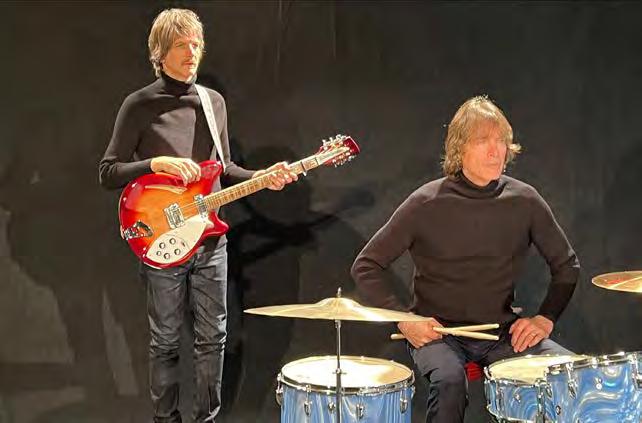
“Well, we’ve known each other a really long time since about 1992,” explains Luther Russell on how he teamed up with Jody Stephens of Big Star. “I don’t believe we played together until Jody and I went out to dinner. He was in town, in Los Angeles and we had a great dinner and a nice time. Then, that was it. It wasn’t too long after that I got a call from him because he was about to promote the Big Star documentary [Nothing Can Hurt Me]. They wanted him to do some music stuff in Los Angeles. And he had just seen me, and I was probably fresh in his mind and he knew that I knew how to play that stuff. I think when we first got together to rehearse for that, we noticed a blend right away just singing the Big Star songs. So, that kicked it off. We did some gigs but we started thinking maybe we should write together and see how that goes. That was that in a nutshell.”
“I got turned on to Big Star sometime when I was a teenager,” replies Russell when I ask if he was aware of the Big Star legend when he met Jody. “Actually, at the time I met Jody I was already a big fan of Big Star and that would’ve been back in ‘92. So, by this time, I just knew how to play a lot of that stuff. When he asked me it was an easy ask because we were friends and I knew how to play it.”
Apart from playing music from their two albums as Those Pretty Wrongs, Stephens and Russell will also be playing some Big Star songs. While Stephens will sing some of the songs that he either wrote or sang in Big Star such as ‘Way Out West’, ‘The India Song’, ‘For You’ or ‘February’s Quiet’ [on In Space].
“I tend to be best at the Alex type of stuff,” adds Russell. “We’ve done Chris Bell stuff in the past. We did ‘You and Your Sister’ quite a bit. So, we’re thinking of maybe doing that but I tend to be good on some of the Alex stuff, and we have a similar timbre sometimes.”
The new Those Pretty Wrongs album opens with ‘New September Song’, an obvious nod to Big Star and its classic ‘September Song.’

“I’m really excited about Jody’s renaissance right now and just where he’s at creatively on this new record,” Russell enthuses. “I’m
excited to do this new material. Even the last record was, I thought, really strong. But with this new material I feel like Jody’s really firing on all cylinders and he’s coming out of the gate swinging with his lead vocals. It’s exciting to play together because what we do together is just so easy now. I think when we first met you, we were just getting on the horse, on the saddle with that stuff. We’ve been pounding away at it and this is the first time it really feels easy So, I’m excited for people to hear what he’s got to deliver.
“It’s funny when you have a chemistry - all you can do is either fight against it or submit to it. The chemistry is really just there. It’s undeniable but you just don’t know that at first. It’s funny.”
Seeing Jody Stephens reminds me of Oscar Wilde’s story The Picture of Dorian Gray in which the main character remains eternally young.
“I know. It’s pissing me off, too,” laughs Russell. “He’s got 20 years on me!”
“It’s all that pleasant thinking,” says Stephens when told our reaction.
Apart from the Big Star references in the music of Those Pretty Wrongs one of the songs on the new album Holiday Camp sounds very much like The Byrds.
“I mean we love it all,” says Luther. “I love the R&B, love it all. When it comes down to it - all the Bs are still the stuff that we both probably get off on and what we always talk about together: The Byrds and The Beatles, and Beethoven. All the Bs. Badfinger, Bach, Buddy. We love all that stuff, and it always informs what we do.
“I mean, at the end of the day, if your stuff’s a little bit twangy or jangly, and you’ve got twin harmonies, and you’ve both grown up playing and trafficking and listening to that general stew of ‘60s stuff, it’s going to come out that way. We can’t help it, honestly.”
Holiday Camp by Those Pretty Wrongs is available now on Curation Records and Bandcamp. They are touring Australia in August.

30
Back in 2005 beloved Portlandbased singer-songwriter M Ward released his fourth solo album Transistor Radio, his dusty old-school take on Americana crafted to reflect his love of the AM radio transmissions which had so enriched his childhood.
 By Steve Bell
By Steve Bell
Now 18 years (and eight solo albums) after that 2005 album Ward’s love of the radio format remains undiminished, and his new twelfth album Supernatural Thing is another paean to the music beamed through the ether which seemed so magical in his youth.
“It wasn’t planned that way, it just evolved,” the singer reflects. “I’ve always written songs about music, and especially about the power it has over me and how it’s changed my life, and I think a lot of artists no matter what they do for a living they go back to their childhood to get inspiration.
“For me if I had to point to one thing about why I’m here talking to you right now - or why it is that I’ve put out a dozen records - it comes from this early exposure to music, and for me that was radio.
“Before I really even understood what it was it had a supernatural kind of impact. I didn’t know where it was coming from, and still to this day certain songs will hit me in a similar way.
“There’s so much of what I do for a living that is dependent on the unknown, and those are the most appealing parts about my jobtrying to touch these untouchable things and trying to trace why I ended up doing this and why I’m still so obsessed with music and the instrument is a never-ending experience.”
It’s interesting that in this day and age when so many people rely on algorithms to discover new music directly tailored to their tastes that Ward still inspired by random nature of the radio dial.
“Absolutely,” he smiles. “I do get radio from all different sources now - digital radio is a big part of it, satellite radio is a big part of itespecially during shutdown, that was the way I got most of my news.
“The seed was planted as a kid, and for some reason it has stuck and continues to inspire songwriting and producing records that can evoke the way that radio feels and surprises you.”
Ward’s love of radio even manifests in lyrics to album tracks ‘Too Young To Die’ and ‘Engine 5’, so it’s far more than just an aesthetic choice.
“Yes, it rears its head in so many different situations and I really don’t know why magnetic force is joining us together,” he muses. “But it has, and I have to say that using dreams as inspiration and using old records and older guitar styles and this connection to radio - these are the big monuments to me, and it just sort of happened.”
To assist in providing sonic diversity, Wardunlike his approach on Transistor Radio - this time invited a heap of talented friends to contribute vocals, including members of First Aid Kit, Shovels & Rope, Neko Case and Jim James.
“That’s definitely part of it,” he admits about enlisting these diverse voices. “To recreate this image of what I used to feel listening to radio started on Transistor Radio but continued with this record and having these voices kind of pop out of nowhere for me marries it a little bit closer to the feeling of listening to the radio, that surprise factor.
“I think records should surprise you. I grew up loving The White Album which is nothing but surprises, and that’s still the eternal benchmark for me. Having the same voice
from beginning to end sort of takes it away from the feeling of radio, so being able to include all these voices was great. I’m very lucky to have so many talented friends who were able to contribute their voice.”
There’s even a couple of choice covers in the mix on Supernatural Thing, including an instrumental rendition of late-era David Bowie track ‘I Can’t Give Everything Away’ and a live version of the Daniel Johnston track ‘Story Of An Artist’ - a sing Ward had covered before on 2004 compilation Discovered Uncovered - which brings the album home.
“That was a song that I started playing live many years ago and the response was always really positive when I played it, so that’s why I included that song,” the singer tells. “I’ve been a lifelong Daniel Johnston fan and he has so many songs that need to be heard, but ‘Story Of An Artist’ is definitely one of my favourites.
“That song has been a constant on the setlist ever since Discover Uncovered came out, which I think is out of print now, so it was good to revisit that song and put it alongside the David Bowie cover, which is another artist who I feel very indebted to.”
Supernatural Thing is available now via ANTI- Records.
31
M Ward by Jacob Boll.

32
“I’m about to go throw up actually,” says Lukas Nelson and our conversation reaches a sudden conclusion.
It’s the first time I’ve heard this from an interviewee – but I should note that it is not a reaction to anything I have said! Nelson arrived on our Zoom call already woozy and confessing that he got food poisoning after stopping to get food on the motorway on the way up to Manchester on his band’s UK tour. Like the trouper he is, he managed twenty-minutes of conversation before the end was inevitable. “Oh boy. It was tough,” said Nelson about his poisoned trip. “Man, I wish I was in Australia. I miss that place.” Sitting in a Manchester hotel room recovering from illness so that you can play that night thoughts of Bluesfest and Byron Bay must seem much more attractive. The normally ebullient and friendly Nelson is more subdued than I have ever heard him. Time to get in a few pertinent questions before my interview subject collapses.
Just a month or so before we talk Nelson was on entirely different stage in Los Angeles with an all-star cast celebrating his father Willie’s 90th birthday. Guests at the two-day love fest included veterans such Kris Kristofferson, Neil Young, Tom Jones, Rosanne Cash Booker T, Emmylou Harris, Sheryl Crow, Stephen Stills and Rodney Crowell as well as relative newcomers such as Gary Clark Jr, Allison Russell, Sturgill Simpson, Margo Price and more. The concert was shown in cinemas around the world just the week before our chat.
“It was really cool to see all those people come together and celebrate dad,” says Nelson. “I think my favourite moments were when Kristofferson and Norah Jones got together and sang ‘Help Me Make It Through the Night’. That was probably one of my favourites but I loved everybody there who did a great job. It was really amazing and it went very smoothly considering there were so many artists there.”
What are the most important lessons about life and music and the music industry that Willie has passed on to his son over the years?
“Well, I suppose, he’s very good at leading by example,” reflects Nelson. “He’s always kept himself in shape and kept a good workout routine on the road, even up to now. That helps the longevity. So, I think that rather than sitting and saying, ‘Oh, this is my advice to you’, he just lives life the way he does. If you’re smart, you’ll watch him and take what works."
Was there anything else that Lukas could have possibly done with his life rather than become a musician given his background?
“Not at all,” he replies. “Music captured me and I got lucky that music and I got so close. It’s taken me to so many beautiful places and given me confidence and a sense of purpose. I think if I didn’t have music in my life, I’d be a different, I’d be a different guy.”
“When I was growing up my first real dream was to swim in the Olympics,” he says when I ask if he ever thought of doing anything else. “I was a swimmer and I was training pretty hard every day but eventually I got burnt out by it. In my teen years I discovered playing music and songwriting, and that just took me over.”
Nelson also learned some lessons from another veteran he toured and played with in Neil Young, who is about to go out on an acoustic solo tour on the US West Coast playing songs that he doesn’t usually play live.
“He gets energised when he plays live, so that’s good for him,” says Nelson. “It was incredible playing with him but I’m glad he’s going out there.”
Lukas Nelson is energised himself on the new album Sticks and Stones with his long-time outfit Promise of The Real. The previous album, A Few Stars Apart in 2021, was produced by GRAMMY Award winning producer Dave Cobb. It was inspired by his time in Texas with his family during the pandemic and was recorded with his band live to eight-track tape at Nashville’s historic RCA Studio A. Like its predecessor Turn Off The News (Build A Garden) and its companion album Naked Garden it addressed some serious subjects.
Sticks and Stones, however, has a different emphasis. While there are still some quiet and reflective songs, they arrive after an album mostly full of joyous country carousing. According to Nelson he wrote the songs with the hope of bringing people together. Now produced by Nelson and the band, it was recorded in his home studio in California and the feeling of enjoyment is palpable.
“I just knew what we wanted. I knew what I wanted production-wise and I knew how to get it,” he explains, “and we hired a good engineer, so we didn’t really need to outsource it this time.
“It’s just a house but really that’s all that we needed. We just needed to be able to play live and see each other. That’s really what we need.”
“It was a joy, joy to record,” agrees Nelson when I mention that the sense of fun is evident. “It was a joy to write. I wrote all these songs specifically for the live show and creating music that I knew our fans would enjoy live and I had that in my mind as I was writing them.”
“I wrote the songs based on what people would wanna dance and sing along to live,” he says when I ask what prompted the distinct country music leaning. “So, it just came out that way. That’s the whole point. Just make a good live show. That’s what I’m trying to do here.”
While the title song Sticks and Stones sums up the whole emotional thrust of the album, ‘More Than Friends’ sees Nelson teamed up with Lainey Wilson, multiple winner at this year’s Academy of Country Music Awards.
“It was a great time, recording with her,” recalls Nelson. “I was glad to be able to do that. She’s an amazing talent and we were lucky to get her on the record. I knew her through friends and this was before she became mega-famous. It was only in the last year that it happened. So, I gave her a call. Then she blew up quite literally right after I called her. So, I’m glad that I got her in and I’m glad that she agreed to do it because I think it might have been hard just from her schedule to do anything. She’s very busy now, which is great.”
“I’ve been playing ‘Sticks and Stones’,” replies Nelson when I ask him what songs he has been playing from the new album out on tour.
“We’ve actually rehearsed all of them so far. ‘Every Time I Drink (I Think of Her)’. We’re doing ‘Alcohallelujah’ now - people are loving that one. ‘More Than Friends’ is popular. Once the album comes out people get more used to them and hear them on their own, then it’ll be different too. People will be enjoying it.”
With the mention of alcohol and drinking can we surmise that there has been a partying going on in the band during last year or so before the songwriting process?
“No,” retorts Nelson emphatically. “If you notice, the album starts off with party songs and then ends up [differently]. It’s sort of biographical in that way, just sort of chronicles my younger days. Then it ends with ‘The View’, which is where I’m at now. I have a drink here and there but I used to party a lot and this album is sort of the story of my life.”
There’s also a very interesting reference to the mythical Greek figure Icarus, who has probably never previously figured in a country song. [Of course, we should note that there is a replica of the Parthenon in Nashville where Nelson has previously recorded and where the latest album was mixed].
“No, I wasn’t thinking about that,” says Nelson when I mention the Nashville Parthenon, “and I was in Nashville a lot during the mixing of this record. I was just thinking about the story. I was exposed to that story a long time ago. I don’t know when or where, but I know about it. It’s a good metaphor for the music industry, isn’t it?
“Well, it could be, exactly,” he agrees.
The album finishes on the reflective ‘The View’ which appears to hint at Nelson’s thoughts of the future.
“It’s a more settled song,” explains Nelson. “It’s about settling down. I’ll never get tired of the view. It’s about being in one place. I think that’s the most important lesson I’ve brought into my life last few years. At least when I wrote it, I was just very happy and settled and it had been a long time since I’d been that way, if ever. So, it just let me know that I can be that way.”
Nelson probably will not be settled for a while. After the UK tour ended in late June, he was back in America for the album release and a dozen dates in July and August along with festivals on three weekends in September, including two with the Tedeschi Trucks Band.
Sticks and Stones by Lukas Nelson + Promise of The Real is available now through Cooking Vinyl Australia.
33
It’s already been a big year for Lucinda Williams. After the publication of her acclaimed memoir, Don’t Tell Anybody The Secrets I Told You, she released the new full-length album, Stories From A Rock
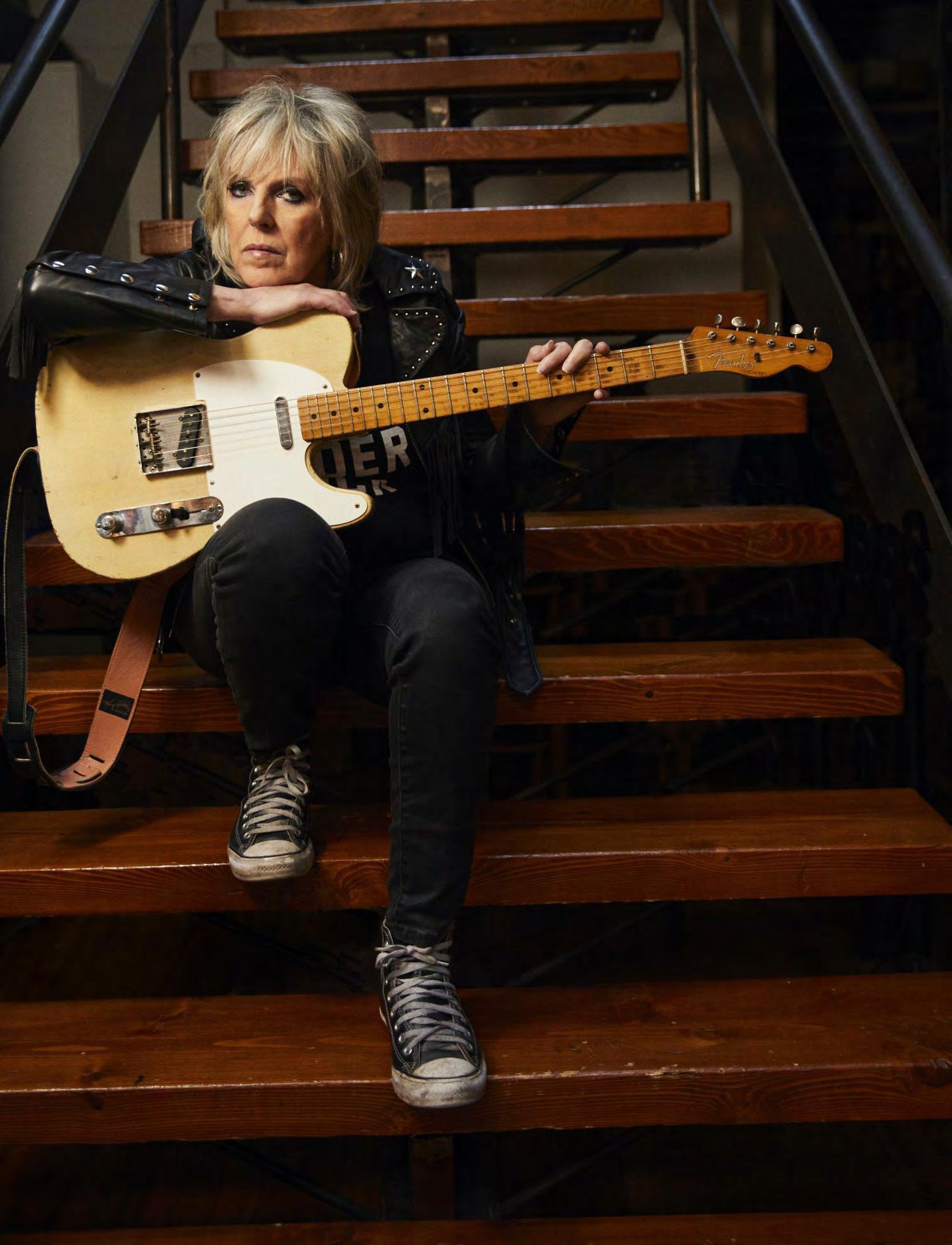
N Roll Heart, her first recorded since she had a stroke. The new album is more affirmation of Williams’ greatness
By
Brian Wise Photos by Danny Clinch.
here was almost an audible gasp as Lucinda Williams walked carefully on stage assisted by her husband Tom Overby to a standing ovation. It was Williams first visit here for more than five years and she was one of the headliners for the inaugural Bluesfest Melbourne at The Plenary in April. Reports from Sydney and Byron in the days prior had already been glowing.
Almost everyone in the audience would have known that Williams had suffered a stroke in November 2020 but not everyone knew what the effects were. It was clear that she wasn’t playing guitar and she stood inert as her band Buick 6 launched into ‘Can’t Let Go’.
Whatever the other physical effects Williams had been dealing with, when she started singing there was no doubt that the voice was totally intact and as emotive as ever. With the backing of her stunningly good band – featuring guitarists Stuart Mathers and Doug Pettibone along with rock solid drummer Butch Norton and bassist David Sutton – we not only got to hear some classics - with Steve Earle coming on as a guest for a couple of songs - but Williams also previewed a few songs from the then forthcoming album Stories From A Rock N Roll Heart. It was all too brief by the time Williams and band closed with a raucous reading of Neil Young’s ‘Rockin’ In The Free World’ - a song that she can make you think was written just for her to perform.
It was a triumphant return for one of music’s greatest songwriters. In June Joni Mitchell made a rare and glorious concert appearance in Washington but she was singing her old songs. Bob Dylan still on his Never Ending Tour released an album of ‘early songs’. Williams has written an entire album of new songs that stand side by side with many of the finest compositions from her past catalogue.
A few weeks after Bluesfest I saw Williams again, this time at the Civic Theater in New Orleans during JazzFest. It is almost her traditional ‘homecoming’ show. In the past, whether at the House of Blues or a theatre, it gathered her family around her like a security blanket. (The first time I met her was there in 2003).
Perhaps because she was feeling at home in Louisiana, being born and raised in Lake Charles, Williams spent some time this night telling stories behind many of the songs. It was like hearing extracts from her recently published memoir, Don’t Tell Anybody The Secrets I Told You. The songs were given the perfect backdrop as Buick 6 would roar into life or quietly purr in the background like the incarnation of its namesake. There aren’t many bands with two such stellar guitarists who are prepared to give each other such room and play in perfect synchronicity. Think the rock equivalent of Charles Lloyd and The Marvels with Greg Leisz and Bill Frisell, who Williams has recorded and played with, at JazzFest too.
Brilliant would be the best description of Williams’ performance at The Civic. Ecstatic describes the audience response. A 19-song set featured six of the ten songs on the new album, which was enough to prompt me to claim that it was already my album of the year! Hearing it in full now, my opinion has not changed.
“My voice is as strong as ever and a lot of people have been saying they think it’s even better than it was before,” said Williams when we spoke by Zoom a few days before the Melbourne show. Even a brief listen to Stories From A Rock N Roll Heart, her 15th album, will confirm that Williams’ voice and songwriting prowess remain undiminished.
Of course, Williams’ credentials are evidence enough of her contribution to music. A three-time Grammy winner and 17-time nominee. Double winner and 12-time nominee in the Americana Awards. Named ‘America’s Best Songwriter’ by Time and one of the 100 Greatest Songwriters of All Time by Rolling Stone (also with two albums on that magazine’s 500 Greatest Albums of All Time list, including 1998’s classic Car Wheels On A Gravel Road). A member of the Austin City Limits Hall of Fame. (In fact, if you look at her catalogue of acclaimed albums it makes one wonder that if Bob Dylan can win a Nobel Prize in Literature why this daughter of the poet Miller Williams has not been nominated for one yet!).
If you want to get an insight into Williams’ life and what inspired her extraordinary writing, you can do no better than read her revealing memoir Don’t Tell Anybody The Secrets I Told You. (Also reviewed in this issue). It is a totally honest reflection of her early life and not only sheds a light on some of her lyrics but also her behaviour, attitudes and reaction to the music industry. Throw these factors into the mix: a traumatic childhood;
her parents’ broken marriage that had a mother with mental health issues and a temperamental father who worked and lived in numerous different cities in the US and South America before marrying one of his students yet managing to instill a love of writing in his daughter; an attraction to the wrong sort of man (‘a poet on a motorcycle’); and, finally, a business that wanted to stereotype her. These were all factors that fed into Williams’ world view. What you will read about is a life of extraordinary determination with an unwavering vision (sometimes misinterpreted as stubbornness, not that there is anything wrong with that).
Williams’ last studio album was Good Souls Better Angels in April 2020. In October 2020, at the height of the pandemic and just before her stroke, she recorded a series of six ‘livestreams’ paying tribute to some of her heroes and influences.These were released to help support some struggling independent music venues. The series covered classic country, Southern Soul, Dylan and Rolling Stones songs. It also included Runnin’ Down a Dream: A Tribute to Tom Petty recorded with her band at Ray Kennedy’s Room & Board Studio in Nashville and ending with Williams’ song ‘Stolen Moments’ – her tribute to Petty that also appears on the new studio album. (Williams was the opening act for the final Tom Petty & the Heartbreakers concerts in September 2017).
“That was really fun to do,” notes Williams. “I love taking somebody else’s really good song and interpreting it and getting inside it and seeing what I can do with it. I love doing that.”
These were some of the most uplifting sessions of the entire lockdown period and offered us a chance to peer deep into Williams’ musical well. At the very least, they exposed her impeccable taste in music. (All sessions are available on her website).
Suddenly, in November 2020, Williams was found on the floor at home by her husband Tom Overby after suffering a stroke and not being able to move. Thanks to prompt treatment and months of physical therapy she ended up playing more shows in 2022 than she had since 2017. Still, it was a surprise to see her at the Americana Awards last September being helped on to stage. It was also a huge relief, as it must have been to Australian audiences a few months ago, to hear her sing and know we would share that for a while to come.
A year after the stroke Williams started recording the new album and also completed her memoir. A brief tour of Australia for Bluesfest kicked her back on the road and the next two months will be spent touring in America promoting the new album while early next year is already mapped out for a European tour. >>>
T
37
“I could be in a laundromat. I could be in a bar, I could be in a grocery store and something will come to me and I have to jot it down.”
>>> “Now we’re getting those old people’s ailments,” says Williams when I tell her that at almost exactly the same time she had her stroke I broke my leg in a bike accident. “I feel fine though. I did a whole bunch of rehab and I jumped right into that pretty much right after the stroke. The doctors got me into rehab right away. Then after I got out of the hospital I had therapists come to the house and work with me there. So, it’s been a constant. I’ve been doing a lot of that and I’m sure that’s what’s helped so much.
“I’m still not [playing the guitar]. But it hasn’t affected my voice. I’m singing. My voice is as strong as ever and a lot of people have been saying they think it’s even better than it was before. The band backs me up on stage when we play live. They do a good job of supporting me musically.” [There is a famous story about Bob Dylan telling G.E. Smith, ‘No one comes to a Bob Dylan show to see the guitarist.’ In Williams case she need not worry too much as her band already boasts two great guitarists]. “It takes it out of you,” she adds. “I was texting with a friend of mine earlier and he said, ‘Well, you’re a tough chick’ and I said, ‘It’s been a tough climb back up the mountain. It just takes a long time to recover.’ The recovery is just what’s so hard. I still have trouble walking.”
“I made it to 70. That’s not bad,” laughs Williams when I wish her happy birthday for the milestone she celebrated in January.
“I know, I know,” she laughs when I also mention that her debut album, Ramblin’ On My Mind, was released 44 years ago.
In Don’t Tell Anybody The Secrets I Told You, Williams recounts how it was the Folkways label that finally gave her a recording deal for her first two albums while eight years later the UK label Rough Trade released her selftitled album which set the scene for her international success. Talk about being a prophet in your own land!
The memoir is packed with stories about experiences that would have made other musicians give up. For a long time, she was better known as a songwriter than as an artist in her own right. Emmylou Harris’ version of ‘Sweet Old World’ on the magnificent Wrecking Ball album of 1995 is just one example of others having success with a Williams song.
“A lot of people had been suggesting it for a long time and just saying, ‘You should write a book,” explains Williams. “I think probably because they knew I was always telling stories around my songs when I would play live. All my songs had all these interesting stories behind them. So, I think that’s what made people think I should write a book. Then I was offered a publishing deal with a company in New York [Simon & Schuster in Australia], and that’s pretty much what sealed it.”
“A lot harder, I thought,” responds Williams when I ask how difficult it was to write the memoir compared with writing songs. “Just the process of it is so different. I really didn’t know how to start and or how to approach it. It was just kind of trial and error. I finally got started with it and just wrote whatever things I was remembering and tried to keep. I’ve got a great editor and copy editor, so they helped keep everything organised and in order. But there was a lot of research. My sister helped me a lot because I would call her and ask her what year it was when we were living in such and such town and all this stuff.”
Although she does name a few objectionable characters including a famous movie director, I wonder how Williams walked the fine line between being really honest and also recognising that some people might get a bit upset if she told the truth?
“Well, that’s exactly what I was talking to my friend about today earlier - trying to straddle that line between being honest and truthful and not hurting anybody’s feelings,” she says. “It’s a battle that one. That’s one of the things that makes it so hard to write a book as opposed to a song. I think when it’s a song you can sort of cover things up a little bit inside the poetry of the song. You can say things in different ways so it’s not just right in your face. But that’s the hardest part of it, probably.”
There are many stories about the music industry that would be of interest to people, not the least of which were all the rejections Williams received for years and later the manipulations that she had to resist.
“There’s a few stories [about the industry],” she admits. “It felt somewhat satisfying to be able to explain some things because I’m still trying to live that down about Car Wheels taking so long and all this and that I’m a perfectionist in everything.”
There are indeed numerous stories of people getting frustrated with Williams during her recording sessions. Steve Earle famously said of the Car Wheels album when urging her to finish it, ‘It’s just an album.’ It took five years to make and was recorded twice in several different studios. One of her close collaborators Gurf Morlix has refused to talk to her for the past twenty years despite Williams and Overby trying to make contact.
“So, this time I got to tell my side of things because I wanted people to understand there was a lot of stuff going on within the music industry part of things that people didn’t see,” explains Williams.
Of course, a male musician being insistent on getting his own way in the studio is seen as visionary whereas a woman tends to be tagged as being ‘difficult.’ (We have seen that in Australia with Renee Geyer who named her album Difficult Woman after the song Paul Kelly wrote for her about just that subject).
“There are a lot of reasons why albums get held up sometimes and it’s not always the artist’s fault. A lot of times it has to do with just label issues and problems and all this. So, I was able to explain some of that stuff, so I liked being able to do that.”
“I loved her book,” says Williams of Rickie Lee Jones’ Last Chance Texaco when I ask if memoirs such as that were an inspiration. “Then I got to talk with her a little bit (backstage) at this show we were doing both and she was really, really nice and really kind. She offered to talk with me if I needed any advice while I was working on my book. I read Chrissie Hynde’s book. I loved her book. She’s got really funny parts in it and it’s very rock and roll.”
Don’t Tell Anybody The Secrets I Told You ends about twenty years ago with Williams marriage to Overby. There are no doubt many more stories for a second volume.
Almost simultaneously with the publication of the memoir in Australia (it was out in April in the USA) the new album will be released. Stories from a Rock n Roll Heart is Williams’ fifth studio album of new songs in a dozen years and was produced by her along with Overby and long-time friend Ray Kennedy, who also engineered. It is almost a companion piece to the memoir and also tells a few stories that might appear in the next book. Even allowing for an admitted bias, it is difficult to imagine any other musician putting out an album of such consistently high-quality songs in any genre this year. Here are songs that capture all the moods that Williams must have experienced in recent years: defiance (‘Never Gonna Fade Away’), anger (‘Last Call For The Truth’), feistiness (‘Let’s Get The Band Back Together’), searching (‘Where The Song Can Find Me’) and even melancholy (‘Jukebox’). This is the work of an artist at the absolute top of her game.
Of course, there was also some assistance in crafting the songs. Apart from three co-writes with Jesse Malin, longtime road manager Travis Stephens co-wrote six songs and Overby, who has also collaborated on recent albums, has seven co-credits, including the Tom Petty tribute, ‘Stolen Moments’.
The new album includes guest backing vocals by Jeremy Ivey, Malin, Buddy Miller, Angel Olsen, Margo Price, and Tommy Stinson of The Replacements, while the first single, ‘New York Comeback,’ features backing vocals by Patti Scialfa and Bruce Springsteen. The studio sessions included Williams’ longtime touring guitarist Stuart Mathis, keyboardist Reese Wynans, bassist Steve Mackey (Dolly Parton), Doug Pettibone on pedal steel and Tom Petty & the Heartbreakers’ drummer Steve Ferrone.
38
>>>
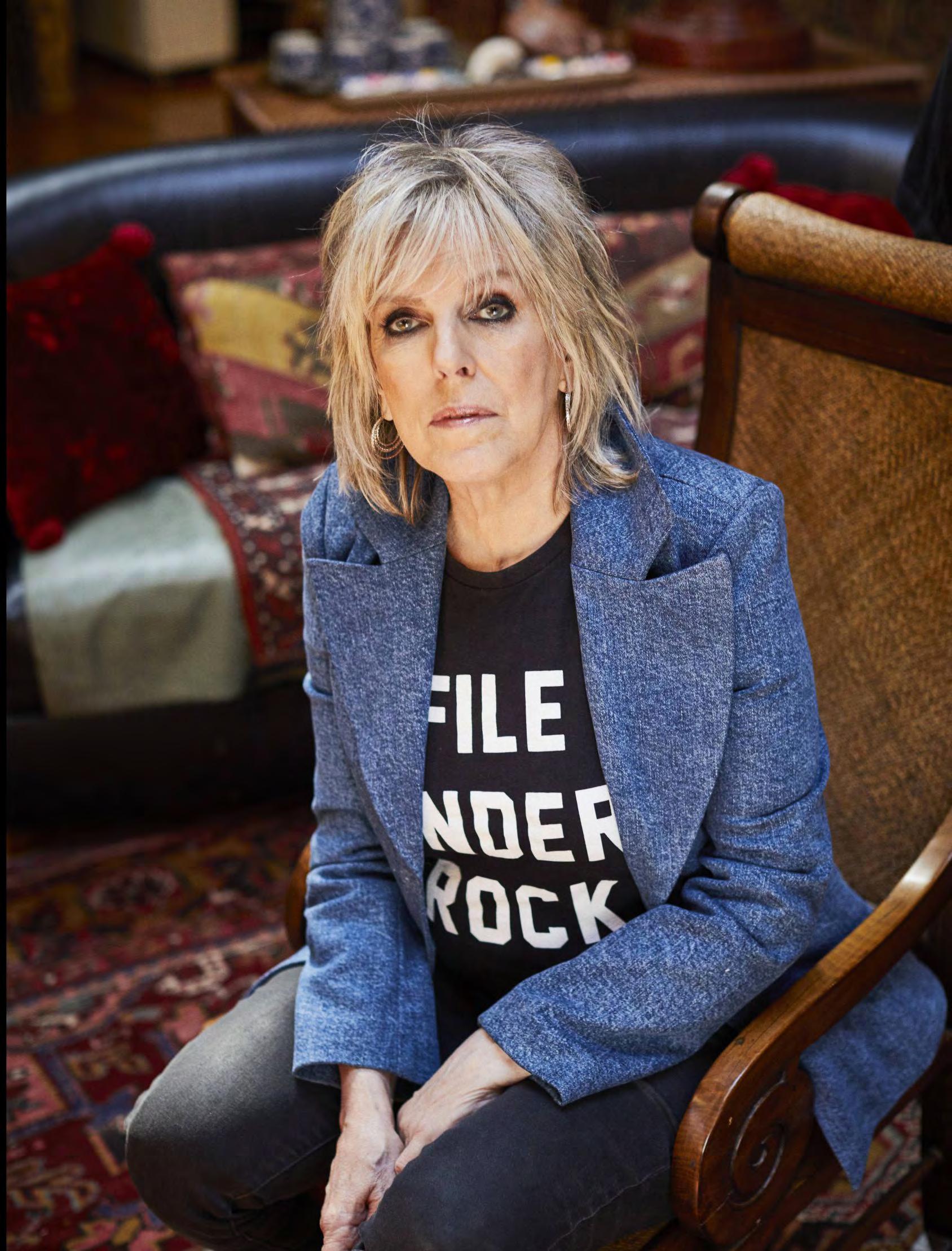
>>> “I’m real excited about Bruce being on it and his wife Patti,” says Williams of their appearance on ‘New York Comeback’. In fact, there are a few songs on Stories that are anthemic enough to be at home in a Springsteen set. (The title track, on which he also sings, for one).
Williams was put in touch with Springsteen and Scialfa by another New York legend (in his own way) in the aforementioned Jesse Malin who has been recording for 20 years and whose 2019 album was produced by Williams. (Malin is facing his own health battle at present).
“He knew we were talking about it and he offered,” recalls Williams. “He said, ‘I think I can get in touch with Bruce. I know some people who know how to reach him and I think he might be interested in coming and doing something on the album.’ So, he did. He was true to his word and he got through and got in touch with Bruce and his wife Patti who both wanted to do something and it was great. Then Patti wrote us a long email and said how much they enjoyed doing it. In the email, she said, ‘Nobody’s writing songs like this anymore,’ and all of this praise. It was just really sweet and really great. I just love them as people, a lot. Very down to earth.”
“Everybody wants to beat the rush / there’s nothing left to see anymore,” she sings. “They think it’s all over but the cryin’/And the story’s already been told/ The writers have hit to hit their deadline but maybe something will unfold.” Then Springsteen and Scialfa chime in on ‘You wouldn’t want to miss my New York comeback’.
“Sometimes you have to,” says Williams, explaining that Springsteen and Scialfa recorded their parts remotely. “I think they did it at their own studio. But we were always recording in Nashville at Ray Kennedy’s studio,
Room & Board, which is the same setup that I used when I was recording Car Wheels. It was easier for them to work where they already were.”
Maybe the most affecting song on the album is the ode to Tom Petty, ‘Stolen Moments.’ Williams captures the feeling that many of us have that it is difficult to believe that he is gone, evoking his presence.
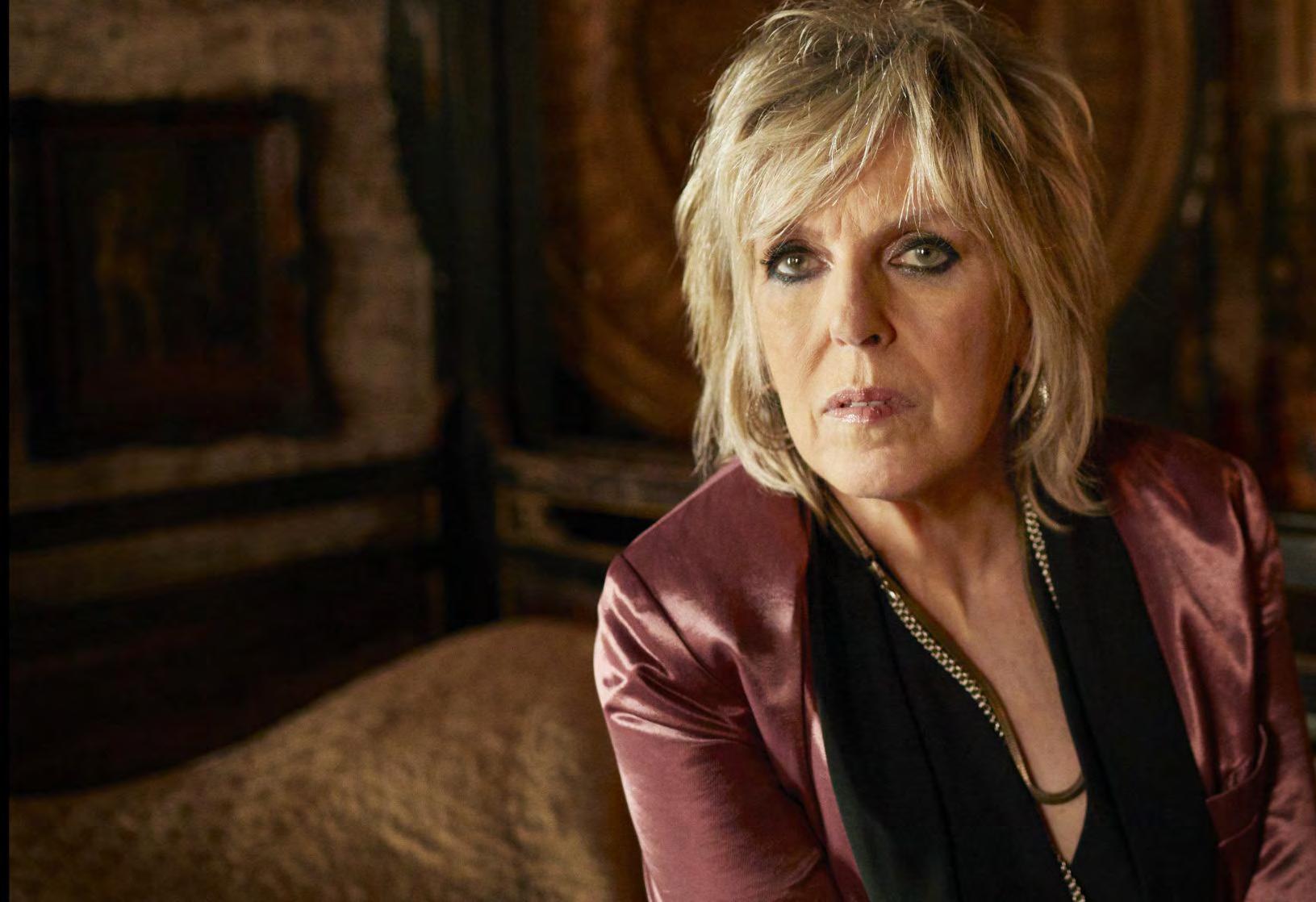
“Driving down Sunset I’m stuck in traffic / With the sun comin’ in from the west,” she sings.
“So I cover my eyes and I wait for the light to change / And I think about you / And it’s kinda strange / But I think about you/ In stolen moments you’re riding with me.”
“I’ve got a soft spot in my heart for him and his music,” says Williams. “But when you do a project like that [Runnin’ Down A Dream] and you’re taking all these other people’s songs and going in and exploring through the song, it makes you realise what great songs they were. I was doing an interview recently and we were talking about this same thing, Tom Petty, his material and all, and the interviewer said something that he had realised was that Tom Petty’s songs are deceptively simple. That’s one of the beauties of them, one of the reasons they’re so great.”
I tell Williams the story of how at the 2017 New Orleans JazzFest I insisted that my daughter and her now husband, who had just arrived in town, accompany me straight out to the festival to see Tom Petty & The Heartbreakers. They dropped their luggage at the hotel and we got a cab out in time to catch a brilliant two-hour set with a fit and healthy looking Petty and they have thanked me ever since. A few months later Petty was dead and we were totally shocked. I shed a tear whenever I think about it.
40
“Patti (Scialfa) wrote us a long email and said, ‘Nobody’s writing songs like this anymore’.”
“Well, that’s how I felt too and my whole band,” admits Williams, “because the last time we saw him was the last show he did that we did with him at the Hollywood Bowl. And we had that same feeling probably that you had. That’s what we were left with - the memory of that show. Then he was gone.”
“Well, thank you. I appreciate that,” she responds when I tell her Runnin’ Down A Dream shows the obvious affection she has for Petty’s songs. “I’ve always felt a strong connection with Tom Petty and his songs and we had a special bond. I’m not sure what it was but some of those songs I just felt I could have written them. Probably my favourite one is ‘Southern Accents’ and he spoke to that a lot. What it meant to be from the South and be a Southerner and everything in that song.”
On the other hand, the reflective ‘Hum’s Liquor’, a song co-written by Overby, is about a musician of an entirely different kind in Bob Stinson who died at the age of 35 in 1995 after being a member of Minneapolis band The Replacements, maybe America’s greatest unknown rock ‘n’ roll band.
“Well, my husband, Tom Overby, who’s also my manager, had this idea for a song about Bob Stinson because Tom’s from Minneapolis,” explains Williams, “so, he knew all those guys when they were based there and playing around in Minneapolis and everything.

“Tom told this story about how he had an apartment in downtown Minneapolis and every single morning he would look out of his window and he would see Bob going into the liquor store right down the street. It was like a regular everyday thing at the same exact time. He could almost set his watch to him doing that. I mean, it’s a bittersweet story. It’s sad. So, Tom had this idea for a song about that. Then we asked Tommy Stinson, who, again, Jesse Malin’s real good friends with Tommy [Stinson]. So, we were able to get Tommy to come in and do something on that track. He was really touched and moved by it, of course because it’s his brother. It’s really kind of a tribute to Bob Stinson.”
The ballad ‘Where The Song Will Find Me,’ is a six and a half minute ballad with an orchestral arrangement that helps wind down the album. It encapsulates the notion that a writer should live a life open to the muse wherever that might be.
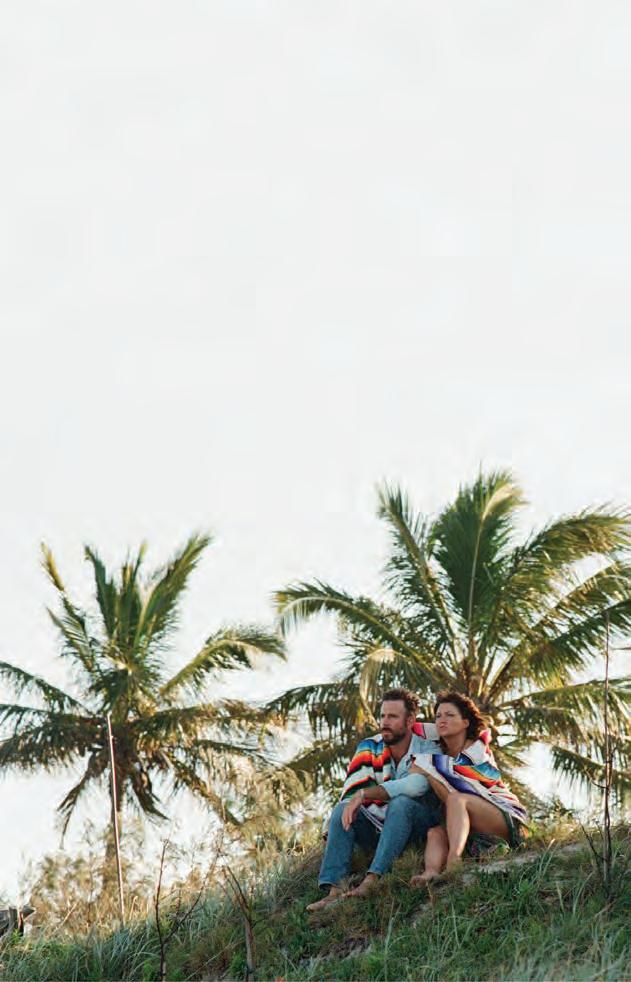
She sings: “Standing in the rain / In the pouring silver drops / I’ll ride the whistling train / And I’ll get off at every stop / ‘Cause I want to be where the song can find me.”
“I know they will remind me when they are ready to be found,” she adds, “They’ll come up behind me, not making a sound.”
“I see it as kind of the muse allowing it,” she explains. “You have to basically keep yourself open to it because you never know when it’s going to come in and inspire you. I mean, you could even go all the way as to saying, ‘Make sure you have some paper and a pen by your side all the time because you never know.’ I have to do that because I never know. I could be in a laundromat. I could be in a bar, I could be in a grocery store and something will come to me and I have to jot it down. So, I think that’s basically the meaning behind that. That was another Tom Overby [cowrite].”
‘Never Gonna Fade Away’, the album closer might be Williams’ answer to Neil Young’s ‘My My Hey Hey (Out of The Blue)’. Where Young sings, ‘It’s better to burn out than to fade away’ and ‘They give you this, but you pay for that / And once you’re gone you can never come back.’ Williams has a different angle but is every bit as defiant as Young.
In what could become her signature song - and is certainly one of the anthems on the new album - she sings: “When my mind is on fire / And I’m losing my desire / And I’m burnt out and tired / And I want to go higher and higher / When I get like this and nothing’s gonna fix it / And I’m getting sick of it / And all I wanna do is quit / I’m never gonna fade away…”
The song ends with Williams singing over the ringing guitars and insisting another eight times, “I’m not going to fade away.”
After listening to Stories From A Rock N Roll Heart you’ll know that with songs this good Lucinda Williams will never fade away!

41
Stories From A Rock N Roll Heart is out 6/30 via Highway 20 Records/Thirty Tigers.
BOB DYLAN BRINGS SOME OF HIS CLASSICS INTO THE NOW
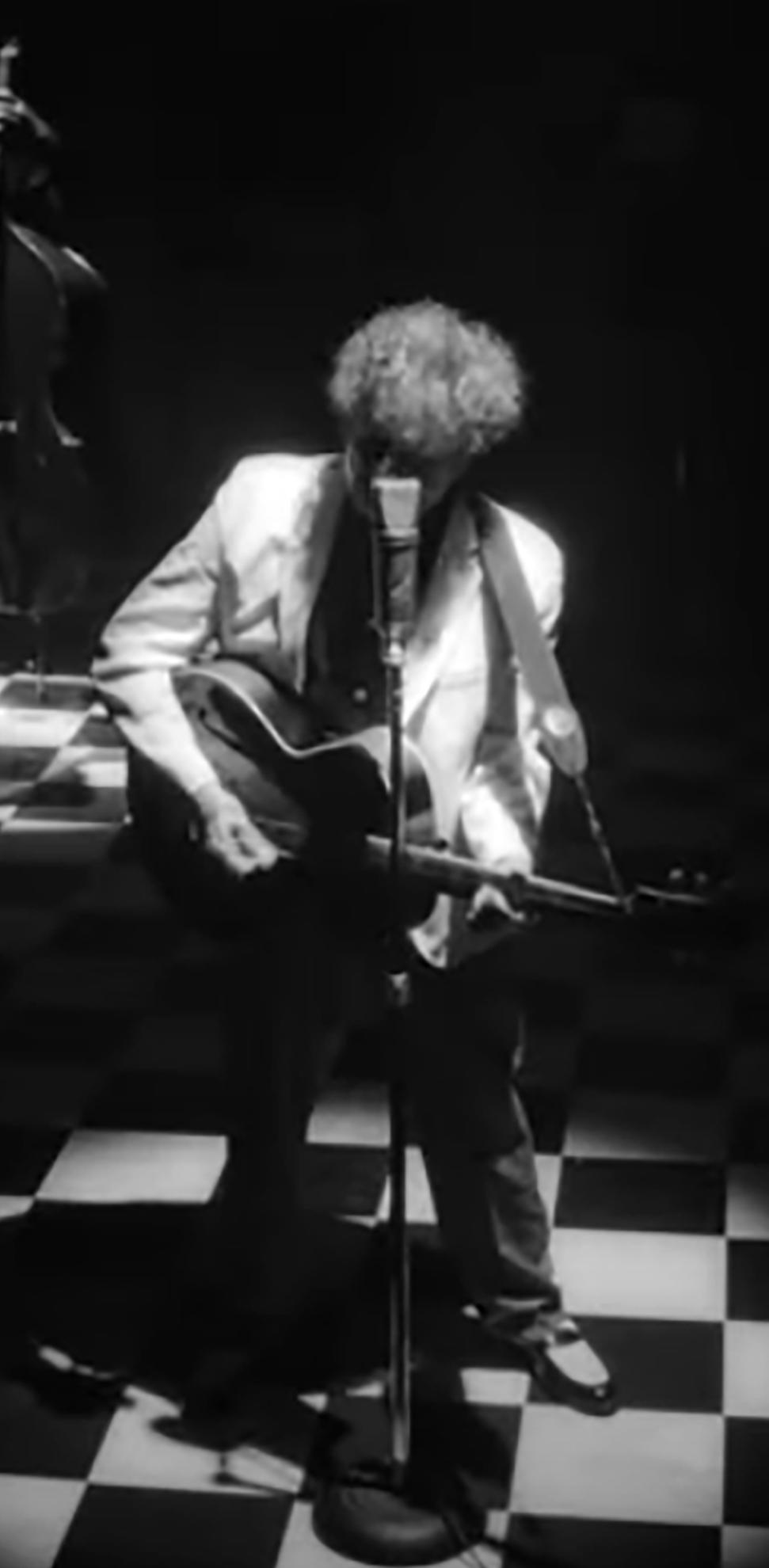
On Shadow Kingdom: The Early Songs of Bob Dylan, Dylan sings
‘When I Paint My Masterpiece,’ Queen Jane Approximately,’ ‘Watching the River Flow’ and ten others.
By Michael Goldberg
Bob Dylan lives in the present, and he doesn’t want to repeat himself. According to guitarist Ira Ingber, one of the musicians who have worked with Dylan and played on Dylan’s Shadow Kingdom, “Bob is the most in the moment person I’ve met in my life. It’s only about right now. … Whatever this moment is that we’re in, that’s what becomes recorded.”
And being in the moment during the recording of Shadow Kingdom has given the classic old songs it contains new life. (I should add that a video version of Shadow Kingdom that makes it appear that Dylan is performing the songs live in a hip club is available, but it’s actually all lipsynched. It looks cool but I’m focusing on the album in this essay.)
At first when I listened to Shadow Kingdom, I thought there were songs (like ‘When I Paint My Masterpiece’) that really worked with their new arrangements, and others (‘I’ll Be Your Baby Tonight’) that didn’t. But as I’ve played the album over and over, I’ve come to the conclusion that the entire album is quite wonderful – the new arrangements work throughout – some revised songs just take longer to get used to than others. They’re all good.
On Shadow Kingdom, recorded at Village Recorder in West Los Angeles in early 2021, the playing by the musicians who accompanied Dylan (I’ll list them shortly) is subtle, nuanced and, to my ear, beautiful, brilliant, and quite distinctive. The sound these musicians delivered on Shadow Kingdom is, in a way, brand new.
It’s a kind of folk-rock, but a very low-keyed, mostly acoustic folk-rock that has nothing to do with the Byrds or Dylan’s electric mid-’60s recordings. No drums. No piano or organ. Just guitars (both acoustic and electric), bass (upright and electric), accordion, harmonica, pedal steel guitar and mandolin. Although no musician other than Dylan himself is named on the album, the musicians playing include Jeff Taylor and Doug Lacy on accordion, Tim Pierce, T-Bone Burnett, Ira Ingber, and Steve Bartek on guitar, Don Was and John Avila on bass, Greg Leisz on guitar, pedal steel and mandolin and Dylan on guitar, harmonica and, of course, vocals. It reminds me a little of early Fairport Convention (‘I’ll Keep It With Mine’), but different.
42
TAKE TWO:
Dylan sings in great voice; as throughout his three Sinatra albums and Rough and Rowdy Ways, his vocals are by turns, casual, dramatic and sincere – and very mature. Because his singing is so good, and because of the fresh arrangements and sound, this stands out as one of Dylan’s best albums in years (the other being Rough and Rowdy Ways).
Dylan’s selection of songs – drawn from Bob Dylan’s Greatest Hits Volume II, Blonde on Blonde, Highway 61 Revisited, John Wesley Harding, Nashville Skyline, Oh Mercy, Planet Waves, and Bringing It All Back Home plus a new one, an instrumental titled ‘Sierra’s Theme’ – is inspired.
He opens with ‘When I Paint My Masterpiece,’ a gleaming gem of a song we first heard performed by The Band on Cahoots two months before Dylan’s version was released on Bob Dylan’s Greatest Hits Volume II. I used to think when listening to the Volume II version of the song, that when he sang, “Someday everything’s gonna be different/ When I paint that masterpiece,” that he was stating a fact: he was going to eventually paint his masterpiece and when he did, everything would be different in a positive way. We just had to wait for the inevitable.
But listening to a 79-year-old (at time of the recording) Bob Dylan sing those lines, I now hear something different. He’s saying, if only I could paint my masterpiece, things would be different, but that will never happen. It’s like when people say, if only I was rich or if only I was famous. There but for fortune…
By opening the album with this song, Dylan is saying to us: This is the life we have, make the most of it, don’t waste your time waiting for some lucky break that will change everything. You could live your whole life waiting.
IT
BLEW MY YOUNG MIND
I was 12 years old the first time I heard Bob Dylan. The song, played on a Top 40 station in July of 1965, was ‘Like a Rolling Stone’ and it blew my young mind. It was the greatest thing I’d ever experienced. I had to have the song on record so I could listen again and again and not have to wait by the radio until it was eventually replayed.
I walked to the record store about a mile from my house and tried to find an album with ‘Like a Rolling Stone’ on it, but Highway 61 Revisited was actually still being recorded. So I bought the single, and then before too long I bought the next single, ‘Positively 4th Street,’ only the copy I got contained an outtake of ‘Can You Please Crawl Out Your Window’ in place of ‘Positively 4th Street’ (I still have that single). Eventually I also got a copy with ‘Positively 4th Street’ on it. All three songs are, of course, tremendous, and I became a serious Bob Dylan fan.
As I’ve written before, hearing ‘Like a Rolling Stone’ had a profound impact on me. It certainly motivated me to challenge the status quo, and to live my life on my terms. It inspired me. It gave me the strength to go my own way. I decided I was going to be a music journalist, a risky profession, which barely existed in the late ’60s. I wasn’t sure if I’d become a writer or
a photographer – I pursued both for a while –but I was going to spend my life doing things that mattered to me, and not (despite my mother and father’s wishes) waste my time on getting a degree in something that would bring me money but which my heart wasn’t in. “You can’t make a living writing about rock & roll, my dad insisted. I didn’t care, though it turned out he was very wrong.”
MAKING THE OLD SONGS NEW AGAIN
Most of the songs here are classics, and hearing them now, especially the songs released that summer of 1965 when I first heard ‘Like a Rolling Stone,’ bring back the feelings I felt as a teenager first discovering Dylan. I remember sitting on the couch in our living room reading Wilkie Collins ‘The Moonstone’ while Highway 61 Revisited played over and over. One of the songs that really moved me at the time was ‘Queen Jane Approximately’ which is the third song on Shadow Kingdom and with its memorable melody still intact.
Dylan describes Queen Jane’s superficial life and implores her to dispense with the bullshit and to come see him. I’ve always thought of ‘Queen Jane Approximately’ as a love song, but Dylan could also, especially by reprising the song on his latest album, be sending all of us a message, asking us to see through the material madness of life in the 21st century and seek out a way of living that is authentic and true.
To include both ‘I’ll Be Your Baby Tonight’ and ‘To Be Alone With You,’ love songs that appeared on John Wesley Harding and Nashville Skyline, respectively, Dylan is emphasizing, as he sang on another Nashville Skyline song, ‘I Threw It All Away’ (not included here) that, “Love is all there is, it makes the world go ’round/ Love and only love, it can’t be denied.”
Dylan is long known for raising the bar for songwriting, dealing with subjects that had not previously been addressed in rock songs. But with the inclusion of these two songs, he’s making it clear that to dismiss love songs as silly and superficial is a mistake. Shadow Kingdom also includes two particularly intense songs – ‘Just Like Tom Thumb’s Blues’

and ‘Tombstone Blues’ – from Highway 61 Revisited. The first finds the narrator depressed and alone in Juárez, suffering “hungry women” who “really make a mess out of you” and hard drugs. He’s so fucked up he doesn’t even “have the strength to take another shot.” The second is, in part, an anti-war (the Vietnam war was going on at the time) song. Both seem timely given the hard drug plague we’re in the midst of, and the ongoing Russia-Ukraine war (as well as a war of sorts between Democrats and Republicans). It’s interesting too that Dylan recites, rather than sings, ‘Tombstone Blues.’ Dylan sings ‘Forever Young,’ an interesting choice that perhaps alludes to his songs remaining relevant even as many decades pass from when they were written, and the initially unappreciated “Watching the River Flow,” which some people thought was about Dylan no longer having anything to say, but according to Greil Marcus was Dylan trying to come to terms with his success while maintaining a connection to his fans. Listening to the song now, it’s hard to overlook the line, “People disagreeing everywhere you look.” Perhaps “To sit down on this bank of sand/ And watch the river flow” might be the best thing to do right now, to rise above the current madness. There’s a lot more here, but I’m not going to detail every song. While Dylan ends the album with an instrumental, the beautiful ‘Sierra’s Theme,’ the final song with lyrics, also recited, is ‘It’s All Over Now, Baby Blue’ (off Bringing It All Back Home), famously aimed at the folkies who rejected his full-blown turn to rock & roll in 1965 and still relevant as Dylan continues to make new music on his own terms.
Writer and photographer Michael Goldberg has been interviewing and photographing musicians since he was 17. He was a senior writer at Rolling Stone magazine for a decade. In May 2022 his book, Wicked Game: The True Story of Guitarist James Calvin Wilsey was published. Addicted To Noise: The Music Writings of Michael Goldberg was published on November 1, 2022.
43
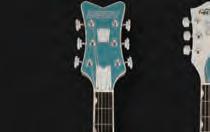
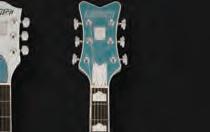
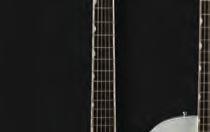

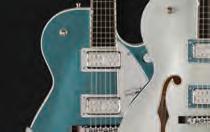
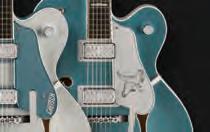
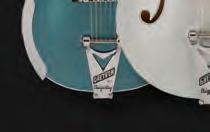
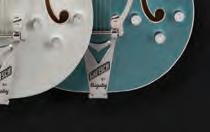



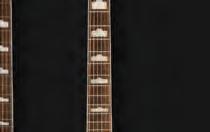

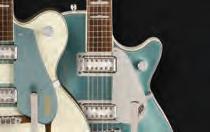
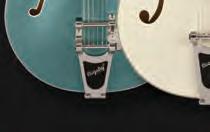
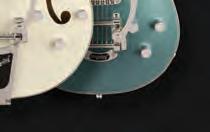

140 YEARS OF EXCELLENCE The Professional & Electromatic 140th Double Platinum Anniversary Collections GRETSCHGUITARS.COM ©2023 Fender Musical Instruments Corporation. All Rights Reserved. 47
Rebecca Lovell of Larkin Poe talks about her guitars and her relationship with Gretsch.
 By Brian Wise
By Brian Wise
GUITARHEAD!
“It was incredible,” says Rebecca Lovell of the recent Larkin Poe tour of Australia with sister Megan, that included the sisters second visit to Bluesfest. “We packed so much in a very short period of time. But getting to kick off at Blues Fest this year with truly one of the most starstudded festival lineups imaginable was a great treat. We had such a strong reaction. It was really such a blast.”
The Australian jaunt was followed by their first appearance at JazzFest in New Orleans with a very special midnight show at Preservation Hall, where Robert Plant also appeared. “We jumped at the chance just to be able to experience such a historic community and space and the musicians that contribute to the whole Preservation Hall family. It was astonishing. We got to jam with horns and, you know, just experience a real slice of New Orleans. It was very cool. It was very cool.”
“We really enjoyed Jazz Fest for the first time,” continues Lovell. “Being able to get out and see Buddy Guy perform was a real highlight for me. It was, it was an honor to get to close out the Blues tent. So that in and of itself, I think put a lot of pressure on us. We wanted to really go out with a bang and it felt like we did.”
While we spoke prior to the Larkin Poe Australian tour, this time we are meeting on Zoom to talk about guitars, specifically Gretsch guitars on the brand’s 140th anniversary. But the Lovell sisters didn’t originally begin their music careers learning guitars but rather started playing violin and piano before moving to banjo and violin. It might surprise to find that they played bluegrass before taking up the guitar to rock out.
“I think I was a reticent guitar player,” says Rebecca. “I always used the guitar originally as a rhythm instrument. I definitely had more of an affinity for the mandolin and the banjo for a time. But in about 2012, a couple of years after my sister and I started Larkin Poe, I began to realise the full power of the guitar, the harmonic range of the guitar, and how satisfying it can be to take an instrument and plug it into a fender amp and get your Tube Screamer [distortion pedal] and crank it up.”
The first guitar Lovell bought was a Fender Jazz Master after seeing Elvis Costello play one in concert.
“I think even more than the sound, I think the aesthetic of the instrument really attracted me,” she explains. “I think it’s such a unique shape and I do love bigger silhouette guitars. So, that also I guess with some foreshadowing makes sense with some of the Gretsch silhouettes of guitars that I find very beautiful.”
“I jump back and forth between predominantly the Gretsch Jet single cutaway and some Stratocasters,” says Lovell when I ask what guitars she takes on tour. “I really enjoy having the Gretsch on stage because it is a good foil. Being able to have a guitar that occupies more of a dynamic range, I think helps flesh us out as a four piece. So, there is a lot of oomph behind the Jet, which I really love.”
“It’s funny because I originally fell in love with the Jet, the double cutaway, because of Malcolm [Young] because I think that in terms of
sibling duo, Angus and Malcolm are two of the baddest and I always connected. Obviously, I adore Angus, as everyone does, but I always thought that Malcolm was the mysterious cool brother in the back with that double cutaway. I think that was really the first time that I really connected with Gretsch and thought it could be really cool to have one. I feel like here in the States they’re a little bit left of centre. It’s more of an exclusive vibe, which I really love. I guess I got my Gretsch about five or six years ago and it’s been a staple in my touring rig ever since.”
So, how does the sound and the tone of the Gretsch differ from the Fender?
“I think that the Gretsch definitely bridges the space between the lap steel and myself,” replies Lovell, “because my sister’s lap steel is that metal on metal, it’s very piercing. It’s very sharp. So, to be able to have the Jet, to my ear - and the way that I choose to set up my pickups and the effects that I have on my board - can be a bit more tubby. It’s got girth and weight in a really good way, which I appreciate. I like a big fat sound."
“I think increasingly, and this is something that I feel so much joy and gratitude around, is the fact that in the last 18 years of touring, specifically in the last five or six years, we have seen such an influx of women into the touring circuit, especially in the blues world as well,” says Lovell when I ask her if she has noticed that women have the same obsession with guitars that many men seem to have. “To be able to have players like Samantha Fish and Susan Tedeschi really kicking ass and putting more of a spotlight on the female capacity for the blues and blues guitar is fantastic. I think the addiction or the obsession with gear and guitars is definitely no holds barred if you’re a man or a woman because I certainly get very fixated on gear and can never quite have enough.”
Rebecca Lovell and her Gretsch red sparkle Jet.
50
By Martin Jones
BAREFOOT JERRY
SOUTHERN DELIGHT
Capitol Records ST-786 (1971)
For ten points and a free Delta Goodrem CD, who played the riff on Roy Orbison’s ‘Pretty Woman’? Wayne Moss… of course…
Moss has been a Nashville stalwart since 1959, his playing found on an alarming number of Music City recordings, including Dylan’s Blonde on Blonde. Amongst his many and revered musical projects, Barefoot Jerry was an evolving collective bending Nashville roots music with a healthy dose of weed culture and West Coast psych. Prior to Barefoot Jerry, members Moss, Mac Gayden and Kenny Buttrey were all in the Area Code 615 project alongside the likes of David Briggs and Charlie McCoy. The quantity and quality of music these guys were involved with at the time (late sixties/early seventies) is astonishing… from The Monkees to Linda Ronstadt to The Love Affair’s ‘Everlasting Love’ to Joe Simon’s ‘The Chokin’ Kind’ to Steve Miller Band’s Number 5, they had their sticky fingers in everything!
In 1971 Moss, Gayden and Buttrey hooked up with keyboard payer John Harris and headed up to Gayden’s mountain cabin, serviced by the nearby Barefoot Jerry’s grocery store. Seasoned studio cats, the four found themselves liberated by the lack of direction and agenda. “It was a lot of fun to do, we were completely free and uninhibited,” recalled Moss. “It didn’t matter there wasn’t a producer there telling us to change this or shorten that or do anything, we were completely free. There were no boundaries we had to stay within like there was on the standard country sessions we were used to doing. I think we created a lot of beautiful things.”
Capitol Records agreed and left them to their own devices to come up with a finished album.
“We went crazy cutting the greatest album the world had ever heard, giving very little thought to every having to play it live with just four guys,” said Moss. “The smallest amount of pieces on one of the songs was 18 and some of them rose as high as 42. This was done on an eight-track machine so we doubled a lot of things.”
The result was Southern Delight; like Crosby Stills Nash and Young and The Band jamming with the Beach Boys.
(Around the same time, some of the Area Code 615 crew, including Elliot Mazer, had just built a new studio in which Neil Young recorded some new material with a pickup band including Buttrey and John Harris… that material would be the basis of Harvest, and Buttrey would join Young’s band for a time.)

Recorded in Moss’s Cinderella Studios, Southern Delight was clearly a labour of love. With Gayden taking the role of lead songwriter and
vocalist, that uninhibited freedom on which the band was founded is evident from the opening track. ‘The Hospitality Song’ is introduced by piano and harmonica (the latter courtesy of Charlie McCoy) and, with Gayden’s wah guitar leading the way, levitates into a spry welcome matt of a song: “Light up the pipe/Pass it around/Take off your boots/We’re just a-pickin’ around.” However, just when you’ve got the song pegged it takes a contemplative detour in a slowed down bridge and then again in the outro as the band forms a choir to affirm “Truth is the answer”. One song in and a lot of ground has been covered.
‘I’m Proud To Be A Redneck’ is ‘The Night They Drove Old Dixie Down’ meets ‘Southern Man’ though wonderfully lithe with Gayden on bass and Moss on steel guitar.
Moss’s two compositions are odes to simple pleasures (weed) – ‘Smokies’ talks of their times jamming in the Smoky Mountains near Barefoot Jerry’s store and ‘Quit While You’re A Head’ is pretty self-explanatory. While his hippy head rhetoric is a little prosaic, the music is constantly rich, honed and engaging. The backbone is more FAME than Studio B, the licks constantly walk that tightrope between accomplished and irresponsible and there’s often an expected detour around the corner, like when the syncopated CSNY-like ‘Smokies’ abruptly breaks down into a complex vocal doo wop.
Side Two opens with some impressive piano playing from Harris, giving way to another CSNY moment with everyone harmonising on the ballad ‘Come To Me Tonight’. Harris takes the intro again on ‘Finishing Touches’, a spiritual song that sways between ‘I Shall Be Released’ and a lush pop opus. The more the album progresses, the more these Nashville cats wave their Pacific freak flag. The final few songs sound more like Dennis Wilson’s Pacific Ocean Blue (which wouldn’t be released for another six years) and put in that context, ‘The Minstrel is Free at Last’ and ‘That’s OK, He’ll Be Your Brother Someday’ are truly progressive for their time. Even their version of the traditional spiritual ‘Nobody Knows’ is beautifully leftfield, blending hymnal background vocals with a soul pop lead and wailing wah guitar.
With so much studio work on offer, the band members were not willing to commit to touring Southern Delight. Gayden was offered a solo record deal and teamed up with Dylan’s producer Bob Johnston, to release McGavock Gayden. Try and find a copy of that one!
Meanwhile, Moss took over lead guitar duties and recruited steel player Russ Hicks and drummer Kenny Malone to keep the Barefoot Jerry name going for another four studio albums.
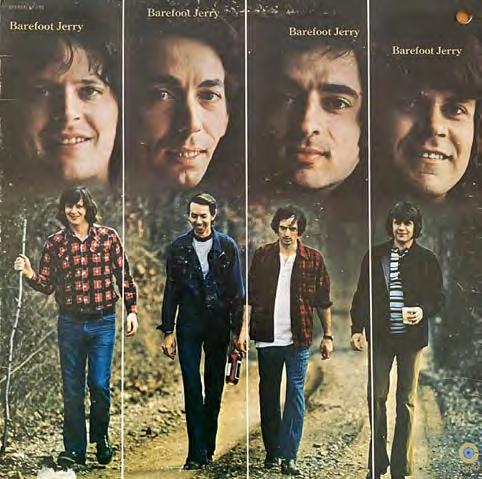
51
BY KEITH GLASS
In the 60’s/70’s/80’s major record labels worldwide maintained a massive album release schedule. Only a comparatively few artists scored a hit, others became ‘cult’ classics. Beyond that exists an underbelly of almost totally ignored work, (much never reissued) that time has been kind to. This is a page for the crate diggers.
FRANKIE MILLER A PERFECT FIT
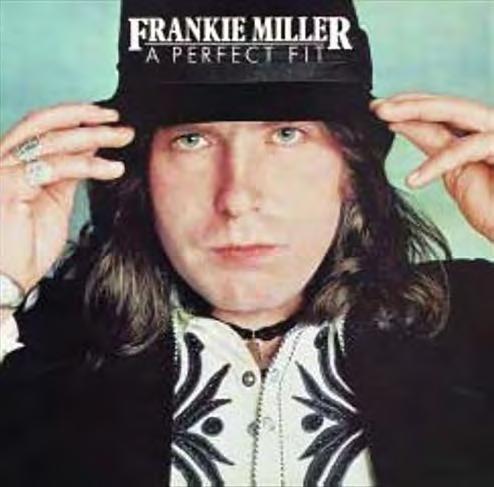
Chrysalis CHR 1220 (1979)
OK, Scottish ‘Blue-eyed’ Soul Singer Frankie Miller had a big hit off this disc in the late ‘70’s called ‘Darlin’ so how does this qualify him for a berth on this page? I would say because when is the last time anyone has air-played or mentioned Miller in the pantheon of very fine blue-eyed Soul singers that he so much deserves…actually on-line/in person Joe Bonamassa, Rod Stewart and others have done just that, but not so you would readily notice. One listen (to any of his albums) and you should get it. I’m still regretting selling a copy of his earlier Allen Toussaint produced, Louisiana recorded album that I haven’t found again since. This 1979 recording is just a tad easier to find because of inclusion of the above-mentioned hit (Darlin’) which Miller didn’t write but makes his own - it became his biggest hit.
Aussie raised David Mackay was the producer /arranger and the backup musicians include another Oz connection in guitarist Terry Britten plus more fine players such as Tim Renwick and Paul Carrack with Linda Taylor on backing vocals. It all sounds like it was knocked over in a couple of days and it probably was. With a mix of Miller originals (A Woman To Love, When I’m Away From You, And It’s Your Love & more) plus Bob Marley’s classic Is This Love, ditto Holland/Dozier/Holland’s
Four Tops hit Something About You plus the above mentioned ‘hit’ Darlin’ identified with Miller but actually written by sax player Oscar Stewart Blandamer and first recorded in 1978 by the British country band Poacher. Mackay picked it out for Miller who, despite not really liking it wound up with the biggest hit of his career. Many other versions followed from the likes of Tom Jones, Barbara Mandrell whilst Bonnie Raitt performed it for the soundtrack of Urban Cowboy. Of course, none of that really helped Miller although he did score a near world-wide hit including a top 10 placing on the Australian charts that would remain his main claim to fame downunder. I doubt it made his albums much easier to find but from 1973 to 1985 they number about a dozen or so with the singer steadfastly sticking to his ‘blueeyed Soul’ roots despite interactions with more famous folks than him and perhaps the temptation for a change in direction. In 1994 he was set to be in a new band with Joe Walsh, Nicky Hopkins and Ian Wallace but suffered a brain aneurysm that required extensive rehabilitation from which he and his voice have really never recovered. Amazingly in 2006 enough tracks were pieced together from demos to put out not one but two new albums and as of this writing Frankie is still with us. I am glad to report that over the years many tributes in his native Scotland have been made but alas in the rest of the world this gritty singer/songwriter has been mostly forgotten. Ask most people of a certain age and they may remember the song Darlin’ but they mostly won’t remember the artist identified with it. At least that first qualification puts Frankie apart from most of the folks I write about here….
I’m bending my own rules but all in a good cause because the simple fact is if you find an old Frankie Miller album anywhere (it should be at a reasonable price) buy it as it will definitely be at a higher, more honest level than most of the stuff in a similar timeframe out there. Here’s a guy who gave his all to the craft and remains fresh & listenable throughout his career. There is little or no bending to fads or fashion just to try and get a hit or keep up with the pack. For instance, the aforementioned Rod ‘the mod’ Stewart put out some great material earlier on but became a caricature of himself later. He did it his way, Miller did it another.
53
By Chris Familton
ESSENTIAL AMERICANA ALBUMS
Wilco – Yankee Hotel Foxtrot (2002)
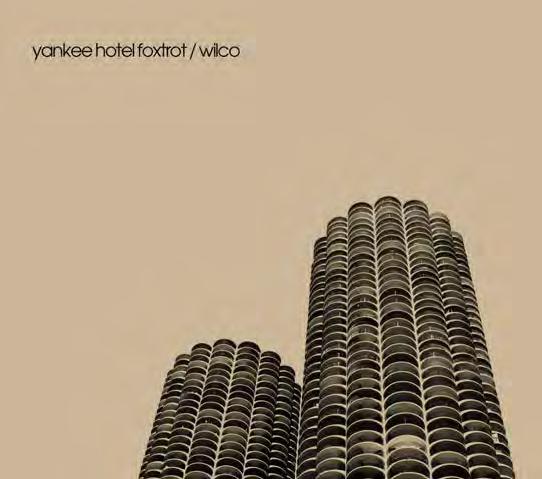
Last month I took a look at Gillian Welch’s seminal 2001 album Time (The Revelator), a record steeped in folk authenticity and traditional form. That same year a band from Chicago took their suburban country rock and alt-country and blew it apart into a thousand musical fragments before reconstructing their songs into glorious and inventive studio mini-masterpieces. Wonderfully, both artists and their respective work fall under the wide umbrella of Americana music.
Yankee Hotel Foxtrot was released commercially in 2002 via Nonesuch Records, following an independent release on their own website the year prior - the result of the decision by their then label Reprise to not release the album and the album’s songs subsequent leaking to MP3 file sharing sites.
Yankee Hotel Foxtrot would be a game changer for the band, both critically and sonically. Upon its release it received near universal acclaim, with a rare 10 score from Pitchfork, and it continues to be their best-selling album.
Great albums always carry fascinating back stories and Wilco’s was no exception. Drummer Ken Coomer’s drumming wasn’t a match for front man Jeff Tweedy’s vision and more experimental approach to the album, while tension between Tweedy and multi-instrumentalist Jay Bennett, during the recording sessions with new engineer and musician Jim O’Rourke, led to Bennett’s ousting soon after the album’s completion.
As Wilco began working on the album, they were coming off three records released through the second half of the 90s. All were well received but it wasn’t until 1999’s Summerteeth that the band began to really utilise the studio and overdubs to expand their music. ‘Via Chicago’ from that album was one example of layered nuance and textures successfully being applied to their songs.
A key player in the musical expansion of Wilco’s sound was new drummer Glenn Kotche, a far more versatile and experimental musician than Coomer. Kotche’s ability to create fascinating percussive templates, from Krautrock to jazz, avant garde to noise, opening up numerous possibilities for Tweedy’s songs and entirely in sync with O’Rourke’s openminded engineering and mixing approach.
Listen to the end of ‘War on War’ with its metronomic hypnotism and acceleration, the dance/funk feel of ‘Heavy Metal Drummer’, or the tumbling mix of straight patterns, clattering percussion and found sounds on opener ‘I Am Trying To Break Your Heart’ and you’ll get a sense of the dexterity and range that Kotche brought to Wilco. Beneath the sonic vistas and deconstructed soundscapes that enveloped the songs, Tweedy’s writing was still based in traditional forms derived from country rock, fractured folk, power pop, Beatles-esque pop and kaleidoscopic art rock. Strummed guitars, rolling basslines and rich vocal harmonies still cast a line back to The Byrds and Big Star. The progression from Wilco’s earlier albums sounded like a natural one, even amid the cornucopia of new sounds at their disposal.
‘Jesus, Etc’ sounds like a melancholic slice of country soul, a lost gem from the South with gorgeous vocal melodies, pedal steel and violin. ‘I’m The Man That Loves You’ fizzes out of the gates with an almost twee countrypolitan sound – an infectious and a surprisingly upbeat moment on a generally reflective album. ‘Radio Cure’, at its heart sounds like a back porch strum, a work in progress by way of its slow emergence and yearning melodic development, before resolving enthusiastically by song’s end.
‘Ashes of American Flags’ is another highpoint. On it Tweedy seems to hint at some of his battles with migraines and painkiller addiction, which he successfully overcame a few years later. “I’m down on my hands and knees, every time a doorbell rings. I shake like a toothache, when I hear myself sing,” he reports.
As with all recognised classics, Yankee Hotel Foxtrot has received the reissue treatment, with a 2022 remaster, a 51 song Deluxe Edition which added numerous live recordings and alternate versions plus for those super fans, a Super Deluxe Edition containing eighty-two previously unreleased music tracks, a book, demos and more.
Often described as the American Radiohead, Wilco similarly shook-up the ingredients of their music with overwhelmingly success, setting them on course to continue releasing albums that straddled the worlds of tradition and experimentation – honouring the art and craft of song while venturing out into new and uncharted waters. They’re a rock band playing post-rock, an alt-country band in an alternate universe. Cosmic Americana 2.0.
57
THE YEARLINGS
Luck
Little Secret Records
By Bernard Zuel
The music industry loves a summer record, those bright and breezy bits of fun that replicate heat on the skin, something cold and alcoholic in the hand, and not much more on the brain than how to get one or both again with someone of a similar disposition, or at least similar availability.
Yes, this is despite the fact, at least in the southern hemisphere, that summer contains Christmas and NYE, two of the most stressful times for people suffering from loneliness, unhappiness, family traumas and loss. Anyway, summer’s for outdoor songs and chasing the fun, and that’s official.
The Yearling’s Luck ain’t one of them.
This is a winter record. An indoor record. While it isn’t grim and grey, nor ladened with some unquenchable grief – really, what kind of winter are you having? You do need to get out some more – it is a close the door to the chill sneaking in the cracks, tell me a story while we’re together, caught under a low sky, low light, low movement record.
Robyn Chalklen and Chris Parkinson sing of lifelong friendships torn by death (‘Gone Are The Days’) and a relationship that might only survive by separation (‘It Won’t Be Long’). They explore indifference that may only be changed by violence (‘Only’) and lives where no matter how much attention is paid, nothing will change (‘Luck’). These are stories told with understanding, their not-yet-weathered voices having just enough weariness.
Not everything has a hue of sadness mind you. There is tender, hopeful love (‘Downtown’), alongside remembered, wistful love (‘Santa Monica’) and warm traces of joy can be felt under an autumnal absence that remains unexplained (‘Old Friend’). Even death can come with a sense of acceptance that is almost like peace (‘Angel’s Feet’). These stories are told with intimacy, their lightly tethered voices beckoning you in.
Interestingly though, as closed-in-winter as it is, sonically Luck is the most expansive, least claustrophobic album the pair have made. It still indoors, but it’s a little more crowded.
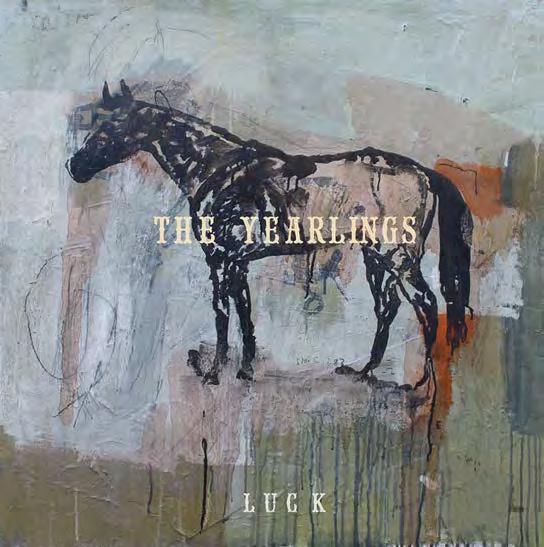
For six records up until this, Chalklen and Parkinson had been all The Yearlings: a couple of acoustic guitars, a couple of voices, a singular vision. But with producer/guitarist Lucie Thorne they’ve brought in two of her regular collaborators, drummer Hamish Stuart and bass player James Haselwood, and refashioned their world. To the spectral folk and lonely country of yore is now added – incrementally – a toughening agent of blues and south-western sounds.
At first, in ‘Downtown’, this appears as languid electric guitar and brushed drums bringing the lingering last rays of summer beneath the gentle voices presaging the season’s change. By the title track, three songs on, the bass is underpinning and holding subtly, and the finger picking in Angel’s Feet is a back-and-forth between electric and acoustic. So far, so mild an adjustment. And then comes the enigmatic Donnie Darko.
Now, while the vocals push out a little more with Chalklen revealing a low tidal wash of anxiety, the full band comes to the fore. The guitar dangles desert blues, rising darkly in its solos, the drums smack the side of the car for direction, and the bass plays the reinforcing role, solidifying matters. Much the same happens, albeit at a less stern level, with ‘Waiting On The Wind’, where the band has relocated indoors and eased back while Parkinson turns almost to a drawl, the song a beer chaser to Donnie Darko’s dark shot.
If ‘It Won’t Be Long’ lightens things even more, the electric guitar a coastal breeze washing over everybody, Only closes the album by pulling everything inside again, Stuart’s busy drums a counterpoint to Chalklen’s alone-at-the-window singing that hovers between engagement and cool observation.
We may have started the album with the merest nip in the air, but we finish it with a definite chill. Winter is here, we’re staying in.
62
DAN TUFFY
COUNTRY STAR
Smoked Recordings/Sonic Rendezvous
By Michael Smith
There’s a lot of nostalgia for times remembered on the new album from Dan Tuffy, Country Star, and a bit of anger… and I had the temerity, when we spoke recently, to suggest there was a bit of social commentary on there too, most obviously in the song ‘Where Does The Money Go?’, a suggestion you wouldn’t think too contentious, considering Tuffy first broke into the nation’s musical consciousness as part of Tasmania’s Wild Pumpkins At Midnight, who played many a benefit gig for that state’s branch of the Wilderness Society, back in the day.
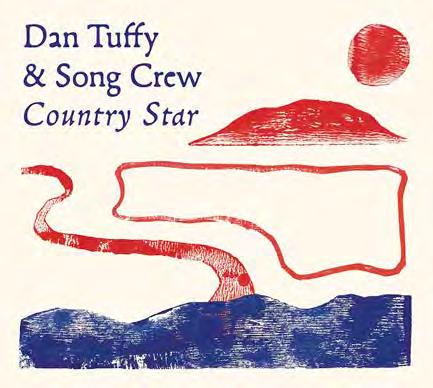
“I’ve never been comfortable with politics in songs,” Tuffy admits, on the line from his home in Amsterdam where he’s lived the past 25 years or so, though he returns regularly. “Just for myself. I feel like it can really just sound like a good old whinge if it’s not done right, so I’ve generally stayed away from that. How can I put this? I’m very wary of making… I fucking hate opinions in music! And politics is largely opinions. I have my own opinions but I hate them in music, so when I write a song and start feeling opinions in it I usually back off. I don’t think opinions are useful and they don’t work for me. So flagging one of those tunes as political is kind of encouraging for me because I may have gotten away with it this time.
“I grew up on the north coast of New South Wales (Kempsey) – I love that part of the world – and the way the coast has changed in Australia in the last five years has horrified me, just the unbridled greed. This call that, yeah, it’s housing that pushing it, it’s not housing, it’s profits going somewhere, and not to people who need houses – and that just pisses me off. So ‘Where Does The Money Go?’ was sort of an outlet for that I suppose, but I still recoil a little bit when I listen to that song because I hear opinions in it. For me, it just gets through. It only just got on the album to be honest. It’s not that I’m scared of making some kind of a statement; it’s much more of a personal relationship with the ineffectiveness of outrage.”
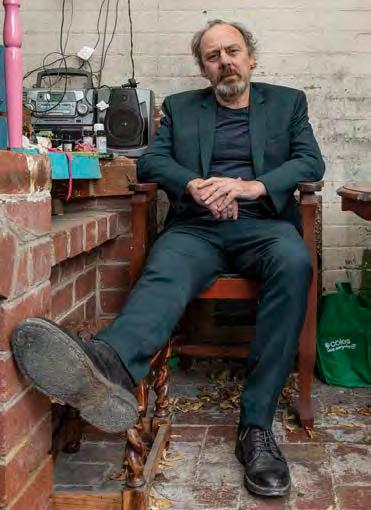
Tuffy’s decision to include the song on Country Star means we get to hear the truths – not opinions – that underpin the song: “There’s a hundred thousand acres of wild country going up in flames inside your chairs/You just don’t the value of that wild country – there’s no connection.” For all that, ‘Where Does The Money Go?’ isn’t representative of the album, though there is a more subtle and nostalgic tip to what’s been lost in the lyrical ‘Firetail’. “Actually, the Firetail finches are doing alright,” he admits, “so there’s a little bit of poetic license there. There are other species in a bad way, but I just liked that line” – ‘Where did they go?’]
Tuffy’s is a fairly soft voice – his approach has been described as conversational singing – and his approach to lyrics is pretty much conversational, more spontaneous than carefully thought out. “I don’t think about what I’m writing until I listen to a record I’ve made five years earlier, and wonder what I was doing. I’m not consciously sitting down and thinking I’m going to write about this. I always write – I’m writing continuously – but I only actually finish and record about five
per cent of what I write. So what was driving this record was more like, I’ve got these young musicians that I play with – and this is very new – the young bass player [Madelief van Vlijmen] I’ve been working with about five years – she’s my main offsider – but the other two dudes [drummer/percussionist Mische Porte and guitarist and pedal steel player Stefan Wolfs], we got together a couple of times [as Song Crew] and it clicked and I thought I’m gonna record this now. So, the driver was making music with these people, not so much the songs which I was just grabbing blindly from the shoeboxes I’ve got full of unfinished shit!”
The other “instrument” Tuffy utilised on the album was the ambiance of the recording studio itself – rather than record at home, he took his young band of players into Amsterdam’s state-of-the-art Studio 150. “I decided it was about time I did a bunch of soft songs in a big space. I’m reminded of that Cowboy Junkies album, The Trinity Sessions, which they recorded around a stereo microphone – the whole band played really soft – you can hear the sound of the room pulsing – and I had this idea that that’s what I wanted. So, I’ve been in there with these guys, unrehearsed… The other thing I had in my mind was we’re unrehearsed so there might be some accidents, and they might be happy accidents. So that was the preconceived mental map of what was going to happen. Of course, it didn’t turn out like that at all.”
Helping Tuffy sort out what accidents ultimately worked was his regular producer Zlaya Loud, born in Sarajevo, who spends his time between Amsterdam and London. “I guess the studio does determine a lot of the sound of the record, but Zlaya’s approach to selecting what shape, what form and how the whole thing should sound – he can do that whether I record in a studio or a dogbox – but there’s something about the big studio sound that you just can’t get any other way. That and the chemistry of the players together in the room – they were having fun! And I can hear that.”
As Tuffy explains, he left things open enough for his young players to interpret the songs as they themselves heard them. “We had three rehearsals before going in and I literally said, ‘Just play it however you want – just feel it.’ I just kept right out of how they were playing.” Bass player Madelief van Vlijmen in particular proved invaluable in developing the songs and arrangements, to the point where she scored co-writing credits on two songs, ‘Silver Morning’ and ‘Polecat’. Dan Tuffy’s Country Star is out on his own label, Smoked Recordings and Sonic Rendezvous.
65
JOHN FLANAGAN
By Michael Smith
MANHOOD METHOD ACTOR
Independent
Listening to the big, bold sound and confident songwriting evident on Melbourne singer-songwriter John Flanagan’s fourth album, Manhood Method Actor, you have to wonder what it takes these days for an artist to get signed up by a major label (for what that’s worth, admittedly, in this day and age). Back in the heyday of the singer-songwriter hitmakers, the late ‘60s early ‘70s, Manhood Method Actor would have sat up there more than comfortably alongside your James Taylors and Jackson Brownes. As Michael George Smith discovers, there’s a lot of that very time and spirit driving the album.
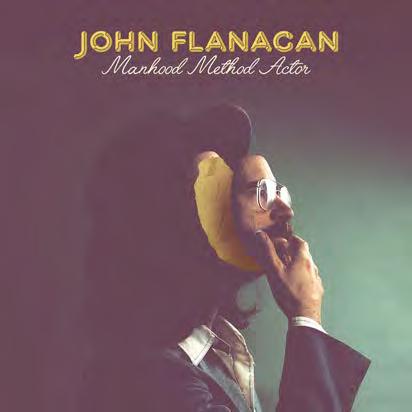
“I was listening to a lot of soul music,” Flanagan chuckles, recalling “doing a little dance” with his still very young sons. “Just listening to a lot of stuff that I love, sixties, seventies, kinda like classic stuff and some soul music. I’ve always been into that era of music and as I was writing I just went all into it. In many ways I guess the vibe of the opening cut ‘Ain’t No Easy Love’ sums up the general vibe of
the album. I think I was also spending a bit more time writing on piano this time whereas the last album, Honest Man, which I recorded in Nashville, I don’t think I had any piano – I was playing bluegrassy stuff Spending more time and as it happens I was living somewhere with a piano and writing I could feel this seventies vibe coming through and I kinda went with it.”
Flanagan also went with big brass sounds and solos, though there are couple of guitar solos. “I can’t remember when I made that decision, to go with the brassy thing but I knew that the soul vibe was in there. I’ve always loved the horns sound. Of course, not all of the songs have brass on them, but in the way the song order’s laid out I wanted to bring brass out up front, make that a central part of it. And the rhythm section ties it all together. Justin Olsen is on the drums, Richard Rose on the bass and we had a couple of different guitarists, Paddy Montgomery, who I knew from the bluegrass world and now plays a lot with Fanny Lumsden, and Mark Vito, who stepped in with some electric guitar and has a band called Fractures.”
Then there are the sensational female backing vocals, the majority of which were provided by Maggie and Elsie Rigby – The Maes. “But there are really some amazing singers on it. I just got to pick my favourite singers and put ‘em on the album. There’s another amazing singer, Mikayla Jade, who’s more of the soul gospel vibe, so I got her in on the songs that lean more in that direction.
One of the most poignant songs on the album is ‘Son of a Father’, perhaps Flanagan’s most directly autobiographical song. “I was playing that song back in 2019 when we did this ‘small halls’ tour of regional areas and I really noticed that that song in particular had an impact with a lot of men. I guess it’s something a lot of men can relate to.”

The accompanying press release subtitles Manhood Method Actor a “Soulful Reflection on Fatherhood, Relationship and Masculinity”, but that’s not strictly true. There are more than a few songs that underline the importance of lovers, wives and mothers. “Yeah, one song in particular, ‘I See You’ that really focuses on the motherhood side and was inspired by watching my partner go through the birth of our first son and seeing the strength and that whole other world that mothers go through.”
Helping Flanagan pull all the pieces of this “labour of love” together over the three and a half years it took to make Manhood Method Actor was seven-time Grammy-nominated engineer/producer Erick Jaskowiak. “He recorded my last album, Honest Man – that’s when I first met him and we’ve become good friends since. He’s worked in Nashville for twenty years and now he’s moved over here, so he was the perfect guy for the job, trying out this idea of going with this seventies folk-rock-soul vibe. It was really fun I’ve got to tell you. Going through all the lockdowns together, we started the album and the COVID hit and a year later we met up again and so much had happened, so we’d get together scattered over time through lockdowns and get excited about the record all over again.”
67
ALBUMS: General
FENN WILSON HONEY DATES DEATH / GHAZALS Ind. / DITTO plus


Wilson (guitar and vocals) has done a grand job on production with engineering by Zac Barter. George Carroll Wilson plays drums, Guy Perkins (bass), Fin Strijker (guitar) and Jack Meredith (keys) with strings arranged by Lucy Grash. A defining work from one of Australia’s finest independent artists.
CHRIS LAMBIE
SEAN MCMAHON VICTORIA INDEPENDENT
Both members of Minor Gold have already individually carved out successful careers –Tracy McNeil with her band The GoodLife and Dan Parsons with his three solo albums. Partners in music and life, McNeil and Parsons have seamlessly combined their skills as songwriters and singers to produce a symbiotic and endearing set of folk-rock songs.

Lyrics about love, dreams and aspirations are par for the course here and though they tend toward the predictable, there are exceptions, such as the sombre ‘Note To Self’, its chorus beginning with “Why did I go out tonight, even though I said I don’t feel like it.” There’s a deeper introspection at play that offsets the lighter subject matter elsewhere on the album.
The pair’s real superpower is their melodic vocal interplay and sixth-sense harmonies. There’s a lush swell and sway as their voices intertwine, constantly throwing up sublime hooks. ‘Way With Words’ is breezy, light funk, ‘Don’t Change’ is an upbeat, saxophone-enhanced sing-along and ‘Around The Bend’ blends an ‘80s shimmer and sheen with the sonics of The War On Drugs. Elsewhere, ’Tumbleweed’ is a tropical soft rock reimagining of Paul Simon and closer ’Lover’s Race’ harnesses the acoustic otherworldliness of Neil Young and Gillian Welch.
Imagine standing at the crossroads, halfway between Laurel Canyon and a sandy palm tree cove. These are the intoxicating sounds you might hear drifting on that summer breeze.
CHRIS FAMILTON
Fenn Wilson’s second album chronicles the contrasting peaks and troughs he’s navigated in recent years. Lyrics are potent and poetic. His vocals fulfilling - and exceeding - early promise. He explores rhythm and melody with bold inventiveness. These are the songs that mark a new and auspicious beginning for Wilson.
Ghazal refers to an Arabic verse form dealing with loss and romantic love. Grief, love and loss are inevitably examined across these tracks. From the passing of Wilson’s legendary father Chris to the simultaneous surprise of finding romantic love, only to see that relationship come to an end. Sombre subjects emerge from different angles, where laughter, despair, affection and reflection can occupy the same space. Light falls across shadowed corners with quirky tempos and an optimistic air. ‘Laying With The Bones’ honours the beauty in sharing a loved one’s final hours. In a dynamic portrait of a landmark moment where the earth shifts, guitar shimmers and vocals soar as if reaching to the heavens. ‘Miss Me’ wonders, ‘Where are they now?’ ‘Fool’s Gold’ is a richly layered rocker. ‘Dancing’ is a thank-you note to friends who hold us up during tough times, helping us forget for a little while. Opening guitar reaches a Buckley-esque plane – both Jeff and Tim. Orchestral backing soars over a driving drumbeat. You hear the giddy power of joyful respite amid ongoing pain. The time to ‘move on’ is recognised on ‘Turn The Leaf’, written for his musician mother (Sarah Carroll). As he and his brother George also face up to the ‘new normal’, he sings, “Be a shame to never love again”. A kind of affirmation of his father’s iconic ‘You Will Surely Love Again’. Wilson considers his ended romance, now a friendship, and what comes next for him on ‘Howl’.
Melbourne songwriter Sean McMahon is one of those artists who floats effortlessly between genres, and in doing so he creates a unique space, atmosphere and musical eloquence. On his latest album, his first in four years, he’s corralled a wonderfully mellifluous blend of cosmic country, jangly, melancholic folk rock and lightly brushed psychedelia. The sonic glue that holds it all together is McMahon’s sleepy croon of a voice. There are shades of Jeff Tweedy and Ron Sexsmith in the way the warm burr and warble of his singing comforts and lulls the listener into a dream-state. Placed amid some of the janglier songs, that recall The Byrds and The Clean, it’s the central emotional anchor of the album.
Piano, pedal steel and guitar frame McMahon’s songs about becoming a father, love and reflection. He recorded and mixed the whole thing himself, making it a singular and personal achievement, not that you’d peg it as an indulgent home project, these are impressive fully-realised arrangements.

Contrasting the piano chords and softly strummed acoustic guitars McMahon employs electrically sparking guitar solos that chime and spark, adding life and some jagged, brittle edges to the softer, smoother palette of sounds on the album. Dreamy and poetic songwriting at its finest.
CHRIS FAMILTON
MINOR GOLD MINOR GOLD INDEPENDENT
68
FRED SMITH LOOK Independent
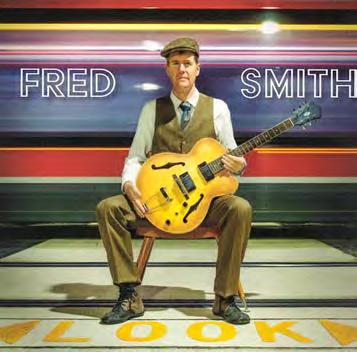
piano motif played by Carl Pannuzzo. Smith’s co-producer on Look, electric guitarist Fiete Geier, has featured on most of Smith’s previous records, and also adds bass and drums here and there across those and this record. He also runs Ebden Studios in Canberra, where most of Look was recorded and mixed. Smith launches his book, The Sparrows of Kabul, at the Canberra Writers’ Festival in August.
MICHAEL
MARK LUCAS & THE DEAD SETTERS ONWARD INTO THE FOG INDEPENDENT
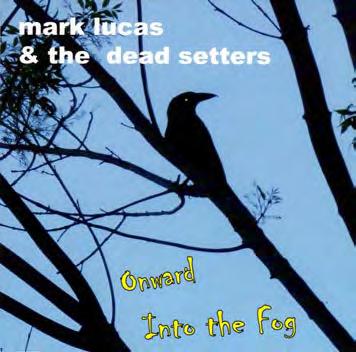
musical ground covered is impressive but credit should also be given to the playing of guitarist/producer Jake Lardot who provides the electric icing on the cake on this fine album.
CHRIS FAMILTON
PHIL SMITH INTO THE NIGHT INDEPENDENT
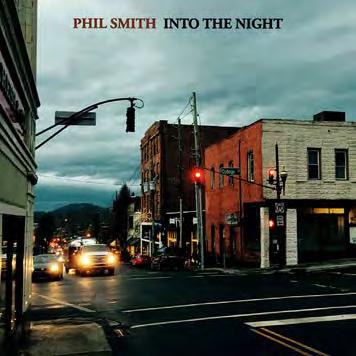
While Smith wrote many of these songs while he was about his final duties as a diplomat in Afghanistan, which he addressed on his last album, 2022’s The Sparrows of Kabul, this collection is totally Afghanistanfree. So on this latest album, Smith is back to writing songs about love, life, technology and banality, friendship and death in his usual balancing act between the profound and the frivolous, wit and whimsy, and for the most part, once again he manages it all pretty damned well with his usual wordy aplomb while skipping from one genre feel to another reminding us there are issues out there need addressing beyond, in “Crisis”, your favourite café being out of almond milk or not getting Wi-Fi as crisis after crisis flashes across your preferred screens, all to a jaunty calypso beat – “Icecaps are all melting and the seas are getting hot”. There are paeans to artists, literary and musical, he has loved and admired – writer Helen Garner in the Australiana-folk “Hel’”, Leonard Cohen in the moving ballad “Lenny”, and, most movingly, his friend and fellow cosmic joker, the late Brisbane folk singersongwriter John Thompson in “Sweet Ever After” – as well as to someone he never knew – Salvadorean Óscar Alberto Martínez Ramírez and his daughter Valeria, who died crossing the Rio Grande trying to reach freedom in the USA in June 2019 – refugees sacrificed to geopolitical indifference. As a diplomat Smith has to remain neutral but as a songwriter, he can cheer “Wilmington Joe” Biden’s Presidential win. There’s also plenty of self-deprecation, in opening track “Long Long Way”, but Smith allows his softer, more personal side to quietly sneak a look around the side of the artist’s mask in “Corners of my Mind” and closing song “Come and Say Goodnight”, with its limpid
Mark Lucas and his band of Dead Setters have been a fixture on the Sydney alt-country/roots music scene for the last two decades, playing the bars, clubs and bowlos, and every couple of years casting a new CD of songs out into the world. Those missives from the political and personal heart of Lucas are consistently rewarding, a plethora of musings from both formative years and contemporary escapades.
Onward Into The Fog, a catchphrase of sorts for the dogged experience of surviving in an ageist industry, is as good as anything Lucas has released. Fifteen songs that range from the old-time country of opener ‘My Ring Still On Your Finger?’ to Zydeco-flavoured rock n’ roll (‘Sally Anne’) and soulful funk on ‘Consider Me Gone’. Of particular note is the chorus of ‘Salty Tears’ with its absolutely beautiful and soulful refrain.
Lifelong influences such as Dylan, Petty, Springsteen, Knopfler, Nelson, and more recently James McMurtry slide in and out of this stylistically wide-ranging set of songs. Many of them address crossroads, life’s choices and new directions. References to lines, different sides of town, roads and stars, plus hopes and fears about the future pepper the songs. The songwriting and variety of
Tasmanian songwriter Phil Smith’s new album is one of those records that’s full of effortless sounding songs, where every note caresses and complements the next. There’s a specific kind of Australian Americana at play across the nine songs – part heartland rock, part jangly melodic rock. Overall though, it’s the songs and Smith’s easy-onthe-ear voice that makes this album such a joy to listen to.
Opener That’s Love For You’ sounds like Paul Kelly in a corner bar with Ryan Adams, ‘Pretty Thing’ possesses some wonderful acoustic guitar playing while ‘Let Me In’ again recalls Adams’ approach of big emotive musical swells and sways with a similarly dynamic vocal.
‘Paramount’ is the centrepiece of the record. Across more than seven minutes we’re taken on a compelling, slow burning journey through heartbreak and loneliness. It’s not all melancholia though. Both ’95 South’ and ‘Highway Song 2 (Revisited)’ pick up the pace with spirited country rock ’n’ roll and a Dylan-esque rattle and shuffle.
The perfect soundtrack for a windows-down road trip, whether its the wide open roads of the outback or a coastal sojourn, Smith’s captured an evocative set of alt-country songs that stir the emotions and spark one’s imagination, with conviction and authenticity.
CHRIS FAMILTON
GEORGE SMITH
69
LIVE OLD
SETTLER’S FESTIVAL
DALE, TEXAS, APRIL 20-23, 2023
By Brian Wise
It was a trip of contrasts. The New Orleans Jazz & Heritage Festival ended our recent travels and there are not many bigger festivals anywhere. It can be daunting, expensive, hot and not for the faint-hearted. (You can read about it in depth on our website). Luckily, we like to dip our toes into the festival season here with an event that is a lot more manageable and relaxing.
After spending decades in the Hill Country southwest of Austin at the Salt Lick BBQ site in Driftwood, Old Settler’s relocated in 2018 near Lockhart, the BBQ capital of Texas and about a 45-minute drive from Austin. In the past I never quite mastered the late-night drive back and often seemed to get lost. This year we opted to stay out in Lockhart, a mere 15 minutes from the festival, which was a good move (and close to Black’s BBQ).
The new site, owned by the festival itself, covers 145 acres including campgrounds. There are two stages, the small Campground stage set amongst the trees and featuring mainly acoustic acts and the larger festival stage set in a wide-open field with food and craft stalls on the perimeter. Proceedings start on Thursday afternoon for campers while both stages operate from Friday with the main stage taking over in the late afternoon then it is back to the campground on Sunday. No decision making necessary!
A showcase of Americana music – ‘roots, folk, acoustic, jazz, blues, bluegrass, singersongwriter, gospel, country’ – the festival features local favourites along with national and international acts which this year included two Australians in Nigel Wearne and Tommy Emmanuel.
Of course, festivals such as this are all about the vibe. You might have experienced the same sort of thing here with Out On The Weekend and Boogie in Victoria and Dashville Skyline in New South Wales.
Maybe Old Settler’s is a little larger, it’s difficult to estimate crowds but I would have thought 5,000 a day, making it really easy to negotiate. This year there seemed to be fewer food stalls than I recall but you can bring your own food if you like.
We knew the vibe here would be good when we arrived at the gate and the attendant greeted us with, ‘Hello, how can we make
you day better?’ When was the last time you heard that at an event, ever?
In the past, friends and I have enjoyed some great highlights at Old Settler’s. One that always comes to mind was seeing Jeff Bridges with his band and watching a bunch of guys standing in front of the stage dressed as The Dude from The Big Lebowski (the greatest movie ever made)! Genuine gold. The other aspect of festivals like this is the ability to get up close to some favourite acts and also discover a lot more acts that you might never have previously heard.
A huge storm on Thursday night dampened the spirits of campers for a while and Nigel Wearne who opened the campground stage on Friday disclosed that his tent had been washed out. But the sun was out and despite the rain the site looked to have recovered well.
Wearne managed to get the audience on side with his opening acoustic set. It looked a daunting task but he was impressive and he certainly had the crowd wondering when he mentioned that in Australia we need to get a licence to play the banjo. Wearne is a relative newcomer to the Americana festival circuit but was heading off to Merlefest the following weekend. He was followed by an impressive set from Sunny War, who has a lot to say in her songs.
On the main stage later that night, Kevin Russell, who would present a tribute to his old band The Gourds to close the event on Sunday, channelled a soul and R&B singer in Shiny Ribs, replete with shiny suit. My discovery of the festival, The Wood Brothers closed the night with their quirky pop rock (the only description I can think of). Chris
Wood was in Medeski Martin & Wood while his brother Oliver is a noted songwriter and has worked with our own Geoff Achison. It was a superb way to close the night.
On Saturday afternoon on the Campground stage, veteran Tommy Emmanuel, Certified Guitar Player, showed the benefit of his experience by producing a stunning set that had the audience spellbound with his dazzling playing, amusing stories and charismatic presence. I’ve often said that the standard in America is a level above everywhere else but Emmanuel is up there with the absolute best. Another act on the main stage worth checking is John R.Miller who got my attention.
In the evening the main stage had some real heavy hitters (at least in the Americana world): Shovels & Rope rocking out, Molly Tuttle & Golden Highway dazzling with virtuosity and Yola, who has come a long way in a short time and looks the consummate soul singer.

Sunday afternoon was the coldest day I think I have ever spent in Texas. We actually had to wear jumpers and jackets and would have put on gloves if we had them! Only the campground stage was operating and it featured long-time local Texas favourite Matt The Electrician and then Melissa Carper who will be here later this year and with her all-women group played the most gorgeous deep country music. It was apt that Shiny Ribs closed the event – local hero pays tribute to his own revered band! Perched just prior to JazzFest or Merlefest, depending on your preferences, it is a great way to start a music trip.
Old Settler’s Festival takes place from April 18-21, 2024.
76
Shovels and Rope, Old Settler’s Festival 2023
By Des Cowley
DON’T TELL ANYBODY THE SECRETS I TOLD YOU
By Lucinda Williams (Simon and Schuster, h/b)
Like many, I came to Lucinda Williams via her breakthrough 1998 album Car Wheels on a Gravel Road. At the time, I was working part-time in a bookstore, and we flogged that record mercilessly. Car Wheels had a long gestation period, coming six years after 1992’s Sweet Old World. Williams by then was in her midforties, regularly characterised as a late bloomer. While Car Wheels went on to receive widespread critical acclaim, those six-long years between releases spawned stories she was difficult to work with. As she recounts: “There was a long, horrendous feature story on me in The New York Times Magazine that unfairly threw gasoline on those rumours. The writer made me out to be a controlobsessed lunatic.” Williams’s account of the Car Wheels sessions makes clear she was battling producers and engineers at every step to realize her own vision for this music. While the results, and subsequent accolades, vindicate her rightness, it begs the question: would a male artist, in a similar position, have been on the receiving end of such backlash?
For Williams, things can take as long as they take. Her new book, six-years in the making, was birthed from “memories and stories [written] on legal pads, a couple of hundred single-spaced pages.” She begins by naming all the places she’s lived, confirming at the outset her peripatetic lifestyle. The list shows her as having lived in twelve different locales before she’d reached age-eighteen, including Louisiana, Utah, Mississippi, Chile, New Orleans, Mexico City, Arkansas. It reflects a nomadic pattern imposed upon her early on. And it’s one she’s largely continued with, confessing she’s never more at home than living on the road, or in hotels.
In the book’s opening pages, Williams namechecks southern writer Eudora Welty, by way of nodding to her own southern
gothic roots. Her upbringing, which she paints as a generally loving one, came with its own set of challenges: a mother who suffered from mental ill-health; and a father who moved the baby-sitter into the house, then married her. That’s just for starters. As Williams sees it: “Yes, my family was dysfunctional, fucked up. But that’s not what really matters to me. What matters is that I inherited my musical talent from my mother and my writing ability from my father.” She recalls being taken by her father, as a child, to visit the great southern writer Flannery O’Connor. Even though she chose to wait outside the house, wandering around O’Connor’s yard chasing peacocks, it remains a treasured memory, emblematic of her father’s steely determination to become a poet. The long years he put into achieving that dream became a touchstone for Williams, an instruction manual for her own labyrinthine journey in music.
Williams scatters the lyrics to her songs throughout the book, revealing the extent to which she has mined her own past. Composing the song Car Wheels in Nashville, some forty-years after the events it depicts, she conjures childhood “images from all those hours and days riding in the car from place to place, along with chaos and turmoil inside whatever house we were living in at the time.” She sings: Cotton fields stretching miles and miles / Hank’s voice on the radio / Telephone poles, trees and wires fly on by / Car Wheels on a Gravel Road…
Williams was given her first guitar in 1965, the same year she heard Dylan’s Highway 61 Revisited, which “completely blew my mind”. Dylan’s music melded song with the literary world of poetry she knew from her father. Looking at the record’s cover, Dylan’s “hair and the mysterious guy standing there with the camera,” she knew she wanted to be part of that world. A few years down the track, living in Mexico, the US embassy arranged a thirty-show tour around the country for Williams and fellow-musician Clark Jones, intended to spread American goodwill. “This was the first time I had ever played live shows, the first time I’d played in front of an audience of strangers, and it was both nerveracking and electrifying.”
Men – usually the wrong men – loom large in Williams’s account. She concedes she has a type, defined as “a poet on a motorcycle”. Exhibit A is poet Frank Stanford, who she found “irresistible”, a cross between “Jack Kerouac and a southern country boy. His tragic suicide would become the subject of her song ‘Pineola’, off Sweet Old World. Just
weeks before Frank’s death, in 1978, Williams signed a contract with Folkways Records, earning three-hundred dollars, which led to her first album Ramblin’, a collection of covers of Robert Johnson, Minnie Memphis, Hank Williams and others. Folkways would go on to release a second album, in 1980, her first comprising wholly original material. Sadly, neither would worry the charts. By the time she relocated to New York, “the exciting folk scene I’d always heard about – when Bob Dylan and Joan Baez were hanging out in coffee houses, and dreams were being made – was pretty much over.”
During the early eighties, Williams shacked up with Clyde Joseph Woodward III, described as “another one of these poeton-a-motorcycle-type guys.” An alcoholic and periodic drug-user, he would feature in her song ‘Lake Charles’, which recounted the times they drove “all over the area from Houston and Austin to New Orleans and everywhere in between.” Later, there came a brief marriage to Long Ryders’ drummer Greg Sowders. She recalls a disastrous fling with Paul Westerberg; along with a heated –though platonic – few weeks drinking at bars with a young Ryan Adams. It was not until Williams was in her fifties that she met longterm soul-mate, Tom Overby, to whom she remains happily married.
Despite her music turning heads, it was as if no-one quite knew what to do with Williams, pigeon-holing her sound as “alt-country and Americana”, terms and categories she resisted. Early on she was told her songs were incomplete, that they did not have ‘bridges’. Did Dylan’s songs have bridges? Hanging out in LA in the early eighties, she was drawn to “dirty garage music mixed with country music”, soaking up bands like The Germs, the Ramones, Los Lobos, along with Merle Haggard. Record executives from Rhino, HighTone, and others, came to her shows, but subsequently declined to take her on. Columbia stumped up thirty-five thousand to record a demo album, then begged-off, with the label’s LA office calling it “too country for rock,” while the Nashville office billed it “too rock for country”.
It ultimately took a British punk label to seal the deal. Rough Trade – home to Scritti Politti and The Smiths – issued her eponymously titled third album in 1988, an album chockful of brilliant songs. The musical world took notice. Mary Chapin Carpenter soon after covered ‘Passionate Kisses’, earning Williams her first songwriting Grammy, while Tom Petty put his own spin on the slow-burn ‘Changed the Locks’.
78
Williams, once named by Time Magazine as ‘America’s best songwriter’, provides the backstory to songs off Car Wheels, many written in Nashville while living in “one of those chain hotels that caters to long-term renters.” The album’s title track derived from a dream that offered up the line: “dogs barkin’ in the yard.” Over subsequent nights, Williams would wake, and add further lines. Only much later did she come to recognise that the small child crying in the back seat of the car was herself.
Williams defines her song writing process as “stream-of-consciousness.” She rarely knows what direction they’ll take at the outset, preferring to rely on instinct when making decisions. “I have all these references and notes that I carry around with me all the time, in a briefcase, and I might use them at any time. So something that might have gone into one song can end up in another song. Little snippets of things mix together in what becomes a song.”
Car Wheels was a game-changer, going on to win a Grammy for Best Contemporary Folk Album, and it remains her best-selling album. She found herself flooded with offers, eventually signing a six-album deal with Lost Highway records. Out of nowhere, in her late forties, she’d arrived. But never one to rest on her laurels, she decided to mix things up,
cutting the tracks for Essence in just ten days, with a brand-new band. It earned her another Grammy for Best Female Vocal Performance for the song ‘Get Right with God’.
Williams sees World Without Tears as the final part of a trilogy with Car Wheels and Essence. Taken together, these albums form an unbroken run of supreme artistry. Many of the songs on World were about the men who had been part of her life. In her own words, the album is “simply a statement about life and pain.” Critic Ann Powers would say of it: “This chick is crazy. Here she is, 50 years old, America’s most respected songwriter – and she puts out a disc full of snarls, mumbles and groans that fixate on one failed, possibly sleazy romance, songs veering from spiritual lunacy to gutter-level misery”. It says everything about Williams’s newly found status that Lost Highway shelled out half a million dollars for her follow-up album.
If there’s a damp squib to Williams’s book, it’s that she brings down the shutters around the time of her marriage in 2005, with only passing reference made to later albums such as West, Little Honey, or the masterful Down Where the Spirit Meets the Bone, so hauntingly titled after a line in one of her father’s poems. Is there any doubt she’d finally arrived? But maybe breaking the narrative off at her early success avoids a
common pitfall for many memoirs, which morph into catalogues of celebrity moments. Here she is, for example, on a second date with future husband Tom, back-stage at Springsteen’s Hollywood show, afterwards dining with the Boss, T-Bone Burnett, and the Edge. It’s a far cry from the twelve-year old who practiced her guitar alone in her room every day.
In November 2020, Williams suffered a stroke, an episode omitted from the book. Despite a difficult recovery, she remains undeterred, and is back touring, with a new album on the way. Like her songs, Don't Tell Anybody The Secrets I Told You is searingly candid and plain-spoken, broaching head-on her experience of depression, OCD, troubled relationships, complex familial relations, deaths of friends, and the pain that lurks behind her music. She recounts these stories without a trace of bitterness, addressing the reader in humbled fashion, all-the-while harbouring something of that small-town southern girl, who once dreamed of being part of a bigger world. If her prose doesn’t always approximate her literary heroes, like Flannery O’Connor and Carsen McCullers, so be it. What her book does do is gracefully capture her voice, something we should be grateful for. And, let’s face it, how many literary illuminati can hold a candle to her songs?
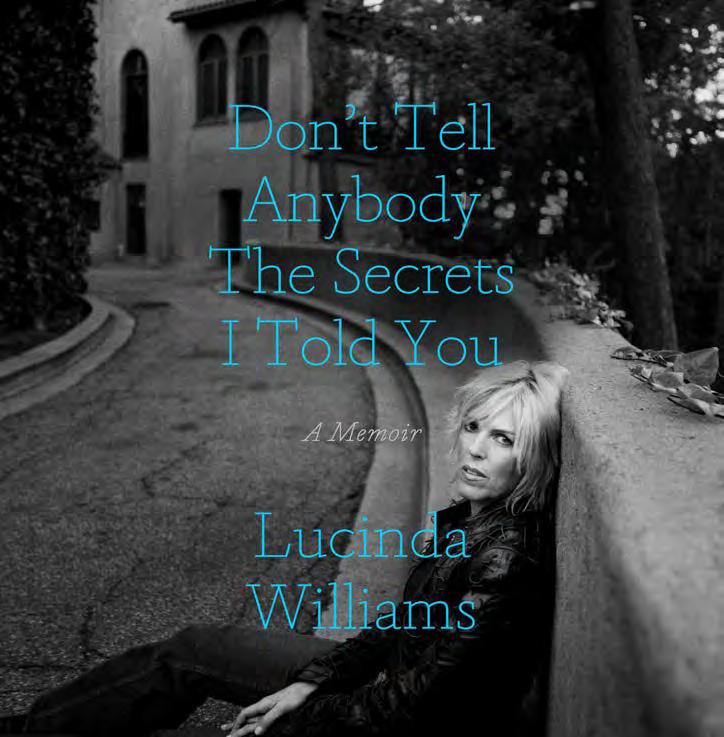
79
Rhythms Books Too
By Stuart Coupe
When you wake up in the middle of the night wondering who was the bass player in Axiom – or who produced the first silverchair album – or what the name of the third Wild Cherries single was – who you gonna call?
Well, it being the aforementioned middle of the night so even if you have Ian McFarlane’s phone number it’s probably not a good idea to call it until the sun comes up. So really, your only option is to stumble out of bed, try Uncle Google or Aunty Wikepedia, or reach for a trusty, made of paper thing called a book and look it up.
Australia isn’t blessed with a huge number of music encyclopedias. Of course, the first such endeavour was written by an Australian, Lillian Roxon, but she wasn’t concerned with Axiom, or the Wild Cherries and wayyyyyyyy before silverchair were even born.
The first actual Australian rock encyclopedia that I’m aware of was assembled by Noel McGrath with The Australian Encyclopedia Of Rock being published in 1978, followed by an updated yearbook type thing a year later, and The Australian Encyclopedia Of Rock and Pop in 1984. These were OK but limited to artists who’d actually made the charts which meant that a whole lot of really interesting and important Australian music didn’t make the cut.
Glenn A Baker and I did two encyclopedia type books in the early 1980s – The New Music and The New Rock’n’Roll – but both, despite hanging a hefty amount of Australian content, were international in tone.
Then in 1999 came Ian McFarlane’s superb The Encyclopedia Of Australian Rock and Pop, a magnificent 700 + page book full of info, statistics, release dates. It was updated and revitalised in 2017 with an equally superb new and updated edition.
Both are rarely more than a few feet away from me – partly because hardly a day goes by when I don’t refer to one or both, plus they’re also very chunky and handy for putting a microphone on when I’m recording a radio show at home and need to get it up to head height. So, they’re both informative and practical.
And now we have another entrant in the rather-big-exhaustive Australian rock encyclopedia world.
Like Ian McFarlane, Michael Smith is a regular contributor to these pages and has been playing and writing about music for longer than he probably cares to think about.

Smith’s project – let’s call it for what it is, a Magnificent Obsession (MO) - is entitled What’s Been Did (And What’s Been Hid): A Narrative History Of Australian Rock And Pop 1965 To The Present
There are four volumes published already and together they number over TWO THOUSAND PAGES – and Smith is only up to 1976. So, working on 1000 pages a decade we can expect the completed work to be approximately 5000 pages which at least in page count bares comparison with Robert Caro’s still not completed five volume biography of Lyndon B Johnson – each published volume of which is a massive door stop of a book.
What makes Smith’s approach significantly different to McFarlane’s is that he incorporates interviews with a large percentage of the key artists, culled from Smith’s work as a journalist. So, you get a lot more than just the facts your honour, but a huge array of recollections and insights from the artists themselves – plus enough facts and info to settle any history of Australian music pub trivia competition debate. All volumes are well indexed – which is essential given that Smith ranges far and wide with his information and discourses. For instance, nestled under a major chapter on Taman Shud is where you’ll go to find material about John J Francis, Albatross and Tim Gaze. You go to Little River Band to find material on Travis Wellington Hedge, Alison Gros, Mississippi, Bob Hudson and Margret RoadKnight.
So, on one hand it can be a bit like visiting a spaghetti factory of information to find exactly what you’re looking for, but part of the joy of that journey is all the info you pick up getting there. And all the quotes from artists gives a personalised, human side to things, making Smith’s history something more than a whole collection of facts. Do you need both the Smith and McFarlane books? I’m glad I have them all – one is essential for when I need to know factual information and NOW, the other is for when I have more time and want to go for a nice leisurely meander alongside laneways and back streets as I get what I’m looking for and disappear down several dozen rabbit holes that I wasn’t even aware existed.
You’ll know which one is right for you. If you’re like me it’ll be all of them too.
80


Womadelaide & Port Fairy
Béla Fleck & Abigail Washburn
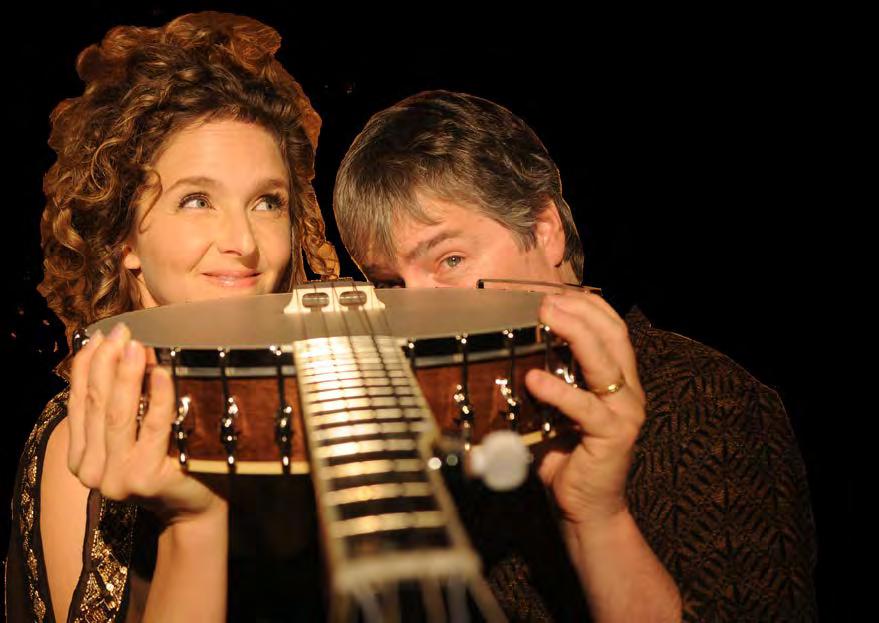
Vieux Farka Touré
Kronos Quartet
Mary Coughlan

Proclaimers
Soul Rebels
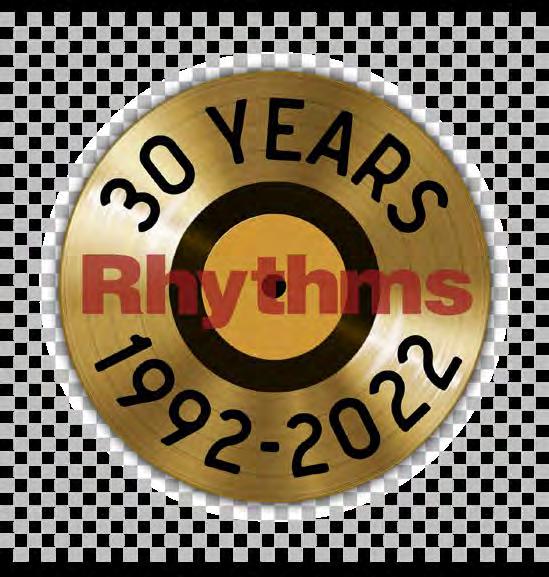
TOURING
Ian Noe
Early James
Redd Volkaert & Ray Beadle
Dog Trumpet
Samantha Fish PLUS 2022 Readers & Writers Polls
HISTORY

The Greatest Concert Ever: The Rolling Stones At Kooyong 1973!
The Loner: Neil Young
HIGHLIGHTS OF JANUARY-FEBRUARY 2033 $15.00 inc GST JANUARY/FEBRUARY 2023 ISSUE: 315
“I’m letting myself out of the box I’ve been putting myself in for so long. There’s a lot of joy and triumph in that.”
READERS POLL 2022



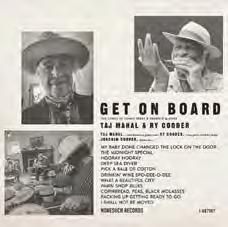



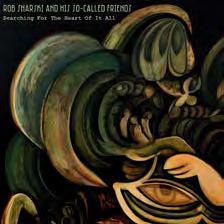

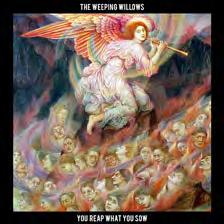
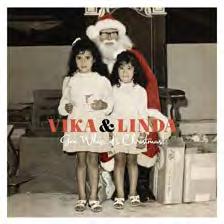
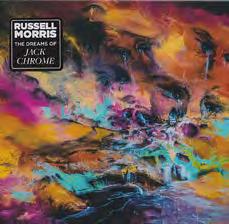
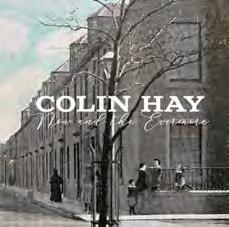

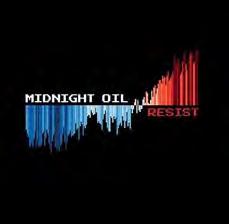
Midnight Oil 1.
AUSTRALIAN ALBUMS OF THE YEAR Resist
The Real World Freya Josephine Hollick 4.
Now And Evermore Colin Hay 2.
The Dreams of Jack Chrome Russell Morris 3.
Gee Whiz, It’s Christmas! Vika & Linda 5.
You Reap What You Sow Weeping Willows 8.
Back In The Day Mick Thomas’ Roving Commission
6.
Searching For The Heart of It All Rob Snarski & His So Called Friends
7.
Sun Sessions Checkerboard Lounge
9.
Hoodoo Gurus Chariot of The Gods 10.
Dreamland Tanya-Lee Davies 10.=
Get On Board Ry Cooder & Taj Mahal 1.
Just Like That Bonnie Raitt
FESTIVAL/EVENT
2. BEST
Bluesfest Womadelaide / Port Fairy Folk Festival BEST tour Midnight Goanna, Anniversary
Oil, Resist Tour Spirit of Place 40th Anniversary Tour
INTERNATIONAL ALBUMS OF THE YEAR
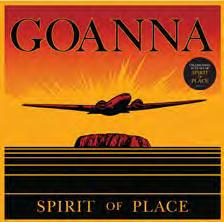
Love In Bright
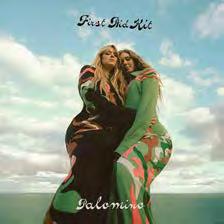
Landscapes:
The Story of David McComb of The Triffids
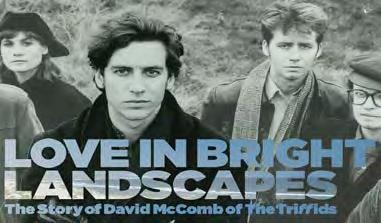
Moonage Daydream
Travelin’ Band:
Creedence Clearwater
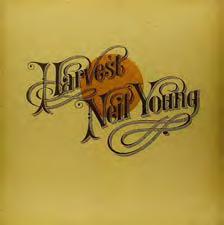
Revival At Royal Albert Hall
BEST MUSIC BOOK
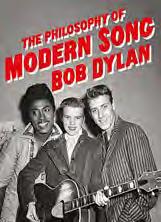
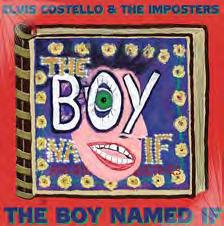
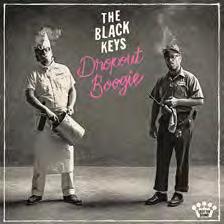
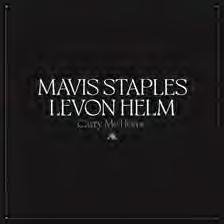
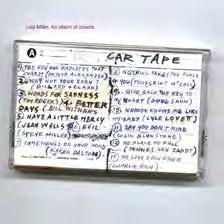
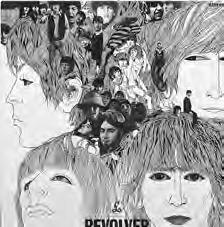
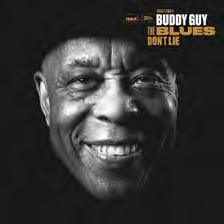
The Philosophy of Modern Song

Bob Dylan
Bill Frisell: Beautiful Dreamer
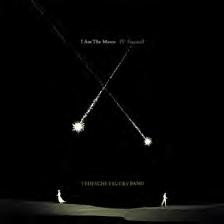
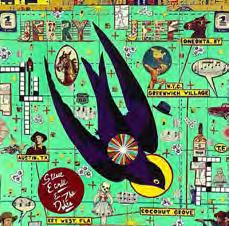
Phillip Watson
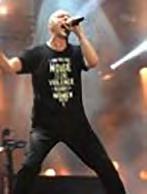
Wangaratta Festival of Jazz & Blues –30 Years, 1990-2020
Adrian Jackson & Andra Jackson
BEST MUSIC DOCUMENTARY
5.
9.
Jerry Jeff Steve Earle 3. I Am The Moon I-IV Tedeschi Trucks Bandnight Oil
The Blues Don’t Lie Buddy Guy 7. Palomino First Aid Kit
Revolver The Beatles 1. Spirit of Place Goanna 1. Harvest 50th Anniversary Neil Young 2. Car Tape Lisa Miller 2. BOX SETS/RE-RELEASES - international BOX SETS/RE-RELEASES - australian
Carry Me Home Mavis Staples & Levon Helm
4.
Dropout Boogie The Black Keys 8.
The Boy Named If Elvis Costello 6. Bloodline Maintenance Ben Harper 10.
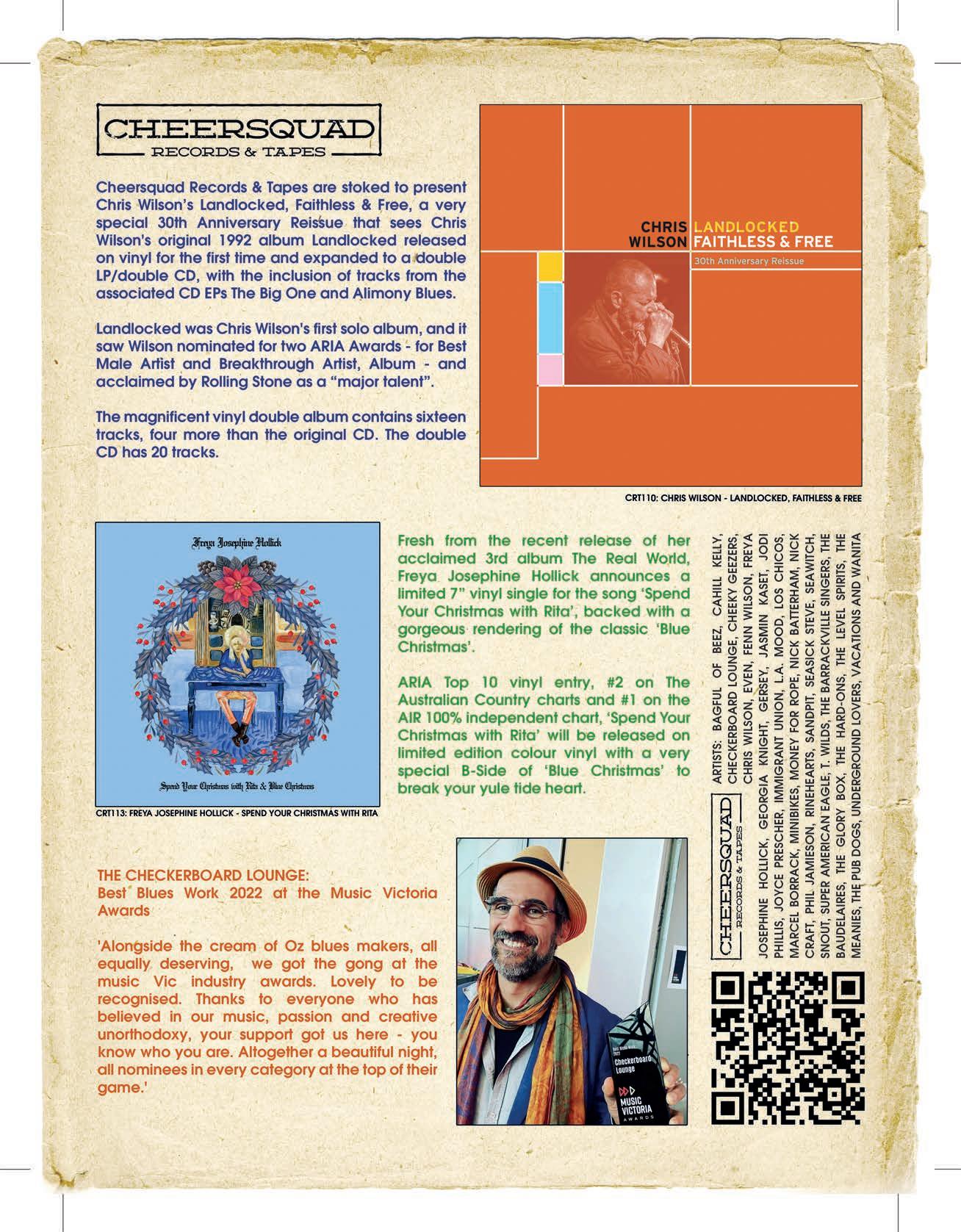

The havoc that the pandemic wreaked on many a musician’s career is well documented. Tours shelved, new albums of work lost in the dust of inertia, incomes ripped away – careers and ways of life upended overnight.
When it hit in early 2020 for Idaho-based singer songwriter Eilen Jewell, she was touring her eighth and then-brand new album, Gypsy. The same sad and cruel story unfolded; her income was gone, along with the relentless touring lifestyle she had immersed herself in for 16 years.
But for the country artist known as the Queen of the Minor Key, the cost became even greater – her marriage also broke down not long after.
“It was everything I knew,” she says. “My whole life fell apart.”
Jewell’s now ex-husband was – and remains –her bandmate, Jason Beek. “He was always in the band with me; my drummer and also my manager,” she says.
It’s not something Jewell has really spoken about, so the news comes as a sad shock when I ask about the life experiences that have informed her just-completed ninth album, after she has described the record as “very personal, with all that’s happened over the past few years”.
“I haven’t told anyone really,” says Jewell of her divorce. “It hasn’t been very public yet. And I just kind of feel like, well, enough time has gone by, it’s time for the world to know, and especially with the new album coming out.”
Get Behind the Wheel is the new album, though it’s not slated for release until May 2023. After we speak, Jewell very kindly shares a preview stream with me. Fans will
be treated to some glimpses from it when she tours Australia’s east coast in March to play a string of theatre and club shows, as well as the Port Fairy and Blue Mountains folk festivals.
The title track comes from a line in the cathartic opening song, Alive, as a nearprimal scream to self to regain control, as a stark new reality ‘comes alive’. For those who have compared Jewell at times to Lucinda Williams, it’s safe to say she out-Lucindas Lucinda in gravitas, grit and raw emotion in this remarkable opener.
“It’s a very open hearted, very big, lots of big feelings, big emotions … yeah, it’s a very personal album,” says Jewell. “Autobiography is kind of new to me. I used to kind of sing other people’s stories, but with all that’s happened over the past few years, I just really felt like what was important to me was to sing about what I was experiencing on different levels.”
Jewell’s well of experience ran deep, as she also suffered family losses during the same period – “not even COVID related but just one after another. It was just like, ‘I can’t believe I lost another person and another thing that was dear to me’.”
“And in all of that, it kind of showed me what really is important in life. And yeah, my heart broke for sure, but it also kind of broke open and I feel like I’m sort of more real as a person now as a result of all of that.”
To that end, says Jewell, Get Behind the Wheel “feels more real to me than previous albums”.
“I wonder if others will hear it this way, but to me, this album sounds really free,” she says. “There’s a lot of freedom in the way that I’ve written the songs and the way the band and I have performed them. I’ve been doing a
lot of exploring in my personal life. So yeah, I hear this [album] kind of like, I’m letting myself out of the box I’ve been putting myself in for so long. There’s a lot of joy and triumph in that.”
Jewell hasn’t been to Australia since 2018, so can’t wait to return with guitarist Jerry Miller, new bass player Matt Murphy and Beek, with whom she seems to have found a new ‘normal’ after almost two years of divorce. “We’re friends still, and we’re co-parents to a beautiful little girl.”
Their daughter Mavis (named after Mavis Staples) is now eight and is already showing her parents’ inclination towards music. She’s writing songs – “I’ll hear her singing something and I’ll say, ‘what’s that song, that’s amazing?’ and she’s like, ‘Oh, it’s just something that I wrote’ “ – and inviting herself up onstage with her parents. And although she has been to Australia before, this time Mavis will remain in Idaho with Jewell’s mother due to school commitments. “School’s really important to her and she hates missing it,” says Jewell.
The death in October of country music titan Loretta Lynn also hit hard; Jewell’s love for Lynn was writ large on her 2010 album of Lynn covers, Butcher Holler – the name taken from Lynn’s Kentucky hometown.
In 2007, around the time of the release of her second album (Letters from Sinners & Strangers), Jewell had a “dream come true” when she got to not only support Lynn at a theatre in Massachusetts, but to meet her. Although Lynn had been unwell, when Beek told the star’s tour manager that he and Jewell also had a Loretta Lynn cover band called Butcher Holler, the delighted manager granted an exception to the ‘no meet-andgreet’ rule.
From the ruins of 2020, Eilen Jewell has written her most personal album to date –and you’ll hear some of it when she and her band return to Australia for the first time since 2018. By Jo Roberts
There’s a lot of freedom in the way that I’ve written the songs and the way the band and I have performed them. I’ve been doing a lot of exploring in my personal life.
“She was just so gracious and sweet and kind,” recalls Jewell of meeting Lynn. “And then, as we were getting our picture taken together, she said, ‘all right everyone, now say whiskey’. And we were just laughing so hard, because I guess we didn’t expect her to say whiskey. So now every time I get my picture taken with someone, I always say, ‘say whiskey’. It’s more fun than cheese.”
Jewell has plans for another album in 2023 “as a way of saying thank you” to Lynn – a re-release of Butcher Holler featuring additional material. Butcher Holler Revisited will have some live versions of songs already on the original, but also a version of Lynn’s fearless call for women’s liberation through contraception, The Pill
The song’s inclusion is timely, given the United States Federal Court’s recent reclamation of women’s reproductive rights;
in June 2022 the court sent shockwaves around the world when it overturned the 1973 ‘Roe vs Wade’ ruling that had entitled women to legal abortions in the US for almost half a century.
“We never recorded it before. I don’t know why I never thought to do that one,” says Jewell of The Pill. “She wrote all the songs on this album [1975’s Back to the Country], or cowrote, and I guess maybe I just wasn’t aware that she had actually written The Pill. So once I found that out, I was like, okay, well we have to add that.”
“It’s such a hot topic right now and I want to amplify that message, for sure.”
Jewell brilliantly addressed gender equality herself in the song 79 Cents (the Meow Song) on Gypsy, the 2019 album she will now finally get to showcase here.
A proud Democrat living in the deep ‘red’ state of Idaho – or “left-wing swine” as she calls herself in the song – brings her whip-smart, acerbic observation on gender inequality and the pay gap to the song in
deceptively cheerful ditty mode. “The heart of your home, works her fingers to the bone, for her 79 cents to your dollar”. Its alternate title is a swipe at the previous occupant of the Whitehouse and his leering ‘pussygrabbing’ boast.
Fingers crossed it will be in her live set when she finally returns to Australia. We’ve been a regular destination for Jewell and her band since the released of her third album 2009’s Sea of Tears, and her debut Australian tour on the back of it in 2010.
She has enjoyed wording up new member Matt Murphy – who has never been to Australia – about what to expect.
“We’ve been singing the praises of the people,” says Jewell. “We’ve been talking up [people in Australia], how they just love live music and they’re so sweet and friendly and they seem to have, compared to a lot of places in the US, a really high quality of life, and it shows. And the wine is really good and the food is lovely.
“And we try to steer the conversation away from spiders and snakes, because he’s very afraid of them. So he’ll say, ‘but yeah, but everything down there can kill you’. And we’ll say, ‘no, it’s great. We’ve been there many times. We haven’t died yet’.”
Spoken like a true survivor.
Eilen Jewell kicks off her Australian tour on Friday 3 March at the Archie’s Creek Hotel. Details at lovepolice.com.au. Her album Gypsy is available through Signature Sounds.
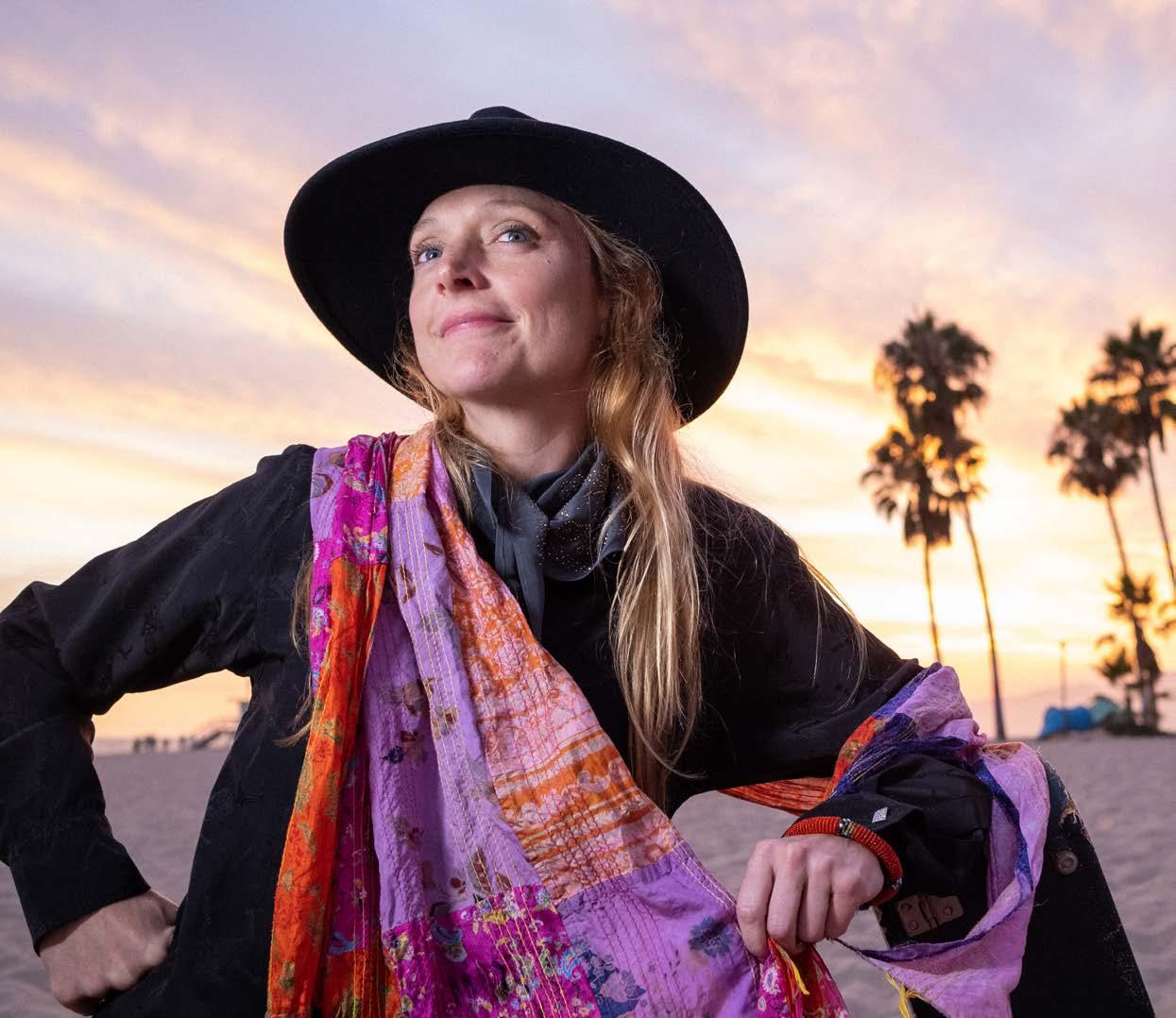
It’s a partnership made in music heaven. Béla Fleck, fifteen-time Grammy Award winner and Abigail Washburn, singersongwriter, clawhammer banjo player who combined it with a Far East influence. The analogy sounds like a cliché until you see them together, as I did at Americana a few years back. Not only could you experience the interplay between their two different styles of playing but you could sense the intense musical connection. One comparison that came to mind was when I once saw Dr John and Allen Toussaint sitting opposite each other at grand pianos and playing as if they were one person.

It is a rare connection and one that we will be able to see soon. Not only that, we will probably get the full gamut of educational and often amusing stories centred around the banjo; though in their humility they might neglect to mention the Grammys they have won together (1) and individually (Bela, 15, including this year’s Best Bluegrass Album gong for My Bluegrass Heart).
Fleck will probably explain how he plays banjo in a traditional style, like his hero Earl
Brian Wise
Scruggs. Washburn might tell you about the clawhammer style that she saw Doc Watson use. Washburn might also sing in Mandarin, which she studied when she planned to live in China. They might also tell you how they first met at a square dance and began collaborating which led to an even deeper relationship.
They might play selections from their Grammy Award-winning self-titled debut album together from 2014 or from its followup Echo In The Valley from 2017. They could choose a selection from Fleck’s catalogue with his long-running, multi-award-winning group the Flecktones which he started back in 1988, preceding many of his eclectic collaborations and styles. Possibly they will delve back into Washburn’s early days with the all-women collective Uncle Earl in 1999 (with an album produced by John Paul Jones of Led Zeppelin) or the more recent Wu-Force; or, she might even tell you about being named the first US-China Fellow at Vanderbilt University.
Whatever the conversation, it is bound to be as delightful as it was for me catching up
with the couple on Zoom while they were in their home in Nashville prior to heading off on tour. Fleck is originally from New York and Washburn is from Illinois but they both love living in Nashville. The sounds of their two sons, aged nine and four drift away in the background as we talk. Like many close couples they often finish each other’s sentences.
When I ask when they first moved to Nashville, Washburn says, “I’ve been here almost 20 years, and Bela’s been here…..”
“I’ve been since here since 1981,” he says, “So quite a while. I’ve watched it change and it’s not all good from our perspective, but…..”
“Some of it is,” chips in Washburn.
“I’m sure it’s a lot of fun to come to and be at a scene,” explains Fleck, “but as the town has gotten bigger and bigger, it’s not really prepared for it. Infrastructure isn’t really there and so we stay home more and more.”
“It’s true,” agrees Washburn. “It used to feel like a small town where you could get anywhere in 15 minutes, 15 to 20 minutes, and now…..”
“That’s all over,” says Fleck. >>>
Béla Fleck and Abigail Washburn are known as the ‘king and queen of the banjo’ and their forthcoming tour is sure to demonstrate the amazing sonic possibilities of the instrument.
By
>>>
The good part, I suggest, is that there are still an incredible number of amazing musicians in Nashville.
“The town has gotten even richer and richer as far as the musicians,” agrees Fleck. “I’m always finding out about great musicians from all walks of music that have moved here. Jazz musicians, rock musicians, and, of course, great country musicians, singer/ songwriters, and great bluegrass players. A lot of them moved here from Brooklyn and a lot of people were up north, moved down here. So, that part is really good.”
“It’s gotten harder for young musicians to start here though, because it’s gotten expensive to live here,” adds Washburn. “Abby and I are coming over as a duo to Australia, and now we’re looking forward to that,” says Fleck when we move on to the forthcoming tour here. “In fact, we just did a number of shows. It was really fun to rediscover our duo.”
“But this year has been a very busy year for me,” he adds, mentioning that he is about to go out on tour for some dates with his own band before coming here. “Kind of reconnecting with the bluegrass community and just going back and finding a way to be myself in that world and really have had a wonderful time playing with all these musicians. The people in the band that I have are just some of my favorite musicians in the world of all music: Michael Cleveland and Sierra Hull, and Brian Sutton and Mark Schatz and Justin Moses. It’s just a great band. So, I think it’s very much a band that can stand up next to the Punch Brothers and hold their own, which is not easy to do. Those guys are the greatest out there these days, and so I’m excited to put the bands together and interact with them.
“So, after a busy year of touring with this band, this is going to be highlight. Then we’re going to kind of put it to bed for a while and I’ll be doing things like this with Abigail and some other projects that have been waiting.” What does he mean when he says that he had to reconnect with the bluegrass community?
“I guess I felt at a certain point by the end of the Eighties that maybe – and it’s not that I was bored - there was a lot of stuff that I could do outside of that world maybe that other people couldn’t do."
“There’s a lot of great bluegrass players and even a lot of great modern bluegrass players coming up. But I felt there were things, there were areas, that I could maybe make some headway. So, some of it was like interacting with jazz musicians and classical musicians and musicians from different cultures.
“I just really wanted to step out and - because I’m not from the South, I’m from New York City - I always felt a little bit outside of bluegrass. But I really did find the community there. But then I went off and I started the Flecktones, that really took off and it was
completely banjo outside of bluegrass, clearly in a situation where it could be played in rock venues and jazz venues and world music venues and not seen as a hillbilly Southern white instrument. Of course, I loved the hillbilly Southern white banjo playing. I wouldn’t play the banjo if it wasn’t for Earl Scruggs, but I’m from New York City, so it had to be honest for me as well.
“So anyway, periodically I would go back and reconnect with my clan of the best bluegrass musicians, my favourite bluegrass musicians, I should say – Tony Rice, Sam Bush, Jerry Douglas, Mark O’Connor, Stewart Duncan, Mark Schatz - and make a record like every 10 years or so. But then in between I was playing with Chick Corea, I was playing with a String Quartet, I was playing with orchestras, I was going to Africa, I was playing with the Flecktones a ton.
“So, in fact, the first thing that was kind of close to coming back to the bluegrass world was playing with Abigail, which was very much of a roots project where we have to have the banjos down front and centre. It was a real joy to go back and play a lot of those festivals and be part of that community with Abigail, which is part of what drew us together. But it was one big step away from that to actually go back to playing in a bluegrass band.”
Of course, Washburn has her own career, so how does the collaboration work?
“Well, in a way, it’s been a collaboration of convenience,” she responds, “although we always did want to make music together, but when we had our first child, Juno, that’s when we made our first record. I wouldn’t recommend having a baby and then making

your first record, which is what we did. I would make the record and then have the baby. That was challenging.”
“We could have planned better!’ she laughs. “The next time when we had Theodore, our second son, five years later, we did plan ahead, and we made our record before he was born. And then that was a lot smoother. But we decided we really wanted to hit the road together so we could be with our child and then our children together and it’s been so wonderful to be able to tour as a family. What an incredible privilege to get to do that. Now our son, Juno often will sit in on a song and sing with us during the show and is starting to play fiddle. And our dream of the family band, growing it from the ground up is happening.”
“There was also a history of some families in bluegrass,” says Fleck.
“I was always thinking about Norman Blake and his wife touring together, how he just decided, ‘I’m going to play with my wife.’ And he built a whole career for him and his wife to have a whole way of playing. He could have done a lot of different things and it was great. It was different. It was a whole new offering to the community. So, the other thing is that we didn’t know we were going to sound good together.”
“Yeah,” chips in Washburn. “I mean two banjo players that play two different styles, like building a whole repertoire of music around themselves, it’s not the most self-evident project. So, we both enjoy challenges. That’s one of the things I think that brings us together. We both enjoyed the challenge of how are we going to make this actually really musical and beautiful and fun and meaningful and how do we make a whole night of it? And then how do we make
“I think when I was playing in the ‘80s….. if you put the banjo on something it dated it or it made it sound a little bit hokey. Nowadays people put banjo on things to give it class.”
going on 10 years of this music together and sharing it with the world. And now we have quite a backlog of songs and experiences together on the road.”
“We’ve built this musical web of the two banjos,” notes Fleck, “because for folks that don’t know, Abigail plays the old time style, which is an older style of banjo, more related to the African origins called claw hammer sometimes or flailing. I do the bluegrass style. We both do different things with these old styles, but they aren’t typically done simultaneously. So, we’ve come up with a lot of strategies for how to make these two banjos together, serve a song.
“Abby’s a great singer and fortunately we’ve got that going for us. So, we are figuring out how to surround her voice with the two banjos and create an interesting arrangement and take you somewhere with just the two. We bring instruments that are in different ranges. So, we have lower banjos and higher banjos and different tunings. We found a lot of strategies.”
“The cello banjo really opened up our duo as well and the baritone banjo,” says Washburn. "So, we’ll bring the baritone and cello banjo with us to Australia to share that with people. So, that just spreads out the dynamic pitch range a lot and creates a beautiful soundscape and neat spectrum.”
“I mean, two banjo players that play two different styles, like building a whole repertoire of music around themselves, it’s not the most self-evident project.”
“Also, I just love backing up a great singer as if I was a pianist accompanying a vocalist,” says Fleck. “And so, I love supporting. On some songs, Abby can put down the banjo and just sing, whether it’s a blues-oriented screamer or whether it’s something very subtle or jazzy even. We both enjoy those kinds of things too. Also sometimes Abby sings and dances at the same time simultaneously, which is a show stopper. So, we got that going for us. Occasionally a kid comes out and they say, ‘You should never follow a kid.’ But when our kids come out, it always a lot of fun. People love it. So, that can happen occasionally too.”
Both of them were responsible for bringing renewed attention to the banjo over the past few decades and now that has expanded with musicians such as Rhiannon Giddens exploring the origins of the instrument.
“I think when I was playing in the Eighties, it was a little bit of a laughingstock,” says Fleck, “and if you put the banjo on something it dated it or it made it sound a little bit hokey. Nowadays, people put banjo on things to give it class. In Americana world, when you hear a band it’s like, ‘Well, what can I do to make this feel real rootsy and more meaningful? I’ll put a banjo on it.’ It’s a real change in perception from when I first came into it and ‘Dueling Banjos’ and Deliverance and everything that movie brought to mind and the very Southern white part of it in a negative way. There was a negative connotation to the banjo, and it was kind of a joke. I never liked that. I never found the banjo funny. I found it to be very serious.”
Bela Fleck & Abigail Washburn will be appearing at Womadelaide and doing other dates. Check the Rhythms Gig Guide at rhythms.com.au
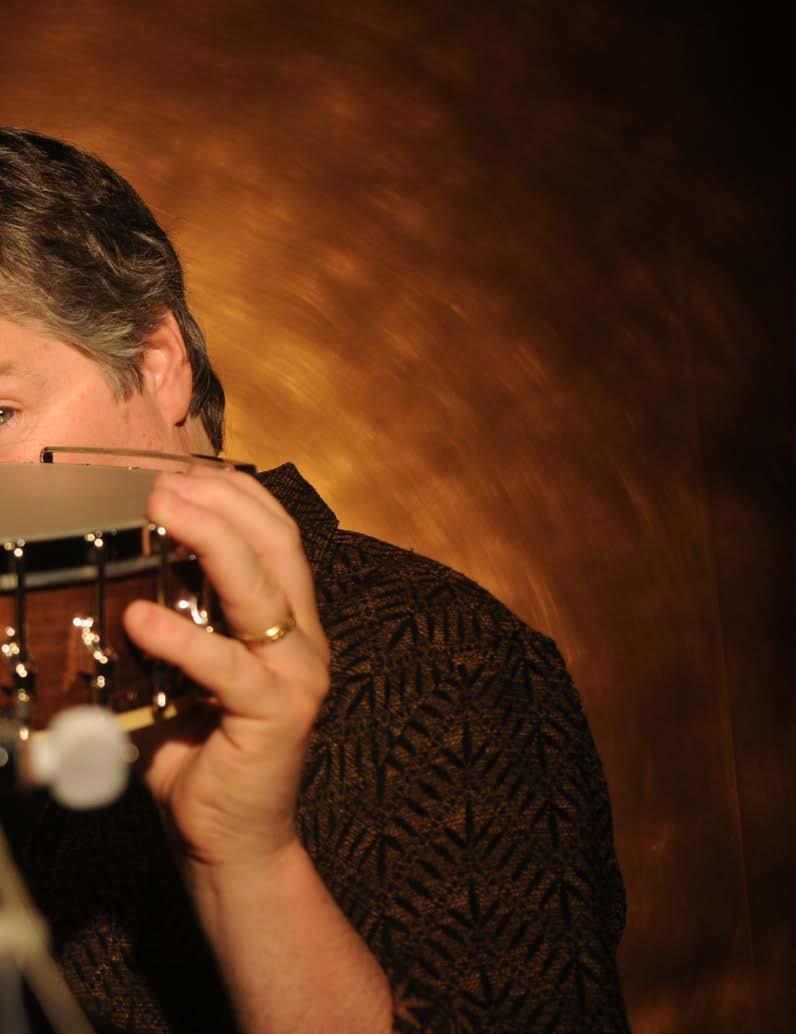
–Bela Fleck
–Abigail Washburn
Today’s the third time we’ve spoken ahead of what was meant to be a unique spin on the usual tour for the folksong-writing activist, or pop music socialist: three shows in each town, split between songs drawn from albums in the first part of his career on night one, albums from the second part of his career the second night, and an all things to all people mixed show on the third.
It’s a neat hook for someone who has been coming here since the 1980s – solo; with band; with buddy/sidekick Wiggy; but thankfully never with an orchestra! – and is on nickname terms with the current prime minister (“how is Albo doing, generally?” he asks. “And how’s he doing as a geezer?”), and audiences seemed keen to indulge in multi-night lock-ins with him.
But it’s been delayed twice already in 2020 and 2021 by you know what, and since that first tour announcement the second half of his career has grown an extra limb: 2021’s musically rich, emotionally packed The Million Things That Never Happened, not to mention another book, The Three Dimensions Of Freedom, to add to The Progressive Patriot: A Search For Belonging and Roots, Radicals And Rockers: How Skiffle Changed The World.
In the enforced lull, did he feel like he lost momentum? And I don’t mean sales wise, but rather personal intent and inspiration. “Yeah, I did. The first lockdown was like an adventure: what can we do, how can we engage with the way the world is, what’s going on - all the different ideas that people are expressing. That was really interesting. Then the second lockdown came, and when the second lockdown came I really did think, fuck, I’m not really sure how long this is going to last, I can’t just keep churning stuff out,” Bragg says.
“I wasn’t one of these people who got a great deal from doing online gigs, playing to your iPhone in your living room, not being able to get any response. It wasn’t really my idea of doing a gig, so that’s when I came up with the idea of focusing on doing a record.”
The triple night idea, the new album, you could say these was all so 2021. What’s left to spark the interest of long-time fans?
“There’s shadow puppetry. I can always do a little bit of that for you, on the back wall,” he says, demonstrating from the seaside home he and his more immunocompromised wife, Juliet, holed up in during the worst of the plague times. “I can do animals, I do this for my granddaughters. And lots of grandpa’s campfire songs, which we greatly enjoy.”
The shadow puppetry admittedly is novel, but Grandpa Bill might be the telling bit. After all, Bragg has now written several children’s songs, initially for the granddaughters but then the rest of us. One was a singalong version of Bear Hunt (based on Michael Rosen’s 1989 book, We’re Going On A Bear Hunt), which was followed by the whole of Judith Kerr’s The Tiger Who Came To Tea.
“I really enjoyed doing them, it was a completely different headspace. And it was a good way of kicking off the songwriting, because I’m not writing songs all the time the way I used to. I do other things in between: I write books, I’m shitposting on social media and stuff like that, lots of other creative things to do.”
The only thing that put the brakes on his burgeoning king of the kids career – and he reminds me that one of his heroes, Woody Guthrie, was not averse to writing children’s songs either – was the fact his “grown-up” record was coming along swimmingly, if a little slower.
“The last probably 20 years, [songwriting] is something I’ve had to tune into when I’m making an album: to make it an intuitive thing, get into that headspace. What generally happens is going to the studio with half a dozen songs and write another half dozen while I’m there or finish another half dozen I’ve woodshedded. That’s basically my songwriting process.”
As for the shitposting? Well, it’s hardly shitposting, unless you’re a transphobe.
“I think the arc of history is long, but it bends towards inclusivity, doesn’t it? So many of the movements that we see out there are about inclusiveness now. I’m expressing my support for the trans and non-binary community, and I’m really amazed by the number of antitrans activists I run into there who are dissing inclusivity, who see inclusivity as a negative, as a problem, whereas in the World Cup they’re trying to wear armbands
to promote inclusivity and make everybody feel part of the whole thing.”
As well as a rabid anti-trans campaign worldwide and Space Karen taking over Twitter, there has been a bit on since Bragg first devised this triple night show. For a start, Britain’s had about seven or eight prime ministers which is, well, a bit excessive.
Yes, I’m well aware of the brazenness of an Australian who lived through Rudd/ Gillard/Rudd/Abbott/Turnbull/Morrison making such a comment. But really, how’s a dedicated musical socialist meant to keep up with topical diatribes about another soul-sucking Conservative PM when they park it and cark it before a writer can get his bearings?
“We’re flying through them, yep, flying. The whole thing is crazy,” Bragg chuckles in a socialist accent. “Trying to keep on top of that is really strange. Sometimes you just have to step back from it. The times when you could just write an incisive song, things need to move a bit slower to do that. It’s just not possible to keep up on that kind of change.”
Was Liz Truss in the long enough for him to write a song about her?
“She wasn’t in long enough for me to sneak her into Great Leap Forward, that’s where I usually put them. Anything topical I usually stick it in there, but before I’d even got my bearings on her, ffft, there she’s gone. There goes another one! So, no, sadly, she wasn’t. “But she lives on now as a kind of zombie prime minster. She was at the Cenotaph on Remembrance Sunday with all the former Prime Ministers, and [I thought] my God, she is going to be there for the next 20 years, turning up to remind us what a terrible, terrible prime minister she was. At least Boris kind of bluffs it out, still thinks he’s Winston fucking Churchill but Liz Truss looks like a pot plant.”
What a cultural tragedy that the pot plant didn’t make it into Great Leap Forward.
“I’m glad because what she did was she kind of broke the idea of neoliberalism, her kind of cosplay Thatcherism is in the dumper now. They know now they can’t do that: not only did the public not want it but the market don’t want it. And as Thatcher famously said, you can’t buck the markets. Billy Bragg quoting Margaret Thatcher … what a time to be alive.
Full dates and tickets from handsometours.com/tours/billy-bragg

Billy Bragg will be touring at last, unless we’ve jinxed him. Bernard Zuel has spoken to the Bard From Barking twice before in the past two years.

THIS BUD'S FOR YOU
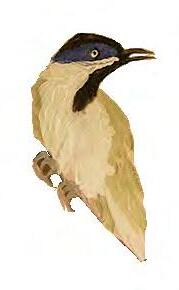
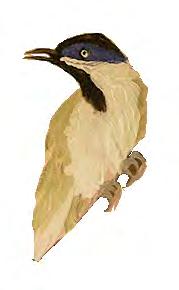 By Steve Bell
By Steve Bell
Yet since recently being given the opportunity to put these songs which had accumulated in his head down on tape in the studio, the 35-year-old singer-songwriter has been getting great traction with his authentic country music aesthetic and songs whose heartfelt lyrics drip with hardwon life experience.

In a short period of time he’s already earned comparisons to lauded country forebears like Johnny Cash and Townes Van Zandt, as well as treading the boards at festivals such as Gympie Muster, Dashville, Queenscliff and Groundwater. These songs were obviously coming to Rokesky for a reason, it just took him a while to realise it.
“I don’t know if I’d call it a passion, it’s more of a compulsion,” he reflects on his songwriting. “Many, many times I’d think, ‘This is just getting in the way, I need to be focussing on family life, home life - even extended family life and all that stuff - and here I am and I can’t get this bloody music out of my head!’
“I never really got to play any shows before COVID at all, I was really just a songwriter. It’s only been pretty-much post-COVID that I’ve been playing shows. I just loved the songwriting - it gets the emotions out of you and you get to deal with stuff.
“Like I said it’s a compulsion - you get this whole story just delivered into your brain in a split second out of nowhere, and it just sits in there making a ruckus until you do something about it. You’ve got to get it out. You’ve got to get it out and once you do you feel amazing from it, and then you show a couple of mates and if they love it then it’s the best feeling in the world, and then I’m done”.
Fortunately one of those who’d heard and liked this growing stash of songs was Alex Henriksson, a close friend since the pair had met during Rokesky’s childhood spent on
a 170-acre property just outside the small Queensland town of Imbil.
Once Henriksson started a new label Rainbow Valley Records with business partner Matt Corby he quickly signed up his talented mate, ushering into existence Rokesky’s excellent debut album Outsider “None of it was recorded - it was all just sitting in my head in a constant loop - so getting it out has been definitely a massive relief in a way, just clearing that headspace,” the singer admits. “As soon as we finished recording the album I think I wrote about six songs in a week, because there was a bit more space for these new ones to come through instead of me just hanging on to the old ones.
“I guess in terms of the country sound it’s just that my lifestyle lends itself to thatit’s most relatable to where my priorities are at this time in my life. They always have been - I always wanted to have a family when I was pretty young, I always wanted to be a young dad, which is a bit weird to some - but that was my priorities and how I wanted to live my life, and that’s what I ended up doing. That’s why I never really chased music when I was younger, because it wasn’t really a priority.
“And growing up in the small rural town country music was everywhere, for sure. The kids on the bus would make mixtapes and try to get the driver to play them, and while it might sometimes be Blink-182 or something random I was definitely exposed to a lot of country music that way, and the blokes in town just lived and breathed it. It wasn’t necessarily even the music but just the way they lived - it was sometimes like I was growing up around country songs without even hearing them.” And while Outsider contains some beautiful paeans to family life, there’s also an undercurrent of living on life’s peripheries that traces back to his time spent growing up out bush.
“There’s a lot of things relating to the ‘outsider theme’ but they do go back to those times,“ Rokesky tells. “We lived about a sixminute drive from town - although there wasn’t always a car so it was a 45-minute walk - and the town itself only had about 300 people in it anyway, so I guess there was a close-knit thing going on in town and even though it wasn’t very big you were still really removed from that, even though we weren’t that far out geographically.
“Then there was the isolation of the property itself and all of that, and my parents weren’t really rural types - they’d moved out there from the city - so I definitely felt like an outsider in a lot of ways back then”.
Songs have always come thick and fast to Brisbane-based truck-driver Bud Rokesky, but for many years they remained untouched in his head as he focussed on his growing family and the many attendant responsibilities he faced as a husband and a father.
Alabama-bred singer-songwriter Early James dropped his debut album Singing For My Supper to great acclaim in early-2020 - just in time for touring plans around the record to be pretty much scuppered by the pandemic - so instead he teamed up again with that album’s producer Dan Auerbach (of The Black Keys fame) and started work on what would become the follow-up, the presciently-titled Strange Time To Be Alive. BySteveBell
James’ music is a unique and at times ominous amalgam of different styles - an intriguing gumbo of blues, jazz, folk, soul and country - with the singer, despite his relatively young age, conjuring up noir imagery and spectres of the American South in a voice as weathered as time itself.

“My favourite musicians are all people who are constantly changing, like Miles Davis or Ween or The Beatles I guess are an easy example,” he reflects on his inimitable style. “Daniel Romano is a great example too - you think you have him figured out and then he throws you a curveball.
“You don’t always have to like every record - there are a lot of Ween records where I’m like, ‘I’m glad y’all did this boys, but I’m not sure y’all had to’ - but I love all kinds of music, and I can’t help but be influenced by it so it comes out in one way or another I reckon.
“But I don’t feel risky, it’s just a gut feeling towards what sounds good or what doesn’t. And I guess when you’re working with a band like the one at Easy Eye [Sound studios in Nashville] that Dan hired, they have such a broad paint palette that it doesn’t feel like taking a risk when you’re around those folks because they’re so confident. ‘So you want to take it there? Yeah, we can take it there if y’all want to’.” James admits that it’s been surreal working with Auerbach on his first two albums given that in his youth he was a huge fan of The Black Keys.
“I was big into him in high school so it was a bit strange to meet him, so’s the fact that I can text him a photo of a steak I cooked - because he’s an avid cook,” he smiles. “We rarely talk shop or anything about guitars, it’s mostly just pictures of food we cooked. He’s like my own personal Instagram.
“He was someone whose songs I was learning when I first picked up guitar, and I remember the first time hearing words I wrote come out of his mouth - he said, ‘What if you do it like this?” and took his guitar and played something I’d come up with - I was like, ‘That’s fucked! That’s weird!’ It feels like it wasn’t supposed to happen, then you pinch yourself and try to wake up. It’s been a blast working with him.”
On every release that Auerbach oversees at Easy Eye Sound he prefers working with his same trusted Nashville session players, sometimes to the chagrin of the sidemen of the artists involved.
“I think that really creates contention sometimes because if a band works it ass off, to not be included on a record does hurt some feelings,” James tells. “I understand why Dan does it - it’s a very curated sound - but this time Dan let me use Adrian Marmolejo [upright bass] who I’ve played with for the past six or seven years, so it felt like I had a little bit of my band, and it was nice to have that.
“But when you build that rapport for over a decade - he always uses the same guys - so they can read each other’s minds. There’s very rarely more than three takes on a song just because they’re that good. We recorded almost 20 songs in three days, so I think it greatly helpsit might hurt a few folks’ feelings but it’s certainly an expedient way to put out records.”
It seems incredible given the assured sound of the Strange Time To Be Alive that it was all put down so quickly.

“It was almost traumatic when it was over - both times - because you just get so sad, and go, ‘Fuck, I should have put that song on there’ or ‘Why did I sing that that way?’,” James laughs. “I’ve heard about bands breaking up making records because it’s such a long-winded process and nobody can agree on what should or should not go on the record. “It almost seems like a magic trick the way it’s worked with Dan, just because you’re in and you’re out - ‘Oh wow, that was 18 songs!’ I’m curious as to when I finally get the chance to take say a month to make a record, if it will sound better - it will probably just sound different.
“That’s just Dan’s way of doing it, and I think he got that idea from a lot of places but specifically FAME Studios at Muscle Shoals did thatthey did everything live and they did everything quick - and that music all turned out pretty good”.
Early James will be touring with Ian Noe. Check the Rhythms Gig Guide for dates.
SIC
U M NE SW
NOE WAY!
Kentucky-bred singersongwriter Ian Noe’s spectacular second album River Fools & Mountain Saints may have been conceived and recorded during the recent pandemic, but he didn’t need to tap into those tumultuous times to inform his most recent collection of authentic country-folk ruminations and Appalachian balladry.
 By Steve Bell
By Steve Bell
Back in early-2020 a series of devastating floods ravaged areas of south-eastern Kentucky - including Noe’s hometown of Beattyville - and it was this turn of events that first gave Noe the title of his new collection, and in time the evocative songs which comprised it.
Tales full of intricate rural character studies, dissecting the lives of folks already down on their luck but now pushed to the outer limits of endurance, with some finding strength in adversity but others buckling to the relentless pressure.
“I knew what the album was going to be, really all I needed was just the title,” the singer reflects. “Once you know where you’re going with the feeling of a record it’s not that hard to get your songs.You just have to be able to see what you want to say, and if you have the vision for it then it should be able to fall into place, if you’re not full of shit.
“Essentially, you’re just writing a movie is all you’re doing - if you’re writing to a title like that then all you’re doing is building one big movie and writing all these songs for all the scenes. And the scene that I had was my flooded eastern Kentucky town, and every nook and cranny that I could possibly fit into that vista. It wasn’t aimless by any stretch.”
This novel approach to his craft explains why most of the narratives on River Fools & Mountain Saints seem geographically rooted in the same place.
“Absolutely, I wrote it with that in mind,” Noe admits. “Already having the title River Fools
& Mountain Saints I figured that title was so strong that I’m not going to start singing songs about New York City or Los Angeles - no offence to those places - it’s just that a title like that really speaks a lot to me about what that would say, so I wrote the rest of those songs around that image.”
When it comes to individual songs it’s not the title that Noe finds imperative to the writing process, rather the track’s opening gambit.
“I don’t have a hard time writing a song, what I really try to do is get the first line - that first line of a song is so important,” he explains.
“And that might be the hardest thing that you write, because if you can get that first line and you already know where you’re going with the song then it’s pretty easy for me to get it done after that.
“But you already have to be going somewhere - the song has to already be there, if that makes sense. You already have to be going in a direction. More often than not the thing that I’ll get first is the second chorus or the second verse of a song - a lot of times the first line of a song is the last thing that I finish, but it will be the thing that ties it all together.
“That process of songwriting is my favourite thing to do. My favourite thing to do is sit down and try to figure out a song - or try to pull together a new song - and my second favourite thing to do is go into the studio to lay it down”.
Which on River Fools & Mountain Saints Noe did with complete aplomb, hitting the studio
with producer Andrijia Tokic (Alabama Shakes, Margo Price) and a team of established musicians and concocting a perfectly timeless roots sound for this batch of tunes.
“The people that I work with made the sessions easy, because when you’re in tune with each other you don’t have to go around in a lot of circles trying to figure out what you want,” he tells. “Usually by the third or fourth take if it’s not happening, we’d skip it and go to something else, but most of those songs were pretty easy to lay down.
“I figure if it’s a good song it shouldn’t be too hard to put down, you shouldn’t have to fight it too hard. And if it’s a good song you should be excited about singing it, and then it comes pretty easy.”
For his impending inaugural Australian shows Noe will be appearing on his lonesome, something that he says doesn’t perturb him in the slightest.
“I love playing solo, that’s how I came up,” he smiles. “I’d only really been playing with a band for a couple of years prior to the pandemic, but even when I’m touring at home with the full band, I’ll usually do a small acoustic set somewhere, like a third of the way through. But yeah, it’s in my blood - I love playing solo. I honestly can’t wait to get down there, it’s going to be incredible.”
Ian Noe is touring in March. River Fools & Mountain Saints is available now through Thirty Tigers.
SIC U M NE SW
An Arnhem Land musical experiment comes of age
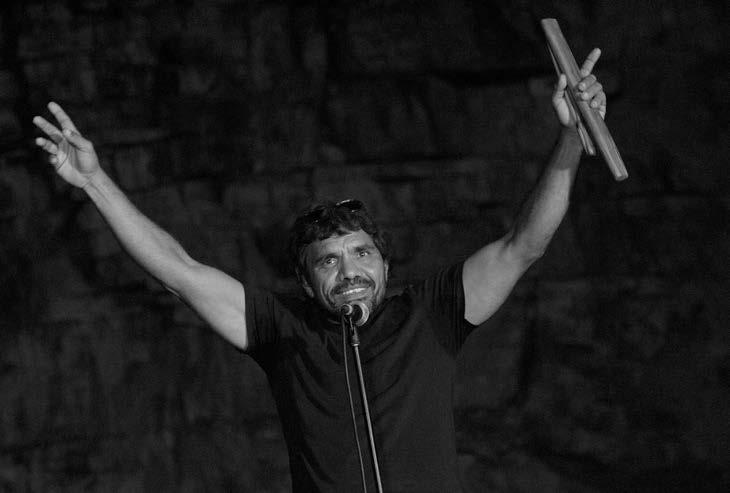 By Seth Jordan
By Seth Jordan
The recent re-release of an unusual 2007 album Songs From Walking With Spirits, showcases a unique project that brought together four traditional Aboriginal songmen with four other very talented Australian musicians, and it’s sparked renewed interest in this remarkable collaboration.

Originally titled Muyngarnbi – Songs From Walking With Spirits, but shortened for the new re-release, the original album was the brainchild of the late musician-actor Balang T.E. Lewis (aka Tom E. Lewis), who passed away in 2018 at age 59.
Best known to film buffs for his 1978 debut in ‘The Chant Of Jimmie Blacksmith’ - the Fred Schepisi-directed movie that was filmed when Lewis was just 18 – and which was nominated for the Palme d’Or award at the Cannes Film Festival, Lewis went on to appear in many other important films, including ‘We Of The Never Never’, ‘Crocodile Dreaming’, ‘The Proposition’, ‘Goldstone’, ‘The Skin Of Others’ and the documentary ‘Yellow Fella’.
A phenomenal actor as well as a gifted musician, he also starred in an acclaimed stage adaption of Shakespeare’s ‘King Lear’ (titled ‘The Shadow King’ and set in an Indigenous community), and recorded two excellent solo albums - 2005’s ‘Sunshine After Rain’ and 2013’s ‘Beneath The Sun’. Originally from Ngukurr (Roper River) in south Arnhem Land, Lewis also co-founded Djilpin Arts, a community-run gallery-museumaccommodation cultural complex in his adapted nearby home of Beswick (Wugularr). And in 2002 he initiated the First Nationsbased festival ‘Walking With Spirits’ at a stunning local site known as Malkgulumbu or Beswick Falls).
Having previously featured a number of local and regional Arnhem Land songmen at the festival, in 2007 Lewis’ trademark infectious enthusiasm made him want to record their traditional singing properly, albeit augmented by a few special guests invited to take part in the recording project. Four songmen – Roy Muyngarnbi Ashley, Micky Hall, Victor Hood and Jimmy Wesan, were joined by legendary Daddy Cool guitarist Ross Hannaford, bassist-producer Michael Hohnen (Skinnyfish Music, Gurrumul), and Lewis himself. Melbourne drummer Tony Floyd’s parts were subsequently added later to the recording.

“This album was completely Tom’s (Balang’s) own project,” confirms Hohnen, who with the deaths of Hannaford in 2016, Lewis in 2018, and the passing of all four of the old songmen, is now the only surviving member of that original recording session.
“He had come back to Beswick after being away for many years, and his passion for this was to bring the old men and the songs back into some sort of relevance,” continues Hohnen. “He and I had already worked together quite a bit, and that was
Balang T.E. Lewis at ‘Walking With Spirits’ festival 2006.
Please Note: Aboriginal and Torres Strait Islander readers are advised that this feature may contain images, voices and videos of deceased persons.
usually a matter of Tom just grabbing whoever he could at the time – so for me it was always a bit random and erratic. He would often choose people that I didn’t think were up to his standard, because I saw him as an incredibly worldly, very talented, and beautifully improvisationally creative person. But for this one he brought Ross Hannaford up to the Territory, because they had previously had a long relationship down in Melbourne, and he wanted him on this project. So that was huge for me to be able to work with both Ross and Tom together.” “But the main thing was his bringing together these old men, who are all gone now,” remembers Hohnen. “I was thrown into the deep end of Tom’s chaos when they asked me to produce it. He had an open jamming shed there outside of Katherine, so we brought in a Brits van and set it up like an outside broadcast van, so that the engineer Jeremy Conlon could look out through the window at us while we were playing in the shed. Julia Morris also had some students that she was training, and they filmed the recording process for a DVD.”
“The impetus for Balang was definitely to bring the songmen to the fore,” agrees Lewis’ wife Fleur Parry, who was central to organising the original recording, and who co-founded both Djilpin Arts and the Walking With Spirits festival with him.

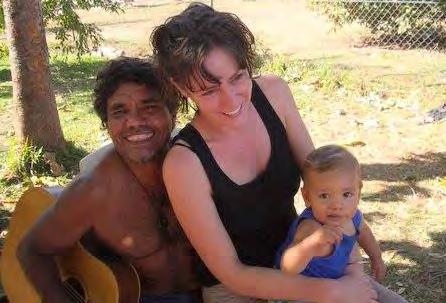

“He had previously played didjeridu in contemporary and jazz formats for many years, and he had seen how big it had become all over the world as an international instrument,” she recalls. “But when he was back in community he used to say ‘No no, everybody’s got it wrong, it’s not about the didge, that’s just a drone, it’s about the song.’ So for Balang all the knowledge was in the songlines and in the songs that were sung, and it became an absolute passion for him to highlight these songmen.”
Lewis had long-established relationships with all of the old singers. “Old Victor he called father,” explains Parry. “Micky was a very close cousin, Roy was a very close elder brother, and Jimmy was a close uncle, so he had strong family relationships with them all. When he said to them ‘Let’s do a recording, but let’s do it without the didjeridu, and use
other instruments instead,’, “they all said ‘Yep’.”
“Through the festival they had already done a few different things, they’d sung with a Steiner quartet, they had sung together with traditional Indian singers from Chennai, all kinds of stuff, so they were quite happy experimenting with how you could get the song carried by something else other than didjeridu,” she says.
Almost my default, Roy Muyngarnbi Ashley’s contribution became a bit of a focal point in the recordings. “In some ways it was just a matter of who was available for certain tracks,” laughs Parry. “But of course Roy could sing in a number of languages, as he was culturally right-across it all and multilingual. >>>
Balang T.E. Lewis, with wife Fleur Parry and their son Alex, 2006.
Onstage performance from Walking With Spirits Festival 2006, including (on right) T.E.Lewis and Ross Hannaford.
Ross Hannaford at Wolseley Winery
>>> One very special song on the album ‘Cloud Over Micky’s Country’ he sings with Micky, since as brother and cousin they had a particular cultural relationship, and were able to sing that one together. There were kind of subtle rules as to who could sing what, and then there were a couple where different songmen were able to sing together.”
The resulting recordings were an eccentric and intriguing combination of the old songmen’s traditional vocals, Hannaford’s energised rock-blues-country guitar work, and Hohnen, Lewis and Floyd’s steady supporting roles.
“The singers absolutely loved it, remembers Parry. ”Victor - who was the oldest of those four songmen - used to go to Balang and say ‘Give me that white man’s didjeridu’. “By which he meant he didn’t care whether they were orchestral members or electric guitars, he really just loved the idea of experimenting with a different sort of drone, as long as the song held its integrity.”
‘They were definitely into it,” agrees Michael Hohnen. “They weren’t used to playing with Ross at all, but he was playful and it was beautiful, and because Ross was in his late 50s at the time and they were just a little older, there was a mutual respect and admiration towards him, and they were looking after him on their country.”
Given Hohnen’s long history of important production projects, including all of the albums he did with Gurrumul, and his two for Balang, it’s surprising to hear his retrospective assessment of Songs From Walking With Spirits
“I’m probably most proud of this record beyond just about anything else,” he reflects.
“There are a couple of songs on here that are just killer pieces that would stand up anywhere in the world, and I keep coming back to it. It’s like a hidden secret.”
When the album was first released in 2007 it only had limited distribution, which is one motivation for Parry wanting to re-release it now. “At the time there was a lot going on, and we’d just finish one project and be onto the next one, and in hindsight we could have promoted it better then,” she explains. “So that’s one reason to give it some new re-release energy now, and make it more widely accessible via the digital stream, which wasn’t really available back then. And as you’ve seen, we’ve still even got a stack of the original CD/DVDs available at the Djilpin gallery too.”
“I’m aware that it isn’t necessarily an easy album to listen to, because of all of the really different styles and rhythms,” concludes Parry. “But it’s a very fond memory for me, and watching them all in the shed in
2007, having such an absolute ball doing it, laughing and singing, it was an extraordinary process.”
In retrospect, Songs from Walking With Spirits was one of the very first albums that combined traditional Arnhem Land songmen singing with Western instrumentation. Like the similarly re-released 1997’s album Crow Fire Music by black-whitefella band Waak Waak Jungi, it created a template for more recent cross-cultural experiments, such as the Australian Art Orchestra’s impressive 2021 album Hand To Earth with songman Daniel Wilfred, and the fabulous new self-titled debut album Ngulmiya from Numbulwar singer Grant Ngulmiya Nundhirribala – both of which feature traditional songmen vocals, along with elements of Western classical, jazz and electronic music.

‘Songs From Walking With Spirits” is now available on most digital platforms.
 The songmen and musicians onstage at ‘Walking With Spirits’ festival 2006. Photo by Peter Eve.
From left - Unidentified didj player with traditional songmen Victor Hood, Roy Ashley & Balang T.E. Lewis, onstage at ‘Walking With Spirits’ festival 2006.
Photo by Peter Eve.
The songmen and musicians onstage at ‘Walking With Spirits’ festival 2006. Photo by Peter Eve.
From left - Unidentified didj player with traditional songmen Victor Hood, Roy Ashley & Balang T.E. Lewis, onstage at ‘Walking With Spirits’ festival 2006.
Photo by Peter Eve.
Henry Wagons pulls on his outlaw chaps and boots on his new album, South of Everywhere.
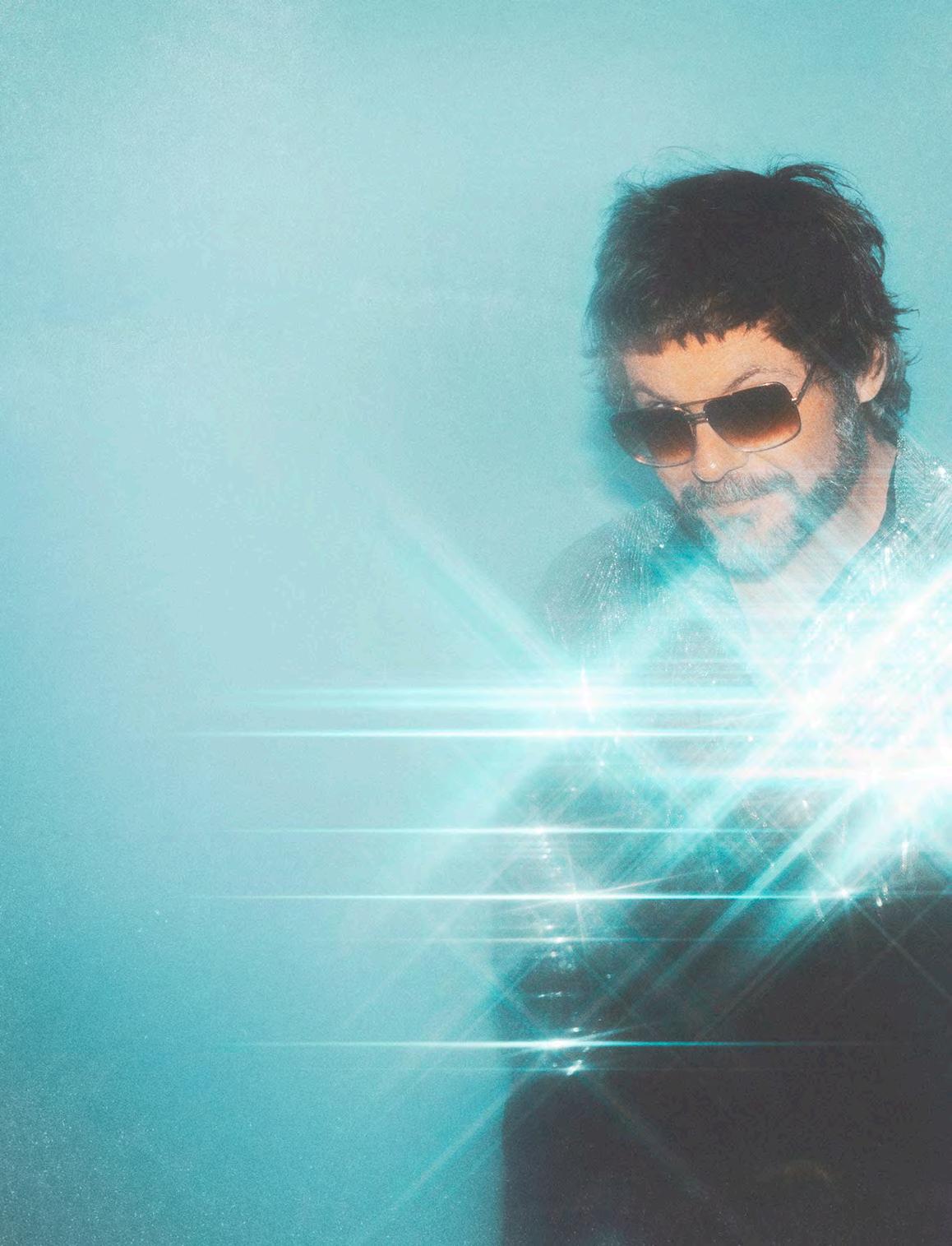 By Bernard Zuel
By Bernard Zuel
If there is a choice between truth and legend, print the legend. This cultural wisdom worked a treat for pulp novels in the 19th century, for westerns in the golden years of Hollywood – the original line after all coming from John Ford’s The Man Who Shot Liberty Valance – and outlaw country music in the 1970s.
Of those “outlaws”, Merle Haggard had done hard time (including being in the San Quentin jail when Johnny Cash did his first shows there) as had David Allan Coe, while Johnny Paycheck would go to prison in the late ‘80s. But Cash (an overnight stay in a county jail notwithstanding), Willie Nelson, military veteran Kris Kristofferson, Jessi Coulter and others could barely scratch up more than a speeding ticket.
Some of those singers had a past, some of those singers had of a dodgy future, but it didn’t really matter if they had the beard, the denim and leathers, and the attitude. Print the legend!
Just ask a youngish Henry Wagons, now a bearded/hatted/booted singer and songwriter, broadcaster and raconteur, with an album called South Of Everywhere imminent, but then a kid who knew deep down that he would never walk into a saloon and silence the pianist and gamblers, or send the women scurrying for safety. Hell, he couldn’t even make the people in front of him look up.
“I was playing in a lot of bands in the late ‘90s, of different sorts, as so many Melbourne ratbags did,” he says. “I was at uni, I was playing in a noise band that sounded like an out of tune TV, I was playing bass in an indie rock band called, Breaking The Law ….”
Which he never did, right?
“I might have stolen a mint Aero bar from a 7/11 at 3 o’clock in the morning in Fitzroy, but that might be as bad as it gets,” he confesses under this relentless cross-examination. “But I was noticing that in that sort of DIY scene, that shoegazing scene, everyone was kind of a shrinking violet. Everyone was kind of stand-and-deliver, they dressed the way they did at home on the couch. And I was 18 and 19 going back through my parents record collection, seeing people like Marty Robbins and Merle and Johnny Cash and Elvis and [pause] Rod Stewart, even the Blues Brothers, and thinking no one’s giving it, no one is delivering on stage in this obnoxious way: I want to try that, it looks really fun.”
Such an epiphany, that would spark a two-decade (so far) career, came with broader cultural input than Stewart in animal print leggings and Jake and Elwood’s porkpie hats.
“My now bass player, Mark ‘Tuckerbag’ Dawson, a dear friend who I played music with, gave me Johnny Cash’s American Recordings, the first one. At the time I was also reading Cormac McCarthy, the Border Trilogy. I also had just seen Dead Man, the Jim Jarmusch film,” says Wagons. “I was really attracted to that mythology, that trippy Western stuff that was a combination of Looney Tunes Foghorn Leghorn mythology from my childhood, these deep songs, the Blues Brothers. But wait, there’s more, possibly in keeping with the fact this budding cowpoke was a suburban Melbourne kid who had ridden a horse once, “but really badly”, and was more tooled up for some of that fancy book learnin’ them folks back east are always talking about. And I don’t mean Zane Grey.
“I was studying philosophy as well, I was a real philosophy wanker, and I really liked grappling with those concepts. So, I started writing some murder ballads, some death songs, and telling some tall tales,
and I feel like ever since then, when it comes to writing and engaging with the country music mythology, I’ve never been pushing shit uphill,” Wagons says. “I’ve never had to fake it or force it. It’s had a momentum that’s been out of my control such that I’m still doing it, and to my immense satisfaction it’s taken over my life. And I’m really thankful for it.”
We look at each other for a bit, that explanation having been a decent old ride but in truth I am fixating on the picture of Foghorn Leghorn riding with a death posse into the darklands of the Texas/Mexico border, possibly being chased by a dark-browed philosophy major and a love interest from Miss Prissy. Now that’s an image to play with, one worthy of an outlaw country song on its own.
But back to young Henry and his new obsession. It took a while for people to realise this was not a fad, this was now him.
“Some of my bandmates, especially early days of [his alt. country band] Wagons, were like ‘this country stuff is really fun, but when do we get to hear some real Henry songs?’. At the time I’d try and please them somehow, and I never quite could,” he says. “I feel like what I’ve done is me. I feel like for better or worse I’m telling stories, I’m playing a character, I’m having fun with dark concepts, and if you know me that is kind of exactly who I am.”
Don’t let Wagons near a gun in Reno. Just sayin’.
“Even though I’m not listening to a transistor radio in a prison cell in the American South in the 1960s, this is all I can do. This is actually the most authentic expression of me and I feel like when I’ve tried to do anything else it’s then I’m faking it,” he says. “I don’t know whether I am brainwashing the mythology or vice versa, but either way, this is where we’ve ended up.”
And where we’ve ended up is a new album that could be said to work the same territory, but retooling its characters, touching on locations and characters not just local but tangible in Henry Wagons’ life. Maybe even parts of him.
“Some of them are completely made up but they are very much embedded in stories of the road around Australia, and it’s a very honest record,” Wagons says, adding wryly. “I’m trying to be at peace with it and not trying to impress my bass player anymore.”
And who wants the truth all the time anyway? I tell him that after listening to the album I didn’t want to know, in fact actively worked against knowing, whether Dover, in Tasmania, is truly “south of everywhere” as claimed in ‘Felix Granger The Finger Pickin’ Boy’. I’d rather exist in a world where that song and that character are very real and there are no narcs pulling out an atlas to prove Wagons or me wrong.

“When I talk about ‘the South’ to Americans, it’s like, this ain’t the South; I’m from Australia, now we’re talking the South,” says Wagons with a grin. “Spoiler alert: Dover is very south. And it is a real place. Though it’s not the furthest south.
“But it harks back to what we were talking about: Felix isn’t anybody, he is not a real person, but he is every guitarist, every lead guitarist I have ever met. When I approached Chris Cheney, who plays lead guitar in this song, he said ‘this song is me’, and I said that’s really nice Chris, thank you. But in my head I was going, I know.
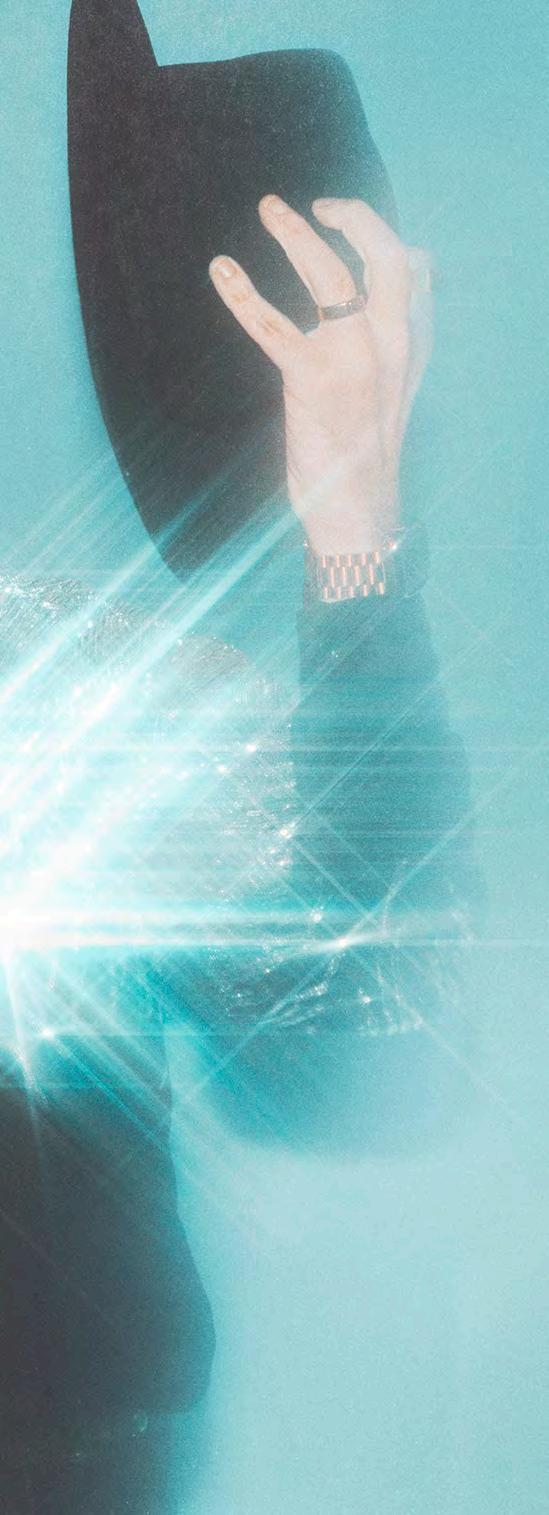
“So [Felix Granger] is not true, but he is actually more true than anyone.”
Truth is legend is better than truth. Print that. South Of Everywhere is out February 3 on Cheatin’ Hearts Records.
“When it comes to writing and engaging with the country music mythology, I’ve never been pushing shit uphill.”
– Henry Wagons
ANOTHER WORLD
Tex Perkins and Matt Walker collaborate once again for the Fat Rubber Band’s second album.
By Bernard Zuel
Even reading this it’s possible, no matter your sex, that your shoulders may broaden, your voice deepen and a sudden desire will rise up to heartily slap your best friend on the back. It’s fair to say that a considerable degree of amiable testosterone fills the Surry Hills hotel room occupied by Tex Perkins and Matt Walker, two men with great hair, varying styles of facial fur and faces that say, ‘I’ve been a few places, seen a few things, done a few more’ There may be chest hair involved.
Perkins is in denim, Walker in a pearl-coloured Western shirt, and it’s Perkins name up front of their latest venture, the second album for the slow-groove blues/laidback roots rock Tex Perkins and The Fat Rubber Band. But for all intents and purposes, the pair is a singular unit, as songwriters, bandleaders and vibe-merchants.
They met in the mid-‘90s when Melbourne long-termer, Walker (a multifunction polis of a guitarist, capable of anything and described by Perkins as “a surprise package: you never know what he is up to really”) was a new solo artist and Perkins was in his peak Cruel Sea years. By then Perkins, who feels like he’s approaching 2m tall and is built like a stockman who will be having that second steak for breakfast, thanks love, was a literal and figurative giant on the Sydney independent scene.
He’d come down more than a decade earlier from Brisbane as a 17-year-old who’d had “this stunted existence growing up in Brisbane, where everything was kind of horrible really” – from Bjelke-Petersen’s brute force police and roving bogan thugs, to questionable school days – and found an inner-city community all in (long-legged) walking distance, “and people didn’t treat me like shit”. What took them from a couple of musicians playing together to a collaboration where they would write and work, and sometimes even think, as one?
“I’ve tried to work with other people and I don’t know, the environment, settings, timing, it just hasn’t been conducive to a natural [arrangement],” says Perkins. “But Matt and I had already been spending quite a bit of time together through the Man In Black [thesemi-stage show, telling the Johnny Cash story through tales and songs, with Perkins, naturally, playing Cash] and knew each other well.”
Walker says, “I reckon we both knew, even though we hadn’t really spoken about it, that we had a lot of crossover influences that informed both our music. We had been circling around, crossing paths every now and then, back to the 90s when I would support Cruel Sea”. The timing, the Cash magic even, was right and inevitably, “I started getting song ideas and thinking, shit, it would be cool if Tex sang this one, it suits him more than me,” remembers Walker. Perkins was amenable. And the appeal of the not-quite-opposites is clear.
“Matt’s just a really great player who can make really simple things sound really effective,” says Perkins. “He’s a seasoned player and you can sense the effortlessness in his playing, but also the economy: he is very direct when he needs to be. He can be anything that [the song] needs to be. That’s why our bread-and-butter gigs are duos.
For Walker, “I reckon, stylistically, you’re not often in a situation where it feels completely right, and that’s what it’s like to me. I never think, ‘Oh I don’t want to play that song’, it’s always, ‘fuck yeah’.”
He says he sees in the music and artists that they might bring to each other’s attention a commonality in “the feeling within the music, the important parts. It’s got to have an earthiness, it’s gotta have a bit of toughness, then other songs are really beautiful.”
Other World, the new album, will be defined by the notes not played and the space not filled, even the presence not imposed. Tracks like ‘This Monin’ (sic), and ‘The Devil Ain’t Buyin’,’ are examples of songs that deliberately don’t push just when you think they might, just when you are sure they must. And that is by no means suggesting it’s a soft record; it’s a band showing restraint, the playing of Walker, drummer Roger Bergodaz, bass player Steve Hadley and percussionist Evan Richards sliding up almost slyly.
“I think that’s more the case with this record than the other [self-titled] record,” says Perkins. “There’s a lot more subtleties on this record; we’re not striking the hammer as hard, and it’s not as necessary to do so.”
Walker describes Other World as “sonically different to the first one” and can pinpoint even further. “Maybe the rhythm section has a different role in this then it had on the first. Maybe the first album was a bit more guitar based – a lot of songs were written on the 12-string and that was spearheading it – but with this we were often bring in new songs fresh into the studio and the guys in the band would just set up such a solid foundation.”
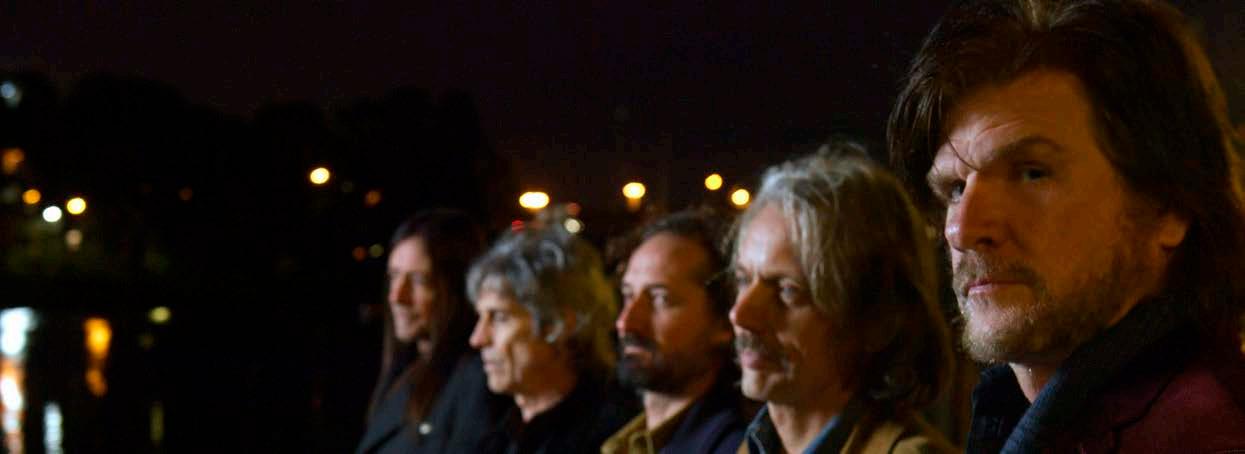
Perkins backs this impression, saying “we knew each other as a unit a lot better when we came to record their second record. We were putting the band together, literally, on the first record. Everyone now knows their roles and their strengths so songs could feel almost complete very quickly.”
This gentleness, this amiability, even extends to what may sound like straightforward advice, like that in one new song, ‘Nobody Owes You Nothin’,’ that offers some hard-earned – dare we say manly – wisdom. “What I find with advice-based songs, philosophical songs, ethicsbased songs, they’re actually pointing back at myself. Me reminding myself of stuff,” says Perkins. “And I think a lot of it’s based on fear: I wouldn’t want this to happen. I almost write a song to prepare myself for this moral or ethical situation I might find myself in. A lot of times you write a song in the situation will literally appear a couple of years later, and you go, fuck this is what that song was about.
“So, you write a song that sounds like you are pointing outwards and it’s actually very much inwards.”
Do they listen to themselves, take their own advice?
“Eventually,” says Perkins, as Walker chuckles beside him, knowingly. “Eventually. After you’ve fucked up.”
Tex Perkins and The Fat Rubber Band’s Other World is out February 10.
TRUMPETING A RETURN
By Bernard Zuel
Itwas the worst of times, it was not so bad a time. The last time Dog Trumpet released another slice of pop/folk/ country pleasure April 2020’s Great South Road, the world shut down. Perhaps surprisingly for the brothers, musicians who also are two of Australia’s most loved visual artists, who each in their own way tap into the ordinary and the very odd of the landscape, streetscape, fauna and psyche of Australia and New Zealand, the resulting two years of playing to screens, huddling in their homes, didn’t shut them off from stimuli.
“I get most of my stimulation from television,” says Reg Mombassa, with a wry grin. “So I don’t have to go outside.”
And though there’s a wistful song of his called ‘No More Travelling’ on their new record, Shadowland (“There’s no more travelling/No more festivals too … I don’t have a meaning/I don’t need a name”) Peter O’Doherty declares that, “for me, I enjoyed it” when the world shut down and “I didn’t feel like I had to be anywhere but home.”
Indeed, they got a lot of work done, writing a pack of songs, making art, and digging into the back catalogue of both Dog Trumpet and its predecessor, Mental As Anything. But then that is what Dog Trumpet do: paint, write, exhibit, perform. Not putting their album out in 2020, or holding on in 2022 to see if the music industry genuinely has turned around before releasing its successor, would have made no intrinsic sense, irrespective of any practical or commercial sense.

Not that the brothers are impervious to the 21st century of course. ‘Fucking Idiots’ (“Wake up humans/You fucking idiots”), sums up the way many of us have felt over the past few years watching our socalled leaders and betters royally foul their nests and fuck up the world. Has Mombassa been sitting at home quietly compiling a list of these fucking idiots? Or would that be like knitting an endless scarf?
“I did write it relatively recently,” he points out, before reminding us that it’s not his first political rodeo, though this is the first time he has “put that word” into a song. “I wrote a song called ‘Troop Movements In The Ukraine’ about 40 years ago, on a Mental’s album, and that was
an anti-war song, anti-nuclear war song. ‘Fucking Idiots’ is another anti-war song … I’ve always hated militarism and patriotism and nationalism, they are really poisonous concepts and they seem to be ramping up again.”
It’s not all shades of existential gloom though as the record also dives headlong into reminiscence. O’Doherty begins side two of the album with ‘The Ballad Of Clayton Looby’ (“The first job I ever had/Was pumping petrol afternoons and nights”) and in the song ‘Nina Simone’ (“It’s been a long time/Since Eunice Kathleen Waymon’s patience/Was put to the test”) he explains the role of the great singer, songwriter and pianist, whose real name was Eunice Kathleen Waymon, in a pivotal moment in the young O’Doherty’s life.
“It’s also the story, my personal story of going to London,” he says. “I had a friend from Sydney living there, she was on a working holiday for a year, so I rang her up when I was in London and we went out to the markets, and I bought her a Nina Simone record, the first record she released in 1958 [‘Little Girl Blue’]. It was such a great record and a time that I will never forget, because I’m still married to that girl.”
I reckon Eunice Kathleen Waymon, her patience tested by audiences and the industry, her early ambitions as a classical pianist thwarted, her tolerance of the music business and its inbuilt racism and sexism barely there to start with and long gone by the latter stages of her career, would have well understood some of the righteous anger behind ‘Fucking Idiots’.
“Righteous anger can also be completely wrong,” says Mombassa, happily self-critical, maybe even typically so. In truth, for 40-odd years, while skating across moments of righteous anger and maybe occasional bursts of bitterness, the brothers could be said to have maintained a pretty impressive equilibrium. In their art and in their music. Maybe because of their art and their music.
“That’s part of what art is, isn’t it?” says Mombassa. “It’s expressing your own anxieties and fears in your own joys and positive feelings to other people and reflecting what other people are feeling. And maybe the art and the music makes it better.”
O'Doherty says: “We come at it from different angles, though we have a lot of common ground, but making work is good therapy. Just doing it keeps me much more balanced, and if I’m not touring either art or music, I can very quickly fall into a big hole. And perhaps we don’t really ever understand ourselves: that’s why in a way you keep doing it, to try and find something else, to dig something out of yourself.”
Shadowland is out now.
Dog Trumpet will be on tour in February and March.
Reg Mombassa and Peter O'Doherty are back with a new Dog Trumpet album.
“I’ve always been the guy who never says no to a gig,” says Redd Volkaert, his deep and twangy voice resonating through my speakers on a muggy Tuesday morning. “Somebody calls at eight thirty and says, ‘We’re playing at this shithole starting at nine until three, pays forty bucks, do you want in?’ Oh yeah, yeah! Just for fear of never working again, and I’ve done that all my life.”
This he has – I venture to Volkaert that, since he was a teenager, he’d not have had more than a handful of nights off, to which he laughs, deep and twangy, adding, “Yeah, I think I’m over it now a little bit. So, when I moved here… I finished up in Texas [in 2019], New Year’s Eve was my last thing and I came out here and then covid hit in March, so I instantly had a year and a half off and I thought, well, if I thought of retiring, now’s the time to do it.”
These days, Volkaert runs cows and horses, donkeys and the like in South-West Virginia, but don’t go thinking he’s not playing music anymore. For it would seem, if one were to cast an eye back over his fifty-year career of slinging

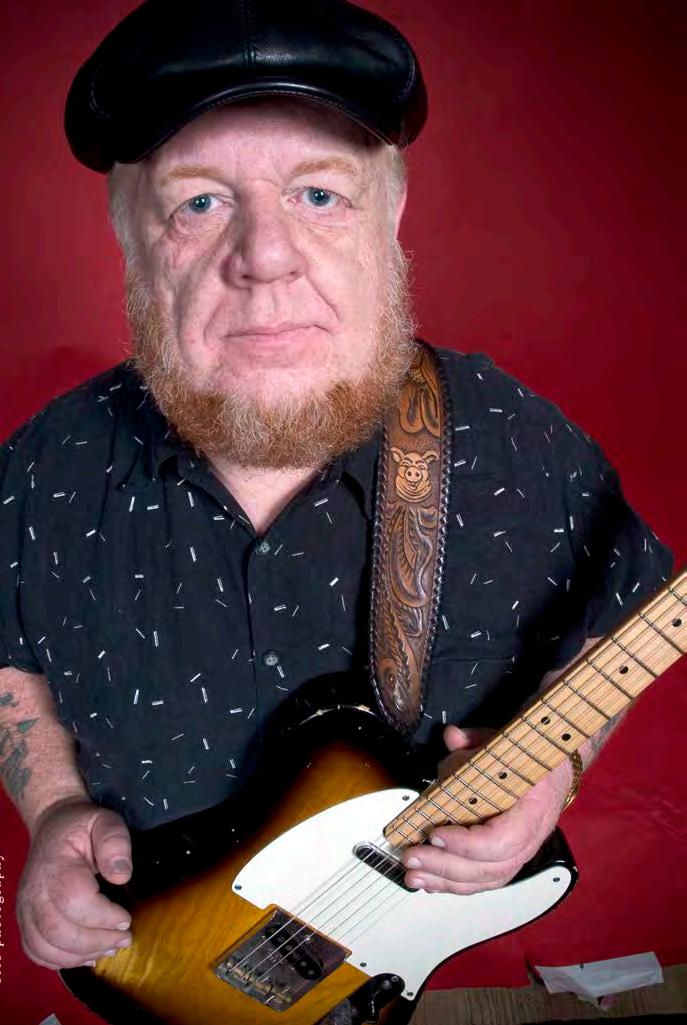
six strings all about this big ol’ world, that he’d not be able to retire even if he wanted to.
He cut his teeth playing all sorts of music in his native Canada as a teenager (although it was old time country that truly inspired him), moved to LA in the mid- ‘80s and put up his shingle as a gun for hire. He’s lived in Nashville and Austin and has, of course, played with the best of the honky tonk best – George Jones, George Strait, Rhonda Vincent, Dwight Yoakam, Brad Paisley; he was the picker of choice for Merle Haggard’s band from 1997 until Merle died in 2016. His own combo held down the Saturday afternoon residency at legendary Austin venue The Continental for twenty years. He’s the man, the Titan of the Telecaster. He couldn’t stop if he tried.
“About a year and a half ago it was like somebody flipped a switch and everything came back, and I started getting emails and calls for all kinds of great stuff,” he says.

“Finland and Switzerland, Norway, different places to play for a couple of weeks then back home to nice, quiet farm life where I’m not
waiting by the phone for a call to play that night, so that’s the reason I [moved out here] I guess.”
The second of three children, Volkaert grew up outside of Vancouver in Canada’s British Columbia province, picking up his older brother’s guitar at the age of ten. He learnt to play by ear, jamming with neighbourhood kids and playing with his brother who’d taken up the drums. The big music of the time was, “Zeppelin and Deep Purple, Grand Funk, bands like that,” he remembers, “but my parents had a really good record collection. My dad liked a lot of blues people… and my mother had everything, Les Paul and Mary Ford, she had a Jimmy Bryant ten-inch EP that had ten songs on it, so I just wore that thing out… that was kinda my introduction. She also had Buck Owens and a couple Merle Haggard albums, Waylon Jennings’ first album, Jerry Reed’s first album… so that got me interested in dabbling a tiny bit in each style.”
Volkaert has an insatiable appetite for learning. It’s how he began in music, and it’s what’s
kept him at it, always looking to expand his musical knowledge, his sonic repertoire. “When I was thirteen, I ended up playing in a couple of weekend bands… they were country guys, played in the Legions and Elks clubs… kinda like your RSL clubs,” he says. “They were hard country, old school, playing Jim Reed and Buck Owens. So, I really got into that, because it was fun to play with those guys. And it was a real challenge to learn, and as they challenged me with stuff to learn, the more I liked it.”
“At that time, they had to come and get me for the gig then drive me home, because I didn’t drive yet,” he goes on with another laugh, “But when I got my license I started playing more and more, I started filling in… I was living outside of Vancouver, and so I would drive into the city and play with some blues bands, popular radio pop/rock bands, and I took those gigs for the exact same reason – I didn’t know any of the music and I wanted to learn it. So OK, I’ll jump in with both feet.
“And I was still playing with the weekend country bands, and then a couple of road
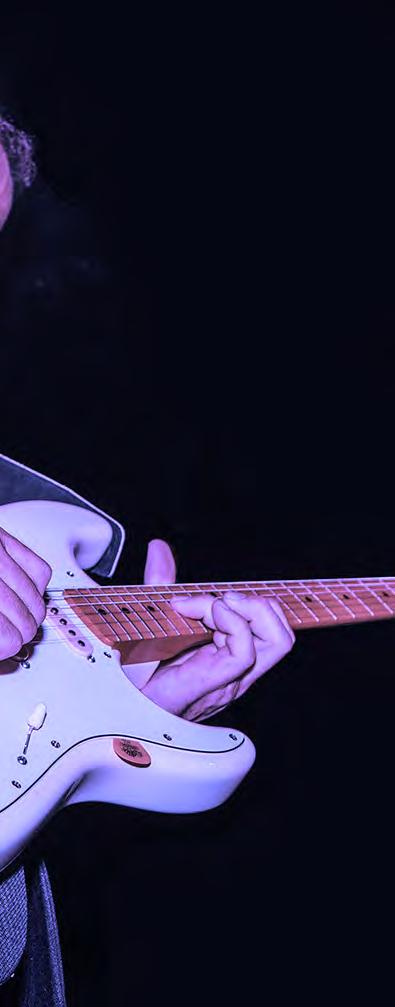
opportunities came up to go out on the road for a week or two with the country band, so I ended up doing that, loving it, thinking, ‘This is what I wanna do!’, so like a dumbass I quit school a year early and went on the road, and I’ve been on the road ever since.”
Where Volkaert will roadtrip next is to Australia, a country he understandably hasn’t been since 2018. “I came probably every year for about seven or eight years [before covid],” he recalls. On this particular trip he’s teaming up with local guitar hero Ray Beadle; dubbed the Guitar Gumbo tour, it takes in a slew of dates through Victoria and New South Wales, Volkaert and Beadle trading licks the whole way, culminating in a stop at Studio 301 in Sydney, where the pair will lay down a live record in front of a small audience.
“I’d just like to capture a bit of chemistry that can be made when two guitar players are genuinely having a great time,” is Beadle’s pithy modus operandi on this record. The pair have never met – the tour being organised by Karl Bergersen and manager Geoff Trio – but for Beadle it was an opportunity to be jumped at. “I’ve only dreamt of meeting Redd, let alone being able to play along-side him,” he says. “A friend of mine… introduced me to Redd’s guitar prowess long ago. I remember first hearing him and feeling excited and inspired, I hear a lot of personality in his playing. I was lucky enough to be approached [for this tour] so I jumped at the chance. “
For Volkaert, it’s another chance to hit that never-ending road, continuing his career into its sixth decade. “Oh yeah, this last year I’ve been busy as hell,” he smiles. “This summer gone I’ve been playing with a western swing band from Fort Worth called the Western Flyers, kind of a cowboy swing band; we did a tour out west for about a few weeks, then I flew home and drove to Maine and played a few weeks up there, then back home then I flew to Finland for a week… just always something, I’m off for a few weeks then home for a few weeks. “Last week I was in Louisiana with Bill Kirchen, we do a duo a bit, so I work with him, and I work with a guy called Robbie Fulks, we do a duo, or a band and another fella named Dallas Wayne, he’s a singer. He lives about two hours from me, so we do some duo stuff there. So, I’ve still got my fingers in a bunch of different situations, which isn’t just all my trio or whatever.”
On the upcoming Australian run, Volkaert is blissfully ignorant on how it’ll all pan out, but it’s something he’s taking to with his usual gusto – keen to learn, to jump in with both feet. “No, I’ve not met [Ray] yet,” he laughs. “It’s gonna be a treat though, he’s awesome, I’m looking forward to it, it’ll be really fun to do it with him.” As Beadle says of Volkaert, “Redd is able to slot in with anyone in the world,” so there’s little doubt, as Redd Volkaert keeps on keeping on, that this’ll work out just fine –there’s no saying no to that.
Redd Volkaert and Ray Beadle are touring through February 2023. See the Gig Guide for details.
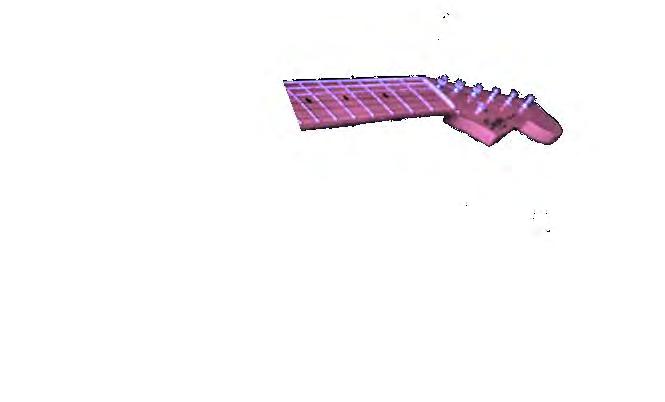
Titan of the Telecaster Redd Volkaert has barely stopped in a career spanning almost fifty years, and he’s bringing that energy back to Australia, where he’ll team up with our own Ray Beadle, writes Samuel J. Fell.
THE LONER: A CONVERSATION WITH NEIL YOUNG
 By Michael Goldberg
Neil Young at the Boarding House, San Francisco, 1978.
Photo by Michael Goldberg
By Michael Goldberg
Neil Young at the Boarding House, San Francisco, 1978.
Photo by Michael Goldberg
>>> Goldberg: When I first heard “Song X,” it sounded like this incredible sort of rock & roll sea chantey [Young smiles as I tell him this]. I was imagining you and Pearl Jam, this gang of outlaw rockers, heading out to sea. Tell me your impression of that song.
Young: “Song X” was written around the same time as “Act of Love.” It’s really a story about choice. Both those songs are based around the choice issue: [Whether] to have a baby; the responsibility; why is it always the mother’s responsibility? It’s so easy for the guy to get out of it. Do people know what they’re doing when they’re in the act of love? Do they know what’s next? Do they know what the fruit of love is? Is anybody thinking about that? Then there’s the murder, however you want to look at it, the murder of the fetus, or the murder of the person that did the abortion. The murder aspect brings it into the God-is-on-my-side kind of righteousness of holy war. The whole thing’s related [to] the act of love and the willingness or non-willingness of someone, usually of the guy, to accept responsibility for what’s happened. Those first two songs are centered on that ’cause that’s what I was focused on, because of the benefit.
Goldberg: How did you learn to let yourself be open, to let what’s going on around you somehow get through you, into a song?
Young: I didn’t always know that it was happening. When I started living out here [in Woodside] I started to realize it. I stayed out of the mainstream for a long time and kind of hid down here in my house back in 1970. When I hid out here in the trees, all I wrote about were the trees and what was happening in the country. Then I realized, well, that must be because I’m here. And that’s all I write about here. So I should go to New York for a couple of days and come back. So I could see, well, wait a minute, this seems to be directly linked. If I’m going to write, I’m going to be writing about all these things [happening around me at the time]. I just need a jolt of this or that. I’m not looking for anything [in particular], just what you pick up along the way. You don’t have to get anything in particular, just be there. Besides being in a relationship, it’s also location. It has a lot to do with what you write down. Where you are. I use those things to keep going.
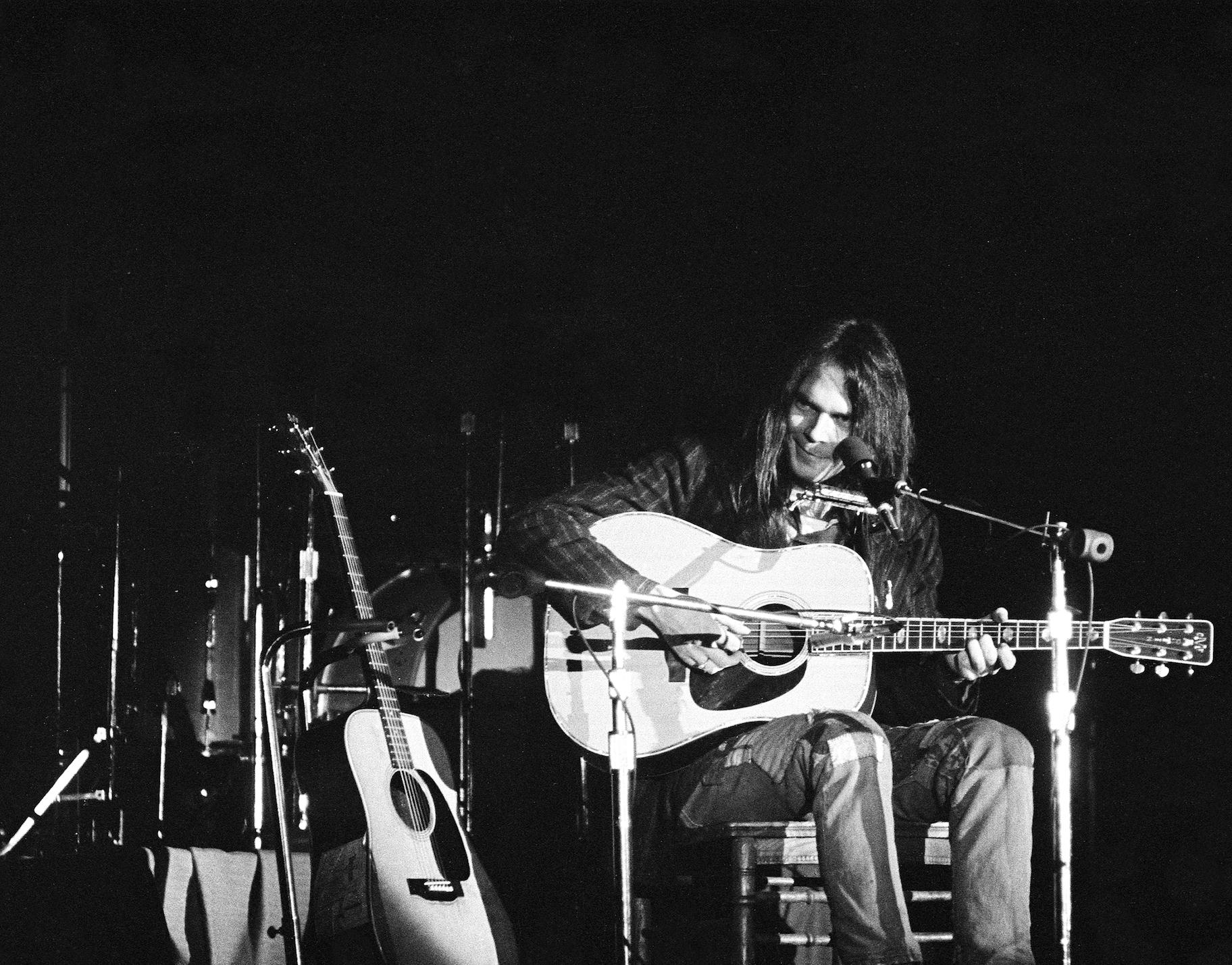
Goldberg: So you started to realize this 25 years ago?
Young: When I took away the variety and then noticed the music reflected that, I put the variety back in and noticed the music
reflected that. I concentrate on one thing—you can only see something so many times before you start to count on it in your plan for how you’re going to do things.
Goldberg: Did you start consciously taking note of being open?
Young: You can’t improve it by being self-aware of it. It’s better to not be aware of it. It’s not something you can use as you would a tool. But it’s something that you can know. I’m open all the time. There’s never a shortage of things to write about, if you pay attention to other people. If there’s nothing going on in your own head, that doesn’t mean anything. It’s like you, him, him, especially him. [He points to Addicted To Noise business manager, Steve McConnell, who is videotaping the interview, and then to Elliot Roberts, who has entered the room.] I’ll be singing about you, OK? You’re next.
Goldberg: I was told that in titling Mirror Ball, you were thinking of the mirror ball that hung from the ceiling at the Fillmore West in the early ’70s. Is that true?
Young: I was just thinking of a mirror ball. To me, all the pictures and scenes in the album, if you close your eyes and try to go with where the lyrics are taking you, they’re flying. There’s movement that keeps going from one place to another all the time. Just like a bunch of little square pieces of mirror all stuck together on a ball that’s rolling along. You can only look at one at a time, so you just get to see a little glimmer of this, a little glimmer of that. It’s like if they were all little television sets and you were looking in them, up into this ball of televisions rolling along, and they all had different things on them. [That’s] sort of what it is. We ought to go build that right away, build a mirror ball television. Four hundred and fifty TVs all on at once rolling down the road.
Michael Goldberg has been interviewing and photographing musicians since he was 17. He was a senior writer at Rolling Stone magazine for a decade. His writing has appeared in Esquire, New Musical Express, Creem, DownBeat, New York Rocker, Trouser Press, Musician, New West, Vibe, New Times, the San Francisco Chronicle, and other publications. He has had three novels published: “True Love Scars,” “The Flowers Lied,” and “Untitled.” In May 2022, “Wicked Game: The True Story of Guitarist James Calvin Wilsey” (HoZac Books) was published. “Addicted To Noise: The Music Writings of Michael Goldberg” (Backbeat Books), was published on November 1, 2022.
Neil Young, live, 1973.
Photo by Michael Goldberg
By Billy Pinnell
STEVIE RAY VAUGHAN TEXAS FLOOD
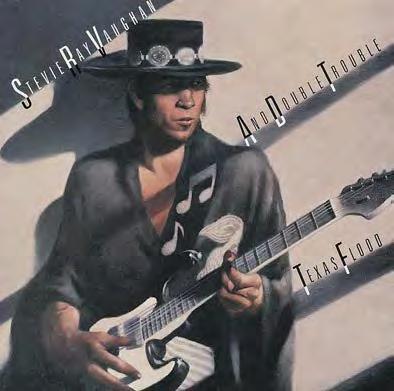
The 1983 release of David Bowie’s least two reasons.
After signing one of the most lucrative recording contracts in music history up to that time, Bowie repaid his new record label by achieving the biggest sales of his career first time out.
The other was the unexpected participation of the studio band’s lead guitarist, 29-year-old Stevie Ray Vaughan, an unknown musician from Austin, Texas who would, in the following 12 months inspire a blues-rock revival that has endured to this day.

The passion, power and drive that Bowie obviously saw in his playing had already earned the young musician legendary status among audiences who’d followed him from one bar to another in Austin over the preceding decade.
His deep devotion to the blues and his incredible talent would elevate Stevie’s name to the highest rung of the blues ladder to sit comfortably among his mentors and inspirations: B.B.King, Buddy Guy, Albert Collins, Freddie King, Hubert Sumlin, Albert King, Elmore James, Muddy Waters, Lonnie Mack, Jimi Hendrix.
What made Stevie so special was an ability to immerse himself in the music of these blues giants and countless other musicians from whom he would imbibe the best of what he heard then add his own distinctive touch. He also tapped into the spirituality of the blues, possessing a deep understanding of its emotional power, the indeterminable ‘feel’ that would reveal itself in his guitar playing.
Stevie Ray’s earliest influence was his older brother Jimmie (later to found The Fabulous Thunderbirds) who played in various blues and R&B bands around Dallas, Texas where the Vaughan family lived. An outstanding guitar player in his own right, Jimmie introduced his young sibling to a world of blues, R&B and jazz as they listened together to his record collection and the local radio stations.
After vain attempts to play drums, bass guitar and trombone, Stevie figured that if his big brother was playing guitar he’d give it a go as well. Performing in high school bands as Steve Vaughan, the 17-year-old guitarist dropped out in 1971 to become a full-time musician, following Jimmie to Austin, the musical Mecca of Texas where he would hone his talents on the club circuit. Joining Paul Ray & The Cobras a popular Austin band, Stevie learned the art of performing in front of an audience playing guitar behind his back, with his teeth even laying it on the floor and tapping it with his feet.
Despite the gimmicks (T-Bone Walker and Johnny ‘Guitar’ Watson had employed the same tricks for years) it was obvious that Jimmie Vaughan’s little brother wasn’t just another flashy, run-of-the mill blues guitar player. The give-away was the ease in which he moved effortlessly from hard edged blues-rock to quiet jazz like passages, qualities that would prevail throughout the many recordings he was yet to make.
band, The Triple Threat Review renaming them Double Trouble in 1980. With drummer Chris Layton and bass guitarist Jackie Newhouse, the group debuted at a club in Austin. This performance featuring two of Stevie’s songs that included an early arrangement of ‘Tin Pan Alley’ (destined to become one of his showstoppers) plus material from Freddie King, Otis Rush, Howlin’ Wolf, Muddy Waters and Guitar Slim, would be released on the 1992 album In The Beginning by Stevie Vaughan & Double Trouble, their stage name at that time did not include Stevie’s middle name. Early in 1981 Tommy Shannon who’d been in a band with Stevie ten years earlier and more recently had played bass in Johnny Winter’s band replaced Jackie Newhouse. The series of events that followed proved to be life changing for Stevie. A tape of a performance at an Austin music festival somehow wound up in the hands of Mick Jagger who offered to fly Stevie and Double Trouble to New York to play at a private party for The Rolling Stones.
Word on the street was that a guitar player from Austin Texas unknown outside his home state had taken his first steps towards international recognition. Famed record producer Jerry Wexler heard the jungle drums and after seeing the band perform contacted Claude Nobs, long time director of the prestigious Montreux Jazz Festival urging him to include Stevie Ray Vaughan & Double Trouble in the line-up for the 1982 festival. The band became the first unsigned act to perform at Montreux. Despite a powerful performance they did not go over all that well with some of the crowd booing.Two members of the audience not booing were David Bowie who invited Stevie to play on his Let’s Dance album and Jackson Browne who offered the band free studio time at his Downtown Studios in Los Angeles. In that studio in less than 48 hours, the tracks for the band’s first official release, Texas Flood were recorded. The tapes were presented to legendary talent scout and recording executive John Hammond who signed the band to Epic Records.
Texas Flood consisted of road-tested songs like the title track, a slow blues originally recorded by Houston bluesman Larry Davis, Stevie’s rocking ‘Rude Mood’, a salute to Lightnin’ Hopkins, ‘Testify’ written by George Clinton and previously recorded by The Isley Brothers and Buddy Guy’s ‘Mary Had a Little Lamb’.
As great as these recordings are, Stevie had left the best ‘til last.
The album’s closing track ‘Lenny’, a five-minute instrumental written for his wife Leonora (Lenny) Bailey is exquisite, a soulful, melodic love song that doesn’t need words to convey its message.



Stevie would release only three subsequent studio albums prior to his death in a helicopter crash on August 27th, 1990, at the age of 35.
 CHARLES JENKINS
Jeff Jenkins
CHARLES JENKINS
Jeff Jenkins
RADIO SKETCHES 2 – THE DEATH OF STARS
 Independent/Bandcamp
Independent/Bandcamp
What’s the saddest song of all time? Split Enz’s ‘I Hope I Never’? Sinead O’Connor’s ‘Nothing Compares 2 U’? Eric Clapton’s ‘Tears In Heaven’?
Anyone who has listened to the Icecream Hands can attest that Charles Jenkins knows how to write a nifty pop tune. But the Melbourne songman is also adept at tugging on your heartstrings. For proof, just check out ‘Autumn Fall’ on his Blue Atlas album, which he often introduces as “the saddest song ever written”.
Jenkins’ new record – his 21st studio album – opens with a track called ‘The Many Moods of Love’. I listened to it on repeat for a whole afternoon. In the end, I wasn’t quite sure what the lyric was about. But I was moved by its sadness every single time. It’s a melancholic minor masterpiece.
For those not familiar with the concept behind the Radio Sketches records: Jenkins does a segment on Jonnie von Goes’ Sunday afternoon show, JVG Radio Method, on Melbourne’s Triple R – “a thematically blended hotchpotch”. The host provides the week’s theme; it’s the singer’s task to write – and record – a new song that will be premiered on that week’s show.
As a prolific and professional songwriter, Jenkins relishes the challenge. “And,” he explains, “JVG provides the two essentials for songwriting – the idea and the deadline.”
The second instalment in the Radio Sketches series sees Jenkins tackle a diverse array of topics, including moods, directions, radio, ponies, my head, my soul, chaos, and “things you were previously unaware of”.
This is a set of songs that’s all about the joy of creation and hearing something on the radio for the very first time. In less-capable hands, these tracks would brighten a Sunday afternoon and then disappear into the radio ether. In ‘The Death of Stars’, Jenkins sings, “I’ve never been the sharpest knife in the rack.” Don’t believe it for a second. Even when faced with a demanding deadline, he never fails to deliver a gem.
And a shout-out to Jenkins’ not-so silent partner, his Icecream Hands compadre Douglas Lee Robertson, who augments Jenkins’ acoustic recordings with drums, bass, guitar, keyboards, strings and backing vocals (check out his glorious gospel choir in ‘Found Me A Highway’). “He’s got the hard job,” Jenkins acknowledges. “The most exciting part of my week is when I get a text from Doug on Saturday that will say, ‘Sending song now.’ I could be in the middle of a major operation, but I’ll say, ‘Doctor, we have to stop.’ That’s the biggest kick I can possibly have, being able to hear what Doug has done to the song.” If these guys were Swedish, they’d be churning out chart-topping hits and living in mansions. As it is, they’re churning out pop hits – and all we have to do is switch on the radio on a Sunday arvo. A highlight is ‘Early Evening Shenanigans Again’, a nostalgic romp celebrating the hi-jinks of young men. “We set out to mess about,” Jenkins sings. “Who knows where the time goes?” Long may they run. During directions week, Jenkins came up with ‘So Many Directions To Choose’, which succinctly documents the eternal songwriting dilemma: “Gonna go left, gonna go right … gonna get lost and get the blues – so many directions to choose.” Yep, a songwriter can be crippled by choice. But Jenkins always seems to make the right call, delivering songs that sound simple and instantly familiar while also surprising with a subtle twist or an unexpected turn.
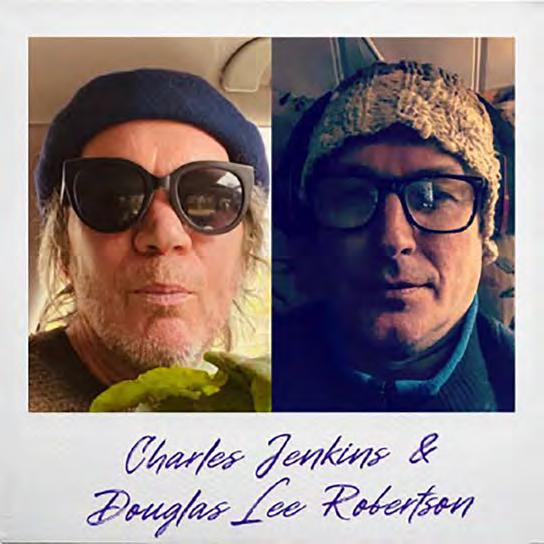
“I know that the greatest songs will always have an element of surprise,” he notes. “When you think about your favourite songs, there is always some little bit in there that you weren’t expecting.”
From the mournful majesty of ‘The Many Moods of Love’ to the classic guitar pop of ‘Early Evening Shenanigans Again’, this album gently sweeps through the gamut of human emotions.
In the end, Radio Sketches 2 is an understated triumph. A sequel that’s just as good as the original. A happy – and sad – 21st
By
(no relation)
The Death of Stars is available now via Bandcamp.
By Brian Wise
main stage, and she also features in the recent documentary JazzFest: A New Orleans Story. “It’s a really special, it’s a really special event.”
“I went to New Orleans, JazzFest before I moved here,” recalls Fish. “I was living in Kansas City the first time I came down. New Orleans to me has been a place that I’ve always wanted to put down roots in it really. Because when I look at like the great American cities, New Orleans is just full of romance, it’s poetic, it’s art. There’s a rich culture here. There’s history here and there’s a love of the arts. I find constant inspiration here. I think it’s just one of those places that keeps giving to artists in a way that’s emotional and inspirational.”
“It’s definitely a place that encourages living loud as you can and as loud as you want,” she continues. “We play pretty loud. People say I seem pretty extroverted. I don’t know. It’s weird going on stage and having that connection with the audience. In my life I’m probably more of like a shy person than would be let on by what I do on stagebut I guess it just depends on the day.”
Fish will be back for dates with her four-piece band that includes her bass player Ron Johnson, keyboard player Matt Wade from New Jersey and drummer Sarah Tillek.
“They’re pretty loud." I suggest that they could be called the Louder Band. “They would probably be rolling their eyes right now at me because they probably think I’m the loudest one up there.”
SAMANTHA FISH FASTER
Rounder Records
If you saw Samantha Fish at Bluesfest in 2019 you probably don’t need me to tell you what a dynamic performer she is; her shows were spectacular. The good news is that Samantha is on her way back, with the recent album Faster and an exciting collaboration on the way.
“I was pretty nervous,” recalls Fish who is at her home in New Orleans when we talk via Zoom. “I’d been looking at that lineup since I was a teenager and every year it would come out and I’d go, ‘God, if I could only get on Byron Bay, that would be quite a pat on like that, that would, that would let me know that I’m doing something that I’m supposed to be doing, doing something right. That’s a great festival. It’s awesome. Every, every year I look at it and it’s like knocked it out of the park again.”
Fish’s latest album Faster is produced by Martin Kierszembaum who has worked with Lady Gaga, Sting and Sheryl Crow, amongst others. That in itself should tell you the serious intent of the album. To add to that, Fish is backed by drummer Josh Freese (Guns N’ Roses, Nine Inch Nails, The Replacements), and bassist Diego Navaira (The Last Bandoleros). You would have to think that after eleven albums since 2009, Fish is ready to reach an even bigger audience with this huge slice of blues rock that could just have easily been titled Louder! Ironically, there is a song titled ‘Loud’, but the other side of Fish also makes an appearance on the four ballads that highlight Fish’s powerful voice.
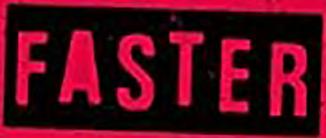
Samantha Fish grew up in Kansas City, Missouri and started out playing the drums, but when she was 15, she switched to guitar, citing Bonnie Raitt and Stevie Ray Vaughan as influences and hearing the Stones album Sticky Fingers as a lightbulb moment. These days Fish lives in New Orleans which is where I first saw her years ago during Jazz Fest.
“I feel very fortunate that they invite me back to these things because it’s pretty massive,” says Fish when I mention that some friends had phoned me to tell me that I had to see Fish. This year she was on the
“I’d say even the album before that got obscured by Covid, Kill or Be Kind,” says Fish when I mention that Faster probably didn’t get the attention it deserved. “It [Kill Or Be Kind] came out in September of 2019, and then by March of 2020 we were done supporting it. Normally, you give an album two years. I guess so it got kind of truncated as well. But Faster? This is just the new world we live in. It’s gotten a lot better but we’re still dealing with complications with Covid, even in the manufacturing side of things, like just, just the physical process of making a record is so much more difficult now than it was three years ago. I’m realising it’s like we just have challenges.”
So, what can we expect on the Australian tour? Will Fish be highlighting the last couple of albums, or will she dig deep into her catalogue?
“Because I grew up in the age of the internet and a lot of people have found me through videos on the web, we do have a good deal of fans in Australia that have never really gotten to see our show,” she says. “So, my plan is of course we’re going to showcase material from Faster being that it’s the most recent release and Kill Or Be Kind because again it’s another really recent release. But I want to showcase material from all of my records, and I just want to put on a great show that. I want to take people on trip. My priority in Australia is going to be just putting on a good show. I think people will know and recognise something that’s exciting and danceable and gives them something they won’t forget about.”
As for Fish’s forthcoming album? It has been recorded with Texan guitarist Jesse Dayton (a visitor here in late 2022) and is produced by Jon Spencer. “It’s really special and incredible and I can’t wait for people to hear it,” says Fish. We can hardly wait either. In the meantime, you can catch Fish on tour in February
February 16 - Princess Theatre, Brisbane / February 17 - Lizottes, Newcastle / February 19 - The Basement, Canberra / February 21Freo Social, Perth / February 24 - Memo Music Hall, Melbourne / February 25 - The Gov, Adelaide.
Faster by Samantha Fish is available now through Rounder Records.
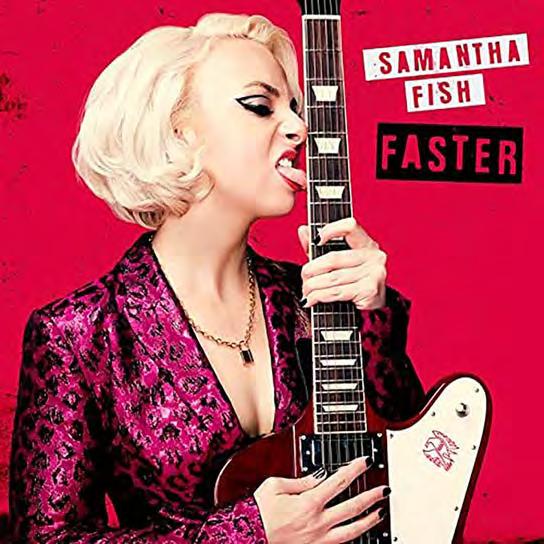 By Brian Wise
CHRIS WILSON
By Brian Wise
CHRIS WILSON
LANDLOCKED: FAITHLESS & FREE (30th ANNIVERSARY EDITION)
Cheersquad Records & Tapes
By the time he left us in January 2019 Chris Wilson had become a dominant figure on the Victorian music scene and one of the most important musicians on the national panorama. While the recently re-released Live At The Continental and the bonus live track included here are ample evidence of Wilson’s dynamic live shows, Landlocked also attests to Wilson’s command in the studio.
Landlocked, originally released in 1992, was co-produced by Wilson, engineer Doug Roberts and guitarist Shane O’Mara, who was to later feature on the landmark Live At The Continental. Musicians included Chris Rogers on bass, drummer Peter Luscombe (these days with Paul Kelly’s band), Jen Anderson (Black Sorrows, Weddings Parties
Anything) on violin, ‘Evil’ Graham Lee of the Triffids on pedal steel and Rebecca Barnard (Rebecca’s Empire etc) on backing vocals.
Listening now, Landlocked seems preternaturally mature for a debut album; yet, by the time of its recording Wilson already had vast experience in bands such as Harem Scarem and Crown of Thorns and had recorded with Paul Kelly and Hunters & Collectors. There has also been a recent reissue of Scatter’s Liver an album he made with the short-lived Pub Dogs. So, when he walked into the studio to record this album, that amazing voice was fully formed in its power and range.
One of the remarkable aspects of this album is how accurately Wilson’s voice is captured in all its glory. While you can hear Shane O’Mara’s adventurous excursions on the guitar, the instrumentation enhances the voice rather than obscures it. So, O’Mara is given free rein on a song such as ‘My Little Pony’ but his guitar acts as a counterpoint to Wilson’s voice.
Four years later Wilson was to achieve huge success with Diesel with the album Short Cool Ones, consisting mainly of blues covers; but, after the Long Weekend album in 1998 he was an independent artist. Perhaps this was because commercial radio changed and became less accommodating or because he wasn’t willing to compromise. But it remains commendable that Landlocked was released via a major label’s subsidiary (when major labels could take a few risks!). I suspect that in its new guise it will do even better than in its original incarnation.
While Wilson is most often associated with the blues the musical scope on Landlocked is much wider. The blues influences are obvious, but you can also hear country and rock ‘n’ roll in there as well on songs such as ‘Hard Land,’ ‘Big Mouth Baby’, ‘Tits and Feathers’ and, even on a song that sports the word blues in the title, ‘Alimony Blues.’ These are just some of the really great original songs here. You can add to that list: ‘Wolves,’ ‘Rose Tattoo’, ‘Wreckage’ and the title track which stand out as ‘classics’ in Wilson’s catalogue and extraordinary examples of his craft.
Landlocked - nominated in 1993 for two ARIA Awards (Best Male Artist and Breakthrough Artist, Album) has now been re-packaged as Landlocked: Faithless & Free, a special 30th Anniversary reissue that
see the album released on vinyl for the first time and expands the original 1992 album into a double LP/double CD with the inclusion of tracks from the EPs The Big One and Alimony Blues
The new vinyl double album contains sixteen tracks: the original CD release of twelve tracks, plus covers of The Saints’ ‘Ghost Ships’ and Albert King’s ‘Born Under a Bad Sign’ (one of the best covers of that song ever). There are also two live medleys. There is a fabulous version of Sly & The Family Stone’s ‘Thank You (Falettinme Be Mice Elf Agin)’ with Junior Walker’s ‘Shotgun’, a reminder also that Wilson used to perform an incredible rendition of ‘Nutbush City Limits’ (True!). Add to that Memphis Minnie and Kansas Joe McCoy’s ‘When The Levee Breaks’ with John Lee Hooker›s ‘Burning Hell’.
The double CD also adds four extra tracks: a live recording of ‘Wreckage’, which is quite different to the studio version plus studio recordings of George Gershwin’s ‘Summertime’, a haunting rendition of Bill Withers’ ‘Ain’t No Sunshine’ made even more so by Wilson’s harmonica playing, and the jazz standard ‘Bye Bye Blackbird’. This revisiting of Landlocked shows what a good re-release can be. The original album is supplemented by enough interesting material to make you want to search out other recordings by the artist. In this case, it is a motivation to go and hunt up some of Wilson’s other solo releases - The Long Weekend (1998), Spiderman (2000), King For Day (2002) and Flying Fish (2012) – as a comparison and to see what other great songs are lurking there.
Those who saw Chris Wilson perform at local clubs or at festivals around Australia were left with an unforgettable experience - if not for the power of his voice and his masterful presence and harmonica playing, then for the challenge he gave audiences to get up out of their seats and get involved. In fact, Wilson’s live shows were so impressive that their memory tends to overshadow the fact that he also had a substantial recording career that stands amongst the very best of our local talent.
Landlocked is an absolutely essential addition for fans of Chris Wilson – and one of the best re-releases of the year - but it should also add substantially to his legacy which is being kept alive by his family and Cheersquad Records

“As much description as you can, in the least amount of words,” is a sentence scrawled in one of my notebooks. I found it the other day, finally, as I flicked through the handful sitting on my desk trying to find my initial notes for this story.
I didn’t utter these words, Jimmy Dowling did. The reason they’re in my notebook is because the interview was finished but we’d retired from the open and sun-dappled front beer garden where I’d been recording, to the slightly less salubrious smoking area out the back of the Bruns pub but Dowling had kept on talking and so I scrambled to capture the bits and pieces he let slip now we were, for all intents and purposes, off the record. Although not really. One gets the impression Dowling doesn’t think about the record.
“A very special album,” is also written on the same page, and this is a quote, via Dowling, from Don Walker. Dowling had sent Walker a copy of his latest record, The Water, and Don had said it was a very special album. “That’s about the bar right there,” Dowling said after he’d mentioned this, looking out into the carpark as he said it. Walker had played piano on a couple of tracks off Dowling’s last release, 2021’s Sociable Sounds. He’d not appeared on this one, but Dowling, for obvious reasons, values his opinion.
The Water came together quickly and easily. Like the movement of water, perhaps, although much like any movement of water, there’s always more to it than what’s merely in front of you. “The water always wins,” Dowling had said earlier as we looked over the Brunswick River from our vantage point at a shiny wooden table pressed against the pub’s leafy front façade. This was another quote from elsewhere, one mentioned to him by an old mate, back earlier this year when the floods came. It was supposed to be the title for this record, but Dowling shortened it at the last moment to The Water. “I didn’t want to be preaching to anyone,” he says as he sips at his light beer and watches the condensation oodle down the bottle green glass.
The Water is a collection of ten songs. Ten brief moments in time that capture far more than their brevity suggests; a lot of description in very few words. It was recorded in Melbourne over the course of a weekend at the studio of Roger Bergodaz, who not only afforded his space to Dowling, but played drums too. Also in attendance were Matt Walker (with whom Dowling has had a solid association), Steve Hadley, Garrett Costigan, Dean Drouillard and Reuben Legge. Says Legge of the album (relayed to me via a text from Dowling, who in turn had received it as a text from Legge):
By Samuel J.Fell
JIMMY DOWLING WATER WORLD Independent
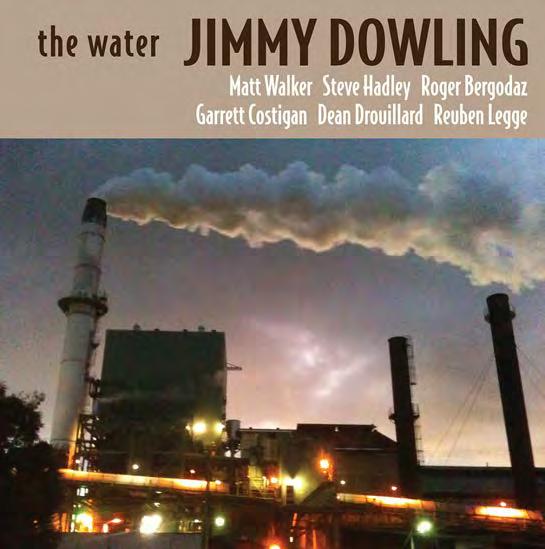
“One of the remarkable things about Jimmy’s music is how beloved it is by musicians. All of us have known Jimmy for a while and were keen to be a part of the project, regardless of the outcomes, just to hear what he would create next… It would be hard to pick a defining moment because the entire session was filled with excited creative energy, as several songs were written by Jimmy in the booth as the band improvised some swirling musical textures.”
Dowling’s songs on The Water are like musings. On life and whatnot. Whatever enters his head. His delivery is Jimmy unique – it’s not sweet and fluid, but half spoken-word, half gravel-croon. It’s not pretty but it works and the lyrics are simple and full, a more laconic Tom Waits or a more sober Charles Bukowski. Or just Jimmy. Outside of his songs, Dowling doesn’t talk too much; he’s not bored or offended or arrogant or rude. I think he just isn’t that comfortable talking about himself. He’s made some changes in his life over the past few years and it seems he sees things as more important than himself now. Jimmy Dowling says more through his songs anyway.
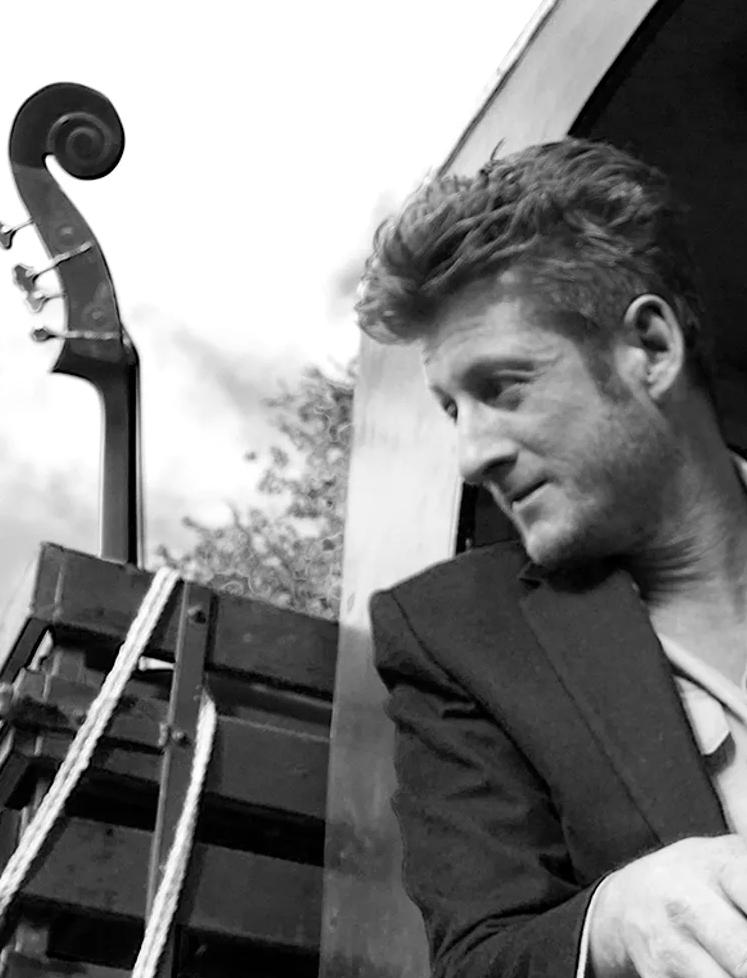
Later on, smoking over the carpark, I ask him, referring to the ‘bar ’ that is the songwriting of Don Walker, if he ever writes to the bar. Does he think about someone like Don Walker singing his praises? “No,” he says after a moment’s thought. “It’s just gotta sound good to me.”
“We tried to match his lyrical tapestry weaving with our musical choices,” Legge’s text message concludes, “and I think the end result was even better than I’d hoped.”
The Water is available in digital format only via www.jimmydowling.com through MGM.
With his latest release, The Water, Jimmy Dowling lets the songs do the talking.
ALBUMS: General

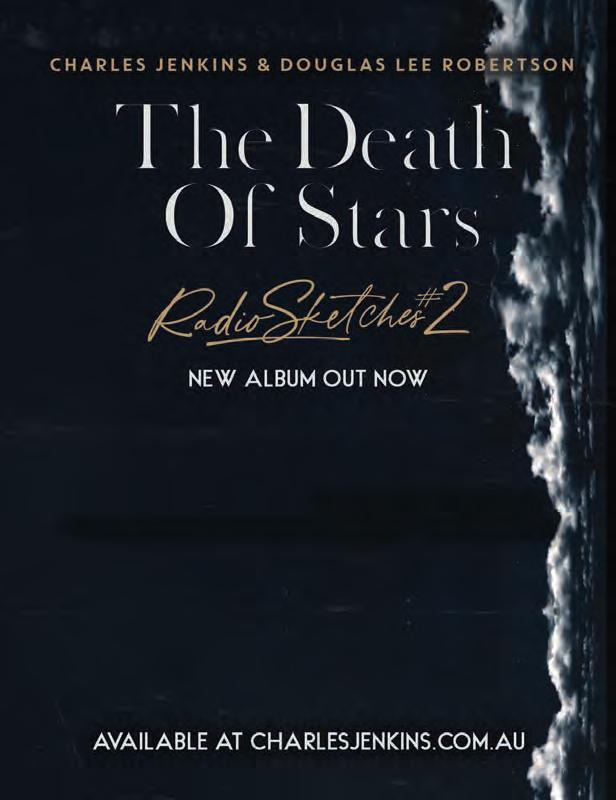

JOYCE PRESCHER OUT OF MY MIND
Cheersquad Records &Tapes
It’s five years since Dutch-born Melbourne-based singer-songwriter Joyce Prescher released her debut album, Home, back in 2017, but her second album, Out Of My Mind, sees her returning to a melodic landscape steeped in European sensibilities that creates of a sense of drama subtly yet distinctly different to the English or American folk approach. Melodically for instance, ‘Closed Doors’ owes more to acques Brel than Joni Mitchell. It’s a melodic sensibility that Marianne Faithful tuned into when she resurrected her career with Broken English, and it’s quite intriguing, and moving, in its effects. It’s there on this album’s opening song, ‘Am I Lost’, just Prescher’s plaintive voice and acoustic guitar, bare and vulnerable, and the haunting ‘Between Your Love and Mine’, particularly resonant for this long-time train commuter.
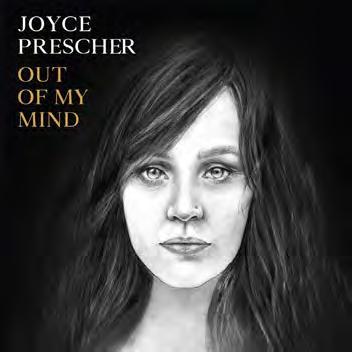
JIn contrast ‘Paper and Pen’ has a nifty mid-tempo mid-‘60s pop (Euro-pop?) swing groove via ‘Stand By Me’ to it, while you’d never guess that the delicate tracery of limpid acoustic guitar notes opening ‘Dark Places’ predicates childhood memories of paralysing nightmares. Her musical conspirators are also remarkably in tune to that sensibility with their low-key interjections, spacious and spare in their underlining flourishes, from Craig Newman’s double bass counterpointed by Lily Thornton’s cello, Jed Pickett’s lap steel adding that extra layer of shimmering ominousness to ‘Closed Doors’. Lyrically, the landscape across which Out Of My Mind traverses ponders the familiar ones –love, heartbreak, loss and healing – but a real freshness that makes this album one to savour in the quiet hours, to cherish when your own loved one is far from you. As she writes of her song ‘His Love’, “When there’s much to say but no words to say it” -
– and that’s a beautiful way to put this whole love, loss and this whole crazy emotional life thing. Khristian Mizzi joins Prescher in her paean to the peace of the countryside as she ponders the ‘City Lights’.
MICHAEL SMITH

THE PHILOSOPHY OF MODERN SONG
By Bob Dylan (Simon & Schuster, h/b)
When it comes to Bob Dylan, the rule of thumb is to expect the unexpected. Back in 2004, he delivered Chronicles, a brilliant and offbeat memoir that managed to conceal as much as it revealed. The book’s cover, emblazoned with the subtitle ‘Volume 1’, whetted the appetite of a gazillion music fans. In the intervening eighteen years, our collective hopes for further volumes have deflated like a leaky balloon, now resembling little more than sad pieces of rubber and latex, entirely devoid of gas. So, what then, are we to make of Bob’s new book, landing without fanfare, that purports to lay bare the genetic code of modern song. Like I said, expect the unexpected.
First things first: what we are presented with in this book are 66 brief texts – generally between two and five pages – representing Bob’s riffs on songs that have presumably been important to him, or that uncover aspects of modern song he considers essential or foundational. As you might anticipate, his selection is entirely idiosyncratic. Who amongst us would have chosen to spotlight the Eagles ‘Witchy Woman’, while bypassing the entire recorded output of the Beatles? But there is no point bemoaning what’s missing, it’s a defeatist cause, far better to take Bob on his own terms, and be mindful of what’s before us.
One way to approach this book is to think of it as a compilation, its chosen tracks, taken in sequence, forming a weird and composite, albeit fragmented, portrait of its compiler or maker. The book’s opening track sets the scene, Bobby Bare’s 1963 RCA single ‘Detroit City’, written by Danny Dill and Mel Tillis. The song’s unhappy refrain of ‘I wanna go home’, sung with longing and regret, inspires in Dylan a brief meditation on the prodigal son story: “From the postcards and junk mail that you dashed off, everybody assumes you’re a bigwig, that things are cool and beautiful but they’re not, and the disgrace of failure is overwhelming. Your life is unravelling. You came to the big city and you found out things about yourself you didn’t want to know, you’ve been on the dark side too long”.
Many of the deliberations in the book read like prose poems, full of kaleidoscopic, dark imagery. They could equally be characterized as shards or discarded offcuts of lyrics that might, when placed end to end, coalesce into another epic ballad like ‘Murder Most Foul’. Throughout, Dylan is putting on masks, trying on voices, treading in the footsteps of these songs.
There is nothing overly modern about Dylan’s selection, much of it represents the generation of artists he grew up listening to, singers whose work informed his idea of song: Ray Charles, Johnnie Ray, Johnny Cash, Perry Como, Bing Crosby, Jimmy Webb, Frank Sinatra, Marty Robbins, Bobby Darin, Elvis Presley, Ricky Nelson, Little Richard, Webb Pierce. What’s fresh, however, is the novel way he approaches these songs, coming from behind or left field, rather than head-on. Here’s Dylan on Little Richard’s ‘Tutti Frutti’: “Little Richard was anything but little. He’s saying that something is happening. The world’s gonna fall apart. He’s a preacher. ‘Tutti Frutti’ is sounding the alarm”. And on Ricky Nelson’s ‘Poor Little Fool’: “Now you’re obsolete and out of date, and you’re walking in the night down by the river, but the water’s dead. You’re moving one leg at a time. Another girl has got a hand on your shoulder, you’re not always at your best”.
Of the few classic-era rock songs featured, The Who’s decidedly unDylanesque ‘My Generation’ looms large, described as ‘a song that does no favours for anyone…Straight talk, eyeball to eyeball’. Ditto, the Grateful Dead’s ‘Truckin’, described as: “Arrows of neon, flashing marquees, Dallas and a soft machine, Sweet Jane, vitamin C, Bourbon Street, bowling pins, hotel windows, and the classic line, ‘What a long, strange trip it’s been’”. Elvis Costello’s ‘Pump it Up’, one of the more
By Des Cowley
recent contenders, elicits: “It’s the song you sing when you’ve reached boiling point. Tense and uneasy, comes with a discount – with a lot of give-a-way stuff. And you’re going to extend that stuff till it ruptures into a million pieces”.
Women artists are arguably short-changed in Dylan’s canon, limited to Rosemary Clooney, Judy Garland, Nina Simone, and Cher. But part of the fun of this book is seeing who’s in and who’s out. Carl Perkins’s ‘Blue Suede Shoes’ feels like a no-brainer, likewise Little Walter’s ‘Key to the Highway’. But neither Jackson’s Browne’s ‘The Pretender’, nor The Allman’s ‘Midnight Rider’ would have struck me as obvious choices, nor for that matter The Fugs’ ‘CIA Man’.
Pundits have pointed out there are obvious models for this book, starting with Dylan’s free-wheeling, poetic liner notes for World Gone Wrong. Then there was his mellifluous street-patter heard across the airwaves during his hundred or so episodes of Theme Time Radio Hour. This book, however, affords him a broader canvas than brief liner notes, while at the same time enforcing a greater concision and clarity of thought than a talk show.
While there is a plethora of song to be found in these pages, Dylan steers clear of the ‘philosophy’ bit. There is no introduction explaining the why-for or the rationale behind the book, and certainly no concluding chapter laying down a summation of his final thoughts on the mystery of song. It would have been foolhardy to expect otherwise. The book comes beautifully designed and packaged, with period photographs conjuring the enigmatic spirit of Dylan’s prose. The Philosophy of Modern Song doesn’t fill the hole in my shelves awaiting the second volume of Chronicles, but until that day arrives, it will do just fine.

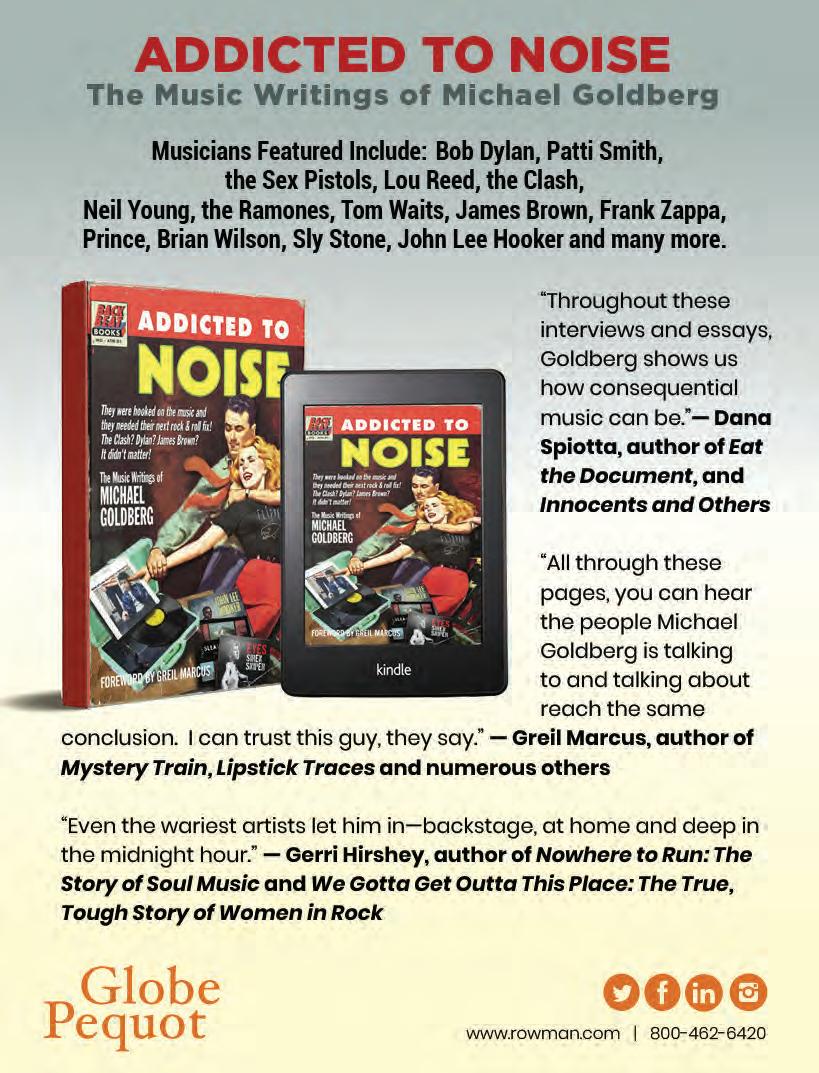
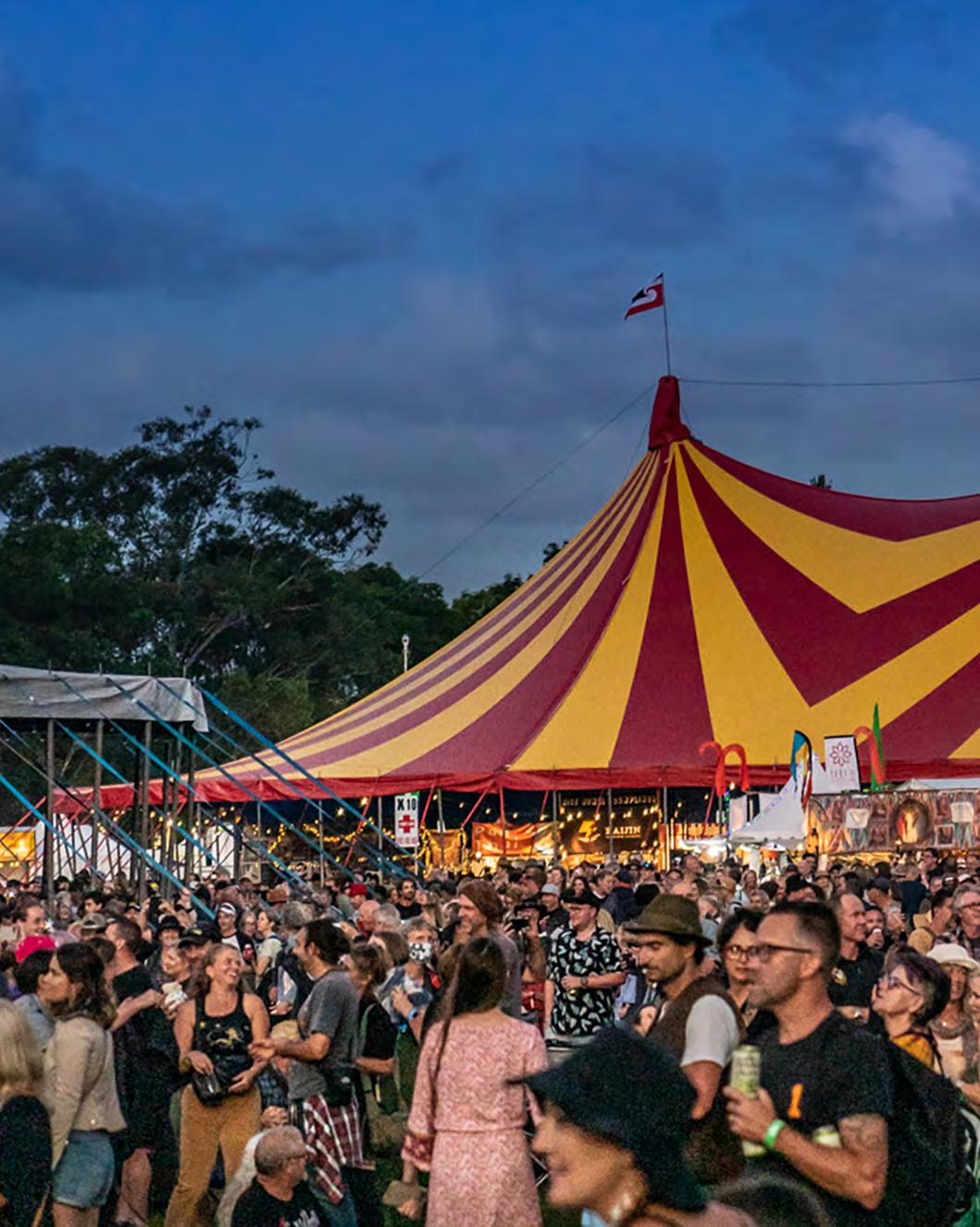


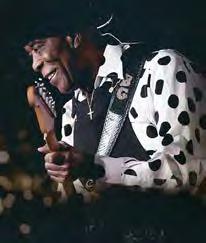

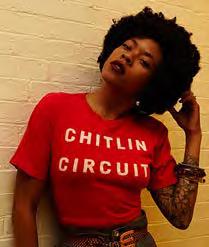
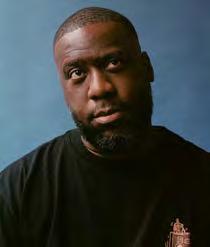
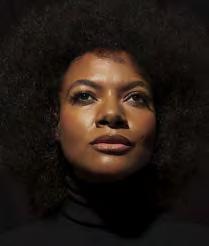
HIGHLIGHTS OF MARCH-APRIL 2023 EDITION Allison Russell The Angels Jackson Browne Doobie Brothers Counting Crows Steve Earle Robert Glasper Nikki Hill Steve Poltz $15.00 inc GST MARCH/APRIL 2023 ISSUE: 316 IT'S TIME AGAIN! Australian Albums The Waifs Minor Gold Margo Price Don Bryant The Swamp Pop Museum Dylan’s Fragments Box Set HISTORY PLUS

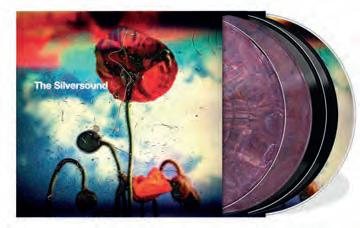
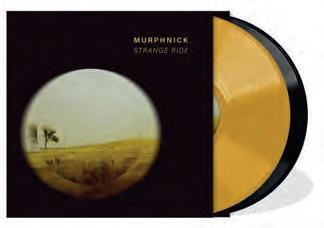
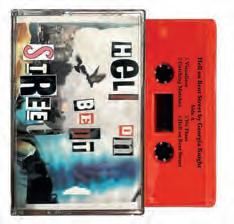
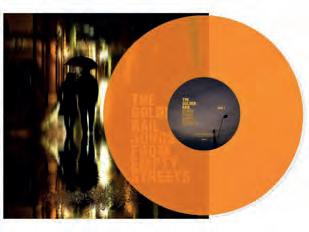

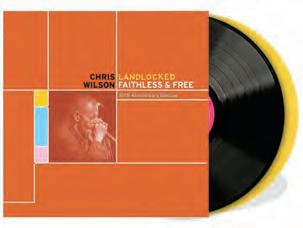
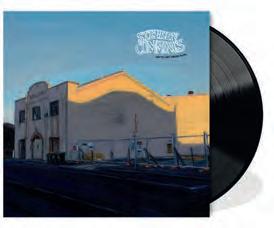
(11 September 1953 – 17 January 2023)
By Ian McFarlane
Australia’s Queen of Soul, Renée Rebecca Geyer, has died at the age of 69. The outpourings of grief and emotion for this most wondrous of singers, from both her fans and the music industry at large, has been nothing short of extraordinary. Blessed with a remarkable voice that was alternately husky and smooth, sweet and soulful, she touched many people with her exceptional talent. I, for one, loved her for that incredible voice, her fierce heart and her elemental soul.
Her family, via long-time friend and publicist Annie Wright, announced her death on Facebook: “It is with immense sadness that we announce that Renée Geyer has passed away from complications following hip surgery. While in hospital, it was discovered that Renée also had inoperable lung cancer. She was in no pain and died peacefully amongst family and friends. Naturally, we are all utterly devastated.”
With her career having spanned five decades, they said that her musical legacy speaks for itself. She was inducted into the ARIA Hall of Fame in 2005; in 2013 she was the first woman to be inducted into the Music Victoria Hall of Fame; and she received the
inaugural Lifetime Achievement Award at the Australian Women in Music Awards in 2018. “Beloved and respected by so many, Renée Geyer was a force of nature and a national treasure. The world is a duller place for her passing.”
I’ve written before that, by any criteria, Renée Geyer’s career has been phenomenal. From her earliest days with bands such as Dry Red, Sun, Nine Stage Horizon, Mother Earth, Sanctuary and the Renée Geyer Band she was long recognised as Australia’s foremost R&B / funk / blue-eyed soul singer. Best known for her rich, sultry and powerful vocal delivery, her most enduring performances on record include ‘It’s A Man’s Man’s World’, ‘Heading In The Right Direction’, ‘Shakey Ground’, ‘Stares And Whispers’ (a national #12 hit in 1977), ‘Moving Along’, ‘Say I Love You’ (her biggest hit at #5 in 1981), ‘I Can Feel The Fire’, ‘Foggy Highway’ and ‘I’m the Woman Who Loves You’.

Although she recorded 20 albums it’s ridiculous to consider that she never scored a Top 10 placement, with both Moving Along (1977) and 2003’s Tenderland having peaked highest at #11. She was an in-demand backing vocalist on numerous sessions, ranging from the La De Das, Dragon and Men at Work to Richard Clapton, Paul Kelly
and Jimmy Barnes. She lived and worked in the United States for many years, where she also earned accolades for her role as backing vocalist for international artists such as Sting, Joe Cocker, Bonnie Raitt and Chaka Khan. During the 1980s, she was a member of R&B band Easy Pieces, led by former Average White Band bassist Hamish Stuart.
Geyer was born in Melbourne, the youngest of three children of Hungarian-Jewish father Edward, and Slovak-Jewish mother Ella, a Holocaust survivor. Her most famous quote might well be describing herself as, “a white Hungarian Jew from Australia sounding like a 65-year-old black man from Alabama”. She was certainly a naturally gifted singer, but initially was not sure of her place on the stage. As early as 1973, she told an interviewer on the ABC-TV’s pop show GTK, “No, I don’t think I’m a confident person. Actually, I’m quite paranoid on stage but when I start singing I forget about that, and then when I stop singing I’m paranoid again.” In her memoir Confessions Of A Difficult Woman (2000), written with the late Ed Nimmervoll, she described her early love for Aretha Franklin and Ray Charles, and then how guitarist Mark Punch (from Mother Earth) introduced her to the music of
Donnie Hathaway, B.B. King, Freddie King, Albert King, John Lee Hooker, Bill Withers and Muddy Waters. With her love for black music entrenched she also embraced Marvin Gaye, Gladys Knight, Merry Clayton and Thelma Houston. These inspirational singers continued to inform her career.
One of her aspirations had been to work in the US. She first got there in 1977 when she recorded the album Moving Along at Crystal Sound Recording, Hollywood, with Motown singer / songwriter / producer Frank Wilson and a host of American session players, including members of Rufus and Stevie Wonder’s band. Wilson had worked with the likes of Brenda Holloway, Marvin Gaye, Supremes, Four Tops, Temptations and Eddie Kendricks. The sophisticated R&B ballad ‘Stares And Whispers’ was the big hit from that album with the pulsating, super funky title track being one of the best things she ever did.
When I interviewed her last year she told me, “Working with Frank Wilson was amazing. He was such an incredibly talented guy. I was right into black music, all my influences were from Rhythm & Blues and soul. He’d produced all my idols at Motown, I was in heaven.”
Geyer made no bones about the challenges she faced, such as drug addiction, throughout her career. She was never one to suffer fools gladly, a stance which might have worked against her on occasion, but her relentless drive and creative spirit have always seen her come through the tough times. It was easy to admire this remarkable woman, not only for her astonishing voice and sheer determination but also her grace and poise under pressure.
In 1975 she faced one of her first controversies over the single ‘Sweet Love’, from the Renée Geyer Band’s groundbreaking album Ready To Deal. The song was as sexy as all get-out and so damn funky, but staid radio culture of the day found the lyrics too much to bear and the single was banned. She’d sang, “I just want to populate but you just won’t cooperate / I don’t want to segregate because I just want to stimulate”. “Oh my God, it was such a fuss,” Renée told me. “People thought I was singing ‘copulate’. They thought I was trying to pull a fast one, it was ridiculous. I’m saying, ‘well, I wrote this song, don’t you think I know what I’m saying’. This whole thing blew up but I have to say the album ended up selling more copies than it might have because of this furore. People had to hear the album because everyone had an opinion about what I was singing. I was just sitting back laughing at it all. I loved that song because it had such a funky rhythm. It was very revolutionary at the time, it was very new to most people in Australia because it was such an unusual groove. It was just really natural for us to do, we had a ball playing like that.”
It was her 1974 version of James Brown’s ‘It’s A Man’s Man’s World’, however, that first made people sit and up and take notice. As a statement of intent, it was praised as a pertinent feminist rallying cry. She never really saw it that way: “I’ve always just loved that song. It was the time of Women’s Liberation and people thought I was making this grand statement about that. They thought I was being so smart to say that. I just ran with it but it was never planned that way. It was just my answer to the situation and in the end it was good for everybody.” In 1980 Geyer temporarily reinvented herself as a tough, leather-clad, mane shaking rocker fronting a blue collar bar band with the pounding, slashing single ‘Hot Minutes’. Geyer was never one to shy away from proving a point. She poured a drink over journalist David Pepperell’s head in retribution for a bad review he gave one of her albums. Pepperell said she forgave him in time and that it was always a thrill hearing her sing. She was dropped from the bill of the 2002 arena rock spectacular Long Way To The Top when, following an altercation with one of the organisers, she ended proceedings with a well placed punch.
In 2009 Geyer underwent treatment for breast cancer. Then in 2011, following an incident where she crashed into parked cars her defence in court was that her loss of
concentration was due to her medication. In 2015 she verbally assaulted a receptionist at an Adina hotel, only just escaping conviction with a 12-month good behaviour bond. One of the descriptions that has often been directed at Geyer was “difficult woman”. It’s true that Paul Kelly wrote a song for her called ‘Difficult Woman’ (“A difficult woman’s had to be tough all of her life”). “Women usually are considered to be difficult,” Renée observed. “They never say ‘difficult man’. But the song was beautiful.”

She called her memoir Confessions Of A Difficult Woman. And when the late Michael Gudinski inducted her into the ARIA Hall Of Fame in July 2005, not only did he describe her as “the greatest female singer of my lifetime in Australia...” but also he said, “Yes, you’re a difficult woman, but you’re bloody fantastic”. As head of Mushroom Records, Gudinski had always been one of her greatest supporters, yet too often many others have relied on “difficult woman” as a catch-all means of attempting to constrain her. It’s now apparent that people really should let that epithet go. Broadcaster Tracee Hutchison said it best when she wrote, “I really wish people would stop referring to Renée as difficult. Despite the ironic title she gave her own book to simply claim back the male-written narrative about her. And PK’s song… Renée was all kinds of brilliant – forceful, fierce, strong-willed and cleareyed about her craft. I could name so many blokes who behave like that and hide behind management to do the tough talking… and have not been marginalised or pilloried or sidelined with derogatory labels. Why that makes her difficult says more about everyone else she left in her wake. Rest in peace Renée. A total queen of her craft. Who didn’t suffer fools or put up with ‘industry’ nonsense from anyone. All power to her.”
American artist Bonnie Raitt posted her condolences on Facebook: “Shocked and so saddened to hear of the sudden passing of another friend and one of the greatest singers I’ve ever known, Australia’s incomparable Renée Geyer. Her husky, powerful and deeply soulful voice and phrasing has blown me away since I first heard her back in 1980 in LA, while making her So Lucky album with producer Rob Fraboni, and the Bump Band, consisting of legendary keys player Ian ‘Mac’ McLagan, drummer Ricky Fataar, guitarist Johnny Lee Schell and bassist Ray Ohara.
“Whether through decades of her own albums and live shows, joining in on records with Sting, Jackson Browne, Hamish Stuart or my own, Spit of Love, with her impossibly low growl, unearthly high swoops but mostly, staggeringly great singing, there was no one like her. She was feisty, fiercely independent and faced a lot being a strong woman in this music business. She was also my good friend and will remain an inspiration and in my heart always. My condolences to her family and friends.”
1966-2022
By Martin Jones
In November last year Sara Tindley celebrated her birthday with one of the most powerful live performances I’ve ever seen. Two months later, she was gone.
Sara, who’d been battling cancer for some time, was able to farewell her friends and family with the best album and concert of her life. And she died peacefully, surrounded by her family, in her partner Mark’s own words, “at home, in her own bed, with the sun rising –how she wanted.”

That doesn’t make her loss any easier to bear, particularly so soon after the death of her eldest daughter Lily. Having just now returned from Sara’s funeral, my head is ringing with heartfelt tributes,
reminding us what a generous, genuine, kind and strong friend Sara was and how we should carry her spirit and music forward with us to help us live our own lives.
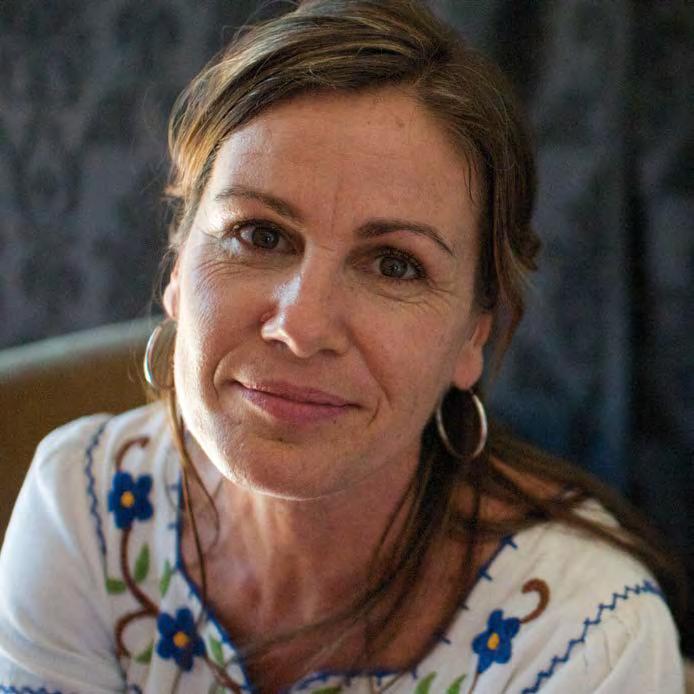
But a broken heart does not listen to reason. A broken heart wails, ‘Why take someone who brings so much love and joy the world? Why take someone who was so loved?’
Watching Sara shine like the sun in her vintage, powder blue suit on stage two months ago you’d swear she was invincible. That she would surely beat cancer and outlive us all. It was an unforgettable night. Walking through the desolate aftermath of the streets of postflood Lismore, then ascending to the renovated Star Court Theatre was surreal in itself. Come showtime the theatre was packed and Sara and band took the stage to a roar of support – acknowledging
Well, I got to be on her album.” – Ash Bell.
the community’s resilience as well as our love for Sara. It felt like, perhaps, against all odds, everything might be alright after all. Knowing she was seriously ill, Sara’s friends and family pushed her to make one last album, resulting in Greetings From Lake St Clair Close friend Lucie Thorne was one of the driving forces behind the album, offering to produce the recording for Sara. Her vision for these songs and the subsequent concert was inspired, enlisting engineer Jordan Power, musicians Chris Parkinson and Robyn Chalklen (The Yearlings), Scott Hills, Brett Canning and close friends Ash Bell, Jimmy Dowling, Suzannah Espie and Nadine Budge.
Augmented by Lucie’s own trademark guitar, the tone of the record is tougher than anything Sara has previously recorded. It needed to be, in order to face the subject matter. Sara did not skirt around the trauma in her life, staring down disaster in writing for the new album. Sara fearlessly tackles her own mortality throughout Greetings From Lake St Clair, and songs like ‘Stars’ and ‘The Waiting’ make for listening that is as harrowing as it is affirming. With its sparse banjo and ominous guitar, ‘The Waiting’ is a song that would not sound out of place on a Gillian Welch recording. Someone should suggest it to her. And her take on Chris Altmann’s ‘Other Side of the Mountain’ is a triumph.
But it’s when Sara tackles the recent death of her eldest daughter Lily on ‘Swanling’ that your jaw drops. Let me tell you, Sara, arms outstretched and coruscating on stage, sighing, “I will never understand, I will never understand why all my love couldn’t save
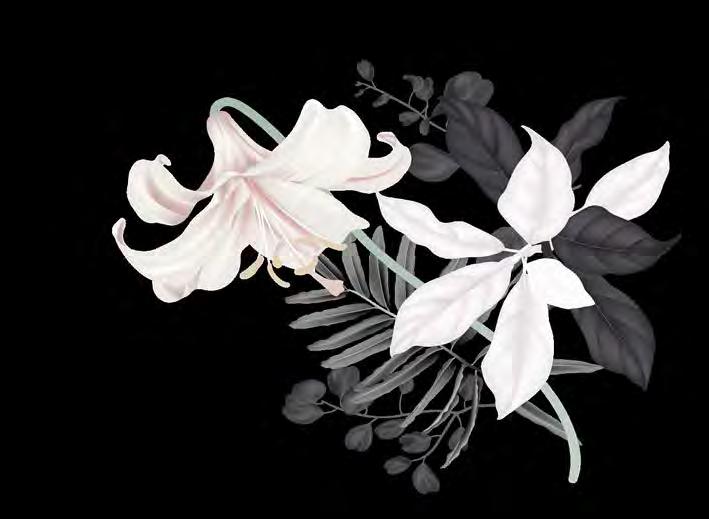
Jimmy Dowling
you,” before wailing, “You’re in the stars now…. You’re in the stars now,” is the bravest and most powerful expression I’ve ever seen on stage. That will be my lasting memory of Sara Tindley.
On a personal note, I was fortunate enough to spend a few hours collaborating with Sara. Sitting in a room when she introduced a new song for the first time, being invited inside that song, with Sara sharing her voice, heart and wisdom so intimately is one of the greatest privileges of my life. I’m sure everyone who worked with her feels the same way.
SOME WORDS FROM SARA’S BANDMATES:
The theatre was packed and Sara was cool, calm and collected, with plenty of good humour thrown in. My responsibility was minimal. Eight bars of whistling and that was it. So, I could enjoy the company of those great musicians back stage and while I stood in the wings watching and listening. There was lots of love in the room and those on stage put their heart and soul into the songs. Sara’s strong and beautiful performance all night was outstanding. Truly great. I feel lucky to have been there.
Sara was always genuinely interested in your life, what you thought about things and how you were feeling. A great hang.
Very supportive of you, your music and made you feel good about yourself. Rare.
Jordan Power
Bloody hell it’s a joy being in the studio with Sara! I’d have to say my favourite part of making this album was how incredible the feel was when tracking everyone live together. The power Sara delivered to her stories in these moments was unreal and lucky for me that the best sounding place for her vocal/guitar/banjo takes was right next to me at the console. The style of Lucie’s production, particularly with the more spacious recordings, really helped everything breathe while tracking live too. What a privilege to be asked to hit record on stunning tunes!
Brett Canning
Recording Sara’s album was a real highlight for me. Everything just worked. Although it was the first time we’d come together as a band there was a natural chemistry that really helped things flow... even after just one rehearsal! Sara’s songs are so honest and real and that made it possible for us to immediately connect to the feeling behind each tune. Tracking the song ‘Swanling’ was an almost magical experience, we all seemed to forget where we were and just be in the song, pretty cool. Lucie was super easy
“They say you should never meet your heroes. Well, I got to be on her album.”
–Ash Bell.
Chris Parkinson
Rob and I first met Sara Tindley at the Mullumbimby Music Festival in 2010 and a few weeks later she was in touch seeing if I would be interested in producing her new record. This was to become Time – a glorious album, and many treasured memories and friendships were forged, even leading us to a trip to Memphis for the Folk Alliance showcase and a handful of shows together in Nashville, Knoxville and Alabama.
It’s always thrilling to hear that Sara has a bunch of new songs to record and to have another chance to work with her on Greetings From Lake St Claire was a joy.
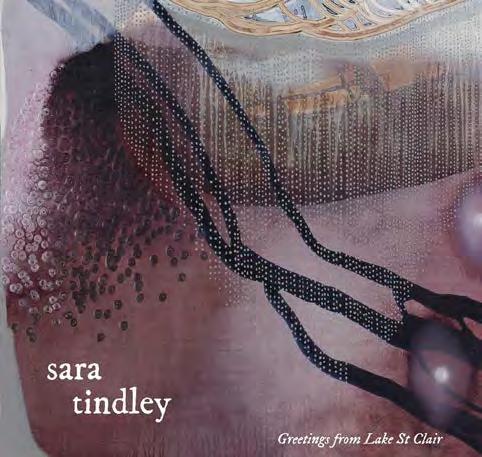
Myself, Robyn and Lucie Thorne (who was producing the record), spent a week working on Sara’s new songs for Greetings From Lake St Claire, with the thought that we would record with her at Mixmasters Studios in Adelaide the following week and at the same time with the same band record the new Yearlings record as well. It was all pretty ambitious but doable we thought, until it became clear that Sara was too ill to come over to Adelaide and do that, so a new plan was hatched to record close to her with a different band. The Yearlings’ record went ahead and was finished. In the end for us, we were unable to get up to the Byron hinterlands to record with the band so I spent a day recording my guitar parts in Adelaide and Rob did her harmony parts in the evening. I always find it pretty weird doing guitar overdubs – it’s hard to get the immediacy of a take and it’s easy to start overthinking it, so it was an uneasy wait to hear if they were happy with the takes or not.
Onward to the launch at the wonderful Star Court Theatre in Lismore. You could not hope for a better turnout. After the floods it seemed everyone was out to celebrate the joyful music of Sara Tindley; tears, celebration, interplay between the band, beautiful harmonies from Poppy (Sara’s daughter) and Robyn Chalklen with Ash Bell and Jimmy Dowling providing a standout whistle solo. But the star of the night of course was Sara herself, the beautiful songs and that incredible voice.
Sara sings effortlessly with such soul and command that she make you feel totally at ease, like you are being looked after and there is nothing to worry about, yet somehow cuts through straight to your heart.
Ash Bell
Being involved in Sara’s last record is something I will always cherish. She actually didn’t even want to do it. We spent a lot of time together touring with Festival of Small Halls and kind of decided that that was what we liked doing rather than being in a studio and then making some album to try to promote and get momentum behind. We were both pretty cynical about the world of recording and releasing and we talked each other out of it pretty much. Problem was, Sara had a bunch of songs in the pipeline. I had heard a couple of them, but I really had no idea. When Lucie twisted her arm and convinced her to make the album, I must say I was
quietly very happy about that. Another ST album in the world can’t hurt, right? But I had no idea what was up her sleeve. The way those songs came together and that team is like nothing I’ve ever experienced before. I only had a couple of little jobs singing a few parts. I got to be there while Jimmy Dowling recorded his whistling solo and that was a precious moment. Jordan Power, who I have worked with a few times, was simply perfect. Lucie, it turns out, was born to produce. She knew exactly what was needed and managed to communicate it in whatever that language is that musicians use to describe things. The rhythm section was magic. Chris’s guitar parts were even more delicious than I was imagining they would be. And Sara Tindley. Those songs. Her voice is so immensely honest and exposed. Jordan managed to capture that. This is such a massive album. I still don’t think Sara really knew what she made. What an honour to have been able to witness and be part of that creation. They say you should never meet your heroes. Well, I got to be on her album.
The only thing more impressive than that record is the launch show that followed. It was surreal to walk out on stage at the Star Court Theatre in a town still far from recovering after unprecedented catastrophe, and see it packed to the rafters. Sara gave every last drop she had left in the tank that night. You could feel the energy in the room, it was like a wholetown catharsis. I was nervous for Sara because that is a lot of energy to be in front of. She mastered it, and she gave it right back. The room held her and her daughter Poppy as they sang together for their beautiful Lily. The band was considered, solid as a rock, and absolutely cooking. Lucie was at Sara’s right hand, and how appropriate. When it was over, the crowd erupted into two standing ovations. I don’t think I’ve ever watched someone be so celebrated by so many as the way we all loved Sara that night. She is the finest there is, and she showed us all what it is to be a true artist.
Greetings From Lake St Clair is available from saratindley.bandcamp.com
>>>
Tributes have been plentiful for legendary singer-songwriter-guitarist David Crosby, founding member of The Byrds and Crosby, Stills & Nash (later Crosby, Stills, Nash & Young), who died on Wednesday evening January 18 at the age of 81. A statement said that this was after a long illness.
Crosby was inducted into the Rock and Roll Hall of Fame twice, as a member of the Byrds in 1991 and Crosby, Stills & Nash in 1997.
While Crosby had said last year that he was retiring from performing and would concentrate on recording, he had changed his mind soon after and was due to perform on February 22 at the Lobero Theater with Bruce Cockburn.
In 2019, Crosby was the subject of the Cameron Crowe produced documentary, David Crosby: Remember My Name (nominated for Best Music Film at the 2020 Grammys). In the film Crosby spoke about how none of his former bandmates would talk to him. He had become estranged from Neil Young after being critical of Young’s relationship with Daryl Hannah. Crosby, Stills, Nash & Young last played together as a quartet at a Bridge School benefit in 2013. The final appearance by CSN as a trio was in 2015. The trio had appeared at Bluesfest in Byron Bay in 2014.
Crosby was the son of Oscar-winning cinematographer Floyd Crosby and was raised in Los Angeles and Santa Barbara. He started in music after dropping out of Santa Barbara City College and becoming involved in the folk music scene where he began working the L.A. folk clubs as a solo act. In 1964 Crosby joined The Byrds and appeared on the band’s first five albums. In 1968 he became part of Crosby, Stills & Nash who made an immediate impression, winning the Grammy for Best New Artist in 1969 and appearing at Woodstock.
DAVID CROSBY (1941-2023)

Former CSNY partner Graham Nash has posted. “It is with a deep and profound sadness that I learned that my friend David Crosby has passed, I know people tend to focus on how volatile our relationship has been at times, but what has always mattered to David and me more than anything was the pure joy of the music we created together, the sound we discovered with one another, and the deep friendship we shared over all these many long years. “David was fearless in life and in music. He leaves behind a tremendous void as far as sheer personality and talent in this world. He spoke his mind, his heart, and his passion through his beautiful music and leaves an incredible legacy. These are the things that matter most. My heart is truly with his wife, Jan, his son Django, and all of the people he has touched in this world.”
Stephen Stills posted: “I read a quote in this morning’s paper attributed to composer Gustav Mahler that stopped me for a moment: ‘Death has, on placid cat’s paws, entered the room.’ I shoulda known something was up. David and I butted heads a lot over time, but they were mostly glancing blows, yet still left us numb skulls. I was happy to be at peace with him. He was without question a giant of a musician, and his harmonic sensibilities were nothing short of genius. The glue that held us together as our vocals soared, like Icarus, towards the sun. I am deeply saddened at his passing and shall miss him beyond measure.”
Neil Young posted the following on his website: “David is gone, but his music lives on. The soul of CSNY, David’s voice and energy were at the heart of our band. His great songs stood for what we believed in, and it was always fun and exciting when we got to play together. ‘Almost Cut My Hair,’ ‘Deja Vu’ and so many other great songs he wrote were wonderful to jam on and Stills and I had a blast as he kept us going on and on. His singing with Graham was so memorable, their duo spot a highlight of so many of our shows. We had so many great times, especially in the early years.
Crosby was a very supportive friend in my early life, as we bit off big pieces of our experience together. David was the catalyst of many things. My heart goes out to Jan and Django, his wife and son. Lots of love to you. Thanks, David, for your spirit and songs, Love you man. I remember the best times!”
Former member of The Byrds, Chris Hillman posted: “I lost my friend, David, today. I pray God grants him peace.”
David Crosby spoke to Rhythms in 2013 about the release of the Crosby Stills Nash & Young live box set based on the 1974 ‘Doom Tour’, where at one point Neil Young left the tour without telling his bandmates. “On every other level but the songs and the music, it was pretty much in complete disarray,” said Crosby. “We didn’t travel together, we argued all the time, we were taking drugs that were making us utterly, totally crazy. We had completely different agendas. We were as crazy as we ever were in our lives. And yet, the songs were so strong, the music was so strong when we’d get onstage that it pulled us all together and brought out the best in us and made us able to do what, near as I can tell, is pretty stellar stuff.”
“It makes me believe what I always did believe, which is that was the central issue, the magic of it, the music. Music is an elevating force in the human race. It always has been. It could transcend the drugs and the sex and the craziness and the fame and the money, and the manipulation by all the people around us. That it could transcend all that stuff and be magic speaks really well for the music as a force and as a thing to dedicate your life to. It was worthy, really worthy.”
“I can’t help but have affection for guys that I’ve been through this much with. And I can’t help but have respect for guys who’ve written and played and sung the music that these guys have written and played and sung. You can’t not respect Stephen Stills or Graham Nash or Neil Young or me, for that matter. I’ve done some stuff that other people haven’t done.”
Photo of David Crosby by Anna Webber
Jeff Beck, the legendary British guitarist who succeeded Eric Clapton in the Yardbirds in 1965, led the Jeff Beck Group (which featured Rod Stewart and Ronnie Wood in the early days) and forged a formidable reputation for his solo recordings and performances, died on Tuesday January 10, aged 78.
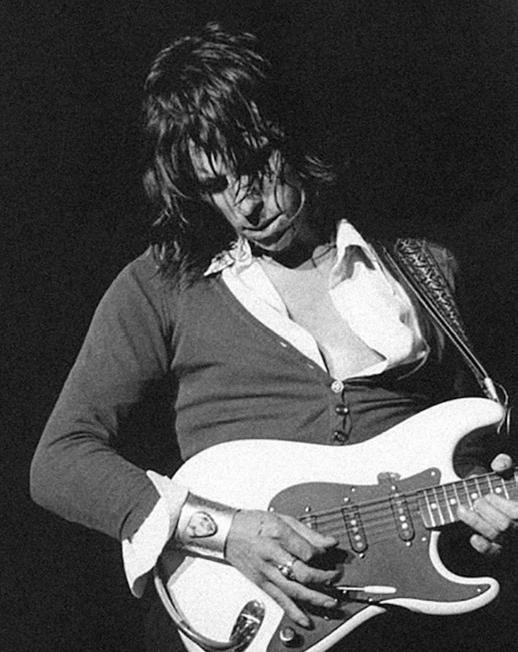
A statement issued on behalf of his family said, “it is with deep and profound sadness that we share the news of Jeff Beck’s passing. After suddenly contracting bacterial meningitis, he peacefully passed away yesterday. His family ask for privacy while they process this tremendous loss.”
An eight-time Grammy winner and recipient of the Ivor Novello Award for outstanding contribution to British music, Beck was inducted into the Rock and Roll Hall of Fame as a member of the Yardbirds and as a solo artist. Beck played on albums by Donovan, Stevie Wonder, Stanley Clarke and Rod Stewart in the 60s and 70s and Mick Jagger, Tina Turner, Joe Cocker and many more in the 80s and 90s. He formed Beck, Bogert and Appice and released one album with that line-up in 1973. Beck also appeared on Dion’s 2020 album Blues With Friends and his latest collaboration was an album with Johnny Depp, with whom he appeared at Eric Clapton’s Crossroads Guitar Festival in Dallas in 2019. Beck’s recordings crossed genres ranging from blues rock, hard rock, jazz fusion, and a blend of guitar-rock and electronica.
Ronnie Wood, who was a member of Beck’s group in the late ‘60s. posted: “Now Jeff has gone, I feel like one of my band of brothers has left this world, and I’m going to dearly miss him. I’m sending much sympathy to Sandra, his family, and all who loved him. I want to thank him for all our early days together in the Jeff Beck Group, conquering America for the first time. Musically, we were breaking all the rules, it was fantastic, groundbreaking rock ’n’ roll! Listen to the incredible track ‘Plynth’ in his honour. Jeff, I will always love you. God bless.”
Brian Wilson posted: “I’m so sad to hear about Jeff Beck passing. Jeff was a genius guitar player, and me and my band got to see it close up
JEFF BECK (1944-2023)
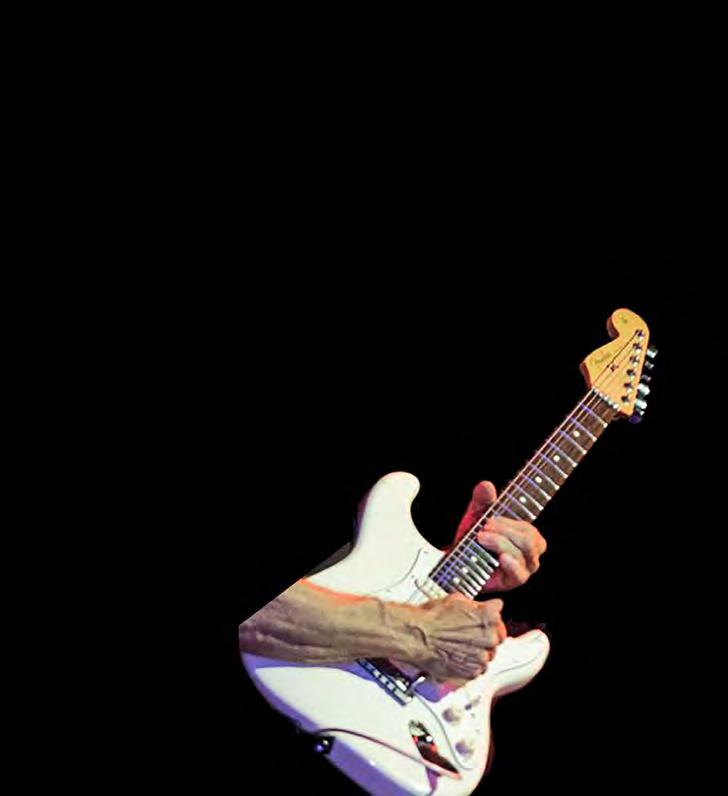

when we toured with him in 2013. One of the highlights we did was 'Danny Boy' – we both loved that song. Love & Mercy to Jeff’s family.” Australian musicians also paid tribute. Guitarist Jeff Lang posted: “Aw man, sad to hear that one of the greats has departed. I had the honour of opening for him on a tour around Australia a few years back, and every night he was astounding. He had an almost cavalier attitude in his playing, tossing outrageous phrases and sounds over his shoulder throughout his sets, following breathtakingly lyrical melodic lines with whatever noises occurred to him at that second. Mind meltingly great. He was a nice fellow too, said some lovely things to me which I cherish. He was one of a kind. RIP Jeff Beck.”
Jeff Beck spoke to Rhythms prior to his tour of Australia and appearance at Bluesfest in 2014. The guitarist had set himself the challenge of paying tribute to another guitarist in John McLaughlin and his Mahavishnu Orchestra. “Because I am still hooked on some of the playing", he explained. “He gave us Billy Cobham. He gave us Jan Hammer, who I teamed up with and had a two-year career with. Those players have never been equalled; I don’t believe. They were above the game in a million ways back then, in ‘70-‘71. The fire that was coming off the stage… it was probably too much for a lot of people that didn’t really understand the time signatures. It could be cacophonic or whatever, but to me it was groundbreaking almost in the way that rock ‘n’ roll was. It was as radical as rock ‘n’ roll was when it came out. They fused all these different styles. You can listen to it now and you can still enjoy it, I think.
“The thing is that, John [McLaughlin], it seemed to me like he went underground in the late ‘60s when Jimi Hendrix was doing amazing fireworks and just genius displays with the guitar. There was Zeppelin and all that and he probably thought, ‘I’m not having this. I’m going to go underground and I’m going to show you guys what it’s all about.’ He came back with that and was like a bit of Hendrix and a bit of Zeppelin all in one, but with the firepower that nobody had ever seen before.”
Photo of Jeff Beck from jeffbeck.com
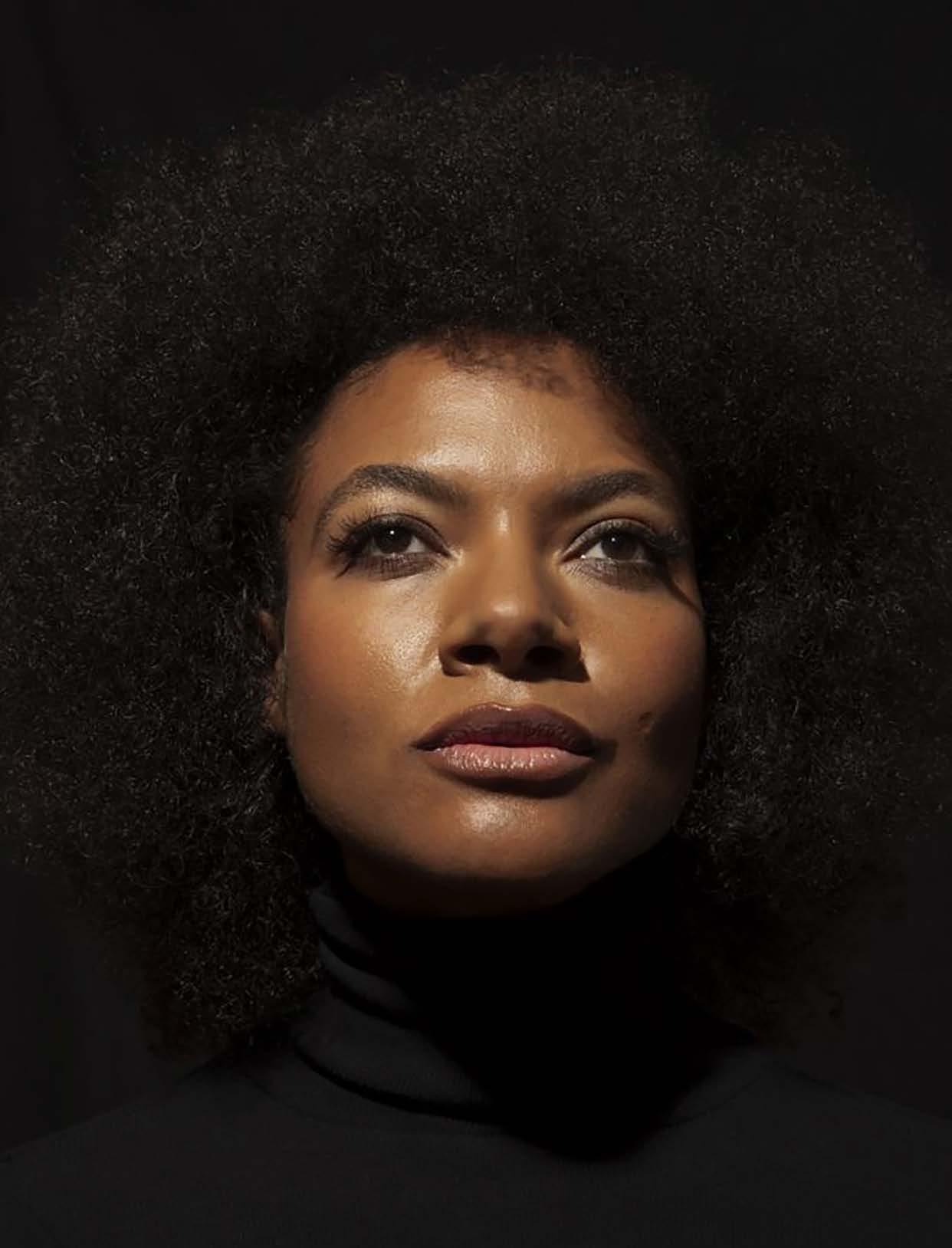 Photo by Marc Baptiste
Photo by Marc Baptiste
To the casual observer, Allison Russell’s ascension to the pinnacle of Americana music could be viewed as meteoric. Since the 2021 release of her debut solo album – Outside Child – the Nashville-based Canadian has not only earned a slew of Grammy Award nominations but has won countless Americana music awards and honours in the United States, Canada, and the United Kingdom. It’s been a whirlwind ride from which the singersongwriter is still catching her breath. The reality of her rise is of course very different.
Since the late 1990s, Russell has been the consummate troubadour. After fronting critically acclaimed acts such as Po’ Girl and Birds of Chicago, Russell joined forces with Rhiannon Giddens, Leyla McCalla, and Amythyst Kiah to form the musical collective Our Native Daughters. In emotionally addressing historical issues that have influenced the identity of black women, not only did the project finally put Russell on larger stages, but it also opened the door for some of the most personal songs the singer-songwriter has written to date.
As Russell scribbled down lyrics for what would ultimately evolve into Outside Child while on tour with Our Native Daughters, little did she know where those songs would ultimately take her.
“I really didn’t have any expectations for this album,” Russell told Rhythms Magazine from her Nashville home. “As you know, I’ve been doing this for almost 20 years, and I never assumed anybody is going to pay particular attention or take something I do to heart. So, the fact that the album has been successful and recognised by my peers and different organizations is not something I ever expected.”
“I think one of the reasons the album has resonated is because our society has been experiencing a shift. I think we’re now more open to hearing stories and songs and reading the writing of black women. The other day I was speaking with my friend Tressie McMillan Cottom - who wrote a wonderful book called “Thick” –and the same thing happened for her. Her book went to No. 1 and she started writing opinion pieces for The New York Times. There has been a reframing where we’ve realised that there’s a huge part of the population that we don’t hear first person stories from.”
The first-person stories Allison Russell shares on Outside Child are ones that have long needed telling.
Raised in Canada by her mother and an abusive white-supremacist American expatriate stepfather, Russell was physically and sexually abused by her adoptive father. The album is an inspired journey out of abuse and adversity to a place forged by resilience, survival, and transcendence, poignantly underlining the power of love to conquer hate. And the success the record has subsequently found only makes Russell’s story all the more heartfelt. But openness and a willingness to listen hasn’t always greeted Russell’s stories. The 2008 Po’ Girl album, Deer in the Night included the song “No Shame,” a composition Russell wrote after her stepfather’s release from prison. While performing the song during the tour supporting the song’s release brought forth stories
from audience members of their own abuse it was also met with a significant amount of societal vitriol.
“When I did the 2009 No Shame tour with Po’ Girl there were clubs that would not invite us back because they were offended by me talking about protecting children from childhood sexual abuse,” Russell recalled. “They thought it was so inappropriate. That was of course before the Me-Too movement and all these survivor networks hadn’t found each other yet so we were each doing our own thing in isolation. I am so grateful to Tarana Burke and Alyssa Milano who were responsible for all of us finding each other because I felt so isolated when I tried to talk about this in the Po’ Girl days.”
“A lot of the time I got shut down but after each show a handful of women would come up and tell me they were survivors too. It’s not a new story, but what is new is we’re talking about this, and people are now listening. That’s why I find the response to Outside Child so encouraging because it’s the polar opposite to what I experienced when Po’ Girl released “No Shame” a decade prior. There’s been a big shift in ten years in terms of people being willing to meet the difficult parts of the work with kindness and empathy.”
Since the release of Outside Child, there has been no shortage of kindness, empathy and community flowing Russell’s way - which is only fitting given that was also the spirit in which the record was created. Russell started writing for the album on the tour bus while traveling between Our Native Daughters shows, bouncing song ideas and forth with her husband and Birds of Chicago bandmate, JT Nero. With the help of funding from the Canada Council of the Arts, the album was recorded in September 2019, at the conclusion of Americanafest, drawing upon the talents of a procession of the couple’s friends and colleagues while they were in town.
“We had this little window between an Our Native Daughters tour and a Birds of Chicago tour where there were four days available at my favourite studio here in Nashville, the Sound Emporium,” Russell recalled. “It was right after Americanafest so our community of Canadian and American friends were all here. I was still in a state of denial about the fact I was even making a solo record because that was such a scary concept to me. So, we went in and recorded and then I was back out on the road with Birds of Chicago. Because the record is about breaking the silence on cycles of abuse, I felt quite evangelical about putting it out and people rallied around it to make that happen.”
One of the recording’s greatest champions was Brandi Carlile. Having just co-produced Tanya Tucker’s Fantasy Records -released album While I’m Livin’ with Shooter Jennings, Carlile reached out to the record company’s president, Margi Cheske. Russell received a call the very next day with the company releasing the album in May of 2021. Having shared the stage together countless times since the album’s release, Russell recently invited Carlile into the studio to sing on her latest single, “You’re Not Alone.”
Originally recorded as part of the Songs of Our Native Daughters album, it’s a song Russell felt deserved another airing. >>>

FEATURE
>>> “That song was written back in 2019,” Russell explained. “We made Songs of Our Native Daughters in ten or 11 days in Breaux Bridge, Louisiana and it was my first big separation from my daughter. We were writing to three or four in the morning and recording the next day. Amythyst and I had just finished writing “Blood and Bones” and I couldn’t sleep because I was missing my daughter. But I was also reminded how lucky the four of us were to be making that record, being just one generation away from not having that kind of autonomy.

“At the time there were also children being put into cages at the border and in Canada they were digging up the bodies of children who were murdered at residential schools. I was feeling all of that when “You’re Not Alone” poured out. The other side of all that misery is of course the incredible strength and resilience it takes to keep hope alive under the worst of circumstances. We all come from long lines of survivors who went through times worse than these. We’re the next generation of ancestors and our legacy will be what the next generation inherits.”
The opportunity to re-record the song with Carlile and release it on the back of Outside Child, is something Russell is eternally grateful
for. And she is also conscious of paying forward the generosity and support that has gotten her to where she is now.

“Brandi helped change our lives,” Russell explained. “She literally lifted our family out of poverty when she chose to champion Outside Child and made those calls that connected us with my label which then led to us writing for Concord Music Publishing. Right now, I’m sitting in our first home ever. Our friendship with Brandi really did change our lives and it’s so important to me to keep paying that forward.
“That’s why I’m very conscious about coalition building and who I bring on stage and creating opportunities that will open the doors for other artists. Because of her sexuality, Brandi had a harder struggle to be recognised as the brilliant genius that she is than if she was a straight white guy. That’s where her generosity and empathy come from. I’m conscious of doing the same. It’s very important for me to approach whatever I do with the intention of continuing to share and commune. It’s through support and inclusivity that we’ll shift away from all the toxic hierarchies that have been in place for so long.”
FEATURE
“We took acid together and he played record after record that we listened to. He played Bob Dylan, he played Ray Charles, played Laura Nyro, he played David Blue. Then he put my record on.
I went, ‘Oh no.’ It was a really shattering experience.”

Jackson Browne arrives for Bluesfest and other gigs smack dab in the middle of the 50th anniversaries of his first two albums, the January 1972 eponymous debut which became known as Saturate Before Using and For Everyman in October 1973 which contained his version of the hit song ‘Take It Easy’ which he co-wrote with The Eagles’ Glenn Frey and which became a Top 20 hit for the band. The albums quickly established Browne’s reputation as one of the best contemporary songwriters, although both the Nitty Gritty Dirt Band (which he was in for a few months) and Nico had already recorded his songs. Though neither of those albums cracked the Top 40, they laid the reputation and groundwork for a career that took off in 1974 with Late For The Sky and then exploded into the Top 5 in 1976 with The Pretender.
The eponymous debut Jackson Browne, released in January 1972, was re-released last year in a remastered format. Because of its cover design, which enclosed Henry Ditz’s photo of Browne in a water bag, that debut album became known as Saturate Before Using. Like its successors, it contained a stunning array of players: Jesse Ed Davis on guitar for the hit single ‘Doctor My Eyes,’ Sneaky Pete Kleinow on
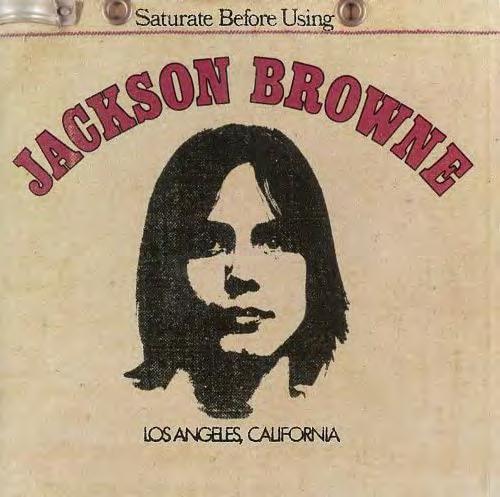
RUNNING ON PLENTY
Last year marked the 50th anniversary of Jackson Browne’s landmark selftitled debut album, one of the great debut albums of all time. But there was plenty of history behind it, as Brian Wise discovered.
pedal steel, Leland Sklar on bass, Russ Kunkel on drums, Albert Lee on electric guitar and Clarence White from The Byrds (and others) on acoustic guitar, Craig Doerge on piano, Jimmie Fadden from the Nitty Gritty Dirt Band on harmonica along with harmony vocalists David Crosby, Graham Nash and Leah Kunkel. David Campbell played viola and filled some of the parts that David Lindley, who couldn’t make the session, would have played. The songs on the album were some of the most personal and affecting Browne was to pen, with the production highlighting the sensitivity of the voice.
That classic debut recording might have been remastered and re-released but when I caught up with Browne recently to talk prior to his forthcoming tour and appearances at Bluesfest I wondered why that it had not been re-released with bonus tracks in a boxed set.
“What would you put in the box set?” he asked in response to my query. “I mean, outtakes? There’s nothing really. There’s maybe one or two takes that weren’t good enough to be on the album, so what would you do, put those out?”
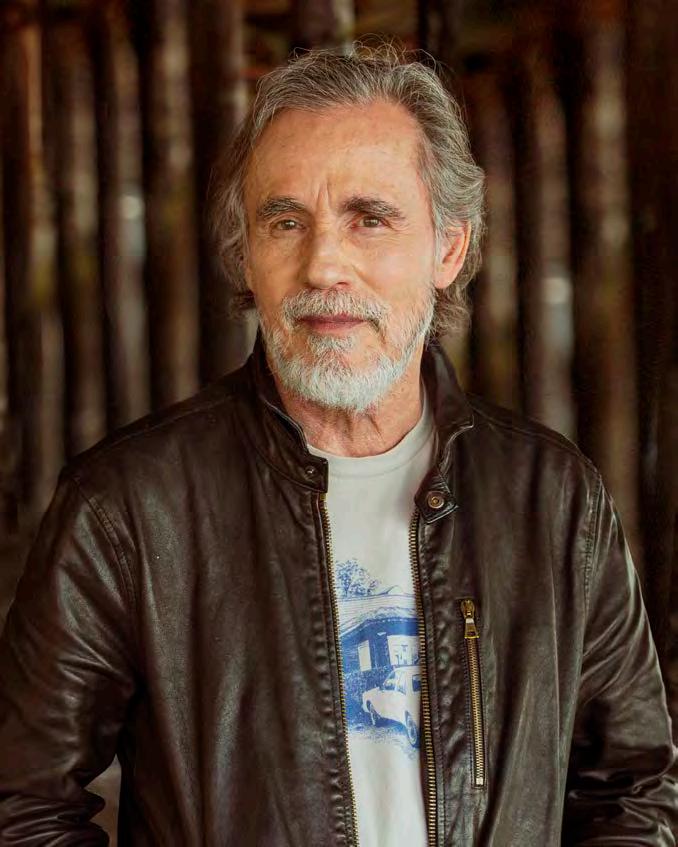 Jackson Browne. Photo by Nels Israelson.
Jackson Browne. Photo by Nels Israelson.
FEATURE
I mention the 94-minute session he did at RCA Studios in New York with David Lindley (who missed that debut album) in September 1973, just prior to the release of For Everyman. Originally broadcast on WPLJ FM in New York the concert is available on streaming services. It contains songs from Browne’s debut and its soon-tobe-released follow-up, as well as some JD Souther songs and other favourites.
“I certainly don’t know anything about it,” laughs Browne when I tell him about the session. “I haven’t heard that and I’ve heard a lot of the various things that are online; some of them are good and some of them are terrible. The whole act of scooping them up and putting them in some sort of release, that’s sort of the area of commerce that I’m less interested in. It’s like releasing a commemorative. I don’t know. Doesn’t really inspire me, putting out a celebratory commemorative anything.
“Well, the songs themselves, I think they have a life. The funny thing for me is, these songs, I still sing songs from my first album in my set, from all my records.
“I get excited when I find a song that was really overlooked that may not be 50 years ago but it’s somewhere back there. Somebody at this gig we did the other night said, ‘What’s that from? What record was that on?’ I can’t remember which song he was talking about now, but we did some deep cuts, some older songs. That’s thrilling to me to present, to do a contemporary version of an older song.
“But if you go back to the stuff that I did with David Lindley, I’m sure there’s great stuff there, because Lindley was just masterful and there was a moment when I really did start to be able to sing. I don’t know. So, you’d take something that I did within a year or two of doing my first album?”
Good suggestion. The interesting thing is, when Browne made that first album he was already a respected songwriter. Nico had recorded several of his songs, the Nitty Gritty Dirt Band had also included a few on their albums. Browne had already been around for a while and took him quite a while to finally make that album. So, it seems like a landmark album.
“That’s an interesting way of looking at it,” he responds. “I had to master that album, because I had to listen to the vinyl and listen to the pressing. Actually, there were one or two things. I was surprised that it didn’t sound better. I was surprised twice. One, I was surprised at how good it was, ‘cause I went around thinking in the years after it was released that it wasn’t very good. Part of that had to do with the fact that before it was released, I wound up listening to it on acid with David Geffen.
“We took acid together, and he played record after record that we listened to. He played Bob Dylan, he played Ray Charles, played Laura Nyro, he played David Blue. And then he put my record on. I went, ‘Oh no.’ It was a really shattering experience because I could only hear the mistakes. I didn’t hear it for what I think I hear now and I accept it. Now I think it’s pretty good. At the same time, when I listen to that record, I’m surprised at the engineering not being better. I think all that’s happened is I haven’t really listened to it a lot in the ensuing years and my taste and my abilities in the studio have sort of progressed. I guess I thought at least it’s well recorded, and there were problems.
“So anyway, I had to master this record again, and so I heard the whole thing. I thought it was okay, better than I remember. Also, I love ‘Doctor My Eyes’, and at the time I thought this was really so unlike anything else on the record. That was one of the first songs we recorded, and it was me trying to figure out how to change my piano part. I wrote it on the piano without ever playing it [in the studio]. So, as soon as there was Russ Kunkel and Lee Sklar there, they did so much to make that record good. I mean, they really brought a quality of playing to it. That’s very enjoyable for me.

Lindley wasn’t on the record, even though I’d played with him before that. He just wasn’t in the United States at the time. I got David Campbell to play more or less what David had played, except with David he would have soloed. There’s no solo on it.
“‘Song for Adam’ is long but what Lee played was wonderful. Lee gave it a dimension that it didn’t have before that. He played these long lines, and he played almost in an orchestral way. He also plays a lot of bass licks, a lot of lines, and some people complained to me about it. Bass players would say, ‘What the hell? What’s he doing? How come you got all that going on?’ At the same time, I think it was really distinctive. It made it have a particular sound. Now I’m going to go forward thinking, ‘Oh well, Brian Wise said this was a sort of landmark album’. So, I’ll go around, I’ll adopt that."
One of the great debut albums of all time, I suggest. It also featured the wonderful guitar of Jesse Ed Davis on ‘Doctor My Eyes’.
“I didn’t call him to play on that song,” recalls Browne. “I called him to play on another song, which he didn’t like and he just simply said, ‘I don’t hear myself playing on this. You got anything else?’ I said, ‘Oh, I think, yeah’ and I just immediately thought of ‘Doctor My Eyes’. He’d been so nurturing to me. He was really friendly to me when I met him.
“So, when I called him to play, I was calling in someone who was a friend, but he was also so respected and he had such pronounced taste. It was just about whether he could play. When he played ‘Doctor My Eyes’, he played it once. He literally played that solo once. He said, ‘Just go to the solo.’ He got up to the solo and said, ‘Okay, is this the solo? Okay, great. Back it up and hit play.’ I mean, I like that! I still try to play it as good as we played it then in the studio. But of course, everybody plays that song a little bit differently. We also played that song without drums in the beginning. We just played bass, congas, and piano. So, what I started to say about it is I had to adapt my piano playing and I thought, ‘Okay, I got to do something.’ So, I wound up playing those 'dum dum dum dum', just like imitating The Beatles. When in doubt, imitate The Beatles.
“When in doubt, imitate The Beatles!”
Browne allegedly had a battle with David Geffen, owner of Asylum Records, when the label boss wanted a duet with Carole King to appear on the album.
“Well, it wasn’t a duet,” says Browne. “I do recall. I loved Carole King. I was a big fan of her songs. I didn’t like the idea of him trying to create these sorts of [associations]….I didn’t know her. That was the problem I had. I thought that it was so gratuitous. I’ve never been able to do that. I’ve never been able to call up people that I don’t already know or that I haven’t met. Rarely been able to do that. Maybe that’s a given in today’s music scene, people arrange to collaborate with each other through their management or they call people and they arrange. It’s all arranged.
“But I needed it to be an outgrowth of a real relationship. I think I just was shy. I didn’t want him to call her up and say, ‘Would you play on this kid’s record?’ And it did turn into a fight but it shouldn’t have been a fight. Matter of fact, he came over later and he said, ‘That was terrible. Let’s never fight again.’ I agreed that it was nothing to fight over. This was just as she was releasing Tapestry. Like I say, I was a big fan of her writing and didn’t know her. So, that’s all that was."
Jackson Browne is playing Bluesfest in Byron Bay and concerts in Perth, Melbourne and Sydney. Jackson Browne's debut album is available remastered now.
LONE STAR!
By Brian Wise
“It’s kind of weird,” says Steve Earle when I say we are looking forward to seeing him back here, “because the last time I was there was by myself as well. I was with Paul [Kelly] right across the country. But there’s a thing about music there. Byron’s my favourite festival in the world, just in general. I like the town. I like the festival.”
“You know, the last time I saw Kim Wilson was at Blues Fest,” he continues. “The other opportunity I’ve had is to meet John Paul Jones and Donovan and I rode back in a van from Donovan’s show at Blues Fest several years ago. I was one of these voracious readers of the backs of album covers when I was a kid. So, I knew that JP was on all those records and I interrogated Donovan and John Paul Jones. It was a long ride back to Byron from where the festival was in those day and I just interrogated them all the way back and found out where a lot of the bodies were buried. I like that kind of stuff.”
So, on the forthcoming tour will he and Lucinda Williams be on stage together at any point?
“I’m sure,” he replies. “We’ve known each other since we were teenagers. It pretty much always happens. But we’ve known each other a long time and since I’m coming solo it actually means that several things could happen. We’re both there for the duration. The show in Sydney that’ll be me opening solo and I’ll be there.
“You’ve probably seen me do this in Australia before when I was there. I’ll sit in with Lu and do a lot of stuff from Car Wheels [On A Gravel Road], like play rhythm guitar and harmonica and stuff. Because I produced the record and I played a lot of stuff on it. So, we’ll do that. But the difference is it’ll be with her band instead of with my band as it normally is.”
In the past five years, since his last visit here, Earle has released several albums of his own songs while putting out tribute albums to Guy Clark, Jerry Jeff Walker and, also one to his son Justin who tragically died two years ago.
“I’ll probably do at least one thing from Justin, one thing from Jerry Jeff,” says Earle when I ask about his repertoire for the tour.
“Justin was a big deal in Australia. So, I tried to respect that. His best songs are as good

as anybody’s. I can only do what I can do because I have to take care of me too and it’s a hole I get to walk around for the rest of my life and it doesn’t get better. It’s not going get better. I at least knew that, so I’m not expecting it to which keeps it from becoming more toxic than it need be.”
I suggest that it must be emotional at times for Earle to be performing in public the songs written by his son.
“Yeah, but it’s sort of the job too,” he says. “So, you can’t shy away from that kind of stuff. People don’t give a fuck what happens to me but they care about what happens to me that might have happened to them This job’s about empathy. I’m not the only person that ever lost a child. I try not to fall into the attitude that the one thing you’re not supposed to do is bury a child. Well, somebody’s doing it every day or somebody’s doing it right now. It’s a shitty club to be inbut it’s not a small one. Ram Das said - and this is specifically about losing a child - that our pain is their legacy. It’s disrespectful not doing what you’re supposed to be doing to try and not hurt. You’re supposed to hurt. And that’s just the way that it is, and you just have to deal with that.”
Each year Earle is also involved in organising a benefit concert for the Keswell School, which is dedicated to serving the needs of autistic children and which is attended by his youngest son John Henry. The latest line-up, which featured David Byrne and Terry Allen, was postponed late last year but when we spoke Earle was busy organising another date.
As well as that, he is busy working on a number of other projects as befits someone who has a ridiculously frenetic work ethic. Having put aside a memoir (which he says was ‘boring me to death’) in favour about a book about
recovery, he is now currently working on a novel and music for the stage play of the film Tender Mercies (having already recorded the music for Ghosts of West Virginia for the off Broadway play Coal Country). The 1983 film starred Robert Duvall and was directed by Australia’s Bruce Beresford.
“I didn’t know that my crossdressing, exfootball star, African American prostitute was gonna kill my priest until the night that it happened when I was writing my novel,” he laughs. “I know what’s gonna happen when I’m writing. Something that has to do with my life gets boring; so, the only way I could make it work and make it interesting was to make it a book about recovery.”
“I’m also working more on Tender Mercies than I am on anything else, writing songs for that. But I do work on the novel on days when the melodies are sort of dead in the water. It’s a novel called Alamo Joe. It’s about a journalist from Texas in the 1880s, around the 50th anniversary of the Battle of the Alamo, trying to track down this guy that had been living in New Orleans claiming to be a survivor of the Battle of the Alamo.”
Steve Earle will be appearing at Bluesfest in Byron Bay and Melbourne and at the Enmore Theatre on April 3.
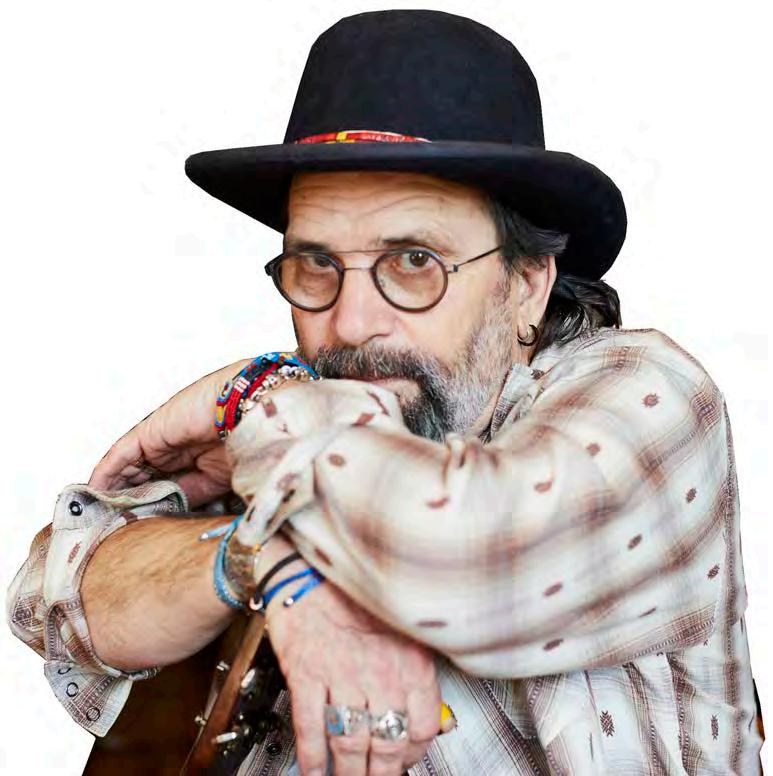
FEATURE
Steve Earle by Danny Clinch.
Steve Earle is here without his band The Dukes but he will be appearing at Bluesfest on the bill with Lucinda Williams.
Nikki Hill inspires good quote. Rolling Stone says, “Think Tina Turner fronting AC/DC” and I love this one – “If Tina Turner and Little Richard had a daughter and raised her with the help of James Brown and Chuck Berry, she’d be like Nikki Hill.” Hill, who’s returning to Australia for her fourth tour which includes performances at Bluesfest and side shows, gets all of this.
When I Zoom with her, I can see a whole load of records including albums by Bobbie Gentry and the Rolling Stones (Some Girls in case you were wondering) in the background and an Elvis Presley image hanging over her shoulder.
“I love how Bobbie Gentry just burst into the scene, did what she had to do and then disappeared and left us with this amazing body of work,” Hill says.
“And now she’s a mystery – and a huge favourite of mine. I often wonder what she’s doing, and I think she’s just hanging at home. I sort of want there to be some folklore to it. People say they see her. She’s out there somewhere.”

Hill’s other passion – and it exudes on her albums and live show – is ‘60s soul music. She positively explodes with passion when the subject is raised.
“It’s just the energy and the vibe around it that is such a huge influence. I’ve loved watching that shift from blues into rock’n’roll and soul into classic garage rock. That all works together for me as roots music. That’s how I’ve always been as a listener, and it totally feeds into what I do creatively. I don’t focus on one style; I just immerse myself in it all.”
And when it comes to the garage rock side of things, Hill laughs loud when asked what she listens to.
“It’s hard not to listen to the Sonics before you go onstage,” she says. I mean, growing up I used to watch videos of James Brown and Otis Redding and be totally inspired by them and their stage shows. The garage artists were all inspired by them sand their stage shows. And I love that too. I love the fact that what they did was so raw and open.
“It can be vulnerable musically and lyrically – and it’s just all there in its awareness of itself so I try and take that all in as I listen, write and think about live performance.”
Hill comes to Australia brimming with excitement about performing live. Like every artist she struggled with the COVID lock down.
“I just went crazy,” she laughs. “It’s hard to explain what it means to not be able to play. But in the meantime, I tried to keep sane and do other things. I picked up the bass guitar and that at least allowed me to do something new musically.
“But like so many artists, playing live is the most important thing for me. Of course, there was live streaming – but I hope I never have to do a live stream ever again. As enjoyable as it sort of was at the time. To be in that moment.
“Now that we’re back on the road I’ve noticed a lot of people coming up after shows and commenting on the live stream shows so I guess it’s great to hear that people connected that way.”
Still, the COVID-enforced break did have its (reluctant) up-side, forcing hard working artists to take a break from the road and rest up.
“It was definitely so hard Stuart,’ Hill says. “One day I felt like I needed that break and the next day I just so wanted to be back out there touring. It was backwards and forwards. I was just spinning out.
“But it did help me understand burnout and I hope everyone learnt about rest and taking care of themselves and their bodies.” But now Hill is back. And that couldn’t have happened fast enough. “Musically I was just so ready. It was just a snap of the fingers and the first guitar riff just filled in. The thing was more the social awkwardness with fans. Most artists are introverts, so it was trying to work out what to do – do I hug people, what do I do? More than anything it was trying to work out how to physically interact with people.”
She may hug you after a show, she may not – but Nikki Hill is back on the road. She hasn’t had the opportunity to play her most recent album, Feline Roots, in this country and she has a lot of new songs.
Get ready. Nikki Hill is coming back. Nikki Hill appears at Bluesfest on April 6,7, 8 & 10. The album Feline Roots is available now.
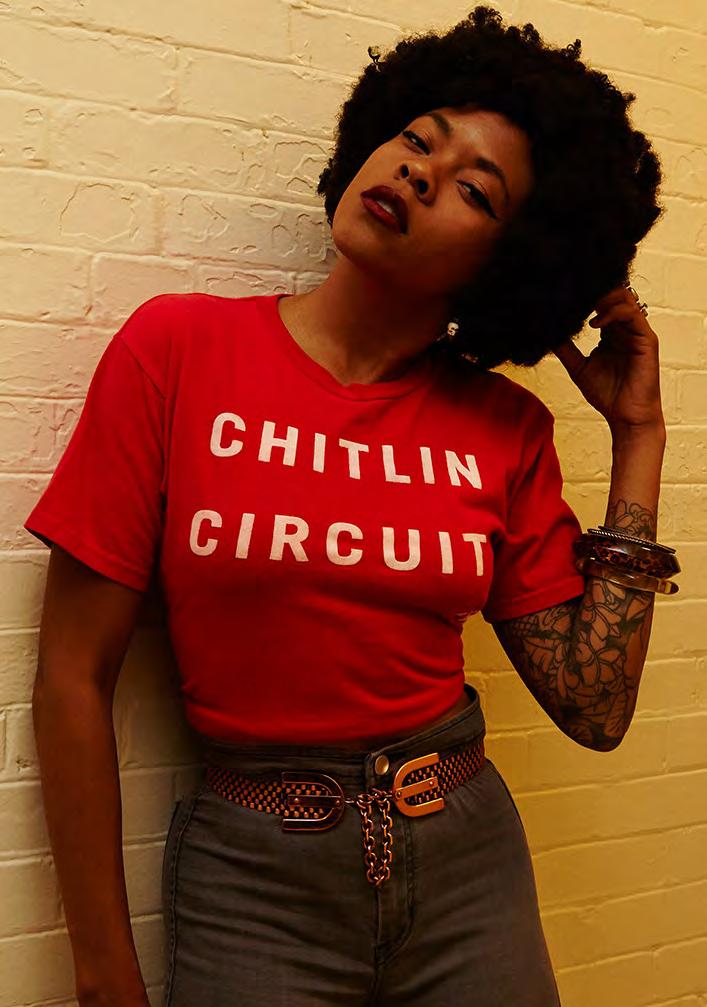
FEATURE
FEATURE
TRAVELLING BAND
By Chris Lambie
Canadian-American Steve Poltz has a way with words, sings up a storm and plays a mean guitar. Also known for hilarious on-stage banter, is he a frustrated standup comic? “No, I would hate to be,” he says. “But I’ve had managers who’ve suggested it. One guy booked me for seven straight nights at the Melbourne International Comedy Festival. But I’m like an accidental funny guy. I can stumble into it. Luckily, I can play music and hide behind the song if I don’t have anything to say. As a musician it’s less pressure.”
His Americana/folk material delivers edgy humour and wistful balladry – from mischievous to poignant. His latest album Stardust & Satellites offers a meandering view of the human condition. “Sometimes it works,” he laughs. “I never use a setlist. I’m not disciplined enough to put one together to do every night. I like it to be exploratory…[Pause]…surgery. Maybe the patient dies… maybe they don’t…maybe they live?”
Poltz’s funny-bone takes over the thought. “They get like bionic eyes and stuff and see things better… When it really works, it works. Come to see me play and you have a 50-50 chance. Maybe I’ll be good, maybe I’ll suck. It’s like playing a lottery.” But everyone’s a winner at a Steve Poltz event. Singing along is encouraged.
A founding member of indie-rock band The Rugburns, Poltz later collaborated with singer Jewel, co-writing 1996 hit ‘You Were Meant for Me’. He now averages 300+ solo gigs a year. The pandemic took him off the road, leaving him confused at first. The freewheeling ‘Quarantine Blues’ lists common lockdown activities - baking bread, watching movies, ‘wearing questionable attire’…

“I didn’t know what to do. I was washing my fruit; I was afraid to even look at any… It sure was weird. Some people realised they liked that life, doing other things, and still aren’t really touring. But I’m not one of those people.”
At home with his wife, he played a lot of guitar and wrote some songs. Then came the live streams. “This guy called me and said, ‘Hey dude, I know you’re in Nashville but if you can drive out here, I can put 16 shows together in 5 days. We can legally play to 20 people. We’ll go their houses and play in their driveway.’ So, I drove to California, then up to San Francisco and did those shows. It was so fun. I came back later and did 20 more. It kept me fresh. Some of the gigs were kinda
weird…with just three people and their little kids. Like some weird sci-fi novel. But I’m meant to play live. It’s hard playing to a phone screen.”
Poltz music has wide appeal. “That’s why I like festivals. People go where the energy drives them. They happen to see a crowd around and think, ‘I’ll check this out for a couple minutes’. But if it vibrates with them, they don’t leave and come see you again later. That’s cool.”
‘Can O’ Pop’, from the latest album, was created with longtime pals The Wood Brothers. An animated video accompanies the bubbly track. “I’m always on the lookout for artists to work with. I don’t wanna be in the video. I’d rather it be a cartoon. It’s more fun for me. I like doing interviews on the air, radio and stuff, but I hate doing TV. If I have to do morning TV, I ‘turn it down’ but I could do radio ‘til the cows come home.” Contrasting the funny, Poltz can hit the listener right in the heart. ‘Conveyor Belt’ refers to his parents’ deaths and the inevitability of joining the line to mortality. “You never see their life complete until they pass away. No matter if there were hard feelings or anything, suddenly their whole life comes into focus and you end up loving them more.” He exudes joy citing the outlook of photographer friend Henry Diltz. (Responsible for iconic record covers - The Doors, CS&N, James Taylor). “When somebody dies, Henry goes, ‘Good for him! Good for him! He’s floatin’ around in this beautiful room, he’s got wings…’ He makes it so celebratory.” He laughs, “It’s so weird. It’s so good!”
A teenage Poltz listened to albums by Boston, Steve Miller, The Monkees and The Beatles. (“The Rolling Stones scared me when I was kid. They were too dirty. But The Beatles were just so cute.”) Then came appreciation of theatre (Cabaret, Oliver) and singing in choirs. His heroes ranged from John Denver, Joni, Randy, Dylan and Prine to punk rock. Neil Young is his “kinda spirit guide”. Also, a big fan of Paul Kelly, they met in Melbourne on Poltz’ first of 21 tours here. “I feel like I got a long ways to go. Like I get a little better every year, but that’s why I don’t wanna die. I wanna see what happens next. I’m still searching for that perfect show. It’s very elusive. Like searching for Bigfoot.”
Steve Poltz will be appearing at the Port Fairy Folk Festival, the National Folk Festival and Bluesfest.

I’m like an accidental funny guy……. Luckily, I can play music and hide behind the song.
Photo by Michael Weintrob
Accustomed to doing 300 plus gigs a year, Steve Poltz returns to tickle our funny bones again.

Anyone who has turned 30 might know some of the horrors of the approximate quarter-life crisis – contemplating a career change, spousal change, wondering where all your friends got the money and energy to buy houses and have kids. Then there’s that one annoying friend who seems to not only have their shit together but be thriving. The Waifs are that friend.
It’s been 30 years since the iconic folk trio – sisters Vikki Thorn and Donna Simpson, and friend Josh Cunningham – took off in a van to busk and gig around Albany, Western Australia. Since then, they’ve had three albums reach top five on the Australian Albums Chart, supported Bob Dylan on his 2003 Australian and North American tours (including performing ‘Knockin’ On Heaven’s Door’ with him live on stage), and been inducted into the Australian Songwriters Hall of Fame.
And this year, far from entering crisis mode or attempting to reinvent themselves, they’re more zen than ever and returning to their roots.
“Whether it’s just the fact that we’ve been around a long time, or we’re just a bit older, I think we’re comfortable enough now to that audiences want to hear our acoustic material again,” says Thorn, who has recently returned to her roots herself, speaking to me from her home in Albany, WA, after almost a decade living in Utah.
They’re also arguing less. “In the middle part of our career, we started bringing the personal stuff on stage, arguing a lot, and almost using it as part of the schtick, thinking it was a funny thing. But after a while, I think we both got a bit bored of it. You cross boundaries, you know –maybe you’d had a big argument right before you walk on stage and then it comes out in a couple of quips live to audience. I don’t think we do that as much anymore.”
The band is now preparing for a 2023 tour in celebration of the 20th anniversary of their pivotal album Up All Night, which enshrined classics like ‘London Still’ and ‘Lighthouse’ in the Australian consciousness. It’s one of those CD covers you instantly recognise from your early 2000’s CD rack – the crackling grey sky, flat sea, redcapped lighthouse, beset beneath a sepia tone – a fixture in many Aussie households. Even those who proclaim not to know The Waifs will invariably find themselves singing along to the chorus of ‘London Still’ – a track which manages to make you feel homesick wherever you are, even at home. Simpson reportedly wrote it just four days after arriving in London.
“I don’t think there’s a gig that we’ve not ever played ‘London Still’ –which is interesting, because our last two we just did through Victoria with Crowded House, Donna got sick and she wasn’t on stage. That was our chance to not play it, because it’s Donna’s song. However, we went ahead and did it anyway. I had to sing ‘London Still’ and ‘Highway One’ and all Donna’s hits. I tried my best to sound as much like my sister as I could. I didn’t want to mess with her gold. I also just threw it out to the audience and said, this is your moment, you sing it up to me. Apparently, I dropped a whole verse without even knowing it. But we still enjoyed it. As a band, [your most popular songs] become really just a part of you. You know that when you step on stage, there’s five or six songs that are going to anchor that performance and tie you to the audience.
“Also [on that tour], I realised what a huge part of [our performance] requires us both to be onstage. It’s less about [Donna] singing and performing, and more about the energy, the balance of the chemistry of the band… We can get through it in terms of performance and the songs with just two of us, but it’s not going to feel as balanced or as perfectly tensioned.”
They will be bringing this ‘perfect tension’ to the National Folk Festival own 30th anniversary event in April, with a stripped back acoustic set.
The annual celebration of music and storytelling, held over the Easter long weekend in Canberra, is known for launching young folk acts –including The Waifs themselves.
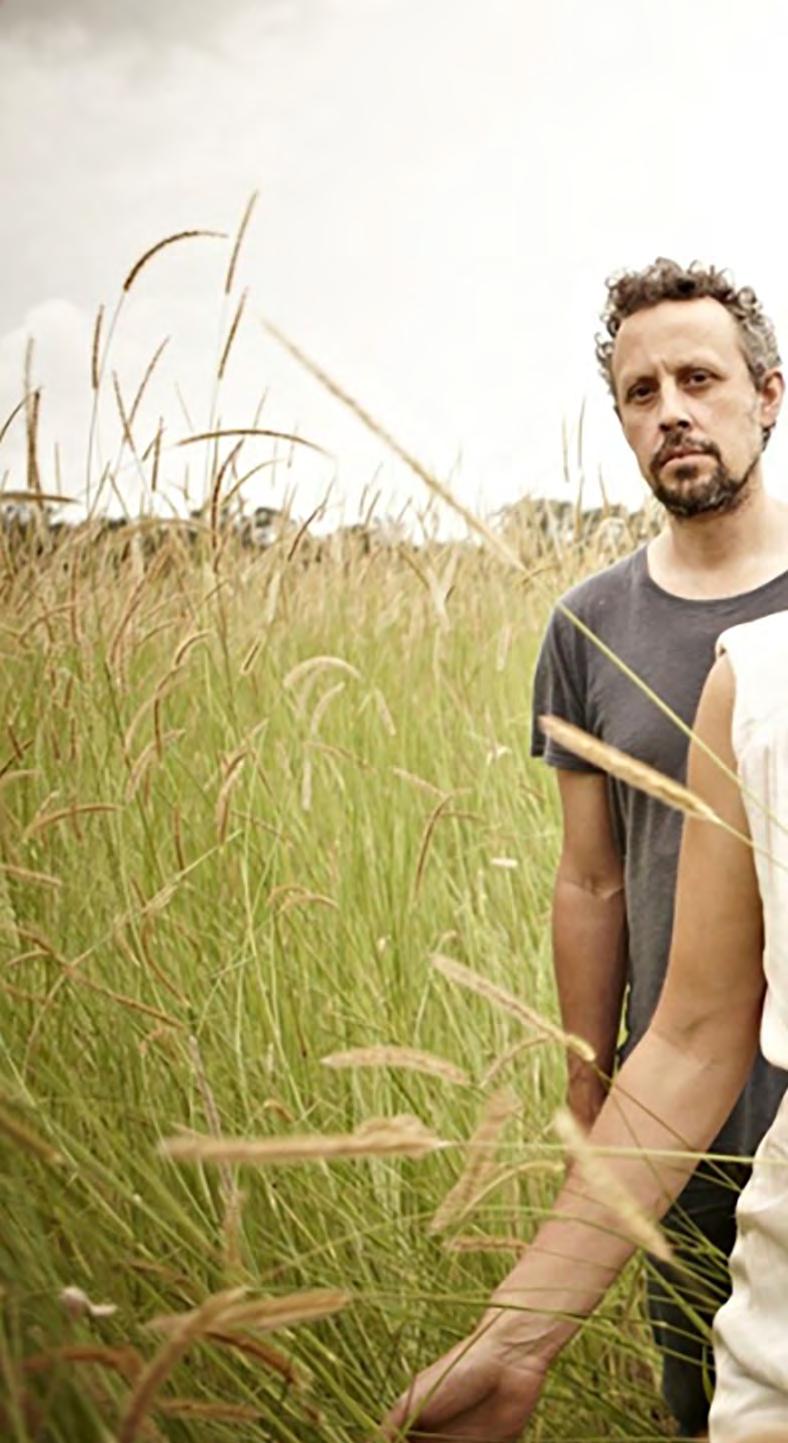
“It was very early days for us. As a young folk band, Port Fairy and the National Folk Festival were the two big festivals you wanted to get into. So, it was a pretty big deal for us to get on that bill. We were put in the small tent, playing to an audience that had never heard of us. They had us back a few times and over the years, we built up a reputation, moved to the bigger tents.”
Some of this year’s lesser-known acts include The Lost Clog – who describe themselves as ‘ten of Melbourne’s least renowned singers sing ancient Lithuanian songs of love, war, harvest, drink’ – and another promising young sister act, folk duo Charm of Finches. And Thorn is looking forward to making some fresh discoveries.
“That’s one of my favourite things about these festivals – just wandering, letting my ear hook into something I’ve never heard of, discovering artists. I remember [at the National Folk Festival], I was wandering around and I heard this girl singing and we went into one of the tents and there was this trio, two guys and a girl. They were called Blue Jay and they were from Adelaide. I was absolutely dumbstruck with this girl singing – Abby Cardwell. I went out of my way to befriend them. Abby’s been playing music for years now and has actually been a huge influence on me as a singer.
The Waifs embrace their 3o years as a group with a stripped back return to the National Folk Festival.
By Bridget McArthur
“I’m just so impressed with people that follow the Waifs, the energy that they have with the band, and I love what they put out to the band.”
– Vikki Thorn
“My other memory [from the National Folk Festival] is the late-night jams. They would go so late. People sat in these big circles when it was raining and cold outside, playing Irish jigs. There was always the older crew sitting in the chairs in a circle, and then the ones that were learning stood behind them, and then behind then there’d be kids who were just picking up instruments and trying to play along by ear I loved hanging back and listening to that, and that was really my first introduction to this thing of people gathering together to play beautiful music for hours and hours.”
Thorn is now also juggling appearances at gigs and festivals under her solo stage name, Thornbird. Her debut album was released to critical acclaim earlier this year, including a nomination for Best Blues & Roots Album at the ARIAs.
“The very first thing that occurred to me about going solo was that it’s a lot of hard work. That I was the front person for the whole hour and a half. And that that goes back to this idea of, you know, who’s taking space, who’s sharing the energy, and that energy not being shared.
You know, in the Waifs it’s Donna and Josh – three front people, I’m singing a third of songs. To have a whole show on my own was tiring –physically and mentally – to the point where I thought, I don’t actually know if I actually enjoyed this. Since then, I’ve learned to glean what I love about playing with the Waifs and bring that into my show. And one of those things is actually making sure everyone in my band sings as well, so we create bigger harmonies, because I’m more comfortable with a fuller vocal sound. So, it was a little tweaking and a few really important adjustments. But ultimately, it’s a chance to air songs that I write that maybe don’t fit the Waifs format and get away from what’s expected of The Waifs in terms of the popular songs, which is quite liberating.”
But she’ll always have a special place in her heart for The Waifs, and those songs that have allowed her to connect so intimately with their audience, many of whom have followed the band since the days of side stages and early billings.
“I’m just so impressed with people that follow the Waifs, the energy that they have with the band, and I love what they put out to the band. And that impresses me; so, as long as that’s there I’ll show up. We’re all heading into our 50s in the next year or two and I’m just grateful to still be touring. Sometimes that old devil ageism plays in and you think, oh maybe I should sit down maybe I’m too old for this. But the fact is that we love it. And I think we’ve got good songs and a good energy performing, and I think that still comes across. And people do respond to that.”
She also thinks they have at least one more album in them, despite living far apart and juggling three very separate lives and solo careers. “When we get together and talk, it’s clear that the album we haven’t made is the one where all three of us get together in the same room and write it together. I reckon that that’s going to be the definitive Waifs album. So, it’s on the horizon. Maybe for our 40th anniversary,” she pauses. “Oh no, that’s too far away.”
So die-hard fans, set your timers. A new Waifs album is coming your way sometime in the near-ish future – but definitely before 2032. Can’t wait that long? You can see The Waifs live at the National Folk Festival in Canberra on the 7th and 8th of April, or catch them wandering the grounds discovering new music, or at the back of an Irish jam circle. Tickets are available now at folkfestival.org.au/ tickets-2023.
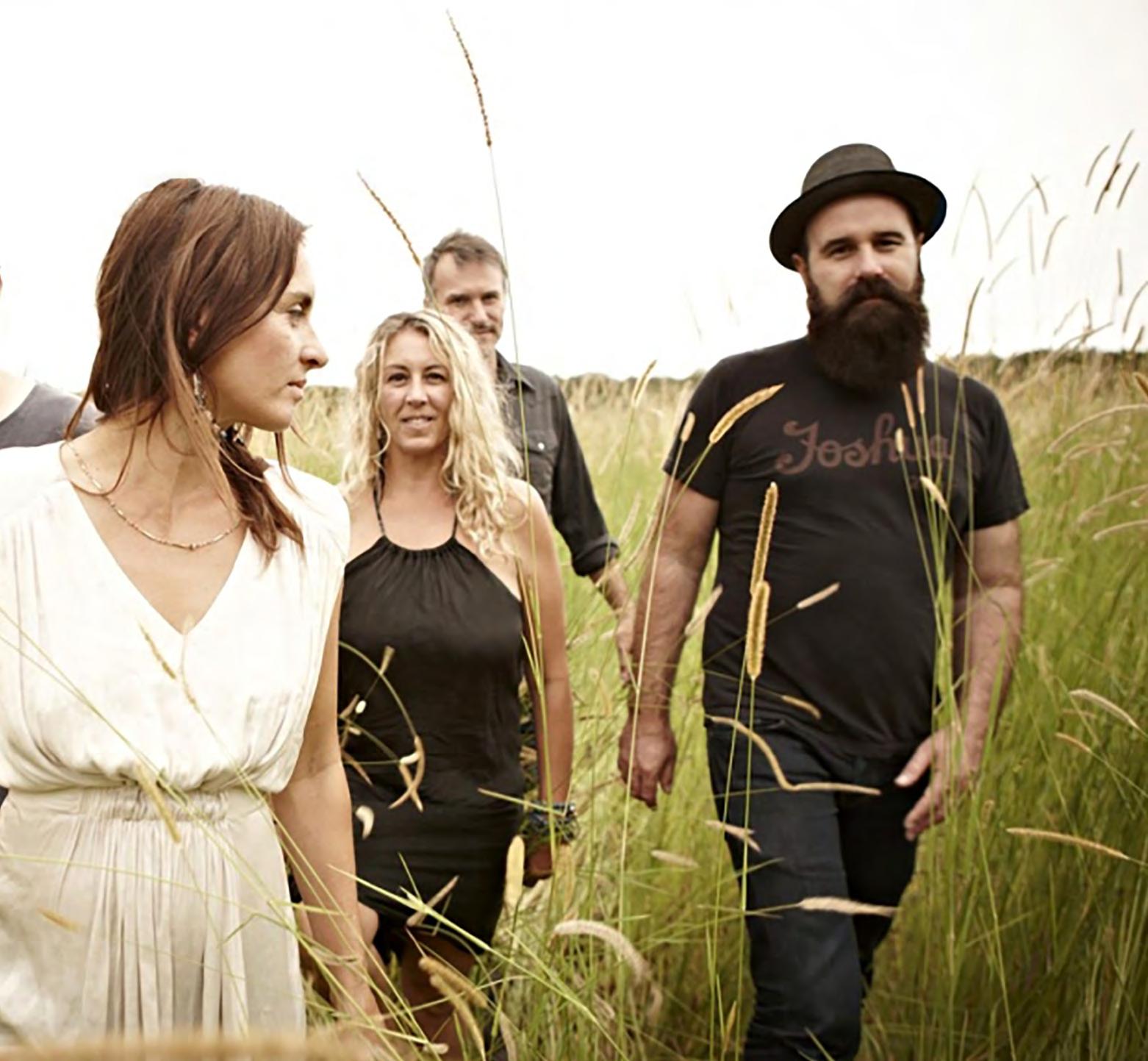
MAJOR NOISE
MAJOR NOISE
There’s no mistaking it, Tracy McNeil and Dan Parsons look chilled and happy, with what in the old days might have been called a bit of colour in their cheeks. Not bad for a couple of musicians trying to live – let alone make a living – in Australia in 2023.
“We’ve been doing a bit of work, haven’t we” says Parsons, and he doesn’t mean the beers they have just raised in my direction. Though those bottles are full.
“We’re starting over really, eh,” says McNeil, who if you didn’t already know, is Canadian. And excited. “We’re starting from scratch, so it’s like we’ve got everything to build.”
The couple, who once were mere bandmates – but that was two albums and some “closeness” ago – are speaking to me from what undoubtedly is a house, a fixed to the ground abode. This is unexpected.
It’s not that I was expecting them to be camped out in a bus stop on the Newell Highway, but the last time I spoke with McNeil, in early 2020, their plan was to pack everything into a van and hit the road out of Melbourne for the foreseeable future, happily turning themselves into road dogs.
“Well, we are in an absolutely empty apartment,” McNeil says, in partial defence.
“We don’t have a couch, we are sitting on the floor, because we have sold all our furniture. We’re going back to life on the road.”
Yes, 2020 “destroyed our life on the road”, two years of the plague forcing them to sell the van and park their dreams, ending up instead at Parsons’ family property somewhere north of and warmer than Melbourne. The trade off?
All of a sudden they were writing a bunch of songs together for the first time. Then there came the album, self-recorded and produced, awaiting release with at least one more single preceding it. And now there’s a new van and a booking at the Port Fairy Folk Festival in March.
“That’s our plan eh, to do lots of touring,” says McNeil. “Lots of touring.”
But let’s go back a bit. They had a band: Tracy McNeil and The Good Life, whose most recent album was 2020’s You Be The Lightning. And a damn fine piece of West Coast rock it was too, Parsons’ guitar providing the counter and flourish to McNeil’s songs, and his move from solo artist and loyal sideman to her life partner also proving extremely satisfying for all parties.
That seemed to be going well, the rest of the band even liked them still (and the Good Life will return). Why start anew as Minor Gold? McNeil turns to Parsons and points him at the question.
“I think, without getting into the nitty-gritty of how one feels about one’s career after doing it for X amount of time, Tracy and I really hadn’t
Minor Gold are the new Americana-Folk award winning solo artists, with accolades

diversified in music really, ever,” he says. “Just speaking from my end, as a writing project I’ve kind of just done my own projects since 2006. Maybe it was wanting to have the control that comes with being a solo artist or not wanting to have to rely on other band members, I mostly kept it strictly just me. But this felt like the most natural and most creatively compatible scenario.”
His collaborator and partner doesn’t disagree. “Everything is born of the creative space you’re in,” says McNeil, who had mostly written for her band project, and hardly ever with another writer. Not even, or maybe especially not, Parsons. “Any little, tiny glimpse, where we would just muck around
after rehearsal or wherever we were on the road, the writing would happen so quickly but we would never give it any fuel: it would just be an idea you let go.”
Living together, being with each other 24 hours a day even if it wasn’t in the van, helped that compatibility and offered that fuel. None of the songs, their leanings decidedly in the land of ‘70s pop, sounded like The Good Life songs, nor Dan Parsons songs: this was something new as the first single, Mona Lisa, revealed.
There was, she says, “a slipstream, and you know what fits in that stream”; these had, he says, a lyrical content that aligned.
Americana-Folk duo featuring Tracy McNeil & Dan Parsons: accolades spanning across the country, pop and folk.
“The material we were writing was getting us excited,” says Parsons. “And we decided we were going to try and push it up the hill and see if it rolled.”
Reader: it rolled.
If there is a thematic centre to Minor Gold it is escape – from previous romances, from previous homes, from Covid and lockdown and bank managers and anything keeping them from the road – something which would come as no surprise to anyone now. But escape wasn’t into a void, it was into cleaner, fresher … brighter climes.
“Often the feeling [when he’s written with others] is I’ve had to compromise too much to get to the finish line and the result is actually
worse off,” says Parsons. “But that’s almost exactly the opposite we feel in this project. At the end of it we feel buoyed very much by the power and the succinctness and simplicity of the songs. It’s easier, freer, and maybe, hopefully, a little more accessible than some things we have written in the past.”
Beyond the thematic, the musical concept, as described by McNeil, is “two voices, two guitars: a duo, not sounding like a rock band but truly letting the songs shine through.” That doesn’t mean barebones, for Parsons as producer has worked on layers and shadings, infiltrating the occasional extra instrument (he plays more than a handful of instruments after all), while enjoying a new set of limitations.
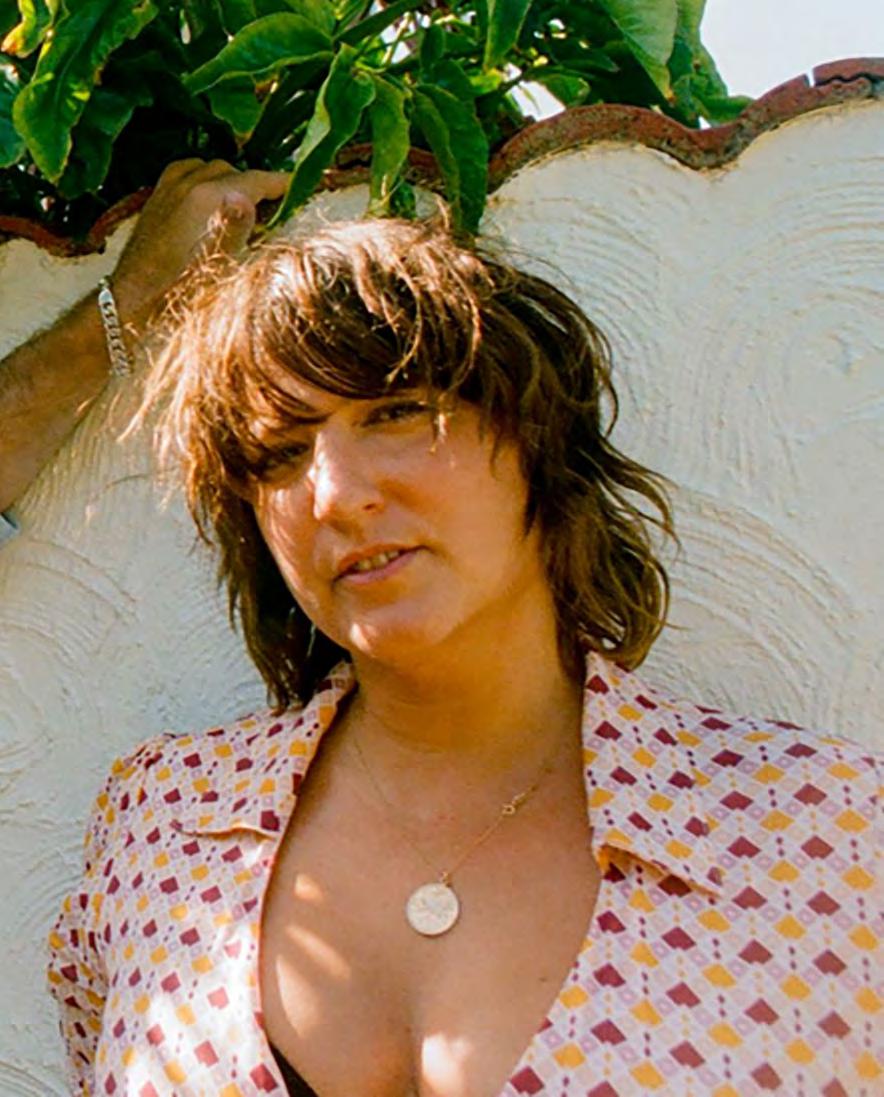 By Bernard Zuel
By Bernard Zuel
As McNeil puts it, “strip everything away and it’s just us and the songs”, but don’t be fooled by the two voices/two guitars bit into thinking Minor Gold are some acoustic folk duo or a friendly country act of the old school.
Folk’s in there, rock’s in there, but there’s no hiding from their pop love – they are both fans of Taylor Swift – and the promise of what Parsons calls “acoustic versions of ‘80s romance pop”, with McNeil eulogising like a born-again Christian banging away on a street corner “you can have structure, you can have great choruses, you can have hooks and [be] succinct”.
Ok, ok, we get it, pop music-withoutblushing.
“That’s where we come from, hey,” says Parsons, sounding half Australian half Canadian all of a sudden. “That’s really what we feel is our strength, more than our voices and guitars, the ability to write decent pop songs.”
Indeed, while we may go in thinking Gillian Welch and Dave Rawlings or Milk Carton Kids, Minor Gold see a connection instead with Californian duo Mapache, described by Parsons as “a lefty and a righty so beautiful mirror image on stage; phenomenal acoustic guitarists and singers; they’ve even been described as a blazed up Everly Brothers.”
“We’ve taken a lot of influence, not so much musically but mostly from their vibe, and their sense of fraternity,” he says. “That’s also what has been such a great thing for us, this sense of togetherness. I’m an only child and I’m a solo artist, so I’m fairly like, alone, and this has been a great thing to be able to do this together.”
Jeez, alright, get a room. Or a van. Incidentally, there is story behind the name, Minor Gold. The low-key and warm, more talking to you than shouting at you, vaguely country rock-ish, small but cherished, suggestions are there in the name, and welcomed, for sure. But it’s actually a bit simpler.
Minor and Gold are the maiden names of their mothers, and when seen next to each other as they were filling out identification forms, everything just felt right. Sweet eh?
However, if you’re planning on hacking McNeil and Parsons, they’ve changed the passwords. They might be looking to escape the corporate, form-filling, everybody’s got responsibilities life, but Minor Gold aren’t stupid.
Minor Gold performed shows at the Folk Alliance International Conference in Kansas City before returning for their debut live performance at Port Fairy Folk Festival. They have released two singles so far from their forthcoming album due mid-2023.
Margo Price has recently released her fourth album, Strays, and published her memoir Maybe We’ll Make It, the story behind her hard road to the top of the Americana scene.

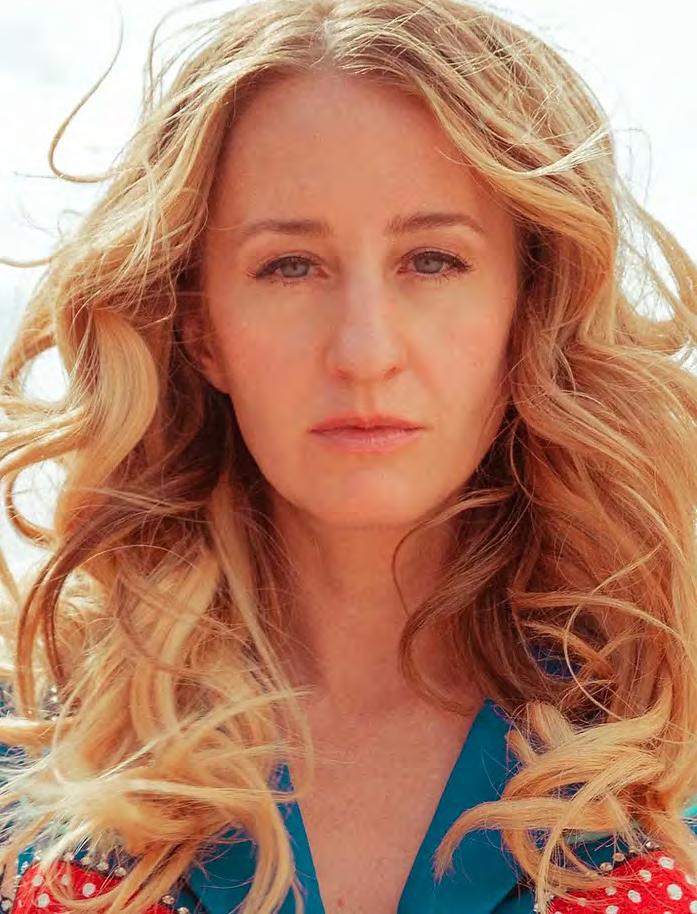 - By Bernard Zuel
- By Bernard Zuel
THE MID-WEST FARMER’S DAUGHTER
You can get it reading about her working in just about every minimum wage menial job available and living in unheated dumps where sometimes the rats were bigger than possums. You can get it hearing about campus life as a new college student, switching from communications to theatre and dance, with Spanish, but never to health. “Many of the girls, including me, lived on a steady regimen of diet pills and cigarettes, while others binged and purged, using vomiting and laxatives.” You can get it reading about a multigenerational farming family being forced off the land in the 1970s financial crisis and one branch ending up in very small-town Illinois, never really reconciling with the loss or letting go of the meaning. And that includes when she later moved to Nashville carrying a desk and small lounges on the back of a truck. “Everything I had was worn, but I valued the sentimental.”
And you get it hearing about how her first mushroom trip convinced her that music was the route out, including from the kind of day/night/everyday drinking that landed her in jail and then hospital, about to have her stomach pumped before she was legally entitled to vote, let alone drink.
Matter of fact, I’ve got it right now. Having yet another visceral reaction to something in her memoir, Maybe We’ll Make It, reinforces the notion that experiencing her through some physical means – a record, a CD, a book, a show – is the best way to really grasp Margo Price, singer, songwriter, country music rebel and traditionalist, mother and wife, and full-bodied consumer of life. The one thing that can’t be shaken though, reading about her life so far – with the book ending at what was the turn of her career in 2016, a decade into it, with the release of Midwest Farmer’s Daughter – is the question of how the hell did she survive living this life?
Price laughs, not really sheepishly, “I guess a little bit of luck and stubbornness.”
“I left out a lot of the rollercoaster ride as it started, when more fun and bigger things were happening,” she says, while keen to remind us that the rollercoaster has had a lot of highs. “I think eventually there will be a collection of stories from hanging out with heroes and just crossing paths with people that I really admire and have been inspired by.”
Wouldn’t we all, with our famous friends! She laughs at this, this time a little sheepishly. “Not name drops.”
Fair enough if she did though: we probably need a whole separate book for just the name drops she could rustle up from the past decade that has seen her produce Tanya Tucker, befriend and work with Willie Nelson, Mavis Staples, Mike Campbell of Tom Petty’s Heartbreakers, Jack White, Lucinda Williams …. anyway, you get the picture.
The thing about the people she’s been able to work with, on stage or in the studio, is that it tells you something about respect: not just hers for them, but the respect her peers and predecessors
have for her work, her work ethic, herself. It’s something that was missing in that first decade or so in the industry, something which looks not just ignorant but almost criminal in retrospect (and in truth, at the time too).
You may want to smack some people along the way who couldn’t hear it or see it, stuck in their ways. Hell, she wanted to smack some of them along the way. Does she feel it still, now that she has that attention and respect, or does she just not care either way?
“Just being able to follow my passion, live my dreams and not wait tables, that’s all I was over looking for,” she says. “I always joke with friends and peers, ‘see you on the long climb back to the middle’. Music has been oversaturated in a lot of ways and it devalues what we do, but I know it’s still one of the most sacred things that we have on this godforsaken planet and I know that it’s still important work, but you do have to work hard to keep going. “That was part of writing the book: I’m hungry to do all the things that I want to do. Life is moving by me so fast.”
And sometimes, even as it moves fast, it doesn’t make things that different. Price is well aware that when you’ve been at rock bottom and then success, some financial security, a functioning relationship, arrive, it doesn’t mean your problems have gone away, or can be fixed. More than that, she doesn’t pretend that it does: the book detailing her recurring bouts of insecurity, deep fractures that occurred in her relationship with husband and collaborator, Jeremy Ivey, the toll of drinking, the loss only ten days into his life of one of her children.
As good as she is feeling now, three albums later, is this book a reminder that you are always just a bad stretch of luck from the shitter?
“I actually feel like I sorted so many things out in my head, and just processed a lot of things as I was writing it, as I was editing it, and then when I went in and recorded the audio book. Even when I listened to the audiobook – I just finished it yesterday: I had a full week’s but I was nervous to listen to it honestly – it’s been such a good way for me to show myself a little mercy and look at it, in a way, from an outsider’s perspective,” Price says.
“Like I was saying, success doesn’t fix all of your problems, in a lot of ways it can amplify them: money and fame don’t always bring out the best in people [she chuckles]. You still have to wake up with yourself every day.”
And she is ok with that, with herself.
“There was a lot of stuff I wasn’t sure that I was going to put in the book that ended up going in there that wasn’t, maybe, so becoming of myself. Then I started thinking back to my first album, Midwest Farmer’s Daughter, and why it resonated with people, and I think it was because it was vulnerable. If I can portray to everyone that I’m actually not the badass strong person everyone thinks I am all the time, but I can still dig down deep and find the strength to keep going, then maybe they will be able to do that.” >>>
in parts of this book she’s selflacerating, and even that is softening just how frank and hard Price is on herself. She doesn’t spare some of the jerks and exploiters, the ignorant at labels and the self-serving at radio, but just as with that first album, no one gets it as hard in Margo Price’s book as Margo Price herself. When Midwest Farmer’s Daughter came out, the question was how much of this was her, because many people doubted first of all that you could do that much and be upright, and secondly that you would willingly bare that to the world. Now with the book and an accompanying new album – Strays, out in January – that emerges from the same creative well, we realise pretty much all of it was her None of that is easy to do in private, let alone in public.
“For a long time I wasn’t talking about it in my art, and I would sit around and talk about my struggles in my problems with my friends or family. Being able to be that brutal with myself, was really freeing, and it was the same with the book,” says Price. “I’m sure that there are people, I know that there are people out there, who gossiped about me and who have said things, and I have some skeletons in my past. Just being able to write them and write my own story, take control of my own destiny, and take fault for my own mistakes, it feels really empowering, really freeing.” Where does the strength come from to deal with our judgement? Or is that a lot easier than dealing with her own judgement?
“For a long time I was really a people pleaser, and that’s because of the way I was raised,” she says. “There are a lot of things I even kept out of the book about my childhood that were just too personal. I’ve kind of grown this protective shell in a lot of ways and as you see how easily I was hurt at times through my 20s and through my 30's, the older I get the less I care and the less mental real estate I want to spend on it.”
Not that she is exactly hiding from the world and its opinions, especially her social conscience, engagement on sexism and racism, and activism on behalf of the working poor.
“I just had people yelling at me on the Internet so much and it’s because I like to poke the bear,” Price grins. “I like to make trouble and sometimes I get a bit, and sometimes there are repercussions. But for the most part I am a little desensitised by it because, aw shit, we’re all going to die and not everyone is going to like me.
“Great art always provokes conversation and really strong feelings and so if I am polarising to some people, or if I am controversial, then so be it.”
UPPERS, DOWNERS & OUT OF TOWNERS
Upfront, it should be said that this is not a place for anyone who has issues with drinking or drugs, or at least discussing them. Margot Price doesn’t. In fact, she says that the revelation and understanding from an extended mushroom trip was what convinced her to give up drinking.
So, take that wowsers.
But even I must draw the line somewhere and that line is something she drank called Picklebacks, a bourbon or whiskey with a pickle juice chaser. Live how you want etc, but that sounds disgusting.
“You’d be surprised, they are actually so good,” Price says sporting a giant grin. “That pickle juice would actually kill the taste of whiskey and we usually had the cheapest of bourbon, the cheapest whatever kind of brown party liquor we could get.”
There are many benefits to not being poor but it may be that not having to disguise the taste of your brown party liquor is an underrated one.
Price doesn’t need to order from the rail drink shelf anymore, but then she isn’t drinking at all, as mentioned above. This isn’t the first time she’d hit pause on drinking, but it was one that came with added freight as she describes in this extract towards the end of Maybe We’ll Make It, a memoir which canvases her life from relocated from-farm-to-town child to jobbing, sometimes starving, musician, and onto the release of her debut solo album, Midwest Farmer’s Daughter in 2016.
“One morning I woke up with my head in the shower and my feet by the toilet. The children were with their grandparents for the weekend, and I had used that as an excuse to binge. My knuckles were bleeding, my face was red, my body was bloated, and my mind was on edge. It scared me. All the rules I had set years before when I reentered the drinking world had gone out the window by the end of that first year of the pandemic. I was drinking away my crippling fears about the end of the world and how the children I’d brought into it would navigate it. Meanwhile, I couldn’t navigate it myself.” None of this is a cue for either lectures or some monastic life. Firstly, that is not how Price rolls; secondly, she’s not blind to the multifaceted part alcohol played in her life.
“A lot of people get so worried when somebody quits drinking, and about talking about it or drinking it around me, or whatever, but I still love to go to bars, I still go out quite often,” she explains. “There’s a part of me there really is angry at the way alcohol is kinda like Big Tobacco in the way that it hurts people and that we give it a pass in this world out of all the drugs that we could give a pass to. But at the same time, I’ve gotta thank alcohol for being my friend when no one else was there, and I’ve gotta thank its numbing capabilities when I was in such pain, because I don’t know that I could have gotten through without it.
“I guess it could have gotten on some antidepressants as well, and maybe that’s the route that people should go because selfmedicating is a dangerous art, but I should thank Picklebacks for being there for me.”
In her hour of need pickle juice and whiskey came through! More seriously, Price’s willingness to argue that while there is harm there can at times be some value in the use of alcohol, or more often drugs, is uncommon.
“I just want to reframe how people think about psychedelics and how helpful they can be for antidepressant, for finding your passion. They’ve given me so much and I think that the war on drugs has been unkind to these planned medicines they could absolutely change the world. And I want to reframe how people think about alcohol because I don’t associate as an alcoholic, I just do not drink it anymore.
“And I’m also not sober; I’m still smoking weed; I’m still eating mushrooms too sometimes. I feel better than I have ever felt in decades and it’s just crazy because the psilocybin mushrooms they’ve helped me so much with eating disorder and giving up alcohol, having the new thought that I could do it and not have to identify as this terrible person.”
It’s an interesting topic for anyone who has been reading media, both traditional and social, over the recent years where the favoured narrative is the “I’ve given up alcohol and my life is so much better in every way” proselytising and pontificating. Some of us – okay I – have borderline irrational issues with the moralising tone within them and the idea that there are only two ways to deal with alcohol: damagingly to excess or not at all, when you could just as reasonably argue that alcohol is the tool they use: when they were drinking, to feel better about themselves, and now that they are not drinking, to feel better about themselves.
Forget
>>>
self-deprecating,
“Everybody should be able to do whatever they want to do. Obviously, there are some drugs, like fentanyl, that are incredibly dangerous and I hate the way that it’s killing people, but I think that if we regulated drugs and taxed them like we do alcohol, which is also a drug, we let adults make their own decisions.”
And we still haven’t talked about the record. If her last album shocked some people who had put her in one lane and one lane only – that lane being modern country music with traditional leanings – when as the book reveals of her past, she’d been on a six-lane highway, this record will shift the ground further.
There are moments of classic rock and soul, faint intimations of electronica and stronger turns of southern blues. And country, yes, but the trend has been clear since 2020’s That’s How Rumors Get Started, that just like the physical move she made with husband, Jeremy Ivey and their two children, from town to a genuinely rural property, musically Price was bypassing the centre of Nashville.
“The record, I’m so excited by it. I just wanted to keep evolving, and that’s not to say that I’m not going to make some classic country records again: I have one, an unreleased psychedelic gospel record that we made that’s very, very country,” she says. “But I just had to keep moving forward on reinventing myself, keeping everything fresh from me and the band.”
This mention of the band isn’t some perfunctory politeness. “I’m always listed as a solo artist, but my project is a band because I really believe in loyalty and building things with people. I don’t want to keep starting over from the ground up,” says Price. “We try to keep growing as one organism and they have pushed me in ways too with ideas that they bring to the table. But I should say that this album was also influenced by psychedelics and just about every substance.”
For all those reasons then Strays is not a record that comes out of nowhere, with roots in all three of her solo records, and to a certain extent her pre-solo recordings and attitudes. That’s something which becomes very clear on reading the book: the connections are all there.
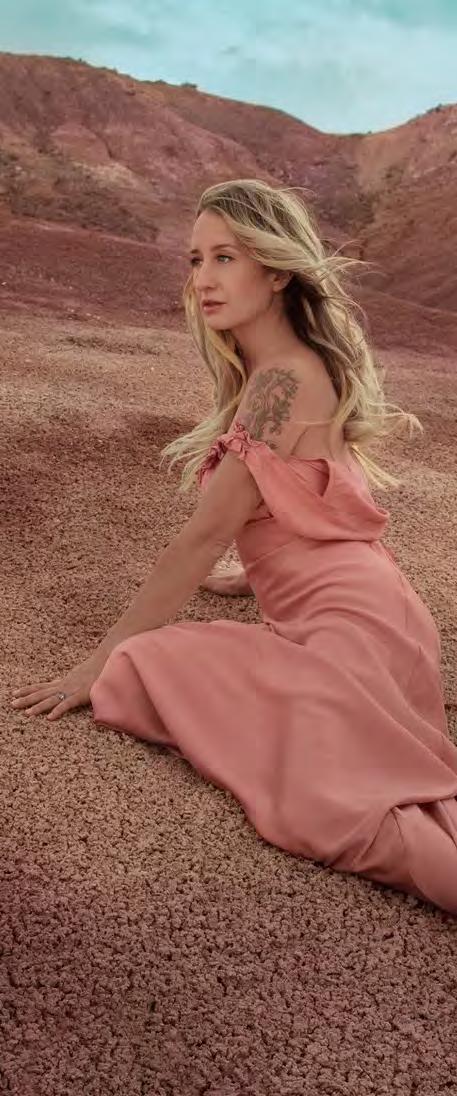
“Anybody that I respected, like Willie Nelson, he wasn’t just a country artist, he was into jazz and he was into all these other things. It’s astonishing to me that anyone would just want me to keep doing the same thing over and over,” says Price. “But I think I would like to reiterate for fans and to anybody about this album, that it is still all about the song. It doesn’t matter what kind of lipstick and rouge you put on it, it’s just going to be a song that has a good foundation.”
Lest we forget, this is someone whose manifesto is summed up in Maybe We’ll Make It like this.
“Looking back, there was a romanticism in knowing that we might be failures but that we were talented failures in a business that championed mediocrity. Even in the lonely shadows of the burning spotlight, beyond the endless roads to the sprawling cities and trash towns, between the empty gas tank and the underattended gigs, we were spreading the true gospel of meaningful music and the lost art of poetry and songs. We would not sell out.”
Given this, maybe the most astonishing thing is that anyone might still think that they could tell Margo Price what to do. “Yeah,” she laughs. “They may not have read the book yet.” They may not have met her yet.
Maybe We’ll Make It is published by The University of Texas Press.
Do You Really Need This Five-CD Box Set?
 By Michael Goldberg
By Michael Goldberg
The questions I am frequently asked when a new Bootleg Series set is released: “Is it worth all that money? Do I really need it?” I’m asked those questions because these multi-CD sets usually cost a lot of money. Here in the U.S., the five-CD version of Dylan’s latest, Fragments: The Bootleg Series Vol. 17, cost $113 on February 1, 2023 from a much-used online site (on February 2, 2023 it was
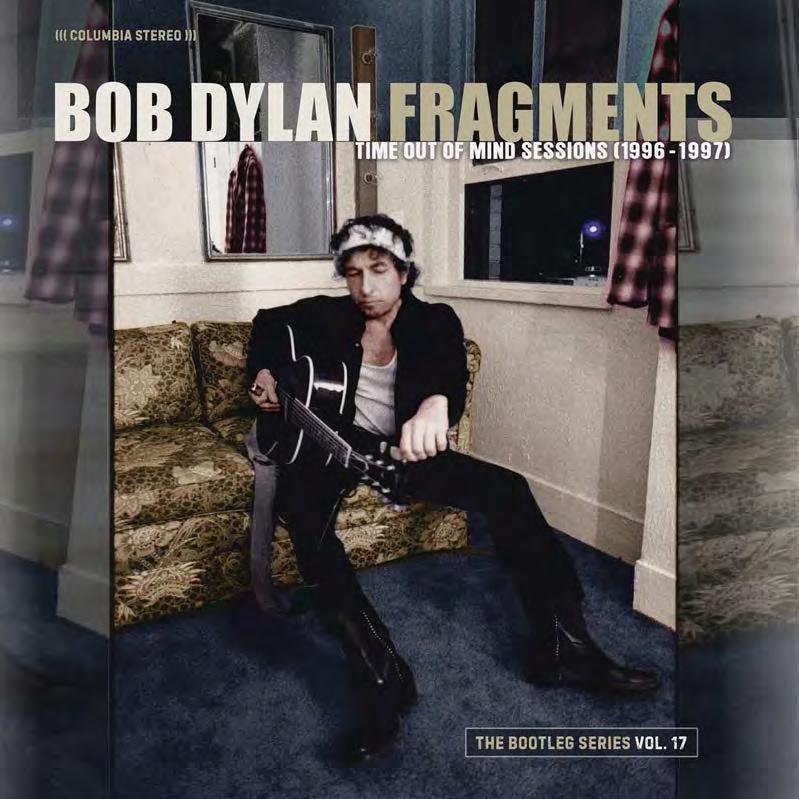
discounted to $74.92). Most people don’t spend $100-plus (or even $74.92) on a box set lightly. Particularly one that is mostly comprised of multiple versions of 11 songs, which is the case with Fragments –the set based on Dylan’s 1997 album, Time Out of Mind
Time Out Of Mind was an amazing and unexpected return for Dylan –who at the time hadn’t made a good album of original material since 1976’s Desire, 20 years earlier – and rock critics far and wide raved about the album. The public went for it too; it reached #10 on the Billboard 200, stayed on the charts for 29 weeks and quickly went platinum. It won three Grammy awards in 1998 including Album of the Year.
Dylan had prepared for making Time Out Of Mind by pretty much deciding he was done with songwriting, which is to say, until songs started coming to him, it appears that he hadn’t anticipated making an album of new songs. As Steven Hyden wrote in his liner notes for Fragments, “In the early ’90s, he [Dylan] talked openly about already having more than enough songs to sing. Did he really need to write more of them?”
He recorded two albums of old folk and blues songs in the years preceding Time Out Of Mind: 1992’s Good As I Been To You and 1993’s World Gone Wrong. (Bob Dylan’s Greatest Hits Volume 3 and a live album, MTV Unplugged, were released in 1994 and 1995.)
When it was released, I thought Time Out Of Mind was pretty good, but I didn’t flip over it. I listened to it a number of times, but didn’t become obsessed with it, as I had with Dylan albums in the ’60s and ’70s. All these years later, having listened to the original album a number of times in anticipation of Fragments, I realize Time Out Of Mind is much better than I thought it was in ’97. Still, it’s not Blonde
On Blonde
Fragments starts with a version of Time Out Of Mind that was remixed in 2022 by Michael Brauer, an acclaimed mix engineer who has worked with the Rolling Stones, Coldplay, Paul McCartney, the Pet Shop Boys, Willie Nelson and many others.

According to Douglas Brinkley, a journalist/author who writes about politics but who is also a big Dylan fan, who also wrote liner notes for Fragments, “Brauer’s remixes strip the Time Out of Mind tracks down to their bare, spectral essence, letting us experience Dylan’s crowbar voice and nuanced phrasings in all their raw, razor-edged authenticity.” Perhaps that’s true – although “crowbar voice” has nothing to do with Dylan’s voice as heard throughout Fragments –but in my listening, I prefer the tracks as released on the album in 1997. I could be wrong, but of the five disks that comprise this box set, the first disk – the remix – is not essential. Another contains all the Time Out of Mind sessions’ tracks previously released on Dylan’s Tell Tale Signs: The Bootleg Series Vol. 8, which most people who would spend over $100 on Fragments probably already have. So, what we really have here are three CDs, one of which contains what sound like audience recordings from various venues, and two which contain outtakes and alternative takes, and a book of photos, ads for Time Out of Mind, and the liner notes by Hyden and Brinkley. It’s beautifully packaged, but still.
One recording stands above all the others. The old folk song, ‘The Water Is Wide,’ was recorded during an early session at producer Daniel Lanois’ southern California studio, Teatro in Oxnard, on August 19,1996. It starts off the second CD, the first with Outtakes and Alternates. Dylan has been singing ‘The Water Is Wide’ since at least the Rolling Thunder Review in 1975-1976, where Dylan and Joan Baez would sing it as a duet. This recording is exquisite, featuring Dylan’s intimate vocal and acoustic guitar playing, subtle guitar from Lanois and low-keyed bass and drums from Tony Garnier and Tony Mangurian; it’s never previously been officially released, and for me it’s perfect.
‘The Water Is Wide’ is a love song, a lost-love song. Actually, it’s more than a lost-love song. It’s a song that states that love cannot last. It’s profoundly sad. Here’s the key verse as Dylan sings it:
“Oh, love is gentle, and love is kind Gay as a jewel when first it’s new But love grows old and waxes cold And fades away like the morning dew”
It’s a dark, hopeless song – heartbreaking – and it sets the mood for Time Out Of Mind, even though it wasn’t included on the album. Knowing this song was recorded early on – Brinkley writes that Dylan “resurrected it as a reference point to jumpstart his creative process…”
Certainly, there are versions of the Time Out Of Mind songs that are quite moving. A January 1997 take of ‘Love Sick’ is a death march. While the opening lyrics are mostly the same as on Time Out Of Mind, the way Dylan sings them, and the funeral dirge of the music makes it a different song. Version 1 of ‘Love Sick’ begins with some downbeat electric guitar and these lines:
“I’m walking through streets that are dead Walking with you in my head, My feet are so tired, My brain is too wired, And the air is hazy.”
Life is hopeless, there is no point to it, why are we even here? That’s what I hear in this early version. The arrangement for the alternate take of ‘Cold Irons Bound’ isn’t as captivating as the version on Time Out Of Mind, but there is a verse that really should not have been cut from the album version:
“Well, there’s so many stones in the pathway hurled It’s so easy to be corrupted in my corner of the world Well, the road is rocky and the hillside’s mud Right overhead nothing but clouds of blood”
‘Standing in the Doorway’ is one of my favorite songs on Time Out Of Mind; it has such a lovely melody and I’ve dug these lines:
“I eat when I’m hungry, drink when I’m dry And live my life on the square And even if the flesh falls off of my face I know someone will be there to care”
While I don’t care for the first version recorded on January 13, 1997, the alternate take also recorded that day, noted here as Version 2, is quite good, though still not up to the version on the album. And, so it goes. The alternative takes are pretty good, some are great, some have alternate lyrics that you might want to hear Dylan sing, but overall, this set is not essential.
So, what should you, the reader who has not yet taken the plunge, do? Are the three CDs here of recordings not previously released worth your $100-plus dollars (or perhaps $74.92)?
If you consider Time Out Of Mind one of the great Dylan albums of all time, if you are a Dylan completest, if you are an obsessive who loves the Time Out Of Mind songs so much that you are excited to hear alternate takes of them, then yes, you’ll need this album and, in fact, you’ve probably already got it.
But if you’re a Dylan fan who has their favorites, but really doesn’t feel compelled to hear what was left on the cutting room floor, you should probably pass. And if you’re a Dylan fan who never got caught up in Time Out Of Mind, this isn’t for you. Go seek out ‘The Water Is Wide’ on YouTube and be done with it.
Writer and photographer Michael Goldberg has been interviewing and photographing musicians since he was 17. He was a senior writer at Rolling Stone magazine for a decade. His writing has appeared in Esquire, New Musical Express, Creem, DownBeat, New York Rocker, Trouser Press, Musician, New West, Vibe, New Times, The San Francisco Chronicle, and other publications. He has had three novels published: True Love Scars, The Flowers Lied, and Untitled. In May 2022, Wicked Game: The True Story of Guitarist James Calvin Wilsey was published. Addicted To Noise: The Music Writings of Michael Goldberg was published on November 1, 2022.
Legendary producer Jim Dickinson On Working On The Time Out Of Mind Album
In 2008, Brian Wise visited Jim Dickinson at his Zebra Ranch studio and talked to him about working with Bob Dylan.
im Dickinson was a founding member of The Dixie Flyers, who went on to be the house band at Muscle Shoals Studios in Alabama in the early ‘70s, backing artists including Aretha Franklin. He played piano on the Rolling Stones’ ‘Wild Horses’ and even appeared in the film Gimme Shelter. He was Ry Cooder’s musical collaborator on many film soundtracks. He even formed the Memphis all-star supergroup, Mud Boy and the Neutrons. As a producer he worked with Big Star, The Replacements, Jason & the Scorchers, Green on Red, The Radiators, Alvin Youngblood Hart, Screamin’ Jay Hawkins, our own Weddings Parties Anything and numerous others. Dickinson’s first solo album in 1972 was Dixie Fried, which has become a cult classic. Dickinson's sons, Luther and Cody, formed the North Mississippi All-Stars. As a session musician, Dickinson worked with Primal Scream, The Flamin’ Groovies, Delaney and Bonnie and, in 1997 he got a call to go to Miami and join the sessions for Time Out Of Mind.
“That was one of the last things on my list, you know,” said Jim Dickinson (1941 – 2009) when I asked him about working with Dylan on the Time Out Of Mind sessions. “I’ll tell you this about Bob Dylan. Many things in life are disappointing. Bob Dylan is not one of those things. It was amazing.” Dickinson continues the story.

Well, if you read the book [Chronicles] and the timeline that he lays down in the book is correct and factual, then he was thinking about me 10 years before he come. He obviously does a lot of thinking. But it took, took five or six phone calls before it actually took place. I don’t
think I was Daniel Lanois’ first call. I may be wrong about that one. But when I got there the session had been going on for a couple of days and apparently not very much had been happening. But everything we did stuck to the tape. There’s, one outtake, which to me - and typical of Dylan, as I understand it from other people - was the best thing we recorded. It’s called ‘The Girl from the Red River Shore’. [The song did not emerge until the Tell Tale Signs box set and is included in the new Fragments box].
The other thing, ‘The State of Mississippi (A Day Too Long)’, we cut a version of that which appeared by Sheryl Crow. So, maybe someday we’ll hear it by somebody else. But as we walked in, we worked on it. [‘Mississippi’ was included on Love & Theft and is also on Fragments]. A lot of that album is the first or the second take. We worked on this song a lot. And as we walked into the control room to hear the playback, Dylan said, ‘We did everything but bring in the Symphony Orchestra. Had I been producing at that point I would’ve started calling the Symphony Orchestra (laughs) but Lanois just sat there. I mean, they got one in Miami and I think they would’ve been more than happy to come play for Bob. But for whatever reason, they didn’t use the cut. And it really was like a true folk song where each verse ended with the same line. I know that he left the song off of Shot of Love. I was there the night they sequenced that just with Keltner [Jim, drummer] hanging around. He left the best song off that record, which I’ve heard is just something he does.
ON DYLAN’S RELATIONSHIP WITH DANIEL LANOIS
There were 12 musicians on the floor, 23 people in all in that and he [Lanois] was in unspoken control of every human being. I mean, I was there to play my little part, but I was a stick for him to hit Lanois with. It was like payback somehow for Dylan. It was a really complicated thing that went on……….which I can’t really discuss, but it showed me that I was right in thinking that. Even in the book [Chronicles], the way he presents me in the book, I was like a safeguard for him. And of the first night, there are two moments.
Now, this is me as a producer, and of course I wasn’t there to do that. But as a producer there are two moments in the session - the way things where the producer has ultimate control to me. That’s in the moment before you record on the talk back and the last thing that anyone says. [That] should be the producer, even if it just something like stupid, like ‘roll it’, or ‘take It again’ or whatever. In that moment, everyone is listening to you. Lanois never said a word in that moment. The other time is after the first playback is over when there’s silence in the room and everybody knows not to talk until the producer says something. Lanois never spoke.
The first night - I guess about the second, maybe the third song - at that moment after we’ve listened to the first playback, Dylan says, ‘What do you think, Jim?’ And Keltner immediately responded and Dylan says, no, I mean him and pointed to me. So, I told him what I thought, what you’re not supposed to do, and this kept happening. So, after a couple of nights - and I had to get reasonably drunk to do this, and I don’t drink anymore…….and I got reasonably drunk and went over. It was so jive ass. I had a little meeting with Daniel.
I said, ‘Look, man, I know I’m not supposed to be saying this stuff and I want to apologise but it’s Bob Dylan’. He said, ‘Oh, no, man, that’s what you’re here for, don’t feel that way about it.’ He kind of complained. He says, ‘He talks to you. He doesn’t talk to me. He thinks I’m a whipper snapper.’ And I, I thought to myself, ‘No, he thinks you’re a Canadian whipper snapper.’ (Laughs). But for whatever reason, Dylan did use me as a stick to hit Lanois with and it got a little uncomfortable a couple of times, but that was the gig.
ON DYLAN’S LYRICS
Man! He had it written down on notebook paper, like a teenage kid. And one of the things that impressed me the most was in between
cuts he would get the notebook out and work on the lyrics. He was still working on them. He told me that some of the songs were like six years old, and he had ‘em for a long time. He had called his manager and said, ‘Yeah, well, I’m writing songs, but I’m not gonna record ‘em.’ Now wouldn’t you love to hear that if you were the manager? (Laughs). The reason that we were making that record and the reason that the record is very serious and kind of heavy with mortality [is that] he said he realised he’s going touring – and he thought he’d got in his band where it was pretty good - and that all of a sudden he had a younger audience that was a new audience and he decided that a new audience needed new songs. Dylan, as you might guess, is a very interesting man and his rationale may not be apparent but it’s there. The people who say he’s not in control, they just don’t get it. He was in utter control of that whole environment, not just the recording. He stood four feet from the microphone, wearing no earphones, and performed all of those vocals live. He went back and patched a couple of spots where he cracked up over the lyrics, and that was it.
ON MISSISSIPPI WRITER LARRY BROWN’S INFLUENCE ON DYLAN
Well, the most interesting thing he said here though, was I guess [because of] being in Mississippi. He says, ‘You know Larry Brown, the writer?’ ‘Matter of fact, I do,’ I said, ‘Yeah, he hangs around down in Oxford in this bar where my kids play. I see him down there, drinking.’ He looked at me real serious and he said, ‘I have read every word he ever wrote’. So, it kind of caused me to reassess my thinking about Larry, who was my friend. Think about Dylan sitting there on the bus reading Joe or something. I mean, pretty heavy!
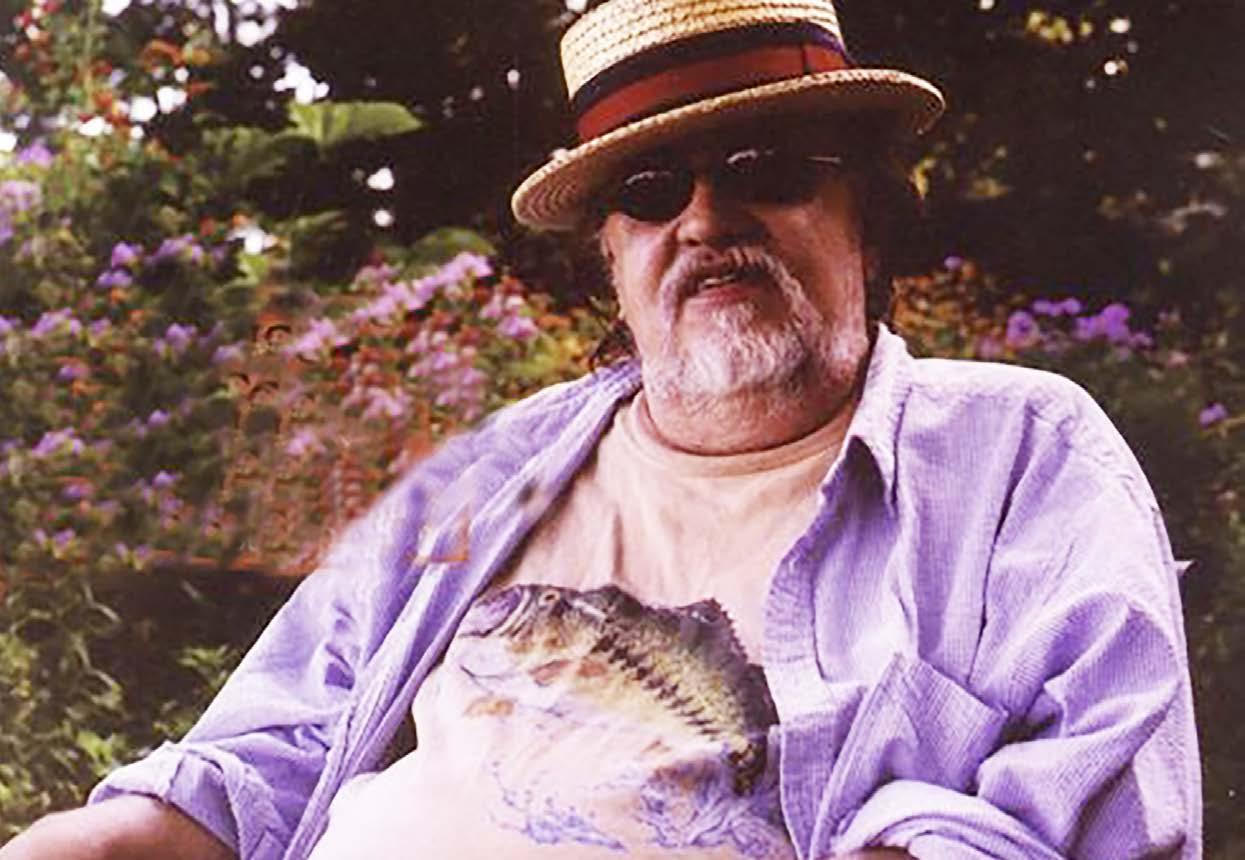
Many things in life are disappointing. Bob Dylan is not one of those things. All of a sudden he had a younger audience that was a new audience and he decided that a new audience needed new songs.
–Warren Storm on Swamp Pop

 By Trevor J. Leeden
By Trevor J. Leeden
Whether doing so on an annual basis, intermittently or as a first timer, attending the New Orleans Jazz & Heritage Festival is an unforgettable musical and cultural experience. Between the two extended weekends crammed with local and international acts, there’s a 3-day hiatus to catch one’s breath, enjoy the city, visit plantations or maybe a bayou tour for a bit of gator and critter spotting. However, a road less travelled provides a wealth of unexpected delights.
Two hours from New Orleans lies the region known as Acadiana, the French-speaking parishes that have spawned the indigenous sound of Cajun, Zydeco, and…Swamp Pop. Whilst the first two remain high profile, swamp pop was very much a product of the 1950’s and 60’s that, whilst never reaching mass national or international popularity, flourished and is still enjoyed today courtesy of its veteran performers. The first weekend of this year ’s festival features numerous swamp pop icons – Johnnie Allan, T.K. Hulin, Willie Tee, Gregg Martinez & the Delta Kings (Martinez was a recalcitrant high school student of Allan’s back in the day), and the wonderful Tommy McLain (his I Ran Down Every Dream album being one of 2022’s finest releases). Don’t miss them!!!
Head firstly to Eunice, a sleepy Acadian town that is a delight. This is the home of the Savoy family, Cajun royalty by any measure. A visit to the family’s accordion workshop will usually result in a meeting with notoriously curmudgeonly Marc, family patriarch and master accordionist; an experience not to be missed!! The Cajun Music Hall Of Fame is a compact building well worth visiting to get a deeper understanding of the genre and its more famous purveyors. Around the corner is the studio of KBON (101.1 FM), the legendary community radio station that has served Acadiana since 1997, playing zydeco, Cajun-French, swamp pop, and country & western. Tune in or better still, pop in and meet DJ Gumbo Phil who will show you around between his on-air announcements. Head across the street to Café Mosaic, where the only decent coffee in south Louisiana can be found (regrettably, this is not an understatement!).
Thirty minutes to the north of Eunice lies Ville Platte, the largest town and hub of the Acadian prairies, and officially recognised by the State of Louisiana’s House of Representatives as the Swamp Pop Capital Of The World. Floyd’s Flat Town Music Store is here, established in 1956 and specialising in the ethnic music of southern Louisiana. It is also the home of the Louisiana Swamp Pop Museum, located at 205 NW Railroad Avenue, and an experience not to be missed. >>>

……“it’s black music played by white guys real good!”
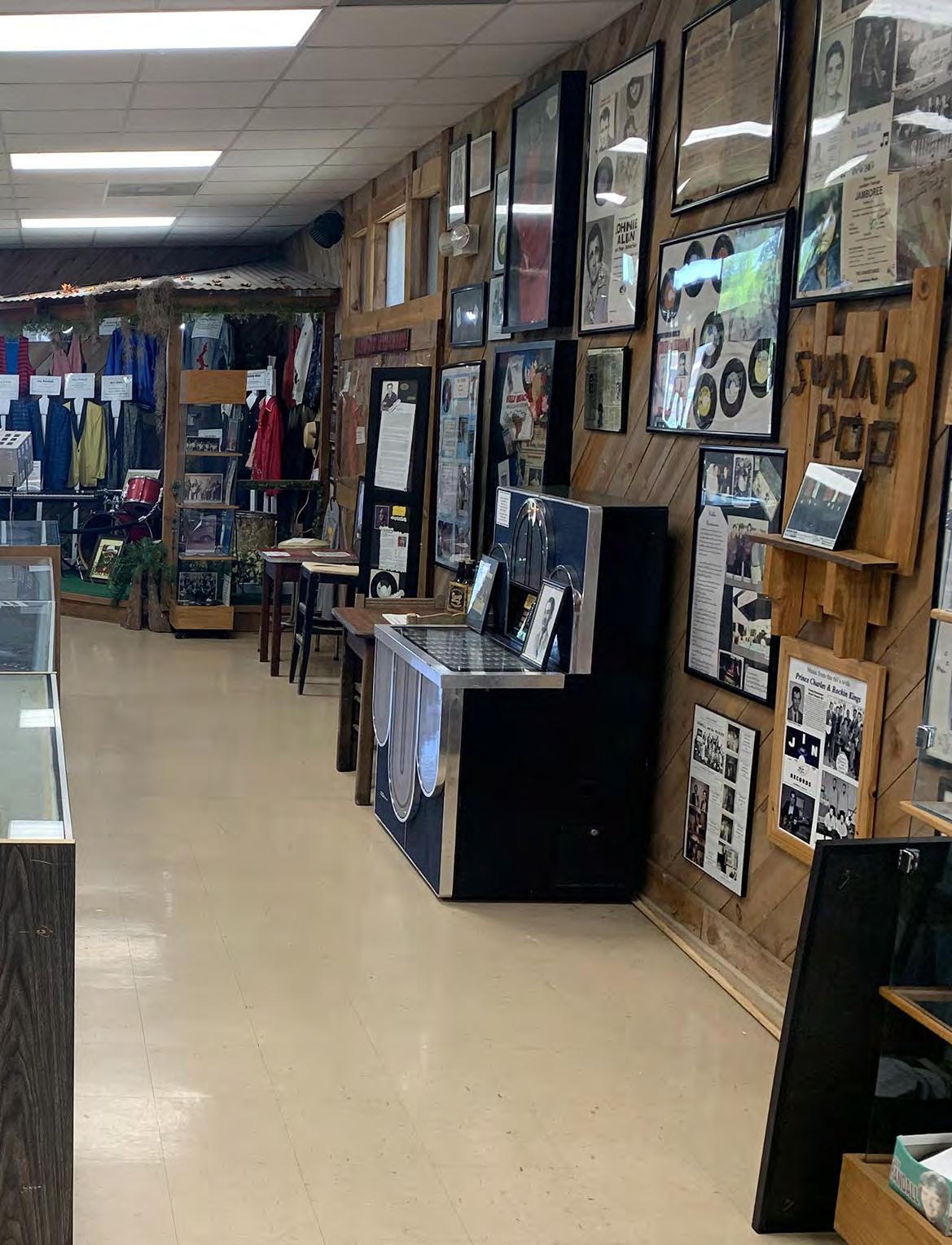

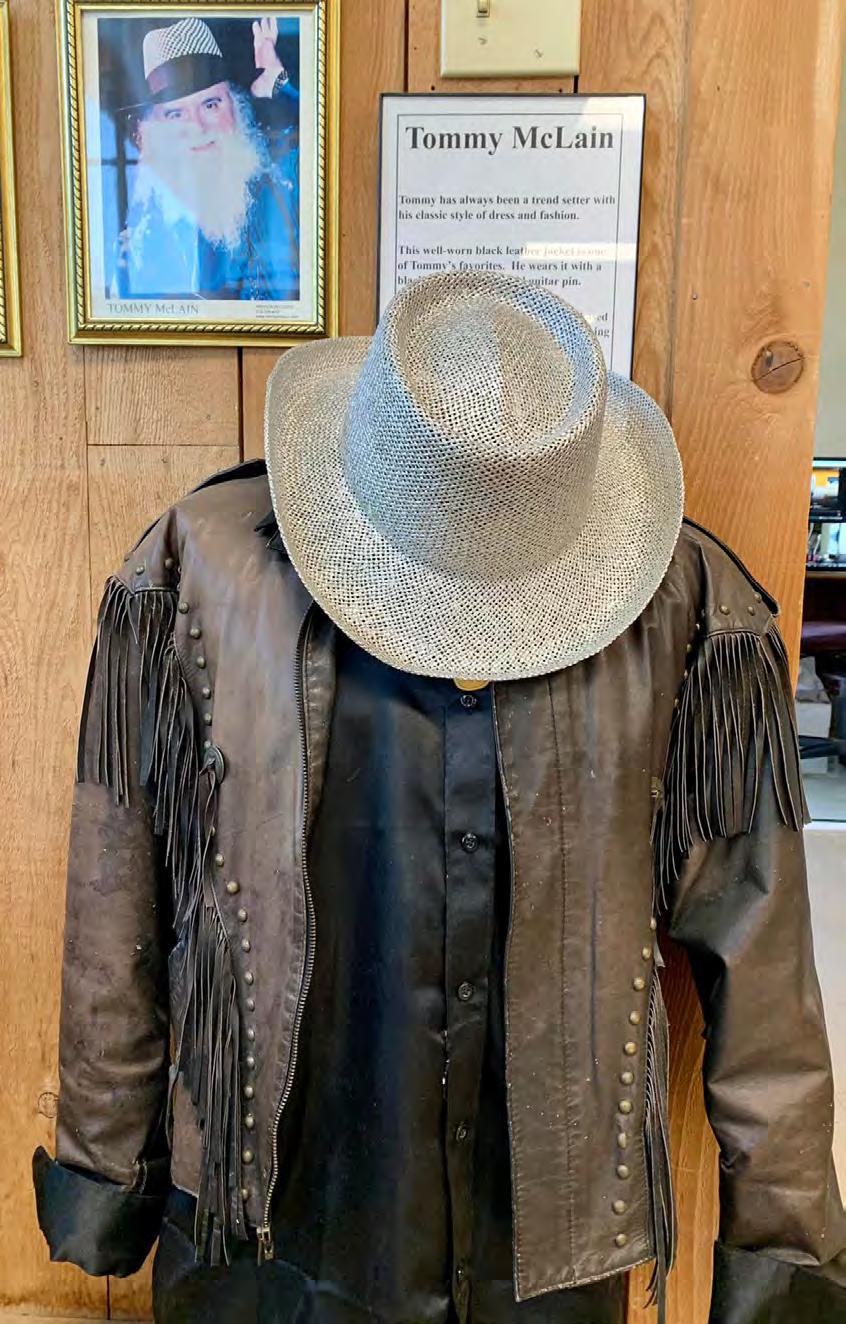
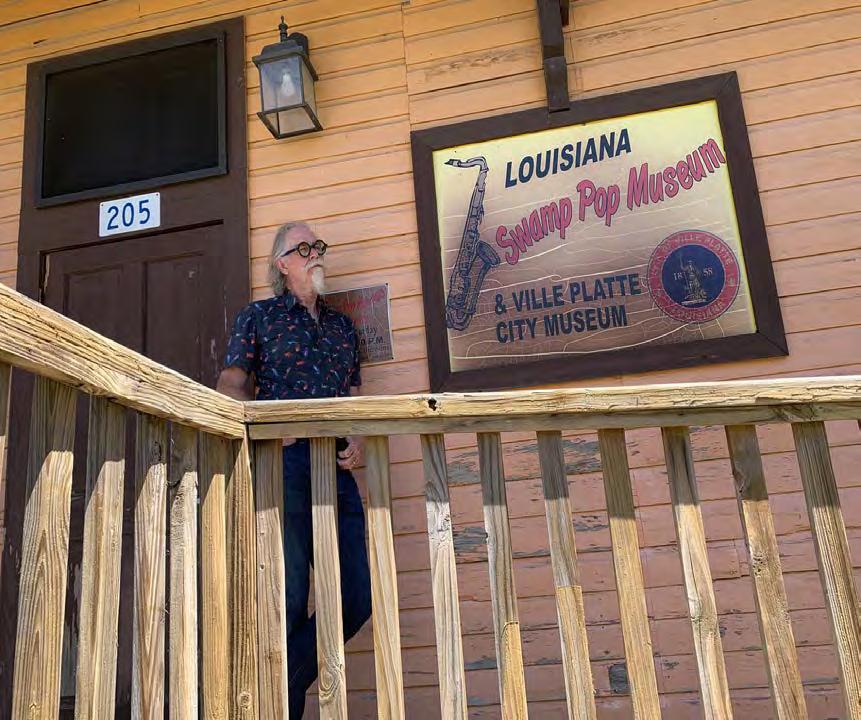

>>> The museum is a true labour of love, appropriate given that the subject matter of swamp pop music is almost exclusively the topic of LUURV in all its varied forms. A lifelong devotee of the genre and its performers, Sharon Fontenot (aka Miss Sharon) took it upon herself to do something about preserving this fabulous music and with the backing of KVPI Radio’s general manager Mark Layne (the man directly responsible for canvassing the State Legislature) established and curated the museum; her love for the music knows no bounds. City Hall allocated Miss Sharon a block of land beside the railway line for the project and a disused/condemned railway depot (station) from a neighbouring township was accordingly transported and deposited on the land facing the wrong way (much to Miss Sharon’s consternation). Fortunately, with the help of some generous locals it was lifted and turned to face the right direction. The depot provides its own insight into times past, the two ticketing windows harking back to days of segregation.
Over twelve years, Miss Sharon and her loyal volunteers have built the entire museum from donations by performers, their families and friends, and spending an hour with her undivided attention is a deep dive into this mostly misunderstood music. Ironically, its name – swamp pop – was coined by an English journalist in the early 70’s, and a definitive description is hard to nail down. Shane Bernard (author and son of the great Rod Bernard) describes it as ”a rhythm and blues hybrid indigenous to southeast Texas and the Acadiana region of south Louisiana, and influenced mainly by New Orleans rhythm and blues, country and western, and Cajun and black Creole music”, or as the late Warren Storm so eloquently put it “it’s black music played by white guys real good!” If you’re listening to lovelorn lyrics, honky-tonk piano
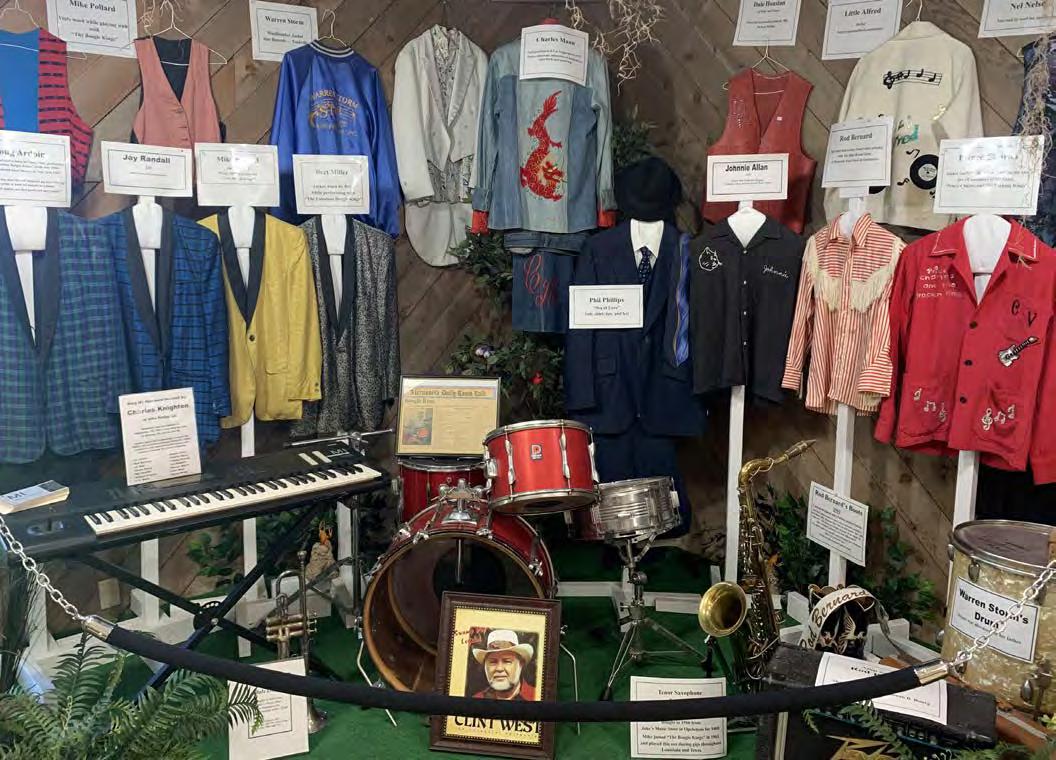
triplets, bellowing horns, a rhythm and blues backbeat with a feel-good rhythm, then chances are you’re in swamp pop heaven. Crammed into this “best little museum you’ve never heard of” are information boards, pen portraits, instruments, and outlandish stage costumes belonging to the great performers of the genre. The Godfather of Swamp Pop, Warren Storm, is well represented, along with myriad others who identify with the genre; former high school principal Johnnie Allan (‘Promised Land’) is prominent, along with Phil Phillips (‘Sea Of Love’ – the first record Miss Sharon bought in 1957), Charles Mann (‘Red Red Wine’), Cookie And His Cupcakes (’Mathilde’), Freddie Fender (‘Before The Next Teardrop Falls’), Dale & Grace (‘I’m Leaving It Up To You’), T.K. Hulin (‘Graduation Night’) and the evergreen Tommy McLain (‘Sweet Dreams’ – there’s a rare photo of a clean shaven McLain) adorn the walls. This time capsule holds many secret surprises, but it’s best to discover them yourself with Miss Sharon as tour guide. After the tour, don’t forget to visit Champagne’s supermarket to pick up a pack of Swamp Pop soda pop (in four fabulous flavours)! For a complete Acadian prairie experience, return via Rayne and the famously hard to find (“located in the Middle of Nowhere”) Hawk’s Crawfish Restaurant where you’re guaranteed to find the best crawfish in Louisiana; no bookings necessary, just turn up and order 5 lb!
The museum is officially open Friday and Saturday; however, Miss Sharon is all too willing to open the doors for private tours. Contact the City of Ville Platte (337) 363-0900 and ask for Miss Sharon (Fontenot) to arrange a visit.

Recommended reading:
Swamp Pop: Cajun and Creole Rhythm And Blues by Shane Bernard South To Louisiana by John Broven
By Brian Wise
Don Bryant is possibly best known for writing the 1974 hit song ‘I Can’t Stand The Rain,’ recorded by his wife Ann Peebles for Hi Records where he was a staff writer. But Bryant’s own singing career began when he joined his father’s gospel group at the age of five, while his professional career began when his high school group was backed by Willie Mitchell’s band after which he started to write for Hi. Don’s own recording career began in 1969 with the Mitchell produced album Precious Soul, after which he put his own career on hold in favour of his wife, who passed in 2012. After being invited to perform with Memphis-based The Bo-Keys, who will be with him on his forthcoming tour, Don returned to the studio in 2017 and released Don’t Give Up on Love for Fat Possum Records. The ensuing years have seen another album, You Make Me Feel (2020) with ten more original compositions. On that album’s release, Rhythms got the chance to talk to Don about his career.
After being known for your writing all these years, it looks like you’re finally going to get some credit as a singer too. William Bell put out a great album, now it looks like it’s your turn.
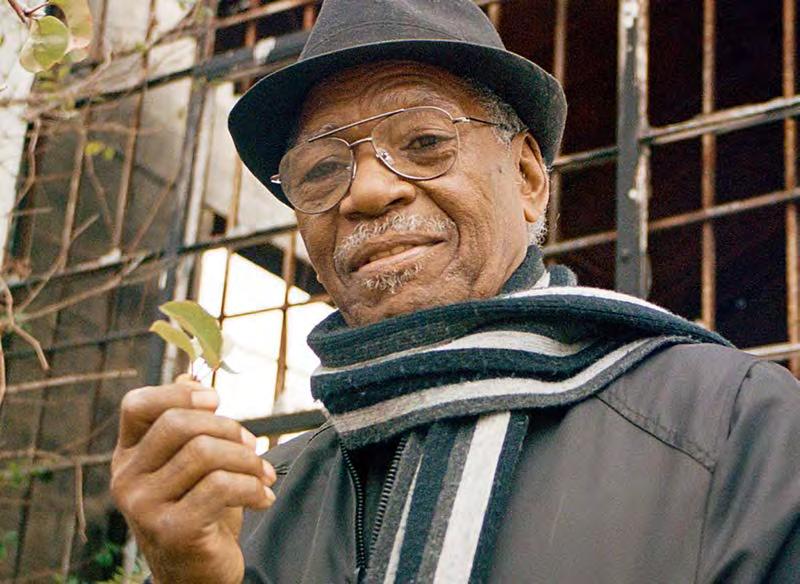
All right, all right. It’s something I’ve longed for, for a long time. Hey, looks like it’s coming to pass. I’m overwhelmed about that. Scott Bomar, the producer, got the band the Bo Keys. They kept mentioning my name to him and I had done some things with them in the studio. So, he finally came to me and asked me would I be interested in doing an album. I thought it over, and told him yeah, I would be interested.
Now you had been making some other albums, but they were more the religious albums. Is that right?
That’s true. I had been doing some writing and had a couple albums in that area.
So, this was getting back to the sort of things that you would have been doing in the late Sixties, early Seventies in a way? Plus, you had some members of the Hi Rhythm Section there too: Charles Hodges on organ, Archie ‘Hubbie’ Turner on keyboards and Howard Grimes on drums.
Yes, it is. I never thought it would, but it just goes to show it’s not over until it’s over! The way they laid it out, everybody felt good. I felt good about accepting the situation. Playing with the Hi Rhythm section for so many years it was like family coming back together again. Because they knew me, they had played with me a long time. They knew my voice and how I work with songs and different things. So, it made it very easy to work up the songs and I think all of them came out great.
Now you recorded at Scott’s studio, which I would imagine would be a little bit different than you’d been used to maybe back in the ‘70s at Willie Mitchell’s studio.
Yes well, it’s a smaller studio but the sound I thought came out great! I believe we have a great sound over there when we were putting like demos and different things down. I loved the sound that we got out of the studio. That let me be confident and just go forward and not worry about it just give it all I got.
Like I said, it was a family type thing. Everybody respected each other. It was like brothers together just doing what they do best.
You’re renowned for your song writing. Do you still do a lot of writing? Has it been a constant thing or is it something that you needed to get back into in terms of writing the secular type songs? No, I’ve been writing. I never stopped writing. Ideas come to me and when ideas come to me that I like I’ll go and write it down, maybe write a few lines on that idea and come back later on it. I never stopped writing. I enjoy it so much.You never know when somebody might need some material and I try to keep ideas in my head that I can write down. It’s enjoyable to me. It’s a part of me and I enjoy doing it, so I’ll never stop.
When I hear you sing I’m amazed you didn’t have more of a solo career yourself but I guess you were so wrapped up in song writing that you maybe didn’t have to do that.
Well, I don’t know. Being with this band we had tried things and some of them got started and made their own run but at that time I was the only vocalist R&B vocalist, blues vocalist with the studio. He had other artists there, but he was trying to get one on me. We worked a couple of songs, and they did sound good. Right off the bat, the first song they put out just blew up like dynamite. They were doing their thing and I was trying to do my thing. Theirs blew up and mine kinda leveled off. So, I’ve always loved the writing, so I decided to start. Perhaps I could write more songs because all the artists that would come in, some would need some material. So, I decided I’d try to have something ready to offer the artists that would come in.
Al [Green] basically wrote all of his stuff. He had his stuff already done. Sometimes he needed some material, and I was trying to make sure that I had something to present to him. I just got deeper and deeper off into the writing situation. So, I told Willie that I would like to start concentrating on the writing instead of the recording.
Don Bryant andThe Bo Keys will be appearing at Blues On Broadbeach.
Don Bryant. Photo by Lawrence Matthews.
“……It just goes to show it’s not over until it’s over!”
Legendary songwriter Don Bryant is coming to Australia and he shared some thoughts on his latest studio album.
BY KEITH GLASS
DIANA TRASK
MISS COUNTRY SOUL
DOT SZL-933 released 1969
In the 60’s/70’s/80’s major record labels worldwide maintained a massive album release schedule. Only a comparatively few artists scored a hit, others became ‘cult’ classics. Beyond that exists an underbelly of almost totally ignored work, (much never reissued) that time has been kind to. This is a page for the crate diggers.
Female Australian based (or born) solo pop/rock artists who made it overseas in the tumultuous late 60’s/70’s make for a fairly small list. Let’s see, there is Olivia of course, whilst not born - certainly got her start here. Melbourne born Helen Reddy never hit the local charts but blossomed through sheer hard work and dedication elsewhere. Lana Cantrell really never conquered the heights, but American RCA believed in her as their Barbara Streisand. She released 7 albums before retiring, which vary in style from cabaret to pop psychedelia, which are always classy and actually stand up well today. Also, Melbourne born, Judith Durham of course was most always part of a group.
There are more but the subject here (on paper) perhaps fits in better with the musical direction of this magazine than most of the above. Diana Trask was born in Warburton, Vic and initially worked in Cabaret / Jazz stylings. In fact, her two initial US album for Columbia way back in 1959 were totally aimed that way. She had a big voice and knew how to use it. Ten years later, under the tutelage of Nashville music publishing mogul Buddy Killen she re-emerged as ‘Miss Country Soul’ – on paper a most unlikely occurrence, but Killen had a master plan. He already had a genre hopping Soul/Cabaret/Comedy performer bursting with writing talent but with limited outlet for most of his songs. His name was Joe Tex and although Joe was respected in the R&B field, Buddy correctly thought his oversize ability in a number of genres was stilted by being black. The solution - musically merge
an outsider singer capable of performing almost any style (and without the roots baggage of her contemporaries) with a massively talented writer not able to achieve sufficient coverage in the area Tree Publishing (Buddy’s company) reined supreme. Thus ‘Miss Country Soul’ came to be, and a complete album of Joe Tex songs was her first project! By 1969 when the album was released, Trask had been in Nashville nearly four years so this was no overnight sea change. Killen had a template and was sticking to the plan. Diana was groomed on television appearances such as the Porter Wagoner Show, went live at The Grand Ole Opry and was even in a theatre release documentary of a ‘know nothing’ journalist visiting Nashville and being driven around by Webb Pierce in his Nudie the tailor decorated convertible. In the latter, Trask’s physicality comes shining through and you see why Killen was smitten.
In fact, the ‘Miss Country Soul’ album is a fantastic genre introduction for the artist with Joe producing and the Nashville ‘A’ team musicians taking to a menu of Tex’s songs with glee. Charlie McCoy’s harmonica in particular a perfect foil for her full-throated vocals albeit a tad different from every other country female vocalist of the era. The material includes such Tex staples (i.e R&B chart hits) as Show Me and Hold What You Got but also another eight great compositions proving the Killen/Tex/Trask trio were definitely on to something.
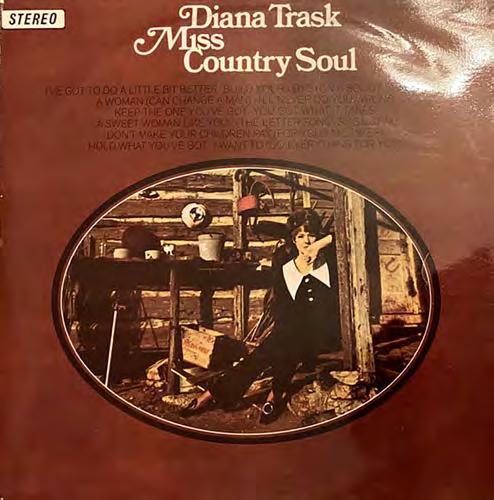
Unfortunately, it would be another six years before Trask really hit big with the Tony Romeo composition still much in the same slightly raunchy vein as this, her first country album. ‘Oh Boy (The Mood I’m in’) even hit Top 10 in the Australian charts and beyond that Trask did manage a smattering of top 20 Country hits over six albums for Dot before an initial retirement.
Upon the death of her husband, writing a biography, attempting a comeback all made for a different story. I caught up with Ms Trask during a return to Sydney a decade ago when she was also visiting, promoting her book. She was still eager to perform and had some plans for putting a band together. So far as I know those plans haven’t eventuated, but you’ve got to hand it to this woman as going where few other Australian performers have gone. Miss Country Soul is a title she alone holds, and the template was set on this her third album and once again proves the self-belief coupled with the situation and co-operation of some powerful sources can reap rewards.
By Chris Familton
ESSENTIAL AMERICANA ALBUMS
Gillian Welch – Time (The Revelator) (2001)
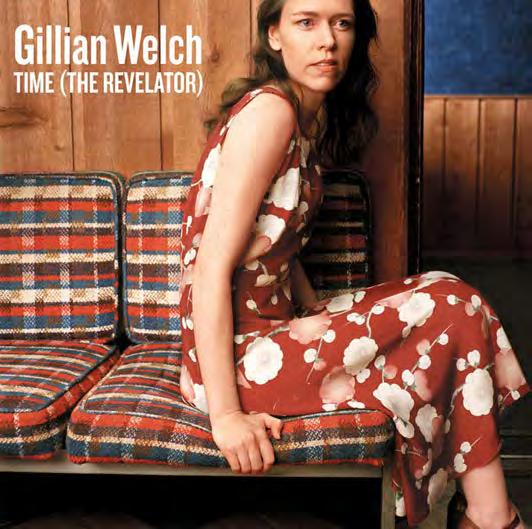
The turn of century proved to be a fertile time for the Americana music scene. The early 2000s saw the likes of Drive By Truckers and Ryan Adams stamping their name on the scene internationally with their early, widely acclaimed albums and Lucinda Williams was starting to capitalise on the success of Car Wheels on a Gravel Road. Bands such as Richmond Fontaine and Lucero were staking their claim as likely newcomers and Wilco were beginning to explore the wider possibilities of the genre.
in 2001 Gillian Welch had already released two albums and been playing live for more than a decade. It was meeting guitarist David Rawlings at Berklee College of Music in Boston that solidified her growing passion for bluegrass, folk and country music and the pair soon began working together after they had both separately relocated to Nashville, Tennessee. Her first two albums, Revival and Hell Among The Yearlings, established her as a dark, poetic and timeless songwriter with a voice that could break and heal hearts. An appearance on the O Brother Where Art Thou soundtrack catapulted her into the consciousness of a global audience, far greater than the cosier roots music community. That set the stage for her next album, the spellbinding and mesmerising collection of ten songs that comprise Time (The Revelator)
From first listen it was clear that ‘timeless’ was an apt description of the sound and emotional resonance of these songs, produced by David Rawlings. Familiar melancholic melodies, traditional acoustic guitar compositions, subject matter that covered historical events such as the Titanic disaster and the assassination of Abraham Lincoln, American folk hero John Henry and the iconic Elvis Presley. Steeped in American history and presented in austere, heartbreakingly beautiful traditional songwriting musical forms, these songs on the surface don’t appear to possess the ingredients to separate them from thousands of songs that have come before.
Where the real magic lies is in the way that Welch’s voice dances, embraces, sways and intertwines with Rawlings guitar playing. Set in a hazy American landscape, it’s a quixotic blend that nears perfection courtesy of the way Welch’s voice works as an instrument as effectively as Rawlings’ guitar is another ‘voice’ – eloquent, lithe, versatile and full of personality. ‘My First Lover’ is a perfect example of both voice and instrument as equally essential ingredients. Right across the album Welch’s voice drifts and serenades like a warm, meditational tonal breeze or the gentle rise and fall of a calm ocean. She’s unhurried, operating in her own time zone, somewhere between sad remembrance and wistful nostalgia.
The opening title track has rightfully become a modern classic in the intervening 22 years, a gold star example of Americana music that combines bluegrass, folk and country and yearning soul without the aid of additional musicians, production tricks or a radio friendly arrangement. Across six minutes we’re treated to spiralling solos from Rawlings that amplify and enhance Welch’s lyrical response to questions of her authenticity and how truth and integrity reveals itself in time.
On ‘Red Clay Halo’ the duo show they’re not all dustbowl ballads and Appalachian songs of sorrow, dialling up the tempo into a brisk and nimble workout. ‘I Want To Sing
That Rock And Roll’ is a playful paean to the joys of rock n roll, recorded live at the Ryman Auditorium. Welch has said that “As opposed to being little, tiny folk songs or traditional songs, they’re really tiny rock songs. They’re just performed in this acoustic setting. In our heads we went electric without changing instruments.” That clearly comes through in that song and indeed ‘Elvis Presley Blues’, a hypnotic, gently droning and stunning example of their seamless vocal harmonies.
‘Everything Is Free’ is another song that has become one of Welch’s most loved and covered (Lisa Mitchell, Courtney Barnett, Father John Misty, Conor Oberst) compositions, a cautionary and regret-filled take on the modern devaluation of music in the digital age. Welch conveys the cultural significance and the resulting sense of loss with deep emotional resonance.
In the epic 14-minute closing track ‘I Dream A Highway’, a grand and sweeping panoramic shot of the American landscape that rolls on like scenes from a train window dissecting open prairie and plains. Welch surveys the great expanse, finding paths and winding rivers connecting changing music scenes, legendary artists and the sacrifices of musical trailblazers. In doing so she hints at her and Rawlings’ modus operandi – their desire to progress traditional music while retaining links to its origins and its sense of wonder and imagination – harnessing the heartache and the dream.
In the ensuing two decades, Welch and Rawlings have taken their time to craft each new release. Their slow prolificacy can be a frustration for some but the reward is always immense. Each release and revelatory live show, such as their incredible tour of Australia in 2016, provides another deep insight into the life-affirming music of a once in a generation artist.
THE NEW RHYTHMS T-SHIRT

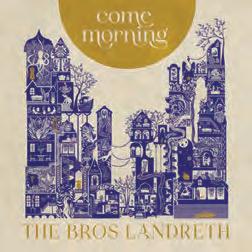

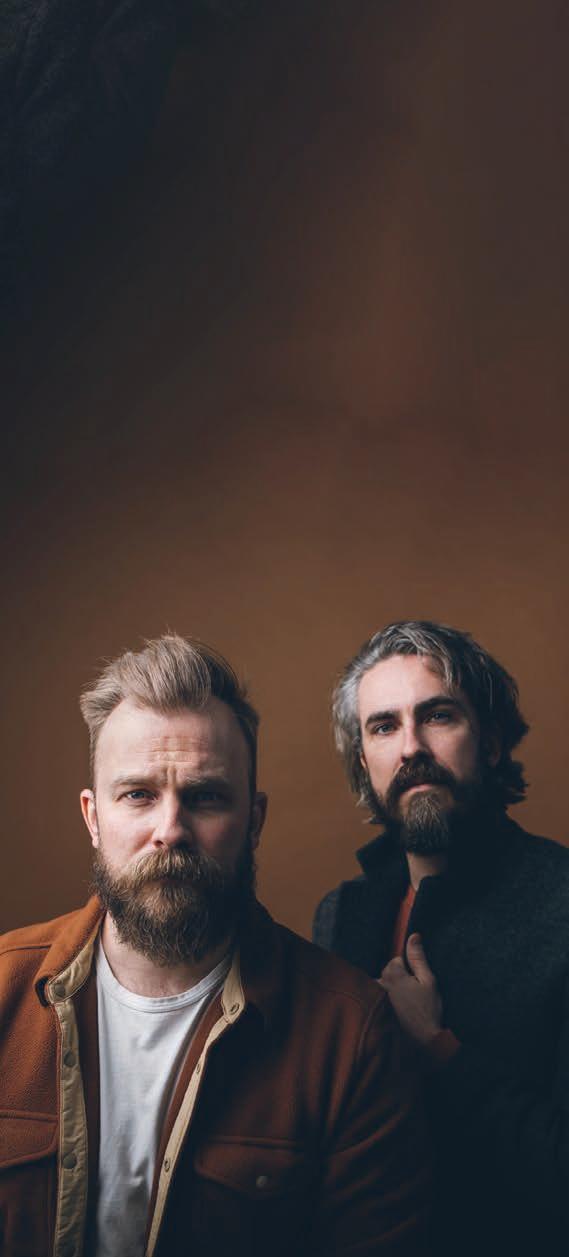
The brand new limited edition Rhythms Americana style t-shirt is available now for a special price of $30 Simply go to: bandtshirts.com.au/shop/rhythms-magazine
By Jeff Jenkins
EIGHT IS ENOUGH
Thirty-five years after her last album with The Go-Betweens, Amanda Brown releases an intriguing first solo album.
“It’s been a long time coming,” Amanda Brown smiles when asked about her debut solo album, Eight Guitars
“I have very mixed feelings, actually,” she adds. “I’ve been a behindthe-scenes musician for the past 20 years, working as a screen composer. The studio is my happy place. And I don’t miss touring and being a performer.”
She pauses, before asking herself: “So why did I do this?
“I don’t really know.”
She laughs heartily, which she’ll do several times over the next hour. As an interview subject, Brown is thoughtful and engaging, which is maybe also a good description of the record.
“It’s perhaps a fool’s errand at my age to be releasing a solo album,” she continues. “It is kind of ridiculous, but on the other hand, it was one of those, ‘Well, why not?’
“And, if anything, it was a great opportunity to work with some of my favourite people.”
Yes, this is a solo album, but it’s an enormously collaborative affair. The concept was simple: eight songs, each featuring a different guitarist. The line-up is Kirin J Callinan, Damien Lane, Danny Widdicombe, Brendan Gallagher, Bruce Reid, Shane O’Mara, Richard Andrew and Daniel Champagne.
“The concept is a celebration of the guitar,” Brown explains, “and guitarists I know who play in a way that’s not predictable or standard. They all bring their own unique perspective and style.”
But this is not an album of blazing guitar solos. Brown and producer Tony Buchen have carefully crafted an album of subtlety and nuance. Buchen calls the sound “Cosmic Americana”.
“It is basically Americana,” Brown agrees, “but it utilises a lot of modern production techniques and it’s got a lovely sparkly prettiness to it.
“My favourite music to listen to is guitar-based acoustic music: folk/ country/Americana. That’s my relaxing music. It has a lot of heart, so I decided to work within that genre.”
Brown also plays guitar on the record, drawing on her impressive collection – Maton and Cole Clark steel-string acoustics, a Ramirez nylon-string, Gretsch semi-acoustic and Fender Telecaster.
Brown wrote one song, ‘Light Lingers On’, with Steve Kilbey, while the album also features a cover of The Church’s 1981 hit ‘The Unguarded Moment’, a song that Kilbey doesn’t rate. “The song just doesn’t
appeal to me,” he told broadcaster Tracee Hutchison. “It doesn’t give me any pleasure at all.” But Brown – who recorded her version for Kirsten Krauth’s podcast Almost a Mirror – believes it’s a great pop song. “And I think a woman singing it makes you think about it differently, particularly the first verse which recalls how nasty girls can be in high school.”
Brown was still a teenager when she started playing in bands 40 years ago. She joined The Go-Betweens in 1986. Robert Forster wrote about Brown’s arrival in his book Grant & I. “Amanda brought a number of things to the group, the first being an optimism tinged with naivety that was good for our worn selves.
“And she was knockout beautiful … strolling down the street with her was like walking with Monroe, men bumping into walls at the edge of my vision, ladders crashing behind me. She trailed a scene of destruction behind her, another Go-Betweens virtue.”
Brown made two classic albums with the group – Tallulah and 16 Lovers Lane – and her place in Australian music history is assured. She was also the first musician to guest program the ABC institution Rage, in January 1990. Brown hosted the show not on Rage’s famous couch but in the backyard of the Sydney home she shared with Grant McLennan. “I do remember I spent a long time deliberating over what to choose because I wanted people to really love it,” she recalls. She programmed many Australian acts, with the focus on female artists. Brown and Go-Betweens drummer Lindy Morrison were trailblazers for women in Australian music and have long championed women in the music industry.
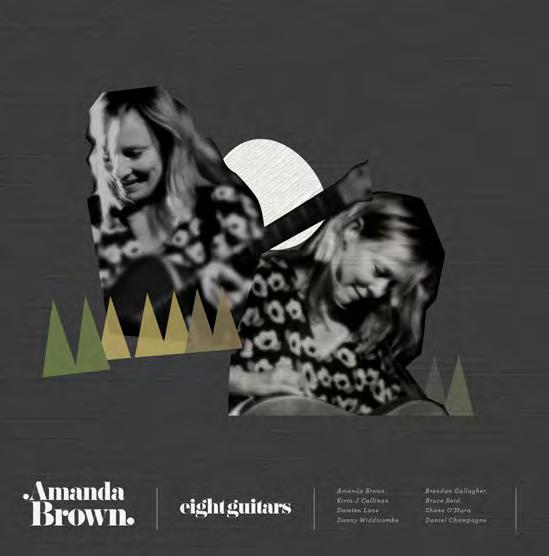
In reviewing her own record, Brown is critical of the fact that it fails to feature any female guitarists. Rhythms’ Anne McCue originally played on one track, ‘1973’, but the song shifted in the studio and Brown incorporated the lap steel of Bruce Reid, who now plays in Dragon. “So, Annie’s parts didn’t end up making it. But she is an exceptionally good guitarist and I hope to record with her another time.”
Here’s to Eight Guitars Part 2. Eight Guitars is out now.
SOME OF YOUR FAVOURITE SONGS
of all time interpreted brilliantly by some of your favourite musicians

Across the Universe (Lennon/McCartney)

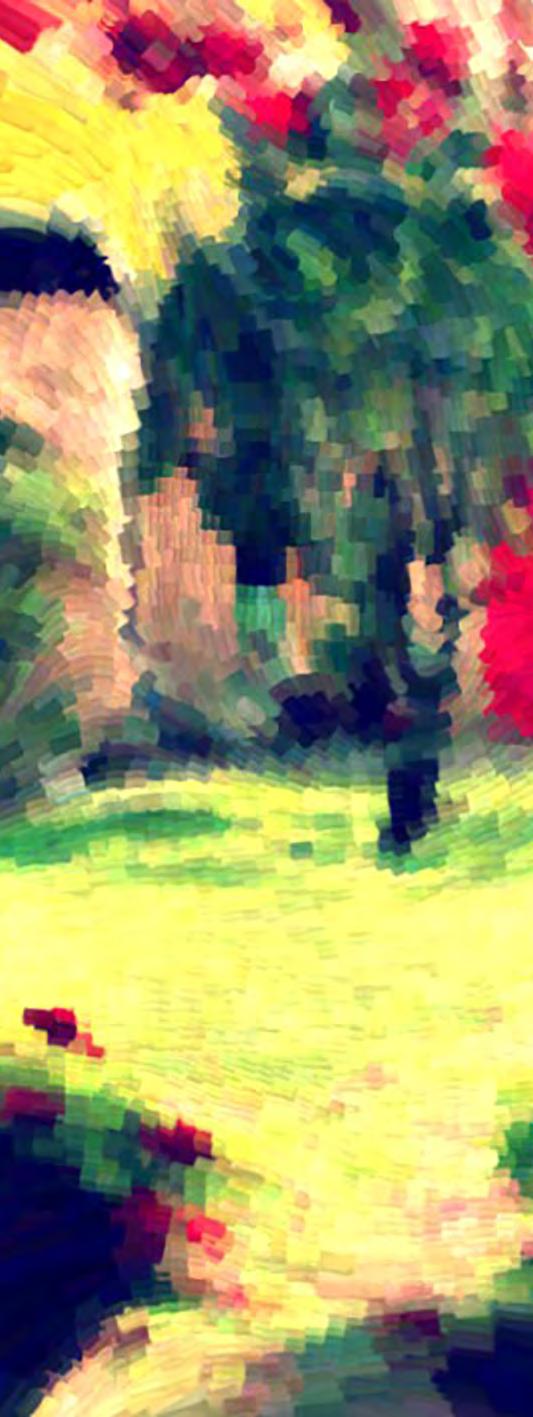
Adrian Whitehead
Spirit In The Sky (N.Greenbaum) Billy Miller
Grandma’s Hands (B.Withers) Rebecca Barnard
Lovin’ Cup (Jagger/Richards) Nick Barker
Rose Tattoo (C.Wilson) Liz Stringer
Faded Valentine (J.T. Earle) Rebecca Barnard
Beware Of Darkness (G.Harrison) Shane O’Mara
Isn’t It A Pity (G.Harrison) Billy Miller
Ohio (N.Young) Andrew Tanner
Coming Down Again (Jagger/Richards)
Nick Barker
Blood In My Eyes (B.Dylan) Liz Stringer
Do Right To Me Baby (Do Unto Others) (B.Dylan)
Andrew Tanner
That’s The Way (R.Plant/J.P.Page)
Jaqueline Tonks
I’m In The Mood (J.L.Hooker) Rebecca Barnard
Who Listens To The Radio (S.Cummings/A.Pendlebury) Rebecca Barnard
PRODUCED BY SHANE O’MARA
With backing musicians and vocalists including: Shane O’Mara, Billy Miller, Rebecca Barnard, Harry O’Mara, Rick Plant, Howard Cairns, Ash Davies, Adrian Whitehead, Stu Thomas, Leroy Cope and Ben Wiesner. Available at: www.rhythmsmagazine.com
250mm 125mm 125mm 140.5mm 286mm 140.5mm 5mm IMPORTANT - IMPORTANT INFO SHOULD MUST BE INSIDE - FINAL ART MUST HAVE 3MM BLEED - FINAL ART MUST BE CMYK AND 300 DPI - PLEASE OUTLINE ALL FONTS - SAVE ART AS PRINT READY PDF (Acrobat 6.0 (PDF 1.5) or higher) THIS TEMPLATE IS 1:1 SCALE EMAIL: PRINT@IMPLANT.COM.AU PH: 1300 79 78 78 DO NOT INCLUDE THE TEMPLATE OR ANY OTHER NON-PRINT INFO IN THE FINAL PRINT READY PDF ART FILE.
Go to: rhythmsmagazine.podbean.com or Apple Podcasts, Amazon Music, Spotify LISTEN TO THE MUSICIANS YOU ARE READING ABOUT! The Teskey Brothers talk about their new single.
Well known amongst aficionados of Australian roots/country music, Liam Gerner is an Adelaide born guitarist, singer and songwriter. As a solo artist Gerner’s built his name with his remarkable picking skills and strong, narrative songs - prior to this he worked across the US and Europe as guitar-for-hire with all manner of Oz and international artists: I first encountered him when he was Ryan Bingham’s lead guitarist earlier this century - and Bingham’s not a bad comparison, these gnarly country outlaws with roots in Hank and Merle alongside the Stones and Allmans.
Before joining Bingham’s Dead Horses, Gerner shared the stage with everyone from Pnau, The Eurogliders, Elton John, Robbie Faulks and Vika and Linda Bull - which suggests the man knows his way around a guitar. Since resettling in Melbourne, Gerner has released a series of strong albums, each one demonstrating a growing confidence in both his songwriting and singing - this noted, I particularly enjoyed his last effort, The Bulletin Debate (Henry Lawson vs Banjo Patterson) where he teamed up with fiddler Luke Moller to put Australia’s best loved bush poets to music.
Perhaps that effort’s focus on putting music to other artists’ words has replenished Gerner’s muse as Toodeloo Tuvalu is, easily, his strongest solo album so far. And its strong for several reasons - Los Perros Perdidos (The Bad Dogs), Liam’s band of merry men backing him here, provide a loose, assured sound that features imaginative brass instruments on several numbers. Meanwhile, his singing has improved; Liam now possessing a greater warmth and range than previously demonstrated.
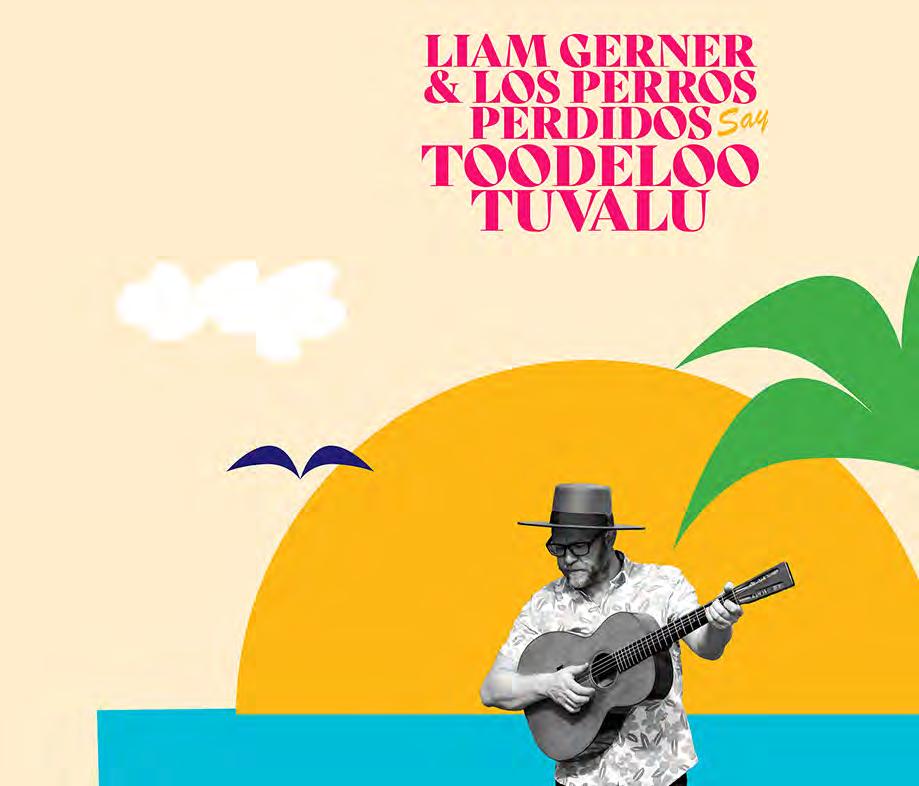
Best of all are the songs - the eight original songs (and Neil Murray’s excellent ‘It Was Told’) here are melodically rich and lyrically strong. “Many of the songs came from things that actually happened in my journeys, particularly in Australia and the US,” says Gerner. “The natural result to big events in my life is that usually a song springs out of it. For instance, the Kenny Keen song was written while sitting in a bogged ute on a cliff for days trying to somehow get rescued from a near death solo camping trip experience in remote Arnhem Land without phone reception. The two recording days for this album happened naturally in that the friends I’ve come to work with, trust and admire in Melbourne just came down and we had a good time playing songs no-one knew, this album is the result.”
Opening number (and title track) ‘Toodeloo Tuvalu’ has a summer campfire feel in its easy grace while its lyric is pointed at those who
Garth Cartwright
think the earth is theirs to exploit. ‘Manymak’ also possesses a lazy, summery vibe, an almost calypso rhythm shimmers as Gerner sings of easy, relaxed times on the beach. Much tougher - and my personal favourite - is ‘Alligator Justice’, where Gerner sings in the voice of a Cajun who makes it clear that if you mess with him and his then the law of the swamps will be employed. Here Los Perros Perdidos kick in with squalling horns, tough slide guitar and boiling piano over a swinging rhythm that should get audiences up and dancing. This is followed by ‘Understanding (Sand In Her Toes And Sand In Her Shoes)’ which finds Gerner dialling down the tempo, a love song that sounds genuinely loving rather than cloying, just voice and guitar. ‘It Was Told’ closes the album: Neil Murray’s poignant song damning the colonisers who came to new lands and looted “in the name of progress”. This proves to be a fine finale for a superlative Australian album. Gerner’s ability to shift between ballads, rockers and honky tonk singalongs demonstrates both his variety and range as a songwriter alongside an ability to assimilate and make his own different strands of US roots music. In this sense, he not only reminds me of the aforementioned Bingham but also of the late Willy DeVille - another outsider who could shape Southern musical idioms convincingly and distinctively. Here Gerner embraces his influences with huge enthusiasm so shapes something uniquely his own from the blues and country and rock pioneers who have so inspired his sound.
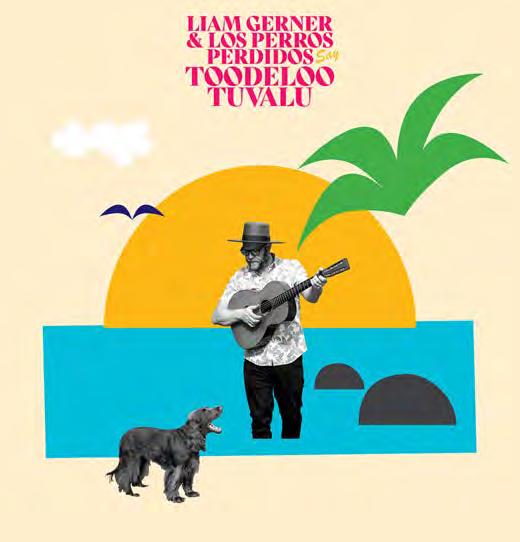
“I like to find truth and unexpected musical newness in other people’s songs,” says Gerner, “so I try to leave a truth in my songs of where I am at in life and music exploration.” Toodaloo Tuvalu signifies that Gerner’s made the album that should propel him into the forefront of Australian roots music.

Toodeloo Tuvalu liamgerner.com
By
LIAM GERNER & LOS PERROS PERDIDOS
ALBUMS: General
HENRY WAGONS
SOUTH OF EVERYWHERE Cheatin’ Hearts Records
MATT JOE GOW BETWEEN TONIGHT & TOMORROW Checked Label Services
 MARGO PRICE STRAYS Loma Vista
MARGO PRICE STRAYS Loma Vista
He’s a band leader, a radio and TV host, a raconteur and one hell of a singer, songwriter and performer. Henry Wagons is well known as the frontman for Wagons but this is just his second solo album, following After What I Did Last Night in 2016, and this time we find him focusing his lens on his home country. The songs reference the landscape, towns (from Dover Tasmania to Orange NSW), Wagons’ own domestic world plus imagined characters and their stories.
Most impressively, Wagons has concocted a sonic canvas that perfectly balances traditional instrumentation with contemporary production and Americana meets indie rock swerves. He’s no purist and that’s the listener’s reward. From the shadowy Nick Cave meets hip hop gothic sound of ‘Cover My Eyes’, to the playful twang-laden tale of ‘Felix Granger, The Finger Pickin’ Boy’, the raucous upgrade of 80s Dylan on ‘Everything Is Broken’ and the heartfelt and soulful slow dance of ‘Don’t Give Up (Just Yet), there’s a real stylistic range that dips into a number of corners of countrified music, both light and dark. It’s a concise listen too, 11 songs in not much more than 30 minutes, all the more impressive for the varied terrain it covers.
Wagons boils it all down to the essence of songwriting and minimal instrumentation on the late-night bar lament ‘It’s Time To Go Joe’, a song that Waits and Nilsson would be proud of. South Of Everywhere thrillingly places the mercurial artist somewhere between Elvis, Paul Cauthen, Jonny Fritz and the aforementioned Cave. Fine company indeed.
CHRIS FAMILTON
Now four albums and nearly 15 years into his solo recording career, Melbourne-based NZ artist Matt Joe Gow has constantly exhibited an ability to make subtle and compelling improvements to his songwriting. That pattern and upward trajectory continues on his most rewarding album to date. An album that breathes, sighs and exalts with passion and compassion, diving deep into matters of life & death, and navigating the rough terrain of the heart and soul.
The subject matter is universal (loss of loved ones, pandemic separation), yet Gow has the ability to make it personal, channeling his own experiences into those greater themes.
‘’Til My Whole Heart Bursts’ is perfectly rendered with astute and exuberant spirit and soul, the equal to an imagined co-write between Jeff Tweedy and Grant Lee Phillips. The title track offers a darker approach, draped in melancholy, loss and longing, it conveys those motifs with real gravitas, like Ryan Adams when he was at his peak. ‘Go Ahead, Celebrate’ adds a soul feel akin to The Black Crowes, while the single ‘Sweet Collapse’, one of my favourite singles of 2022, is overflowing with sweet melodic reward.
Raw and direct, the album possesses a rich tapestry of tales, tasteful and heartfelt performances. Imbued with elemental Antipodean alt-country stylings, Gow’s world-class songs show once again he is essential listening.

 CHRIS FAMILTON
CHRIS FAMILTON
To figure that this boldly striding out album, and to an even greater extent its accompanying memoir, Maybe We’ll Make It – two works that don’t just note survival and success but find cause to celebrate it – is Margo Price saying fuck you to those who blocked, bullied or bluffed her on the way to here, would be perfectly reasonable. Fuck you to the industry and its fat-arsed powerbrokers for a damn fine start. Fuck you to the grifters and gropers who tried to get their piece when Price had less than nothing to her name but her talent. Fuck you for that matter to the personal demons that threatened derailment over the years.
But the best fuck you in all of this is that Strays is a record that makes most of those people wholly irrelevant. Whether you think she’s a country singer or not, whether you want personal tales or character songs, whether you value tradition over adventure, Price goes where she wants. And where she wants is everything, everywhere, all at once. At almost every turn you can feel the tug of country music, even if it might just be in the faint reverberations of distant pedal steel or the crack in her voice, but there are psychedelic rock songs, electric folk tunes, spacious indie atmospheres and big pop exploding out of tinny electro beginnings. There are songs that direct themselves to periods of self-repair and reclamation and others painting stories of people with choices that aren’t really choices, ones where relationships just seem too hard and others where too hard is just a waystation.
In ‘Anytime You Call’, the spirit of George Harrison is evoked, from a languid but alluring melody to a twin-toned guitar solo and backing vocals that seem poised to hit a

ALBUMS: General
choir high, all positioning a passing listener on the front lawn of Friar Park in the summer of 1970. It’s oddly buoyant.
Immediately though, the next song, ‘Lydia’, pulls us right back to the greying corner of an American city that could be anywhere and anytime as a woman thinks about options that each reek of smashed up yesterdays and crushed tomorrows. The stark acoustic guitar feels like the guidepost, but a lost in the wind electric and slowly undulating strings blur that and we feel as disconcertingly unsteady as ‘Lydia’ might.
Price, however, never comes across as uncertain musically on Strays. The organ and snaking pulse of ‘Been To The Mountain’, with its open-shouldered entry to the album, holds its moody shape through every temptation to roar into some freefor-all. Eventually that coiled potential, that refusal to be anything else until or unless it so chooses, becomes the defining element. That process is repeated several songs later in ‘Change Of Heart’, which leans back into blues circling an agitated centre but keeping itself in check, defying the tug of song gravity as much as our expectation.
BERNARD ZUEL
THE LONG RYDERS
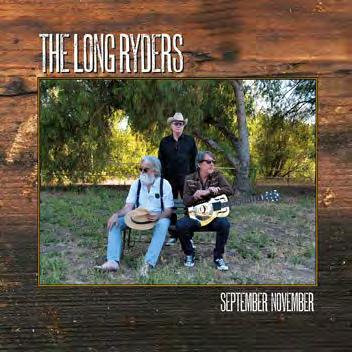
SEPTEMBER NOVEMBER
Cherry Red
It’s been four years since the alt-country pioneers reintroduced themselves with the fabulous Psychedelic Country Soul, itself an album that ended a 30-year hiatus. Since that time, the band unexpectedly lost founding bassist Tom Stevens, leaving Old 97’s bassist Murry Hammond to step into the engine room alongside drummer Greg Sowders. Sid Griffin (voice, guitar, mandolin) and Stephen McCarthy (voice, guitar, pedal steel) have again composed all 12 songs, a set
that Griffin states is “two thirds the distilled alt-country genre we helped found back in the 1980’s, one third Paisley Underground adventurism yet seasoned with a dash of our own crazed soulfulness thrown in.”
The psychedelic garage band adventurism is most evident in the 5-minute romp ‘Elmer Gantry Is Alive And Well’ with its warped outro, and the organ drenched Petty-esque ‘To The Manor Born’. Indeed, songs like the superb ‘Seasons Change’ would sit easily on any late 80’s/early 90’s Tom Petty recording. The album’s mid-point features a Long Ryders rarity; ‘Song For Ukraine’ is a gently lilting instrumental, the Coal Porters’ Kerenza Peacock elegiac violin conjuring a feeling words cannot. Peacock provides glorious accompaniment on two other songs, the vaudevillian ‘That’s What They Say About Love’ as well as the album’s countrified stomping title track. ‘Country Blues (Kitchen)’ is unsurprisingly, a harmonica infused bluesy shuffle, and Griffin takes an acoustic solo spot on the tender ‘Until God Takes Me Away’. The Ryders pay tribute to their fallen bassist on the superb ballad ‘Tom Tom’, singing “always right in tune, he’s groovin’ on the left side down in the engine room.” Fittingly, on an album clearly dedicated to him, it concludes with a Tom Stevens song ‘Flying Out Of London In The Rain’. Sid got the two thirds/one third ratio just about right.
TREVOR J. LEEDEN
LUCERO
SHOULD’VE LEARNED BY NOW
Liberty & Lament/Thirty Tigers
country-rock template after a run of more introspective releases. It’s a thrilling reminder of how great a rock band they are.
The twin pillars of the Lucero sound are the anthemic swerve and slash guitars of Brian Venable and singer Ben Nichols. The latter’s voice immediately identifies these as Lucero songs. The growl and gravelly howl from his ravaged larynx is their trademark sound. Impassioned and anthemic, he (and the band) are still grounded in the garages and small bars yet adaptable to an arena.
Standouts on the album include the Replacements-like dusty melodies of ‘One Last F.U.’, the infectious central riffs of ‘Macon If We Make It’, the desperation of ‘Buy A Little Time’ and the title-track that could easily be a lost Australian pub rock classic. The focus on Rick Steff’s keyboards on a number of tracks evoke the E Street Band and The Band, adding a sense of classicism to the surrounding raw guitar grit. Well established yet always fascinating and refreshing with each new album, Lucero continue to stake their claim as one of the finest alt-country bands of the 21st century.
 CHRIS FAMILTON
BUD ROKESKY OUTSIDER Rainbow Valley Records
CHRIS FAMILTON
BUD ROKESKY OUTSIDER Rainbow Valley Records
Lucero are coming up to quarter of a century in the rock ’n’ roll and alt-country game and the Memphis band’s new album finds them returning to their bristling, punkish

A tall, lanky, dark-haired, truck-driving, songwriting stranger. It might sound like a country music cliche but that’s a snapshot of the enigmatic and supremely talented Bud Rokesky, who was interviewed in the last issue of Rhythms. It’s been a while coming for this late bloomer but Outsider is a very special album, a jaw-dropping debut in many respects and an early contender for one this year’s best. >>>
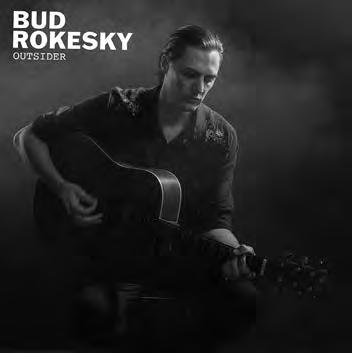
Australia’s Only ROLLING STONES Tribute Album!

Produced by Shane O’Mara and recorded at Yikesville.
Produced by Shane O’Mara and recorded at Yikesville.





















Featuring unique interpretations of Stones classics by some of Melbourne’s greatest musicians.
Featuring unique interpretations of Stones classics by some of Melbourne’s greatest musicians.
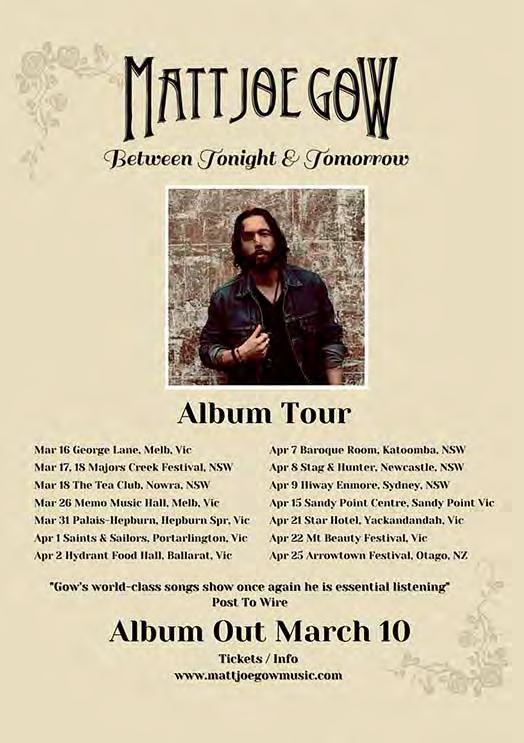

































Under My Thumb - Tracy McNeil, Hip Shake - Chris Wilson, Hide Your LoveNick Barker, Gimme Shelter - Lisa Miller, You Got The Silver - Raised By Eagles, I Got The Blues - Linda Bull, Factory Girl - Sal Kimber, Miss You - Simon Bailey, Salt Of The Earth - Dan Lethbridge, Silver Train - Nick Barker, Little Red RoosterLoretta Miller, Star Star - Justin Garner. Bonus Track: Midnight Rambler by Nick Barker, recorded live at the Caravan Music Club.
Under My Thumb - Tracy McNeil, Hip Shake - Chris Wilson, Hide Your LoveNick Barker, Gimme Shelter - Lisa Miller, You Got The Silver - Raised By Eagles, I Got The Blues - Linda Bull, Factory Girl - Sal Kimber, Miss You - Simon Bailey, Salt Of The Earth - Dan Lethbridge, Silver Train - Nick Barker, Little Red RoosterLoretta Miller, Star Star - Justin Garner. Bonus Track: Midnight Rambler by Nick Barker, recorded live at the Caravan Music Club.
Available now at rhythms.com.au


STONEDCelebrating the music of the Rolling Stones Celebrating the music of the Rolling Stones Recorded & mixed at Yikesville by Shane O’Mara Produced by Shane O’Mara with a nod & a wink from all protagonists. Shane would like to sincerely thank Brian Wise. All songs by Mick Jagger & Keith Richards 1. UNDER MY THUMB Tracy McNeil Tracy McNeil - vocals / Shane O’Mara - guitars, backing vocals Nick Barker - bass / Bree Hartley - drums, 2. SHAKE YOUR HIPS (Slim Harpo) Chris Wilson Chris Wilson - vocal, harp / Shane O’Mara guitar / Ash 8. MISS YOU - Simon Bailey Simon Bailey - vocals, guitars / Sean Albers - drums, percussion, backing vocals /Chris Wilson harp / Shane O’Mara - mxr blue box, percussion Grant Cummerford Originally on Some Girls 9. SALT OF THE EARTH - Dan Lethbridge Dan Lethbridge vocals, acoustic guitar / Shane O’Mara - guitars, bass, percussion backing vocals / Ash Daviesdrums / Jethro Pickett b.v.’s. Originally on Beggars Banquet 10. SILVER TRAIN - Nick Barker Nick Barker - vocal/ Justin Garner guitar, backing vocals/ Shane O’Mara - guitar Chris Wilson harp / Bruce Haymes - piano / Grant Cummerford - bass /Ash Davies - drums.
STONEDCelebrating the music of the Rolling Stones Celebrating the music of the Rolling Stones CREDITS Recorded & mixed at Yikesville by Shane O’Mara Produced by Shane O’Mara with a nod & a wink from all protagonists. Shane would like to sincerely thank Brian Wise. All songs by Mick Jagger & Keith Richards unless otherwise stated. 1. UNDER MY THUMB - Tracy McNeil (3.53) Tracy McNeil - vocals / Shane O’Mara guitars, backing vocals Nick Barker - bass / Bree Hartley - drums, percussion, backing vocals. Originally on Aftermath 2. SHAKE YOUR HIPS (Slim Harpo) Chris Wilson (4.46) Chris Wilson - vocal, harp / Shane O’Mara - guitar / Ash Davies – drums. Originally on Exile On Main Street 3. HIDE YOUR LOVE Nick Barker (3.52) Nick Barker - vocal / Justin Garner - guitar, backing vocals Shane O’Mara - guitar, backing vocals Bruce Haymes - piano / Grant Cummerford - bass / Ash Davies - drums / Rebecca Barnard backing vocals. Originally on Goat’s Head Soup 4. GIMME SHELTER Lisa Miller (5.15) Lisa Miller - vocal, guitar Tim Rogers - vocal Justin Garner - guitar / Shane O’Mara - guitar, percussion / Chris Wilson - harp / Bruce Haymes - organ / Grant Cummerford - bass / Ash Davie drums. Originally on Let It Bleed 5. YOU GOT THE SILVER Raised By Eagles (4.31) Luke Sinclair vocal, guitar / Nick O’Mara dobro, mandolin, lap steel / Luke Richardson - double bass / Johny Gibson - drums, percussion harmony vocal / RBE - oooohs. Originally on Let It Bleed 6. GOT THE BLUES Linda Bull (4.06) Linda Bull vocals Shane O’Mara - guitars, organ, bass / Cat Leahy - drums, percussion. Originally on Sticky Fingers 7. FACTORY GIRL - Sal Kimber (3.35) Sal Kimber - vocal / Shane O’Mara guitars / Cat Leahydrums. Originally on Beggars Banquet 8. MISS YOU - Simon Bailey (5.36) Simon Bailey - vocals, guitars / Sean Albers - drums, percussion, backing vocals /Chris Wilson harp / Shane O’Mara - mxr blue box, percussion Grant Cummerford bass. Originally on Some Girls 9. SALT OF THE EARTH - Dan Lethbridge (6.07) Dan Lethbridge - vocals, acoustic guitar / Shane O’Mara - guitars, bass, percussion backing vocals / Ash Daviesdrums Jethro Pickett b.v.’s. Originally on Beggars Banquet 10. SILVER TRAIN - Nick Barker (4.38) Nick Barker - vocal/ Justin Garner - guitar, backing vocals/ Shane O’Mara - guitar Chris Wilson - harp / Bruce Haymes - piano / Grant Cummerford - bass /Ash Davies - drums. Originally on Goats Head Soup 11. LITTLE RED ROOSTER (W. Dixon) - Loretta Miller (4.03) Loretta Miller - vocals / Shane O’Mara – guitars / Rick Plant bass Ash Davies - drums / Darcy McNulty - baritone sax. Originally on The Rolling Stones Now! 12. STAR STAR - Justin Garner (4.17) Justin Garner vocal, guitar / Nick Barker - backing vocals / Shane O’Mara - guitar, backing vocals / Grant Cummerfordbass / Ash Davies drums. Originally on Goat’s Head Soup 13. MIDNIGHT RAMBLER (LIVE) - Nick Barker & The Monkey Men (7.32) Nick Barker - vocal / Justin Garner - guitar / Shane O’Maraslide guitar / Grant Cummerford - bass Ash Davies - drums Recorded live at the Caravan Music Club, December 18, 2016. Originally on Let It Bleed THANKS Brian Wise would like to thank Shane O’Mara, all the musicians involved in this album, Mick, Keith, Brian, Charlie, Bill, Mick T, Ronnie, Chuck, Bobby, Bernard, Lisa, Tim and Stan Rofe. Design by Graphics By Sally Australia’s Only ROLLING STONES Tribute Album! Available now at rhythms.com.au
ALBUMS: Vinyl
BY STEVE BELL
ROBERT FORSTER THE CANDLE & THE FLAME Tapete/EMI POIGNANT ROCK’N’ROLL

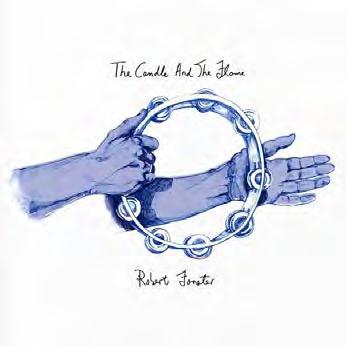
WILCO CRUEL COUNTRY

dBpm Records/Warner
MARGO PRICE STRAYS Loma Vista/Universal CINEMATIC AMERICANA
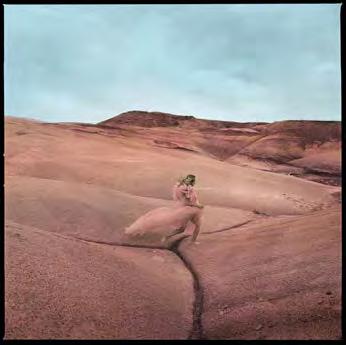
Brisbane legend Robert Forster’s eighth solo album is a stunning example of beautiful art being mined from adversity When his wife and long-time musical companion Karin Bäumler was diagnosed with ovarian cancer in mid-2021 he’d already penned a batch of songs for his next album, but instead of the traditional recording path these songs instead became a means for the pair to escape between brutal sessions of chemotherapy They played the songs together to leave their real-world problems behind, if only for a fleeting moment, and over time they were joined in this cathartic process by their son Louis (frontman for sadly-defunct indie rockers The Goon Sax and daughter Loretta - as well as Forster’s former bassist in The Go-Betweens Adele Pickvance and a couple of other regular sidemen - and once it became apparent that real magic was happening this impromptu outfit recorded nine tracks live at Brisbane studio Alchemix, the resulting immediacy suiting these vulnerable and heartfelt songs perfectly The only song written postdiagnosis was opening track and lead single ‘She’s A Fighter’ - which conveys incredible emotion with just six repeated wordsalthough it’s incredible to learn that songs like beautiful love paean ‘TenderYears’ and gorgeous duet ‘I Don’t Do Drugs I Do Time’ (both using primarily acoustic guitar and vocals to stunning effect) or the affirming ‘There’s A Reason To Live’ weren’t written specifically in light of the sad scenario as well. Extraordinary closing track ‘When I Was AYoung Man’ shines Forster’s gaze back on his formative years as a songwriter in late-‘70s Brisbane, and as one of the finest moments of his incredible career (to dateit proves the perfect finale for this beautifullyconceived and constructed tribute.
Arriving eight long months after the digital release of Cruel Country - the 12th album by US alt-country/indie rock legends Wilco - the 2-LP vinyl version proves well-and-truly worth the wait. Comprising 21 tracks self-recorded at their Chicago studio The Loft and posited by the band themselves as an exploration of the country music genre - in other words going back to their roots - there’s certainly an authentic country feel to the collection (although purists may beg to disagree, as is their wont). This conceit isn’t taken flippantly - it’s clear that frontman/songwriter Jeff Tweedy and his crew have a genuine reverence for the genre - and they chose to record together live with no overdubs, adding to the timeless feel (not far removed from the vibe of 2007’s similarly-birthed Sky Blue Sky). Interestingly the title track shows that the album’s title refers to USA rather than the musical form (“I love my country, stupid and cruel”), and the album’s lyrics continually dissect a nation divided, although these political undertones are subtle and unforced. It’s a largely quiet and reflective batch of songs, understated but authentic in delivery, with highlights including the upbeat ‘Falling Apart (Right Now), the gentle shuffle of ‘All Across The World’, the gorgeous waltz of ‘Please Be Wrong’ and folk-tinged closer ‘The Plains’. There’s still plenty of space left for Wilco to be Wilco - they stretch right out on the widescreen ‘Many Worlds’ and the ambient ‘Bird Without A Tail/Base Of My Skull’ - and there’s very few weak moments among the sprawling, epic love letter to both the oeuvre they love and the simple joys of playing music together.
US singer-songwriter Margo Price opens her fourth album Strays with an ominous surge of organ before the sultry groove of the defiant ‘Been To The Mountain’ acts as a statement of intent for the journey to follow. To craft the album Price had embarked on a six-day retreat with husband/co-writer Jeremy Ivey (and apparently a sizeable stash of magic mushrooms), where they loaded up and absorbed albums by the likes of Patti Smith, Joni Mitchell, Bob Dylan and Bruce Springsteen to colour the album’s mix of alt-country, indie rock and gentle psychedelia. While this lysergic preparation didn’t result in Price and her crew becoming a jam band, they definitely found courage to let the songs take their own course - both abortion narrative ‘Lydia’ and the gritty, piano-based ‘Country Road’ (about a friend who died in a car crash) extend beyond the six-minute mark - and continue away from the trenchant country-folk of her 2016 debut Midwest Farmer’s Daughter, rather extending the classic rock feels of 2020’s That’s How Rumors Get Started. Price collaborates with Sharon Van Etten on the anthemic ‘Radio’ to explore the travails of being a woman in the music industry, while ‘Light Me Up’ is an ode to the empowering nature of sex (featuring Tom Petty sidekick Mike Campbell), ‘Change Of Heart’ is a funk-tinged narrative about accepting the world for what it is and ‘Time Machine’ embraces the inherent fun of a good pop song structure. Beautifully laidback closer ‘Landfill’ is rife with stoic wisdom, but above all Strays is the sound of an artist moving resolutely to the beat of her own drum, and it will be fascinating to see where Price’s everevolving muse takes her next.
CLASSIC COUNTRY-ROCK
By Jeff Jenkins
SONGS OF SURVIVAL
There are many great music locations around the world, including Penny Lane, the corner where you can stand in Winslow, Arizona, and AC/DC Lane in Melbourne. And in Adelaide you’ll find probably the coolest name for a rock ’n’ roll address:
No Fixed Address Lane.
Jack Kanya Buckskin was running late when he did the Welcome to Country at the launch of the lane in 2021. “It’s a bit hard to find the place when it’s got no fixed address,” he quipped.
The lane illustrates the cultural impact of the pioneering Aboriginal band, who formed in Adelaide in 1979.
As highlighted by Maxine Briggs – a member of the band’s crew in the early ’80s who’s now the Koori Librarian at the Victorian State Library – when No Fixed Address arrived, the music industry hadn’t really paid attention to an Indigenous act since Jimmy Little in the ’60s. “They [No Fixed Address] were creating the environment for change and all that would flow from that.”
No Fixed Address were the first Aboriginal band to appear on Countdown, their debut record was launched by Bob Hawke, their movie Wrong Side of the Road was nominated for Best Film at the AFI Awards alongside Gallipoli and The Club, and they played for Prince Charles.
They also did shows with The Clash, Cold Chisel, Ian Dury and Midnight Oil, and toured the UK and Europe, where Jimmy Page tried to meet them.
The No Fixed Address story has now been told in a compelling new book by Donald Robertson, who was living in Adelaide and editing Roadrunner when he met the band. He was instantly a fan, putting them on the cover of the magazine in August 1980.
“No Fixed Address look and sound like nobody else in my experience and they are the first band in a long, long time to send shivers down my spine,” he wrote.
“For a whole lot of reasons, political, historical and musical, No Fixed Address is probably the most important new group in this country today. The voice that they speak with has been too often suppressed in the last 200 years. It’s about time it was heard.”
Don Walker also dug the band and vividly recalls them supporting Cold Chisel at the Roundhouse in Sydney. “No Fixed Address transfixed that crowd. They looked alien. They were not playing rock and roll. They were playing a powerful mutation of reggae, and every line of Bart’s lyrics was searing through the PA at them. I’m getting all emotional remembering it.”
Shane Howard saw the band in Melbourne and was “stunned” by their power. “We haven’t seen a black Aboriginal band play music with attitude. This isn’t cabaret. This is politically confronting music. They came crashing into middle-class Australia and it changed everything.”
“Some people would say they were before their time,” adds Colin Hay, “but they really weren’t. They were exactly what was required at that period of time.”
The book documents the racism the band endured throughout their career. “We’d had trouble in Perth,” guitarist Ricky Harrison states simply at the start of the story. “We had about 20 gigs booked and 13 of them were cancelled when the promoters found out we were an Aboriginal band.”
It’s a story that’s sadly repeated across the land. “It was hard enough being a rock band on the road in Australia in the 1980s,” Robertson notes. “Being a black band just added another degree of difficulty.”
As we approach the Voice referendum, this is a timely tale, beautifully told. Robertson has delivered not just the story of a band but a modern history of our First Nations people.
At a gig in Ceduna, drummer and singer Bart Willoughby walks into the band room and casually remarks, “I just met my mother outside.” His bandmates were unaware of his story – at the age of two, suffering an ear infection, he was removed from his family, taken to hospital, and never returned home.
It’s a remarkable story of survival, as highlighted in the words of the anthem that Willoughby wrote for the band:
We have survived the white man’s world and the horror and the torment of it all/ We have survived the white man’s world and you know you can’t change that.
No Fixed Address: The Story of Australia’s Trailblazing Aboriginal Rock’n’Reggae Band, by Donald Robertson, is published by Hybrid Publishers.
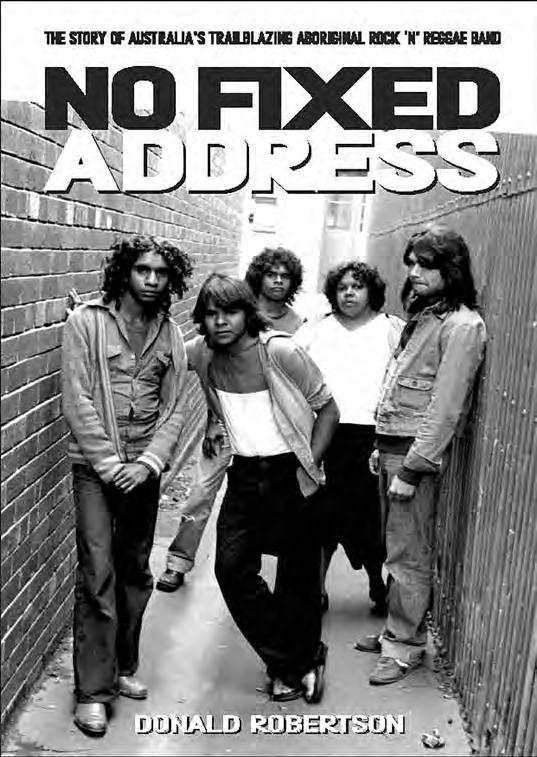
SIC U M NE SW
A powerful new book tells the remarkable story of this ground-breaking Aussie band.


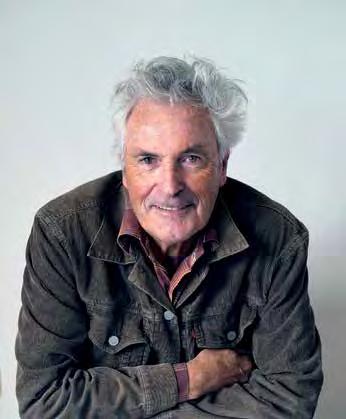
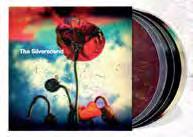
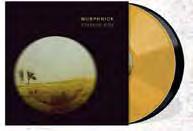

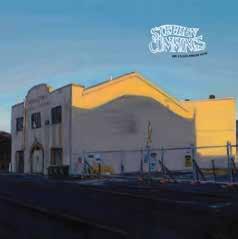
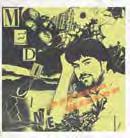
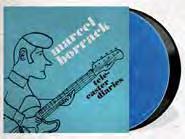
David Lindley, the eclectic slide guitarist and multiinstrumentalist who played on some of Jackson Browne’s most successful albums, died on Friday March 3. He was 78. No cause of death has yet been disclosed but a fundraiser to cover medical expenses from an undisclosed illness was run online earlier this year
Lindley also worked with Warren Zevon, Ry Cooder and Linda Rondstadt, formed the band El Rayo-X and was heard on numerous Los Angeles studio sessions in the ’70s and ’80s.
Lindley established his name first through the psychedelic folk-rock group Kaleidoscope in 1966 and then, after working with singer Terry Reid and playing on his acclaimed album River, he became an indemand session player after playing on Leonard Cohen’s debut album Songs of Leonard Cohen. While he missed Jackson Browne’s debut album due to touring duties he played a major role in its follow-up For Everyman in 1973 and Late for the Sky in 1974. Lindley also played a prominent role in the 1977 hit album Running on Empty, also featuring on vocals on the cover version of Maurice Williams’ ‘Stay.’ Browne and Lindley recorded the double live album Love Is Strange: El Vivo Con Tino which was released in 2010.
Lindley also played on Linda Ronstadt’s Heart Like a Wheel, Warren Zevon’s self-titled debut album in 1976. Lindley played on the Ry Cooder studio albums Jazz (1978), Bop Til You Drop (1979) as well as four soundtrack albums. Lindley also worked with Crosby & Nash, Rod Stewart and played on more than 100 other sessions, including Bob Dylan (Under The Red Sky), Ben Harper, Iggy Pop and John Prine (The Missing Years). He released four solo albums as well as collaborations with Wally Ingram, Henry Kaiser and Hans Naser.
David Lindley was born in San Marino, Calif., on March 21, 1944, grew up in a musical household and started playing banjo and fiddle. He became a five-time winner of the annual Topanga Canyon Banjo Contest and attended La Salle High School in Pasadena, where he formed the folk group the Mad Mountain Ramblers and met Chris Darrow playing in Los Angeles clubs and formed Kaleidoscope, releasing the debut album, Side Trips, in 1967. While he became well-known for his work with Browne, Zevon, Cooder and Linda Rondstadt he formed the new group El Rayo-X which released its debut album in 1981. Rondstadt produced their album Very Greasy in 1988.
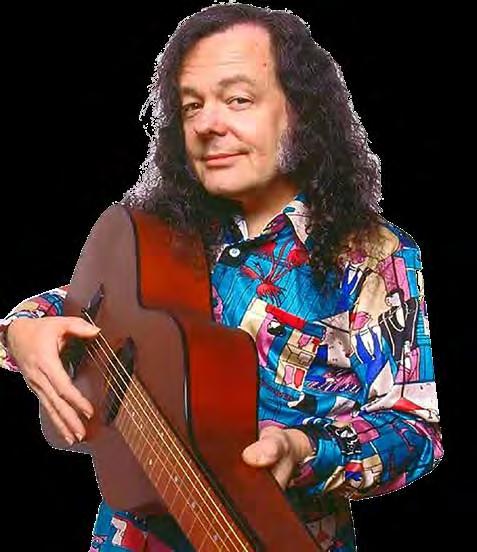
Australian singer Jimmy Barnes posted: “I had the honor of working with David Lindley when he played slide guitar on the Freight Train Heart Album. He was truly a beautiful musician who brought songs to life. RIP David. The world has lost one of the greats.”
Bassist Leland Sklar, who worked with Lindley, posted: “Lost one of the most truly unique and special musician and friends EVER! There was no other like David Lindley. Forever in my heart, soil and groove. My heart is with your wonderful family now. Going to miss you my brother.”
Americana singer-songwriter and guitarist Jason Isbell tweeted, “The loss of David Lindley is a huge one. Without his influence my music would sound completely different. I was genuinely obsessed with his playing from the first time I heard it. The man was a giant.”
Warren Haynes posted: “I’ve always put David on a short list of major influences on my slide playing- especially on the melodic side. Often times when I’m approaching a song or solo in a major key Lindley’s influence will appear automatically. His style was so vocalesque and his sense of melody was a deep well.”
“I want to join in the resounding chorus of appreciation for his gifts, but nothing I write seems quite good enough,” wrote Jackson Browne. “Words have never been enough to describe what David Lindley brought to a song. I played with David for the first time in a dressing room at the Troubadour in 1969. We started to play my song These Days, and my world changed. His playing was so emotional, and immediate - it cast a spell over me and everyone there. It didn’t matter that he had never heard the song before. What he was playing made it more emotional and more real than it had ever sounded in the years I had played it alone.
“David was in England playing with Terry Reid when I made my first album. When he came back, I tried putting together a touring band with him, but it wasn’t as good as with just the two of us. I decided we would tour that way, as a duo, despite having a single on the charts that required drums, bass, and congas to play properly. We didn’t even play it. Eventually I did have a band with him, and it was a rich and varied musical environment. We co-headlined a national tour with Bonnie Raitt. That was the band on my third album, Late For The Sky.
“David is a very large part of me - who I became, and who I remain. No one ever played like him. In my later bands, after David left to form El Rayo - X, we would play the songs’ structure, more or less based on what he had played, but it was, and still is today, up to the players to summon their own Lindley nature. Good luck! It’s a very good thing to go for. He didn’t play the same thing each time. He was always exploring, always hearing something new. Always in the moment.
“My own world is shattered by David’s passing. He was my friend and my teacher. It was with great pleasure and certainty that I revisited our special connection over the years. I guess I thought that he would always be around.
“I’ve been struggling to write something and post it for the past two weeks. It was hard to begin, and it’s hard to conclude, I guess, because I don’t want to let him go. David was kind to everyone, and so funny. Incapable of uttering a dishonest word, or playing a dishonest note. There will be tribute concerts, and a documentary about him, for sure. There will be ways for us to continue to celebrate his life. And we all know there will never be another David Lindley.”
David Lindley was a long-time resident of Claremont, Calif. He is survived by his wife, Joan Darrow — sister of his Kaleidoscope bandmate Chris Darrow — and their daughter, Rosanne Lindley.
SIC U M NE SW
BY ANNE MCCUE
Smiling Through Tears
- Peter Cooper’s Celebration of Life
Firstly, let me just state right away that I am not attempting to write an obituary about someone who was a master at writing obituaries. In fact, upon the untimely passing of Peter Cooper, people in Nashville asked, who will write his obituary if Peter Cooper can’t do it? Because he wrote the obituaries for legends such as George Jones and Johnny Cash.
It’s hard to say ‘Peter Cooper was…’ anything really, as Peter should still be here with us, writing those stories about country music, reminding us about those who have passed on and those who are still here. He was a great mythologizer and at the same time was drawn into the myths about those song writers of yesteryear. He should still be here. He was only 52, after all.
It seemed like he had an endless supply of energy, writing three columns a week for The Tennessean, recording albums with his heroes such as pedal steel guitarist Lloyd Green and classic country song writers like Tom T. Hall and Mac Wiseman, writing songs with the likes of Don Schlitz, who wrote The Gambler among other hits, becoming a Senior Director at The Country Music Hall Of Fame & Museum, attending The Sounds baseball games every week and traveling interstate to see other games in Atlanta and Chicago. Managing to include baseball metaphors and dropping names whenever possible; being a husband, a father and a touring musician. He seemed to have it all and to do it all.
I attended the celebration of his life at The Country Music Hall Of Fame & Museum which comprised of, in the words of his brother Chris Cooper, “A stage full of brilliant artists and an audience full of creative and empathetic people, even in his absence, brought together by Peter.” Everyone who spoke, spoke through tears and those who sang, well I don’t know how they got through the songs.
He was a most popular guy, always friendly, inclusive and a champion of the underrated artist such as Jon Byrd. “Peter never missed a chance to tell the world that Jon Byrd was the best country singer he knew and whenever Jon made a record Peter would tell people to listen and pay attention,” said his brother.
He was most certainly the hub in a wheel that represents a Nashville that is swiftly being pushed to the curb - that old Nashville that was all about music. With Peter Cooper gone we have lost a lot. The immense knowledge, the wit and charm and the talent to be able to put it all into words.
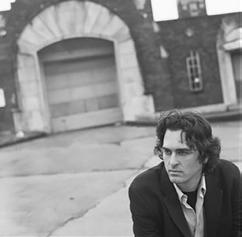
In his 2017 book, Johnny’s Cash & Charley’s Pride, he wrote that “objectivity is the mortal enemy. Now, for sure, you need a good bull**** detector, and you shouldn’t rant, and you shouldn’t cheerlead. But objectivity is dispassionate. And we’re in the passion business. We’re trying to make people feel something different than what they felt before they read our words.”
In the year 2000, Peter moved from South Carolina to Nashville to become the music writer for The Tennessean. When he got that job he could hardly believe it and he just kept going in his quest to find all that life had to offer, carousing with the likes of Cowboy Jack Clemmons and Guy Clarke and continuing his obsession with the game of baseball.
In a town that demanded you only be one thing, he became three - journalist, author and musician, making two solo albums, two with Eric Brace, plus producing other acclaimed albums such as I Love: Tom T. Hall’s Songs of Fox Hollow which was nominated for a Grammy.
But every one of us is composed of the light and the dark. “He absolutely sucked at taking care of himself,” said his brother, Chris. “He was brilliant, frustrating, beautiful and kind.”
His best friend, Baker Maultsby, spoke of when he first met Peter at college, describing him as “funny, idealistic, heart charging, fairly opinionated sometimes. It was 1988 when we met, but Peter was not into the pop music of the time. Merle Haggard was Peter’s thing and I don’t know for sure but he was probably the only freshman male student who was knowledgeable about every twist and turn of Nancy Griffith’s career in songwriting,” going on to say that “Peter’s real passion all along was music…”
Too young to attend the actual shows, as a high school kid in Washington D.C. he used to skip school to hear bluegrass bands such as The Seldom Scene at their soundchecks.

According to Maultsby, Peter’s first music review as a journalist was of a Guy Clarke show. He took along a pal from his job at Radio Shack who “stated rather loudly that he ‘wished Guy Clarke was his daddy.’ Peter put that in the lead of the concert review. His editor liked it and gave Peter more opportunities to write and his career grew from there.”
Whispering Bill Anderson spoke eloquently before he sang. “I shouldn’t be here tonight,” he said. “I should be down at the Atlanta Braves Spring Training Camp and Peter Cooper should be down there with me. I talked to Peter about 40 minutes before he had his fall. We talked about going to spring training. We talked about going to church on Sunday. The last thing I said to Peter was, ‘I’ll see ya Sunday and I told him I loved him.’ ” Eric Brace, with whom Peter had a duo for years, spoke of Peter’s humility. They had known each other for quite some time before he even knew Peter was also a songwriter. “He hardly ever talked about his own songs,” said Eric. “At a guitar pull one night, I heard Peter unleash a blue-ribbon song that made me and everyone there rethink their thoughts about this tall man with the good head of hair,” Eric once wrote in The East Nashvillian Peter’s daddy, as they say in these parts, was a preacher named Wiley Cooper who somehow got through his speech. “… for all of us who love him to smile through our tears…” he said. “A gut level understanding of what love can be. A Peter who could not do the writing, a stranger Peter. You welcomed that stranger. Tom T. Hall wrote ‘ all God’s children got a place in the choir.’ Peter had a tough time sometimes believing that about himself. But you helped him even through the last difficult months to accept his place in the choir.”
Before he played his wonderful song, A Fond Farewell, Jon Byrd said, tearfully, “Be a better friend, be somebody’s champion.”
Photo by Deone Jahnke
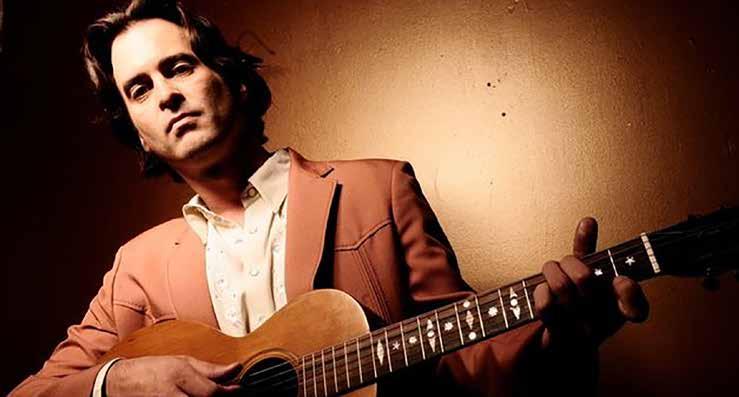
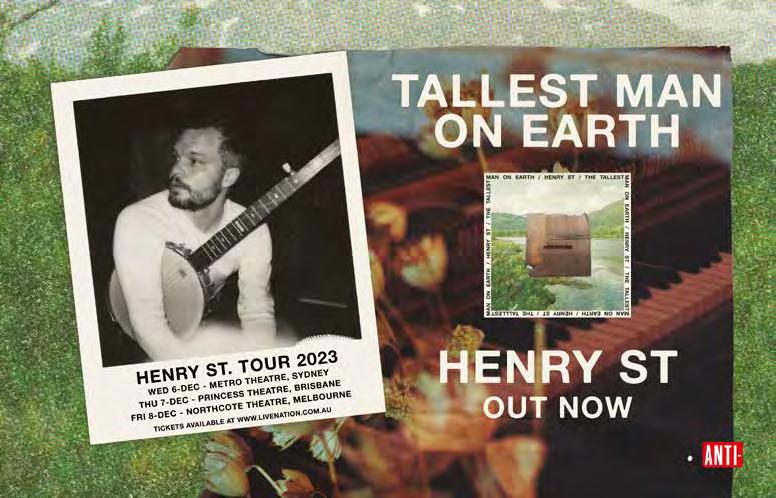 Photo by John Portpilo
Photo by John Portpilo
Perth-based Lucky Oceans is the musical director and producer of Songs For Freedom. When we meet on Zoom to talk about the project, he is still on a high having just returned from the Grammy awards in Los Angeles where his band Asleep At The Wheel was nominated for the 28th time (with 8 wins), this time in the Best Americana Performance category.
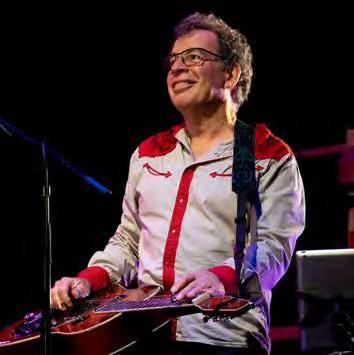
Songs for Freedom is an uplifting collection of original songs created by Ngarluma and Yindjibarndi artists in the Pilbara town of Roebourne, together with special guests. The album and subsequent ensemble concerts have been created under the aegis of Big hART, the arts organisation that has worked with 50 disadvantaged Australian communities to tell their stories and support their people.
“It was so wonderful,” enthuses Lucky. “Ray Benson and I, we’ve known each other since we were four, so we go way back. It was just very nice to, to reconnect and be healthy together and reflect on how we’ve navigated music in our different ways.” While Benson has helmed Asleep At The Wheel for more than fifty years, the band’s co-founder Oceans has been living in Perth where he became the voice of world music on ABC Radio National and is now somewhat of a national musical treasure, occasionally heading The Zydecats, guesting on albums or producing. Of all his local projects, Songs For Freedom is set to become one of his most highly acclaimed. Though the ensemble on the album has only had a few performances so far they have elicited rave reviews.
“So, the story of how I got involved to be musical director of Songs for Freedom is a long one,” explains Lucky in his characteristic drawl that is so much missed on radio these days. “BIG hART is based in the northwest of Tasmania. Their motto is Art for Social Change. They’re led by a guy named Scott Ranken, who’s a playwright, and he did a play about Albert Namatjira.”
Big hART, according to its website, was set up thirty years ago as an innovative experiment to find new ways of dealing with
disadvantage. Motivated by the closure of a paper mill in the industrial town of Burnie, Tasmania, the orgnisation began working with the community, creating high quality art to transmit their story. The latest project involves the people of Roebourne, WA, with whom BIG hART has been working for more than a decade.
Songs For Freedom grew from Songs for Peace, a community response to decades of community conflict in Roebourne. An annual series of music and songwriting workshops is held in the community and prison ending in a large outdoor annual concert featuring nationally celebrated artists from a range of cultural backgrounds, collaborating with local musicians. Guests have included Archie Roach, Paul Kelly, Vikki Thorn, Emma Donovan, Bill Chambers and Brian Ritchie of The Violent Femmes.
Songs for Freedom was recorded from April to December of 2022, in Perth and in Roebourne and the album is being released to coincide with the first of a series of Songs for Freedom live concert events to take place throughout 2023. Its foundations lie in the workshops involving the family of John Pat, whose death in custody in Roebourne in 1983 triggered the Royal Commission into deaths in custody.
“You could say that the show is greater than the sum of its parts but you could also say that all its parts, all its people, have grown through being a part of this amazing intercultural experience.”
Lucky Oceans. Photo by Laura Dunley.
“Roebourne became an Aboriginal town,” explains Oceans. “The Aboriginal people used to live on big cattle stations where they basically worked for nothing in exchange for food and being able to stay on their own land. There was, there was a big strike in the 1940s that preceded the Wave Hill walk off by many, many years. The result of that strike was the Aboriginal people got kicked off their land and they, they drifted into Roebourne. The elders of that town met with BIG hART and invited them in.”
“We started the Songs for Peace concert and I became the musical director of that concert,” continues Oceans. “So, people are very welcoming. Ever since I’ve been in Australia I’ve played with Aboriginal people: because I played pedal steel guitar and country music is so much a part of the scene. That first trip to Roebourne I was with David Hyams, Harry Hookey and Bill Chambers. We had a concert in Roebourne High School and all the kids had hoodies on and were playing video games. I was going, ‘How the hell is this gonna work?” Bill goes, “I’m gonna play the oldest song. I know this is Jimmie Rogers. And he started playing Jimmie Rogers and everyone’s ears perked up and they were totally into it.”
“Country music is so much a part of Aboriginal culture because it tells stories and it’s a storytelling culture. So, I became a regular, we started these Songs for Peace concerts. Archie Roach came up the first time we got him. He came in the prison and listened to the inmate’s songs. Gradually we started building a repertoire of enough songs that we’d written in prison and in the community that, that we could do an entire concert of all those songs. Vikki Thorn of The Waifs would come in. Next time, she said, “I’m gonna write songs. I’m gonna do what’s done here.” She wrote this beautiful song, ‘Sweet Desert Flowers’ that’s on the album.
“So, slowly it, it has changed from being a kind of variety show to a show that features these very powerful songs. For me, it’s been a learning experience on so many levels:
facilitating the songwriting workshops, picking, plucking a song out of thin air.”
The Freedom Collective that Lucky has gathered together features, apart from Vikki Thorn, lead vocal contributions from Naomi Pigram, Patrick Churnside, Fred Ryan, Kendall Smith, Kankawa Nagarra (Olive Knight), Jay Jarome and John Bennett. The release of Songs For Freedom was preceded by the first single from the album, ‘Songs of Freedom, was written and sung by Fred Ryan, one of the many outstanding voices that you are going to want to hear more from.
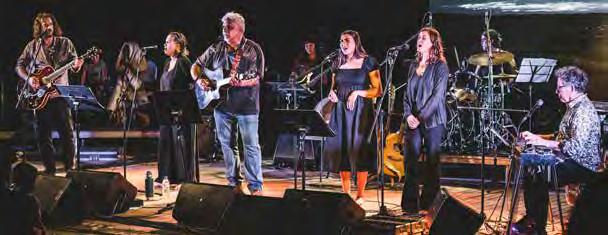
“Everyone put in their different ideas,” recalls Lucky of the album’s recording. “We got this song about how money can be so harmful. Then we got Olive Knight, who’s also known as Kankawa Nagarra, to sing it. She’s an incredible woman from the community around Fitzroy Crossing who does blues.
“One of my great pleasures of this project is bringing people into it who really enjoy doing it. Vikki Thorn is amazing in her ability to pull a song out of the air. We got Kutcha Edwards involved and when I was talking with him, he says, ‘I’ve been going into prisons. I’ve been doing a radio show in prison for 30 years.’ I went, well, ‘We can learn something from this guy’. Kutcha came and joined us and he is just such a powerful performer and he understands the campaign side of the concert and album, which is to lower rates of incarceration of indigenous children. So, it can be an inspiring and confronting thing to other people who come up and see it. But, but mostly inspiring.
“Naomi Pigram is another one. She’s Stephen Pigram’s daughter and she came first year. She wrote songs with the prisoners, she wrote songs with Tootsie Daniel, who’s a prominent elder, and she carried a lot of those voices. She’s become an integral part of the show. So, you could say that the show is greater than the sum of its parts but you could also say that all its parts, all its people,
have grown through being a part of this amazing intercultural experience.”
“We recorded parts in Perth and parts in Roebourne,” he adds, “and recorded all these wonderful songs that had either been written in prison or in the Roebourne community or brought by the visiting artist. Another visiting artist who I thought would be good, was Fred Ryan, who lives in Karratha, half an hour up the road from Roebourne. This guy can write a song! Why don’t we get him involved? I finally convinced him to come along to a songwriting session and he knew his stuff. He was really good. Then he drives back to Karratha and half an hour later he sends me this song by text and he says, ‘What do you think of this?’ It’s ‘Songs of Freedom’ and to me it’s like an absolute killer of a song. It says so many things in such a lyrical way. I want people all over to Australia to hear this because to me it’s brilliant.
Fred Ryan is just one of the names we probably haven’t heard over here on the East Coast and who has been brought to prominence through this album. There’s some amazing singers and amazing songs that deserve to be heard more widely.
“I hope so,” agrees Oceans, who says that they are hoping to bring the stage show to as many places as possible in the next year or so. It would seem a certainty for Womadelaide and even overseas festivals.
“It’s all about sitting down and yarning, talking around the table and giving everyone their voice and then finding your way to the solution in a democratic way. I found that’s a great way to do songwriting. One Perth reviewer called this collaboration the most important art being made in Australia today. It’s a show that has evolved from this kind of loose show in Roebourne to a tightly scripted show with beautiful projected visuals in the back. So where, wherever it goes it’s an intercultural experience because there’s aboriginal and white people in the audience and on stage. So, I feel privileged to be a part of this thing and to play a lot of pedal steel guitar as well!”
Ensemble in concert. Photo by Joseph Penipe Photography.
Naomi Pigram
with Corrugation Road and played the lead in short film Kulli Foot. She’s supported artists including Missy Higgins and Archie Roach. Her lead role performance in 2013 film Dark Whispers (written and directed by her sister Ngaire) earned a WOW award. Pigram has been involved in the SFF project from the beginning. “Lucky [Oceans] played on my first album. He asked if I’d come to Roebourne for some music workshops. I did the year after and every year since.”
“I’ve got a bit of a social work background so [talking to people] comes naturally to me. I loved that we could sit at a table and talk about our similarities and experiences. Have a laugh. That first year in Roebourne, I think I did a little bit more healing myself. The whole week sitting around the campfire at the John Pat Peace Place. The feeling of peace and calm was overwhelming. People talk about my country [The Kimberley] having that impact on people, that Big Spirit country. But Roebourne really did it for me that year. The community wrapped me up. The Pilbara has always had a piece of my heart. I was there for two years.” She and her Pilbara partner have a baby boy and will marry later this year. “All the ladies I met in the first couple of years were introduced as my nanas. Then Gav comes along and they’re all my aunties.”
on stage with her and sings along. They own that. Roseanne is proud she’s done that for her family. Along the way, my own nephew was incarcerated in a detention centre. Last year, I wrote ‘Justice Has No Plan’, more of a personal account of my frustration. Our kids are our kids. Holding a child criminally responsibility at the age of 10 is insane. At 10 I was building Barbie houses with cardboard boxes.”
The Pigram name stands tall in Australia. Naomi has forged her own path in the Arts advocating for her people at a grass roots level.
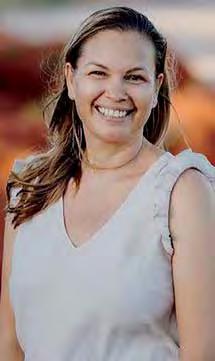
Hollywood talks about ‘nepo kids’offspring of established stars. The Pigram name stands tall in Australia. Naomi (daughter of Stephen from Broome’s Pigram Brothers) has forged her own path in the Arts advocating for her people at a grass roots level. With the Songs For Freedom project, she puts music to the stories of incarcerated people and their families. Musicians are effective messengers, reaching more hearts than any loud gaggle of politicians or mass media. When someone suggested Naomi Pigram go into politics, she said, “It’s good to have a big voice. But in my part of the world, we give our message in a calm, peaceful way. You whisper. People go, ‘What’s that?’ With music, you can’t ignore your physiological response to a sound. Once you’ve tapped in there, ears open up.”
At 15, Yawuru and Wadjarri woman Pigram starred in Bran Nue Dae cabarets. She studied dance at NIDA, toured nationally
“There are some really talented musicians and writers in Roebourne. The way they can articulate a story, the language is so descriptive and emotional. The way the Elders write and express themselves… the English words they use. When you hear it in Language, it hits you even more.” Three traditional ‘Tjaabi’ songs feature words in Language and the rhythmic clap of wirra (boomerangs). They frame the collection in a profound and evocative way. “When a song lands properly, coming from the right place inside the artist or singer, it has incredible impact.” Along with lead vocals, Pigram was involved in writing several SFF tracks. Written with Roseanne Pat, ‘Tribute To My Family’ blends Country and Islander sonic influences. “Roseanne had three pages of words she’d held onto for years. Me and my friend Tyson Mowarin (guitar), started singing her words back to her. This overwhelming release happened and she burst into tears. I really felt that healing power…to hold her in that space. The universal language of music and the power of being heard. It’s something she’s now proud of and her little girl gets up
From the 100+ songs written, track selection was tough. “That’s Lucky’s job,” Pigram laughs. “I don’t envy him. I wrote ‘Someone To Someone’ with the Roebourne Prison ladies. It’s not on the album but I tell the story at concerts. At an [early] workshop, we gave the women notebooks each to write a little bit about themselves. Going back, I got to the last book. It had just one line: “I am nobody.” It shocked me. After all that conversation, about being mothers, sisters... It’s not good enough. She’s someone to someone. I immediately wrote the song which they play on Ngaarda radio. I said, ‘You know, we’re pretty staunch black women. Imagine if we looked at things like ice addiction the same way we look at someone when we’re territorial about our families! We’d say, ‘F’n bullshit. C’mon I’ll fight ya.’ They all busted out laughing and we talked about their hopes for when they get out.” It’s been an opportunity for my own professional and personal development; how I now facilitate a workshop.”
Reviews celebrate the recent Perth and Tasmania concerts. Pigram was joined by her daughter on stage, singing harmonies with Kutcha Edwards. “Sharing the stage with people like Kutcha - his energy is just incredible. Tasmania was huge. We kicked it in the arse that night.”
I note the addition of harmonica on SFF track ‘Justice Has No Plan’. She laughs, “Dad got up the first time we sang that one in Perth. Out of nowhere he started smashing out the harp. Now that’s in the arrangement and it’s a song about his grandson too. At a detention centre a couple of years back, with all the little homies watching, I asked the drummer to give us a beat and the boys started rockin’ out a bit. They love their hiphop and RnB. Pat [Churnside] smashed out this Spanish rap then they all got up to grab the mic and have a turn. That connection through music made a better day for them. It’s a good day at work. You can’t beat that.”
Kankawa Nagarra
With powerhouse gospel vocals Nagarra rivals the likes of Koko Taylor or Big Mama Thornton.

Singer-songwriter Kankawa Nagarra can claim a unique range of musical influences. Growing up in a remote community south of Fitzroy Crossing, she first absorbed traditional songs around the campfire. Then came one style of whitefella music. “I started off in the mission in choirs. Then I realised that my voice was different. I still love being in choirs…but my voice wasn’t suited for it. I started listening to records that suggested sort of bluesy rock’n’roll.” With powerhouse gospel vocals Nagarra rivals the likes of Koko Taylor or Big Mama Thornton. Or a 21st century female Howlin’ Wolf. Meanwhile, the outback’s big love has long been country music. She acknowledges, “It’s all country. Charley Pride, Slim Dusty, Dolly Parton. Also country rock and community reggae. The first rock’n’roll I was attracted to was Buddy Holly. I was mimicking him even. Then I turned towards the Southern Mississippi style of blues.” She toured with Hugh Jackman

in 2019. Late in his life, after a long career in music, RL Burnside finally found fame. Nagarra oozes Blues and deserves similar attention as a premier vocalist in the genre.
Following the recent Songs For Freedom concerts, Nagarra was in Victoria performing with Archer. Her SFF track ‘Money’ is a raw blues masterpiece, featuring pedal steel and keyboards. Co-written with a team including Yindjirban woman Michele Adams, it highlights the folly of the pursuit of wealth since colonisation. ‘Money, where are you from? / We had other things that made us rich…’ “At each workshop, we’d choose themes personalising different issues. There was one on COVID at the time. At another one, the song ‘Money’ came about.” On the mission, Nagarra was re-named ‘Olive Knight’. Indigenous youth continue to lose connection to culture. “The system hasn’t changed really. Or the issues young people face. You’d think there’d be an alternative reaction. The background of trauma behind [often minor] crime, done in the spur of the moment.” Nagarra celebrates the mix of genres on the collection. “And the Tjaabi –special eh! Just awesome.” >>>
Vikki Thorn
song to change peoples’ hearts . This project wasn’t just about making music and putting on a community concert. This community has a story to tell and they are willing to entrust others to perform and share deeply personal songs alongside them in order to bring about change.”
Fred Ryan
Two tracks with Fred Ryan at the helm strive to celebrate the nation. ‘Songs Of Freedom’ seeks to unite us with an inclusive anthem. ‘Little Town, Big Heart’ applauds the welcoming embrace of one part of the northwest.
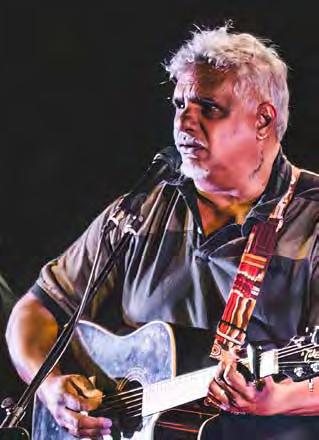
kinda sat myself in the space of someone on the inside. Not necessarily in prison but someone stuck in something. We trap ourself inside ourselves sometimes. To be free for a little while. To give ourselves a chance to be free.” The song builds to a chorus of voices, reflecting the power of community and sharing. Feeding the spirit. They sing, ‘Let the words take me home’. “It’s a coming together song - whatever that one song may be - as a proud nation.”
Vikki Thorn (The Waifs) arrived in Ieramugadu (Roebourne) in 2020 for the workshops and concert.
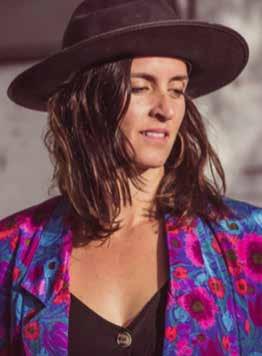
“Late in the day, we were invited to go out on country with some community members for some dinner round the fire. It was a beautiful evening and the sun was setting in the desert . Allery, Jeanie, Wendy and Beth were making damper, the kids were playing in the dust. I noticed how many flowers were in bloom and asked the women about them. They told me names and uses for the different flowers and when they bloom etc… Lucky played some music around the fire. The next day at the arts centre, when we sat down to try writing a song, I suggested we write a song about the flowers and invited anyone to share thoughts or stories about them. There were mostly women and I wrote on a whiteboard while they talked. The lyrics for ‘Sweet Desert Flowers’ came together pretty quickly. I tried to change some of the words to fit into a rhyme scheme and one Nana said “Bugga the rhyme - that’s not the meaning.” So I learned pretty quickly to let go of what I knew or wanted and just to listen and help capture their thoughts. When everyone was happy with the words, the music was easy because they all love country music.
“I hadn’t done much collaboration with other projects before working with Big hART. It feels different because you are part of a larger change brewing in this country. I have always believed in the power of music and
Invited by Lucky Oceans to join the SFF project, Ryan says, “Lucky worked on previous albums I’ve recorded. The workshops were an eye-opener for me. All sitting around a table throwing ideas about. Strumming a melody by the end of the day. I was lucky enough to be welcomed into the community. Connecting with music and telling their stories - they warm to that pretty quickly. You don’t go in with the intention to do something individual. Being very much a group effort makes it more meaningful.”
Ryan’s vocals are made for country music, the sound he grew up on. “Listening to radio in the outback, that inspiration has always been in my blood.” He was around 15 before taking up guitar. “We could never afford one where we lived. We’d travel into town, with dogs on the roof rack…the real outback experience. On the way back, there were lots of stations and pastoral areas where we had family working. We’d stop and see everyone. My cousin had a guitar and at the best of times it had four strings,” he laughs. “Listening around the campfire, it struck home for me. You put words to music, it becomes a poem, a story then a lifestyle.”
‘Songs of Freedom’ suggests an alternative anthem to our one-sided ‘girt by sea’ version. “How do we come together as a country and put that in words? I
‘Little Town, Big Heart’ stemmed from the same Roebourne community. “My wife’s from that area. It’s like a thank-you note to those people. Me not being from there, sitting, observing how they welcome people in, regardless of where they’re from. Coming together when they need to. It’s magic to watch. I’ve done community shows there with a local band. You see the volunteers come out and that always pulls a string for me. Their tireless efforts. It’s a very culturally strong area.” The annual concerts have been especially moving for Ryan. Including being starstruck at sharing a stage with idols like Stephen Pigram. “The (Tjaabi) that Patrick sings are a crowd stopper, as soon as he starts singing. I’m over the moon that Lucky pulled me over to this.”
Fred Ryan. By Joseph Penipe.
The octogenarian founder of swamp pop Tommy McLain meets the enfant terrible of Louisiana rock’n’roll and co-founder of Lil’ Band O’Gold on a new album that features a duet with Elvis Costello and contributions from Nick Lowe, Ivan Neville, Van Dyke Parks, Tex-Mex icon Augie Meyers! And they are bringing le bon temps roulez back to Australia together.
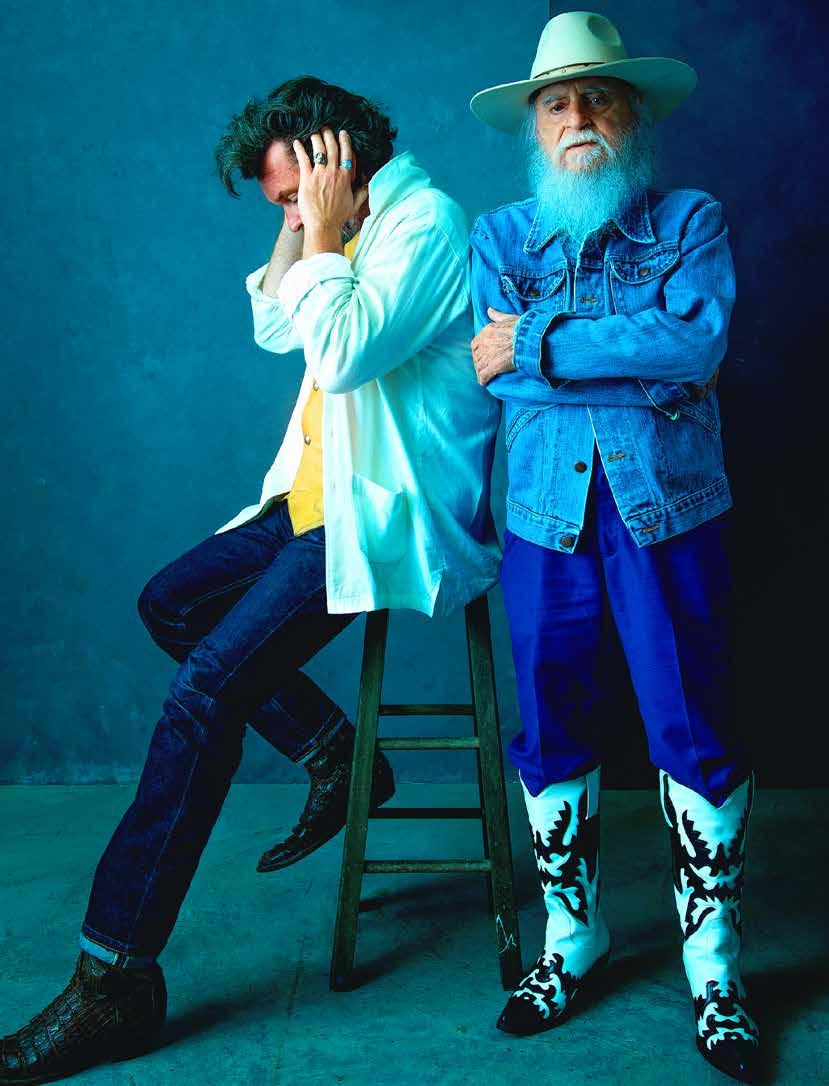 By Trevor Leeden
CC Adcock and Tommy McLain.
Photo by Greg Miles.
By Trevor Leeden
CC Adcock and Tommy McLain.
Photo by Greg Miles.
When it comes to Tommy McLain, bandying around such terms as ‘legendary’ and ‘iconic’ come with the territory. By any measure, the 83-yearold swamp pop veteran is a dynamic force of nature, a musician who has lived the highs and lows and, on the back of his outstanding album I Ran Down Every Dream, is enjoying an unexpected career resurgence.
Mentioning that the album is one of 2022’s finest elicits an unexpected response from Tommy: “God bless you son, that’s better than money to me.” To further promote the album, McLain and his producer CC Adcock are playing a series of dates down the east coast, and it will be McLain’s first visit to Australia. His goodnatured enthusiasm radiates down the line as he states: “I’m talking to you from Louisiana on the eve of my very first visit to Australia. I hope you love us down there ‘cos we’re gonna bring you some swamp pop, that’s for sure. We have a really good show, I can’t wait to get down there.”
Album producer CC Adcock concurs: “I said, hey Tommy, we gotta go to Australia, I told him it’s just the other side of Texas and hopefully when I add something to his coffee he won’t know any different! He’s just amazed that he gets to go out and perform and meet new fans, he’s the embodiment of rock’n’roll, the real deal, and he wants it like an 18-year-old kid back in 1975.”
Of course, Jonesville’s most famous son isn’t an overnight sensation, having first recorded with Clint West & the Boogie Kings before going solo and hitting the jackpot in 1996 with his version of ‘Sweet Dreams’.
“I’m not tootin’ my own whistle,” states Tommy, “but I outsold every artist that ever sang that song, including Patsy Cline and Don Williams. I went country and the I went pop, and I got all the kids, #14 on Cashbox and #15 on Billboard. It was quick, a lot of good times, I went through a lot of money and a lot of hard learning.” A run of regional hits followed including ‘I Need You So’, ‘Try To Find Another Man’, ‘Just Because’ and ‘Before I Grow Too Old’, but when the hard living eventually ran him down, salvation came from his faith and in the cloth, and now his life is one of contented happiness.
Given four decades have passed since his last album Backwoods Bayou Adventure, it begs the question “Why now?”
“People ask what I did for 40 years but here in Louisiana we play all the time,” says Tommy, “casinos and night clubs, they’re calling you to play every weekend and play the same songs over and over. And I decided to stop playing casinos and see what God has got in store for me. Then CC calls up outta the clear blue sky and says ‘I wanna come see ya, man, I’m getting’ lonesome for ya.’ So, I said come on down here son, and when he got here I got on the piano and played him some of them tunes I been writing for years. Let me tell ya something, by the time he got back to New Orleans he was excited.”

"It’s a great, great time to come out and listen to some swamp pop, it’ll thrill your soul."
Tommy McLain
"Tommy’s a force of nature, the Benjamin Button of swamp pop and a genuinely delightful soul.
CC Adcock
"It’s a great, great time to come out and listen to some swamp pop, it’ll thrill your soul."
Tommy McLain
"Tommy’s a force of nature, the Benjamin Button of swamp pop and a genuinely delightful soul.
CC Adcock
Recalls CC: “Tommy had been very ill, and I just went to do a wellness visit with him, and he laid all these songs on me and I said we just gotta record those tunes.”
As the interviews continue with Tommy McLain and CC Adcock one thing becomes apparent, they are both very much at peace with the hand they have been dealt in life. Three decades apart in age, the unlikely relationship between the octogenarian founding father of swamp pop and the enfant terrible of Louisiana rock’n’roll (Lafayette’s King of Charisma) is based upon a genuine love for one another as both people and musicians.
However, their association goes way back. “It does” says CC, “and that 30-year gap feels like it’s closing every hour! Growing up in Lafayette in the 80’s we used to see Tommy and Warren (Storm) at matinees. I loved Tommy’s voice: he had melodies I could remember and he was played on the radio all the time in the 60s to 80s; he was called the Cajun Rod Stewart…haha. Tommy’s a force of nature, the Benjamin Button of swamp pop and a genuinely delightful soul.”
“But now I’ve got this new album and it’s doing really great for me” says Tommy, “these cuts are really great. Listen to ‘No Tomorrow’s Now’, you may hear it sad but I got that vibe in my voice and it’s SPIRITUALISM. I write loneliness, songs all about living and dying, it’s how you write the words, it’s how you make that step and doing everything your own way. I also got ‘London Too’ on it; CC says he’s got something for me to hear and instead of the fade off this harmonica comes in and CC says, ‘that’s Mr. Willie’s harmonica player Mickey Raphael.’ I said, ‘hot dang!’ How cool is that? I wish Willie would do one of mine then I might get me one of them Porsches! Although I might be a little too old for one of them, “better stay where I’m at with my feet on the ground and fly every now and then –it’s not the miles I’ve been, just the stops I’ve made.”
CC recounts the moment he heard ‘London
Too’: “We were in London in 2019 trying to hustle up a deal playing for the guys from Decca. I said ‘Tommy, we’re gonna give them our four strongest songs, don’t go off script.’ Caroline Elleray (head of publishing) is crying like a baby and I’m thinking ‘we got 'em hook line and sinker, me and Tommy are gonna buy a Cadillac!’ Then Tommy says, ‘I got another one, you don’t know this CC, I’m gonna do it by myself!’ And he starts ‘I got a call from London just the other day…’ and he was singing about his life and the things we’d literally just done, it was about life, and that’s Tommy.”
There’s a stellar list of friends helping out on the album - Elvis Costello, Nick Lowe, Augie Meyers, Van Dyke Parks - and a host of New Orleans luminaries including keyboard ace Jon Cleary, Ivan Neville, Lil’ Band O’ Gold alumni Steve Riley (“he’ll get your heart, that boy can play!”) and David Ranson, as well as the Godfather of swamp pop Warren Storm.
“Oh yeah, those guys jumped right on it, what a great cast of minstrels and entertainers, we’re a great big family” enthuses Tommy.
“I said give the boys a call and all of a sudden here’s Elvis and Nick writing tunes for me and putting lines in my songs, how cool is that, dude! And Nick’s son Roy plays drums on the record too.” Adds CC: “it was Roy’s first ever recording session and Nick has elected to send him to Louisiana for a year for a gap year work experience, he’s entrusted Roy under my protective wing – what can possibly go wrong!!”
Having such an intertwined history with Tommy, we talk about Warren Storm. CC takes up the story: “It’s such an important story to tell. This was the last recording Warren made before his passing. Warren was a Covid casualty You gotta understand that Tommy and Warren were like the Cajun Mick and Keith, they did thousands of gigs together. We were in London in 2020 when one of the great music moments in my life occurred. I was with Tommy when the news about Warren came down from Steve (Riley) and he’d been in hospital unconscious for a week. Tommy was praying for Warren every night. I woke him and told him the news. We had a cry and then immediately we started laughing and howling and celebrating what a ginormous kid Warren was.
“Next day we had BBC interviews scheduled and Tommy was suffering survivor’s guilt, he was miffed in an angelic way that Warren wasn’t ready for heaven and felt he needed to be there for his buddy. Tommy’s a man of the cloth, very religious, and he says, ‘I’m ready to go, why are they taking Warren?’ So, I said ’you got more work to do, the good lord wants you to do something’. And then Robert Plant calls, who has a lot of history with all of us, and he says to tell everybody, ‘Warren was a real driving wheel’ which speaks to his unique drumming style. Warren was essential when we formed the Band O’ Gold, he was our drummer and focal point and amazing singer, and Tommy came on board as an auxiliary member and come out and sing his hits.”
”Yeah, we went to London and played the Lily Allen wedding, crazy man,” interjects Tommy. Continues CC: “But unlike Warren, Tommy was a real creator, Warren had an amazing voice but he wasn’t a writer whereas Tommy was always working on new things. Valé Warren.”
Recalling Warren Storm invokes memories of another Lil’ Band O’ Gold linchpin David
Egan for Tommy: “He’d have played on the album for sure, but we lost David. He was a great dude, a wonderful songwriter and for this kind of music a great piano player. He wrote ‘Dreamer’, I love that song, it’s one of my favourites. Warren and David are both missed.”
CC talks some more about the songwriting process: “Tommy doesn’t write anything down and is incredibly intuitive. He’s at a stage of his life where he’s let go of worldly possessions and trappings and is just an antenna for music, that’s all he’s into and all that’s proven to steady him. As he says in the title song ‘falling in and out of love music kept interfering’. He doesn’t write a lot of things down and sometimes I stepped in and we’d tussle over a tune. He comes up with the most sincere rhymes, unlike songwriters in Nashville or someone like Nick Lowe, Tommy doesn’t toil over the page, if it comes to him on the breeze then that’s a song, he’s not gonna sit there and work it, but he appreciated Nick, Elvis and me going ‘let’s push it to the top and round it out’.
“It’s fun to write with Tommy because he gives you a natural melody to start with. Take ‘Somebody’; (singing) ‘somebody’s laughing, somebody’s crying, somebody’s dancing while somebody’s dying’, that’s just pure Tommy, whereas ‘some factions are fighting, some making peace, leaves the rest of us living in the belly of the beast’ is clearly me writing. We were driving around singing it, it has such a catchy melody, and it immediately felt like a Doug Sahm type song. Tommy had such a great history with Doug and Augie (Meyers) having hits at the same time, the San Antonio sound and swamp pop sound, the whole Gulf Coast feel, it’s all one thing man, it’s white boys singing brown music damn good!” Tommy sings the first verse down the line and adds, “we did some of that stuff in New Orleans, but we recorded the Texas Tornado Tex-Mex stuff right outta Austin, Texas.”
‘Before I Grow Too Old’ was a big hit for McLain back in the day, why re-record it for the new album? “Well CC loved that song,” says Tommy, “and they still play it on jukeboxes in all the pubs in Europe, it’s not ‘Sweet Dreams’ now, it’s ‘Before I Grow Too Old’.” CC elaborates, “when I started thinking about making the record I thought we should do it again, because to do it as an 80-something year old man compared to a 20-something year old man the song takes on a whole different meaning.” >>>
“I said give the boys a call and all of a sudden here’s Elvis and Nick writing tunes for me and putting lines in my songs, how cool is that, dude!”
“Tommy doesn’t write anything down and is incredibly intuitive. He’s at a stage of his life where he’s let go of worldly possessions and trappings and is just an antenna for music…”
‘I Hope’ is a Bobby Charles song. “Well, me and Bobby used to hang around a bit together and we were kinda wild back then,” says Tommy. “But, boy, could he write some tunes, the spirit was getting him for sure and I loved everything he did, but he did everything to excess. Bobby Charles was something else, he didn’t like people, didn’t want anybody around him, he was a recluse but that’s how he wanted to live. (sings) ‘sometime, somewhere, we’re gonna meet again I know, and I won’t love you anymore, I hope’, that’s powerful stuff man.”
When everything seemed set to go, you encountered an unexpected roadblock for the album. CC takes it up: “In January 2022 we thought that finally we were getting back to work after the pandemic and all the false starts, and everybody was trying to move on from all the politics and science, and you guys had it worse than most in Australia. Then we got news that we weren’t going to be on Decca, we weren’t at the top of the totem pole and they released us. Tommy just said, ‘God said it was going to be good and don’t worry about it’, and then Glenn Dicker and the guys at Yep Roc stepped up, and it was great to have Tommy work with people who really got him, and Nick’s on the label and I’ve recorded with them in the past on my Lafayette Marquis record, and so it has worked out great.”
With so much of the lyrical content having an autobiographical feel and the culmination of the journey, has Tommy run down every dream or does he still have dreams to come? “Oh yea, I’ve got some new stuff I’m writing”
says Tommy, “I got a gospel album I’ve finished, I’m continuing to do it and I think that helps me, being creative helps keep me stay younger, I ain’t gonna quit what I been doing.”
What about that outstanding performance last November on the James Corden Late Late Show (check it out on YouTube)? “Hey, thank you sir, God bless you” enthuses Tommy. “We all went out to L.A. and did that and, man, my phone blew up! I had no idea what they were going to do, they put me in the green room and they just said, ‘you’re on’. James is a nice guy, clean cut. I had all these dudes who are stars in their own right and were friends. There was Mike Dillon and Dave Ranson, and if I’m playing some place that Jon Cleary, he’ll stop in, give him the piano and he’s just gonna play ‘cos he CAN play, I love him and has he got some stories to tell about his life.” CC is equally enamoured with the Corden experience “you know when you’ve aced it, you look over and smile and Jon Cleary also really dug it. The set was magnificent. The crew on the show told us it’d been a long time since they’d had somebody there that didn’t have backing tracks and dance beats and choreography, we were just out there playing real music. It was dreamy.”
Tommy is renowned for his sartorial elegance, velour pants, an array of colourful sombreros and sequined nudie jackets, and a mane of snow-white hair and flowing beard that cascades down his chest. But it’s a wardrobe malfunction of CC’s from Jazzfest 2018 that needs clarification. CC takes up the story: “it was a bad idea to have the Marquis (his band) open at 11:15am when we played the night before on Decatur Street until 3:00am. We decided to roll on through without sleep, ended up in a hot tub and then hit Luke (creole brasserie) at 7:00am for an oysters and rosé hangover cure, then onto Checkpoint Charlie’s (notoriously sleazy corner in New
Orleans) to rendezvous with the road crew, still in our trunks from the hot tub. At the festival I asked my road manager for my bag, to which she replied that she thought I had it. Freakout! Not only did it contain my favourite clothes but also a couple of pairs of alligator boots, my safe deposit box on the road containing several thousand dollars cash stashed in the boot. I threw a funk, refused to play until lo and behold, a call to Charlie’s discovered that against all odds they had my bag. We had a short-lived resurgence and I went on in my silver boots, cowboy hat and orange swim trunks to play in front of about 40 people before an early exit stage right. That’s rock’n’roll.
“We’re a 2-piece but there’s definitely some boogie in it, it’s not a ‘sit around and stroke your chin singer-songwriter listen to the lyrics’ kinda thing…”
Tommy McLain and CC Adcock will be appearing at Blues On Broadbeach plus shows in Sydney and Melbourne during May. What can swamp poppers expect from the dynamic duo? “We’re gonna play some songs from the record,” confirms CC, “we go deep into the swamp pop catalogue, we like to switch it up a bit. You can imagine after Tommy’s career, and mine too, that we could play for hours. We’re a 2-piece but there’s definitely some boogie in it, it’s not a ‘sit around and stroke your chin singer-songwriter listen to the lyrics’ kinda thing. It’s still a dance, we play theatres, clubs and honky tonks and get people dancing, the ballads are great for belly rubbing couple dancing and shining up belt buckles, and the rock’n’roll tunes, even though it’s just 2-piece, it’s got a big beat to it. There’ll be some new songs, some old favourites, some of the blues, some of the gulf coast thing and some hillbilly. We don’t write a setlist, we just go out with a list of all the songs we can possibly play and play it like a jukebox. We start off with a couple and see where the audience is going. But this show is about seeing Tommy and giving that man his roses while he’s here, because he’s so good and his singing is so, so great, and his health is good. Music is medicine and Tommy is literally de-ageing, if that wasn’t the case, I wouldn’t put him through it.”
The last word rests with Tommy: “I’m gonna leave it up to everyone to tell me what they’ve seen and heard and what they want to hear. It’s a great, great time to come out and listen to some swamp pop, it’ll thrill your soul, and look out for my cowboy boots, it’s like Gene Autry all over again. We’ll see you all when we get there, be sure to keep me in mind son, God bless you.”
I Ran Down Every Dream is available now through Yep Roc Records. Tommy McLain and CC Adcock are touring Australia in May. Check the Rhythms Gig Guide online.

“Bobby Charles was something else, he didn’t like people, didn’t want anybody around him, he was a recluse but that’s how he wanted to live.”
Lasttime I spoke to Jimbo Mathus it was in an old sharecropper’s shack near Como, Mississippi, not far from the home and studio of the legendary Jim Dickinson and about 50 miles from Clarksdale. Mathus had been releasing his own recordings again after years playing old-timey music with the Squirrel Nut Zippers, producing and playing with others (including Elvis Costello) in his studio and doing gigs with his own band. He played with Buddy Guy and appeared on Guy’s albums Sweet Tea and the Grammy-award winning Blues Singer. You could see him in New Orleans during JazzFest at clubs like Chickie Wah Wah.
These days, Jimbo is back in his hometown of Oxford, Mississippi, and has come to even wider attention due the reunion of the Squirrel Nut Zippers and the album These 13, recorded with former colleague in that band, Andrew Bird which has brought him to a whole new Americana audience. Now we are going to see Jimbo in Australia touring his solo show with The Delines.
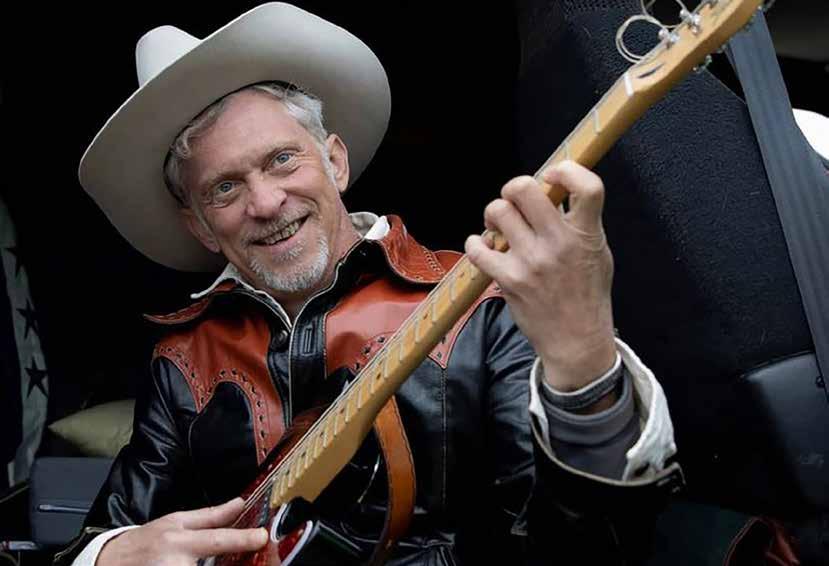
“I think The Delines asked specifically for me,” replied Jimbo when I ask how the tour came about. It is not a combination that you might immediately conjure up. “It just completely came out of the blue. I guess they were fans of mine and so that’s pretty fantastic, man. I am look forward to meeting them. I think the promoter was also actually wanting to get me over there. So, it just worked out. It just lined up that way. I’m just bringing the guitar and the harmonica!”
“A lot of those songs that I did with Bird, I will be performing actually,” he continues, when I ask him about the repertoire. Mathus has 16 of his own albums to choose from, dating back 25 years. “I’ll go pick the Troubadour type material that I can pull. I’ll probably do some blues as well.”
Speaking of the blues, I tell Jimbo that I saw Buddy Guy during BluesfestMelbourne and that he didn’t play anything from Sweet Tea, which is a pity because it is a highly under-rated album (especially by Guy himself).
“That was an interesting, Sweet Tea, says Mathus. “It was a record that we really had to, to force out of him and ended up being some of among his best work. I just recently saw Mick Jagger quoted as one of his top 10 favorite blues recordings, “Baby, Please Don’t Leave Me’ from Sweet Tea. Buddy didn’t care for it ‘cuz it wasn’t really his forte. It wasn’t his normal style of blues. But, you know, it was a great and intense record to make and I was very influential in helping get that record made, just by my participation in it. I was hired to be the sort of glue guy in the
DEEP SOUTH
Mississippi born and raised, Jimbo Mathus is bringing the sounds of the south to Australia.
By Brian Wise
band. It was a small band. Pete Thomas played most of the drums on that record.”
Sweet Tea, as Mathus suggests, showed a completely other side of Buddy Guy, and one which could have been explored more.
“That was the whole premise,” laughs Mathus, “to get him so pissed off that he would just explode on tape.”
Mathus has recently come to attention for his work with Andrew Bird. Although their history goes way back, it was their first work together for nearly 25 years.
“It was the first collaboration since his records with the Bowl of Fire Band,” explains Mathus. “So that was the transition band that he started after his tenure with the Squirrel Nut Zippers. So, a number of years passed between those days happened and him establishing an incredible music career on his own. Then he reached out to me and asked did I want to do this folk record, this blues folk record? I said, of course. We have a great chemistry together. It goes way back and still the chemistry is there.
“I just started kind of fishing around to see what he had in mind exactly. So, I just started sending him all kind of just demo songs that I have on my cell phone messages, the voice memos, things that I thought were kind of in the ballpark of what he was talking about. Then when we got together, we rehearsed a few hours and then we just went right in the studio. I think it’s maybe two or three days total, live in the studio, just sitting across a couple of microphones. That’s it. You can hear everything. You can hear everything in there.”
As for his own recordings, Mathus is probably due for another album soon, his last album being Incinerator back in 2020.
“You know, I’m just waiting, uh, right now to see what everything looks like,” he says. “I have a lot of recordings on ice right now. We’re ready to go. And so I’m just waiting to see maybe who’s interested, man. I’ve got a lot of really great things happening. So, between the way the Squirrel Nut Zippers reunited - their audiences are growing and growing every year - I would like more people to hear what I’m capable of outside of the Squirrel Nut Zippers as a songwriter, et cetera. So, this Australian tour is a perfect chance for me to show an audience that has no preconceptions. So, I’m gonna pick the songs very carefully: ones I think will really resonate and give it a, give it a swing.”
Jimbo Mathus is touring with The Delines in May.
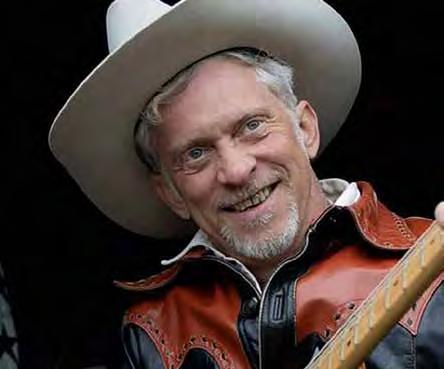
An interview with the king of moving on, songwriter and author Willy Vlautin of The Delines.
By Chris Familton
In the wake of singer Amy Boone’s 2016 accident where she was hit by a car, there were a few years, during her long and painful recovery, where songwriter Willy Vlautin thought The Delines as a touring band might be done. Boone’s strength and determination ultimately got her back to the point where a new album (The Imperial, 2019) was released and she was again able to tour and perform with the band. Then we all know what happened next, the global pandemic effectively crippling touring, particularly internationally.
Trials and tribulations aside, the good news for fans of The Delines is that the band were able to reconvene and release The Sea Drift early in 2022. That momentum saw them tour Europe last year and now they’re set to return to Australian shores for the first time in nine years. Even better, they’re currently ensconced in an Oregon studio recording album number four.
Vlautin is firmly focused on the new album but a year on from the release of The Sea Drift, he’s still immensely proud of that album. “It’s hard when you finish something because you have to move on, I’m the king of moving on,” he laughs. “The way I look at a record is if I’m in love with it, when I have a couple of drinks and disappear into it and not be critical of it, then I move on. I do that with books too. I get so immersed in writing it that I hope that it works within the framework of being submerged when I read it, with no ego.”
“I also think it’s our best sounding record,” says Vlautin, and he’s not wrong. The band found the sweet spot at the core of their late-night laments and soulful country sound on The Sea Drift. Vlautin’s vignettes of the downtrodden, from the gritty realism that permeated the songs of his previous band Richmond Fontaine, to his own established literary career, and Amy’s ability to draw you into the lives of the album’s characters via both heartache and heartwarming gravitas, make it yet another beautifully immersive listening experience.
You really do feel like you’re entering a unique and evocative universe when you listen to The Delines, and the natural question is whether Vlautin feels there’s more to explore there musically or if they plan to widen their sonic parameters.
“When we first started we’d only been together a week. The rest of us had
rehearsed a bit but we only had a couple of practices before we did Colfax. Pedal steel and Rhodes were the combination I wanted to focus on, but we lucked into adding Cory Gray on horns and strings and so that shaped the sound which we explored further on The Imperial,” explains Vlautin “We’ll keep going down that road to a degree because it sounds so great, and I can’t help but write these big ballad songs right now. We’re doing a little bit of different stuff on the new record but it’s still in that lush Delines world.”
The genesis of The Sea Drift came from a challenge from Boone, who asked Vlautin to write her a song like Tony Joe White’s ‘Rainy Night In Georgia’, saying “can you just write me a love song where no-one dies!” That set the template for the location of the album down on the Gulf Coast, near where Boone spent 25 years living in Texas.
“As a fan I’ve always loved the way bands take you to a place, like Drive-By Truckers taking you to the South when you listen to them, I love that!” Vlautin enthuses. “Paul Kelly’s Gossip album, when I first hear that when I was 18 and suddenly I’m in Australia and it’s just heaven, it changed my life escaping into records like that. Springsteen’s New Jersey too - when you’re 13, all of a sudden you’re a million miles away living in someone else’s life. I always fall in love with places.”
Richmond Fontaine was the band that first caught the ear of alt-country fans who craved a certain grittiness and realism within the framework of guitars that harkened back to The Replacements, Gram Parsons and R.E.M. Vlautin is still best friends with his Richmond Fontaine bandmates, but his heart and soul are firmly with The Delines. “Fontaine was really good to me, I’m still great pals with all those guys after being in a band for 23 years. The camaraderie is the thing I miss but I don’t miss being the front guy, I don’t think I was very good at it. I like writing ballads and Fontaine would have murdered me if I’d written any more ballads!” he laughs. “It’s hard being in a band where the singer is bringing in these seven-minute folk songs that aren’t catchy and you know you’re going to be playing them in noisy bars the rest of your life.”
Writing songs and writing books are all part of the same creative process for Vlautin. He describes them as “all living in the same apartment building,” and over the years
there’s been a rich cross-pollination of characters and storylines between the two disciplines. “All my novels except for one started as songs. Motel Life started as a series of songs. I write a lot of songs while I’m thinking about and working on an idea or story over a long period time so I can’t help but write songs from the books.”
One unique meeting point between Vlautin’s novels and songs has been the instrumental soundtracks that first began with his 2018 novel Don’t Skip Out On Me, which became the swan-song for Richmond Fontaine.
“I wrote the soundtrack to Don’t Skip Out On Me because I was living in that world so much I wrote an instrumental record about it. The band didn’t really want to do an instrumental record because no-one really buys them, but because we were calling it a day I called them up and asked if we could one last record and the band were nice enough to indulge me,” he grins. “I wanted one last really good pedal steel record from Fontaine, with Paul Brainard playing on it.”
That musical intersection has also carried through to The Sea Drift when horn player Cory Gray brought in an instrumental track that immediately caught Vlautin’s ear and became ‘Lynett’s Lament’. “I wasn’t really hearing music with my latest novel but then Cory played us this piece of music and I thought ‘that’s Lynett’s song from my novel The Night Always Comes’, which I was finishing at the time. He and I then went back and forth, and we put together a soundtrack for the book, just for fun and to keep the band busy.”
On the upcoming tour The Delines also have Jimbo Mathus on the bill but in 2015 they did a run of shows with Nikki Lane and her band. Vlautin laughs as he remembers eavesdropping on the band, talking about partying hard on the road, making him feel like he was their dad as he focused on getting back to the hotel room to rest. Vlautin then suggests that we might get to hear three or four songs from the next album if bandleader Sean Oldham gives them the green light, adding “It’s a lucky break getting to play in Australia, I’m always scared I won’t get to head back down there again.”
The Delines are touring Australia with Jimbo Mathus in June. You can check dates and buy tickets at lovepolice.com.au
“Paul Kelly’s Gossip album, when I first hear that when I was 18 and suddenly I’m in Australia and it’s just heaven, it changed my life escaping into records like that.”
Willy Vlautin.
 The Delines. By Paolo Brillo.
The Delines. By Paolo Brillo.
The Milk Carton Kids break with tradition
By Brett Leigh Dicks
If the recent past has reaffirmed anything for Joey Ryan and Kenneth Pattengale of Los Angeles-based The Milk Carton Kids, it’s never settle for second best. Not that the duo has made a habit of embracing the ordinary. Quite the contrary – they have consistently been musical over-achievers since emerging from Southern California in the early 2010s. But after nearing the intended completion of their latest album, I Only See The Moon, the pair decided to reassess the entire project. “I’ve been really proud that we’ve clung to the various lessons the pandemic imparted,” Ryan recently told Rhythms Magazine from The Milk Carton Kids’ North Hollywood studio. “One of the big things for me was, after being forced off the hamster wheel of touring and making albums on a two year cycle, we made time to consider what we were doing and why we were doing it and what we actually wanted out of it. I was very proud that when getting towards the end of recording the album we realised we weren’t saying what we wanted or needed to say so we scrapped 80 percent of what we had done and started over.
“We rewrote some of the songs and Kenneth came in over the next several weeks with what I think is some of his best writing in a decade. We made sure we had an album we felt was purposeful and was going to mean something to us and to whoever will listen to it. For me music has always had the ability to stop time and allow you to transcend whatever is happening in your life for that three or four minutes. When Kenneth said ‘I don’t think we’ve got a very good album here,’ I was very relieved that we were on the same page. Without the lessons of the pandemic, I don’t think we would have gotten to that point.”
It wasn’t long after emerging from the burgeoning Los Angeles singer-songwriter
scene of the early 2010s that the pair’s minimalist approach to contemporary folk music was widely embraced around the globe. As Ryan alluded, that quickly thrust them into the seemingly endless cycle of recording and touring a new album every two years. A half dozen albums later, Pattengale felt the pandemic-induced timeout not only afforded the collaboration some much needed perspective, but also a degree of redirection.
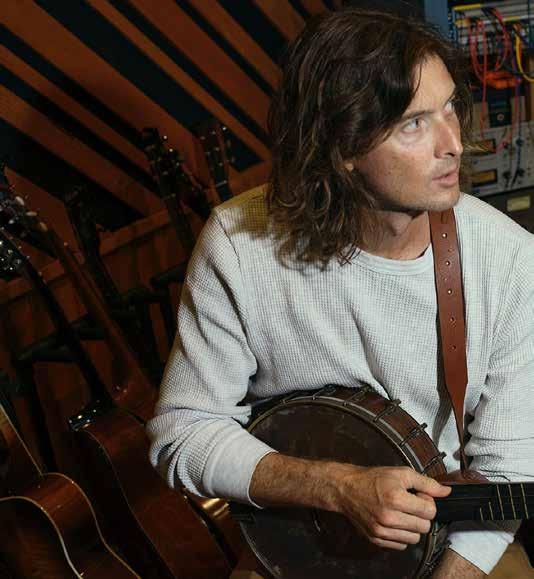
“We’ve been lucky enough to have this robust and now lengthy career and it doesn’t look to be at threat of disappearing anytime soon,” Pattengale explained. “What has come out of that is the need for Joey and I to maintain it while keeping it fresh and interesting and for it to be something we want to spend our time doing. The pandemic gave me an emotional shortcut on how to tap back into that, but both of us needed to define the terms of doing this thing we do together.
“It’s a very different thing to be doing this as a 41 year old as opposed to the 21 year old I was when we started. We’re now two decades on from where we started and things are very different so this entire album, what we’ve written and the way we made it,
has taken all of that into account. So, this is both a return to form but also figuring out what comes next.”
With Pattengale helming the production, The Milk Carton Kids commenced recording the new album in their North Hollywood studio across a three-week period in the fall of 2021. The goal was to complete the recording within that timeframe, an allotment of time that was lavish by The Milk Carton Kids standards as the band typically writes and rehearses the material for their albums prior to entering the studio to minimize recording time.
Ryan and Pattengale are now both residing in Los Angeles again. With their own recording studio at their disposal, when it became apparent that what they had made was not the album they wanted to release, the threetime Grammy nominees then took their time to craft an album worthy of their efforts. “The goal was to produce an album that felt as intimate as all the recorded material we had put out before, but had a different emotional acuteness to it,” Pattengale explained. “We wanted to try and pull the strings a little differently but still stay in that minimalist space. It was important that
twelve years into the partnership we were doing things that were new and exciting for us, but also not throwing the baby out with the bathwater.”
“That’s important, not throwing the baby out with the bathwater, especially in Australia where there are dingos,” Ryan interjected with a straight face, before digressing into a discussion about the cultural legacy of the Chamberlain Case
Infant ablutions and native antipodean canines aside, while remaining true to the collaboration’s minimalist overtones, the sonic landscape the pair have crafted across I Only See the Moon offers plenty of fresh terrain.
“North Country Ride” beautifully ebbs and flows on a soundscape of gorgeously backedup vocals underpinned by chiming acoustics and gently whirling organ while “Body & Soul” is a feisty old time homage that holds its own against any Southern-inspired folk music. While “Star Shine” is classic Milk Carton Kids, the album’s title track, “I Only See the Moon,” offers up a hauntingly sultry ode to croon-noir, the sentience of which lingers long after its eloquent strings have faded into darkness.
One of the album’s most revealing musical moments is undoubtedly “One True Love.” Driven by Ryan’s melancholic banjo and wellworn vocals the song is as majestic as it is evocative all-the-while managing to maintain an edge typically associated with a newlypenned composition.

“Interestingly enough, that song was as a classic formula as we’ve ever had, with a few notable changes,” Pattengale explained. “We recorded that live in this room but before we got there, we traded Joey’s guitar out for banjo which is a pretty seismic shift for us. Right up until the point of recording we made some significant changes to the writing and structure which meant we were navigating new sections. I think that whole dynamic might explain exactly what you’re talking about.”
“The song feels well-worn in and we feel comfortable in our performance and it feels true under our fingers and our voices. But there’s sections of the arrangement that challenged our skill set and it feels a little like we’re trying to arrive at the moment while the recording light is on. We were still getting used to that new dynamic where there’s a banjo instead of a big Dreadnought
guitar underneath it. I’m picking up that role in places while still trying to fulfill my typical function. It’s a bizarre iteration of The Milk Carton Kids that felt fresh and fun for us.” Keeping things fresh and fun has been a constant for Ryan and Pattengale. From their humble beginnings of sharing bills as solo artists in clubs and bars up and down the coast of southern California, the pair’s musical ascendance as The Milk Carton Kids has seen the duo play venues of all shapes and sizes.
For a while they frequented a small music room in Ventura called Zoey’s (where the pair’s first collaborative release, Retrospect, was recorded) before graduating to theatres, concert halls, and outdoor festivals. As the two ready themselves for their imminent Australian tour, which will see them perform in settings ranging from an old pub to town halls, theatres, festivals, and even an old Indo-Saracenic museum, it’s not unreasonable to wonder out loud what their preferred performance setting might be.
“For a while we had our sights set on the historic old theatres, Vaudeville houses, and art-deco theatres; the big early palaces that have bad plumbing and a musty smell,” Pattengale exuded. “They’re expansive and glorious and can fit about 2,000 people and that’s what we were always going for and we’ve had the luxury of playing a lot of those places all around the world, in fact one of the coolest ones was the Athenaeum Theatre in Melbourne.
“When those shows go well, they’re great, but when they’re half full some cognitive dissonance comes into play. Over the past couple of years, we’ve been craving sweaty rock clubs much more. Clubs where people are standing and their knees ache and the temperature is uncomfortable and it smells like beer and the floor is sticky. There’s something about that experience that casts what we’re doing on stage in a different light.”
Ryan feels that the contrast of The Milk Carton Kids’ innate elegance playing out in a well-worn music venue imparts their show with an edge.
“You’ve been there since the beginning and seen us since play in all kinds of different places over the years and as Kenneth was saying, I think we’re arriving at a place where we now enjoy a bit of juxtaposition,” Ryan said.
“We’re up there in suits and we’re playing this kind of precise music that’s supposed to transportive and beautiful and when we do that in a nice theatre that feels a little too expected so what we’re enjoying is some of the juxtaposition of doing it the dingier places. We’ve always enjoyed undermining the entire concept of a beautiful folk music show and I think that’s what drives the banter in between the songs where we poke fun at ourselves and sometimes the venue we’re in. A bit of emotional whiplash is good for us. It’s also good for the audience too and good for the whole experience.”
Stephen Cummings comes back from the brink with a life-affirming classic.
By Jeff Jenkins.
Iremember taking an ex-girlfriend to the launch of Stephen Cummings’ memoir, Will It Be Funny Tomorrow, Billy? At the time, my ex-girlfriend was working at a cosmetics company. When I arrived to pick her up, I was told she was in a meeting, so I had to spend an awkward 20 minutes chatting with the young receptionist, who Cummings might refer to in song as “flawless beauty to admire”.
“Where are you guys going tonight?” she asks.
“To a book launch for Stephen Cummings.”
“Ah,” she nods, “he’s a comedian, isn’t he?”
“No, not really. He’s a singer.”
“Would I know any of his songs?”
“‘Who Listens To The Radio’?” I suggest.
“No,” she shakes her head.
“Your mum would know it.”
I own every record Stephen Cummings has released, so I quickly scan my brain, trying to think of something the receptionist might know. Finally, I say: “You might have heard a song he did for a TV ad, for Medibank Private – ‘I Feel Better Now’ ”
“Oh, yeah,” her eyes light up. “I know that one. That’s a good song.”
I try to find another point of reference, but there’s nothing. Stephen Cummings’ entire career, more than four decades of wonderful music, has been reduced to a single jingle.
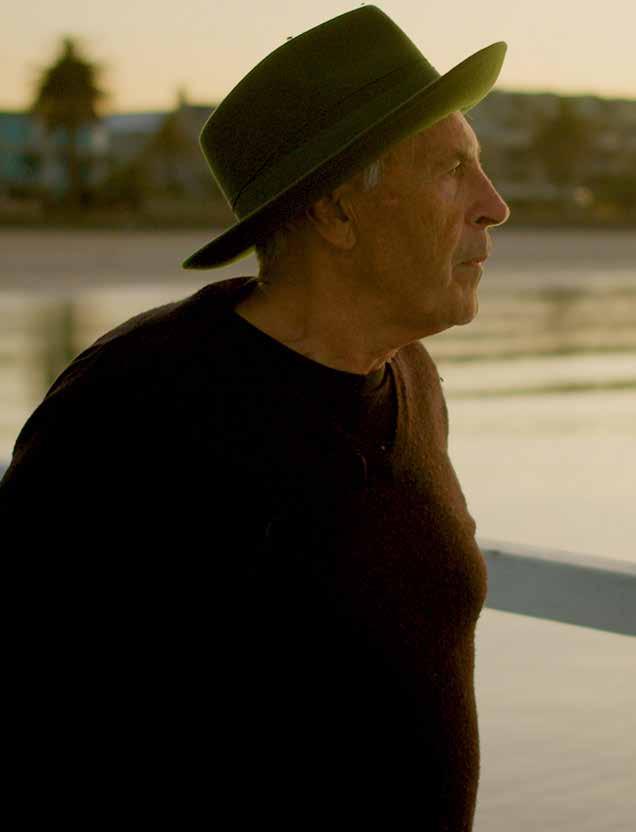
Fast forward to May 2022 and Cummings is doing his first gig in more than two years, at George Lane, a hip St Kilda bar at the back of the George Hotel, which was once home to the legendary Crystal Ballroom where Cummings’ band, The Sports, headlined the opening night – supported by Nick Cave’s The Boys Next Door and Ross Hannaford’s Reggae Allstars – on February 5, 1979.
[Cummings would later dedicate a chapter of his memoir to Cave, calling him “the consummate showman … like a gauche Tom Jones”, adding: “It was Karl Marx who observed that history repeats itself, first as tragedy and then as farce. The same could be said of Cave’s career.”]
Tonight’s gig is a little more laidback than the manic days of the Ballroom, which was the centre of Melbourne’s punk scene in the early ’80s. The crowd – about 50 people – is quietly seated at tables. Most are not surprised that this is Cummings’ first gig in a long time – due to the pandemic, this is the first gig back for most of the punters, too. But Cummings has a more personal reason for his absence from the scene.
“I had a stroke,” he informs the crowd before his first song. “I had to learn to walk and talk again.”
Photo by Kathleen O’Brien
34
Every Stephen Cummings gig is special. Without being too trippy or hippy about it, Cummings’ George Lane show is a triumph of the human spirit. And you can feel the love in the room. During his set, you can sense that every member of the crowd is aware that life is precious.
And precarious.
The day after Cummings’ comeback, his long-time record company supporter Warren Costello – the founder of Michael Gudinski’s Bloodlines label – died of cancer.
Costello had orchestrated Cummings’ return to the Mushroom Group, where they reissued his catalogue and released the four-CD solo anthology, A Life Is A Life. “These 50 songs tell a remarkable story,” Costello wrote in the liner notes. “Starting with ‘What Am I Going To Do?’ – the lead singer of a successful band goes solo and wonders what’s coming next – and finishing with the reflections of an older man, who realises what a joy it is to sit alone.”
Cummings had a long association with the Mushroom Group, which is celebrating its 50th anniversary this year. Indeed, The Sports gave Michael Gudinski his first hit in the US when ‘Who Listens To The Radio’ reached number 45 on the Billboard charts in 1979.
Despite their success together, Cummings’ relationship with the late music mogul was often fraught. Gudinski said Cummings caused him to give up management for 10 years. “He was traumatic to manage.”

Cummings expanded on the story in his memoir, writing: “I have it on good authority that Michael Gudinski once asserted to an assembled group of industry types at a reception for Jimmy Barnes that after working with me in The Sports he vowed never to manage an artist again – so execrable was the experience.”
Cummings wrote candidly about Gudinski in his brutally honest book, calling him “an offensive and abusive bear of a man, [though] at least he went to gigs and liked music”.
“We had an interesting relationship,” Cummings reflects. “Gudinski was ambitious to have a hit in America and for a short while it looked like I was the one who might get it for him. When it didn’t happen, he was at some subliminal level like a lover scorned.”
Despite their differences, Gudinski knew that Cummings was a great artist, noting: “He’s a true musician who always puts the music first and doesn’t get side-tracked by the business side of things.”
In 2019, Gudinski called on ARIA to induct Cummings into the Hall of Fame. “At times, Stephen could be frustrating to deal with,” the Mushroom founder admitted. “But he has always been brilliant. In fact, it’s high time that ARIA recognised Stephen’s remarkable body of work and inducted Stephen Cummings and The Sports into the ARIA Hall of Fame.”
As a fan, I have a dream of Cummings being inducted by Eric Bana (who is also a fan), followed by a female supergroup performing a medley of Cummings’ songs – his friends such as Vika & Linda, Kate Ceberano, Rebecca Barnard and Angie Hart.
So far, ARIA is yet to heed Gudinski’s call. Who knows if the singer even cares? Despite having had some major record
deals, Cummings always seemed to be working outside of the mainstream music industry, in a career that could best be described as idiosyncratic.
“People don’t like to remember things,” he once sang. “They cannot see the point.”
In the first RocKwiz book (Cummings was a founding member of the show’s “Brains Trust”), Cummings was described as “musician, writer, bon vivant. Nominated by critics as Melbourne’s Number One Sook”. (First single: Masters Apprentices – ‘Undecided’; First concert – The Loved Ones). As well as his memoir, Cummings has also written two novels, Wonderboy and Stay Away From Lightning Girl. The latter was a thinly disguised semi-autobiographical work, where the protagonist, Robert Moore, was the lead singer of a band who failed to make it in America. Then his solo career is critically acclaimed but commercially unsuccessful.
Kellogs pursed his lips. “Yeah, I know, you’re a popular singer who’s not popular.”
“Yeah,” countered Robert, “but I get good reviews.”
“Well, we all know what that’s worth,” Kellogs said, looking at Robert as though he were insane again. “Rock music died when it attracted critics and was placed in the arts pages along with other dead movements like dance and classical music and literature.” Kellogs hung his head in silence, as though thinking this idea through. “You’re too fucking sensitive, that’s always been your problem.”
“I know, it’s my curse,” said Robert.
Cummings’ first major band was The Pelaco Brothers, a supergroup of sorts, with Joe Camilleri, Melbourne public radio legend Johnny Topper and guitarist Peter Lillie. They formed in 1974 and released a posthumous EP in 1976.
His next release was The Sports’ Fair Game EP in 1977, which was awarded Record Of The Week in NME: “Blimey, it is ace,” the NME reviewer wrote. “If you got crooked by AC/DC, The Saints and Frank Ifield, don’t think that all the bands Down Under are out of date. Steve Cummings out Jaggers Jagger … I kid you not. The Sports are a gen-u-wine rock ’n’ roll discovery. Move spheres to get this.”
Maverick indie label Stiff Records signed the band in the UK and suggested Cummings change his name to Steve Cochran. He ignored the advice.
Legendary recording executive Clive Davis then signed The Sports to Arista Records in the US, telling Cummings: “You could be a special artist. I know what’s a hit and I can tell what’s special.”
The Sports survived just five years, but released four Top 50 albums, including 1979’s Don’t Throw Stones, which cracked the American Billboard 200 and featured ‘Who Listens To The Radio’.
Cummings kicked off his solo career with a single called ‘We All Make Mistakes’. At the time, he talked about creating a new genre – Intelligent Adult Oriented Rock. “I want to get into the area of making music for those people who need something a little more,” he explained. >>>
>>> Cummings has always done things his own way, once describing himself as “a pop singer with hangups”. His 21 solo albums – starting with Senso in 1984 – have been issued on 10 separate labels.
His new album, 100 Years From Now, is being released by Melbourne indie label Cheersquad Records & Tapes, run by Even bass player Wally Kempton, who played tambourine and sang backing vocals with The Sports when they performed in front of their biggest crowd – the Mushroom 25 concert at the MCG in 1998.
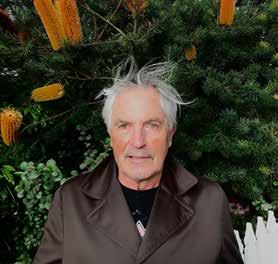
“Stephen Cummings and The Sports have been an integral part of my musical upbringing since the late ’70s, so I’ve admired Stephen’s work from both near and afar for decades,” Kempton says. “When he asked if I’d be so kind as to listen to his new album with an ear to releasing it on my label, I nearly fell off my chair. What I heard was beautiful and incredibly inspirational and I thought, ‘How can I not be a part of this?’
“It’s an honour and a privilege.”
Cummings suffered his stroke just before the pandemic struck. In the middle of an acoustic tour, he struggled to play guitar during a gig in Brisbane and when his wife, Kathleen, picked him up from the airport in Melbourne, she took him straight to the emergency department at the Alfred Hospital.
As the singer’s beloved Lovetown became lockdown, his old friend Robert Goodge, of Essendon Airport and I’m Talking, suggested making an album.
“This record started off from both our boredom at being locked down and Stephen’s double frustration at having a stroke just as the restrictions started,” explains Goodge, who co-wrote one of Cummings’ biggest solo hits, 1990’s ‘Hell (You’ve Put Me Through)’.
“Stephen got the double lockdown whammy.”
Making the album was a painstaking process, with Goodge and the mix engineer Simon Polinski patiently piecing together Cummings’ vocal takes.
“I was always a natural singer and assumed I could just sing as long as I wanted,” Cummings says. “After the stroke, I had a lot of rehab to learn to walk and recover fine motor skills on my left side. I couldn’t really play guitar anymore. I did some vocal therapy and found my tone still good, but the control and breathing was the hard part.
“I learnt if I sang more slowly and more quietly, it sounded better.” As Cummings once sang, you have to be in hell to see heaven’s light.
Cummings’ long-time friend Mark Bakaitis – who’s been working with the singer since 1994 – made a video for the album’s first single, the moving meditation on life, ‘Carry Your Heart’, where the key line is repeated like a mantra:
Every moment is a golden one, for him that has a vision
“When I first heard ‘Carry Your Heart’, I was moved by the fragility of Stephen’s voice,” Bakaitis says. “The sparseness of the track and the lyrical sentiment of an artist’s vision spoke to me.” Bakaitis started shooting the clip at Archies Creek, the tiny town in South Gippsland that’s home to the Caravan Club. “The rural, industrial surroundings and retro chapel were perfect for a backdrop.
However, we had to work around Stephen’s gig supporting Dog Trumpet, which meant shooting in the harsh sun. Also, Stephen’s energy was focused on the gig, and afterwards he was visibly drained.”
Back in Melbourne, Bakaitis shot more footage at Port Melbourne beach. “The early morning light was heavenly, and Stephen was more relaxed without a gig on his mind.” It’s a powerful clip. “Overall, I think the video contains themes of the journey of an artist,” Bakaitis says. “An artist who still has the desire to create, no matter what the odds.
“After Stephen had a stroke, he could have simply retired from music. He’s got an amazing back catalogue of work. However, he has returned with a sense of great determination.”
100 Years From Now finds Cummings “holding back my tears, facing all my fears”, but realising “you can’t escape and you don’t want to.”
“The great adventure of being alive,” he concludes, “is the experience of time.”
In 2007, I spoke to Cummings about the inspiration for his songs. “Sometimes my life is so stable – I’m such a stable, well-balanced person – that I don’t really have much to write songs about anymore,” he said. “So, I have to look at other people’s lives.”
But Cummings dug deep within for 100 Years From Now, crafting his most personal record.
After his stroke, the singer feared he would never perform again. “Now all I do is just exist,” he reveals in one of the new songs, “and think about all the chances I missed.”
In any war – and show business was warfare – there were bound to be casualties. Robert saw this in himself and he saw it in Maclean –both had spent too much of their lives running on rock ’n’ roll time, which was no kind of time at all. Buying the dream was easier than giving it up. – Stay Away From Lightning Girl
“I’ve had to accept now that things aren’t going to be the same,” Cummings says. “But they can still be good.”
Listening to the new album, I think back to my encounter with the receptionist at the cosmetics company and ponder one of music’s great mysteries: Why do we remember some of the most forgettable music while many of our finest artists go unrecognised?
“If the world were a fair place and artists were rewarded in accordance with their abilities,” Rhythms Bernard Zuel once wrote, “Stephen Cummings would be a rich and famous man.” “Some guys have all the luck,” Cummings sang on his 13th solo album, Space Travel “I don’t have any.”
But I take comfort in the belief that 100 years from now, someone, somewhere will discover Stephen Cummings’ work and they’ll be blown away by its beauty. His art will outlive us all.
As Warren Costello remarked in the liner notes of Cummings’ anthology, “Inexplicably, Stephen’s solo work has not been met by much chart success, but it is a creative triumph. As Stephen has sung, it’s not the arrival, it’s what happens on the journey.”
Or as Cummings concluded in Wonderboy, “Life’s a bloody seductive mystery, isn’t it?”
Every moment is a golden one.
Photo by Kathleen O’Brien
“I got very lucky and had good people around me and folks who cared about me and was able to get my life together and continue doing my work,” reflects Jason Isbell when I meet up with him at The Palais Theatre in Melbourne prior to his show with the 400 Unit just before Easter. It is a long way from Oklahoma where he was when we last met. Now, he is in full on touring mode and his show later in the evening with his fantastic band was majestic. We are meeting this time, ostensibly to talk about the new album Weathervanes which is being released in early June, but as there are a couple of hours before he takes the stage our conversation is even more wide ranging.
Last year I called Isbell the ‘King of Americana’ and, on the strength of the new album, that domination of the Americana scene with its numerous awards, is likely to continue. >>>
 Jason Isbell at Bluesfest, Tyagarah, Easter 2023.
Photo by Steve Ford.
Jason Isbell at Bluesfest, Tyagarah, Easter 2023.
Photo by Steve Ford.
>>> In the light of IsbeIl’s amazing success I cannot help recalling the first time I met him, which was at Bluesfest when he was on tour with Justin Townes Earle. Isbell says it was 2012 but it seems a lot longer than that or maybe it is just that he has gone through such a transformation. He was having a good time with Earle and it showed. Then they took much different paths in life. Justin departed in August 2020. His father Steve was here at Bluesfest too, still mourning the loss, as we all are.
But the Jason Isbell that I am talking to now is serious and sober (literally), even intent. Even physically he looks in better shape than when I first met him. “Some people are bound and determined to do things the hard way, I wasn’t really one of those people, he says, when I mention how our friends’ lives can diverge radically from our own and how much I admire him for being able to turn his life around. “It’s not easy. For me, I think it might have been a little easier than it was for some other folks because I didn’t really get the addiction thing genetically. I know in Justin’s case, and a lot of people that I know, they had a predisposition toward that sort of thing and I think that might have made it a little more difficult for them to sober up and stay sober.
“But, you know, for me it’s been over 11 years now and I don’t regret anything
really that I did before I got sober. But it certainly was the right thing for me to do because my life would be very different if I was still around at all.”
Since his first visit here, Isbell has now released half a dozen studio albums and four live albums as well as winning four Grammy Awards (Elvis only ever won two!), nine Americana Awards plus another 10 nominations. He was also artist in residence for a year at the Country Music Hall of Fame. In April HBO in America screened the full-length documentary Jason Isbell: Running With Our Eyes Closed about the making of his previous studio album Reunions. He has also married Amanda Shires (an acclaimed musician in her own right who records with him and sometimes appears with him) and they have a young daughter.
Could he have possibly predicted where he is now?
“I don’t know if I would’ve predicted it,” he replies. “Not with any sort of accuracy. So, that was before Southeastern and when that came out it really changed everything for me. There are certain things that I wish had gone different between then and now, especially considering Justin not being with us anymore. I remember having a really good time. But it’s been great - I mean, the time since then, especially after I got sober. I had more time to work and more focus. I think the shows
got better and the songs got better and everything got more consistent.”
Now Isbell is set to become film ‘star’ to add to all his other accolades. When we spoke last year, coinciding with the release of the Jason Isbell signature Fender Telecaster, he was in Oklahoma on the set of Scorsese’s movie, Killers Of The Flower Moon, a Western set in the 1920s which opens this month. Isbell plays the part of Bill Smith, a resident of north central Oklahoma.
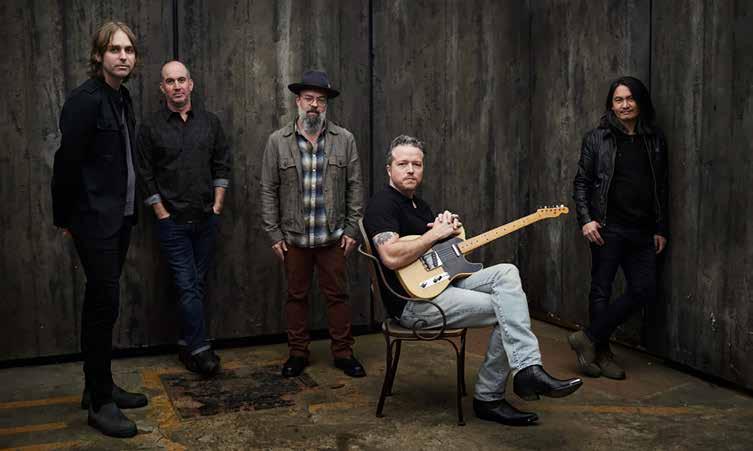
“It was a real challenge,” says Isbell of the experience of acting. “It was something I’ve never done before - and everybody else there was really good at it. So, I was anxious but they were very helpful.
“After a couple weeks I sort of realised I must be here for a reason because I’ve never seen a Scorsese movie and thought that was great, except for that one redneck dude messing everything up. So, I thought, he’s not gonna let me screw up his movie, so he must know what he’s doing and I really enjoyed it. I think the movie’s gonna be beautiful.”
“You know, I had a lot of downtime because the weather in Oklahoma can be questionable,” he continues, “so there were a lot of days where we were just sitting around waiting to shoot. Sometimes we got to it, sometimes we didn’t. So, I had some guitars out there with me and I wrote quite a few songs
Jason Isbell & The 400 Unit. 2023.
that wound up making it on our new album.”
The six years that Isbell spent with the Drive By Truckers still echoes in some of the songs, especially the huge guitar motifs that dominate some of the rockers. There are also echoes of Neil Young and even Springsteen in some of the lyrics. But Isbell has forged his own sound which means when you hear a song from the new album such as ‘The King of Oklahoma’ (written on set) they are unmistakably his own.
“It’s never something I really aimed for,” he explains. “I think I just got better at following the right mistakes over the years. When I was with the Truckers I was writing for a very specific assignment. I was in a band that had already been established and so the kind of songs that I was writing were songs that I felt like might fit within the framework of that band and the concept of that band, which was a pretty serious concept. They were unique in the combination of Southern music and punk rock and country music and Southern rock - all the things that made that band what they are. You don’t really find that combination anywhere else. I had been writing songs before that were probably a little bit closer to what I did afterward.
“But the time when I was in that band, I was writing something that I hoped Patterson would like and include on their albums. Since then, really, I think the thing that has helped me, if I have any kind of a voice that’s my own it’s just come from me being honest and constantly trying to write something that I would want to hear. I think that’s led me in that direction. I never really consciously thought, how do I make a record that sounds different from everybody else, or sounds like me or anything like that. I just wanted to make things that I would like.
“Definitely Neil Young and Hendrix,” responds Isbell immediately when I ask who he listened to when he was young. “Hendrix was huge. I went through a pretty serious Clapton phase. Then when I got a little older I shifted over more to songwriter stuff. My mom loved John Prine when I was a kid, so I started listening to John’s music and got really serious with that; I would cover some of his songs in coffee shops when I was a teenager. Jackson Browne, I listened to a lot when I was a kid, Bonnie Raitt. Then a huge part of my creative upbringing was the fact that I grew up in Muscle Shoals where a lot of really great music had been recorded. That was always sort of part of who I was and part of what I did as an artist: the combination of Duane Allman being there with Wilson Pickett and then Percy Sledge and Otis Redding and the Staples Singers and Aretha Franklin and Rod Stewart and Joe Cocker and The Rolling Stones. All that stuff, when you put it together and mix it up in a big pot, it comes out sounding like me and like a lot of us who grew up down there.”
Isbell performed a fantastic version of Otis Redding’s ‘I’ve Been Loving You Too Long’ on the 2021 album Georgia Blue, which fulfilled his commitment to record a charity album with his friends of songs by Georgia artists if Joe Biden won the 2020 Presidential election. Isbell’s interpretation perhaps reflecting the fact that he had worked at Muscle Shoals for some years and absorbed its spirit.
“That was a labor of love,” he explains. “Being a songwriter, I don’t do a whole lot of covers and this was an opportunity for us to go in for a weekend and have some guests come in and sing and play and, and really just have some fun and raise a little bit of money for people who are trying to make it a little easier to vote in Georgia. It is something you wouldn’t think needed doing but it certainly does.”
“That’s a hard song to sing, man,” he says of the Otis classic. “It’s a tribute more than anything else because that’s not a song that needs to be covered. The original certainly does its job and then some but, like I say, it was just that we wanted to do things that we thought would be fun. So, that’s one of the songs that we did.” [I should note that in his
recent concerts here Isbell and band also did a wonderful version of the Stones’ ‘Can’t You Hear Me Knocking’).
The new album Weathervanes encapsulates many of the concerns that have occupied Isbell in recent years, many of them heavy duty. There are some great rockers such as ‘This Ain’t It’ and ‘When We Were Close’ but there is always a shadow hanging over the lyrics. The first single, ‘Death Wish’ was about being in love with someone with depression. Its follow-up ‘Middle of The Morning’ was a lockdown song about being stuck in your life.
‘Save The World’ unfortunately reflects one of the more disturbing aspects of American society – gun violence. Our conversation takes place just a week after the Nashville mass murder that took another six lives. ‘Somebody shot up a classroom again,’ he sings, later adding his concern for his daughter in the line ‘do we keep her at home instead.’ (Isbell has also recorded the song ‘Gunsmoke Blues’ with Buddy Guy which appeared on Guy’s latest album The Blues Don’t Lie).
“I’ve written that really right after the Uvalde, Texas thing,” he explains, referencing the massacre that took the lives of 19 innocent school children and two teachers. “Sadly enough, it winds up being prescient no matter when it comes out. It’s just one of those things where if you write a song about something that’s an epidemic in America then it’s gonna be timely whenever it gets released.
“But it’s hard to write about that really. I tried to go from the perspective of not somebody who was involved in the violence or somebody who was immediately present when it happened but more of a personal point of view: somebody who’s trying to raise a kid and nervous and concerned and afraid about sending a child out into the world. That’s a perspective that I have experience with. So, very often when I’m trying to write about something that’s really heavy, rather than assume what it’s like to be somebody else I’ll just start from my own emotional background.”
Isbell’s commitment to issues goes just beyond the election results. Last year he and Amanda Shires recorded and released the single, ‘The Problem’ about abortion rights. >>>
“I think the thing that has helped me, if I have any kind of a voice that’s my own it’s just come from me being honest and constantly trying to write something that I would want to hear.”
“For me to enjoy my life, I have to feel like I’m making a real honest effort to help other people enjoy theirs.”
“I got very lucky and had good people around me and folks who cared about me and was able to get my life together and continue doing my work.”
>>> “That’s another one of those things. When it comes to women’s rights and civil rights in general in America we’re at a point where I think it’s possible for us to, to fall back into our old ways and really not treat everybody as an equal. That, that’s tough for me to swallow. For a long time, I thought we’re slowly making progress but I don’t necessarily know if that’s true. I think it is really possible for things to regress and go in the opposite direction. So, you just have to stay focused and you have to stay aware and spend your spare time thinking about ways to possibly help people out - not really out of any kind of grandiosity.
“I grew up around people who, who felt like they were unheard and people who
worked really hard and never really got anywhere. I see that reflected in a lot of different types of people in the United States right now. For me to enjoy my life, I have to feel like I’m making a real honest effort to help other people enjoy theirs.”
The new album’s very title, Weathervanes, signals the fact that Isbell is capturing the mood of the nation in many of the songs.
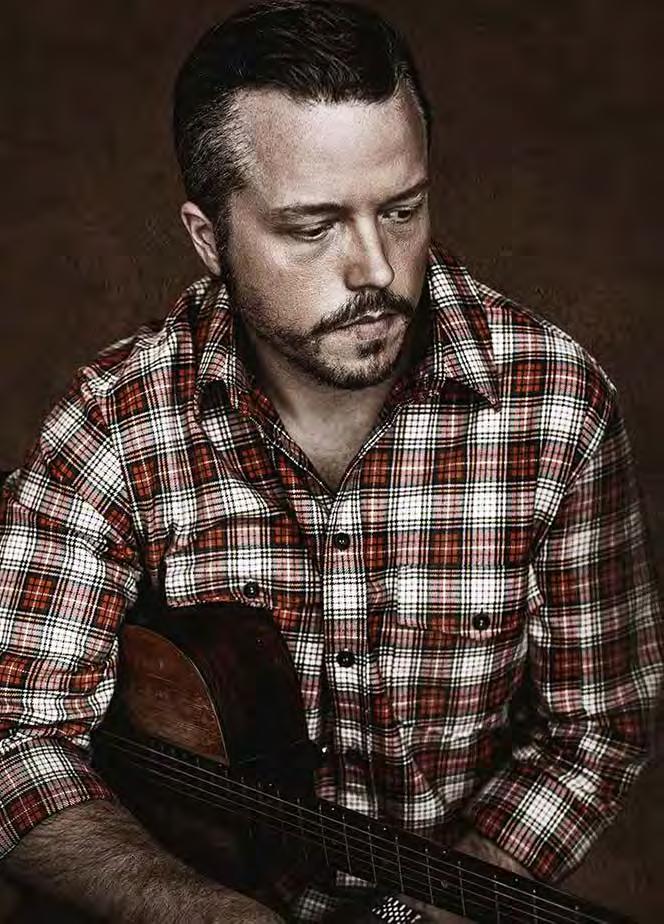
“Now they’re probably more decorative than functional,” he says when I mention that you often see weathervanes on farms and houses when you drive around the countryside in America. “But there was a time when they were very important. It is a way
of knowing what’s coming or at least at the very least, a way of knowing what’s happening while it’s happening. Among other things, one of the primary focuses of my day-to-day life is awareness. I try to remain in the moment and if I can’t predict something, I like to at least know that it’s happening. I couldn’t really think of a better expression of that than a weathervane.
“I try to put my work into album titles because it’s important, the concept of it. You’re creating this sort of general mood and really trying to prepare people for the content of the album. I still think of albums as one piece of work. I know a lot of artists don’t do that anymore - and it’s not necessarily the best financial idea to go about it that way - but for me it’s still an important part of the process because that’s how I learned to appreciate music in the first place and that’s the kind of music that I enjoy making.
Listeners might be surprised by quite a few of the songs, like ‘White Beretta’, which can be deceptively simple but carry some powerful messages.
“It is powerful to me,” admits Isbell. “There was a time in my life when I was a teenager and I wasn’t able to support the people that I cared about in the way that I would now. That’s really what that song’s about. It’s about the teenage couple and hard decisions that have to be made.
“Without giving too much away some of the characters in these songs aren’t famous people and they don’t want to be. But that was a time in my life when I’d grown up in a very conservative place around a lot of really religious people and I was torn over things that happened in my life and decisions that had to be made, whether they were mine - or decisions made by people that I cared about. Now the way I look at it is that I really wish that I had been there and been able to support that person. I was around but I just wasn’t psychologically supportive in the way that I could have been because I was afraid.
“You grow up, you get older, and I think you’re supposed to get less afraid of emotional things. You get more afraid of physical things - height and speed and gravity. But with the emotions, I think you’re supposed to be a little braver the older you get.”
I tell Isbell that it sounds like he has done a lot of time working on himself and he agrees.
“I have. I’ve done that because I think that it’s worth it. I think that there’s a reward there for me that is constant and, and clear. It’s not an easy thing
to do, trying to figure out what sort of baggage you’re carrying around with you and unpack it and unload it, but I think it’s made me a better person and it certainly made it easier for me to enjoy my life.”
medical issues developing into addiction issues and that developing into legal issues. This big sort of snowball that just keeps getting bigger and bigger and bigger until his life’s outta control. This song really is about how quickly and how easily that can happen. Most of us are just one or two bad breaks away from losing everything that we care about. I think a lot of people are in that situation in America for sure.”
The relatively short ‘Cast Iron Skillet’, featuring a string section introduction, is an intriguing song which has prompted Isbell to say that he thinks nostalgia is an ‘abomination’.
But nostalgia is a massive part of the music industry, isn’t it? I bet there are some people who say to him, ‘I like your old albums better than you new ones."
“The way I use the music industry is just to facilitate me being able to create and creating is something that causes you to be self-aware and analyse your own behavior and your own thoughts and your own emotions. I think if it’s the other way around - if you’re using your creativity to further your career first and foremost - then you might not see a whole lot of growth as a person. But if the industry is really just serving the purpose of making it possible for you to make more art, then you know that that path runs in parallel with the path of growing as a person.”
If that sounds a little like the sort of thing that Bruce Springsteen has confessed in his memoir and recent interviews then ‘The King of Oklahoma’, written out in the state itself, will evoke even more comparisons with its story of a working-class character. The song is destined to become an anthem in Isbell’s sets.
“That’s just, that’s the kind of people that I grew up around. I had a family member who had some health issues in the past few years, and I saw firsthand what it’s like outside of my bubble. I came from a place where people worked really hard and didn’t have a whole lot of money and didn’t really manage to get ahead. Then I got out of that place, and I had a lot of success. Very often when I’m dealing with my family or my friends from back home, I realise that things are still the way they were for them.
“The more you go back and examine not the reality of what happened in the past but your romanticised idea of what happened in the past, the more distorted your idea of the present gets. I don’t think it’s good for you. I think if you’re gonna look back at the past, you need to look back at it through the clearest glass possible sometimes to do that. You can’t just rely on your own memory because really the past doesn’t exist. If we could go on and on about this but this also goes into my time travel theory. I think even if we had the technology to time travel, we would not be able to go into the past because I don’t think the past exists at all. I think the past is just a figment of our imagination.”
I tell Isbell that it sounds like he has been reading as many science fiction books as I have done during the lockdown. (My number one rule for time travel is: never accidentally kill one of your parents!).
“I’ve been thinking about ‘em, that’s for sure,” he laughs. “I’ve been writing them in my head. ‘Cast Iron Skillet’ is about those myths of your past. There are springboards in that song, or anchors in that song that are pieces of advice coming from people who grew up in a Southern place like I grew up. Some of that advice is good and some of it is meaningless. It’s also framed with a couple different stories of people that I grew up around. One person that I knew when I was a kid that wound up becoming a murderer and going to prison. Then a girl that I knew that had a boyfriend who was not the same race as her, so her family disowned her. But both of those things actually happened. That song is really a comparison of those two stories and also a statement on nostalgia.”
“Oh, yeah, for sure. I don’t know that that’s nostalgia though if you’re actively going back and listening to ‘em. Some people make great records and then a whole bunch of shitty ones. I think feeding that nostalgia is pandering. I think using parts of the past to, to get somewhere new, I like that. I do that. I use a bunch of old gear and old recording techniques and really a very old, traditional sort of songwriting structure most of the time but what I’m trying to do is manipulate the historical significance rather than romanticise an idea of the past.”
Weathervanes ends with the almost epic song ‘Miles’ which runs to just over seven minutes and is reminiscent in parts of the Crosby, Stills, Nash and Young classic ‘Down By The River.’
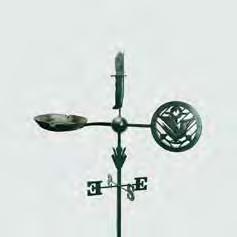
“I got to be good friends with David Crosby,” he says. “I know Neil a little bit – but I don’t know how many people get to be good friends with Neil anymore, unless you have been for a long, long time. But Crosby and I got along really well. Amanda and I were real close with David and he came and sang on Reunions on a couple songs and we spent a lot of time with him. I learned how to sing harmonies by listening to Crosby’s parts. He was really one of the greatest harmony singers in all of popular music and a great songwriter too.
“But that particular song? That one’s a little different because that’s sort of a What if? What if you don’t make the right decisions and you don’t work on staying vulnerable and emotionally available to the people that you care about? What could wind up happening?”
Weathervanes is available from June 9 through Virgin. The documentary Jason Isbell: Running With Our Eyes Closed is streaming now.
“I am in a bubble, that’s for sure and outside of that bubble is a whole lot of reality. That song is about somebody whose life is falling apart because of
“It’s not an easy thing to do, trying to figure out what sort of baggage you’re carrying around with you and unpack it and unload it….”
“Most of us are just one or two bad, uh, breaks away from losing everything that we care about…”
“I think using parts of the past to get somewhere new, I like that. I do that.”
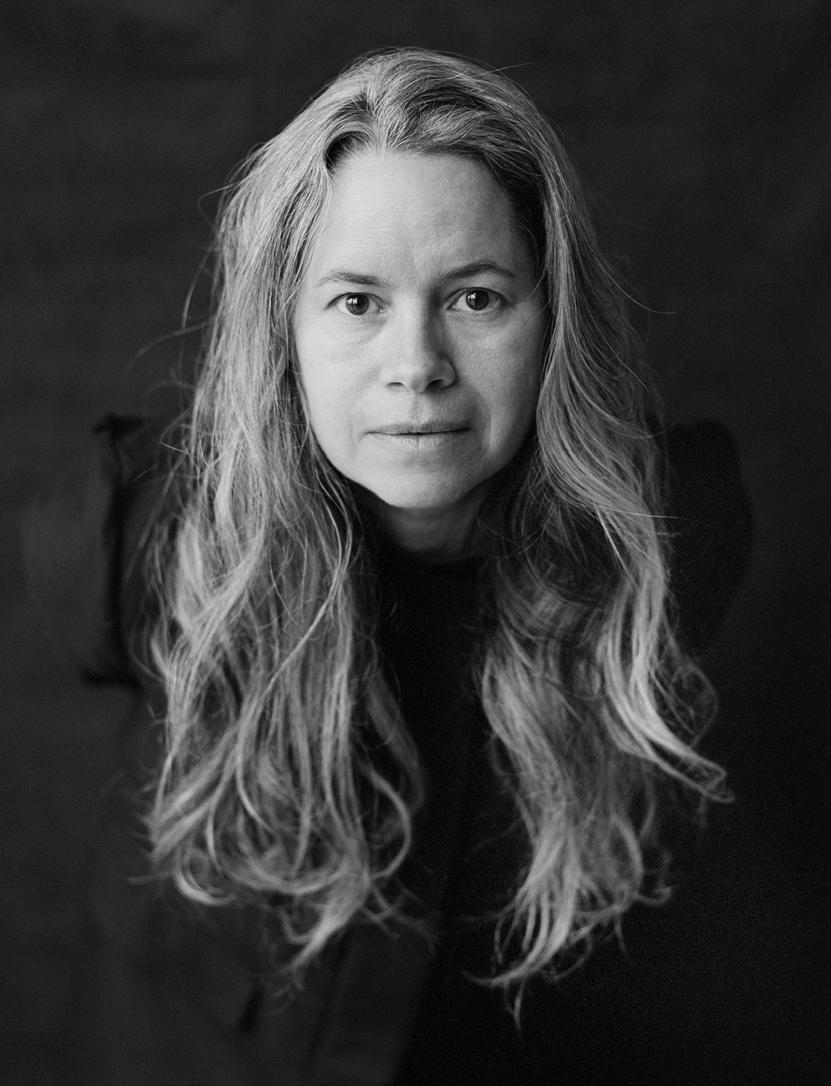 Photo by Jacob Blickenstaff
By Brett Leigh Dicks
Photo by Jacob Blickenstaff
By Brett Leigh Dicks
NATALIE MERCHANT KEEP YOUR COURAGE
Nonesuch
As prolific as Natalie Merchant has been across the recent past, an album of entirely new songs has been a long time coming. We were teased in 2018 when Merchant included four new compositions on Butterfly, an album released as part of a ten-disk retrospective box set titled The Natalie Merchant Collection, but we need to go back to 2014’s Natalie Merchant and the 2001 release Motherland for entire albums of new compositions. All that changed in April when Merchant released Keep Your Courage, her first full album of new material in almost a decade. When Merchant decided it was time to collate a collection of new compositions, it was something she dived into heart first, literally. Written and recorded during the flux and fear of the global pandemic, the period of introspection afforded the singer-songwriter the opportunity for a little inward contemplation. Driven by the majestic orchestral production that has charged much of Merchant’s recent live work, Keep Your Courage is an ode to the strength and bravery inherent to love and human connection. Brett Leigh Dicks recently spoke with Merchant from her home in upstate New York where she told him if she was going to make a new album, she wanted it to be ‘epic.’
Your past few releases – Butterfly, Folk Songs, and Paradise is There – were all retrospective in one way or another. We need to go back to 2014’s Natalie Merchant for an entire recording of new songs. What was the motivation for you putting pen to paper?
It seemed like it was time. I think writing this album was what I had to do to be in the studio again to make an album. My daughter was getting ready to go off to college and, to tell you the truth, if my nest was going to be empty, I was probably going to have a difficult transition. I’d been deferring songwriting and album making on that scale for years because I wanted to be an attentive parent and I realised that soon I wasn’t going to have anyone to tend to. She went off to College in September and I was in the studio by October! The album takes us on a journey through love and all its many facets. Why do you think this collection of songs came to you when they did?
I didn’t really have an answer to that until recently when people started asking me why. I would say the COVID quarantine and lockdown and those long months of solitude – I was with my daughter but didn’t have a partner – where there was no way to meet anyone. There was a lot of time to imagine what that might be like and to also reflect about love I had experienced in the past. That was the romantic love, but I’ve always written about love in a more expansive, inclusive,
and universal kind of way so I explored that too in songs like “Sister Tilly” and “Song of Himself.” I wasn’t consciously setting out to make an album that had an overarching love theme - that just seems to be the thing that tied together my writing during that period.
The orchestration and production on the album are breathtaking. When I last saw you perform live you were accompanied by an orchestra. What inspired taking that approach into the studio for this album?
Since 2008 orchestral shows have been my bread and butter. With this new album, I now have 47 songs that I can perform with an orchestra, but I’ve had a long enough program that I can perform with orchestras for a while and probably done around 70 of those shows over the years. It’s a format that I’m really comfortable with and enjoy, but I haven’t done a lot of recording with full orchestration. The songs on this album were all written with piano and voice so they can stand alone that way, but I wanted them to have an epic, cinematic presence. I think they deserved that.
You recorded in the midst of lockdowns. Producing such a lavish album comes with its own inherent challenges, but the social landscape at the time must have also made things interesting?
It was very ‘interesting.’ It might sound like all those people were in the room together at the same time, but they couldn’t be because of restrictions. What was really nice though was there was a real enthusiasm for making music together – just being together with other people was something – but to be making music together again was very special. All the musicians on the record hadn’t worked for a couple of years so it was really powerful to be together again making music.
A revelation on the album for me is Abena Koomson-Davis – and I suspect I have totally mispronounced her name. What an incredible presence she has on those songs. How did your creative paths first cross?
Her name is pronounced Ar-ban-na. I knew her for three months before I could properly pronounce her name! Abena is the musical director of the Resistance Revival Chorus which was born around the Women’s March in 2016. I first became aware of them through that, but we then did a political Get Out to Vote rally in upstate New York. I was completely taken by her personality and her incredible voice. We have done a few things together since and every time we’ve got together, I’ve told her, ‘I’m writing songs for you and we’re going to make a record.’ She politely laughed and said, ‘that’s a great.’ I don’t think she realised I was actually doing it!
You alluded to exploring universal love on the album and cited “Sister Tilly” as an example of that. There’s an incredible reverence to that song. Tell me a little about “Sister Tilly” … Tilly is the composite of several women that I love who are all from my mother’s generation and have been surrogate mothers to me. They’re all in their early 80s and we’ve lost a couple of them now. One of the women I really loved died during the pandemic and there was no funeral or memorial for her, so I wanted to eulogize her. >>>
Acclaimed singer releases an ode to the strength and bravery inherent to love and human connection.
Natalie Merchant Keeps Her Courage
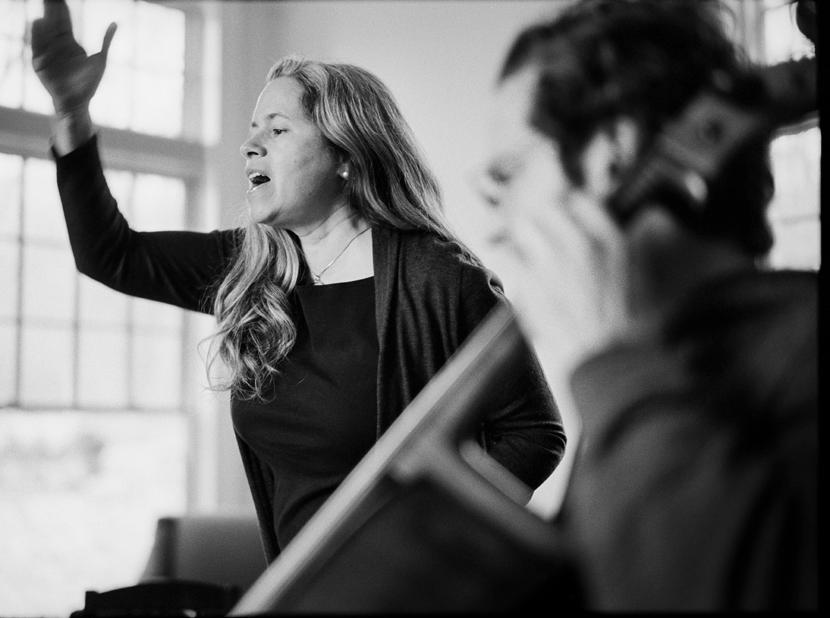
>>> But then I realised it’s not just her but it’s her entire generation that I’m grateful to. We owe so much to these women - they were cultural revolutionaries. The fact that I was able to have my daughter in a well-equipped hospital that has a beautiful birthing centre, and my obstetrician was a female and that I could breastfeed, that was not the environment I was born into. There was no such thing as a birth centre when I was born. My mother was completely anaesthetised, and I was formula fed. So many things we take for granted – like the right to have an abortion which is now being taken away from us - are the result of the activism of these remarkable women and I think we need to acknowledge them, and I felt it’s better to do so while they’re still here.
While “Sister Tilly” is driven by a very rich narrative, the poignancy of a song like “The Feast of Saint Valentine” comes from its imagery. What images did you have in mind while writing that song?
I actually remember writing that song very well. I wrote it in the middle of a bleak February during the height of lockdown. I got to thinking about all the people in the world who’d had their hearts injured in some way or another and how, after being hurt, it takes a lot of courage to remain open and vulnerable to the possibility of being in love again. There’s a line in the song that goes ‘take this paper heart and keep it safe’ where I’m referring to having a token of love that proves that you’ve been loved. That is something that can give you strength. I remember looking out at the snow and imagining red roses laying in the snow. Finding red roses in New York in the middle of winter is impossible so I think there’s something really mystical about
that tradition of having red roses at Valentine’s Day.
That line speaks platitudes. There is actually some very beautiful wordplay across the entire album …
That’s something I enjoyed with this record. I haven’t mentioned this in anything I’ve previously put out about the record, but in the middle of the lockdown I received a book from an author in Scotland. It’s a novel but written mostly in poetic form. His name is Robin Robertson, and the book is called The Long Take. I just completely fell in love with language again as a result of reading that book so I decided with this album I wouldn’t be so concerned with being literal all the time and should give myself license to have more fun with language and play with it more. That line about the paper heart was in the spirit of allowing myself to be more poetic and not as direct as I usually am in my lyrics.
Speaking of being direct, you have always been very vocal, active, and direct on the sociopolitical front. This is an album about love and togetherness and inclusion, and I love that you are also making a statement on that front too. Your song with Abena for example, that seems to me to be very much a case of you leading by example
Very much so. The fact that Abena and I are singing together is healing. There has been so much racial tension and violence and division that I think we need more examples of two women of different races being completely loving and respectful and making something beautiful together. It might be a small thing, but I think there’s something powerful that.
Photo by Jacob Blickenstaff
On
Of
By Brian Wise
We last spoke to Rickie Lee Jones about her candid and enormously entertaining 2021 memoir Last Chance Texaco: Chronicles of An American Troubadour which certainly outlined Jones’ life and career in vivid detail.

Turns out that book marked somewhat of a watershed in her recording career
coming as it did between two albums of quite different interpretations of other writers’ songs.
The album Kicks in 2019 tackled an eclectic selection of songs from acts as diverse as Bad Company, Elton John, Bobby Darin, Steve Miller and Lee Hazelwood, to name just a few. Not that Jones hasn’t recorded jazzoriented albums in the past. The 1983 EP Girl at Her Volcano contained versions of Billy Strayhorn’s ‘Lush Life’
and the Richard Rogers-Lorenz Hart classic ‘My Funny Valentine’. Pop Pop in 1991, which featured Robben Ford on acoustic guitar, included more jazz standards such as ‘Bye Bye Blackbird’ along with ‘I’ll Be Seeing You’ and ‘My One and Only Love’.
The new album from Jones, Pieces of Treasure, takes a much more focused approach and concentrates on classic songs from the great American Jazz Songbook. >>>
her new album Pieces
Treasure, Rickie Lee Jones revisits some of the greatest songs from the American Songbook and reunites with her first producer Russ Titelman.
Photo by Astor Morgan
>>> You’ll recognize many of the songs immediately: ‘Just in Time’, ‘Nature Boy’, ‘One for My Baby’, ‘They Can’t Take That Away from Me’, ‘All the Way’, ‘September Song’, ‘On the Sunny Side of the Street’ and ‘It’s All in the Game’ and more. These songs have become part of the American music lexicon and most, if not all of them, are probably being performed in bars and jazz clubs around the world as you read this!
Pieces of Treasure also reunites Jones with her lifelong friend, the legendary producer Russ Titelman, who co-produced her 1980 selftitled debut and its 1981 follow-up, Pirates (to which the latest album’s title hints). They recorded the entire album over five days at Sear Sound in New York City, with a star jazz quartet of Rob Mounsey on piano, guitarist Russell Malone, bassist David Wong and drummer Mark McLean.
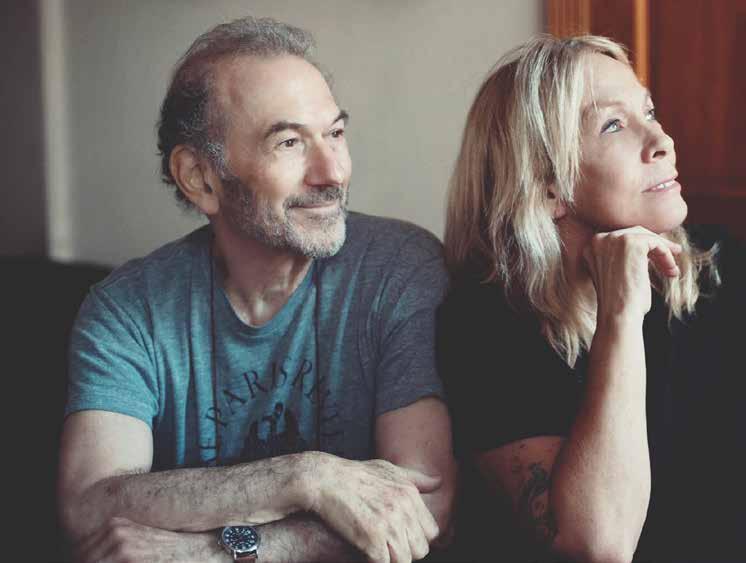
“
Well, I decided I wanted to work with a producer again and not do any job but a singing job” explains Jones when we connect by Zoom and I ask her how she came to team up with Russ Titelman again. “But there aren’t very many producers. Let’s face it. There’s a lot of people who can record stuff
and play stuff but the magic of creating an environment where an artist hits her highest point - his or her highest point - there just aren’t very many of them. It’s kind of a selfless job. You’ll notice a lot of producers promote themselves even more than the artists. So, there’s a lot of characters out there. So, I was thinking about Russ and we had a lunch and at the lunch he said, ‘I really think it’s time for you to do a jazz record. I want to do a jazz record with you’. I sat on that for a little while and thought, ‘Well, I don’t know. I might like to do my own stuff now.’ But he was so adamant, and I thought, ‘Well, we can do a jazz record pretty fast.’ Bam, bam! We made the list and we did do the record really fast but it turned out so beautiful. Russ was insistent that we stay on point with this one kind of music and one band.
Jones said that she had planned to showcase the new album at jazz festivals during the course of the summer but has met some resistance from jazz promoters and what she calls the ‘ludicrous Jazz Watch Tower’.
“I’m just going to lay it all out there today,” replies Jones when I ask her why she has
Russ Titelman and Rickie Lee Jones.
Photo by Vivian Wang.
got a negative response from some in the business. “In spite of that being so difficult, when I put that record on and listen to it, it’s got all the magic and confidence of a debut record. It’s like, ‘Here I am, I’m brand new and this is what I have to say’. So, I can’t help but hope that in a short time, the people who do business will book me.” [Local promoters take note!).
“Isn’t it just unbelievable,” she continues, “but it’s the truth. There are a lot of people in between an artist and the stage. They set the tone for whether or not you work, how you work, how people think of you in your work. It, it would make an interesting book if, if, if you could write it. It’s impossible.”
I tell Jones that the people she is talking about are called the Jazz Police over here. “Yeah, that’s what people usually call them,” she agrees, “but who are they?”
Jones says that she can understand some fans wanting things to stay the same but as she points out, “if you make a thing stay as it was, it’ll die. Things have to keep moving and growing. The great work of the fifties exists. So, why imitate it for the next 50 years? Let it grow. Let the best artists interpret the best songs. If you insist that it’s smooth and that everybody dresses nice then it becomes the squarest thing that ever was and in spirit so far away from the great black artists who created it.”
“So, I always feel like it’s a bunch of old guys. They were 25 when they discovered jazz in 1975 and now they don’t want to let anybody else in. Now, I will never say all that crap again. They might just be businessmen, maybe they don’t even care about jazz, but they do run jazz festivals.”
“I just woke up from nap,” laughs Jones. “I woke up cranky!”
“You know, back then all those popular singers sang the best songs,” says Jones, after mentioning that the new album pays tribute to singers like Nat King Cole, Dean Martin and Frank Sinatra. “So, if they did a great job and did a definitive version, which is the case with most of ‘em, then that’s what I have to contemplate when I do them. Not only do I like to sing it but how can I recreate it so that it’s new.
“I learned ‘Nature Boy’ by Nat King Cole from my dad and I’d only heard Nat once or twice, so I didn’t really feel worried about his version. But ‘All The Way’ by Frank Sinatra and ‘All In the Game’ that 1950s hit? How are you ever going to rescue that song from AM radio oblivion."
Jones mentions that a friend was puzzled about why she recorded ‘All In The Game.’
“I did it because it’s the story that everyone has felt of people waiting for their lover to come back who may not come back,” she explains, “but in this lyric, the lyricist supposes that he will return and he’ll touch your fingertips and you had words with him and your future is looking dim. The words are so deep, and I thought somehow people have missed what a beautiful and sad song is. I know Van Morrison did a wild and wonderful version of it that he segued into, ‘You know, you know it, they’re writing about it’. I always liked it a lot, but it wasn’t what I wanted to do. So, I found my way into it.
“I didn’t really know ‘Here’s That Rainy Day’,” she continues, “and Russ sent it. I maybe heard a line or two, but I learned that over a period of two or three months playing it every day, singing along with Frank and finding a way in. Because he’s such a great singer you have to be really careful when you use him as a teacher or you’ll be singing like him.
“But I think the mystical and wonderful thing that happened when I got into the studio and met the players, who were so kind, was that some other characters began to come out entirely. Not the one that was there when I practiced, not the one that was there a week before. Some other funny sensual attitude that was able to command those songs. I feel really lucky because it was a great week.”
Jones has previously said that the new album is as much about being human, the view of surviving, which means aging and loving relentlessly as it is about anything.
“It’s about never giving up on love and fiercely loving,” she agrees. “So, you get tossed and turned in the washer and dryer of romance and you come out singing.”
Jones has also said that the song ‘Just In Time’ is like Dean Martin might have been with his sweetheart.
“He was kind of like the Diana Ross of jazz,” laughs Jones. “I think Diana has an incredible command, an amazing range, but there’s something you don’t notice - her range
because she does it so effortlessly. But in the Italian American community - at least in New Jersey - he was favored over Frank of all things. So, I got to know him better and his music better in the Eighties. He was so funny and full of love and maybe didn’t take himself as seriously as some other people. So, people quite loved his offhand way of singing a song.”
What was Jones’ vision when she went into the studio, what did she want to bring to the songs apart from her unique voice. After all the, songs have been recorded a lot and they are standards.
“The simplest thing - to deliver a great vocal so that it can stand next to anybody else’s,” says Jones, “and, hopefully, speak to some people that might not relate so much to the many men who recorded it, or women. But also, to make an album that shows that I’ve always been a jazz singer - not that I have anything to prove - but that says, here’s what I do most naturally - and enjoy it.
“But I feel like what happened was something deeper, deeper water. It’s almost like the book. Once the book was over, I felt relieved of a great weight and I felt kind of new. Once this record was finished again, I felt relieved of a great weight, a long time coming this record. And it’s really beautiful.
“I write kind of odd music and that’s just the way it is. I can write regular songs but my natural way is to turn left and turn right and make a bridge here. So, it’s less likely in my estimation that very many people are going to gather around my work whereas they might gather around a record like this. When it was over, we went I think we’ve made a record for all time for the times. I think people are going to like this record. So that, that’s how it seemed.”
Jones has taken us back to an era where there were singers and there were songwriters and they didn’t mix. This was long before every singer decided they had to be a songwriter. Was it liberating to be able to go into the studio and sing someone else’s songs and not have to worry?
“That’s exactly what it is,” agrees Jones. “That’s exactly what I wanted to do. I’d been producing my records for a long time and dealing with almost exclusively large groups of men - sometimes nice men and often good players. But you’ve still got a bunch of personalities. What I’d like to just be doing is planning what I’ll play, how I’ll sing. You can’t do that when you have too many hats on, as an arranger and hiring everybody. So, I went, ‘I’m done doing this, I don’t need to do this anymore. I can do it but it’s not what I’m greatest at. I want a producer here and I just want to walk in and sing and go home. That’s what I want to do. I want to stand on a stage and not have to play the guitar and not have to play the piano - open up my arms and sing to all the world. That’s what I want to do before I’m gone. That’s what I tried to set up.”
Pieces of Treasure is available now.
By Martin Jones
Valerie
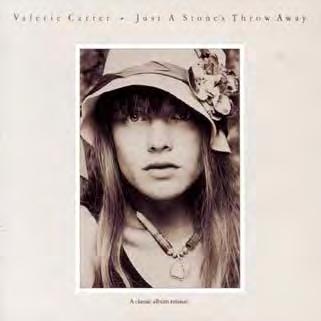
 Carter
Carter
Just A Stone’s Throw Away Columbia
How’s this for a list of contributors for a debut album: Linda Ronstadt, Bill Payne, Lowell George, Jeff Porcaro, Herb Pederson, Jackson Browne, Bob Glaub, Fred Tackett, John Sebastian and most of Earth Wind and Fire?
I guess when you’ve won Lowell George’s attention, you get the full service. George co-produced Valerie Carter’s 1977 debut Just A Stone’s Throw and threw the kitchen sink at it, recruiting Little Feat and a healthy sample of LA’s best for a great but seemingly forgotten record. George also co-wrote a bunch of songs alongside selections like The Five Stairsteps’ ‘Ooh Child’ and the title track by Barbara Keith and her partner Doug Tibbles. So, who was Valerie Carter? Well she was probably most visible as author of the Judy Collins song ‘Cook With Honey’ and as backup singer for James Taylor for many years. Carter’s musical career began in earnest in LA with her band Howdy Moon. She credited her early breakthroughs to Howdy Moon band member Jon Lind and her manager Bob Cavallo, who also managed Little Feat. It must have been Cavallo who helped recruit Lowell George to produce Howdy Moon’s 1974 self-titled record. The band broke up soon after, and George pulled in Jackson Browne to help Carter write material for her solo debut.
This is how Carter recalled the all-star lineup for the record: “Well, what we did was — and I’ve never done it since in quite the same way with quite as much gusto — we had a “wish list” of anybody who was our idol on any instrument, and they played on that record. EVERYBODY, we just didn’t miss anybody. It’s an amazing bunch of people.”
Carter recalled an overwhelming mixture of gratitude and insecurity writing and recording with such talented and experienced people. “I think part of what happened for me is that I felt like I was going to get ‘found out’ back then,” she explained. “I was thinking, ‘I can’t really do this, but here I am and these people are so talented and wonderful, and I’m just sort of coasting on their heels.” But then I look back and I think, well why would they have worked with me, and I try to feel ‘validated’.”
If Carter felt insecure recording the album, she was terrified to find herself onstage opening for The Eagles soon after. But the
opportunities kept coming and Carter managed to grab them when they arose; a chance meeting with Judy Collins resulted in Collins recording Carter’s song ‘Cook With Honey’; an impromptu recording session with James Taylor resulted in Carter becoming a permanent member of his band. However, though Just a Stone’s Throw Away was well-received, and Carter got to make a follow-up, Wild Child, a year later, Carter decided she preferred being a backup singer to being the star.
I suppose that’s part of the reason that Just a Stone’s Throw Away has been overlooked. It’s not for lack of quality. As if Carter’s eyes staring back at you on the cover aren’t arresting enough, as soon as she steps up on opening song, ‘Ooh Child’, she bowls you over (I’m still trying to think whose version of this song is stuck in my memory – and it’s not Marcia Hines’). The opener showcases her vocal range from sensitive and sultry to funky to sweeping Riperton-esque upper register climaxes. However, Carter made no secret about her preference for sad ballads and it’s in such fare that she demonstrates her true powers, selling the song with sincerity. After the more upbeat soul of openers ‘Ooh Child’ and ‘Ringing Doorbells in the Rain’, the album subsides into more bucolic melancholy. Her take on George’s ‘Heartache’ arrests time and ‘Face of Appalachia’, a song George co-wrote with The Lovin’ Spoonful’s John Sebastian, is a prime-grade cut of classic Americana. That tone is picked up on ‘Cowboy Angel’ on side-B, a song Carter co-wrote with George, while the closing George-Carter composition, ‘Back To Blue Some More’ is more jazzy with the “lonely café” and “neon sign” lines resounding with the drama of a Jimmy Webb song, forecasting territory Rickie Lee Jones (also a Lowell George collaborator) would take to the top of the charts.
Where did the title track come from? Well, Lowell George again – he worked on Barbara Keith’s second album, which featured the song ‘A Stone’s Throw Away’. Here Carter makes a stunning costume change, grittier and bluesier with maybe a nod to her friend Linda Ronstadt as she cries ‘please deliver me…. Georgia never looked so good as she does from Tennessee.’ Makes me shiver every time.
Carter released a collaborative album, The Way It Is, and an EP, Find a River, in the ‘90s. She died of a heart attack in 2017 and two Lost Tapes albums of unreleased recordings have been posthumously compiled.
BY KEITH GLASS
In the 60’s/70’s/80’s major record labels worldwide maintained a massive album release schedule. Only a comparatively few artists scored a hit, others became ‘cult’ classics. Beyond that exists an underbelly of almost totally ignored work, (much never reissued) that time has been kind to. This is a page for the crate diggers.
BROWN’S HOME BREW TOGETHER

Vertigo 2001 (Released 1974)
In the UK, singer/songwriter/instrumentalist Joe Brown remains a bona-fide legend with a legacy commencing in the early Rock n’ Roll/Skiffle era and continuing until today. Alas his only major international chart breakthrough (with The Bruvvers) was the jaunty A Picture Of You - a fine pre Beatles pop rocker. It is a great song but to judge his career by that alone would be a major disservice and unlike others of his ilk the emerging ‘beat’ era (whilst comparatively light on hits) only served to make him stronger as a talent and survivor. By the early 70’s when he formed ‘Brown’s Home Brew’ wider influences from rural rock to near Prog/Psych had come into play and together with his wife Vicki (a truly fine singer) and an extremely talented 4-piece group, he produced two albums. The first one Tennessee Mash Man on the Bell label (1972) I confess I’ve never seen or heard but the second Brown’s Home Brew on Vertigo managed more widely available release and it remains a startling leap of faith and ability.
Brown and crew take on the then current ‘rural rock’ sound and infuse it with some Gospel, Progressive touches to create something truly exceptional. Whilst the main songwriter, Joe takes a slight side-step back to feature his wife’s fab bluesy vocals, giving full rein to the four fine multi-instrumentalists (and largely vocalists) that make up the group, and peppers it with his own vocal/guitar/fiddle/mandolin
work. Thus, the album wouldn’t suffer being paired alongside seminal work by ‘The Band’; Paul Butterfield’s fine latter-day Americana efforts (somewhat maligned at the time) or any number of often then dismissed, now revered roots related artists – indeed it was a fertile period if you knew where to look.
Alas, not too many were looking this way. Roger Cook produced; the label gave it a wider shot in terms of release so that the US copy I hold can still be picked up fairly easily and inexpensively. Maybe the quaint English seaside cover doesn’t quite fit the passionate and often spiritual content. The opener Build a Wall being prime example while track three Cincinatti Floor (their spelling) is a Paul McCartney type music hall sing along for some light relief before the heavier side of the equation is brought into full focus via The Fisherman, Papal Rock, I Was Lost and album finale My Good Friend Noah. Whilst spiritual in nature, I did not find these efforts overly preaching, I did find them full of belief, power and passion.
The cover photo with a couple of bottles of ale in a group beach frolic shows a then contented band and why not – their wide array of instrumentation ranged from ‘normal’ guitars/drums through dual mandolins/banjo/steel guitar/keyboards, and I am sure if I checked the history of some of the players (Joe Fagin/David Hynes/Roger McKew and Tony Williams) there would be a rich prior and later musical history for most if not all.
Most importantly this band cooked on every level, avoided the pomposity rife in the era (quite a deal of it on the Vertigo label), they kept it down to earth and I’m positive would deliver the goods live. Just a pity they weren’t around longer. Joe’s own, still ongoing musical story is astounding and you can check a very detailed history on his website http://joebrown.co.uk/. It presents the life of a consistently high-quality artist if not restless spirit always looking for something new.
For sure he’s been there and done that, but Brown’s Home Brew comes from a special time when all bets were off, musical adventures were wide open for interpretation any way you wanted, it was still a fun time and you just might score a hit. They didn’t, but it takes a special spirit to keep that dream alive and this piece of vinyl is proof it can live on.
By Chris Familton
ESSENTIAL AMERICANA ALBUMS
Lucinda Williams - Car Wheels On A Gravel Road (1998)
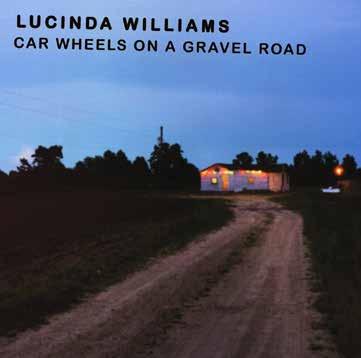
‘Sittin’ in the kitchen, a house in Macon
Loretta’s singing on the radio
Smell of coffee, eggs and bacon
Car wheels on a gravel road
Quarter of a century ago, at the mid point of 1998, Lucinda Williams released her fifth and best-selling album Car Wheels On A Gravel Road. It was an album that undeniably helped to define a burgeoning new genre/label that would come to be called Americana. The record went on to win a Grammy Award for Best Contemporary Folk Album in 1999 and cement Williams’ place as one of the finest songwriters of her generation.
The path to release wasn’t a smooth one though, that gravel road had many roadblocks, speed humps and dangerous curves beginning with a protracted recording process. Initially under the helm of producer and guitarist Gurf Morlix in Austin, Texas in 1995, the sessions shifted to Nashville Tennessee later in the year, where problems began to arise. After being part of a session for a Steve Earle album, with Earle and Ray Kennedy producing, Williams became dissatisfied with the sound of her new recordings and hired Earle and Kennedy to re-record some of her album. Three cooks in the studio kitchen led to production conflict with Morlix and his subsequent resignation from the role. Eventually, the album was completed, after yet another delay due to American Recordings changing their major label distribution in 1997 and Mercury Records subsequently buying the masters of the finished album. Three years had passed since the songs of Car Wheels On A Gravel Road began their journey into the wider world but finally in June of 1998 the album was released.
If you listen to the album back-to-back with the preceding Sweet Old World, you’ll be struck by how much she shifted sonic gears from the raw and thin country-folk sound of that album, taking her songs into a decidedly more 90s roots-rock sound. The realisation of how her songs could sound, if recorded differently, no doubt played a big part in her beautifully re-recording Sweet Old World in its entirety in 2017. A warmer, more ‘produced’ sound also meant the album would appeal to a wider range of listeners, greatly increasing her fanbase in the process. It was the sound of an artist taking a big step forward, Williams’ voice taking centre-stage and giving added weight to her tales of heartache and the Deep South. In addition, the album was graced by a who’s who of alt-country artists, all still strongly in the game. Steve Earle, Buddy Miller, Jim Lauderdale, Emmylou Harris, Charlie Sexton, Greg Leisz, Roy Bittan (The E Street Band) and others all contributed key parts to the effortless ache and melancholic country sway and twang of the music.
Williams set her songs in the Deep South, name-checking places such as Macon, West Memphis, Lake Charles, Louisiana, Baton Rouge and Rosedale, Mississippi. By placing characters within these locations
she successfully combined the macro and the micro - emotive dots on the landscape connected by the universality of their experiences. On the album’s closing song ‘Jackson’ she’s putting literal and figurative distance between the narrator and the song’s ex-lover. From the geographical settings of the songs to a landscape of fractured relationships, regret and guilt, she perfectly dissects the rough terrain – from hearts in bloom to heartbreak and its aftermath. “Not a day goes by I don’t think about you, you left your mark on me, it’s permanent, a tattoo. Pierce the skin and the blood runs through,” she sings on the opener ‘Right On Time’. By track 11 she’s singing “I know it’s over ‘cause you told me so. I tried to leave but I can’t let you go. I can’t believe you don’t want me no more. Still I long for your kiss.” On ‘Joy’ she’s desperately and defiantly trying to find joy once more, maybe in West Memphis.
Reality and fiction intertwine across the album, with ‘Drunken Angel’, a towering highlight written about murdered songwriter and friend Blaze Foley. On ’Lake Charles’ Williams’ remembers ex-boyfriend Clyde Woodward who also died prematurely, long after the pair split up. Though there’s a slick, high-res quality to the recordings, like Petty in his commercial prime, there’s also a strong connection back to the dirt and dust of the countryside, particularly on songs such as ‘Concrete and Barbed Wire’. Like a back porch session, it’s Williams at her most relaxed and countrified, a timely reminder of the roots of her music and that Southern drawl.
Car Wheels On A Gravel Road would be the opening chapter of the next part of Williams’ career. A major signpost of her poetic creativity – sometimes tender, sometimes caustic – that she’d explore across the next 25 years, along the way influencing a whole generation of Americana songwriters.
By Steve Bell
NEIL MURRAY
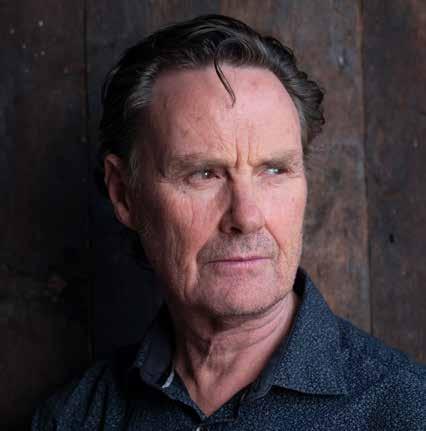
THE TELLING
Island Home Music
The storied career of legendary Australian singer-songwriter Neil Murray has been synonymous with Indigenous Australians and their struggles ever since he first emerged as part of influential Aboriginal rockers Warumpi Band back in the early-‘80s. His personal relationship with Aboriginal Australia extends beyond empathy to a level almost akin to kinship itself, and it’s one he’s explored in great depth both during his decades-long solo career as well as in his countless books, short stories and published articles. And a cursory listen to his new tenth solo outing The Telling shows that his genuine sadness about the myriad injustices faced by Indigenous Australians over the years shows no sign of abating, nor does his desire to keep shining a light on those travails and inequities with his words and music. The follow-up to a pair of albums that dropped in 2019 with Murray’s name on the cover - his own acclaimed solo effort Blood And Longing as well as Tjungu (All In One, Joined Together), his collaboration with founding Warumpi Band guitarist Sammy Butcher - The Telling finds the storyteller in full band mode, having assembled a strong musical unit to accompany him on the sessions: namely Stephen ‘Stretch’ Teakle (keys/accordion/clavietta), David Neil (mandolin/guitar/ vocals), Shane Reilly (pedal steel), Craig Kelly (bass) and long-term drummer Bill Heckenberg.
And while the recording sessions for The Telling were a strictly urban affair - the album’s ten songs recorded in Melbourne with producer Roger Bergodaz and then mixed in Sydney by Ted Howard - the album’s vibe is resolutely rural, kicking off with three strong songs dissecting the Indigenous experience from differing perspectives.
Opener ‘Broken Land’ starts with an upbeat full-band arrangement which sets the scene perfectly for Murray’s perfectly weathered
and expressive voice to lay bare a tale reflecting upon Australia’s colonisation from a First Nations viewpoint, a story that’s been told before but which never fails to unsettle (especially in these ultra-authentic hands).
This is followed quickly by catchy, up-tempo rocker ‘No Justice’, an equally impassioned dissection of deaths in custody which asks for not only accountability but empathy as well (“Put yourself in any brother’s place/To find out what it’s like, to feel the hate”). Then the beautiful ‘Tears of Wybalenna’ slows down to a country shuffle underlying a poignant narrative about Aboriginal Tasmanian woman Truganini, another colonial-era tale of displacement and oppression.
‘Heal My Life’ then steers things towards affairs of the heart only to disclose that there’s no respite from pain to be necessarily found in these waters (“show me where the love is or let me go” Murray cajoles in a moment of great clarity), the guitars amping
vulnerable lament to a lost lover, while ‘The Manager’ slows to a crawl for a less intimate but no less affecting paean to a departed music industry comrade.
The jaunty, stripped-back country stylings of ‘The Murrumbidgee’ find Murray yearning for a simpler existence on the titular inland river - a simple story about life on the Aussie land despite the many factors impacting the landscape - environmental concerns which are brought into even more stark focus on ‘Rainbow Serpent And A Mine’, the moving co-write with traditional owner Jack Green about the McArthur River mine near Borroloola, highlighting how the impacts of such operations are often cultural and spiritual as well as physical and environmental.
up in unison as the singer’s pleas reach a passionate crescendo.
A pair of songs in the middle section of The Telling reflect on the pain and reflection facing those left behind after the death of a loved one: the atmospheric ‘For Evermore’ a
Towards the tail-end of The Telling the mournful trumpet of Jack Howard (Hunters & Collectors) ushers in the gorgeous ‘My Yuendumu Song’ - an uplifting telling of life in the indigenous outback town, located some 300km northeast of Alice Springs - and the album reaches its inevitable conclusion with ‘If The Wind Be Kind’, a kindhearted sea shanty hoping for love to triumph over distance and adversity. It’s an album tackling some deep and thought-provoking topics which could have been extremely heavy going in less experienced hands, but Neil Murray has become the master of melding two disparate - and most often contradictory - worlds and viewpoints into something singular and powerful, and with The Telling he has crafted yet another fine collection befitting his immense reputation and legacy.
The Telling Is Out Now On Island Home Music, And Available On CD And All Digital Platforms (Distributed By Believe).
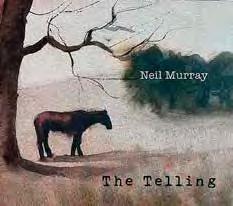 Neil Murray. By Jesse Marloe.
Neil Murray. By Jesse Marloe.
JEN MIZE & THE ROUGH N’ TUMBLE Pathfinder Music
 By Steve Bell
By Steve Bell
For the last decade or so US-born, Brisbane-based singer-songwriter Jen Mize has been endearing herself to the Australian country scene with her strippedback take on Americana, favouring spacious arrangements which allow plenty of room for her rich voice to shine through.
But not anymore. These days she can be found out front of her accomplished eightpiece outfit Jen Mize & The Rough N’ Tumble, delivering a powerful blend of country, blues, soul and old-school rock which feels just as authentic and - crucially - gives her scope to take her powerful vocals to a whole new level.
“If I’m being honest - and I’m being really honest - I’ve always wanted to work with the guys that are in the band in some capacity,” she laughs. “But when I was thinking about a new project I felt that I had to get away from the stripped-back thing, just because being a 45-year-old female does have it perks and it does have its drawbacks.
“In terms of getting booked for major music festivals - considering I’m not like a household name - I got overlooked more often than not, because I just didn’t have anything that just grabbed people by the shirt and said, ‘Hey!’
“I was trying to achieve that with my songwriting for years, and then I just realised that it wasn’t working. I mean I grew my fanbase slowly but surely - and when people did get to hear my songs they seemed to like what they heard - but it was just taking me forever to get in front of people. So, I just decided that I wanted to do something big and bold.
“I don’t have a lot of time left to sing this type of music - at some point my voice will get tired - and at 45 that’s when the female voice is at its most mature. You have your most notes available and your most power available, so I just said, ‘Well, if I’m ever going to go for something big and bold then I might as well do it now! And just go hard!’”
Ahead of the release of the band’s eponymous debut album they’re already racking up accolades - strong single ‘All Riled Up’
recently earned them a Queensland Music Award for Best Blues/Roots Song - which is giving Mize great confidence that her strong new sound is a step in the right direction.
“I’ve always loved country music, blues music and soul music all kinda wrapped together,” she explains. “Some people call that Americana, people who like blues call it blues, people who like country call it country-blues, people who like soul call it soul. Everybody calls it something different, and that’s okayas long as people are showing up at gigs and digging what they hear then you can call it whatever!
“But I always loved listening to Bonnie Raitt as much as I loved listening to Stevie Wonder as much as I loved listening to Willie Nelson - my taste is wide, it’s vast - so I wanted to make music that made me think about the music of those times.
“Like The Black Crowes changed my lifewhen [1990 debut album] Shake Your Money Maker came out I was like, ‘Yo, this is awesome!’. That really groovy Southern rock just makes me feel good, and I wanted to make music with a bunch of musicians that I really like as people - like I love to hang with them - and I know that they have the skillset to make that kind of music with me. As well as be able to bring something extra that maybe I wouldn’t even envision, where I get to let them off the chain and just go wild and bring some weird stuff that I wouldn’t expect or I wouldn’t come up with myself.
“I just wanted to do the Duke Ellington thing where you surround yourself with the best musicians possible and have a great time, and they make you look better in the process. That was kinda the whole concept I’d concocted before we even started putting the band together. I wanted to not be so cerebral all the time and just get some guts behind it.”
The songs comprising The Rough N’ Tumbles’ debut album are indeed robust but also resoundingly sultry, allowing Mize to get off the chain vocally and add some genuine verve to proceedings.
“Vocally I want to explore that side of Americana where Tedeschi Trucks Band live and where Bonnie Raitt has always lived,” she offers. “Bonnie’s probably far and away my biggest influence, and it just feels natural. It’s all about having that empowered female approach delivered with power, realising that you can be feminine and be powerful and that they can co-exist at the same time.
“Everything to me starts with Bonnie Raitt. There’s those tunes from her early records like ‘Give It Up Or Let Me Go’ and then later tunes like ‘About To Make Me Leave Home’, those songs have these amazing grooves and just drip with feminism and empowerment and have absolutely no shame in exploring female sexuality and just being real about it and owning it. That’s something I’ve always wanted to explore and I feel so lucky getting to do that with this amazing band at my back.”
ALBUMS: General
MARCEL BORRACK THE TELECASTER DIARIES
Highlights include ‘Wrangle Dangle’, album opener ‘100% Natural’, and the saxophone friendly ‘Life Drawing’. The album closer ‘Hot Cola’ with Bossa-Nova rhythms and tiny intricate keyboard melody is also great.
NICK CORR
DIED PRETTY
DIED PRETTY LIVE Citadel
the double LP includes a bonus song not on the CD or digital release, a great performance of Every Brilliant Eye’s ‘Whitlam Square’.
To support the release of Died Pretty Live, the band have announced a small run of Theatre shows this coming October: Friday 13th October: Enmore Theatre – Sydney, Saturday 21st October: Princess Theatre – Brisbane, and Friday 27th October: National Theatre –Melbourne.
NICK CORR
Melbourne guitarist and singersongwriter Marcel Borrack has always led something of a musical double-life. He’s continued to release his own hook-laden music across two fantastic solo albums (Help and I Was Only Dreaming), two albums with his indie pop band Minibikes, and Soft Gold his 2013 collaboration with Sarah Carroll. Concurrently he also composes music and scores for film and television and is in-demand as a producer/engineer for other performers, including great recent releases for Dan Warner (Maybe, then...) and Ella Hooper (Small Town Temple).
Telecaster Diaries sees Marcel bringing together all of these diverse musical experiences, so you have ridiculously catchy instrumental pop tunes played across a range of musical genres and styles including funk, soul, bossa-nova and most frequently Seventies easy listening.
The album stems from a project during the 2020 lockdown when Marcel challenged himself to write and record a new musical idea every day using ‘Pendlebury’ his trusty telecaster guitar. Each recording was then fleshed out with Marcel adding additional instrumentation including bass, organ, percussion and textual backing vocals. These recordings were then sent to collaborators Tim Harvey (Lisa Mitchell, Aldous Harding, Sally Seltmann) and drummer Maria Moles (The Australian Art Orchestra, Jess Ribeiro) to add drum parts at their home studio in Collingwood.

It’s remarkable to think that thirty plus years into their career, with a storied reputation as a formidable live band – Died Pretty are finally releasing their first live album Died Pretty Live
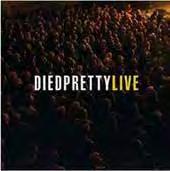
Recorded at Melbourne’s Forum Theatre in February 2008 during the Don’t Look Back series of concerts which was dedicated to the performance of classic albums. Died Pretty play their best-selling release Doughboy Hollow from start to finish. Doughboy Hollow is arguably Died Pretty’s tightest collection of material and includes some of their most popular songs ‘D.C.’, ‘Sweetheart’ and ‘Godbless’. There are no dramatic rearrangements, but without a doubt they are playing the songs better than the original recordings. The live format allows the band to stretch out with many songs included extended musical codas.
Following the Doughboy Hollow performance Died Pretty Live includes an encore of half a dozen songs from Died Pretty’s illustrious back catalogue including ‘Blue Sky Day’, ‘Everybody Moves’, ‘Stoneage Cinderella’ and ‘Winterland’. As a special treat for vinyl enthusiasts
ROBERT ELLIS
YESTERDAY’S NEWS

Love Police Records
Everything about Yesterday’s News feels tightly constrained. From the sparse instrumentation, the plainspoken lyrics, to the material itself with the album featuring a lean nine songs – which includes two instrumental codas, ‘Wait’ is followed by ‘Wait (Reprise’)’and the tender ‘Close Your Eyes’ is immediately followed by its delicate instrumental twin ‘Open Your Eyes’. The open strumming of title track ‘Yesterday’s News’ has an almost jazz feel, especially with the upright bass accompaniment. Highlight for me is the opening track ‘Gene’ a Raymond Carver-esque short story that plays out over delicate guitar picking.
NICK
CORR
MARK MOLDRE
NAMBUCCA FABLES
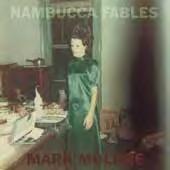
Yellow Moon Records

Texan singer-songwriter Robert Ellis embraces a minimalist approach for his first album in four years, also his first self-released record available locally on Love Police Records. Recorded live to tape in just two days, with Ellis’s vocals accompanied by nylon string guitar, upright bass, and occasional handheld percussion. As Ellis mentions in the press release accompanying the record “the albums I’ve always been most drawn to are small and gentle and soft. The more I sat with these new songs, the more I realized that their stillness was their strength.”
The record has an incredible live sound, it feels like Ellis and bass player Aden Bubeck are sitting in the room playing in front of you – apparently much of this is due to the use of rare, vintage Church MGM U47 microphone (one of roughly only 100 ever made) carefully placed to capture the natural sound of the room.
“The worst thing in the world,” said F. Scott Fitzgerald, “is to try to sleep and not to.”
Four years after his last album, Fever Dreams, Mark Moldre’s mind remains ruffled, his pillow restless. He writes songs about the early hours, when your brain won’t switch off and thoughts are ringing in your head.
In the first single from his fourth solo album, Moldre confides:
“Every waking hour I’m just dyin’ to go back to sleep.” In ‘This Little Town’, he sings about “the sweet relief of sleep”, while in ‘Ghost Guitar’ he is “deep in the night”. Then there’s the songs ‘Wisteria Sleeps’ and ‘Dream Decay’.
“Wake up, I don’t want to stay,” he declares.
Rhythms Books Too
I’ve always maintained that the best music writing costs you much more than the price of the actual book that you become immersed in. I can usually measure the depth of my engagement in a really, really good book or music essay by checking my bank balance or PayPal account.
By that yardstick a couple of recent books are clearly very, very good. By the quality of insights meets expenditure indicator the clear winner is Black Country Music: Listening For Revolutions by Francesca T. Royster.

Heck, I haven’t even finished it and it’s had me searching Discogs for a copy of Tina Turner’s (surprisingly rare and expensive) first solo album Tina Turns The Country On, exploring the catalogue of Lil Nas X after the essay in this book on his ‘Old Town Road’ song, and buying all sorts of things on iTunes – partly to hear and often to include in one of my upcoming radio shows.
Black Country Music is sorta academic in tone but never pretentiously or alienatingly so. And it’s a book that’s way overdue. OK, we all know that country music has traditionally been described as “the white man’s blues.” But there’s a hell of a lot more white artists playing the blues than there are black artists playing country music – with, interestingly enough, the possible exception of Australia whereas documented by Clinton Walker in his ground-breaking and important Buried Country, there is a long, rich and diverse tradition of indigenous artists performing and recording country music. But go to the supposed home of country music and who can you name? Charley Pride? OK there’s a bunch of soul artists who’ve flirted – often extremely successfully - with country. Only the other day I bought Joe Tex’s I now realise magnificent (I shouldn’t have been surprised should I) 1968 Soul Country album on Atlantic Records. But I’ve lost count of the number of times I’ve asked artists in interviews “why is country music soooooooo white.”
This book is based on the notion that, “after a century of racist whitewashing, country music is finally wrestling with its relationship to Black people.” In fact, it’s staggering that this is THE first book on Black country music by a Black writer. Royster’s book contains six essays as jumping off points for her examination of Black country music – or the lack of
By Stuart Coupe
it. She focuses on Tina Turner, Darius Rucker, Beyonce, Valerie June, Our Native Daughters and Lil Nas X, before looking at three artists at the forefront of change –Mickey Guyton, Rissi Palmer, and DeLika Black.
This is an important, provocative, and thought-provoking book that – if you’re in any way like me (and I’m guessing you are) will have you scurrying around listening to songs, records and artists that in some cases you’ve never heard of – and in other instances you’ll be revisiting the work of some that you thought you knew well. BTW – Tina Turns The Country on is a GREAT record. All covers but she owns them – and in particular check her version of Dylan’s She Belongs To Me – which becomes He Belongs To Me.
Not unrelated is Stuart Cosgrove’s Hey America! The Epic Story Of Black Music And The White House.

Cosgrove is the author of three superb books on soul music – Detroit 67, Memphis 68 and Harlem 69. And this is right up there with those books.
Simply put this is a previously untold story of black music. Or as the blurb says, “its triumph over racism, segregation, undercapitalised record labels, media discrimination and political anxiety.”
So, we get Louis Armstrong’s spat with President Eisenhower, Eartha Kitt’s stormy encounter with Lady Bird Johnson, right though to James Brown’s flirtation with Nixon, Reaganomics and the ‘Cop Killer’ scandal. The book’s narrative goes right up to Trump and the Black Lives Matter movement.
And friends – it will have you searching out records. Lots of records. Within an hour of reading I was searching out ‘Impeach The President’ by The Honey Drippers (1973), ‘Lord, What’s Happening To Our People’ by Kenny Smith (1972), ‘Impeach Me Baby’ by Arlene Brown and Lee ‘Shot’ Williams (1974), ‘Reaganomics’ by Johnnie Taylor (1981) and a whole lot more. Oh yeah – and ‘You Can Have Watergate, Just Gimme Some Bucks And I’ll Be Straight’ by Fred Wesley & The J.B.s (1973)
These are both music books that educate and provoke. They’re written with heart and passion about music that was created with the same essential tenants.
And trust me, they will both result in your bank balance taking a complete hammering. Either that or you have a better record collection than mine.
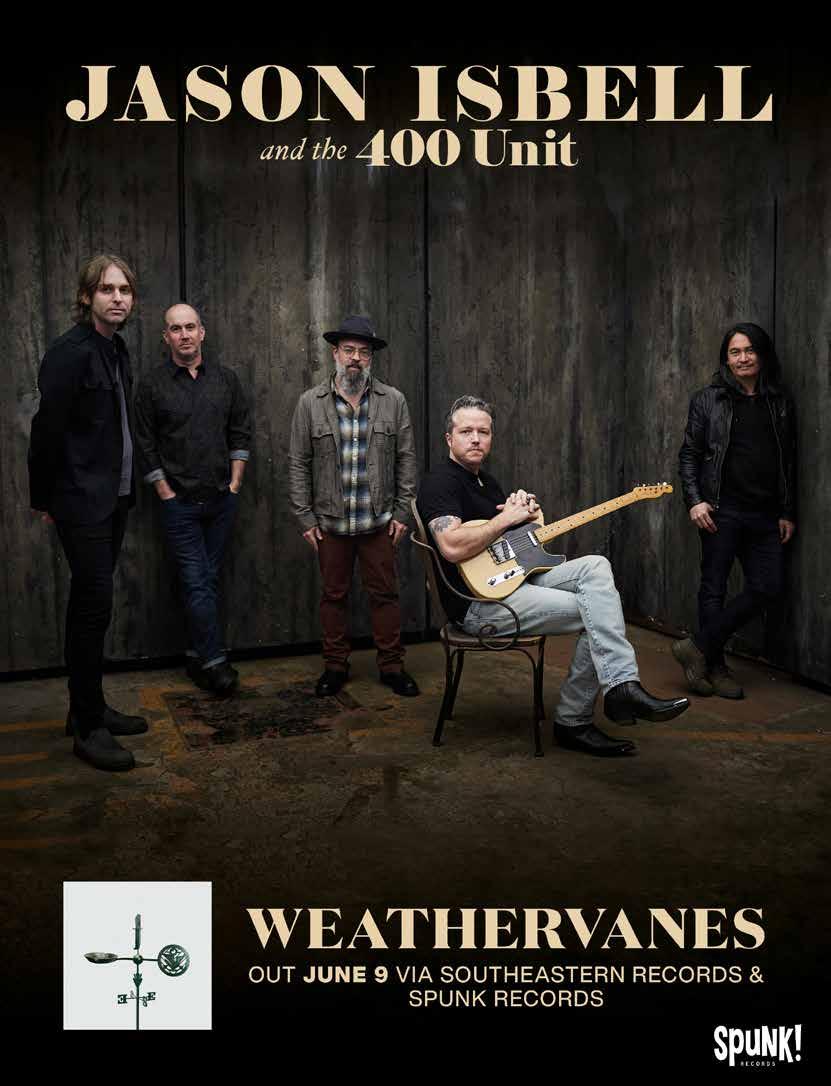






















 Denise Hylands
Denise Hylands
























 By Bernard Zuel
By Bernard Zuel


 By Jeff Jenkins
Ian Moss. Photo by Robert Hambling.
By Jeff Jenkins
Ian Moss. Photo by Robert Hambling.



 By Denise Hylands
By Denise Hylands









































































 By Bernard Zuel
By Bernard Zuel
By Bernard Zuel
By Bernard Zuel









 THE JOHN BUTLER TRIO Grand National (2007) Jarrah
THE JOHN BUTLER TRIO Grand National (2007) Jarrah














































 by Seth Jordan
by Seth Jordan







































































 DANA
DANA


 By Michael Smith
By Michael Smith








 By Steve Bell
By Steve Bell





 BIG YELLOW TAXI A CASE OF YOU AMELIA BOTH SIDES NOW JUST LIKE THIS TRAIN SUMMERTIME CAREY HELP ME - CELISSE COME IN FROM THE COLD SHINE THE CIRCLE GAME
BIG YELLOW TAXI A CASE OF YOU AMELIA BOTH SIDES NOW JUST LIKE THIS TRAIN SUMMERTIME CAREY HELP ME - CELISSE COME IN FROM THE COLD SHINE THE CIRCLE GAME

































































 BY DES COWLEY
BY DES COWLEY









 By Warren Zanes (Crown)
By Warren Zanes (Crown)



















 Dingoes 1974
Dingoes 1974










 Bernard Zuel
Bernard Zuel







 By Steve Bell
By Steve Bell


























 By Brian Wise
By Brian Wise































































 By Steve Bell
By Steve Bell



 By Steve Bell
By Steve Bell
 By Seth Jordan
By Seth Jordan





 The songmen and musicians onstage at ‘Walking With Spirits’ festival 2006. Photo by Peter Eve.
From left - Unidentified didj player with traditional songmen Victor Hood, Roy Ashley & Balang T.E. Lewis, onstage at ‘Walking With Spirits’ festival 2006.
Photo by Peter Eve.
The songmen and musicians onstage at ‘Walking With Spirits’ festival 2006. Photo by Peter Eve.
From left - Unidentified didj player with traditional songmen Victor Hood, Roy Ashley & Balang T.E. Lewis, onstage at ‘Walking With Spirits’ festival 2006.
Photo by Peter Eve.
 By Bernard Zuel
By Bernard Zuel









 By Michael Goldberg
Neil Young at the Boarding House, San Francisco, 1978.
Photo by Michael Goldberg
By Michael Goldberg
Neil Young at the Boarding House, San Francisco, 1978.
Photo by Michael Goldberg






 CHARLES JENKINS
Jeff Jenkins
CHARLES JENKINS
Jeff Jenkins
 Independent/Bandcamp
Independent/Bandcamp


 By Brian Wise
CHRIS WILSON
By Brian Wise
CHRIS WILSON


































 Photo by Marc Baptiste
Photo by Marc Baptiste





 Jackson Browne. Photo by Nels Israelson.
Jackson Browne. Photo by Nels Israelson.







 By Bernard Zuel
By Bernard Zuel

 - By Bernard Zuel
- By Bernard Zuel

 By Michael Goldberg
By Michael Goldberg





 By Trevor J. Leeden
By Trevor J. Leeden





















 MARGO PRICE STRAYS Loma Vista
MARGO PRICE STRAYS Loma Vista

 CHRIS FAMILTON
CHRIS FAMILTON


 CHRIS FAMILTON
BUD ROKESKY OUTSIDER Rainbow Valley Records
CHRIS FAMILTON
BUD ROKESKY OUTSIDER Rainbow Valley Records

























 Photo by John Portpilo
Photo by John Portpilo







 By Trevor Leeden
CC Adcock and Tommy McLain.
Photo by Greg Miles.
By Trevor Leeden
CC Adcock and Tommy McLain.
Photo by Greg Miles.




 The Delines. By Paolo Brillo.
The Delines. By Paolo Brillo.





 Jason Isbell at Bluesfest, Tyagarah, Easter 2023.
Photo by Steve Ford.
Jason Isbell at Bluesfest, Tyagarah, Easter 2023.
Photo by Steve Ford.



 Photo by Jacob Blickenstaff
By Brett Leigh Dicks
Photo by Jacob Blickenstaff
By Brett Leigh Dicks







 Neil Murray. By Jesse Marloe.
Neil Murray. By Jesse Marloe.
 By Steve Bell
By Steve Bell







